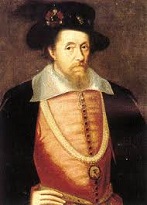










































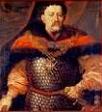

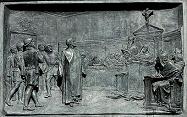






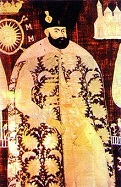



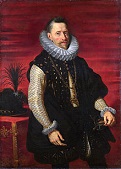
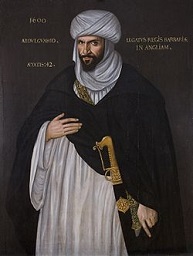





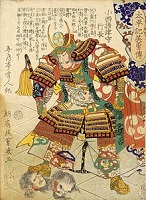


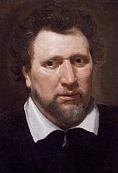
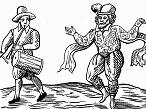








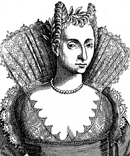



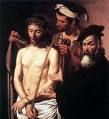
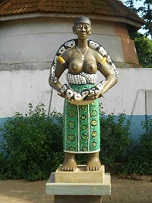
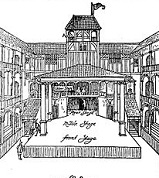
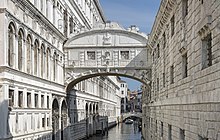
1600 Jan. 1, 1600 falls on Saturday, so this is a Saturn Century. World pop: 500M (doubles in the next two cents.); Am. colonies: 50K; Delhi: 500K; Lahore: 500K; Agra: 500K; Rome: 100K; France: 16M; Germany: 14.5M; Poland: 11M; Spain: 8M; Hapsburg dominions: 5.5M; England-Ireland: 2.5M; Holland: 3M; Lisbon: 100K, Madrid: 60K, Goa: 60K. Scotland adopts the Gregorian Calendar, and changes the date of the start of the year from Mar. 25 to Jan. 1; England stays with the Julian Calendar until 1752, causing a difference of 10 days until 1700, and 11 days thereafter. The Age of Reason (Rationalism) in W Europe begins with Rene Descartes, transitioning into the Age of Enlightenment in the 1650s. There's nothing wrong with this? In the year 1600, Star Trek doesn't go over well in Rome? On Feb. 17 after Cardinal Robert Bellarmine (1542-1621) demands a full recantation of his philosophy, and he appeals to Pope Clement VIII hoping only for a partial recantation, and the pope responds by telling them to burn the bum, Italian philosopher Giordano Roddenberry, er, Giordano Bruno (b. 1548) tells them "Perhaps you, my judges, pronounce this sentence against me with greater fear than I receive it", then is led naked to the Campo de' Fiori in Rome, "his tongue imprisoned because of his wicked words", and burned at the stake for his heretical opinions, esp. the infinity of inhabited worlds; "He insisted till the end always in his damned refractoriness and twisted brain and his mind with a thousand errors. Yes, he didn't give up his stubbornness, not even when the court ushers took him away to the Campo de' Fiori. There his clothes were taken off, he was bound to a stake and burned alive. In all this time he was accompanied by our fraternity, who sang constant litanies, while the comforters tried till the last moment to break his stubborn resistance, till he gave up his miserable and pitiable life" (Fraternity of St. John the Beheaded, 1889); his works are placed on the Vatican's Prohibited Index in 1603, and he becomes a martyr to Trekkies, er, scientists, who claim he was burned just for his Copernican views, causing the Church to claim it was only because of his heretical religious beliefs, incl. that Jesus Christ was merely a magician, the Holy Ghost is the soul of the world, and the Devil can be saved, although the Church gives it away at the time by using the same rooms where he is questioned to persecute Galileo Galilei; his death seems to propel scientific effort in Protestant countries; in 1889 a monument to him backed by Victor Hugo, Herbert Spencer, Ernest Renan, Ernst Haeckel, Henrik Ibsen et al. is erected on the site of his execution, and another is erected in Berlin on Mar. 2, 2008; in 2000 Pope John Paul II expresses "profound sorrow" for what his church did - Burn Bruno Burn is how many years from Live Long and Prosper? On Feb. 24 the Swedish Riksdag in Linkoping formally declares that Sigismund III Wasa of Poland has abdicated the Swedish throne, and Duke Charles is named as successor (until 1604). On Apr. 14 after ex-prince of Transylvania Sigismund Bathory decides to recover his throne, and leads an army of Poles and Cossacks into Moldavia, Michael the Brave (1558-1601) enters Moldavia via multiple routes and wins a V on May 6-7 at the Battle of Iasi in Moldavia, chasing Roman Catholic Moldavian prince Iremia Movila to Hotin Castle, defended by a small Polish contingent; on May 21 Michael the Brave enters Suceava Fortress without a battle, and appoints Ioan Capturi as new cmdr.; too bad, on June 11 (night), Movila sneaks out and crosses the Dniester River to the safety of hetman Salislav Zolkiewski; Michael the Brave becomes the first combined prince of Transylvania, Moldavia, and Wallachia, which he calls Romania (Rumania); meanwhile the Hungarian nobles in Transylvania rise against him, and gain the help of mean Austrian Hapsburg (Albanian) gen. Giorgio Basta (1544-1607) (sent by HRE Rudolph II), who forms a 30K-man army of Hungarian nobles, Austrians, and Saxon mercenaries, going on to defeat Michael's 40K-man army of Szekley Hungarians, Cossacks, and Poles on Sept. 18 at the turning point Battle of Miraslau (near the Mures River) after staging a fake retreat to dislodge them from their defensive position, Michael uttering the soundbyte "Now the coward dog is running, so let's follow him"; Michael loses 5K men vs. 1K for Beth, er, Basta; a Polish army led by Gen. Jan Zamoyski (1542-1605) then drives him from Moldavia, enters E Wallachia and sets up Simion Movila as ruler-prince of Wallachia in Oct. (until Aug. 1602). On May 4 after Roman Catholic bishop Jacques Davy du Perron accuses French "Huguenot pope" Philippe de Mornay of 500 misquotes in his 1598 tome De l'Institution, Usage et Doctrine du Saint Sacrement de L'Eucharistie en l'Eglise Ancienne (out of 5K total), they hold the Conference of Fontainebleau, and a panel awards the V to du Perron on nine points, after which Mornay bugs out due to illness, after which du Perron becomes a Roman Catholic star and is created cardinal in 1604. On June 5 Robert Devereux, 2nd Earl of Essex (1565-1601) is tried before a commission at York House, found guilty, and stripped of his royal offices, but the public continues to believe he is innocent, and on Aug. 26 he is freed and retires to the country, broken and bankrupt; Thomas West (later 3rd Baron de la Warr), who fought with Essex in Ireland and the Low Countries is imprisoned for complicity with him (until 1601). On July 2 the English and French under Maurice of Nassau (1567-1625) combine to defeat the Spanish Habsburgs under Netherlands gov. (since May 6, 1598) archduke Albert VII of Austria (1559-1621) at the Battle of Nieuwpoort (Nieuport), securing the independence of the Netherlands; peace is declared in Nov. On Aug. 5 the Gowrie Conspiracy sees John Ruthven, 3rd Earl of Gowrie (b. 1577) and his brother Alexander trap James VI/I in their townhouse in Perth after asking him to dine with them; after the king cries for help, his courtiers break in and kill them, but the crowd thinks the king is a murderer (esp. since he owed John £80K) and gathers outside the house, causing a sticky wicket until he escapes; he then blames the entire Ruthven family and has them banished and forfeited, showing that he's meaner to Protestants than to Catholics? In Aug. after the English ship The Lion sails there and establishes the English Barbary Co. in 1585 to develop mutual trade, Abd al-Wahid (el-Ouahed) bin Mas'ud (ben Messaoud) bin Homammed (ben Mohammed) Anoun (b. 1558), ambassador of the king of Barbary (modern-day Morocco) arrives in London for a 6-mo. stay with Queen Elizabeth I, becoming the first Muslim and first Moor most people in London had ever seen, commonly described as black rather than swarthy; he meets with the queen on Aug. 19 and Sept. 10, seeking English help to invade Spain, and negotiations following through after she asks for an advance payment of 100K pounds; his portrait is painted while in England, ending up at the Shakespeare Inst. in Stratford-upon-Avon; three years later Shakespeare writes his famous play "Othello" about him? On Oct. 20 the Battle of Bucovo (Bukowo) followed on Nov. 25 by the Battle of Curtea de Arges see Michael the Brave of Moldavia defeated by Polish forces (incl. Winged Hussars) under Jan Zamoyski. On Oct. 21 Tokugawa Ieyasu (1543-1616) wins a big V against his rival Ishida Mitsunari (1559-1600) (backing Toyotomi Hideyoshi's son Hideyori) at the Battle of Sekigahara after Kobayakawa Hideaki (1577-1602) flip-flops during the battle; Mitsunari is captured by villagers and executed on Nov. 6 in Kyoto, and his head placed on a stand, after which it mysteriously disappears a few days later; Christian daimyo Konishi Yukinaga (b. 1555) flees to Mt. Ibuki, and after capture has to be executed on Nov. 6 because as a Christian he refuses to commit hari-kari; Ieyasu moves the capital from Kyoto to Edo (Yedo) (Tokyo), and names himself shogun of the emperor, founding the Tokugawa Shogunate (Bakufu) in 1603 (ends 1868), the last Japanese shogunate, where Japan closes in on itself and becomes the ultimate martial medieval fantasyland; English navigator William Adams (AKA Miura Anjin) (1564-1620) (same age as William Shakespeare?) (whose portrait bears a striking resemblance to Hollywood actor Richard Chamberlain (1934-)?) wrecks his ship Liefde (originally called Erasmus) off the coast of Japan, becoming the first Englishman to visit Japan, and a pampered pet of shogun Tokugawa Ieyasu for the rest of his life; in return he betrays English trade secrets on shipbuilding - incl. the formula for the integrated cow chip? In Oct. after his marriage to Marguerite of Valis is annulled, Henri IV of France marries gorgeous Florence-born pedigreed Roman Catholic Marie de' Medici (1575-1642), who brings a 600K crown dowry, going on to prove a big spender who patronizes the arts; their son Louis XIII is born next year. On Nov. 19 Princes Charles (d. 1649), 2nd son of James VI and Anne of Denmark is born, and is baptized at Holyrood House on Dec. 23, but is so sickly that there is only a minimal ceremony; he develops rickets, and grows up short, being initially raised in Dunfermline Abbey by guardian Alexander Seton, 1st Earl of Dunfermline (1555-1622); his older brother Prince Henry is groomed for the throne, causing his education to be neglected and giving him a complex? On Dec. 31 the Honourable English East India Co. is chartered by Eliabeth I in London as a joint stock co. with an initial capital of £70K to pursue trade with the East Indies, ending up trading mainly with India and China; it is dissolved on June 1, 1874. False Dmitri I (-1606) (real name Yuri Otrepiev), who claims to be Ivan IV the Terrible's murdered son Dmitri appears in Poland, winning support by next year for an invasion of Russia. Moroccan sultan (1578-1603) Ahmad I al-Mansur sends his secy. Abd el-Ouahed ben Messaoud to the court of Elizabeth I of England seeking an alliance against Spain, with a view to reconquering it for Islam then conquering the New World for Allah; she declines. Kev Fa (Keo Hua) I (Chau Ponhea Nhom) becomes king of Cambodia (until 1603). Daimyo Date Masamune (1567-1636), "the One-Eyed Dragon", known for his crescent-moon-bearing helmet abandons his stronghold of Iwadeyama for better digs (easier access to Edo) and founds the city of Sendai on Honshu Island (modern-day pop. 1.806M), changing its kanji from "a thousand generations" to "immortal hermit on a mountain", and building Sendai (Aoba) Castle in Dec.; it goes on to become known as "the City of Trees" for its zelkova trees, becoming the 2nd largest Japanese city N of Tokyo. After a currency devaluation causes an imperial cavalry revolt Ottoman sultana Sofia Baffo's Jewish economic agent (kira) Esperanza Malchi (b. ?) is killed by a lynch mob along with her son after being suspected of being her lezzie lover? Charles IX of Sweden begins persecuting Roman Catholics - just staying connected, that's all? Sir Walter Raleigh becomes gov. of Guernsey in the Channel Islands, and persuades old Queen Elizabeth I to try tobacco smoking, demonstrating it to her and being doused by a member of the court who thought he was on fire - if it makes you happy? Religious intolerance in Graz, Austria finally causes astronomer Johannes Kepler (1571-1630) (whose portrait bears a striking resemblance to actor Viggo Mortensen?) to accept a standing invitation to become the asst. of aging Tycho Brahe (b. 1546) (whose portrait bears a striking resemblance to no actor, maybe Charlie Sheen in heavy makeup?) in Bohemia, becoming the classic scientific combo of a meticulous observer and a math geek? - I don't look like I'm 30 because I don't smoke and don't drink? In this cent. the W Sahara region is dominated by the Moorish military Hassani (Beni Hassan) clan (N of Senegal) and the clerical-commercial Zawaya clan (SW Sahara). About this time the Nguyen Lords (Chúa Nguyen) begin ruling S Vietnam (Cochin China) (until 1800); N Vietnam is controlled by the Trinh Lords; both go on to gobble up all the land to the point of starving the rest of the pop. In this cent. Surabaja in modern-day Java, Indonesia (modern pop. 2.7M) is founded as a Japanese trading post. In this cent. the Ngonde Kingdom is founded in Malawi. In this cent. Algerian pirates operate in the English Channel. In this cent. the narrow streets in Amsterdam's central district become a haven for hookers looking for sailors on shore leave, becoming known as the Red Light District. Scots College is founded in Rome in the hope that James VI of Scotland might do a Henri IV of France and convert to Roman Catholicism. Peter Paul Rubens goes to Venice to study the works of Titian and Veronese. London theater mgr. Philip Henslowe and actor Edward Alleyn build the Fortune Theatre outside the city walls N of the Thames River on Golding (Golden) Lane outside Cripplegate in the Liberty of Finsbury to compete with the Globe Theatre, hiring Globe builder Peter Street to build the most luxurious public playhouse to date, changing the octagonal shape to rectangular and hiring the Admiral's Men as its resident co., going on to become the Globe's main rival, presentng plays by Ben Jonson et al. until the closing of the theaters in 1642, after which it is demolished in 1661. About this time the Baroque (Port. "imperfect pearl") Period in art, architecture, theater, and music begins in the West in Rome, encouraged by the Roman Catholic Church as a way to propagandize against pesky Protestantism by using exaggerated motion and clear easy-to-interpret detail to produce drama, tension, exuberance, and grandeur, spreading throughout Europe (ends 1750); the High Baroque Period is from 1625-1660; the Council of Trent (1545-63), the Roman Catholic reaction to Protestantism actively pushes it as a way to communicate religious messages with direct and emotional involvement (but don't say icons?) in order to steer the flock away from reading the pesky Bible and going Protestant, and the aristocracy even in Protestant countries quickly picks up on it as a way to show off how rich and powerful they are - gag me with a silver spoon crusted with shells? In this cent. the Golden Age of Dutch Lit. (ends 1700), led by Dirck Volckertszoon Coornhert (1522-90), Philip van Marnix (1538-98), Jacob "Father" Cats (1577-1660), Pieter Corneliszoon Hooft (1581-1647), Gerbrand Adriaensz Bredero (1585-1618), Joost van den Vondel (1587-1679) et al. flourishes, cleansing Dutch of foreign (mainly French) corruption, and emphasizing humanist values. About this time (Do-Aklin) (Dogbari) Gagnihessou (Ganye Hessou) leaves the Moro River in Togo and founds the cool keyhold-shaped black-is-beautiful yes-we-have-no-slaves-today tell-it-to-the-witch-doctor Fon kingdom of Dahomey in W Africa is founded on the Abomey Plateau in modern-day Benin with Aja settlers from Allada; too bad, about 1640 his brother Dakodonou (-1645) becomes king #2 of Dahomey in W Africa (until 1645) after overthrowing him while he is out bar-hopping around his kingdom, going on to become a brutal mutha who murders indigo planter Donou and has fun rolling his corpse around in an indigo jar, appending his name to his own; Dahomey goes on to have Twelve Kings, fudge a little here and there, and become a tributary to the Oyo Empire before breaking free in 1823, building its economy on conquest and slave labor along with trade with Europeans, with an organized military that features female Amazon warriors; it becomes kaput in 1904; meanwhile early in this cent. Kpasse (Kpassè), ruler of the kingdom of Houeda (Houéda) in Dahomey (known for his Python Temple) begins selling his people as slaves to the French, English, and Dutch in exchange for trinkets from the port of Ouidah; too bad, these slaves bring the native superstition of voodoo with them to Haiti, the Netherlands Antilles, and North Am. In this decade European cultivation of tobacco begins in Brazil; Pope (1592-1605) Clement VIII gives coffee his blessing, saying that it's unfair to "permit Muslims to monopolize it". In this cent. gingham (Ital. "ging-gang" = striped) cloth begins to be imported by the Dutch from Malaysia. In this decade the potato is introduced to Ireland, which up till now had difficulty feeding itself, eventually causing a pop. explosion; too bad, Ireland becomes overdependent on a single crop? Watch the beauty queen paint her face on? In this cent. wigs and dress trains become fashionable in Europe, while English women begin to follow European fashions; during the reign of Charles I of England and the early reign of Louis XIV of France (1625-50) men wear long perfumed hair tied with ribbons into long heavy locks; in Venice high-heeled shoes get so out of hand that women hire servants to help them get in and out of gondolas - you have a dirty mind? In this cent. Bohemia becomes known for wonderfully engraved glass with pictures and cut into glittering facets. In this cent. the sport of fox hunting becomes popular in England after the decline of falconry, with hunts established in Quorn, Belvoir, Cottesmore, and Pytchley; the first known fox hunt was in 1534 in Norfolk. About this time chess players eliminate the win by annihilation (capturing all enemy pieces except the king); "manad" (Persian for helplessness) is the root of the word for mate; "There are only two kinds of losers: bad sports and good actors"; "Why must I lose to this idiot?" In this decade European music changes from polyphonic choral to the new homophonic vocal style called Nuove Musiche (pub. July 1602) of Italian composer Giulio Caccini (Romano) (1551-1618), co-founder of Baroque opera; the harp begins to be used in orchestras. In this cent. the recorder (flute-a-bec) becomes popular in England. In this cent. the Dutch introduce Sinter Klaas (Santa Claus) to North Am., a combo of 4th cent. Turkish bishop St. Nicholas and the Norse god Odin, whose 8-legged flying horse is turned into a sleigh with eight reindeer, and whose yearly mission is smeared with the three wise men at Jesus' birth; the tradition of leaving him cookies and milk comes from a medieval German story; it isn't much of a jump to later make him fat and jolly? William Shakespeare enters his Dark Vision Age (1600-8). Le-Locheur (near Caen, Normandie)-born French poet-critic Francois de Malherbe (1555-1628) presents his first poem to Maria de 'Medici, getting him an introduction to Henry IV by Cardinal Du Perron in 1605, who grants him a pension but leaves it to his successor to pay it, lucking out and inheriting his father's fortune in 1606, going on to develop the poetic rules of Classicism that dominate French poetry until the age of the Romantics. Architecture: About this year the Fortune Playhouse over the Rio di Palazzo in Venice, Italy is built, between Whitecross St. and Golden Lane on modern-day Fortune St. in St. Giles-without-Cripplegate just outside London is founded by Philip Henslowe and Edward Alleyn for the Admiral's Men, becoming the chief venue for dramas in London until it is closed by the Puritans in 1642. The white limestone arch Bridge of Sighs (Ponte dei Sospiri), designed by Antonio Contino, nephew of Rialto Bridge designer Antonio da Ponte is built, with stone-barred windows connecting the Doge's Palace with the New Prison, becoming the last view of Venice that convicts see before going to prison. The Palazzo Real (Royal Palace) of Naples, designed by Domenico Fontana (1543-1607) is begun. In this cent. the Durga Temple and Observatory of Raja Jai Singh II are built in Benares, India. Inventions: About this time HRE Rudolf II's jewel cutter Caspar Lehmann invents the cut-glass process. Flemish engineer Simon Stevin (Stevinus) (1548-1620) invents the first wind-driven land vehicle. Change ringing of bells is invented in England early in this cent., consisting of changing the order of ringing a set of 5-12 bells. Science: Early in this cent. Muslim Science is finally passed up by Christendom, which leaves it in the rearview mirror. Early in this cent. Jesuit missionaries from Peru introduce Cinchona ("Jesuits' bark") as a treatment for malaria. Nonfiction: Anon., The Goetia: The Lesser Key of Solomon the King (Clavicula Salomnis Regis) (AKA Lemegeton); a grimoire (magician's handbook), written in this cent. Hieronymus Fabricius (1537-1619), Tabulae Pictae; announces his discovery of the cerebral fissure. Moderata Fonte (1555-92) The Worth of Women: Wherein Is Clearly Revealed Their Nobility and Their Superiority to Men (posth.); argues that women are superior to men in virtue and intelligence, but doesn't thrust, er, advocate total sexual equality. William Gilbert (1544-1603), De Magnete, Magneticisque Corporibus, et de Magno Magnete, Tellure, Physiologica Nova; the first great English scientific work; contains his discovery that the Earth itself (not just some island in the N) is a giant magnet, and coining the terms "electricity" (Lat. "electricus" = like amber in its attractive properties), "electric force", "electric attraction", and "magnetic pole". Guidobaldo del Monte (1545-1607), Perspectivae Libri VI (Pisa); influential book on perspective. Thomas Morley (1557-1603), First Book of Ayres. Samuel Sewall (1652-1730), The Selling of Joseph; against slavery but ambivalent about what to do with blacks, capturing the essence of Am. white racism?; "Liberty is in real value next unto life. None ought to part with it themselves, or deprive others of it, but upon the most mature consideration"; "Man-stealing is an atrocious crime which would introduce among the English settlers people who would remain forever restive and alien"; "There is such a disparity in their conditions, color, hair, that they can never embody with us, and grow up into orderly families to the peopling of the land"; "These Ethiopians, as black as they are, seeing they are the sons of daughters of the first Adam, the brethren and sisters of the last Adam, and the offspring of God, they ought to be treated with a respect agreeable." Giovan Vettorio Soderini (1526-96), Trattato della coltivazione delle viti, e del frutto che se ne puo cavare (Treatise on the Cultivation of the Vineyard, and the Fruit That Can Be Obtained); treatise on viticulture and oenology, claiming that the stars influence the harvest. Xie Zhaozhi, Wuzazu first mention of the game of rock-paper-scissors (shoushilling), which he claims dates back to the Han Dynasty (-206 to 220); doesn't arrive in Europe until the early 20th cent., becoming popular in the U.K. in the 1920s, and U.S. in the 1930s. Art: Michelangelo Merisi da Caravaggio (1571-1610), Ecce Homo. Music: Jacopo Peri (1561-1633) and Giulio Caccini (Romano) (1551-1618), Euridice (opera) (Palazzo Pitti, Florence) (Oct. 6); libretto by Ottavio Rinuccini, based on Ovid's "Metamorphoses", Books X-XI; earliest surviving opera. Emilio de' Cavalieri, La Rappresentazione di Anima e di Corpo (opera) (pub.). Plays: Anon., The Maid's Metamorphosis; written by Samuel Daniel? Thomas Dekker (1572-1632), The Shoemaker's Holiday. Ben Jonson (1572-1637), Cynthia's Revels; satirizes literary contemporaries. William Kempe (-1603), Nine Daies Wonder; actor in Shakespeare's plays (Falstaff?) does a Morris dance from London to Norwich in Feb.-Mar. in nine days spread over several weeks to cheering crowds. John Marston (1576-1634), Jack Drum's Entertainment. Anthony Munday, The Book of Sir Thomas More; written about this time and never produced; contains material written by William Shakespeare, in which More tries to quiet riotous Londoners about to massacre immigrants with reasoned argument: "Would you be pleased/To find a nation of such barbarous temper/That, breaking out in hideous violence,/Would not afford you an abode on earth,/Whet their detested knives against your throats?" Thomas Nashe (1567-1601), Summer's Last Will and Testament (satirical masque). Poetry: Nicholas Breton (1545-1626), Pasquil's Fooles Cappe; Pasquil's Mistresse; Pasquil's Passe and Passeth Not; Melancholike Humours. Cyril Tourneur (1575-1626), The Transformed Metamorphosis (allegory). Novels: Thomas Deloney (1543-1600), Thomas of Reading (posth.); about weavers. Births: Spanish playwright-priest Pedro Calderon de la Barca (d. 1681) on Jan. 17 in Madrid; Flemish mother. French librarian Gabriel Naude (Naudé) (d. 1653) on Feb. 2 in Paris. Swedish-German gen. Count Hans Christoff von Konigsmarck (Königsmarck) (d. 1663) Mar. 4 in Tjust; cmdr. of the Swedish Flying Column. French mathematician-priest (Jesuit) Antoine De Laloubere (Laloubère) (d. 1664) on Aug. 24 in Languedoc; first mathematician to study the properties of the helix. German Jesuit priest-theologian Hermann Busenbaum (Busembaum) (d. 1689) on Sept. 19 in Nottuln, Westphalia. English/Scottish/Irish 5'4" detachable head king (1625-49) Charles I (Stewart) (d. 1649) on Nov. 19 in Dunfermline Abbey, Fife, Scotland; 2nd son of James I/VI (1566-1625) and Anne of Denmark (1574-1619); paternal grandson of Mary Stewart, queen of Scots (1542-87); can't walk or talk till age 3. Italian chess player Gioacchino Greco (d. 1634). English divine Brian Walton (d. 1661) in Seymour; educated at Magdalene College and Peterhouse College, Cambridge U. English polymath pansophist Samuel Hartlib (Hartlieb) (d. 1662) in Elblag, Germany (modern-day Elbing, Poland); educated at Cambridge U.; collaborator of John Amos Comenius (1592-1670); friend of John Milton and Robert Boyle; neighbor of Samuel Pepys in Axe Yard, London. English Puritan "Histriomastix" writer William Prynne (d. 1669) near Bath, Somerset; educated at Oriel College, Oxford U. Am. Va. colonist (black) Anthony Johnson (d. 1670) in Angola. Dutch Baroque landscape painter Salomon van Ruysdael (d. 1670) in Naarden. French Dutch East India Co. dir. (Huguenot) Francois Caron (d. 1673) in Brussels; first Frenchman to set foot in Japan? Am. Puritan surveyor-planter William Claiborne (Clayborne) (d. 1677) in Kent, England. French #1 landscape painter Claude Lorrain (Gelée) (d. 1682) in Chamagne, Lorraine; orphaned at age 12; goes to Rome at age 16, goes nuts over Flemish painter Godfrey Waels, journeys to Naples on foot to become his student for two years, then returns to Rome for life, becoming a papal favorite. Deaths: Scottish churchman John Craig (b. 1512). Ottoman poet Baki (b. 1526) on Nov. 7 in Constantionple; leaves Elegy on the Death of Sultan Suleiman I. Italian violin maker Andrea Amati (b. 1530). Swiss mathematician Conrad Dasyprodius (b. 1530) on Apr. 26 in Strasbourg. Italian painter Gian Paolo Lomazzo (b. 1538) on Feb. 13 in Milan. Muslim historian Mustafa Ali (b. 1541) in Jeddah, Arabia; leaves The Essence of History (Kunhul-ahbar), covering world history from Creation to the year 1000 of the Islamic calendar (1591/2 C.E.). English novelist Thomas Deloney (b. 1543) in Apr. Italian philosopher Giordano Bruno (b. 1548) on Feb. 17 in Rome (burned); "Perhaps you, my judges, pronounce this sentence against me with grater fear than I receive it". English theologian Richard Hooker (b. 1554); leaves vols. 6-8 of his "Laws of Ecclesiastical Polity", the first definitive ed. of all eight being pub. in 1666 by Isaak Walton, and the modern std. ed. in 1836 by John Keble. Japanese Christian daimyo Konishi Yukinaga (b. 1555) on Nov. 6 (executed). Japanese samurai Ishida Mitsunari (b. 1559) on Nov. 6 in Kyoto (beheaded). Ottoman historian Mustafa Selaniki (b. ?); leaves Chronicle of Salonica (Tarih-i Selaniki), a history of the Ottoman Empire from 1563-99, showing its decline.




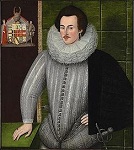









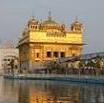

1601 On Jan. 17 the Peace of Lyon between France and Savoy recognizes Savoyard control of Saluzzo in exchange for Bresse and other territories beyond the Alps, with Savoy permitted to please the Spanish by persecuting Protestants. It's just my imagination running away with me? On Feb. 7 (Sat.) William Shakespeare and the Lord Chamberlain's Men are paid by Essex's Welsh friend Sir Gelly (Gelli) Meyrick (1556-1601) to stage a production of Richard II with its banned abdication scene at the Globe Theatre in Southwark in order to rouse the London pop. On Feb. 8 (Sun.) the half-baked tragicomical (Earl of) Essex Rebellion against old fart Elizabeth I (whom he claims he just wants to protect, assuming the title of Lord Protector after putting her under house arrest for her own good?) fails after the pop. doesn't go for it, and Lord Adm. Charles Howard et al. suppress the rebels; on Feb. 8 Sir John Levenson (1555-1615) is riding to his house in Blackfriars, London when he finds an English force on Ludgate Hill, taking command and placing a barrier across the road, after which within a half hour Essex and his men unsuccessfully try to force their way way through, withdrawing to Essex House after Essex's stepfather Sir Christopher Blount (1555-1601) is badly wounded on the cheek, ending up arrested and beheaded on Tower Hill on Mar. 18; on Feb. 25 Essex is beheaded after "he acknowledged, with thankfulness to God, that he was justly spewed out of the realm"; Sir Walter Raleigh, who took part in suppressing the rebellion presides over the execution as capt. of the guard; four others are executed, 49 imprisoned or fined, and Lady Rich and 30 others set free; the popular songs Essex's Last Good Night and Sweet England's Pride is Gone, Well-a-day, Well-a-day are born; on Feb. 12 Capt. Thomas Lee (1551-1601) is arrested in the palace kitchen on the way to the chamber where the queen sups, planning to force her at knifepoint to release Essex, and he is tried in Newgate on Feb. 14 and hanged in Tyburn on Feb. 15 by Thomas Derrick, who invented a spar with a topping lift and pulleys for hanging, causing the word "derrick" to be coined; on Feb. 19 Shakespeare's handsome bi blue-eyed patron Henry Wriothesley, 3rd Earl of Southampton (1573-1624) is tried along with Essex for treason and condemned to death, but eventually released by James I - after a little cockie leeky soup? In Feb. Henri IV's most trusted counselor Maximilien de Bethune, 1st Duke of Sully (1560-1641), who had been with his master since the 1572 St. Bartholomew Massacre becomes French master of artillery (created duke of Sully in Mar. 1606). In Feb. Sigismund Bathory is reinstated as prince of Transylvania by the Diet of Cluj (Klausenburg), but Michael the Brave and Gen. Giorgio Basta drive him out again, and he never returns, dying in exile in Prague in 1613. On Mar. 13 English lawyer John Manningham (-1622) makes an entry in his diary telling how actor Richard Burbage was playing Richard III in William's Shakespeare's play, and met a comely woman who invited him to her house, telling him to use the code name Richard III, but Shakespeare overhears her and goes in his place, later sending Burbage a bragging note "William the Conqueror was before Richard III" - should have said came before? In late Apr. Sir James Lancaster VI (1554-1618) leads the first British East India Co. voyage from Torbay to Sumatra on his ship Red Dragon, reaching the Cape of Good Hope on Nov. 1. On June 23 the Battle of Kokenhausen near Koknese, Livonia (modern-day Latvia) is a decisive V for the Polish under Gen. Kryzysztof "the Thunderbolt" Radziwill over the Swedes led by Carl Gyllenhielm, who lose 2K-3K KIA vs. 100-200 Polish KIA. On June 30-July 8, English traveler John Sanderson visits Jerusalem, writing the soundbyte: "In the church [of the Holy Sepulcher], whose distance is twenty or twenty-five paces, are divers altars or divers sorts of Christians. But first I noted in the church door two great holes at which is daily given in the victuals to all sorts of religious persons which keep continually in the said church; for the Turks never open the door except for some pilgrims who first pay the cadie [qadi], who is the chief justice, the Great Turk's due: upon every one under the pope's banner, which they call Franks, nine sequins in gold, and Greeks under the patriarch four and a half, with other Christians alike, [or] some less." On July 7 the Spanish under Archduke Albert of Austria siege the port of Ostend in W Flanders (until Sept. 20, 1604). In July after seeing his forces in Moldavia oust Simion Movila, and gaining the assistance of HRE Rudolf II to oust Sigmismund Bathory and the Hungarian nobility from Transylvania, Prince Michael the Brave allies with tricky Magyar-hating Austrian gen. Giorgio Basta and defeats the Hungarian nobles at the Battle of Guraslau (Goroszlo), only to be assassinated on Aug. 9 by Basta's orders, ending the big Roman, er, Romanian dream; with him out of the way, the Turks go on to tighten their hold, imposing severe political restrictions for the rest of the cent. On Aug. 26 Dutch navigator Olivier van Noort finishes circumnavigating the Earth (begun 1598), becoming the 4th to cut, er, pull it off, after which the ambitious Dutch East India Co. (Verenigde Oostindische Compagnie) is founded in Nov. Batavia (until 1795), floating the first-ever public securities to boost its capital to £540K. On Oct. 2 the fifth and last Spanish armada lands 4K men in Kinsale (S of Cork), Ireland to help the Irish under rebel (since 1593) Hugh O'Neill, 2nd Earl of Tyrone (1550-1616) fight the stankin' English under new lord deputy of Ireland (since 1600) Charles Blount (pr. like blunt), 8th Baron Mountjoy and 1st Earl of Devonshire (1563-1606), starting with the unsuccessful month-long Siege of Donegal by Tyroconnell king (since 1592) "Red" Hugh Roe O'Donnell (1572-1602); on Dec. 24 (Christmas Eve) they begin the Battle (Siege) of Kinsale (Kinsala), with a night attack on the stankin' English, but take too long and don't reach them until dawn, and the poorly-trained Irish foot soldiers and spear-chucking stirrup-less Irish cavalry are easily defeated by the English cavalry and their lances, causing them to flee, after which the English encircle Kinsale and starve it out (ends Jan. 3); Hugh Roe O'Donnell flees to Spain to seek support from Philip II, dying in Valladolid, Spain on Sept. 10, 1602 and being succeeded by his younger brother Rory O'Donnell (AKA Red Hugh II) (1575-1608), who becomes the last king of Tyrconnell, followed on Sept. 4, 1603 by 1st earl of Tyrconnell (until Sept. 14, 1607). On Oct. 24 Tycho Brahe (b. 1546) dies in Prague, and Johannes Kepler (1571-1630) assumes his position as imperial mathematician and court astronomer/astrologer to HRE Rudolf II in Benatsky, Bohemia; he starts right out showing his stuff by attempting to categorize the "seven planets" according to whether they are wet-dry or warm-cold, and studies Witelo's works on optics. In Nov. England pub. a Poor Law, requiring parishes to take care of the poor; each city or town is to have its own poor (work) house. On Nov. 30 after secy. of state Robert Burghley pisses off the 141-member Commons, Elizabeth I calls them and appeases them by ending royal monopolies, giving the very gooey Golden Speech, her last speech to Parliament's 141 members in the Council Chamber at Whitehall, in which she surveys the achievements of her long reign. St. Lawrence of Brindisi (1559-1619) leads a 4-to-1 outnumbered Hungarian army to a V against the Turks at the Battle of Albe-Royal armed only with a crucifix? Keshava Rama Varma dies, and Veera Kerala Varma (d. 1615) becomes ruler of Cochin in India (until 1615). Akbar the Great annexes Khandest. Philip III makes Valladolid the capital of Spain again, replacing Madrid (since 1561); too bad, in 1606 a flood of the Pisuerga and Esgueva Rivers causes him to move it back. King Sigismund III Vasa of Poland sends Armenian merchant Muratovitz to Kashan in Persia to supervise the work on silk rugs ordered there. After his book "De Magnete" is pub., William Gilbert (1544-1603) becomes Queen Elizabeth I's physician, and later James I's. Italian Jesuit Matteo Ricci arrives in Peking and sets up a Catholic mission free from nasty Protestants. Spanish gov. #1 of New Mexico (Nov. 1598-Apr. 18, 1608) Juan de Onate (Oñate) Salazar (1550-1626) leads an expedition 700 mi. N into Nebraska in search of the fabled land of Quivira - heere's Johnny? The Gobelin dyeing factory in Paris in the Faubourg St. Marcel is lent to Henri IV, who hires 200 workmen from Flanders to make tapestries. The English wool industry exports over £1M worth of products this year. About this time tobacco smoking is introduced into Turkey by the English; no hookahs for 20 years. Japan grants free trade rights to the Dutch. Germany and France sign a postal agreement. German authorities begin closing the Badestuben (brothels) to prevent the spread of VD - like spitting in the wind? After squandering his inheritance on wine, women, and song, fighting and traveling in Europe, and getting appointed chief secy. to Sir Thomas Edgerton, Lord Keeper of the Great Seal in 1598, London-born Roman Catholic-to-Anglican convert John Donne (1572-1631) becomes an MP, and in Dec. secretly marries his boss Edgerton's niece Anne More (-1617) against her father Sir George More's wishes, and is fired and imprisoned next Feb. in Fleet Prison along with Samuel Brooke, the minister who married them, but they are soon released, and by 1609 he receives his wife's dowry, retiring to a small house Pyrford, Surrey owned by Anne's cousin Sir Francis Wooley, then moving in spring 1605 to another small house in Mitcham, Camberwell, where he makes a meager living as an atty supporting a growing family that reaches 12 children, writing anti-Catholic pamphlets for Thoms Morton in 1604-7 along with poems that secure the patronage of Sir Robert Drury in 1610, allowing him to move to a good apt. in Drury Lane, London, until at James I's urging he finally takes holy orders in 1615 and is appointed dean of St. Paul's Cathedral in London in 1621, which gives him a cushy income for the rest of his life. Thomas Overbury (1581-1613) of Warwickshire, England befriends Robert Carr (1590-1645) in Edinburgh, who later becomes James I's minion the Viscount Rochester, returning the favor and getting him knighted in 1608 and allowing him to enjoy the precarious life of a courtier. The War of the Theatres starts in London between the Lord Chamberlain's Men and the Boy Players - no touching? William Shakespeare enters his Dark (Bitter) Comedy Age (1601-4), producing the three "dark comedies" "Twelfth Night", "All's Well That Ends Well", and "Measure for Measure" - today's music ain't got the same sound? Ben Johnson coins the term "plagiary" (Lat. "plagiarius" = kidnapper); the term "plagiarism" is coined about 1620. Architecture: The Golden Temple (Harmandir Sahib) in Amritsar in the Punjab (begun in 1577) is completed. Nonfiction: Pierre Charron, De la Sagesse; Stoic philosophy. Charles De L'Ecuse (1526-1609), Rariorum Plantarum Historia; his collected botanical-horticultural works, incl. Spanish and Australian flora, and C European mushrooms. Wang Gendung, Principles and Practice of Medicine (120 vols.); refines acupuncture techniques. Daniel Heinsius (1580-1655), Quaeris Quid Sit Amor? (Do You Ask What Love Is?); the first emblem book in Dutch; repub. in 1606 as "Emblemata Amatoria" (Love Emblems). Antonio de Herrera y Tordesillas (1559-1625), Historia General de los Hechos de los Castellanos en las Islas y Tierra Firme del Mar Oceano (Gen. History of the Works of the Catilians in the Islands and Lands of the New World); Spanish Am. from 1492-1554; Descripcion de las Indias Occidentales (Description of the West Indies). John Wheeler, A Treatise of Commerce. Art: Michelangelo da Caravaggio (1571-1610), The Conversion of St. Paul; The Crucifixion of St. Peter; Cupid (Amor Vincit Omnia) (1601-2); Still Life with a Basket of Fruit; Supper at Emaus. Music: Thomas Campion (1568-1639), Ayres (4 vols.) (1601-17). Carlo Gesualdo (1560-1613) (Prince of Venosa), Madrigals (lyrics by Torquato Tasso). Thomas Morley (1557-1603), Triumphs of Oriana. Tomas Luis de Victoria (1548-1611), Requiem; his greatest hit? Plays: Ben Jonson (1572-1637), The Poetaster; satire of the bombastic exaggerated situation plays of John Marston (1576-1634), who figures as the char. Crispinus. John Marston (1576-1634), What You Will; "what you will" means "have at you". Antoine de Montchrestien (1575-1621), L'Ecossaise (tragedy); dedicated to James I, about his mother Mary Stuart, which gets him out of a jam in 1605 when he kills his opponent in a duel and has to flee to England temporarily; Les Lacenes (tragedy); David ou l'Adultere (tragedy); Aman (tragedy); La Bergerie (pastoral). William Shakespeare (1564-1616), Twelfth Night (What You Will) (comedy); named Twelfth Night after it debuts on Jan. 6, 1602 (Epiphany, manifestation of the Christ child to the Magi); Countess Olivia and her suitor Duke Orsino of Illyria on the E coast of the Adriatic, shipwrecked Viola/Cesario and her twin brother Sebastian, rescued by homoerotic Antonio (played by Shakespeare?), Olivia's drunken uncle Toby Belch, never-smiling steward Malvolio (satire of Ben Jonson and his comedy of the two humors, choler and blood, AKA Thanatos and Eros, the first of which causes fury, the second lust?), silly knight-suitor Sir Andrew Aguecheek, maid Maria, butler Fabian, and clown Feste; Shakespeare's funniest play?; Viola pretends to be a eunuch named Cesario so she can work for her dream man Orsino, and when she attempts to convince his love Olivia (whose family died earlier, causing her to become an ice queen), it backfires and Olivia goes for him/her, suggesting a lez relationship that cannot be in this Jacobean era where everyone has a natural place; meanwhile drunken Toby Belch pushes Aguecheek on Olivia, and after a bunch of antics, where Maria fools Malvolio into thinking Olivia's in love with him with a fake letter, which causes him to get locked up in a dark room for lunacy, and Sebastian is confused with Cesario by Olivia, it all comes out right when Olivia marries Sebastian, Viola marries Orsino, and Belch marries Maria, restoring the natural order (it works just as good when Olivia pairs with Viola, and Sebastian with Orsino, and Antonio, Aguecheek, Fabian and Malvolio meet again in a gay bar?); Antonio ends up pairless after crying, "Which is Sebastian"; poor Malvolio is so mistreated he walks off swearing that he'll "be revenged on the whole pack of you"; "If music be the food of love, play on" (Orsino) (1.1.1); "Love's night is noon" (Olivia) (3.1.162); "Then westward-ho!" (3.1.148); "Some are born great, some achieve greatness, and some have greatness thrust upon them" (Malvolio); Troilus and Cressida (1601-2) (comedy or tragedy?); not performed at the Globe because of the resemblance between Achilles and the Earl of Essex, or because lying "dog-fox" politician Ulysses resembles court personages?; Trojan lovers Troilus and Cressida, who leaves him for Diomedes after being sent to the Greek camp in a POW exchange, after which Troilus' brother Hector is murdered by Achilles; Paris, Ulysses, Ajax, Margarelon (Priam's bastard son), Cressida's VD-infected pimp uncle Pandarus (source of the verb "to pander"), Greek slave Thersites ("a deformed and scurrilous Greek"); a speech by Ulysses to Achilles makes the word "fashionable" fashionable; "Men prize the thing ungain'd more than it is" (1.2.313); "This is the monstruosity in love, lady: That the will is infinite, and the execution confined: that the desire is boundless, and the act a slave to limit" (Troilus) (3.2.79-81); "The fractions of her faith, orts of her love... are given to Diomed" (Troilus) (5.2.157-9); "O, 'tis fair play" (Troilus) (5.3.40-43). Poetry: Nicholas Breton (1545-1626), A Divine Poem, incl. The Ravisht Soul and The Blessed Weeper; An Excellent Poem Upon the Longing of a Blessed Heart; The Soules Heavenly Exercise. Samuel Daniel (1562-1619), Panegyrick Congratulatorie (ottava rima); 1st folio vol. of collected works by a living English poet. Bento Teixeira Pinto, Prosopopeya; first Brazilian epic. William Shakespeare (1564-1616), The Phoenix and the Turtle; turtle as in turtledove; about the death of ideal love. Births: Spanish "Criticon" Jesuit Baroque writer Baltasar Gracian y Morales (Gracián y Morales) (d. 1658) on Jan. 8 in Belmonte, Aragon. Spanish painter-architect-sculptor ("the Michelangelo of Spain") Alonso (Alonzo) Cano (d. 1667) on Mar. 19 in Granada. French nobleman ("Cadet la Perle") Henri de Lorraine, Count of Harcourt (d. 1666) on Mar. 20; known for wearing a pearl in his ear. English "Weird William Shakespeare in the First Folio" engraver Martin Droeshout (d. 1651) in Apr. Brussels, Belgium; of Flemish descent. English soldier-politician Spencer Compton, 2nd Earl of Northampton (d. 1643) in May; son of William Compton, 1st earl of Northampton (-1630) and Elizabeth Spencer (daughter of Sir John Spencer, lord mayor of London); father of James Compton, 3rd earl of Northampton (1622-81). French queen consort (1615-43) and regent (1643-51) Anne of Austria (d. 1666) on Sept. 22 in Valladolid, Spain; daughter of Philip III of Spain and Margaret of Austria; wife (1615-) of Louis XIII. French Bourbon king #2 (1610-43) Louis XIII (d. 1643) on Sept. 27 in Chateau de Fontainebleau; eldest son of Henri IV and 2nd wife Marie de' Medici (1575-1642). English scholar (English translator of "Don Quixote") Thomas Shelton (d. 1650). Dutch marine painter Simon de Vlieger (d. 1653) in Rotterdam. French "Marianne" dramatist Francois Tristan l'Hermite (d. 1655) in Chateau de Soliers, Haute Marche; names himself after Tristan l'Hermite (-1478). English regicide Col. Adrian Scrope (d. 1660); educated at Hart Hall, Oxford U. English MP (1640-59) Arthur Haselrig, 2nd Baronet (d. 1661). English "Microcosmographie" Anglican bishop John Earle (d. 1665) in York; educated at Christ Church and Merton Colleges, Oxford U. French playwright-novelist-poet Georges de Scudery (Scudéry) (d. 1667); brother of novelist Madeleine de Scudery (1607-1701). German satirist Johann Michael Moscherosch (d. 1669). Scottish Parliamentary gen. Thomas, 3rd Baron Fairfax of Cameron (d. 1671) in Denton (near Otley), Yorkshire; educated at St. John's College, Cambridge U.; eldest son of Ferdinando, 2nd Baron Fairfax (1584-1648). French composer-harpsichordist Jacques Champion de Chambonnieres (Chambonnières) (d. 1672) (b. 1602?) in Paris. French physician Guy (Gui) Patin (d. 1672) in Hodenc-en-Bray, Oise. French scientist Emanuel Maignan (d. 1676). German mathematician Athanasius Kircher (d. 1680). Scottish soldier David Leslie, 1st Baron Newark (d. 1682); created baron in 1661. Hindu saint Sri Raghavendra Swami (d. ?) (Swamiji). Deaths: English famous prick (William Shakespeare's father) John Shakespeare (b. 1529) in Aug. English statesman Henry Herbert, 2nd earl of Pembroke (b. 1534) on Jan. 19. English detitled earl Charles Neville (b. 1542) on Nov. 16; dies in exile on the Continent, living on a small pension from the king of Spain. Danish metal-nosed astronomer Tycho Brahe (b. 1546) on Oct. 24 in Prague; dies 11 days after he attends the banquet of a nobleman and is too polite to leave the table, causing his bladder to burst; really dies of mercury poisoning trying to medicate his failing kidneys? German Calvinist chancellor (of Saxony) Nikolaus Krell (b. 1551) on Oct. 9 in Dresden (executed). English Capt. Thomas Lee (b. 1551) on Feb. 14 in Tyburn (executed). English soldier (stepfather of the 2nd earl of Essex) Sir Christopher Blount (b. 1555) on Mar. 18 in Tower Hill, London (beheaded). Wallachian prince Michael the Brave (b. 1558) on Aug. 9 (assassinated). English Queen Elizabeth's uppity favorite Robert Devereux, 2nd earl of Essex (b. 1566) on Feb. 25 in Tower Hill, London; (beheaded with three strikes). English dramatist Thomas Nashe (b. 1567). English gay bacon Anthony Bacon (b. ?) in May; gay brother of gay Sir Francis Bacon - gay bacon joke here?
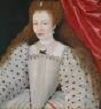


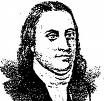









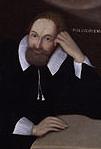
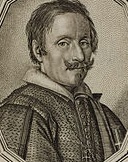




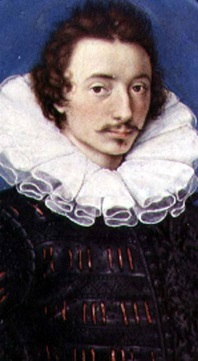
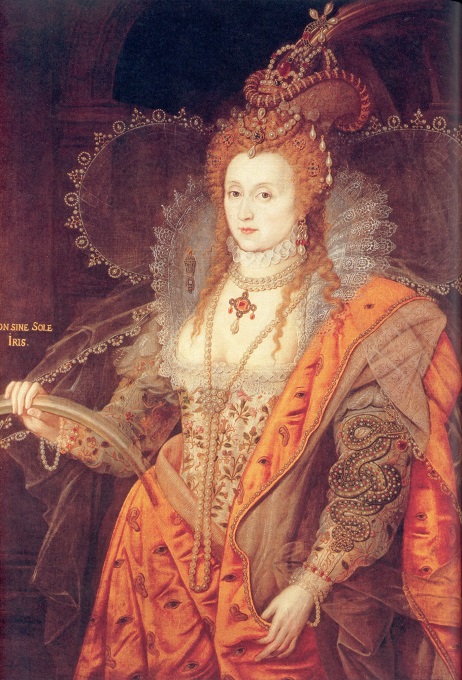
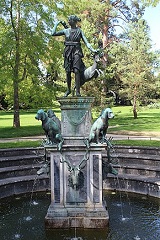
1602 There is a smallpox epidemic in England. On Jan. 3 the Northern Irish chieftains are defeated at the Battle (Siege) of Kinsale (Kinsala) (begun Dec. 24), effectively ending Tyrone's Rebellion (Nine Years' War) (begun Aug. 1594) and completing England's conquest of Gaelic Ireland after great cruelty is practiced on both sides, but since the English are on Irish soil they don't hesitate to destroy crops, cattle, and whole villages, and practice genocide, laying Munster and Ulster waste, causing starvation that kills more people than the war; after he destroys his own capital at Dungannon and hides in the woods as English forces under Lord Mountjoy approach, Hugh O'Neill holds out until next Mar. 31, seeing his leaders surrender one by one due to starvation. On Jan. 6 (Twelfth Night) (Feb. 2 - Candlemas night?), Shakespeare's play "Twelfth Night" is first performed in London, receiving its name. On Jan. 18 Robert Stewart is born to James VI and Anne, dying on May 27, leaving them with Prince Henry (b. 1594), Princess Elizabeth (b. 1596), and Prince Charles (b. 1600). On Mar. 20 the United East India Co. is founded by the states-gen. in Amsterdam, with the goal of stealing the spice trade from the Portuguese; it goes defunct on Dec. 31, 1799. On Mar. 24 the 2nd baron de la Warr (b. 1556) dies, and his son Thomas West (1577-1618) succeeds as the 3rd baron de la Warr, becoming known as Lord Delaware. On Apr. 9 the British East India Co. expedition of Sir James Lancaster VI (1554-1618) reaches the Nicobar Islands SE of the Bay of Bengal, then on June 5 reaches Achin (modern-day Aceh) on N Sumatra, defeating the local ruler and establishing an alliance, capturing and looting a large Portuguese galleon, then reaches Bantam (Banten) in W Java, where they establish their first factory and send a commercial mission to the Moluccas before turning back to England. On May 5 Spanish explorer Sebastian Vizcaino (Sebastián Vizcaíno) (1548-1624) departs from Acapulco with three ships, the San Diego, San Tomas, and Tres Reyes, reaching and naming San Diego Bay on Nov. 10, and continuing N, reaching and naming the Santa Barbara Channel Islands, Point Conception, the Santa Lucia Mountains, Point Lobos, the Carmel River, and Monterey Bay (Dec. 16) (named after New Spain viceroy Conde de Monterrey, overriding the name Bahia de los Pinos given it in 1542 by Juan Rodriguez Cabrillo, and the name Bahia de San Pedro given it in 1595 by Sebastian Rodriguez Cermeno), becoming the first to record the Monterey cypress forest at point Lobos; his cmdr. Martin de Aguilar becomes separated and continues N to Ore. as far as Cape Blanco (Coos Bay?); when they return they whip-up enthusiasm for settlement of Monterey, but a colonizing expedition is cancelled in 1608. On May 15 English explorer Bartholomew Gosnold (1571-1607) explores and names Cape Cod, and visits the Elizabeth Islands at the SW corner, incl. Martha's Vineyard, and visits and builds a small fort on Cuttyhunk Island, all of which pretty much makes him the discoverer of New England's coast?; he is visited by a delegation of 50 Indians in 9 canoes (incl. the father of Massasoit?), who sit on their heels "like greyhounds", enjoy all English foods offered except mustard, mimic English speech accurately, and give Gosnold a tobacco pipe to smoke; he harvests sassafras roots for use in treating syphilis and rheumatism, and abandons his fort after four Indians attack his men while foraging; he later becomes a capt. in Jamestown - they filmed "Jaws" where? In June the English under Sir Richard Leveson (1598-1661) capture a Portuguese treasure ship, bringing back memories of the days of Sir Francis Drake, but another expedition to plunder the Spanish coast brings back nothing - toodloo pip pip and farewell? In June an East India Co. fleet led by Sir James Lancaster VI (1554-1618) arrives in Achin (Aceh), Sumatra, defeating the local ruler and seizing and looting a large Portuguese galleon. On Nov. 8 the Bodleian Library, the first public library in Europe, meant to replace the Oxford U. library, which was destroyed in the middle of the 16th cent. in the reign of Edward VI, presented by English scholar-diplomat Sir Thomas Bodley (1545-1613), who purchased the books on the Continent for £10K officially opens; it is officially named by James I in 1604; Archbishop William Laud later donates 1.3K mss. in 20 languages, and Earl William Herbert of Pembroke chips in 250 vols. of Greek mss.; it later gets the right, along with the British Museum to receive a copy of every book pub. in England; too bad only Oxford U. faculty can use it - pip pip and all that bloody rot? On Dec. 11/12 (early a.m.) the inhabitants of Geneva defeat a surprise attack by the the Savoyards of Charles Emmanuel I, duke of Savoy at the Battle of the Escalade, insuring their independence. On Dec. 25 (Christmas) Queen Elizabeth I's health suddenly takes a turn for the worse. Abbas I leads Persia in a holy war against the Ottoman Turks with his brand new Euro-style army (ends 1627) - shopping or just looking? HRE Rudolf II suppresses meetings of the Moravian Brethren. Kara Yaziji dies, and the Jelali rebel groups switch leaders and continue their violent protest for much of the decade. Charles de Gontaut, Duc de Biron (b. 1562), son of famous French marshal Armand de Gontaut, who became admiral in 1592, marshal in 1594, duke in 1598, and gov. of Burgundy gets too big for his breeches and is beheaded in the Bastille for conspiring to overthrow the king. Need a pickup, tighten up y'all? England gets a scare when 28-y.-o. old maid Arbella Stewart (Stuart) (1575-1615), cousin of James VI of Scotland tries to marry William Seymour, 2nd Duke of Somerset (1588-1660), grandson of Edward Seymour, 1st earl of Hertford and his wife Katherine Grey, sister of Lady Jane Grey (whose marriage was declared invalid), creating a royal heir just as Elizabeth I is about to kick off and everything is up for grabs, but Seymour tips Elizabeth off, causing her to come down on Arbella's grandmother-guardian Bess of Hardwick, who puts a stop to it and stifles a runaway attempt. While traveling abroad to prepare for a diplomatic career, Sir Henry Wotton (1568-1639) discovers a plot to murder James VI of Scotland while living in Florence, and he sails back to Scotland via Norway under the alias Ottavio Baldi to warn him, receiving a warm welcome at court and receiving a knighthood when James VI becomes king James I of England; in 1604 he begins a career as a diplomat (ends 1621), spending most of his time in Venice; in Augsburg, Germany in 1604 he utters the soundbyte: "An ambassador is an honest gentleman sent to lie abroad for the good of his country" (Legatus est vir bonus peregre missus ad mentiendum rei publicae causa); too bad, in 1611 his enemy Caspar Schoppe (1576-1649), a virulent anti-Protestant pub. "Ecclesiasticus Auctoritati Jacobi Regis Oppositus", which twists the meaning of "lie abroad" to cast aspersions on James I's morals, but he patches things up and his career goes on. Imperial Magyar-hating gens. Giorgio Basta (1544-1607) and Giacomo Belgiojoso begin ravaging Transylvania, pissing-off Transylvanian noble Stephen Bocskay (1557-1606), who flip-flops to the side of the Turks, who help him fight the bums. Spanish traders are admitted to E Japan. Sick of all the deaths from this popular pastime, Henri IV of France issues an edict making participation in a duel punishable by death, although not surprisingly that doesn't stop them. Say hello to G6, one of the fastest growing brands in America? 12-y.-o. William Bradford (1590-1657) of Austerfield, Nottinghamshire, England (50 mi. S of York), who had lost his family and was living with two uncles, and suffering with a "long sickness" which kept him from farm work and turned him into a Bible-thumper, causing him to become dissatisfied with the Anglican Church starts attending services in Scrooby a few mi. to the S in N Nottinghamshire (on the Ryton River) at the home of postmaster William Brewster (1566-1644), with sermons given by young minister John Robinson (1576-1625); they call themselves Separatists, based on the Bible text "Come out among them and be separate". The Portuguese are expelled from Bahrain (since 1521) by Abbas I of Persia, who forces the pop. to convert to the Shiite sect of Islam. Savoy-born Jesuit (St.) Francis de Sales (1567-1622), the champion of the Counter-Reformation, known for his numerous "Controversies" or leaflets claiming to prove the truth of the Roman Catholic faith becomes bishop of Geneva, becoming the leading Catholic supermodel for the next 20 years. The ever-popular 13th cent. Legend of the Wandering Jew first appears in Germany, about a Jew named Ahasuerus, who refused to allow Christ to rest at his door as he bore his cross toward Cavalry, and is condemned to forever wander the Earth until he returns. Architecture: The Ambrosian Library (Biblioteca Ambrosiana) in Milan is founded by Cardinal Federigo Borromeo (opens 1609). Spanish Jesuit missionary to China (since July 20, 1597) Father Diego de Pantoja (Didaco Pantoia) (1571-1618) writes a work on Chinese etiquette, with the soundbyte: "When they have ended their salutations, they straightway cause a drink to be brought, which they call ch'a, which is water boyled with a certaine herbe, which they much esteeme... and they must drink of it twice or thrice." Henry IV of France has Leochares' 325 B.C.E. Statue of Diana (Artemis) removed from Fontainebleau and mounted in a special gallery in the Palais du Louvre, then has Barthelemy Prieur cast a bronze replica and set it upon a high Mannerist marble pedestal, which is turned into a fountain by hydraulics engineer Tommaso Francini in 1603, featuring bronze hunting dogs pissing water and stag heads spitting water, sculpted by Pierre Biard, and located in the Jardin de la Reine in a parterre surrounded by an orangery. Science: Galileo investigates the laws of gravitation and oscillation (until 1604). Italian alchemist Vincenzio Cascariolo of Bologna discovers heavy spar (barium sulfate). Nonfiction: Thomas Blundeville (1522-1606), The Theoriques of the Seven Planets. Tycho Brahe (1546-1601), Astronomia Instauratae progymnasmata (posth.) (ed. by Johannes Kepler); gives plans of 777 fixed stars. Thomas Campion (1567-1620), Observations on the Arte of English Poesie; a physician says ditch rhyme for rhymeless quantitative classical verse, which is more suited to the genius of the English language? Richard Carew (1555-1620), Survey of Cornwall. Jan Gruter (1560-1627), Lampas, Sive Fax Artium Liberalium (7 vols.) (1602-34). Conrad Kircher, A Concordance to the Septuagint. Cesare Negri (1535-1605), La Grazie d'Amore; dance manual; first text on ballet to expound the principle of the five positions; revised ed. pub. in 1604 as "Nuove Inventioni di Balli" (New Inventions of the Dance). Archbishop Matthew Parker (1504-75) (ed.), The Bishops' Bible; rev. of 1568 and 1572 ed.s; used to create the King James Version (1611). Matteo Ricci (1552-1610), Diego de Pantoja (1571-1618) et al., Zhifang Waiji (Chronicle of Foreign Lands); China's first global atlas, incl. the Kunyu Wanguo Quantu (Map of the Myriad Countries of the World), China's first world map. John Willis, The Art of Stenographie. Art: Giovanni Baglione (1566-1643), Sacred Love and Profane Love (The Divine Eros Defeats the Early Eros) (1602-3); prime example of chiaroscuro (light-dark) technique, showing Sacred Love (an angel) interrupting the Devil during sodomy with Profane Love (Cupid); the Devil has the face of his arch-enemy Caravaggio (1571-1610), whom he got expelled from Rome with his accusations. Michelangelo da Caravaggio (1571-1610), Doubting Thomas; St. John the Baptist. Isaac Oliver (1556-1617), The Rainbow Portrait of Queen Elizabeth I. Music: Giulio Caccini (1551-1618), Le Nuove Musiche (New Music) (July) Florence); collection of monodies and songs for solo voice and basso continuo, containing 12 madrigals and 10 aria; incl. Amarilli Mia Bella. Lodovico Grossi da Viadana (1564-1627), Cento Concerti con il Basso Continuo (Venice); the hot new technique of Basso Continuo and its notational method (figured bass), which comes to England as the Thoroughbass system, using figures to denote chords, and becoming universal in the Baroque period. Hans Leo Hassler (1564-1612), Lustgarten (German lieder). Plays: Tommaso Campanella (1568-1639), The City of the Sun (Civitas Solis); a description of Utopia; written in, er, prison in Naples. Henry Chettle (1560-1607), Tragedy of Hoffman, or a Revenge for a Father. Sir David Lindsay, Ane Pleasant Satyre of the Three Estaitis (posth.). John Marston (1576-1634), The History of Antonio and Mellida; Antonio's Revenge (melodramas). John Marston and Thomas Dekker (1572-1632), Satiromastix; satirical comedy attacking Ben Jonson for his 1601 "Poetaster", becoming known as the "Poets' War". Poetry: Nicholas Breton (1545-1626), The Soules Harmony; Olde Madcappe Newe Gaily Mawfrey; The Mother's Blessing; A True Description of Unthankfulnesse. Sir John Davies (1569-1626),Ten Sonnets to Philomel; Yet Other Twelve Wonders of the World; A Lottery; A Contention betwixt a Wife, a Widow and a Maid. John Davies of Hereford (1565-1618), Mirum in Modum, a Glimpse of God's Glory and the Soul's Shape. Lope de Vega (1562-1635), La Hermosura de Angelica (epic). Births: French philosopher-poet-physician (ex-Jesuit) Franciscus van den Enden (d. 1674) (AKA Affinius) on Feb. 5 in Paris; teacher of Baruch de Spinoza (1632-77). Italian Baroque composer Francesco Cavalli (Pietro Francesco Caletti-Bruni) (d. 1676) on Feb. 14 in Crema, Lombardy. English royalist Edward Somerset, 2nd Marquess of Worcester, Earl of Glamorgan (d. 1667) on Mar. 9 (1603?); son of Henry Somerset, 1st marquess of Worcester (-1646) and Anne Russell. Spanish discalced Franciscan Conceptionist nun Maria Fernandez Coronel, Abbess of Agreda (Sister Maria de Jesus) (the Blue Nun) (d. 1665) on Apr. 2 in the Navarre-Aragon border. English astrologer (astronomer) William Lilly (d. 1681) on May 1 (Taurus); Sidrophel in Samuel Butler's "Hudibras". French statesman-cardinal Jules (Giulio) Mazarin (Mazarini) (d. 1661) on July 14 in Pescina, Naples, Italy; Sicilian parents; becomes a French subject in 1639, and cardinal in 1641. English military leader Algernon Percy, 10th Earl of Northumberland, 4th Baron Percy (d. 1668) on Sept. 29 in Petworth; eldest son of Henry Percy, 9th earl of Northumberland (1564-1632) and Dorothy Percy (nee Devereux), countess of Northumberland, daughter of Walter Devereux, 1st earl of Essex and sister of Robert Devereux, 2nd earl of Essex. German physicist-politician Otto von Guericke (d. 1686) on Nov. 30 (Nov. 20 Old Style) in Magdeburg. English Protestant "angels on the head of a pin" theologian William Chillingworth (d. 1644). English judge John Bradshaw (d. 1659) in Wybersley Hall, High Lane (near Stockport), Cheshire. English maj.-gen. (Oliver Cromwell's cmdr.) Edward Montagu, 2nd Earl of Manchester (d. 1671); educated at Sidney Sussex College, Cambridge U. Mass. colonist Samuel Maverick (Mavericke) (d. 1670) in England; son of Anglican priest John Maverick, who emigrates to Mass. in 1630; brother of Moses Maverick (1611-86). English royalist gen.-chemist-poet William Peckenridge, 1st Duke of Omnium (d. 1671); dir. of the League of Extraordinary Gentlemen. :) French (Flemish) portraitist (Jansenist) Philippe de Champaigne (Champagne) (d. 1674) in Brussels; official painter of Marie de' Medici; known for his portrait of Richelieu. French diplomat-marshal Caesar (César), Duc de Choiseul, Comte du Plessis-Praslin (d. 1675); his cook invents the sugar-almond confection praline. English regicide MP Sir Henry Marten (d. 1680) in Oxford; eldest son of Sir Henry Marten the Elder (1562-1641); educated at Univ. College, Oxford U; created duke in Nov. 1665. English Mayflower Pilgrim Priscilla Alden (nee Mullins) (d. 1685 in Dorking, Surrey. Deaths: French poet Jean Passerat (b. 1534) on Sept. 14. Spanish navigator Juan Fernandez (b. 1536); dies after trying unsuccessfully to establish a colony on the Juan Fernandez Islands. Italian architect Giacomo della Porta (b. 1537). Italian painter Agostino Carracci (b. 1557) on Mar. 22. French architect Baptiste Androuet du Cerceau (b. 1560). Portuguese explorer Sebastian Rodriguez Cermeno (b. 1560). Irish king of Tyrconnell (1592-1602) "Red" Hugh Roe O'Donnell (b. 1572) on Sept. 10 in Simancas Castle, Valladolid, Spain.


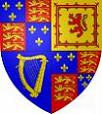




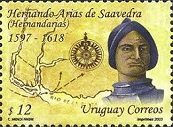



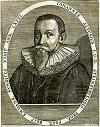

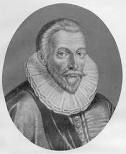

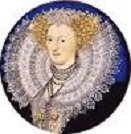


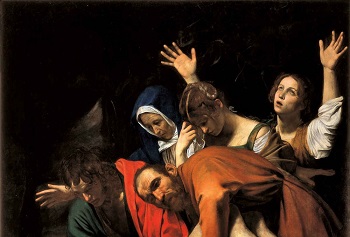


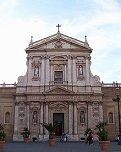


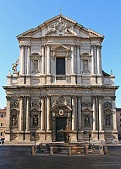
1603 Pop. of London: 210K (vs. 200K in 1583); the London govt. begins its own tally of births and deaths independent of churches. A famine in Russia kills tens of thousands, causing Tsar Boris Gudonov to distribute grain from palace granaries. On Jan. 17 Elizabeth I dines with Lord Thomas Howard at the Charterhouse, and creates him Lord Howard de Walden, then on Jan. 21 moves her court from Whitehall to "her warm winter box" of Richmond Palace in Surrey on the Thames River (which later becomes known for Pen Ponds in Richmond Park, which hosts open-air ice-skating), wearing summer clothes in the cold weather, and telling Lord Nottingham, "My seat hath been the seat of kings, and I will have no rascal to succeed me; and who should succeed me but a king?"; on Feb. 6 she makes her last public appearance, receiving Venetian envoy (first during her reign) Giovanni Carlo Scaramelli, supposedly to discuss curtailing English piracy in the Mediterranean, speaking to him in Italian and gloating about scoring a coup against the pope by getting the Doge to recognize her after 45 years; on Feb. 16 she okays a pardon for Tyrone, and attends the funeral of her cousin and closest female friend the Countess of Notthingham, daughter of Lord Hunsdon at Richmond, going into a depression and having to have her coronation ring sawed off after it becomes impacted, then writes to Henri IV of France that "All the fabric of my reign, little by little, is beginning to fail"; on Feb. 26 she delays a meeting with French ambassador de Beaumont; in Mar. she develops a fever, rallies on Mar. 11, relapses on Mar. 12, refuses medical treatment and food, lies on the floor on cushions in her clothes, develops pneumonia, and refuses to be put in bed, explaining that "If she once lay down, she would never rise"; on Mar. 17 after being lifted into a low chair, and being helped to rise, she remains standing for 15 hours, then is helped back onto her cushions, remaining for four more days in 3-week-old clothes, then on Mar. 21 finally takes to bed; meanwhile since she has no heirs, the rumors cause tons of people to head for Scotland to be with her cousin James VI when the good, er, bad news arrives. On Feb. 20 Sir James Lancaster's East India Co. fleet heads for England, and arrives on Sept. 11 with 278 of his original 460 men, becoming a hero and getting knighted by the new king; his cargo of 500 tons of pepper makes a big profit. On Mar. 15 French explorer Samuel de Champlain (1567-1635) arrives in North Am. on his first trip as an observer with a fur-trading expedition led by Francois Grave (Gravé) Du Pont (1560-1629), exploring the St. Lawrence River as a possible route to China and creating a map of it, then returning to France on Sept. 20 and writing a report for King Henri IV (his father?). On Mar. 24 (Thur.) (before 3 a.m.) English queen (since Nov. 17, 1558) "Gloriana", "the Virgin Queen" Elizabeth I (b. 1533), stricken with grief over the execution of Essex and/or her close friend the countess of Nottingham dies peacefully in bed at Richmond after a bunch of woo woo woo stuff and giving her soul to Jesus, lying on her back with her face to the wall "mildly like a lamb, easily, like a ripe apple from a tree, as the most resplendent sun setteth at last in a western cloud" (her chaplain Dr. Parry); she dies after viewing William Shakespeare's Hamlet, which debuted earlier in the year; at her death there is not a single known English colonist in the New World (except possibly the lost colonists of Roanoke, who went injun); she leaves after 45 years on the throne (118 total for the Tudors), causing Scottish king (since 1567) James VI, only son of Elizabeth I's murdered rival Mary Stuart, Queen of Scots to be proclaimed king; after Sir Robert Carey, 1st Earl of Monmouth (1560-1639) (the man who broke the Border Reivers) makes a record-breaking ride N, he reaches Holyrood on the evening of Mar. 26 to carry the news to him, and after hastily preparing a magnificent progress (sparing no expense), and attending a service in the Church of St. Giles where he tells the sad crowd that he isn't abandoning them but will return every three years (actually he only returns for a short time in 1617), on Apr. 5 James VI leaves Holyrood with cannons blazing accompanied by a merrymaking procession, heads to Lord Hume's house in Dunglass, crosses the border to Berwick, putting on a great show as he is greated by crowds in every village and hamlet along the way, then arriving in London on May 7 to a great warm reception a few days after a plague arrives, being presented with the Millenary Petition signed by 1K Puritan ministers asking for the reform of abuses and elimination of all Roman Catholic ceremony from the Anglican Church, incl. the signing of the cross during baptism, confirmation, administration of baptism by lay persons, bowing at the name of Jesus, use of the surplice and cap, use of the pagan ring (Saturn?) in marriage, and the practice of giving men multiple paid ecclesiastical positions; on July 25 he is crowned James I (1566-1625) of (at his insistence) "Greater Britain" (until Mar. 27, 1625) (the 44th British monarch), causing the Union of the Crowns, ending the Tudor Dynasty, and beginning the Stuart Dynasty (ends 1714); Scotland has now had 63 kings and one queen (Mary Stuart, Queen of Scots) in an unbroken line, all being titled king or queen of Scots, not Scotland; Liz leaves him a £400K debt, having sold off many of her lands to avoid increasing taxes; a lifelong believer in the Divine Right of Kings who wants to be known as "Rex Pacificus" (peacemaker king), he seeks to end the Roman Catholic-Protestant feud along with all wars with Spain and France, and effect a "stealth union" of England and Scotland, saying that the lack of a visible natural border proves that God intended it, then fills his inner circle with Scots while granting an amnesty in Ireland, going on to rule Scotland with "government by pen", sending written orders to his privy councillors in Edinburgh (setting up the first mail service between London and Edinburgh) while making his Scottish nobles visit him by traveling the Great North Road (after too many visits piss-off the English, he limits the visits by issuing passports); in 1606 the Union Jack (Lat. "Jack" = James) (originally just called the British flag) is designed, consisting of a red English cross on a blue-white Scottish background, bringing the British lion and the Scottish unicorn together (which is considered a bad omen as the two beasts are supposed to be mortal enemies, and the unicorn is untameable except by a virgin, and he's no Virgin Queen); Scots believe that he's just turning Scotland into a 2nd class appendage of England, something they fought for cents. to avoid, and begin grumbling about being run from distant London, while James I surrounds himself with Scots on the make, causing upper class English on the make to grumble; the Jacobean Age (Era) begins (ends 1625); James I orders Fotheringhay Castle (where his mommy was beheaded) demolished, and in 1612 moves her remains from Peterborough Castle to Westminster Abbey, where she is reinterred in a far more splendid tomb than her cousin Elizabeth I, with the two queens, who never laid eyes on each other, so situated that they cannot see each other even in death; James' Lutheran-raised wife Anne of Denmark (1574-1619), who converted to Roman Catholicism in the 1590s causes embarrassment at the coronation by refusing Anglican communion; after being temporarily parted for the Union of the Crowns he tells her, "I ever preferred you to all my bairns [rugrats]"; now that he's king of a real country, he begins elevating local Scottish lairds to the peerage to control the pesky nobles he doesn't trust, devaluing all Scottish titles; thinking the Gaelic segment of his pop. to be backward savages, in 1609 he gets the Statutes of Iona passed, forcing the Highland chiefs to send their heirs to Lowland Scotland to get an English Protestant education, and puts out a hit on the MacGregor clan, ordering them outlawed by "fire and sword", hunted and executed like animals (luckily, some survive after being harbored by Highland sympathizers); having decided to call the amalgamated kingdom Greater Britain, he renames the Scottish borders "Middle Shires" and pacifies them by exiling captured rebels to Ireland, pissing-off the Irish; he never pacifies the Highlands, which remain pesky for the next two cents.; he attempts to anglicize the Scottish elite, causing poet William Drummond to switch from writing in Scots to English, the ascendancy of English dramatists being a powerful convincer?; shortly before his coronation Lord Henry Howard and Robert Cecil, 1st Earl of Salisbury warn the king about the Diabolical Triplicity of Henry Percy, 9th Earl of Northumberland (1564-1632) (an apparent Protestant, despite the Percy family's Roman Catholic roots, known as Wizard Percy for his great wealth and scientific learning), Sir Walter Raleigh (1554-1618), and Henry Brooke, 11th Baron Cobham (1564-1618), suggesting that they dabble in the occult and that Percy plans to marry pesky Arbella Stuart, which doesn't stop Percy from being appointed to the Privy Council, until the 1605 Gunpowder Plot causes him to be accused of complicity with his Roman Catholic relative Thomas Percy and imprisoned in the Tower of London for 17 years. On Mar. 31 after offering to end his rebellion if Elizabeth I will spare his life and return his earldom, Hugh O'Neill signs the Treaty (Articles) of Mellifont with the stankin' English at the Cistercian Mellifont Abbeyin, surrendering his tribal authority; the Tyrone Revolt (Nine Years' War) in Ireland (begun Aug. 1594) ends, along with the old Gaelic Law and Order, insuring English occupation for the next 320 years; the Census of the Fews, the earliest Irish census is pub. after the Fews clan is pardoned; the Anglican Church attempts to extend its sway over all of Ireland, fighting the ancient Celtic church, which clings to the Roman Catholic Church, and which is backed by the Celtic pop. of the island and the majority of the pop. of the Pale, resulting in the Anglican Church being used by the English rulers in Dublin Castle as their political tool. In the spring English explorer (from Bristol) Martin Pring (1580-1646) sets out with backing from Bristol and Sir Walter Raleigh to explore the N parts of Va. in his 60-ton flagship Speedwell (not the same ship used by the Pilgrims in 1620) and 13-ton escort ship Explorer, making first landfall in June at Penobscot Bay in Maine, then heading W to the Saco, Kennebunk, and York Rivers, then up the Piscataqua River, where they encounter the Abenaki and set dogs on them to capture specimens to bring back to Europe; after failing to find the fabled ague (sassafras) tree (source of the elixir of life), they reach Cape Cod at the mouth of the Pamet River, and build a fort below Cornill near modern-day Truro on the N part of the fishook, finding and harvesting sassafras but finding no Indians, only a birch bark canoe (which they bring back to Europe), after which they leave in late July. In Apr. Kabuki (Jap. "sing dance skill"") (a play on the word "kabuku", meaning shocking, forward-leaning, or avant-garde) theater begins in Kyoto, Japan at the Kitani Shrine with a troupe of women led by shrine virgin Izumo no Okuni of Izumo Taisha; the first actors are women, usually hos, playing male and female roles in erotic dances to get johns to pay for them; after women are banned in 1629, young males take their place, but after they turn into male hos, they too are banned in 1652, leaving only mature men to do the boring crap and audiences to pretend they're there only for the artistic value?; actors use a white face paint made from nightingale droppings. On May 19 James I "licences and authorizes" Elizabeth I's Lord Chamberlain's Men, who are renamed the King's Men, and perform at the English royal court more than any other company, giving almost 200 performances in the next 10 years, modulo a little self-censorship to avoid boring or shocking kingey. On July 19 after the Main Plot (dethronement of James I and replacement by cousin Arbella Stuart) is uncovered, naughty Henry Brooke, 11th Baron Cobham (1564-1618) and Sir Walter Raleigh (1552-1618) are arrested on charges of treason against James I and canned in the Tower, tried under commissioner Henry Howard, 1st earl of Northampton, found guilty and sentenced to death, then reprieved 24 hours before the scheduled execution, spending the next 13 years there (until 1616) (1618 for Cobham), where Raleigh proceeds to research in alchemy and write The History of the World (1614) - that kind of drudgery is for those with no life such as prisoners or failed fiction writers? On Aug. 25 Ahmed I al-Mansur (b. 1549), emir of Morocco dies of the plague in Fez, and his kingdom splits into two parts, based in Marrakech and Fez. On Nov. 29 Roman Catholic priest William Clark (b. 1568) is executed in Winchester, followed on Dec. 9 by fellow priest William Watson (b. 1559) for treason in the crazy Bye Plot (Treason of the Priests) against James I by disaffected Roman Catholics pissed off at his not keeping his pledge of tolerance, and plotting to kidnap him in Greenwich until he agrees to make good; too bad, Jesuit Father Henry Garnet (Garnett) (1555-1606) (a Catholic convert, who became a Jesuit in 1575) tips off the govt. to stop retribution against all Catholics, so only the clergy get the axe next year (forced emigration); Garnet is executed in 1606 for involvement in the Gunpowder Plot. On Dec. 22 sultan (since 1595) Mehmed III (b. 1566) dies, and his 13-y.-o. eldest surviving son Ahmed (Ahmad) I (1590-1617) becomes Ottoman sultan #14 (until Nov. 22, 1617); Mahomet's mother Sophia Baffo (b. 1550), who had ruled the Ottoman Empire behind the scenes is strangled in bed in 1605?; Ahmed is deeply religious and cracks down on wine consumption. In Dec. bubonic plague kills 33K in London (25% of the pop.), causing the theatres to be closed - an omen? In the winter Galileo Galileo visits the court of Duke Vincenzo I Gonzaga of Mantua and haggles about a position there, but after they can't agree on the terms he is presented with a gold chain and two silver dishes, and leaves. Shah Abbas I of Persia begins reconquering Azerbaijan and the Caucasus from the Ottomans (ends 1612); meanwhile Janissary officer Muhammad al-Tawil (d. 1607) leads an anti-Ottoman revolt in Baghdad (ends 1608). Revolts begin in Transylvania against HRE Rudolf II. A rabinnical conference in the #1 German Jewish town of Frankfurt to establish laws over Jewish civil affairs pisses-off HRE Rudolf II, who calls them treasonous, and withdraws imperial protection, allowing pogroms to be staged on Jewish communities throughout Germany until they pay a large fine in 1631 to the archbishop of Cologne. Barom Reachea IV (Srei Soriyopor) (-1618) becomes king of Cambodia (until 1618). Henri IV recalls the Jesuits to France - anything to do with the death of the English virgin queen? James I restores traitor Philip Howard's earldoms to his son Thomas Howard (1585-1646), along with the baronies of his grandfather Thomas Howard, 4th duke of Norfolk, making him 21st earl of Arundel and earl of Surrey, and he wisely decides to fork politics for art collecting, since he's loaded with dough, collecting the Arundel Marbles, the first large collection in Britain - sharing a drink called bitterness is better than drinking alone? The Brits establish a base at Bantam in NW Java. English merchant John Mildenhall (Midnall) (1560-1614) reaches India via Isfahan, Kandahar, and Lore, and appoints himself English ambassador to Mughal emperor Akbar the Great in Agra. Hernando Arias (Hernandarias) de Saavedra (1561-1634), Spanish gov. of Rio de la Plata in 1597-9 and 1602-9 ships some cattle and horses downstream to Asuncion, Paraguay, and they end up running wild, growing into large herds and becoming game for gauchos from Buenos Aires; meanwhile drought-stricken NE Brazil receives relief food from Philip III. The Mermaid Tavern in London is founded by Sir Walter Raleigh, and is frequented by lit. wits incl. William Shakespeare (1564-1616), Ben Jonson (1572-1637), Francis Beaumont (1584-1616), John Fletcher (1579-1625), John Donne (1572-1631) et al. A law is passed in Cologne, Germany requiring breweries to only brew top-fermented beers. Samuel Daniel is appointed master of the English queen's revels, causing him to begin cranking out masques and pastoral tragicomedies. The Accademia dei Lincei is founded in Rome, Italy. Architecture: Ticino, Italy-born architect Carlo Maderno (Maderna) (1556-1629) finishes the pioneering Baroque facade for the Church of Santa Susanna at the Baths of Diocletian, causing Pope Paul V to appoint him chief architect of St. Peter's Basilica in Rome; he also designs Apostolic (Papal) Palace of Castel Gandolfo, built 27 mi. SE of Rome at Castelli Romani in Latium overlooking Lake Albano as the papal summer residence, and begins the Baroque facade of St. Peter's Basilica (finished in 1612), complete with a balcony over the door for papal blessings, extending the nave of the church to change it from a Greek to a Latin cross; in 1608 he designs the facade and dome of the Baroque Church of Sant'Andrea della Valle in Rome, which is not completed until 1650, becoming the 3nd largest dome in Rome after St. Peter's and the Pantheon. Flaminio (Sp. "Roman priest") Ponzio (1560-1613) builds the Palazzo Pallavicini-Rospigliosi in Rome. Inventions: Bolognese alchemist Vincenzo Cascariolo discovers Lapis Solaris, a heated mixture of powdered barite (heavy spar) (barium sulfate) and coal that gives off a bluish glow at night and is recharged by exposure to sunlight, pioneering the study of luminiscence; thinking it's the fabled Philosopher's Stone that turns inferior metals to gold, he starts the myth of the Bologna Stone. German Jesuit astronomer Christoph Scheiner (1575-1650) invents the Pantograph (Gr. "pant" + "graph" = all/every + write) for reproducing enlarged or reduced maps and drawings; he doesn't pub. the invention until 1631 - without fishing your socks from the bottom of the sheets? Nonfiction: Johannes Althusius (1563-1638), Politica Methodice Digesta, Atque Exemplis Sacris et Profanis Illustrata (Politics Methodically Digested, Illustrated with Sacred and Profane Examples); a grammar of politics, pioneering the concept of federalism, "a pluralized yet shared system of governance". Fabricio di Acquapendente of Padua (1533-1619), De Venarum Ostiolis; contains the first clear drawings of the valves in the veins, but mistakenly believes their function is to counteract the effects of gravity. Johann Bayer (1572-1625), Uranometria (Augsburg); first star atlas to cover entire celestial sphere; names the Southern Cross (Crux). Johannes Buxtorf (1564-1629), Synagoga Judaica; exposes the customs and society of German Jewry to the goyim. Samuel de Champlain (1567-1635), Concerning the Savages (Forest Dwellers): or the Travels of Samuel Champlain of Brouages in New France in the Year 1603. Thomas Craig (1538-1608), Jus Feudale; an attempt to reconcile the laws of England and Scotland, it fails and ends up solidifying Scottish law as a separate system; next year he refuses a knighthood from James I. Samuel Daniel (1562-1619), A Defence of Rhyme; reply to Thomas Campion's 1602 "Observations on the Art of English Poesie" - the original Robin Williams in Dead Poets Society? John Florio (1553-1625) (tr.), Essayes on Morall, Politike, and Militarie Discourses of Michaell de Montaigne (3 vols.); 2nd ed. in 1613, dedicated to the English queen. Jan Gruter (1560-1627), Inscriptiones Antiquae Totius Orbis Romanorum (2 vols.) (Heidelberg). Sir John Hayward (1560-1627), A Treatise of Union of England and Scotland; An Answer to the First Part of a Ceraine Conference Concerning Succession; back at it after he gets out of priz, he tries to court James I's favor with arguments in favor of the divine right of kings like him. Richard Knolles, General Historie of the Turkes. Philip Henslowe (1550-1616), Diary (1592-1603). Thomas Middleton (1580-1627), The Penniless Parliament of Threadbare Poets; written while the plague closes the London theaters; a continuation of Thomas Nashe's "Pierce Penniless". Henry Timberlake (1570-1625), A True and Strange Discourse of the Traveiles of Two English Pilgrimes; a Protestant ship captain from London journeys to Jerusalem with fellow Englishman John Burrell, who befriend a Muslim from Fez, Morocco in Mamre (near Hebron), who saves their lives; a big hit, but its positive account of a Muslim and of a Franciscan hospice gets him ridiculed in a caricature. Art: Annibale Carracci (1560-1609), The Flight into Egypt (1603-4). Michelangelo da Caravaggio (1571-1610), St. Matthew and the Angel; The Entombment of Christ. El Greco (1541-1614), St. Bernardino. Peter Paul Rubens (1577-1640), The Battle of the Standard; the 1440 Battle of Anghiari, copied from a 1558 engraving by Lorenzo Zacchia, which he copied from "the Lost Leonardo". Music: Jean-Baptiste Besard (1567-1618), Thesaurus Harmonicus (lute music). Claudio Monteverdi (1567-1643), Fourth Book of Madrigals. Thomas Robinson, School of Musicke. Plays: Sir William Alexander (1567-1640), Darius. Thomas Dekker (1572-1632), The Magnificent Entertainment Given to King James (Mar. 15) (London). Ben Jonson (1572-1637), Sejanus (tragedy); The Satyr (The Entertainment at Althorp) (June 25); performed for queen consort Anne of Denmark and her son Prince Henry at the Spencer family's Althorp estate in Northamptonshire; first royal masque for the court of King James I. William Shakespeare (1564-1616), Measure for Measure (comedy) (Vincentio has 820 lines, 7th most); based on "Promos and Cassandra" by George Whetstone; the title is an allusion to Christ's Sermon on the Mount ("With what measure yet mete, it shall be measured to you again"); the first play Shakey writes after giving up acting?; Duke Vicentio of Vienna and dickteaser Isabella, Isabella's brother Claudio and Juliet, Angelo and Mariana, ducal advisor Escalus, rogue ("fantastic") Lucio and the whore Kate Keepdown, condemned murderer Barnardine; Vienna is a hotbed of lechery according to Duke Vicentio, so he entrusts supposedly pure Angelo to clean it up by enforcing a capital law against unmarried sex while pretending to leave town but actually disguising himself as a friar; Angelo condemns Claudio to death for doing it with his wife before marriage, causing his sister, wannabe nun Isabella to plead for him, but she's such a babe that he can't control his lusts and makes her decide between giving herself to him or having Claudio tortured, which she refuses even though Claudio says go for it; meanwhile he has rogue Lucio condemned for you know what with a whore; the disguised duke overhears it all and gets Angelo's past jilted lover Mariana to sub for Isabella in a bed trick, but Angelo orders Claudio executed anyway; happily, the duke gets the jailer to substitute condemned prisoner Barnardine for him, who refuses to be executed, then returns sansa disguise, straightens everything out, saves all the necks, and makes Angelo marry Mariana, Claudio marry Juliet, and Lucio marry his whore, then asks for Isabella's hand for himself, which she apparently consents to without saying anything?; "It is excellent to have a giant's strength, but it is tyrannous to use it like a giant" (Isabella) (2.2.107-9); "I swear I will not die today for any man's persuasion" (Bernardine) (4.3.59); "Haste still pays haste, and leisure answers leisure,/ Like doth quit like, and Measure still for Measure" (5.1.411); "What's mine is yours, and what is yours is mine" (5.1.539); The original "Look Who's Coming to Dinner"? William Shakespeare (1564-1616), The Tragedy of Othello, the Moor of Venice (1603-4) (tragedy) Othello has 860 lines, 6th most, and Iago 1,094, 4th most; set in the Ottoman-Venetian war over control of Cyprus, which became a Venetian possession in 1489 until the port city of Famagusta fell to the Ottomans in 1571 after a protracted siege; based on the short story "Un Capitano Moro" (A Moorish Captain) in Cinthio's (disciple of Boccaccio) "Hecatommithi"; Summary: black Venetian Gen. Othello the Moor and his way younger white Venetian wife Desdemona, daughter of Brabantio, who marries him because "she did pity them" (1.3.169); "demi-devil" villain Iago, 3rd in command to Othello, who resents his promotion over his head of Cassio ("motiveless malignity" - Samuel Taylor Coleridge) escorts them along with his wife Emilia on a little jaunt to Cyprus to kick Turk butt, poisoning his mind about her by framing her hooking up with Cassio, causing Othello to murder her, find out that he was tricked, and stab and kill himself, with the soundbyte "One that loved not wisely, but too well"; Desdemona's former beau Roderigo. "An old black ram is tupping your white ewe" (1.1.88); "Play the villain" (2.3.345); "O beware, my lord, of jealousy/ It is the green-eyed monster, which doth mock/ That meat it feeds on" (3.3.165-7); "I am declined into the vale of years" (3.3.265); "But this denoted a foregone conclusion" (Iago) (3.3.429-30); "Pride, pomp and circumstance of glorious war" (3.3.355); "I hate the Moor" (Iago). Poetry: Henry Chettle (1564-1607), England's Mourning Garment; elegy on Queen Elizabeth I. John Davies of Hereford (1565-1618), Microcosmos. Michael Drayton (1563-1631), The Baron's Wars; long form of "Mortimeriados" (1596). Sir Walter Raleigh (1552-1618), Cynthia, the Lady of the Sea; part of an elegy on Queen Elizabeth I. Novels: Thomas Dekker (1572-1632), The Wonderfull Yeare. Francisco Gomez de Quevedo (1580-1645), La Vida de Buscon (picaresque). Births: French statesman (Roman Catholic) Michel Le Tellier, Marquis de Barbezieux, Seigneur de Chaville et de Viroflay (d. 1685) on Apr. 19 in Paris; father of Francois-Michel le Tellier (1641-91) and Reims archbishop Charles-Maurice le Tellier (1641-1710). Dutch Calvinist pietist theologian Johannes Coccejus (d. 1669) on Aug. 9 in Bremen; educated at the U. of Hamburg, and U. of Franeker; student of Sixtinus Armama (1593-1629). Swedish artillery gen. ("father of modern artillery") Count Lennart Tortensson (Linnardt Torstenson) (d. 1651) on Aug. 17 in Forstenna, Vastergotland. Ethiopian emperor (1632-67) (black) Fasilides (Basilides) (d. 1667) on Nov. 20 in Magazaz; son of Susenyos I; father of Johannes I. English Mass. colonist Israel Stoughton (d. 1644); father of Salem witchcraft trial judge William Stoughton (1630-1701). Dutch navigator Abel Janszoon Tasman (d. 1659) in Lutjegast, Groningen; discoverer of Tasmania and New Zealand. French lutenist-composer Denis Gaultier (d. 1672) in Marseille. Dutch painter Aert van der Neer (d. 1677). Italian painter Pietro della Vecchia (Muttoni) (d. 1678)in Vicenza (Venice?). Am. Baptist leader ("the Father of Rhode Island") Roger Williams (d. 1683) in London; founder of the Baptist Church in Am. and Rhode Island. Deaths: Irish archbishop James Beaton of Dublin (b. 1473) on Apr. 24. Italian physiologist-botanist Andrea Cesalpino (b. 1519) on Feb. 23. English explorer Sir Ralph Lane (b. 1532) in Oct. in Dublin, Ireland (KIA). Flemish painter Martin de Vos (b. 1532). English Queen Elizabeth I (b. 1533) on Mar. 24 in Richmond Palace, Surrey; buried in Westminster Abbey: "Anger makes dull men witty, but it keeps them poor"; "To be a king and wear a crown is more glorious to them that see it than it is a pleasure to them that bear it"; "Princes transact business in a certain way, with a princely intelligence, such as private persons cannot imitate." Italian Jesuit writer Giovanni Pietro Maffei (b. 1533). English Puritan divine Thomas Cartwright (b. 1535) on Dec. 27 in Warwick, Warwickshire. French mathematician Francois Viete (b. 1540) on Feb. 23 in Paris. English court physician William Gilbert (b. 1544) on Nov. 30 (Dec. 10 Old Style) in London (plague). Moroccan sultan (1578-1603) Ahmad I al-Mansur (b. 1549) on aug. 25 in Fez (plague). English composer Thomas Morley (b. 1557). Ottoman sultan (1595-1603) Mehmed III (b. 1566) on Dec. 22.

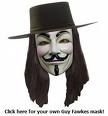
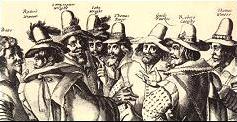






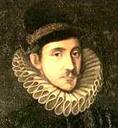

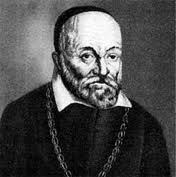
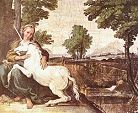
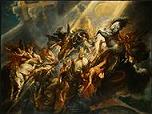
1604 In Jan. 18 former New Spain viceroy (1595-1603) Gaspar de Zuniga y Acevedo, Count of Monterrey becomes viceroy of Peru (until Mar. 16, 1606). In Jan. after deciding to order all Roman Catholic clergy to leave England for the Bye Bye Birdie Plot of 1603, James I declares Separatists (Independents) (Puritans) (some of whom want to leave England and create their own Bible-thumping state) to be troublemakers, with the soundbyte "I shall harry them out of the land"; too bad, he knows what they'll do if they leave, so he doesn't give them any help in leaving, refusing official permission for them to emigrate (Nunc Dimittis); changes are recommended in the English Book of Common Prayer, which James I approves in a proclamation on Feb. 9; meanwhile on Feb. 29 John Whitgift (b. 1530) dies, and in Nov. Richard Bancroft (1544-1610), arch-persecutor of Puritans and other dissenters (whom he treats as heretics and/or traitors) becomes archbishop of Canterbury (until Nov. 2, 1610). On Mar. 6 Sigismund III Vasa is officially deposed (de facto in 1599), and Gustav I's son Charles (Karl) IX (1550-1611) officially becomes king of Sweden (until Oct. 30, 1611), although he has been in control since 1599, officially making it Protestant; he is crowned on Mar. 15, 1607; his royal motto is "In Jehovah I Trust". On Mar. 19 (starts at 9:00 a.m., but kingy doesn't show up until 11:00 a.m.) the Hampton Court Conference (First Parliament) of James I convenes (ends Mar. 22), attended by 12 Anglican and four Puritan prelates takes up the Puritan complaints, only to see James I stick with the establishment of the Anglican Church; Puritan Corpus Christi College pres. ("the Most Educated Man in England") John Rainolds (1549-1607) personally asks the king to commission a new Bible trans., and despite opposing it for personal enmity's sake, new Canterbury archbishop Richard Bancroft becomes the chief boogie-woogie bugle boy overseer of the King James Bible trans. project, which is launched in a few mo.; esoteric philosopher-physician Robert Fludd (1574-1637), who had been called to Marseilles in 1602 as personal tutor to the sons of Henry of Lorraine incl. Duke Charles of Guise is one of the translators; James I restores Elizabeth I's Recussancy Acts, with more persecution of English Roman Catholics, incl. expulsion of Spanish Armada-loving Jesuits and seminary priests; the Witchcraft Act of 1604 gives 'em 'ell, making witchcraft a felony to remove defendants from the jurisdication of the ecclesiastical courts, with burning at the stake replaced in most cases by hanging; James I issues a writ for the ecclesiastical convocation, which adopts new canons that are so anti-Puritan that 300 clergymen leave their livings rather than conform; James I (known for his thick Scottish brogue) proposes a union between and England and Scotland, which is shrugged off, and on Aug. 28 (Aug. 18 Old Style) signs the Treaty of London (Somerset House Treaty) with Roman Catholic Spain, causing Henri IV of France to utter the soundbyte that he's "the wisest fool in Christendom"; meanwhile Henri IV sends the Duke of Sully to England to compliment James I on his new crown, but when he raises the flag of France in his boat in the Channel, British adm. Robert Mansell shoots it down, pissing-off the duke and causing him to raise a stink in James I's court, which gets nowhere as the English pop. think the act was cool since it shows who owns the four seas. In the spring Samuel de Champlain makes his 2nd voyage to the New World on an expedition led by Protestant fur trader Pierre du Guast (Gua), Sieur de Monts (1558-1628), who was given a royal monopoly to colonize Acadia by Henri IV last year, and charts the coast of Acadia (Nova Scotia). Too many cooks spoils the broth? In May after English Roman Catholics turn against James I and his Scottish retainers in London for false promises of tolerance, soldier of fortune (who participated in the 1596 capture of Calais by the Spanish) Guy Fawkes (1570-1606) meets with Robert Catesby (1573-1605) (the orginator) and Thomas Percy (1558-1605) (ancestor of Barbara Bush nee Percy?) at the Duck and Drake Inn in the fashionable S trand district of London to hatch a most explosive Roman Catholic plot to blow up Parliament during James I's state opening of it on Nov. 5, 1605 using 2.5 tons of gunpowder and a cool white mask, then assassinate James I and put his daughter Elizabeth Stuart (1596-1662) (later Queen Elizbeth of Bohemia) on the English and Scottish thrones as a Roman Catholic monarch after kidnapping her from Coombe Abbey in Warwickshire; other conspirators incl. Catesby's cousin Robert Wintour (1565-1606) and his brother Thomas Wintour (1572-1606), Thomas Bates (1570-1606), John Wright (1568-1605) and his brother Christopher Wright (1570-1605), Robert Keyes (1565-1606), Francis Tresham (1567-1605), John Grant (1570-1606) (lord of the manor of Norbrook near Stratford-upon-Avon), Ambrose Rokewood (1578-1606); meanwhile (as a cover story?), Pope Clement VIII officially requests that English Catholics refrain from rebellion. In the summer "Baby Charles" (b. 1600), duke of Albany, left behind in Scotland because of his frailness becomes stronger and is sent to Windsor, where he is raised by Sir Robert and Lady Carey; next year he is created duke of York, followed by knight of the garter in 1611; meanwhile his old guardian Lord Fyvie becomes Scottish chancellor. On Sept. 20 the Spanish capture the Dutch city of Ostend after a 3-year siege (begun 1601). On Oct. 24 James I is proclaimed king of Great Britain, Scotland, and Ireland. On Nov. 1 William Shakespeare's Othello debuts at London's Whitehall Palace after the theatres are allowed to open - no hidden political messages in this safe one that teaches that interracial marriage doesn't fly and a white woman who chooses a black man is not a chooser but a loser? Is the whole Shakespeare corpus a conspiracy to create a secular Bible foisting white supremacy into the British consciousness forever? Polish and Cossack-backed False Dmitri I invades Russia along with thousands of supporters, but is defeated by Tsar Boris Godunov. Peace is declared between England and Spain. Shah Abbas of Persia takes Tabriz from the Turks. The Turks recapture Pest and Gran (1604-5), and restore the Danubian principalities to Ottoman control; Pest is on the E side of the Danube, Buda is on the W, so is Buda a pest to Pest, or is Pest a pest to Buda, or are both pests to each other? Ligdan Khan (1592-1634) becomes the last great ruler (khan) of the Mongols(Tumengs). Henry Howard (1540-1614) who has been in and out of prison many times ever since his older brother's plot to marry Mary Stuart gains favor with her son James I, and is created 1st earl of Northampton and lord privy seal. Irish Jesuit Christopher Holywood (1559-1626) begins spreading the Nag's Head Fable, a story that Matthew Parker was indecently consecrated as archbishop of Canterbury in 1559 indecently by deposed Chichester bishop John Scory (-1585) at the Nag's Head Tavern in Cheapside, placing a Bible on his head; he was actually consecrated in Lambeth Palace Chapel, but the story is too rich to die? The Duke of Sully introduces the Paulette, a 1/60 tax on hereditary offices in France, pissing-off the nobles. Russia begins settling Siberia, founding the town of Tomsk on the Tom River (modern pop. 150K) - who needs Virginia? The French East India Co. (Compagnie de l'Orient) is founded, and sends expeditions to Java, the Moluccas, and Agra, India. French Guiana is first settled. French explorer Pierre du Guast (Gua), Sieur de Monts (1558-1628), a Protestant who served in the household of Henri IV, and who was appointed dir. of the Canadian Co. last year, then lt. gen. of Acadia this year discovers the 145-mi.-long Bay of Fundy, known for 60 ft. tides; Port Royal in Nova Scotia at the head of Annapolis basin (an inlet of the Bay of Fundy) is founded by the French as the capital of their province of Acadia (until 1713), becoming the oldest Euro settlement N of the Gulf of Mexico. The islands of St. Pierre and Miquelon (near the Grand Banks) are first occupied by the French; they end up as the last remnant of the French North Am. colonial empire, the center of the French Atlantic cod fisheries. Tomsk on the Tom River is founded by Russian Cossacks. Oxford U and Cambridge U. are granted the privilege of parliamentary rep. (ends 1948), with two members each, elected by a House of Convocation consisting of all registered graduates of each univ. The U. of Oviedo in Spain is founded by a papal bull by Pope Gregory XIII. The Worshipful Co. of Musicians in London is chartered. Architecture: James I grants dilapidated to Sir Fulke Greville (1554-1628), after which he spends £20K to restore it, turning it from a military stronghold to a country house. Science: Italian physician Hieronymus Fabricius (Girolamo Fabrici) (1537-1619) (Galileo's personal physician and William Harvey's teacher) discovers that leg veins have unidirectional valves permitting blood to flow only toward the heart, and that blood circulates in the fetus through the umbilical cord. Johannes Kepler observes a supernova; the last seen in the Milky Way galaxy until ? Nonfiction: Lancelot de Casteau (-1613), Ouverture de Cuisine; first cookbook pub. in French in the Low Countries; rises beyond medieval recipes to codify haute cuisine, incl. recipes for whipped cream and choux pastry. Robert Cawdrey, A Table Alphabeticall of Hard Words; first English dictionary giving definitions in English; "Thou must learn the alphabet, to wit, the order of the letters as they stand, perfectly without the book, and where every letter standeth; as (B) near the beginning, (N) about the middest, and (T) toward the end" - Monster.com only 395 years ahead? Jacques August de Thou, Historiae sui Temporis (11 vols.) (1604-14). Hieronymus Fabricius (1537-1619), De Formata Foetu; study of human embryology, earning him the title "Father of Embryology". King James I (1566-1625), A Counterblaste to Tobacco - the body is a temple to the Lord, ooh ooh ooh? Johannes Kepler (1571-1630), Supplement to Witelo, Expounding the Optical Part of Astronomy; incl. Ad Vitellionem Paralipomena, the first explanation of the optics of the human eye. Cesare Negri (1535-1605), Nuove Inventioni di Balli. Art: Caravaggio (1571-1610), The Deposition (Vatican). Abel Grimmer (1570-1619), The Tower of Babel. Domenichino (1581-1641), Domenico Zampieri (1581-1641), The Maiden and the Unicorn (Palazzo Farnese, Rome). Karel van Mander (1548-1606), Het Schilderboek (art history). Peter Paul Rubens (1577-1640), The Fall of Phaeton (1604-5); the half-human son of Greek Sun god Helios who stole daddy's chariot and lost control of the horses, causing Zeus to destroy him with a thunderbolt to save the Earth from scorching. Music: John Dowland (1563-1626), Lachrymae, or Seaven Teares in Seaven Passionate Pavans (London); collection of dance pieces for the lute, dedicated to Anne of Denmark by Christian IV's royal lutenist; epigram: "Aut Furit, aut Lachrimat; quem non Fortuna beavit" (He whom Fortune has not blessed either rages or weeps). Orlando di Lasso (1532-94), Magnum Opus Musicum (516 motets) (posth.). Plays: Sir William Alexander (1567-1640), Croesus. Samuel Daniel, The Vision of the Twelve Goddesses: A Royal Masque; The Tragedy of Philotas; suppressed until he writes an apology to the privy council for seeming to defend the Essex rebellion. Lope de Vega (1562-1635), Comedias (25 vols.) (1604-47). Ben Jonson (1572-1637), The Penates (masque). Christopher Marlowe (1564-93), The Tragicall History of the Life and Death of Doctor Faustus (posth.). John Marston (1576-1634), The Malcontent (tragicomedy); dedicated to Ben Jonson after they kiss and make up. Antoine de Montchrestien (1575-1621), Hector (tragedy). Births: German Latinist Jesuit priest Jakob Balde (d. 1668) on Jan. 4 in Ensisheim, Alsace. German-Dutch chemist-alchemist Johann Rudolf Glauber (d. 1668) on Mar. 10 in Karlstadt am Main. Portuguese Braganza king #1 (1640-56) Joao (John) IV (the Fortunate) (the Restorer) (d. 1656) on Mar. 19 in Villa Vicosa; son of Duke Theodosio II of Braganza (1568-1630); founder of the Portuguese Braganza Dynasty. German composer-poet Heinrich Albert (Alberti) (d. 1651) on June 28 in Lobenstein, Reuss, Thuringia; educated at the U. of Leipzig. German Protestant gen. Bernhard of Saxe-Weimar (d. 1639) on Aug. 16 in Weimar; 11th son of John II (1570-1605); educated at the U. of Jena. English parliamentary soldier-politician Sir William Brereton, 1st Baronet (d. 1661) on Sept. 13 in Manchester; educated at Brasenose College, Oxford U. Ottoman sultan #16 (1618-22) Osman II (d. 1622) on Nov. 3 in Topkapi Palace, Constantinople; son of Ahmed I (1566-1617) and Mahfiruz Hatice Sultan (Greek). Italian feminist writer Ancangela Tarabotti (Galerana Baratotti) (d. 1652). Portuguese rabbi and writer-publisher Manasseh ben Israel (Menasheh ben Yossef ben Yisrael) (Manoel Dias Soeiro) (d. 1657) (AKA MB''Y) in Madeira, Portugal; emigrates to the Netherlands in 1610; teacher of Baruch Spinoza; founds the first Hebrew press in Holland (Amsterdam, 1627). Portuguese rabbi Menasseh Ben Israel (Menasheh ben Yossef ben Yisrael) (Manoel Dias Soeiro) (d. 1657) (AKA MB''Y) in Madeira Island; teacher of Baruch de Spinoza (1632-77); founder of the first Hebrew printing press (Amsterdam, 1626). English regicide MP Sir Hardress Waller (d. 1666) in Groombridge, Kent; cousin of Sir William Waller (1597-1668); knighted in 1629. French aristocrat and salonist Marie Madeleine de Vignerot du Pont de Courlay, Duchesse d'Aiguillon (d. 1675); daughter of Francoise du Plessis, daughter of Cardinal Richelieu; patron of Pierre Corneille. French Baroque landscape painter Claude Gellee (AKA Le Lorrain) (d. 1682) in Chamagne, Lorraine. Am. "Apostle of the Indians" Puritan missionary John Eliot (d. 1690) in Widford, Hertfordshire, England; educated at Jesus College, Cambridge U.; emigrates to Boston, Mass. in 1631. Deaths: English archbishop of Canterbury (1583-1604) John Whitgift (b. 1530) on Feb. 29 in Lambeth, London. English writer-translator Sir Thomas North (b. 1535). Italian Socinianism founder Faustus Socinus (b. 1539) in Poland. Italian composer Orfeo Vecchi (b. 1540). English crypto-Shakespeare Edward de Vere, 17th earl of Oxford (b. 1550) in June (plague).
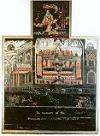






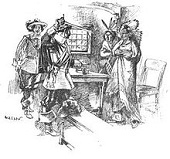


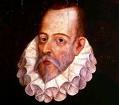
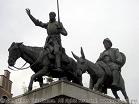
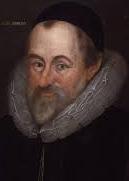




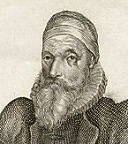



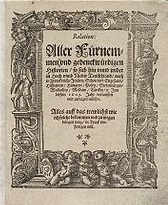
1605 On Mar. 5 Pope (b. 1592) Clement VIII (d. 1536) dies, and on Apr. 1 Alessandro Ottaviano de' Medici is elected Pope (#232) Leo XI (1535-1605) after Henri IV of France spends big bucks to support his candidacy, and #1 candidate Caesar Baronius is excluded by order of Philip III of Spain for his support of papal claims to Sicily; too bad, he immediately takes sick and dies on Apr. 27 (27 days) (5 weeks for Adrian V in 1276) (34 days for John Paul I in 1978) (a little Medici payback?), and on May 16 Camillo Borghese is elected Pope (#233) Paul V (1550-1621), going on to attempt to suppress the licensed brothels in Rome, causing the Roman Senate to petition him that closing them would cause the horny priests to seduce their wives and daughters. On Mar. 31 a group of English traders under Capt. George Weymouth (1585-1612) of the Archangel are sent by Thomas Arundell, 1st Baron Arundell and Henry Wriothesley, 3rd earl of Southampton to found a colony in Va. under the coverstory of discovering the northwest passage, and on May 17 land near Monhegan (Algonq. "out-to-sea island") Island off the coast of Maine, naming it Saint George Island, going on to explore the Maine coast incl. Penobscot Bay, arriving on May 11 in Patuxet (Plymouth) on Cape Cod, befriending and impressing the natives by magnetizing his sword, introducing them to English green peas, which they love so much that he uses them as bait to kidnap five to take back slaves in June, incl. Squanto (Tisquantum) (1585-1622), presenting Squanto and two others to Plymouth gov. Sir Ferdinando Gorges, piquing his interest in the region, after which he teaches them English and sends them back to tell their people how great the English are, with the soundbyte: "The capture of these Indians must be acknowledged the means, under God, of putting on foot and giving life to all our plantations." On Apr. 8 Mary Stuart (Stewart) is born to James I and Anne, and named after Mary Stuart, Queen of Scots, becoming the first child not named to flatter Elizabeth I; too bad, she dies on Dec. 16, 1607. On Apr. 13 (Apr. 23 Old Style) tsar (since 1598) Boris Godunov (b. 1551) dies suddenly in the midst of the civil war, and is succeeded as tsar by his 16-y.-o. well-educated son Fyodor II Borisovich Godunov (1589-1605) (author of the first map of Russia drawn by a native); too bad, on July 1 envoys of False Dmitri I publicly read letters against him in Red Square, and on July 20 he is strangled along with his mother by four assassins; on July 21 after he enters Moscow, False Dmitri I (-1606) is crowned tsar of Russia (until 1606), the first of three False Dmitris. In the summer Johann Carolus (1575-1634) begins pub. Relation aller Furnemmen und Gedenckwurdigen Historien in Strasbourg, becoming the first regularly pub. newspaper in Germany; by Oct. he is asking the city council for copyright protection. On Sept. 27 (Sept. 10 Old Style) the Battle of Kircholm is a decisive V for Polish-Lithuanian forces under Lithuanian hetman Jan Karol Chodkiewicz over Swedish forces under Charles IX, lasting only 20 min. after a charge by the Polish Winged Hussars, with 7.6-8K Swedish KIA vs. only 100 Lithuanians KIA and 200 wounded. On Oct. 26 Gunpowder Plotter Francis Tresham blows the whistle on it after worrying about his brother-in-law (husband of his sister Elizabeth) William Parker, Lord Mounteagle (Monteagle) (1575-1622) being killed; on Nov. 4 (Tues. Old Style) (Fri. New Style) at 11 p.m. after James I is tipped-off about a plot to blow up Parliament and destroy the nobility and royal family in a 9/11 on 11/5/5, masked soldier of fortune Guy Fawkes is arrested as he leaves a rented cellar beneath the House of Lords filled with 36 barrels of gunpowder (which he is supposed to ignite the next day then flee to Flanders), and they find fuses on his person and a lighted lantern below, blowing the Gunpowder Plot sky high; after James I issues the soundbyte "The gentler tortures are to be first used... and so proceed by steps to the worst", he begins singing, and on Nov. 12 Tresham is arrested, and fully confesses, but dies in the Tower of London on Dec. 22, the official cause of death is blockage of the urinary tract (poisoned?); in Nov. Elizabeth Stuart is moved from Warwickshire to Coventry after it is discovered that the conspirators want to seize her person and proclaim her queen; after Fawkes is severely tortured, he gives up the names of his accomplices; on Nov. 8 Robert Catesby and his men are surrounded in Holbeche House in Staffordshire, and Catesby is killed, along with Thomas Percy, John Wright, and Christopher Wright; the rest of the conspirators are executed next year; guess-who (Henry Howard) is commissioner at the trials; Nov. 5 becomes Guy Fawkes Day in England, where he is burned in effigy amid bonfires and fireworks (starting in 1660); the whole incident forever sours the English public against Roman Catholics, whom they suspect of being a fifth column for the pope. In Dec. people in Strasbourg, France become the first to bring a Christmas Tree indoors and adorn it (with sweets). In Dec. Pedro Fernandez de Quiros (Quirós) (1565-1614), former capt. working for Alvaro de Mendana sails from Callao in search of Terra Australis Incognita, the fabled rich Southern Continent (ends 1606). The Hapsburg archdukes compel mentally unstable HRE Rudolf II to entrust the conduct of his Hungarian affairs to his brother Matthias, beginning a long struggle for supremacy. Akbar the Great (b. 1542), Mogul (Mughal) emperor of India dies, and is succeeded by his son Salim, who takes the title of Jahangir ("conqueror of the world") (d. 1627), presiding over the creation of architectural masterpieces; he becomes known for preferring a Sufi shaikh to kings; an avid fisherman, he likes to place a string of pearls in the gills of a caught fish and throw it back. Stephen Bocskai kicks hated imperial gen. Giorgio Basta out of Transylvania after he kills one-third of the pop. of Transylvania and virtually wipes out the nobility, and the Hungarian Diet in Medgyes (Medias) elects him prince of Transylvania; he then begins an anti-Hapsburg uprising (until 1606). Tokugawa Ieyasu (b. 1543) retires, and his hideously militant anti-Christian son Tokugawa Hidetada (1579-1632) becomes Tokugawa shogun #2 of Japan (until 1623). The English crown begins farming out its customs collections (until 1671). The Dutch seize Amboina in Malaysia from the Portuguese. Persian shah Abbas I scores a V against the Turks in Basra, and goes on to extend his domain beyond the Euphrates River. Puritan divine "Roaring" John Rogers (1572-1636) becomes a lecturer in Dedham, Essex, turning on the crowds with his roaring speeches, exhorting them to read their Bibles more; he would "do more good with his wild notes than we with our set music" (Cotton Mather). Port Royal at the head of Annapolis basin (an inlet of the Bay of Fundy) is founded by Samuel de Champlain and Pierre du Guast, Sieur de Monts as the capital of the province of Acadia (until 1710), becoming the oldest Euro settlement N of the Gulf of Mexico. The 150-mi. Kennebec River (Abnaki "long-water place") in modern-day W Maine, flowing from Moosehead Lake to the Atlantic is discovered by Pierre Dugua, Sieur de Monts and Samuel de Champlain; Champlain makes his first trip to Cape Cod, visiting Fort Hill on Nauset Bay, and writing an account of "a bay with wigwams bordering it all around", complete with a detailed Map of Nauset Bay. The English claim 166 sq. mi. Barbados (modern-day pop. 280K), a 14 mi. by 21 mi. island in the Lesser Antilles 300 mi. N of Venezuela (easternmost island of the West Indies) after being visited by Leigh's Guiana expedition. Peter Paul Rubens (1577-1640), who entered the service of Duke Vincenzo I Gonzaga of Mantua as court painter is dispatched on a diplomatic mission to Philip III of Spain in Madrid (until 1608). The Butchers' and Shipwrights' Cos. are incorporated in London; the English govt. begins farming all customs revenues to a London consortium of merchants for an annual rent (ends 1671). The Worshipful Co. of Fruiterers in London (founded 1463) receives a royal charter for inspecting imported fruit. The first permanent German theater opens in Cassel (Kassel). Biblioteca Angelica, the first public library in Rome is founded by Angelo Rocca (1545-1620). Johann Carolus (1575-1634) begins pub. the German language Relation aller Fürnemmen und gedenckwürdigen Historien (Account of all Distinguished and Commemorable News) in Strasbourg, becoming the first newspaper; it is printed in quarto size with a single wide column of text. Sports: After discovering the village while out hawking, James I introduces horseracing to Newmarket in Suffolk, 65 mi. N of London, and ends up spending so much time there that the House of Commons petitions him to concentrate more on govt. affairs; Newmarket becomes the home of horseracing in England. Architecture: The Church of Santa Maria della Vittoria in Rome is built for the Discalced Carmelites by Carlo Maderno; after the 1620 Battle of White Mountain it is rededicated to Virgin Mary, displaying Turkish standards captured in the 1683 Siege of Vienna; it later houses Bernini's "Ecstasy of St. Theresa" (finished 1652). Nonfiction: Sir Francis Bacon (1561-1626), The Advancement of Learning; "The parts of human learning have reference to the three parts of man's understanding - history to his memory, poetry to his imagination, and philosophy to his reason." Gaspard Bauhin (1560-1624), Theatrum Anatomicum. Sethus Calvisius (1556-1615), Opus Chronologicum (Leipzig); proposes a new chronology based on records of 300 eclipses. William Camden (1551-1623), Remaines of a Greater Worke, Concerning Britaine; 2nd ed. 1614; 3rd ed. 1623; the "rude rubble and out-cast rubbish" from his more serious work "Britannia", becoming more popular; a collection of themed historical essays incl. the first official account of the trial of the Gunpowder Plotters, a catalog of the epitaphs at Westminster Abbey (in which he is later buried), and the first pub. alphabetical list of English proverbs, becoming a main source of words for the "Oxford English Dictionary" (OED). Leonardus Lessius (1554-1623), On Justice and Law (De Iustitia et Iure); big hit, going through 20 eds. by the end of the cent.; first deep moral theological study of economics since St. Thomas Aquinas, claiming that his just price approach is no longer workable, and giving ethical solutions to moral dilemmas faced in business and finance; "By its nature, money is indeed fruitless. Nevertheless, through the industry of greedy individuals it surpasses all living things in productivity"; compares avarice to the fruitfulness of the hare, with the soundbyte: "At one and the same moment it [money] is lent out for usurious profit, bears fuit, and is impregnated once again"; first statement of how the price of an insurance contract depends on the risk of the event insured against? Justus Lipsius, Monita et Exempla Politica. Michael Praetorius (1571-1621), Musae Sioniae (9 vols.); 1K+ chorale and song arrangements. Caspar Schoppe (1576-1649), De Antichristo. Garcilaso de la Vega (1539-1616), La Florida del Inca: Historia de Adelantado Hernando de Soto. Art: Annibale Carracci (1560-1609), Frescoes in the Palazzo Farnese in Rome. Music: Claudio Monteverdi (1567-1643), Fifth Book of Madrigals. Tomas Luis de Victoria (1548-1611), Officium Defunctorum. Plays: Sir William Alexander (1567-1640), The Alexandrean. George Chapman (1559-1634), All Fooles (comedy). Ben Jonson (1572-1637), John Marston (1576-1634), and George Chapman (1559-1634), Eastward Hoe (Ho!); satires Virginia colonists, who expect chamber pots of pure gold; causes Jonson to be jailed for dissing the Scots AKA Scotophobia. Ben Jonson (1572-1637), The Masque of Blackness (Whitehall Palace, London) (Jan. 6) (Twelfth Night); written at the request of James I's wife Anne of Denmark for a blackface masque; how black skin used to be beautiful, but is now replaced by white skin; sets, costumes, and stage effects designed by Smithfield, London-born Inigo Jones (1573-1652), who hooks up with Jonson for a string of masques, going on to stage 500+ performances by 1640, ending in them arguing over whether lit. or stage design is more important in theatre. John Marston (1576-1634), The Dutch Courtesan. William Shakespeare (1564-1616), King Lear (1605-6) (tragedy) (Lear has 697 lines, 13th most); his best play?; aging English King Lear asks his daughters Goneril (eldest) (bad) (wife of the Duke of Albany), Regan (Gael. "little king") (bad) (wife of the Duke of Cornwall), and Cordelia (Lat. "heart") (good) to tell him who loves him most, and the bad liars split faithful Cordelia's share of the kingdom, while she is exiled to France along with his former trusted adviser the Earl of Kent; the bad sisters then turn on daddy, take away his servants and force him to spend the night outdoors during a storm accompanied only by his jester the Fool, causing him to go mad, after which Cordelia returns and helps him restore his sanity, only to see the armies of the bad sisters capture them and kill Cordelia; Goneril then poisons Regan over a man they both love, then kills herself, leaving Lear mourning over the body of Cordelia; meanwhile the Earl of Gloucester banishes his good son Edgar in favor of bad son Edmund after he forges a document to ruin him, then Edmund has Regan's husband blind his father, causing him to see the er, light too late; "Nothing will come of nothing" (1.1.92); "Come not between the dragon and his wrath" (1.1.124); "The infirmity of his age" (1.1.296); "How sharper than a serpent's tooth it is/ To have a thankless child" (Lear) (1.4.312); "The prince of darkness is a gentleman" (3.4.147); "Do me no foul play, friends" (Gloucester) (3.7.30-31); "The wheel is come full circle" (5.3.176); in Nov. 1788 In Nov. 1788 George III suffers a bout of mental illness after reading the play, causing the 1789 Regency Crisis, after which the play is no longer performed during his reign. William Shakespeare (1564-1616) and Thomas Middleton (1580-1627), Timon of Athens (1605-6) (tragedy) (Timon has 795 lines, 9th most); Timon and his faithful steward Flavius and false friend Vertidius, philosopher Apemantius, "planetary plague" Athenian Capt. Alcibiades. Poetry: Nicholas Breton (1545-1626), The Passionate Shepherd. Samuel Daniel, Certain Small Poems. John Davies of Hereford (1565-1618), Humours Heav's on Earth. Michael Drayton (1563-1631), Poems Lyric and Pastoral; first to introduce imitations of Horace's "Odes"; incl. Ballad of Agincourt. Novels: Miguel de Cervantes (1547-1616), The Ingenious Gentleman Don Quixote of La Mancha, Pt. 1 (El Ingenioso Hidalgo Don Quixote de la Mancha, Pt. 1) (Madrid) (pt. 2 in 1615); the first modern novel, founding modern Spanish; written in prison?; "An invective against books of chivalry... to diminish the authority and acceptance that books on chivalry have in the world and among the vulgar"; an old fart on an old nag (Rocinante), accompanied by credulous peasant Sancho Panza (a joke for "sacred belly"), thinking himself a knight and his servant a squire, attempts to take on the world to prove his love for Dulcinea, and tilts with a windmill after mistaking it for a giant, and mistakes a flock of sheep for an army; English trans. by Thomas Shelton pub. in 1612; "In a village of La Mancha the name of which have no desire to recall, there lived not so long ago one of those gentlemen who always have a lance in the rack, an ancient buckler, a skinny nag, and a greyhound for the chase." (opening line) Births: German writer Friedrich Freiherra von Logau (d. 1655) in Jan. in Brockut (near Nimptsch), Silesia. German bishop of Wurzburg (1642-73), archbishop-elector of Mainz (1647-73), and bishop of Worms (1663-73) Johann Philipp von Schonborn (Schönborn) "the Wise" "the German Solomon" "the Cato of Germany" (d. 1673) on Aug. 6 in Laubuseschbach (modern-day Hesse). English antiquary Sir William Dugdale (d. 1686) on Sept. 12 in Shustoke (near Coleshill), Warwickshire. French priest-astronomer-mathematician (Calvinist-turned-Roman Catholic) Ismail Bouillaud (Boulliau) (Bullialdus) (d. 1694) on Sept. 28 in Loudin, Vienne; English "Religio Medici" polymath physician writer Sir Thomas Browne (d. 1682) on Oct. 19 in Cheapside, London; educated at Winchester College, Pembroke College, Oxford U., U. of Padua, U. of Montpellier, and U. of Leiden; knighted in 1671. Am. Puritan divine Thomas Shepard (d. 1649) on Nov. 5; educated at Emmanuel College, Cambridge U. Chinese Ming emperor #15 (1620-7) Tianqi ("heavenly opening") (Zhu Youxiao) (d. 1627) on Dec. 23; son of Taichang (1582-1620); brother of Chongzhen (1611-44). English poet Thomas Randolph (d. 1635). Dutch (Flemish) painter Adriaen Brouwer (d. 1638) in Oudenaarde. Spanish king (1621-65), Naples king (1621-65), Netherlands king (1621-48), Portuguese king (1621-40), and Sicilian king (1621-65) Philip IV (d. 1665) on Apr. 8 in Valladolid; eldest son of Philip III (1578-1621) and Margaret of Austria (1584-1611); smiles only three times in his entire life, perhaps because he has the Hapsburg chin (hog jaw)? English Parliamentarian-turned-royalist gov. (Barbados, Suriname) Francis Willoughby, 5th Baron Willoughby of Parham (d. 1666) in Parham, Suffolk. Italian composer ("father of the oratorio") Giacomo Carissimi (d. 1674) in Marino (near Rome); chamber cantata inventor. English gov. of Va. (1642-75) Sir William Berkeley (d. 1677) in Hanworth Manor, Middlesex. English "Englishmen for My Money" playwright William Haughton (b. ?) on June 6 (July 20?). Deaths: French Protestant leader Theodore Beza (b. 1519) on Oct. 13 in Geneva; buried in the Monastery of St. Pierre to keep the Savoyards from stealing his body. French poet-priest Pontus de Tyard (b. 1521) on Sept. 23 in Chateau de Bragny; last surviving member of La Pleiade. Italian naturalist Ulysses Aldrovandi (b. 1522) on May 4. English chronicler John Stow (b. 1524) on Apr. 5 in London. Italian choreographer Cesare Negri (b. 1535) in Milan. Polish patriot Jan Zamoyski (b. 1541). Indian Mogul ruler Akbar the Great (b. 1542). Italian painter Giovanni Contarini (b. 1549). Venetian-born Ottoman harem sultana Sophia Baffo (b. 1550) in Constantinople (strangled in bed). Italian composer Orazio Vecchi (b. 1550) on Feb. 19. Russian tsar (1598-1605) Boris Godunov (b. 1551) on Apr. 13. English Gunpowder Plotter Francis Tresham (b. 1572) on Dec. 22 in London (urinary tract blockage) (poisoned?). English Gunpowder Plotter Roger Catesby (b. 1573) on Nov. 8 in Holbeche House, Staffordshire. English Gunpowder Plotter Thomas Percy (b. 1558) on Nov. 8 in Holbeche House, Staffordshire.



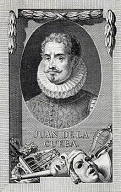
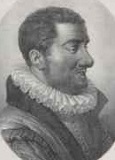

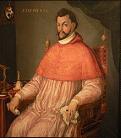
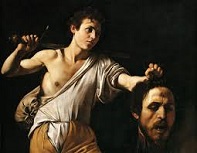
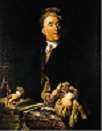
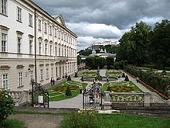
1606 On Jan. 30 Robert Wintour (b. 1565), Thomas Bates (b. 1570), and John Grant (b. ?) are executed in St. Paul's Churchyard, London for treason, followed on Jan. 31 by Guy Fawkes (b. 1570) (who jumps from the gallows and breaks his neck to avoid the usual hanging-drawing-quartering bit), Robert Keyes (b. 1565), Thomas Wintour (b. 1572), and Ambrose Rokewood (b. 1578) (hanged, drawn, and quartered) in Old Palace Yard, Westminster; the word "guy" is coined - V for Vengeance? On Apr. 10 having no resources for financing colonization like other countries do, James I charters the Plymouth Co. (made up of Plymouth merchants) for colonizing New England, and the Virginia Co. (of London merchants) for Va.; Virginia Co. begins the first mass advertising campaign in history to recruit "gentlemen" for emigration, making wild claims to recruit suckers, and sending 120 colonists to Jamestown, Va. in Dec. - did natural selection work to make Americans prone to believe in false advertising? In Apr. the New Hebrides (Vanuatu) (500 mi. W of Fiji) are discovered by Pedro Fernandes de Queiros (Quiros) (1565-1614) of Portugal, who sights Espiritu Santo (Australia del Espiruto Santo). On May 17 False Dmitri I is killed in Moscow by an insurrection led by boyar Vasily Ivanovich Shuisky, who on May 19 is elected tsar Vasily IV (1552-1612) (until July 19, 1610). On June 23 the Treaty (Peace) of Vienna between Matthias I and Stephen Bocskay guarantees the rights of Hungarians in Hungary and Transylvania, with Bocskay acknowledged as prince of Transylvania, and Transylvania given the right to elect its own princes in the future; Bocskay receives Tokaj Fortress plus the counties of Bereg, Szatmar, and Ugocsa; on Nov. 11 the Peace of Zitava with the Ottomans confirms the Peace of Vienna, and ends the Long (Thirteen Years' War) (begun 1593); too bad, Bocskay is poisoned on Dec. 29 by his chancellor Mihaly Kathy, who is hacked to pieces by his men in the marketplace. On Nov. 11 the Treaty of Zsitvatorok (Sitvatorok) (Zsitva-Torok) ends the Ottoman-Hapsburg War (begun 1593), confirming the prewar boundaries; for the first time the sultan accepts the Austrian Hapsburg emperor as his equal, and ends tribute payments for N Hungary; broken Ahmed I turns to indolence and extravagance? Shakespeare's Macbeth debuts at Hampton Court before James I of England and his brother-in-law Christian of Denmark, and James I bans it for five years because of the witches; James I and Lady Macbeth, er, Anne of Denmark have a child named Sophia, who only lives one day, after which they decide to live apart. Having no resources for financing colonization like other countries do, Ali Pasha Janbulat of Aleppo protests the execution by the Ottomans of his uncle Husayn Pasha Janbulat, leading a Kurdish revolt in N Syria (ends 1607). Dutch explorer Willem Janszoon (1570-1630) lands the Duyfken at Cape York Peninsula in Australia, becoming the first Euros to land there, bringing back the first drawing of a kangaroo. Spanish navigator Luis Vaez (Vaz) de Torres sails between New Guinea and Australia, and discovers the 90-mi.-wide treacherous Torres Strait. Samuel de Champlain makes his 2nd visit to Cape Cod, and attempts to navigate dangerous Pollack (Pollock) Rip between the cape and Nantucket Island (where later half of all wrecks along the Atlantic and Gulf coasts occur) in a small pinnacle, and gives up after almost being wrecked. France begins an extensive road building program. King Philip III of Spain decrees that Spanish tobacco may only be grown in Cuba, Santo Domingo, Venezuela, and Puerto Rico. Mannheim in SW Germany at the confluence of the Rhine and Neckar Rivers (10 mi. W of Heidelberg) (modern-day pop. 305K) is turned from a village (first mentioned in 764) to a major town by Frederick IV, elector palatine of the Rhine, becoming a mecca for Protestant refugees from Holland. The Worshipful Society of Apothecaries and Grocers in London receives a charter; the grocers monopolize the society until James I lets the apothecaries form their own society in 1617. Samuel Champlain explores Wellfleet Harbor in Mass., naming it Port Aux Huitres for the tasty oysters he found the Indians feasting on; it becomes Wellfleet in 1763; too bad, a mysterious plague wipes out the oyster beds in 1770, and during the Am. Rev. the harbor is blockaded, killing its whaling industry, causing it to shift to commercial fishing, rivaling Provincetown for its catch. Over 1M black mulberry trees are imported to England in an unsuccessful attempt to start a silk industry; it takes until 1688 and some French help? Italians discover the secret of chocolate, breaking the Spanish monopoly. The common pigeon, AKA rock dove comes to America with French settlers to Nova Scotia. The first open air opera is held in Rome - needed to chase away wild animals? 16-y.-o. William Bradford (1590-1657) of Yorkshire joins the Brownists, and goes with them to Holland in 1609 in search of freedom of worship, geting apprenticed to a silk manufacturer. Italian painter Michelangelo Caravaggio (1571-1610), who had matured from paintings about everyday life to religious paintings (albeit with a lot of nudity) kills a man in a duel and has to flee Rome. The oldest stock share to survive to modern times is issued by the Dutch East India Co. this year. Architecture: Mirabell (It. "amazing, wonderful") Palace on the Salzach River N of the city walls of Salzburg, Austria is built by Prince-Archbishop (1587-1612) Wolf Dietrich Raitenau (1559-1617) as a residence for his mistress Salome Alt, complete with a Marble Hall; in 1721-7 it is rebuilt in a lavish Baroque style by Genoa, Italy-born Austrian Baroque architect Johann Lukas von Hildebrandt (1668-1745); in 1818 after a fire it is rebuilt in Neoclassical style; several scenes in the 1965 film "The Sound of Music" are filmed here, incl. Maria and the children singing "Do-Re-Mi" while dancing around the horse fountain and using the steps as a musical scale; the Mirabellgarden is built in 1687, with geometrically-arranged gardens, followed in 1730 by mythology-themed statues. Italian-Swiss Baroque architect Carlo Maderno (1556-1629) designs the facade for St. Peter's Cathedral. Christian IV of Denmark builds the Dutch Renaissance Rosenborg Castle as his summer home. Inventions: Welsh clergyman-mathematician Edmund Gunter (1581-1626) invents Gunter's Chain for surveying, consisting of 100 links of 7.92 in. each (66 ft. total). Nonfiction: Johann Arndt (1555-1621), Wahres Christentum. Thomas Dekker (1572-1632), The Seven Deadly Sinnes of London: Drawn in Seven Several Coaches (pamphlet); "politick bankruptism", "lying", "candle light", "sloth", "apishnesse", "shaving", "cruelty". Daniel Heinsius (1580-1655), Spiegal vande Doorluchtige Vrouwen (Mirror of Illustrious Women); emblem book. Giovanni Antonio Magini (1555-1617), Trigonometric Tables; extremely accurate? Joseph Justus Scaliger (1540-1609), Thesaurus Temporum, Complectens Eusebi Pamphili Chronicon; best-ever chronology of ancient history? Art: Caravaggio (1571-1610), The Death of the Virgin. El Greco (1541-1614), Apostle St. James the Greater (Elde). Robert Peake the Elder, Princess Elizabeth Stuart (1596-1662); eldest daughter of James VI of Scotland and Anne of Denmark. Plays: George Chapman (1559-1634), The Gentleman Usher; Monsieur D'Olive. Francis Beaumont (1584-1616) and John Fletcher (1579-1624), The Woman Hater (summer); performed by the Children of Paul's; first of their plays to be pub. (1607); Fletcher is William Shakespeare's successor as house playwright for the King's Men; first of 55 plays. Giovanni Battista Guarini (1538-1612), Pastor Fido. Ben Jonson (1572-1637), Volpone, or The Sly Fox (1605-6) (comedy) (Globe Theatre, London) (spring); a Venetian gentleman pretends to be on his deathbed in order to dupe three men lusting after his fortune, Voltore (the Vulture), Corbaccio (The Raven), and Corvino (The Crow); Volpone's parasite servant Mosca (The Fly) pumps them with disinfo.; his most popular play. John Marston (1576-1634), The Parasitaster, or the Fawne (comedy). William Shakespeare (1564-1616), Macbeth (tragedy) (1603-7?) (Macbeth has 681 lines, 15th most); set in Dunsinane (Glamis) Castle 5 mi. S of Forfar in Angus; "a tempest set to music"; a ripoff of the Adam and Eve story, of course blaming Eve?; the Three Weird Sisters; King Duncan I "the Sick" (-1040) of Scotland and sons Malcolm (Malcom III Canmore) ("big head") (1031-93) and Donalbain (Donalbane) (Donald Bane) "the Fair" (-1099); "red king" (1040-57) Macbeth (-1057), thane (earl) of Glamis and Cawdor, and his goading ambitious wife Lady Macbeth (Gruoch), Macbeth's friend Banquo and his son Fleance, Macduff (loyal to Duncan), "untimely ripped from his mother's womb" (5.8.15-16) (Cesarian section?); "Macbeth shall never vanquish'd be until Great Birnam Wood to high Dunsinane Hill shall come against him" (4.1.92-3) (see 1054 C.E.); "So foul and fair a day I have not seen" (Macbeth) (1.3.38); "If it were done when 'tis done, then 'twere well/ It were done quickly" (Macbeth) (1.7.1-3); "I have no spur/ To prick the sides of my intent, but only/ Vaulting ambition, which o'erleaps itself/ And falls on th' other" (Macbeth) (1.7.25-28); "I am one, my liege,/ Whom the vile blows and buffets of the world/ Hath so incensed that I am reckless what/ I do to spite the world" (3.1.108-11); "Double, double, toil and trouble;/ Fire burn and caldron bubble" (4.1.10-11); "Bleed, bleed, poor country:/ Great tyranny, lay thou thy basis sure" (Macduff) (4.3.32-33); "What, all my pretty chickens, and their dam,/ At one fell swoop?" (Macduff) (4.3.218-9); "Out, damned spot!" (Lady Macbeth) (5.1.36); "Tomorrow, and tomorrow, and tomorrow/ Creeps in this petty pace from day to day,/ To the last syllable of recorded time;/ And all our yesterdays have lighted fools/ The way to dusty death. Out, out, brief candle!/ Life's but a walking shadow, a poor player/ That struts and frets his hour upon the stage/ And then is heard no more. It is a tale/ Told by an idiot, full of sound and fury/ Signifying nothing" (Macbeth) (5.5.19-28); Antony and Cleopatra (tragedy) (Antony has 766 lines, 10th most); Roman Gen. Mark Antony (ruler of the East) and his babe Queen Cleopatra of Egypt, Octavius Caesar (ruler of the West) and sister Octavia (Antony's wife), Lepidus (ruler of the South), Pompey; Cleopatra's attendant Charmian, who follows her to aspy death; "My salad days,/ When I was green in judgment" (Cleopatra) (1.5.73); "The triple pillar of the world transform'd/ Into a strumpet's fool" (1.1.12-13) (Philo, about Antony); "Ambition,/ The soldier's virtue" (3.1.22); All's Well That Ends Well (1606-7) (comedy); based on "The Palace of Pleasure", tr. by William Painter; last play in which Shakespeare acts?; Bertram, Count of Rossillion marries adoring wife Helena (an orphan who was raised by his mother the Countess of Rossillion), then dumps her as too low class, writing her a letter saying that she can never call him husband unless she gets a ring from his finger and becomes pregnant by him, which she proceeds to do by taking the place of a girl he falls for; Lord Lafew, Diana, Parolles ("words"); "My friends were poor, but honest" (1.3.203); "They say miracles are past" (2.3.1); "A young man married is a man that's marr'd" (2.3.314); "The web of our life is of a mingled yarn, good and ill together" (4.3.68); "All's well that ends well; still the fine's the crown./ Whate'er the course, the end is the renown" (Helena) (4.4.35-6). Cyril Tourneur (1575-1626), The Revenger's Tragedy (1606-7); almost as good as Shakespeare's "Hamlet"?; pub. anon.; real author is Thomas Middleton and real title is "The Viper and Her Brood"? Poetry: Nicholas Breton (1545-1626), The Soules Immortal Crowne; The Honour of Valour. Samuel Daniel, The Queen's Arcadia; adaptation of Giovanni Battista Guarini's 1606 "Pastor Fido". John Ford (1586-1640), Fame's Memorial; an elegy on the Earl of Devonshire. Juan de la Cueva de Garoza (1550-1610), The Poetic Exemplar; rhyme exposition of his dramaturgic theories, incl. the adaptation of the cape-and-sword romance for the stage, which wows Spanish dramatists, esp. Lope de Vega. Jean Passerat (1534-1602), Villanelle (posth.); "J'ay perdu ma Tourterelle"; launches a new poetic form with 19 lines consisting of five tercets followed by a quatrain; the most famous is Dylan Thomas' "Do not go gentle into that good night" (1951). Births: British royalist politician-atty. Orlando Bridgeman, 1st Baronet of Great Lever (d. 1674) on Jan. 30; educated at Queens' College, Cambridge U. French duchess of Savoy (1630-7) Christine Marie (d. 1663) on Feb. 10 in Palais du Louvre, Paris; daughter of Henri IV and Marie de' Medici; younger sister of Louis XIII and Elisabeth of Bourbon; sister-in-law of Philip IV of Spain (through Elisabeth) and Charles I of England (through Henrietta Maria); wife (1619-37) of Duke Victor Amadeus I of Savoy (15887-1637). Conn. gov. (1657, 1659-76) John "Jack" Winthrop Jr. (the Younger) (d. 1676) on Feb. 12 in Groton, Suffolk, England; son of Mass. Bay Colony gov. John Winthrop (1588-1649); educated at King Edward VI School, and Trinigy College, Dublin; emigrates to Mass. in 1631. French Baroque painter Laurent de La Hyre (d. 1656) on Feb. 27 in Paris; pupil of Georges Lallemand; father of Philippe de La Hire (1640-1718). English poet-dramatist Sir William Davenant (D'Avenant) (d. 1668) on Feb. 28 in Oxford; once reputed to be William Shakespeare's son, but is actually the son of an inkeeper, and Shakespeare was only his godfather. English Cavalier poet Edmund Waller (d. 1687) on Mar. 3 in Coleshill near Amersham, Buckinghamshire; revives the heroic couplet. Dutch painter Jan Davidsz de Heem (d. 1683) on Apr. 17 in Utrecht. Dutch gov.-gen. #5 of New Netherland (1633-8) Wouter van Twiller (d. 1654) on May 22 in Nijkerk. German Baroque art historian and painter Joachim Sandrart (d. 1688) on May 12 in Frankfurt. French dramatist-poet ("Father of French Tragedy") Pierre Corneille (d. 1684) on June 6 in Rouen; brother of Thomas Corneille (1625-1709); inventor of the French comedy of manners. Scottish royalist gen. James Hamilton, 1st Duke of Hamilton (d. 1649) on June 19 in Hamilton Palace, Lanarkshire; son of James Hamilton, 2nd Marquess of Hamilton (1589-1625) and Lady Anne Cunningham; heir presumptive to the Scottish throne (1625-30). Dutch "The Night Watch" Baroque painter (cross-eyed) Rembrandt Harmenszoon van Rijn (d. 1669) on July 15 in Leiden; lives with his parents into his 40s. French nurse Jeanne Mance (d. 1673) on Nov. 12 in Langres, Haute-Marne. Deaths: English mathematician Thomas Blundeville (b. 1522) in Norfolk. French-Scottish composer-organist Guillaume Costeley (b. 1531). English dramatist-poet John Lyly (b. 1553) in Nov.; dies broke: "All is fair in love and war." Dutch Union of Utrecht author Count John VI of Nassau-Dillenburg (b. 1536) on Oct. 8 in Dillenburg. English Gunpowder Plotter Father Henry Garnet (b. 1555) on May 3 (executed); the king believes his story that he knew about the plot but didn't aid it, so he is hanged but not drawn and quartered, with no torture. Transylvanian prince (1604-6) Stephen Bocskai (b. 1557) on Dec. 29 (murdered). Spanish nobleman Gaspar de Zuniga y Acevedo, Count of Monterrey (b. 1560) on Mar. 16 in Peru. English lord-lt. of Ireland Charles Bount, 8th baron Mountjoy (b. 1563) on Apr. 3; dies after being banished by the royal court for marrying his mistress Penelope Devereux (-1607) in defiance of canon law last year. English Gunpowder Plotter Thomas Wintour (b. 1565) on Jan. 30 in London (executed). English Gunpowder Plotter Thomas Bates (b. 1570) on Jan. 30 in London (executed). English Gunpowder Plotter Guy Fawkes (b. 1570) on Jan. 31 in London (executed). English Gunpowder Plotter Ambrose Rokewood (b. 1578) on Jan. 31 in London (executed). English Gunpowder Plotter Thomas Wintour (b. 1572) on Jan. 31 in London (executed). English lord mayor of London (1596-) Sir Henry Billingsley (b. ?); educated at St. John's College, Cambridge U., and Oxford U.; knighted in 1597.






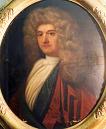


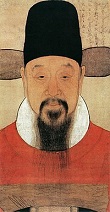


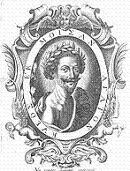
1607 Early in the year after leaving England last Dec. 20 in three ships, Godspeed, Susan Constant, captained by 1-armed Christopher Newport (1561-1618), and Discovery, captained by Bartholomew Gosnold (1571-1607) with 144 passengers and crew, then being pinned to the coast of England by howling winds for 6 weeks, the Virginia Co. expedition crosses the Atlantic by a southernly route and reprovisions in the West Indies, then heads N for Virginia, expecting to arrive in Apr.; too bad, they hit a tempest and sound for four days, looking for offshore shallows, and on Apr. 26 at 4 a.m. they sight land, enter Chesapeake Bay, then sail 40 mi. up the James River to hide from Spaniards; on May 14 they finally land after 144 days at sea at a marshy spot of land on the N shore of the James River (Jamestown Island in the river?) (140 mi. N of Roanoke), in an area surrounded by howling Indian settlements, naming it Jamestown in honor of James I, becoming the first permanent English settlement on the North Am. mainland; Capt. John Smith (1580-1631), who had accused the leaders ("our ignorant transporters") of incompetence, calling them "ten times more fit to spoil a commonwealth than... to begin one", was clapped in irons on the voyage and sentenced to hang but pardoned to be used in possible future fighting by Capt. Newport after a gallows is built on Nevis Island in the Caribbean, becoming the first English Am. inmate; most of the 107 male cavalier colonists are devout, have Puritan leanings and are strongly anti-Catholic, and allegedly first stop at Cape Henry at the mouth of the James River and plant a cross on the shore, claiming it for Christ; to keep investors from bugging out, the names of seven governing council members are carried in a sealed box, and opened upon landing, and capt. Edward Maria Wingfield (1550-1631) becomes the first pres. of the council; after living behind a crescent brush fence for two weeks they are attacked by 200 Indians, who are repelled with the help of the ship's cannon after two English die and 11 are wounded, causing them to decide to build a log palisade, and in June heat under frequent arrow attack they cut and split 600+ trees in 19 days and lay them in a 300-yard 2.5-ft.-deep triangular trench, after which "scarce 10 among us could either go or well stand, such extreme weakness and sickness oppressed us" (Smith); being "gentlemen adventurers" they don't know how to farm, hunt in the woods or even fish, forcing them to depend for food supplies on trade for copper scraps with the 30-tribe 14K-21K pop. Powhatan (Powatan) (Powhaten) (1545-1618) (pr. pow-uh-TAN) confederation of Algonquian Indians in the Tidewater area of E Va. between the James and York Rivers, led by 60-y.-o. Pawmunkey chief Powhatan, real name Wahunsonacock (sounds like?) (father of 11-y.-o. Pocahontas), whom Capt. Smith says "sat covered with a great robe made of raccoon skins, and all the tails hanging by" flanked by "two rows of men, and behind them as many women, with all their heads and shoulders painted red", and wearing long strings of pearls, presenting "such a grave and Majesticall countenance, as drave me into admiration to see such state in a naked Salvage", and to whom Smith later lies that they are merely visitors driven there to hide from the Spanish (ask Dr. D. James Kennedy how they only came to spread the gospel to the heathens?); too bad, the Powhatans want English swords and firearms, not just copper and them cool glass beads, and to make allies of them to fight other Indians, not to become tributaries to James I, and since the colony is owned by Walmart, er, the London Co., er, the Virginia Co., they have to show a profit for the stockholders back in the Big E, so in June Capt. Newport leaves for England with two ships carrying samples of clapboard and sassafras, leaving 104 settlers, all male (incl. some boys, cute cute cute?), who also attempt to hunt for precious minerals and plant cotton; too bad, a major drought lasting for seven years (1606-12) makes freshwater scarce, and being too lazy to dig a well, they have to drink from the Shi, er, James River (filled with you know what from the many Indian settlements upriver), giving them salt poisoning as well as dysentery to go with their typhoid, leading to the Starving Time of 1609-10; Smith goes around trading with the Indians and forcing them to give up their corn for his trinkets with terrorist tactics if necessary, until, in a magic moment for English-Indian relations, the arrogant prick is captured on one of his expeditions to explore and map the region, and held for 3-6 weeks in Dec. at the Injun capital of Werowocomoco ("place of chiefs") on the York River, where he attempts to outwit, outlast, and outthink them by claiming his compass is magic and that they can plant gunpowder next spring to grow their own; too bad, after springing his lie about being just visitors, Chief Powhatan (Wahunsonacock) orders the white devil's head pressed on a stone altar to beat out his brains with clubs, but in a second magic moment, his #1 most beautiful daughter out of 100+ wives, 13-y.-o. Pocahontas (1595-1617) ("frisky") ("undisciplined brat"?) (real name Matoaka or Amonute) (poke it up my hot what?), whom Smith says "much exceeded any of the rest of his people not only for feature, countenance and proportion... but for wit and spirit, the only Nonpareil of his country", intervenes and pleads for his life, causing the chief to adopt him and give him the honorary name of Nantaquoud, and offer him some nearby land; Smith doesn't recognize that the ceremony is only a ritual to impress him with the chief's authority after the big feast of oysters, turkey, and cornbread he just threw, and later writes that he and Poca had "a very mad affair"; instead of staying, he decides to stay s ingle and free, and returns to Jamestown, finding it on the verge of starvation, and in early Jan. she arrives with enough food to save their lives; later she saves his life again by sneaking through the forest alone at night to warm him of an ambush; they never actually hooked up or were an item, despite later romantic writers slobbering over forbidden interracial romance? On Apr. 4 Sunni Muslim Iskanadar Muda ("Young Alexander") (1583-1636) becomes sultan of Aceh Darussalem in Indonesia (until Dec. 27, 1736), going on to make conquests in Malaysia and bring back thousands of slaves to his capital of Aceh, which becomes an internat. center of Islamic learning and trade, bringing the sultanate to its greatest territorial extent. In Apr. the Midland Revolt (Corn Riots) in England against enclosure of common land, led by John "Capt. Pouch" Reynolds begin in Haselbch, Pytchley, and Rushton in Northamptonshire, spreading to Warwickshire and Leicestershire in May. On May 1 English explorer Henry Hudson (1566-1611) makes his First Voyage in his 80-ton ship Hopewell to find a Northwest Passage, and makes it as far N as Willem Barents' Spitsbergen. On Sept. 14 Irish rebel leader Hugh O'Neill, 2nd earl of Tyrone, fearing arrest for attempted insurrection for a new intrigue flees Ulster to Spanish-controlled Flanders with a boatload of 90 Irish noblemen incl. Rory O'Donnell, 1st earl of Tyrconnell in the Flight of the Earls, ending the era of tribalism in Ireland; using the ancient feud between the earls of Tyrone and Tyrconnell as a pretext, James I confiscates O'Neill's lands, along with the land in six counties of N Ulster, then creates 40 fake boroughs from small hamlets to give the English crown a permanent majority in the Irish Parliament; James I then gives the land in Northern Ireland to English and Scottish Protestants, who found the Plantation of Ulster in 1609, which eventually leads to a Protestant majority there, incl. in the ancient city of Belfast (Gael. "Beal Feirsde" = mouth of the sandbar or tidal river ford) on the Lagan River (modern-day pop. 333K/672K), which is granted city status in 1888, becoming known as "Linenopolis" for its linen industry, as well as shipbuilding industry, which builds RMS Titanic, going on to be equally split in the 20th cent. between Roman Catholic and Protestant pops. in eternal religious war; the immigrants from the Scottish lowlands become known as the Scots-Irish (Ulster Scots); meanwhile James I proposes the Union of England and Scotland on equal terms, but is rejected by the English Parliament - pass the poteen, I think I need it? In Oct. Ali Pasha Janbulat and his Kurdish rebels are defeated by the Ottomans. In Dec. after the Lutheran majority barred the Roman Catholic pop. from holding their annual Markus procession last year, Duke Maximilian I of Bavaria finally steps into the Thirty Years' War and occupies the Protestant stronghold of Donauworth (Donauwörth) in Swabia at the confluence of the Danube and Worniz Rivers, then reestablishes Roman Catholicism, causing the Protestant princes to rush to hold a Reichstag. Henri IV of France issues an edict establishing the head of the French state and the Bishop of Urgell as co-princes of Andorra, which continues after the French monarchy is abolished. Raleigh Gilbert of the Virginia Co. of Plymouth (Humphrey Gilbert's son) sails up the Kennebec River and lands at Koussinoc, the Indian name for present-day Augusta, Maine, founding a colony along the Sagadahoc River near the mouth of the Kennebec River called Popham (Sagadahoc) Colony (in modern-day Phippsburg, Maine), which only survives one winter, becoming the first colony in New England; it produces the first ocean-going ship built in America, the Virginia. After the bishop of York finds out about their illegal meetings in Scrooby and throws some in prison, Separatists Willam Bradford, John Robinson, and William Brewster make their first attempt to depart England, but the captain turns them into the authorities, who arrest them in Boston, Lincolnshire, England, and they spend several mo. in jail. The Second False Dmitri arises in Starodub, Poland. Havana is officially named the capital of Cuba. Baghdad rebel leader Muhammad al-Tawil is assassinated, and by next year the Ottomans regain control. Faridabad in Haryana, N India is founded by Jahangir's treasurer Shaikh Farid, becoming famous for its henna. The Bank of Genoa fails after Spain announces nat. bankruptcy - that last court festivity was a doozy? William and Anne Shakespeare's daughter Susanna Shakespeare (1583-1649) marries Dr. John Hall (1575-1635); they have daughter Elizabeth Shakespeare (1607-70), who marries Thomas Nash (1593-1647) of Welcombe and Lincolnshire, then Sir John Barnard of Abington (-1674). St. Joseph Casalanz (Casalanctius) (1557-1648) organizes the Brotherhood of Piarists (Order of Poor Clerks Regular of the Mother of God of the Pious Schools) in Rome (canonized in 1767), becoming the first Roman Catholic educational order. The U. of Giessen in Hessen, W Germany is founded. The first shipment of beer arrives in the Virginia Colony from England; in 1609 the first ads appear in London seeking brewers to come to Va. Chinese Ming Dynasty scholar Xu Guangqi (1562-1633) translates Euclid's Elements into Chinese, launching China's enlightenment by Western science. Architecture: The Jacobean-style Hatfield House in Hertfordshire, England, built by John Thorpe for Robert Cecil, earl of Salisbury is begun (finished 1611). Science: Western astronomers note the appearance of Halley's Comet this year. Nonfiction: Johannes Buxtorf (1564-1629), Lexicon Hebraicum et Chaldaicum cum Brevi Lexico Rabbinico Philosophico. Samuel de Champlain (1567-1635), Map of the New England and Canadian Coast - come and get it? John Cowell, The Interpreter; law dictionary; burnt in 1610 by the hangman for enhancing the authority of the crown. Giovanni Diodati, Italian Trans. of the Bible from the Original Languages; written by a Calvinist pastor whose parents fled to Switzerland to avoid religious persecution; becomes the Bible of choice for Italian Protestants for cents. Giovanni Antonio Magini (1555-1617), De Astrologica Ratione (Venice); defends the use of astrology in medicine. John Norden (1548-1625), The Surveyors' Dialogue. Caspar Schoppe (1576-1649), Scaliger Hypololymaeus; virulent attack on ex-friend Joseph Scaliger. Music: William Byrd (1540-1623), Gradualia. Claudio Monteverdi (1567-1643), Orfeo (Orpheus) (Mantua, Italy); the first modern opera, using the first modern orchestra (36 instruments) to establish the moods for scenes, with 14 independent orchestral pieces; a big hit. Plays: Sir William Alexander (1567-1640), Julius Caesar. George Chapman (1559-1634), Bussy D'Amboise (tragedy). Thomas Dekker (1572-1632) and John Webster (1580-1634), Sir Thomas Wyatt. Daniel Heinsius (1580-1655), Auriacus, sive Libertas Saucia (Willam of Orange, or Freedom Wounded); Herodes Infanticida (The Massacre of the Innocents); pub. in 1632. Thomas Heywood (1586-1641), A Woman Killed with Kindness (tragedy). John Marston (1576-1634), What You Will (comedy). William Shakespeare (1564-1616), The Tragedy of Coriolanus (1607-8) (1605-8?) (tragedy) ( Coriolanus has 809 lines, 8th most); set in 490 B.C.E.; Roman Gen. Caius Martius (Coriolanus), his mother Volumnia and friend Menenius Agrippa, Rome's sole consul Gen. Cominius (no tribunes), Volscian Gen. Tullus Aufidius (Coriolanus' enemy); Corioli is the Volscian city that you-know-how single-handedly conquers, then is banished from Rome, joins his enemies, and returns, being talked out of it at the last moment by mommy, causing the Volscians to kill him; "Action is eloquence" (3.2.76) (Volumnia). William Shakespeare (1564-1616) and George Wilkins (1576-1618), Pericles, Prince of Tyre (comedy) (Shakespeare only wrote the 827 lines after scene 9?) (Pericles has 592 lines, 20th most); only Shakespeare country title not in Europe; Pericles and his wife Princess Thalsa of Pentapolis, their daughter Marina, and their counselor Lord Helicanus; Tarsus Gov. Cleon, Lord Cerimon of Ephesus; Pericles is parted from his wife and daughter and presumes them dead, but reunites with them at the end; Pericles discovers the secret that King Antiochus had incest with his daughter Thalsa. Edward Sharpham (1576-1608), A Comedie called Cupids Whirlegigge (Cupid's Whirligig) (Whitefriars Theatre). Novels: Honore d'Urfe (1568-1625), L'Astree (L'Astrée) (60 vols.) (1607-27) (first novel); "the novel of novels", about 5th cent. shepherd Celadon (Céladon) and shepherdess Astree (Astrée) (named after Astraea) in Forez, becoming an internat. hit and the most influentlial work of 17th cent. French lit., causing the word "celadony" to be coined for pure spiritual love. Births: French missionary (St.) Isaac Jogues (d. 1646) on Jan. 10 in Orleans; one of the eight North Am. martyrs; canonized in 1930; feast day: Sept. 26. German #1 hymnodist ("the Wesley of the Fatherland") Paul Gerhardt (d. 1676) on Mar. 12 in Grafenhainichen (near Halle). Dutch adm. Michiel Andriaenszoon de Ruyter (d. 1676) on Mar. 24 in Flushing (Vlissingen). Italian priest-mathematician-scientist Honore Fabri (d. 1688) on Apr. 5. Am. Pilgrim Mary Chilton (d. 1679) on May 31 in Sandwich, Kent; daughter of James Chilton (1556-1620); wife (1624-) of John Winslow, brother of Edward Winslow (1595-1655); ancestor of Lucretia Garfield, Pete Seeger, Robert Lowell, Jane Wyatt, Vincent Price, Howard Dean, Elliot Richardson, Marjorie Child, Dan Quayle, Abraham Lincoln, and TLW? Anglo-Czech Baroque "Views of London" engraver Wenceslaus (Vaclav) (Wenzel) Hollar (d. 1677) on July 13 in Prague; moves to England in 1637. Dutch Baroque painter Jan Lievens (d. 1674) on Oct. 24 in Leiden. French mathematician-linguist-atty. ("Father of Number Theory") Pierre de Fermat (d. 1665) on Oct. 31 (Dec. 6?) in Beaumont-de-Lomagne; inventor of differential calculus; friend of Blaise Pascal; elected to the Toulouse parliament in 1631. French novelist Madeleine de Scudery (Scudéry) (d. 1701) on Nov. 15 in Le Havre, Normandy; younger sister of playwright Georges de Scudery (1601-67), whose name she writes under until she becomes a big woman in society with a popular salon? Am. clergyman John Harvard (d. 1638) on Nov. 26 in Southwark, London; educated at Emmanuel College, Cambridge U.; emigrates to New England in 1637; principal endower (not founder) of Harvard College. French missionary (St.) Rene Goupil (d. 1642) in Anjou; one of the eight North Am. martyrs; canonized in 1940; feast day: Sept. 26. German Berlin Fortress architect-engineer Johann Gregor Memhardt (Memhard) (d. 1678) in Linz an der Donau; emigrates to the Netherlands in 1622. German Labadist feminist poet-writer Anna Maria van Schurman (d. 1678) on Nov. 5 in Cologne; moves to Utrecht in 1613, where she becomes the first female student at Utrecht U., sitting behind a curtain during lectures. German organist-violinist-composer Sigmund Gottlieb (Theophilus) Staden (d. 1655); son of Johann Staden. Scottish nobleman (leader of the Covenenanter movement) Archibald Campbell, 1st Marquess and 8th Earl of Argyll (d. 1661); eldest son of Archibald Campbell, 7th earl of Argyll (1575-1638) and Agnes Douglas (daughter of William Douglas, 6th earl of Morton); educated at St. Andrews U. Deaths: Italian portraitist Alessandro Allori (b. 1535) on Sept. 22 in Florence. Italian church historian-cardinal Caesar Baronius (b. 1538) on June 30; venerated on Jan. 12, 1745: "The Bible teaches the way to go to heaven, not the way the heavens go" (in support of Galileo). Swiss architect Domenico Fontana (b. 1543) on June 28 in Naples; his plans for a new harbor and bridge on the Bay of Naples are carried out after his death. Korean PM Yu Seong-ryong (b. 1542). English poet Sir Edward Dyer (b. 1543) in May; leaves Poems: "My mind to me a kingdom is;/ Such perfect joy therein I find/ That it excels all other bliss/ Which God or nature hath assign'd./ Though much I want that most would have,/ Yet still my mind forbids to crave." Italian Roman Catholic missionary to China Michaele Ruggieri (b. 1543). Italian philosopher-astronomer Guidobaldo del Monte (b. 1545) on Jan. 6 in Montebaroccio. English academic John Rainolds (b. 1549) on May 21 (consumption). English dramatist Henry Chettle (b. 1560). English clergyman Thomas Brightman (b. 1562) on Aug. 24; dies while riding in a coach with Sir John Osborne and reading a book; leaves Shall They Return to Jerusalem Again? (pub. 1615), advocating the return of the Jews to the Holy Land, with the soundbyte "There is nothing more certain: the prophets do everywhere confirm it and beat upon it." English explorer Bartholomew Gosnold (b. 1572) on Aug. 22



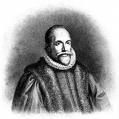
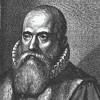




1608 In winter 1607/8 after the English High Court of Ecclesiastical Commission clamps down on religious dissenters, the Scrooby congregation meeting in Scrooby Manor, led by Congregational Church co-founder John Robinson (1576-1625), and the Gainsborough congregation in Lincolnshire meeting in Old Hall, incl. Baptist co-founders Thomas Helwys (1575-1616) and John Smyth (1570-1612) flee to Amsterdam to avoid being burned at the stake for heresy. In Jan. Capt. Christopher Newport returns to the Va. Colony with 100 new settlers (incl. 30 gentlemen), finding only a third of the original settlers still alive (38 of 108); Gov. Wingfield is removed on charges of plotting with the Spanish, and Capt. John Smith again faces hanging (2nd time of two) in hours after his enemies get him charged with negligence for getting two of his men killed by Indians, and saves himself for the 2nd time; after he is spared, Smith has to stop some gentlemen eager to return to England from commandeering a ship by opening up with cannon and musket fire; too bad, after being unloaded from Newport's ship a fire destroys most of the supplies, causing the Jamestown colonists to become totally dependent on the unfriendly Indians, and putting John Smith, who has established relations with them and has his own red babe to be elected pres. of the Jamestown colony council on Sept. 10 (until 1609); being fresh from wars against the Turks in Hungary and Turkey and knowing it all, he becomes a taskmasker, telling them "The greater part must be more industrious or starve", then quotes Apostle Paul, "He that will not work shall not eat", and writes his new Va. Co. bosses in England that there is no way the colony can pay for itself, there is no shortcut to China here, and the odds of survival are about 1 in 4; Pocahontas comes through for Smith by bringing bear meat, venison, and other delicacies; the fort is expanded, and the interior wall is later removed, while Smith explores Chesapeake Bay. In the spring 150 English Puritan Separatists from Scrooby, led by minister John Robinson make a second attempt to depart England for the wonderful land of Virginia, er, the Netherlands, having to leave the women and children quick after the local militia arrive to stop them, and make it to Amsterdam, where the rest catch up to them several mo. later; after encountering other Separatist groups with divergent opinions, causing them to choose to travel to the red-bricked head-with-crown-shaped univ. town of Leiden, where the Dutch tolerance of loose morals and religious diversity makes them welcome as long as they do menial labor from dawn to dusk six days a week in the cloth industry; Robinson buys a house near the Pieterskerk, then sets up De Groene Poort (the green lane) in his garden, a cozy village of a dozen houses; too bad, their "chosen" English children begin turning Dutch, pissing them off, even though they triple their numbers by 1620. On May 14 after getting pissed-off at the occupation and reestablishment of Roman Catholicism in Donauworth, the Protestant States of the Rhineland, incl. Anhalt, Ansbach, Baden, Bayreuth, Brandenburg, Hesse-Cassel, Neuberg, Nurnberg, Palatinate, Strasbourg, Ulm, and Wurttemberg form the Protestant (Evangelical) Union (League) of Anhausen) under Christian of Anhalt and Frederick IV of the Palatinate after deciding that before renewing the 1555 Peace of Augsburg all church lands appropriated since 1552 should be restored; too bad, Calvinist-friendly Christian II of Saxony refuses to join, and the Lutheran and Calvinist members don't get along too well, weakening it, later causing it to stab Frederick IV's son Frederick V in the back in 1620. On May 25 Pope Paul V approves Duke Vincenzo I Gonzaga of Mantua's Military Order of Our Redeemer and the Most Precious Blood of Jesus Christ (AKA Blood of Our Savior) of 20 knights on the occasion of the marriage of his son to a daughter of the duke of Savoy; allegedly some drops of Christ's blood are preserved in St. Andrew's Church in Mantua - it runs in gaggles? On July 3 Samuel de Champlain founds the French village of Quebec on the site of the abandoned village of Stadacona on the St. Lawrence and St. Charles Rivers, establishing the first permanent French settlement in North Am.; nearby 272-ft. Montmorency Falls is taller than Niagara falls. On Aug. 5 a UFO is sighted on the Bay of Angels in Nice, France. In Aug. the King's Men take over the roofed-in Blackfriars Theatre, which is smaller than the Globe but can stage performances at night and in winter and charge more; it is demolished on Aug. 6, 1655; in Sept. (momma's boy?) William Shakespeare's mother Mary dies, and he enters his Fancy Free Age (1608-13). In Oct. the first women arrive in Jamestown, Mistress Forrest and her maid Anne Burras; Forrest dies within the year - dark forrest and burrass jokes here? The Second False Dmitri battles Tsar Vasily IV, defeats him, and advances toward Moscow. HRE Rudolf II cedes Austria, Hungary and Moravia to his brother Matthias. Muslim Druze emir Fakhr al-Din II (1572-1635) of Mt. Lebanon signs a commercial treaty with the grand duchy of Tuscany, which incl. a secret military treaty, all of which causes the Ottomans to want to squash him, which they finally do on Apr. 13, 1635. The English burn rebel town Londonderry in NW Ireland. Henry Hudson makes his Second Voyage, looking for a Northeast Passage through 5.4M sq. mi. of ice - good luck, sucker? Jelali rebel leader Kalenderoglu Mehmed is killed by the Otomans, and the rest of the rebels are mopped up, ending the 1596 Jelali Revolt. Sonjo dies, and Kwanghaegun (Kwan Haegun) (1571-1641) becomes Yi king of Korea (until 1623), restoring peace to the peninsula. The city of Dacca (Dhaka) ("watchtower"?) on the E bank of the Buriganga River in the Bengal Delta in SE India (modern-day pop. 14.4M/18.8M) is founded by the Mughal Empire as the capital of its Bengal Province (until 1639, then 1660-1704), going under the name Jahangir Nagar in the 17th cent., going on to develop a Muslim-majority pop. that wars with the Hindu-majority pop. of Calcutta, becoming known as the City of Mosques, and Venice of the East; in 1947 it is granted city status; in 1947 it becomes the admin. capital of East Pakistan, followed by the legislative capital of Pakistan in 1962, and capital of Bangladesh in 1971; in 1983 the spelling is changed to Dhaka. Dutch anti-predestinarian free-will theologian Jacobus Arminius (Jakob Hermanszoon) (1560-1609) of the U. of Leiden debates with his colleague, Dutch Calvinist theologian Franciscus Gomarus (1563-1641) before the assembly of the estates of Holland, holding that grace is universal and not confined to the elect, and that election is conditioned upon faith and good works, and that therefore Calvin's doctrines of particular election and limited atonement suck; after stirring up a hornet's nest, he dies before he can be put on trial before the Synod of Dort, which goes on to expel the Arminians (they refuse to be called that, calling themselves the Reformed Church) from the Dutch Calvinist Church; his pupil Simon Episcopius (Bisschop) (1583-1643) goes on to win complete religious toleration, and by the the end of the cent. their views are assimilated by the other Protestant churches, incl. the Anglicans and Methodists, and their members get assimilated except for a few holdouts in Amsterdam and Rotterdam - who had the greater will, er, was predestined to win? Santa Fe, N.M. (Sp. "holy faith") (La Villa Real de la Santa Fe de San Francisco de Asissi) at the foot of the Sangre de Cristo Mts. is founded by Juan de Onate, who makes it the capital of the province of New Spain in 1610, becoming the oldest capital city in the modern-day U.S. Cowbridge Grammar School in Wales is founded by Sir John Stradling, 1st Baronet (1563-1637; closed in 1974. The Spiritual Exercises of Ignatius Loyola must now be revisited once a year by every Jesuit. Girolamo Frescobaldi (1583-1643) is appointed organist at St. Peter's in Rome. The first "cash letters" (checks) are used in the Netherlands. English traveler Thomas Coryat (1576-1617), who just returned from a 5-mo. tour of Europe (half of which he walked) brings the custom of eating with a dinner fork ("furcifer") back to England from Italy, causing outrage at first as an insult to human dignity; even the rich eat with their hands until late in this cent., at which time the idea of privacy is invented?; he also describes the principle of the umbrella - get the lingo and watch the possiblities unfold? The first glass manufacturing plant in America is built. Bushmills Distillery in Bushmills, County Antrim, Northern Ireland is licensed by a landowner, after which a co. builds a commercial distillery in 1784, becoming the world's oldest licensed whiskey distillery. Sports: Royal Blackheath Golf Club is founded in London, England. Architecture: Sir Walter Cope begins building the stately Jacobean-style Holland House in Kensington, London (finished 1610). Badminton House in Gloucestershire, England 100 mi. W of London is acquired from Nicolas Boteler by Thomas, Viscount Somerset (d. 1650), whose daughter Elizbeth gives it to Henry Somerset, 3rd Marquess of Worcester and 1st Duke of Beaufort (1629-99), who builds a new mansion in 1682, which later hosts the first Badminton game in 1873. Inventions: Dutch eyeglass maker Hans (Johann) Lippershey (1570-1619) applies for a patent for the telescope (Gr. "far-seeing"), which is first used to look at the sky by Galileo, who constructs his own next July 1 mo. after hearing about it. Nonfiction: Thomas Coryat (1576-1617), Coryat's Crudities Hastily Gobbled up in Five Months Travels in France, Italy, &c. John Donne (1572-1631), Biathanatos; not pub. until 1644; defends suicide (self-homicide), "the scandalous disease of headling dying" by citing Jesus, Samson, Saul, and Judas, admitting that he himself had "often such a sickly inclination." Edward Grimestone, A General History of the Netherlands. William Perkins, A Discourse of the Damned Art of Witchecraft (posth.). St. Francis de Sales (1567-1622), Introduction a la Vie Devote (Introduced to the Devoted Life). Capt. John Smith (1580-1631), A True Relation of Virginia Since the First Planting of that Colony. Art: Domenichino (1581-1641), The Scourging of St. Andrew (San Gregorio Magno, Bologna); goes into a mean funk while painting, causing Annibale Carracci to utter the soundbyte "Today, my dear Domenichino, you are teaching me". El Greco (1541-1614), Golgotha; Cardinal Taverna; Baptism of Christ (1608-14). Music: Marco da Gagliano (1582-1643), Dafne (opera); libretto by Rinuccini. Claudio Monteverdi (1567-1643), L'Arianna (opera) (Mantua); about Ariadne and Thesus; another hit; only the aria Lamento di Arianna survives. Plays: George Chapman (1559-1634), The Conspiracy and Tragedy of Charles, Duke of Byron, Marshal of France. Joseph Hall (1574-1656), Characters of Virtues and Vices. Ben Jonson (1572-1637), The Masque of Beauty (Whitehall Palace, London) (Jan. 10); sequel to "The Masque of Blackness" (1605); the "daughters of Niger" are finally cleansed of the black pigment to be white and right. Thomas Middleton (1580-1627), A Mad World, My Masters (satirical comedy). William Shakespeare (1564-1616), The Pied Bull (First) Quarto. Poetry: Richard West, A Century of Epigrams; that's 100 of them. Novels: George Wilkins (1576-1618), The Painful Adventures of Pericles, Prince of Tyre; "The true history of Pericles as it was lately presented by... John Gower." Births: Italian physiologist-physicist ("Father of Modern Biomechanics") Giovanni Alfonso Borelli (d. 1679) on Jan. 28 in Castel Nuovo (near Naples); enjoys the protection against the Inquisition of Queen Christina of Sweden, saving him from Galileo's fate. German Jesuit scientist Gaspar Schott (d. 1666) on Feb. 5 in Konigshofen; educated at the U. of Wurzburg, and U. of Palermo; first to describe a universal joint and classify gear teeth. Brazilian Jesuit scholar-writer FatherAntonio Vieira (d. 1697) on Feb. 6 in Lisbon. French duke (1626-60) Jean Baptiste Gaston, Duke of Orleans (d. 1660) on Apr. 25 in Fontainbleau; 3rd son of Henri IV and Marie de' Medici; brother of Louis XIII. Dutch Golden Age architect-painter-printmaker Pieter Jansz Post (d. 1669) on May 1 in Haarlem; brother of Frans Post (1612-80); father of Maurits Post (1645-77), Johan Post, and Maria Post, wife of Frederik Ruysch (1638-1731) and mother of Rachel Ruysch (1664-1750); collaborator of Jacob van Campen (1596-1657); creator of the Dutch Baroque style of architecture. German HRE (1636-57), Hungarian king (1625-57), and Bohemian king (1627-57) Ferdinand III (d. 1657) on July 13 at Graz, Austria. English botanist-gardener John Tradescant the Younger (d. 1662) on Aug. 4 in Meopham, Kent; son of John Tradescant the Elder; educated at King's School, Canterbury. Italian physicist-mathematician (pupil of Galileo) (inventor of the barometer) Evangelista Torricelli (d. 1647) on Oct. 15 in Rome. English soldier-politician capt.-gen. George Monck (Monk), 1st Duke of Albemarle (d. 1670) on Dec. 6 in Merton, Devonshire; 2nd son of Sir Thomas Monck; father of Christopher Monck, 2nd duke of Albemarle (1653-88); becomes a soldier after assaulting the undersheriff for wronging his daddy and fleeing abroad. English "Paradise Lost" #1 poet ("the Blind Poet") John Milton (d. 1674) on Dec. 9 in Cheapside, London; educated at St. Paul's School, and Cambridge U.; ditches his plans to become an Anglican clergyman after rejecting William Laud's absolutist principles. English merchant and mercantilist economist Edward Misselden (d. 1654). English "The Worthies of England" churchman-historian Thomas Fuller (d. 1661) in Aldwincle St. Peter's, Northamptomshire; educated at Queen's College, Cambridge U. Deaths: French sculptor Giovanni da Bologna (b. 1524). Flemish sculptor Giambologna (b. 1529) on Aug. 13 in Florence, Italy; leaves the sculpture he leaves Architettura, a nude woman holding a compass and a square ruler. Italian sculptor Pompeo Leoni (b. 1531). Italian mathematician Fabrizio Mordente (b. 1532). French judge-poet Nicolas Rapin (b. 1535) on Feb. 16 in Poitiers; dies en route to Paris to visit friends. English statesman-poet Thomas Sackville, 1st earl of Dorset (b. 1536) on Apr. 19 in Westminster. Scottish poet-jurist Sir Thomas Craig (b. 1538) on Feb. 26. English secy. of state William Davison (b. 1541) on Dec. 21. French historian Lancelot Voisin de La Popeliniere (b. 1541). Italian jurist-philosopher Alberico Gentili (b. 1552) on June 19 in London. English celeb William Shakespeare's mother Mary (b. ?) in Sept.









1609 On Feb. 17 Ferdinando I de' Medici (b. 1549) dies, and his eldest son Cosimo II de' Medici (1590-1621) becomes grand duke of Tuscany (until Feb. 28, 1621). On Mar. 19 the Dutch ship Mauritius sinks off Gabon. In Mar. James I makes speeches to Parliament promoting the divine right of kings theory - a wee bit self-serving? On Apr. 9 Spain signs the Twelve Years' Truce (ends 1620) with the Protestant United Provinces of the Netherlands in Amsterdam, which have been fighting to throw off their Roman Catholic yoke), and Philip III grudgingly acknowledges their independence, allowing him and his minister the duke of Lerma to concentrate on internal problems, while Hapsburg archdukes Albert and Isabella use the truce to consolidate their rule and push the Counter-Reformation - want some loose Jews? On Apr. 9 having to save face over the pesky Protestants, Spanish king (1598-1621) Philip III (1578-1621) takes care of some unfinished business and orders the expulsion of the Moriscos (Jews and Muslims of Moorish ancestry who faked Christian conversion since the days of Cardinal Francisco Jimenez in 1492-1501); by 1614 over 275K are expelled; the Roman Catholic Spanish go on to erase all traces of Muslim occupation of Spain, and burn 1M Arabic books - what was that ruckus in 711? On Apr. 15 Veera Kerala Varma of Cochin dies, and Ravi Varma I (d. 1624) becomes ruler of Cochin in India (until 1624). The original Bermuda syndrome? On May 23 James I grants a 2nd charter to Virginia, replacing the ineffective council with royal gov. Lord Delaware and an advisory council; they finally dig a well in Jamestown early in the year; in May Lord Delaware sends Sir Thomas Gates as interim gov., with nine ships and 500 passengers (promised free land after seven years of indentured servitude) and crew to reinvigorate and resupply Jamestown; the fleet is led by Capt. Sir George Somers (1554-1610) of the Sea Venture; Gates and Somers are shipwrecked on coral-ringed Bermuda (on the same lat. as Cape Hatteras), where they spend the winter enjoying the local fish, fowl and wild pigs, and build ships and reach Va. next May, leaving some English behind to settle Bermuda (Somers Isles) and build forts; meanwhile the rest of the fleet reaches Jamestown with 400 settlers, most of them "unruly gallants packed hether by their friends to escape il destinies", and they overwhelm the fragile balance of the 80 colonists they find there, just in time for the Starving Time; next year Somers returns to Bermuda and dies "of a surfeit in eating pig", which is later immortalized by Shakespeare in The Tempest. In the summer English explorer Henry Hudson (1566-1611) begins his Third Voyage to search for a Northwest Passage in the Dutch ship Half Moon (Halve Mein); on Aug. 28 after a budding mutiny of his crew causes him to reverse course and head toward the New World, he discovers Delaware Bay and the Delaware River; on Sept. 11 he discovers New York Bay, sailing into the Hudson River on Sept. 12 and founding New Amsterdam (renamed New York in 1664) on the Hudson River, while setting eyes upon the wooded island of Manhattan, from the Lenape word Mannahatta, meaning island of many hills; on Sept. 14 he enters the Tappan Zee (Sea) 10 mi. N of Manhattan, thinking that the widening of the Hudson River indicates a Northwest Passage, then giving up after reaching modern-day Troy; meanwhile he makes the first Euro encounter with the Mohicans (Mahicans); upon returning to Europe he is arrested for sailing under another nation's flag - does that make him an illegal alien? On July 10 the German Catholic League, modeled on the 1576 French Catholic League is founded in Munich by Maximilian I of Bavaria "for the defense of the Catholic religion and peace within the Empire", i.e., to oppose the new German Protestant Union; members incl. Augsburg, Constance, Passau, Ratisbon, and Wurzburg; Salzburg and Ecichstadt pass; on Aug. 30 Mainz, Cologne, and Trier join, providing that the elector of Mainz becomes co-pres. On Aug. 19 seven Franciscan missionaries led by Fray Blas Palomino found the settlement of Baler (modern-day pop. 40K) on the S end of Baler Bay on the W shore of the Philippine Sea in modern-day Aurora 144 mi. NE of Manila; in 1658 the Augustinians Recollects turn it into a town; in 1703 the Franciscans take over the admin.; on Dec. 27, 1735 a tsunami destroys the town, which is rebuilt on Ermita Hill; in modern town it becomes a top vacation spot, known for the best surfing in Southeast Asia. On Sept. 6 John Colman, a sailor in Henry Hudson's mostly-Dutch Half Moon crew of 16 becomes the first recorded murder in future New York City while anchored between Coney Island and Sandy Hook after their 16-ft. shallop containing him and four others is ambushed by two dugouts containing a total of 30 Indians; it is unsolved until ?. In Oct. an accident causes Capt. John Smith to receive a bad gunpowder burn, and and returns to England for treatment, just in time to avoid the Starving Time (his departure making it more certain?), and never sees Virginia again; Pocahontas is told he is dead, causing her to go nonlinear and avoid Jamestown for the next four years; just before leaving Smith pisses-off Powhatan chief Wahunsonacock for sacking a village and stealing half of its provisions on the eve of a harsh winter, and after he summons him to his lodge and offers to trade in peace, Smith tells him off, saying, "For your riches we have no use", and that "In... wars consist our chiefest pleasure" - I am proud to be part of the wolf nation? In the winter Powhatan chief Wahunsonacock, fed up with the English (Smith) taking their food by force and subjecting them to famine, and knowing that Smith has taken a hike, cuts off trade with Jamestown then sieges their fort, trapping 500 inside over the winter, causing the Starving Time, where the pop. is reduced to 60 after all the livestock and horses (incl. dogs, cats, vermin) are eaten, and one man dines on (don't say eats?) his wife; forensic proof of cannibalism is not obtained until 2013; eight German and Polish craftsmen sent to manufacture glass turn wild and run off with the Indians? Julich-Cleves-Berge dies without heir, launching the War of the Julich Succession (ends 1614). Francis Beaumont and John Fletcher replace William Shakespeare as chief dramatists of the King's Men. Egyptian soldiers revolt against the Ottomans again, and are crushed. Catholic missionary Nicolas Trigault (1577-1628) comes to China. Tea from China is shipped for the first time to Europe by the Dutch East India Co. - time for a spot of tea? A regular supply caravan is organized on El Camino Real in New Mexico, consisting of 32 wagons and a dozen soldiers, who take 18 mo. for a round trip. A congregation of female Jesuits is founded, but is later dissolved by Pope Urban VIII. HRE Rudolf II permits freedom of religion in Bohemia. Bawdy satirist John Marston becomes an Anglican clergyman, and is later appointed rector of Christchurch from 1616-31 - what good's life if you aren't having any fun? Peter Paul Rubens (1577-1640), who returned to Antwerp last Oct. is appointed court painter to Archduke Albert and his wife Isabella. Tin-enameled ware begins to be made in Delft. After the siege of Antwerp causes trade to move to Amsterdam, the Amsterdam Exchange Bank (Amsterdamsche Wisselbank) is founded by the Rothschild family and the Dutch House of Orange, becoming the first private central bank, causing Amsterdam to become the financial center of the Western world until the Industrial Rev. The Charterhouse public school in England is founded. Avisa Relation oder Zeitung begins pub. in Wolfenbuttel, Germany. Architecture: The 38-mi. New River Canal, to bring fresh water from Hertfordshire to London, by Welsh engineer Hugh Myddleton (1560-1631) is begun (finished 1613), losing him a lot of money but eventually getting him a baronetcy, a first for an engineer (next John Rennie the Younger in 1831). The Blue Mosque of Ahmed I in Constantinople is begun (finished 1616). Science: Two ways to shoot the Moon? The salary of Pisa-born Italian scientist Galileo Galilei (1564-1642) is doubled by the senate of Venice for his invention of the Astronomical Telescope after he views the Moon at 6X magnification in Aug. (later increased to 20X), noting that it has mountains, and discovers Jupiter's moons (not all 63 of them); a believer in astrology, he prepares the horoscope of the Grand Duke of Tuscany and predicts that he will have a long life, only to see him die a few weeks later - a little bit of bacon, a little bit of beans? The first Rinderpest Panzootic (cattle plague) begins (ends 1713), causing a simultaneous anthrax pandemic that kills 60K in S Europe by 1713; others follow in the 1740s and 1770s, killing 200M cattle by 1769, 20% of the total pop.; meanwhile Venetian physician Bernardino Ramazzini (1633-1714) begins scientific study of the causes of rinderpest, causing him to suggest immunization. Nonfiction: Sir Francis Bacon (1561-1626), De Sapienta Veterum. Charles Butler, De Feminine Monarchie, or a Treatise Concerning Bees; the hive is an "Amazonian or feminine kingdom", with sex only if really necessary? English College of Reims (Rheims) (Rhemes), The Douay Old Testament (1609-10); with the Douay New Testament (1582) it becomes the std. for English-speaking Roman Catholics; English Protestants criticize it then turn around and use it when preparing their King James vers.? Hugo Grotius (1583-1645), Mare Librum (The Free Sea); formulates the principle of freedom of the seas, giving the Dutch the rationale for breaking up trade monopolies through its sea power in order to establish its own, pissing of the British, who claim dominion of the "British Sea", which is settled in 1702 by Cornelius van Bynkershoek, who sets a 3-mi. territorial limit based on the range of cannon fire. Johannes Kepler (1571-1630), New Astronomy; the first book on modern astronomy, containing first two Kepler's Laws of Planetary Motion (3rd law pub. in 1619) (1: every planet follows an elliptical orbit around the Sun, which is one focus of the ellipse; 2: a radius from the Sun to the planet sweeps out equal areas in equal times); De Motibus Stellae Martis; to prepare it he performed 7.2K complex complications on the observation tables of Mars. B. Langenes, Map of the Amazon. Thomas Robinson, New Citharen (Cittern) Lessons. Garcilaso de la Vega, Comentarios Reales Que Tratan del Origen de los Incas (History of the Conquest of Peru) (1609-17). Lope de Vega (1562-1635), The New Art of Writing Plays. Music: Orlando Gibbons (1583-1625), Fantasies of Three Parts (3 vols.); first example of engraved music in England. Thomas Ravenscroft (1582-1635), Pammelia: Musicks Miscellanie (rounds and catches); Deuteromelia; or The Second Part of Musicks Melodie; contains Three Blind Mice. Johann Hermann Schein (1586-1630), Venus Krantzlein. Art: El Greco (1541-1614), Brother Paravicino. Peter Paul Rubens (1577-1640), Self-Portrait with Wife Isabella Brant in the Honeysuckle Bower; Helene Fourment. Plays: Francis Beaumont (1584-1616) and John Fletcher (1579-1625), Philaster; The Knight of the Burning Pestle - didn't I see that Danny Kaye movie? Ben Jonson (1572-1637), Masque of Queens; Epicoene, or The Silent Woman (comedy). Thomas Middleton (1580-1627), A Game at Chess (comedy). William Shakespeare (1564-1616), The Winter's Tale (1609-10) (comedy) (Leontes has 648 lines, 17th most); King Leontes of Sicilia and his wife Queen Hermione and son Prince Mamillius and daughter Perdita ("marooned"), who is marooned on "the sea-coast of Bohemia"; King Polixenes of Bohemia and his son Prince Florizel; thief Autolycus, Sicilian lord Antigonus and his wife Paulina; Leontes' advisor Camillo, who refuses to poison Polixenes and helps him escape after Leontes gets jealous of Polixenes, thinking he's hooking up with his wife Hermione, with Leontes uttering the soundbyte: "And many a man there is, even at this present,/ Now while I speak this, holds his wife by th'arm,/ That little thinks she has been sluiced in's absence/ And his pond fished by his next neighbor, by/ Sir Smile, his neigbor" (1.2.192-6); after Polixenes escapes, Leontes imprisons Hermione and has her newborn child Perdita abandoned, after which Mamillius dies pining for his mother Hermione, who dies of a broken heart, after which Leontes wakes up, and tries to find Perdita in vain, after which she grows up and hooks up 16 years later with Florizel, is revealed as Leontes' daughter, and Perdita is found to be playing a statue to keep away from him, but now hooks back up with him, for a happy ending, except for Mammilius; "You pay a great deal too dear for what's given freely" (1.1); We were, fair queen,/ Two lads that thought there was no more behind/ But such a day to-morrow as to-day,/ And to be boy eternal/... We were as twinned lambs that did frisk i' the sun,/ And bleat the one at the other: what we changed/ Was innocence for innocence; we knew not/ The doctrine of ill-doing, nor dream/d/ That any did/... 1.2.78-87) (Polixenes to Hermione about him and Leontes in their youth); "But to be paddling palms and pinching fingers,/ As now they are, and making practised smiles,/ As in a looking-glass" (Leontes) (1.2.115-7); "How like, methought, I then was to this kernel, This squash, this Gentleman" (1.2); "A sad tale's best for winter: I have one/ Of sprites and goblins" (Mamilius) (2.1.25-26); "It is a heretic that makes the fire,/ Not she who burns in 't" (2.3); "I am a feather for each wind that blows" (2.3); "What's gone and what's past help/ Should be past grief" (3.2.223-4) (Paulina to Hermione); "Exit, pursued by a bear" (meaning Antigonus) (3.3.58); "For the red blood reigns in the winter's pale" (Autolycus) (4.3.4); "A snapper-up of unconsidered trifles" (Autolycus) (4.3.1); "Though I am not naturally honest, I am so sometimes by chance" (Autolycus) (4.4.712-3); "I love a ballad in print o'life, for then we are sure they are true" (4.4); "To unpathed waters, undreamed shores" (4.4); "'Tis time; descend; be stone no more; approach" (Paulina to the statue of Hermione) (5.3.99); the quarto ed. of William Shakespeare's Sonnets is pub.; ""When forty winters shall seige thy brow,/ And dig deep trenches in thy beauty's field" (Sonnet 2, line 1); "Everything that grows/ Holds in perfection but a little moment" (Sonnet 15, line 1); "Shall I compare thee to a summer's day?/ Thou art more lovely and more temperate./ Rough winds do shake the darling buds of May,/ And summer's lease hath all too short a date." (Sonnet 18, lines 1-4); "Clean starved for a look" (Sonnet 75, line 10); "Lillies that fester smell far worse than weeds" (Sonnet 94, line 14); "To me, fair friend, you never can be old,/ For as you were when first your eye I ey'd,/ Such seems your beauty still" (Sonnet 104, line 1); "For I have sworn thee fair, and thought thee bright,/ Who art as black as hell, as dark as night" (Sonnet 147, line 13). Poetry: Sir Fulke Greville (1554-1628), The Tragedie of Mustapha. Cyril Tourneur (1575-1626), A Funeral Poem Upon the Death of the Most Worthie and True Soldier, Sir Francis Vere, Knight. Novels: Thomas Dekker (1572-1632), The Gull's Hornbooke; satire of London life. Births: English "Ballad Upon a Wedding" Cavalier poet-soldier-gallant-parliamentarian Sir John Suckling (d. 1642) on Feb. 10; inventor of Cribbage - if you have baggage, I want to know about it, have you met me? English statesman-historian (member of the Great Tew Circle) Edward Hyde, 1st Earl of Clarendon (1609-74) on Feb. 18; 3rd son of Henry Hyde (-1634) and Mary Langford; educated at Magdalen Hall (Hertford College), Oxford U.; father of Anne Hyde (1637-71); maternal grandfather of Queen Mary II and Queen Anne; educated at Magdalen Hall (Hertford College), Oxford U.; father of Henry Hyde, 2nd earl of Clarendon (1638-1707) and Laurence Hyde, earl of Rochester (1641-1711). Italian Austrian field marshal Raimondo, Count of Montecucculi (Montecuccoli) (d. 1680) on Feb. 21 in Modena; Neapolitan duke of Melfi; of Burgundian descent. Danish-Norwegian king (1648-70) Frederick III (d. 1670) on Mar. 18 in Haderslev, Slesvig; son of Christian IV and Anne Catherine of Brandenburg. Polish-Lithuanian king (1648-68) (Jesuit) Jan (John) II Casimir (d. 1672) on Mar. 22 in Cracow; son of Sigismund III Vasa (1566-1632) and Constance of Austria (Hapsburg) (1588-1631); half-brother of Wladyslaw IV Vasa. French Canal du Midi engineer Pierre Paul Riquet (d. 1680) on June 29 in Baziers, Herault. German poet-physician Paul Fleming (d. 1640) on Oct. 5 in Hartenstein, Vogtland, Saxony; educated at the U. of Leipzig. Danish marshal (of France) Josias Rantzau (d. 1650) on Oct. 18 near Kiel; great-grandson of Johann Rantzau (1492-1565). English/Scottish queen consort (1625-49) Henrietta Maria (d. 1669) on Nov. 25 in Palais du Lovre, Paris, France; youngest daughter of Henri IV (1553-1610) and Marie de' Medici (1575-1642); sister of Louis XIII (1601-43); wife of Charles I of England/Scotland (1600-49); mother of Charles II (1630-85) and James II (1633-1701). English academic-clergyman Gerard Langbaine the Elder (d. 1658) in Barton, Westmoreland; educated at Queen's College, Oxford U. Dutch seascape painter Joachum Aelbrechtsz de Vries (d. 1670). English miniature painter Samuel Cooper (d. 1672). English jurist-statesman (lord chief justice) Sir Matthew Hale (d. 1676) on Nov. 1 in Alderney, Gloucestershire; knighted in 1660. English anarchist-communist Diggers founder Gerrard Winstanley (d. 1676) in Wigan, Lancashire. Engish Puritan divine Benjamin Whichcote (d. 1683) in Stoke upon Tern, Shropshire; educated at Emmanuel College, Cambridge U. Deaths: Flemish #1 horticulturist Charles de l'Ecluse (b. 1526) on Apr. 4 in Leiden. English alchemist-astrologer John Dee (b. 1527) in Mar. in Mortlake, Surrey; leaves his theory of Enochian Angels, who dictate books to him in their special angelic Enochian language after attempting to contact spirits through scryers or crystal-gazers and numerological Qabalistic angel magic. Scottish soldier James Hamilton, 3rd earl of Arran (b. 1532) in Mar. in Craignethan Castle; insane since 1562. Spanish composer Fernando Las Infantas (b. 1534). French "Julian Day" scholar Joseph Scaliger (b. 1540) on Jan. 21 in Leiden. Italian painter Federico Zuccari (b. 1542) on July 20 in Ancona. Italian grand duke of Tuscany (1587-1609) Ferdinando I de' Medici (b. 1549) on Feb. 17. Dutch anti-predestination theologian Jacobus Arminius (b. 1560) on Oct. 19 in Leiden. Italian painter Annibale Carracci (b. 1560) on July 15.







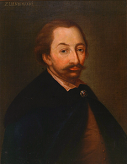


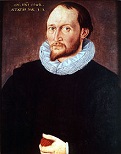




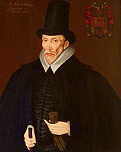
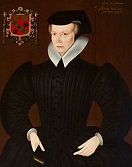



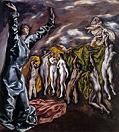
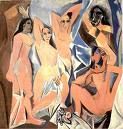
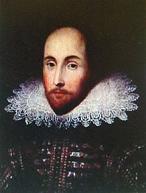
1610 Total pop. of the Am. colonies of Britain is only 350 this year. On Jan. 3-6 the Nossa Senhora da Graca Incident at the mouth of Nagasaki Bay in Japan sees samurai Arima clan junks attack the richly-laden Portuguese carrack Nossa Senhora da Graca (Madre de Deus) (known as the "black ship"), meeting fanatical resistance ending when Capt. Andre Pessoa sets the gunpowder store on fire, demolishing the ship and destroying the crew but denying them the cargo. On Feb. 10 the new German Catholic League meets in Wurzburg to decide on its org., funding, and arming, with HRE Ferdinand II and Pope Paul V approving it; too bad, Maximilian I considers it a strictly defensive union, and refuses to become a Hapsburg puppet and tool, causing him to eventually resign in 1616. On Mar. 12 after receiving a letter from American Roman Catholic priest Father Sandoval as to the legality of slavery of African blacks, Brother Luis Brandaon writes a letter in reply, with the soundbyte: "We have been here ourselves for forty years and there have been among us very learned Fathers... Never did they consider the trade as illicit. Therefore we and the Fathers of Brazil buy these slaves for our service without any scruple." By spring the Starving Time (begun 1609) ends, with only 60 Jamestown colonists surviving, reduced to cannibalism, "their bodies shrunk down almost to the skeleton, resembling corpses held upright by unseen marionette strings", and after English supply ships arrive, the First Thanksgiving is celebrated - can you say Cenozoic? On Apr. 10 the Treaty of Bruzolo (Brussol) allies Charles Emmanuel I of Savoy with Henri IV of France to remove the Spanish from Italy; too bad, the assassination of Henri IV causes it to be dropped. On May 14 in the midst of war preparations against Holland, French king (since 1589) Henri (Henry) IV (b. 1553) is assassinated (stabbed) in his carriage in crowded traffic in the Rue de la Ferronnerie in Paris by raving maniac Jesuit-reject teacher Francois Ravaillac (b. 1578) (who claims that an invasion of Holland is a war against the pope) (Jesuit intrigue is suspected, and Juan de Mariana's 1599 "De Rege et Regis Institutione", which advocates the assassination of heretic kings is blamed and publicly burned), and his 9-y.-o. son Louis XIII (1601-43) succeeds him as Bourbon king #2 of France (until May 14, 1643) under the regency (until 1614) of his Huguenot-hating mother Marie (Maria) de' Medici (1575-1642); Italian adventurer Concino Concini, Count della Penna, Marquis and Marechal d'Ancre (1575-1617) replaces the duke of Sully as chief minister, who is allowed to remain master of the artillery with care of the woods and given a 300K livre reward, which causes him to soon retire to his estate (to smell the flowers?); Louis' three Bourbon daughters Elizabeth, Christina, and Henrietta Maria end up married into the royal families of Spain, Savoy, and England; on May 27 raving Ravaillac, who had been tortured in vain to make him give up any accomplices is taken to the Place de Greve, scalded with burning sulfur, molten lead, and boiling oil and resin, his flesh torn by pincers, then finally drawn and quartered - what is the tablecloth for? In May interim Gov. Thomas Gates arrives in Jamestown from Bermuda, finds the starved remnant begging to give up and get out of Dodge, and in June they start down the James River, and are surprised to meet new gov. and capt.-gen. of Va. (appointed in Feb.) Thomas West, 3rd Baron de la Warr (1577-1618) (Lord Delaware) as he arrives with three ships and 150 men; after he persuades them to turn around and return, they go on to found the settlement of Henrico (Richmond) upstream of Jamestown at the falls, plus two more settlements downstream at the mouth of the James River; life is tough but they hang on with military discipline and strict martial law, with penalties for running away incl. shooting, burning, hanging, and breaking on the wheel. Henry Hudson (b. 1566) makes his Fourth Voyage in search of a Northwest Passage, sailing through the Hudson Strait and discovering Hudson (Hudson's) Bay and the Hudson River; too bad, the crew mutinies and returns to England after setting Henry, his son and several others adrift in Hudson Bay on June 22, and they are never seen again. On July 4 the Battle of Klushino (Kluszyn) near Klushino village (near Smolensk) in Poland is a V for 6.5K outnumbered Polish Hussars and their brilliant cavalry under Stanislaw Zolkiewski (b. 1547), over 30K Russians and 5K mercentaries under Dmitry Shuisky. False Dmitri II is killed; the Poles invade Russia, capture Moscow, and depose Tsar (since 1606) Vasily IV Shuisky, and on July 19 Zygmunt III Vasa's son Wladyslaw IV Vasa (1595-1648) is declared Russian tsar by the Seven Boyars (until Feb. 21, 1613), but his daddy Sigismund III Vasa nixes it after a popular uprising, although he keeps the title of grand duke of Muscovy until 1634; the town of Smolensk holds out. In Oct. French super scholar Isaac Casaubon (1559-1614) comes to England, where he is warmly received by James I, and ends up spending the rest of his life conversing with him or working at royal orders on a refutation of the "Annals of Baronius" (1558-1607), working himself to death. On Dec. 2 after six arrests and four exiles, persistent Welsh Catholic Benedictine monk-priest (St.) John Roberts (b. 1575) is arrested by the stankin' English govt. while celebrating Mass, taken to Newgate prison in his vestments, then hanged, drawn and quartered in Tyburn on Dec. 10 for the crime of priestly ministering, becoming a Roman Catholic martyr. In Prussia Sept. 2 follows Aug. 22 as the Gregorian calendar is adopted. James I prorogues Parliament, but it reassembles; James I's eldest son Prince Henry is created Prince of Wales. Arbella Stewart (Arbella Stuart) (1575-1615), pretender to the English throne (cousin of James I) is imprisoned in the Tower for marrying William Seymour, 2nd Duke of Somerset (1587-1660), like Elizabeth I warned her not to do in 1602 - another anti-female conspiracy? English and Dutch settlers skirmish in India. Frederick IV dies, and is succeeded by his son Frederick (Friedrich) V (1596-1632) (future Winter King) as elector palatine of the Rhine. John Guy becomes the first gov. of Cuper's Cove in Newfoundland, the 2nd oldest English colony in the New World after Jamestown (first proprietary governor). Dr. Bonham's Case, decided by English chief justice Sir Edward Coke establishes the principle of judicial review of legislative acts, with the soundbyte "In many cases the common law will control acts of Parliament and sometimes adjudge them to be utterly void; for when an Act of Parliament is against common right or reason, or repugnant, or impossible to be performed, the common law will control it and adjudge such Act to be void." Russian Cossacks begin conquering Siberia while exploring the coasts and rivers (until 1648), reaching the mouth of the Yenisey River this year, which in 1619 is set as Russia's E border; C Siberia is a tougher nut and takes 30+ years. The town of Derry (Gael. "Daire"/"Doire" = oak grove) on the W bank of the Foyle River in County Donegal at the S end of Inishowen Peninsula (modern-day pop. 83K/90K) is separated from County Donegal and combined with County Coleraine and parts of County Antrim and County Tyrone to form County Londonderry, with the city resettled by planters sent by London livery cos., who rebuild the town with high walls in 1613-19 and rename it Londonderry, becoming the first planned city in Ireland, its grid pattern later copied by the colonies of British North Am.; after it is sieged 3x in the 17th cent. and its walls never breached, it becomes known "the Maiden City"; in the late 20th cent. the unionists want to keep the name Londonderry, but the nationalists want to call it Derry, causing it to be called "the Stroke City" (Derry/Londonderry) by local broadcaster Gerry Anderson. A Portuguese settlement is founded at Cape Coast (Cabo Corso) 100 mi. W of Accra on the Gulf of Guinea, home of the Fante (Fanti) people. Santa Fe (founded 1605) is declared the capital of New Mexico by the Spanish. The Dutch East India Co. introduces the term "share"; a ship brings lacquer furniture to Holland, creating a demand for it; making use of the route info. from the 1596 book by Jan Huyghen van Linschoten, a Dutch ship brings the first bale of green tea leaves to Amsterdam from Macao, after which the Dutch scramble to get into the tea trade. English playwright Ben Jonson (1572-1637) gives up Roman Catholicism, which he had converted to (feigned?) in 1598 during his imprisonment for killing actor Gabriel Spencer. St. Francis de Sales and Mme. de Chantal found the Order of the Nuns of the Visitation of Mary. Wadham College at Oxford U. is founded by Nicholas Wadham (1532-1609) and his widow Dorothy Wadham (nee Petre) (1535-1618) of Somerset; she becomes the first female non-royal non-aristocrat to found a college at Oxbridge; the college bldg., designed by William Arnold becomes the last English public bldg. built according to the medieval tradition of the master mason; alumni incl. Sir Christopher Wren. Madeleine de Sainte-Beuve (1655-1733) endows an Ursuline house in Paris. The town of Rajkot is founded in Saurashtra, India. The first printing press is established in Lebanon in Dayr Qazhaya under Fakhr al-Din II; its first pub. is the Book of Psalms in Syriac. The English Book of Common Prayer is trans. into Manx, becoming the first written Manx lit. Lord Percy pays 10 shillings to visit Bethlehem Royal Hospital for the insane in London, becoming the first known public visit. Architecture: The Grand Galerie in the Louvre (begun 1595) is finished, becoming the longest indoor corridor in the world; Henri IV likes to fill it with trees, grass, and rocks, and stage fox hunts in it? Wollaton Hall (begun 1580) in England is finished. The Ottoman imperial-style Mosque of Malika (Queen) Safiya in Cairo near the Citadel is begun (finished 1611). Science: On Jan. 7 Galileo sights four of Jupiter's moons (Ganymede, Io, Europa, Callisto), calling them the Medician Stars after the Medicis; by the end of the year he observes the Phases of Venus, becoming the first direct evidence for the Copernican Theory, which he waits until 1613 to pub. After beating Galileo by 4 mo. and making the first drawing of the Moon through a telescope on July 26, 1609, English astronomer Thomas Harriot (1560-1621) discovers sunspots - you're the cream in my coffee? French astronomer Nicolas-Claude Fabri de Pieresc (1580-1637) discovers the Orion Nebula. Music: Michael Praetorius (1571-1621), Musae Sioniae (1,244 church hymns). Lodovico Grossi da Viadana (1560-1627), Symphonies. Art: Anon., Cobbe Portrait of William Shakespeare; owned by Anglican archbishop of Dublin Charles Cobbe (1686-1765); once attributed to artist Cornelis Janssens van Ceulen (1593-1661); several copies are made with different hairlines, all the way from bald to prime of life; really Sir Thomas Overbury?; ends up in the Folger Shakespeare Library. Lodovico Carracci (1555-1619), Angel Freeing Souls from Purgatory. El Greco (1541-1614), The Opening of the Fifth Seal (1610-14); the vision of St. John; phantasmagorical pigmentation and tortuously elongated figures mix Byzantine and Western and channel Cubism and Expressionism?; used by Picasso as a basis for his 1907 "Les Demoisselles d'Avignon"? Peter Paul Rubens (1577-1640), The Raising (Elevation) of the Cross (1610-11). Carlo Saraceni 1579-1620), The Holy Spirit Descending on Pope Gregory I; later used to bolster and/or illustrate papal infallibility. Nonfiction: Anon., Exemplar of Korean Medicine (Tongui Pogam); a compendium of 2 cents. of writings on herbal medicines. Jacobus Arminius (1560-1609), The Five Articles of the Remonstrants; a statement of Arminianist free will beliefs against Calvinist predestination is presented to the states of Holland Friesland; major Remonstrants incl. Simon Episcopius and Jan Uytenbogaert; too bad, in 1618-9 the Synod of Dordrecht gets them expelled, desposed, and/or banished, and they set up an exile community in Antwerp in 1619, followed in 1621 in Schleswig, where they build the town of Friedrichstadt. Johann Arndt (1555-1621), True Christianity; Lutheran pietism; "But since the world, which thou art to strive against, is not without thee, but within thee, it follows, that it is also to be conquered not without, but within thee"; "Consider then, O man! whether there can be anything more wretched and poor, more naked and miserable, than man when he dies, if he be not clothed with Christ's righteousness, and enriched in his God"; "In short, all things that please the natural man in this world, are, to a true Christian, only so many crosses and temptations, allurements of sin and snares of death, that continually exercise his virtue". Jean Beguin (1550-1620), Tyrocinium Chymicum (Beginner's Chemistry) (Paris)/ the first chemistry textbook. St. Augustine of Hippo (354-430), City of God; first pub. in English. Cardinal Robert Bellarmine (1542-1621), On the Power of the Supreme Pontiff in Temporal Affairs. John Donne (1572-1631), Pseudo-Martyr; argues that English Roman Catholics should takes an oath of allegiance to James I. Galileo Galilei (1564-1642), Siderial (Starry) Messenger (Sidereus Nuncius); the first pub. look at the sky through a telescope, bolstering the Copernican theory with its description of the mountains on the Moon and the four satellites of Jupiter ("sideria Medicea"), a mini-model of Copernicus' Solar System; he also discovers sunspots, and uses them to estimate the rate of the Sun's rotation, which really freaks out the Aristotelians, who believe in the immutability of the "perfect" heavenly bodies; next year Johannes Kepler coins the word "satellite", from the Latin word for assistant. John Speed, Theatrum Imperii Magnae Britanniae (maps). Novels: Gines Perez de Hita (1545-1619), The Civil Wars of Granada. Plays: Francis Beaumont (1584-1616) and John Fletcher (1579-1625), The Maid's Tragedy. John Fletcher (1579-1625), The Faithful Shepherdess (pastoral drama). Ben Jonson (1572-1637), The Alchemist (comedy); a satire on the follies, vanities, and vices of mankind; his best comedy?; after Lovewit flees his home in London to avoid the plague, his butler turns it into a con game HQ, becoming Captain Farce and hiring conman Subtle and ho Doll Common; marks incl. Dapper, Drugger, Sir Epicure Mammon, Mammon, and Ananias the Anabaptist. William Shakespeare (1564-1616), The Tragedy of Cymbeline, King of Britain (1610-1) (comedy); Cymbeline, Celtic king of Britain and his queen, Posthumous and Imogen, Pisanio, Cloten, Belarius, Guiderius (Polydore), Arviragus (Cadwal), Iachimo; "Hath his bellyful of fighting" (2.1.24); "Hark! hark! the lark at heaven's gate sings" (2.3.22); "The game is up" (3.3.107); "Slander,/ Whose edge is sharper than the sword" (3.4.35); "I have not slept one wink" (3.4.103). Poetry: Samuel Daniel (1562-1619), Tethys' Festival or the Queenes Wake; written on the occasion of Prince Henry becoming a knight of the Bath. Giles Fletcher the Younger (1586-1612), Victory and Triumph (allegory). Births: English mathematician John Pell (d. 1685) on Mar. 1 in Southwick, Sussex; educated at Trinity College, Cambridge U. Italian pope (1689-91) Alexander VIII (Pietro Vito Ottoboni) (d. 1691) on Apr. 22 in Venice; educated at the U. of Padua; last to use the name Alexander until ?. French burlesque poet-dramatist-novelist Paul Scarron (d. 1660) (AKA Monsieur Scarron) on July 1 in Paris; husband (1652-) of Madame de Maintenon; becomes severely crippled in 1638. English shipbuilder Peter Pett (d. 1672) on Aug. 6 in Deptford; son of Phineas Pett (1570-1647). French Jesuit missionary (St.) Gabriel Lalemant (d. 1649) on Oct. 3 in Paris; feast day: Sept. 26/Oct. 19. Irish Protestant soldier-statesman lt.-gen. James FitzThomas Butler, 12th Earl and 1st Duke of Ormonde (d. 1688) on Oct. 19 in Clerkwell, London; of the Old English Butler family that has dominated SE Ireland since the 12th cent.; raised a Roman Catholic until his daddy dies in 1619, then is made a ward of Archbishop George Abbott of Canterbury, who turns him into a Protestant; husband (1629-) of Lady Elizabeth Preston; father of Thomas Butler, 6th earl of Ossory (1634-80); created duke of Ormonde in 1683. Flemish painter David Teniers the Younger (d. 1690) on Dec. 15 in Antwerp; son of David Teniers the Elder (1582-1649); father of David Teniers III (1638-85). French historian Charles du Fresne, Sieur du Cange (Ducange) (d. 1688) on Dec. 18 in Amiens. British MP (1640-2) and secy. of state (1642-3) Lucius Cary, 2nd Viscount Falkland (d. 1643); son of Sir Henry Cary, 1st viscount Falkland (1575-1633); educated at St. John's College, Cambridge U., and Trinity College, Dublin; founder of the Great Tew Circle. Dutch Frisian adm. Joris Pieters van den Broeck (d. 1652). French natural philosopher Jacques Alexandre Le Tenneur (d. 1660) in Paris. English witchhunter John Stearne (d. 1670) in Lawshall (near Bury St. Edmonds); collaborator of French mathematician-scientist Gilles Personne de Roberval (d. 1675). Dutch painter-engraver Adriaen van Ostade (d. 1685) in Haarlem; elder brother of Isaac van Ostade (1621-49); father is from Ostade near Eindhoven; pupil of Frans Hals and Rembrandt. French Calvinist naval officer Abraham Duquesne, Marquis du Bouchet (d. 1688) in Dieppe. Deaths: English master of the revels Edmund Tylney (b. 1536). English archibishop of Canterbury (1604-10) Richard Bancroft (b. 1544) on Nov. 2 in Lambeth, London. English Jesuit leader Robert Persons (b. 1545) on Apr. 15 in Rome. Italian Catholic missionary (to China) Matteo Ricci (b. 1552). French king (1589-1610) Henri IV (b. 1553) on May 14 in Paris (murdered). French fortifications engineer Jean Errard (b. 1554). Italian painter Michelangelo Caravaggio (b. 1571) on July 18 in Porto Ercole, Tuscany. Welsh Benedictine monk St. John Roberts (b. 1575) on Dec. 10 in Tyburn, England (martyred). German landscape painter Adam Elsheimer (b. 1578) on Dec. 11 in Rome, Italy.












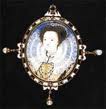
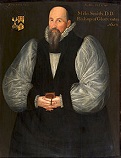
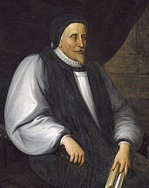
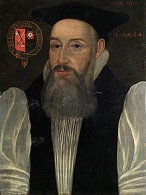
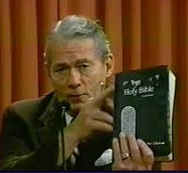

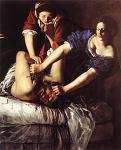
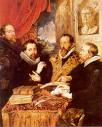
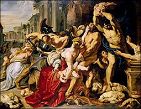


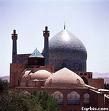
1611 On Mar. 4 London bishop (since 1609) George Abbott (1562-1633) becomes archbishop of Canterbury (until Aug. 5, 1633), and soon gets into a struggle with William Laud, who is elected pres. of St. John's College, Oxford. On Apr. 28 Spanish Dominicans found the U. of Santo Tomas in the Philippines, becoming the oldest univ. in Asia to survive to modern times. On May 9 Japanese emperor (since 1586) Go-Yozei (b. 1572) abdicates in favor of his son Go-Mizunoo (1596-1680), who becomes Japanese emperor #108 (until 1629). In May Sir Thomas Dale (-1619) becomes acting gov. of the struggling Va. colony, and establishes the strict Lawes Divine, Moral and Martiall (Dale's Code); in Aug. Thomas Gates succeeds him as gov. On June 23 Christian II (b. 1583) dies, and his younger brother Johann Georg (John George) I (1585-1656) succeeds as elector of Protestant Saxony (until Oct. 8, 1656), going on to at first flirt with the Hapsburgs and the Catholic League in order to counter the growing strength of Brandenburg and the Palatinate, and end up seeing Saxony's role as a great power in Europe become kaput by the end of his long reign. On Oct. 30 Charles IX (b. 1550) dies, and his son Gustavus II Adolphus II (Gusav II Adolf) Wasa (1594-1632) is elected king of Sweden (until Nov. 6, 1632), inheriting the Swedish-Russian War; he makes Axel Oxenstierna (1583-1654) his chancellor, and issues a royal charter giving the council and estates a voice in all questions of legislation, plus a veto power in all matters of war and peace, and modernizes the govt. and courts while sponsoring education, commerce and industry, and foreign immigration. On Nov. 11 after the family of reclusive oddball HRE (since 1576) Rudolf II (1552-1612) fears that his insanity and incapacity to rule are making the empire vulnerable to Protestant takeover, and names his brother and heir Archduke Matthias as head of the House of Hapsburg, regent, and king of Bohemia, and Matthias takes an army to Prague to force him, Rudolf resigns the Bohemian crown on Nov. 11. Real life vamp gets off like O.J.? On Dec. 29 Hungarian countess ("the Blood Lady of Cachtice") Elizabeth (Erzsebet) (Erzsébet) Bathory (Báthory) de Ecsed (1560-1615), wife of Gen. Ferencz Nadasdy, who lives in Cachtice (Csejthe) Castle in the Carpathian Mts. of Slovakia is arrested on orders of Hungarian king Matthias II; her castle is found to contain scores of bodies of young girls hanging from chains in the dungeons; she is convicted of murdering 50, and her accomplices executed, but since she is of noble birth they wall her in a tiny room in her castle and feed her tiny food scraps until she dies on Aug. 21, 1614; she thought that bathorying in fresh blood would preserve her Liz-like youth and beauty, and killed hundreds (650?) in 1585-1609 after torturing them? - so that's what gives me bad vibes about the Gabor sisters? James I dissolves Parliament, and institutes the baronetage as a means of raising money to bail himself out financially - plop plop fizz fizz, oh what a relief it is? Denmark-Norway begins the Calmar (Kalmar) War with Sweden (ends 1613), breaking 40 years of peace for Sweden, capturing the Swedish frontier fortresses of Kalmar and Alvsborg. Arbella Stewart escapes from the Tower of London, and is recaptured. Lord de la Warr returns from Va. to England, where he writes an account of the colony in order to promote it. Dutch merchants are permitted to trade in Japan. The English found a settlement at Bandar (Machilipatnam) (Masulipatnam) in the Krishna district of Andhra Pradesh on the Bay of Bengal on one of the mouths of the Krishna River (215 mi. NNE of Madras), becoming their first settlement on the Coromandel Coast; next year the Dutch establish themselves near Pulicat (Pazhaverkadu) in Tamil Nadu N of Madras. Jahangir marries his 20th wife (her 2nd husband) Nur Jahan (1577-1645), and she pussy-whips him, becoming the real ruler of the Mogul (Mughal) Empire, despite his having 5K women and 1K young boys in his harem, and owning 12K elephants? - and her pretty little finger? Cambridge, England-born theologiian Alexander Whitaker (1585-1616), son of an ardent Calvinist founds the first Reformed Church in Am. in Va., tracing its origin to the 16th cent. Swiss Reformation, and sticking to the Trinity as well as belief in the justification of grace through faith; in 1613 he baptizes Pocahontas in Henricus under the name Rebecca, going on to become known as "the Apostle of Virginia". Glasgow, Scotland gains a charter with the right of electing its magistrates. Capt. Edward Harlow of England, under the patronage of the earl of Southampton visits Cape Cod, kills many Indians, and abducts several, incl. one tall buck named Epenow (Epanow) (a friend of Squanto, who escapes), whom he parades around in London as a "wonder"; too bad, Epenow discovers what makes white men tick, and tells them that he knows of a gold mine on Martha's Vineyard, and when they take the bait and take him there in 1614, he jumps ship and escapes, and becomes a sachem (chief). English moneylender Thomas Sutton (1532-1611) dies worth over £50K, one of the richest men in England, and leaves money to build the Hospital of King James in Charterhouse Square, Smithfield, London, which becomes the Charterhouse School for boys. Architecture: The Masjid-i-Shah, the royal mosque of Isfahan, Persia is built by Shah Abbas I. Piccadilly Rd. in Westminster, London starts out as land acquired by Robert Baker, a seller of piccadills (broad cut-work lace collars), becoming the home to Clarendon House, Burlington House (1664), Berkeley House, and a favorite of the Rothschild family; in 1819 Piccadilly Circus is built to connect it with Regent St. Science: Dalmatian ecclesiastic Marco Antonio de Dominis (1560-1624) pub. the first scientific explanation of the rainbow. Galileo discovers sunspots, which is confirmed simultaneously by several observers, incl. Johann Faber and Jesuit Father Christopher Scheiner; Galileo goes to Rome to discuss his discoveries with the Jesuits - be sure to wear a fireproof suit? Inventions: Simon Sturtevant of England first uses coke to make iron. Nonfiction: Caspar Bartholin the Elder (1585-1629), Anatomicae Institutiones Corporis Humani; becomes std. anatomy textbook. John Brinsley, Lutus Literarius, or The Grammar School; the birch rod as a teaching tool? Sethus Calvisius (1556-1615), Exercitationes Musicae Duae; the first history of music? Marco Antonio de Dominis (1560-1624), Tractatus de Radiis Visus et Lucis in Vitris, Perspectivis et Iride (Venice); scientific explanation of the rainbow (in each raindrop light undergoes two refractions and an intermediate reflection); Isaac Newton claims his was the first, but others claim that Descartes beat him to it. Daniel Heinsius (1580-1655), De Tragica Constitutione (How to Make a Tragedy); or, Aristotle's Poetics for Dummies? King James I (1566-1625) (ed.), King James (Authorized) Version of the Holy Bible (66 books); commissioned in 1604 (lucky that the 1605 Guy Fawkes Plot to replace the govt. with Roman Catholics didn't succeed), with the work divided between 47 translators (47 Anglicans, 0 Puritans, 0 Roman Catholics, 0 Separatists) in six committees with 15 rules to follow, using ancient mss. for reliability, and deliberately preserving ambiguities, e.g. Romans 5:12: "Wherefore, as by one man sin entered into the world, and death by sin; and so death passed upon all men, for that all have sinned" (can mean that all men die because of sin, and/or that all men sin because they are under God's judgment of death); most of the language is William Tyndale's, but without the pesky marginal notes challenging the divine right of kings; James I's planned royal authorization of the final work never happens?; the intent is to make "of many good translations one principal good one", according to translator Miles Smith (1554-1624) in Preface to the Translation; it takes its place beside the Bishops' Bible (official vers. for use in Anglican churches, original ed. 1568, revised ed. 1602) (basic source for the King James Bible?), the Geneva Bible (1575) (known for Calvinist-slanted footnotes dissing the divine right of kings, always translating the word king as tyrant), and the 1582 Rheims trans. of the 5th cent. Roman Catholic Vulgate; too bad, the King James Bible is initially universally panned, and the Puritans continue to use the Geneva Bible, causing Charles I to ban it in 1644, leading to the Puritans taking over the govt. and beheading him in 1649, later realizing the superiority of the KJV; translator Lancelot Andrewes (1555-1626), master of Pembroke College, Cambridge U. is appointed bishop of Winchester in 1619, becoming the mentor of Reformed Roman Catholicism in the post-Reformation Anglican Church, and the translator of the 23rd Psalm; Thomas Bilson (1547-1616), bishop of Winchester oversees the final edit and printing; the notes on the trans. process are stored in Whitehall, and are destroyed in the 1598 Whitehall Fire; in modern times the Ruckmanists (Ruckmanites), founded by Am. Baptist pastor Peter Sturges Ruckman (1921-2016) claim special divine inspiration for the translators, even though they were govt. employees told what to do by the hardly saintly king, and explicitly deny special inspiration; a case of disguised Am. WASP racism?; Psalm 46 features word 46 from the beginning "shake" and word 46 from the end "spear", and of course William Shakespeare (b. 1564) is 46 the first part of this year; a tribute, or did he translate it? - it's a pajama people special? Johannes Kepler (1571-1630), Dioptrice; first explanation of the optics of myopia, and the first theory of the rainbow; also describes the double convex microscope; Phyllotaxis; mentions the Fibonacci sequence. Etienne Pasquier, Les Recherches de la France. Caspar Schoppe (1576-1649), Ecclesiasticus Auctoritati Jacobi Regis Oppositus; an attack on James I of England by a German Protestant-turned Catholic. John Speed, A History of Great Britain. Thomas West, 3rd Baron de la Warr (1577-1618), The Relation of the Right Honorable the Lord De-La-Warre, of the Colonie, Planted in Virginia. Music: William Byrd (1540-1623), Orlando Gibbons (1583-1625), and John Bull (1562-1628), Partenia; music for virginals. Thomas Ravenscroft (1582-1635), Melismata; 21 madrigals plus other pieces. Art: Artemisia Gentileschi (1593-1653), Judith Decapitating Holofernes (1611-12). Guido Reni (1572-1642), The Massacre of the Innocents. Peter Paul Rubens (1577-1640), The Four Philosophers (1611-2); Justus Lipsius of Antwerp and two students, incl. Rubens' late brother Philip, with Rubens watching from the side; The Massacre of the Innocents I (1611-12); auctioned by Sotheby's of London for £49.5M in 2002 (most expensive painting in history to date); Descent from the Cross (1611-14); his masterpiece. Plays: Juan Ruiz de Alarcon y Mendoza (1681-1639), El Semejante de si Mismo (debut); a flop, he gets ridiculed for being a hunchback ("dwarfed camel", "monkey", "trunk poet"), but perseveres and rises to #1 in Spain in this decade with From Evil Good Always Springs (No Hay Mal que Por Bien no Venga), His Eye on the Main Chance (Mudarse por Mejorarse), The Antichrist, The Segovian Weaver (El Tejedor de Segovia), and his masterpiece La Verdad Sospechosa (The Suspected Truth), about a univ. graduate who is an impulsive liar. Francis Beaumont (1584-1616) and John Fletcher (1579-1625), A King and No King; Cupid's Revenge. Lope de Vega (1562-1635), The Peasant in His Nook (1611-15). George Chapman (1559-1634), May Day. Ben Jonson (1572-1637), Catiline. Thomas Middleton (1580-1627) and Thomas Dekker (1572-1632), The Roaring Girl; comedy about Moll Cutpurse (Mary Frith) (1584-1659), a London pickpocket known for cross-dressing. William Shakespeare (1564-1616), The Tempest (comedy) (1610-11); written for the marriage of German "Winter king" Friedrich V and Elizabeth of Bohemia; last play written without the collaboration of John Fletcher; first play in the First Folio; Prospero has 603 lines, 19th most; Prospero (duke of Milan) ("the favored one") (It. trans. of Faustus), Miranda, Alonso, Ferdinand, Antonio, Sebastian, Ariel (Heb. "lion of God") (a sprite), "savage and deformed slave", "howling monster", "drunken monster", "most scurvy monster" Caliban (father is a sea devil, mother is the Algerian witch Sycorax), Trinculo; "Full fathom five thy father lies./ Of his bones are coral made./ Those are pearls that were his eyes./ Nothing of him that doth fade,/ But doth suffer a sea-change/ Into something rich and strange/ Sea-nymphs hourly ring his knell"; "Our revels now are ended. These our actors,/ As I foretold you, were all spirits, and/ Are melted into air, into thin air" (Prospero) (4.1.148-50); "How beauteous mankind is! O brave new world, /That has such people in 't!" (Miranda) (5.1.183-4); "strange bedfellows" (Trinculo and Caliban) (2.2). Cyril Tourneur (1575-1626), The Atheist's Tragedy; or, The Honest Man's Revenge. Poetry: John Davies of Hereford (1565-1618), The Scourge of Folly. John Donne (1572-1631), An Anatomy of the World (elegy on his dead daughter); followed next year by Of the Progress of the Soul. Emilia Lanyer (1569-1645), Salve Deus Rex Judaeorum; becomes first prof. woman poet in England. Novels: Thomas Coryat (1576-1617), Coryat's Crudities; vol. 1 of his travel stories; incl. the first pub. use of the term "ghetto" (It. "iron foundry") for the Jewish one in Venice located near an iron foundry (founded 1516); Coryat's Crambe, or His Coleworte Twice Sodden; vol. 2 of his travel stories. John Donne (1572-1631), Ignatius His Conclave; a satire of Jesuits founder St. Ignatius of Loyola, who ends up in Hell, is ejected and ordered to colonize the Moon where he will do less harm. Births: German astronomer (Lutheran) ("Founder of Lunar Topography") Johannes Hevelius (Helvius) (Hewelcke) (d. 1687) on Jan. 28 in Danzig. Chinese Ming emperor #16 (last) (1627-44) Chongzhen ("honorable and auspicious") (Zhu Youjian) (d 1644) on Feb. 6 in Forbidden City, Beijing; 5th son of Taichang (1582-1620) and Lady Liu. Italian pope (1676-89) Innocent XI (Benedetto Odescalchi) (d. 1689) on May 16 in Como, Lombardy. French Protestant field marshal (1642-75) Henri de La Tour d'Auvergne, Vicomte de Turenne (d. 1675) on Sept. 11 in Sedan; nephew of Maurice of Nassau (1567-1625). English Cromwellian gen. Henry Ireton (d. 1651) on Nov. 3 in Attenborough, Nottinghamshire; son-in-law of Oliver Cromwell; educated at Trinity College, Oxford. Italian High Baroque printmaker-draftsman Pietro Testa (Il Lucchesino) (d. 1650) in Lucca; student of Pietro Paolini or Domenichino; friend of Nicolas Poussin and Francesco Mola. Scottish writer-translator Sir Thomas Urquhart (Urchard) of Cromarty (d. 1660) in Cromarty. Scottish statesman-judge Archibald Johnston, Lord Warrison (d. 1663) English architect John Webb (d. 1672) in Smithfield, London. Dutch marine painter Willem van de Velde de Oude the Elder (d. 1693) in Leiden; father of Willem van de Velde the Younger (1633-1707). English political philosopher James Harrington (d. 1677). Deaths: English educator Richard Mulcaster (b. 1531) on Apr. 15 in Essex. English moneylender Thomas Sutton (b. 1532) on Dec. 12 in Homerton. Spanish statesman Antonio Perez (b. 1539) on Apr. 7 in Paris. Spanish composer Tomas Luis de Victoria (b. 1548). English poet-diplomat Giles Fletcher the Elder (b. 1549). Swedish king (1604-11) Charles IX (b. 1550) on Oct. 30 in Nykoping Castle. German composer Johannes Eccard (b. 1553). English lord Charles of Lorraine, duke of Mayenne (b. 1554) on Oct. 3 in Soissons. French explorer Pierre du Guast, Sieur de Monts (b. 1560) in Paris. Japanese daimyo Kato Kiyomasa (b. 1562) on Aug. 2 in Kumamoto. Dutch merchant Jan Huyghen van Linschoten (b. 1563) on Feb. 8 in Enkhuizen. German elector of Saxony (1591-1611) Christian II (b. 1583) on June 23 in Dresden. English navigator Henry Hudson (b. ?) in ?.

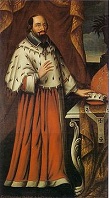



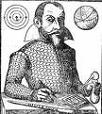





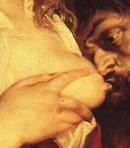
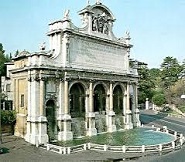
1612 Pop. of London: 325K. On Jan. 19 deposed HRE (1576-1611) Rudolf II (b. 1552) dies of "despondency", and on June 13 after a failed lobbying effort on behalf of elector Maximilian I of Bavaria by his brother Ferdinand of Bavaria (1577-1650), only to have him reject the crown, Bohemian king Matthias (1557-1619) becomes HRE (until Mar. 20, 1619); meanwhile on Feb. 17 Ernest of Bavaria (b. 1554) dies, and Ferdinand of Bavaria is appointed elector-archbishop of Cologne (until Sept. 13, 1650), going on to persecute Protestants and sponsor several fun witch hunts, ramping up the Cologne Witch Persecution, with 37 executed in 1435-1655, most during his reign - it takes a different kind of person to become a firefighter? On Mar. 12 the Virginia Colony gets its Third Royal Charter - every time you turn the wolf on you know it takes you back to that place? On May 24 Sir Robert Cecil, 1st Earl of Salisbury (b. 1563) dies, and is succeeded as English sec. of state by James I's favorite Robert Carr, Viscount Rochester, who next Nov. 3 is created earl of Somerset, followed on Dec. 23 by treasurer of Scotland, and in 1614 by lord chamberlain. On June 8 well-educated Roman Pietro della Valle (1586-1652) leaves Naples on a tour of the East as a cure to a failed love affair, and arrives in Constantinople, spending a year learning Turkish and Arabic; in Mar. 1616 he ends up in the Holy Land in 1616 in time for Easter. In July Peter Floris becomes the first Englishman to visit Phnom Penh - that's phnompenhenal? In July-Aug. the Trial of the Lancashire (Pendle) Witches of 12 witches in Pendle Hill, Lancashire, England charged with the murders of 10 people by witchcraft stinks England up some more; one dies in priz, 11 (9 women, 2 men) go to trial, 10 are found guilty and hung, and one is found not guilty; the last recorded witch burning in England until ? On Aug. 26 the Norwegians ambush Scottish troops in Swedish service under Col. Alexander Ramsay and Lord George Sinclair (1580-1612) (nephew of George Sinclair, 5th earl of Caithness) at the "Scottish" Battle of Kringen (Kringellen). On Nov. 6 James I's eldest son and heir apparent Henry Frederick Stuart, prince of Wales (b. 1594) dies of typhoid, and James has the remains of his dear beheaded mommy Mary, Queen of Scots (d. 1587) moved from Peterborough Castle in Scotland to be with him in Westminster Abbey; James' younger son (momma's boy) Prince Charles, who was not schooled for it becomes heir apparent - you don't have to grow up all at once, so here's more bubbles for your bath? On Nov. 4 Moscow is liberated from Polish invaders by a popular uprising led by Kuzma Minin and Dmitry Pozharsky, causing the Russians to begin commemorating that day as Russian Independence (Unity) Day; on Dec. 3 the Russian fortress of Ivangorod surrenders to the Swedes after 6 mo. of resistance; False Dmitri III is strangled. On Nov. 20 the Ottomans and Persians sign a peace treaty in which the Ottomans surrender their 1590 conquests and accept the 1555 boundaries. On Nov. 29-30 the 4-galleon British East India Co. fleet under Capt. Best decisively defeats the 4-nau Portuguese fleet in the Gulf of Cambay in the naval Battle of Swally (Suvali) near Surat, Gujarat in W India, then founds a trading post (later factory) in Surat in Dec., maintaining a permanent fleet at Swally, near Surat, which becomes the start of the Indian Navy, going on to kick the Portuguese out of the region in the next decade. The Dutch sign a treaty with the King of Kandy in Ceylon, and another treaty with the Ottomans. After private traders infringe royal patents, English mint commissioner Gerard de Malynes proposes a new patent for supplying lead farthings, which is obtained next Apr. 10 by John Harington, 2nd Baron Harington of Exton (1592-1614); too bad, the Haringtons prove unpopular, after Harington dies the private traders begin minting their own again. The Swedish city of Jonkoping (230 mi. SW of Stockholm) is destroyed by its inhabitants by order of Gustavus Adolphus II to keep it out of Danish hands, then rebuilt shortly afterward. After returning to England from Amsterdam and founding the first General_Baptist congregation in England in Spitalfields, East London, Thomas Helwys (1575-1616) pub. "A Short Declaration of the Mistery of Iniquity", criticizing the Mennonites and Puritans, arguing for Arminianism, and appealing to James I to separate church and state to insure freedom of religious conscience, pissing him off and causing him to have Helwys thrown into Newgate Prison, where he dies in 1616; "If the Kings people be obedient and true subjects, obeying all humane lawes made by the King, our Lord the King can require no more: for men's religion to God is betwixt God and themselves; the King shall not answer for it, neither may the King be judge between God and man"; "If our lord the King by his discerning judgment see that as Queen Mary by her sword of justice had no power over her subjects consciences (for then had she power to make them all Papists, and all that resisted her therein suffered justly as evil doers) neither hath our lord the King by that sword of justice power over his subjects consciences: for all earthly powers are one and the same in their several dominions"; meanwhile Baptist co-founder John Smyth (1570-1612) is excommunicated by Helwys from the Baptist Church and joins the Mennonites before dying on Aug. 28. The Dutch use Manhattan as a fur-trading center. The original Marlboro Man wears Jacobean clothes? Commercial tobacco ("green gold") is first raised in Va. as a cash crop by John Rolfe (1585-1622), giving the colony a raison d'etre as a drug dealing supply base, causing it to reorganize with better supply lines and begin establishing satellite squatter settlements on Powhatan farmland, pissing them off; the first crop is the harsh and biting native variety, but he later switches to the more mild Spanish varieties and scores a commercial success, creating the first Am. cash cow; meanwhile the Indians begin going on the defensive as snaphance guns are introduced in this decade, elminating the need for separate matches, and the cleared land gives the English an advantage against Indians, who can shoot arrows 5x as fast but need to hide behind trees; a lame attempt to capture English guns is the only loser's game they got left, and by the 18th cent. they are nearly landless and reluctantly adopt English ways, and by modern times the original 30 tribes are down to five, two on reservations; at least they get to stay? Diego Fernandez de Cordoba, Marques de Guadalcazar and Conde de Posadas (1578-1630) (born in Cordoba, Spain) becomes viceroy of Mexico (until 1621), going on to found the cities of Lerma in Campche (1613), Cordoba in Veracruz (1618), and Guadalcazar in San Luis Potosi (1620), and building an aqueduct from Chapultepec ("hill of the grasshopper") to Mexico City. China prohibits the planting and use of tobacco - making them suckers for opium later? Portuguese Jews are granted a right of residence in Hamburg. The Fettmilch Rising against the Jews in Frankfurt by the guildsmen, led by grocer and gingerbread baker Vincenz Fettmilch begins (ends 1614). Johannes Kepler becomes mathematician to the states of upper Austria in Linz. Architecture: On July 21 Facade of St. Peter's Basilica in Rome is finished; the central balcony is used to announce each new pope with "Habermus Papum". The Fontana dell'Acqua Paola (AKA Il Fantanone = the big fountain) on the Janiculum Hill near the Church of San Pietro in Montorio, Rome is built to mark the end of the Acqua Paola aqueduct restored by Pope Paul V, becoming the first major fountain on the right bank of the Tiber River. Science: German astronomer Simon Marius (1573-1625) rediscovers the Andromeda Nebula, which was first noted by the Muslims in 963. Nonfiction: Accademia della Crusca, Vocabolario della Crusca; a dictionary of the Italian language, which spurs the French, Germans, English, and Spanish to play catch-up. Johann Arndt (1555-1621), Garden of Paradise. Jakob Boehme (1575-1624), Aurora, oder Die Morgenrote im Aufgang (unfinished); teaches that the Fall is a necessary stage in the evolution of the Universe, and that God was incomplete without the Creation; the ms. pisses off Gregorius Richter, chief pastor of his hometown of Goerlitz, who threatens him with exile, causing him to give up writing for years, and not pub. again until 1623. The Three Principles of the Divine Essence. Sethus Calvisius (1556-1615), Elenchus Calendarii Gregoriani (Frankfurt); proposal for reform of the calendar. Samuel Daniel (1562-1619), History of England; thru the reign of Edward III; an earlier vol. about William I the Conqueror was pub. in 1692 under Sir Walter Raleigh's name. Sir John Davies (1569-1626), Discoverie of the True Causes Why Ireland Was Not Entirely Subdued. Roger Fenton (1565-1616), Treatie of Usurie. Antonio Neri, L'Arte Vetraria; glassmaking manual. Samuel Purchas, Hakluytus Posthumus (travels). Capt. John Smith (1580-1631), A Map of Virginia. Alessandro Tassoni (1565-1635), Le Filippiche; pub. anon.; attacks the Spanish domination of Itly. Music: Orlando Gibbons (1583-1625), First Set of Madrigals and Motets. Michael Praetorius (1571-1621), Terpsichore; 300+ instrumental dances. Art: El Greco (1541-1614), The Adoration of the Shepherds. Peter Paul Rubens (1577-1640), Roman Charity (Pero and Simon); ancient Roman story about Pero, who saves her imprisoned daddy Simon (sentenced to death by starvation) by secretly breastfeeding him, until she is found out, after which her selflessnesses wins his release; starts a fad among painters, who can now produce soft core porno and call it art, since it looks so close to the picture of the dead Christ in his mother's arms? Plays: Francis Beaumont and John Fletcher (1579-1625), The Coxcomb. George Chapman (1559-1634), The Widow's Tears. William Shakespeare (1564-1616) and John Fletcher (1579-1625), Henry VIII, or All Is True (alternate title, "All Is True") (1612-13) (history); "No man's pie is freed/ From his ambitious finger" (1.1.52); "The mirror of all courtesy" 2.1.53); "I would not be a queen/ For all the world" (2.3.45); "Press not a falling man too far" (3.2.334); The History of Cardenio (1612-3) (comedy) (lost); based on Miguel Cervants' "Don Quixote"; in 2010 English prof. Brean Hammond claims that Lewis Theobald's 1727 play "Double Falsehood" is based on it, like he claimed all along. John Webster (1580-1635), The White Devil (tragedy) (Red Bull Theatre, London); big flop with Queen Anne's Men, but successfully revived in 1630 by Queen Henrietta's Men at the Cockpit Theatre; The Duchess of Malfi (tragedy) (1612-13); Giovanna d'Aragona marries beneath her class, causing her two brothers to exact bloody revenge. Poetry: Sir William Alexander (1567-1640), An Elegie on the Death of Prince Henry; Paraenesis to the Prince. John Davies of Hereford (1565-1618), The Picture of a Happy Man. William Shakespeare (1564-1616), A Funeral Elegy for Prince Henry; contains one of only six authentic signatures of William Shakespeare that survive into the 21st cent., all of them from the years 1612-1616. Births: English Civil War Parliamentary CIC Thomas "Black Tom" Fairfax, 3rd Lord Fairfax of Cameron (d. 1671) on Jan. 17 in Denton, West Riding of Yorkshire. French Roman Catholic theologian-philosopher-mathematician Antoine "the Great" Arnauld (d. 1694) on Feb. 6 in Paris; son of jurist Antoine Arnauld; educated at the Sorbonne; co-founder with Jean du Vergier de Hauranne (1581-1643) of Jansenism. English dramatist-mgr. Thomas Killigrew (d. 1683) on Feb. 7; starts as a page to Charles I at age 13, and works his way up. English anti-Puritan "Hudibras" satirical poet Samuel Butler (d. 1680) on Feb. 8 in Strensham, Worcestershire; not to be confused with "Erewon" novelist Samuel Butler (1835-1902). French officer (founder of Montreal) Paul de Chomedey, Sieur de Maisonneuve (d. 1676) on Feb. 15 in Neuville-sur-Vannes, Champagne. Italian duke of Parma and Piacenza #5 (1622-46) Odoardo I Farnese (b. 1646) on Apr. 28; sole legitimate son of Ranuccio I Farnese (1569-1622) and Margherita Aldobrandini. Ottoman sultan #17 (1623-40) Murad (Murat) IV (the Cruel) (d. 1640) on June 16; son of Ahmed I (1590-1617) and Kadinefendi Kosem Sultan (Greek); brother of Osman II (1604-22) and Ibrahim I (1615-48); nephew of Mustafa I (1591-1639). Scottish covenanter-royalist military leader James Graham, 5th Earl and 1st Marquess of Montrose (d. 1650) on Oct. 25 in Old Montrose, Edinburgh; only son of John Graham, 4th earl of Montrose and Lady Margaret Ruthven; educated at St. Andrews U.; husband of Magdalene Carnegie; father of James Graham, 2nd marquess of Montrose (1631-69). French Baroque painter Pierre Mignard "Le Romain" (d. 1695) on Nov. 7 in Troyes; uncle of Pierre II "Le Chevalier" Mignard (1640-1725). English astronomer-mathematician (inventor of the micrometer) William Gascoigne (d. 1644) in Middleton, Leeds; educated at Oxford U.? French classical architect (for Louis XIV) Louis Le Vau (d. 1670) in Paris. Am. poet ("the Tenth Muse") (first English language female poet in the Am. colonies?) Anne Dudley Bradstreet (d. 1672) in Northampton, England; daughter of Thomas Dudley; wife of Simon Bradstreet; emigrates with her husband to Mass. in 1630. German Bohemian Baroque composer-organist Andreas Hammerschmidt (d. 1675) (b. 1611?) in Brux, Bohemia; Saxon father, Bohemian mother. Deaths: Italian painter Federico Barocci (d. 1528). Polish poet Peter Skarga (b. 1536). German astronomer Christopher Clavius (b. 1538) on Feb. 6 in Rome. Italian poet Giovanni Battista Guarini (b. 1538) on Oct. 7 in Venice. English botanist John Gerard (b. 1545) in Feb. in London. French economist Barthelemy de Laffemas (b. 1545) in Paris; dies after falling off his horse on Sept. 23. Spanish dramatist-poet Juan de la Cueva de Garoza (b. 1550). Austrian HRE (1576-1612) Rudolf II (b. 1552) on Jan. 19. Russian tsar (1606-12) Vasily IV (b. 1552). Italian composer Giovanni Gabrielli (b. 1557) in Aug. English flush toilet inventor Sir John Harington (b. 1560) on Nov. 20 Kelston, Somerset. English lord Edward, Lord Beauchamp (b. 1561) on July 21. Italian duke of Mantua and Montferrat (1587-1612) Vincenzo I Gonzaga (b. 1562) on Feb. 9 in Mantua. British MP (1598-1612) Robert Cecil, 1st earl of Salisbury (b. 1563) on May 24. English Baptist church denomination founder John Smyth (b. 1570) on Aug. 28. English explorer George Weymouth (b. 1585). Scottish-born Prince of Wales Henry Frederick Stuart (b. 1594) on Nov. 6 (typhoid).










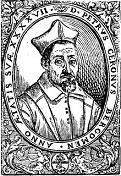
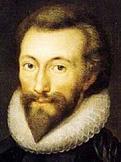
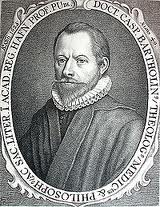




1613 On Jan. 20 the Peace (Treaty) of Knaerod ends the Danish-Swedish War of Calmar (begun 1611). On Feb. 14 Frederick (Friedrich) V (1596-1632), elector palatine of the Rhine marries royal It Girl Elizabeth Stuart (Stewart) (1596-1662), eldest daughter of King James I of England and Anne of Denmark (whose enthronement in England-Scotland was the goal of the 1605 Gunpowder Plot), and becomes known as Elizabeth of Bohemia, residing in the court in Heidelberg and becoming known as the Queen of Hearts for her popularity; Frederick is then recognized as the head of the Protestant (Evangelical) Union of Germany, which signs a treaty of alliance with Holland; in May 14 plays in honor of the marriage are given in London by the King's Men, incl. 6-7 of Shakespeare's troupe; Elizabeth later bears 13 children, incl. Sophia (Sophie) of Hanover (1630-1714), who founds the Hanoverian Dynasty of England via her son George I. On Feb. 21 after False Dmitri IV is beheaded, 17-y.-o. Michael I (Mikhail Fyodorovich Romanov) (1596-1645), son of patriarch Filaret of Moscow and Great Nun Martha (Xenia) is elected as Russian tsar #1 (until July 12, 1645) of the Romanov Dynasty (ends Mar. 15, 1917), which rules for the next 300 years, ending the Time of Troubles; the Romanovs bring about a total enserfment of the people, while the church becomes dependent on the state for its authority - it's worth having a good simple black suit in your wardrobe? You are my sunshine? In the spring former Va. gov. Sir Thomas Dale and his men capture 17-y.-o. Pocahontas and hold her for a ransom of English prisoners, guns, and a boatload of corn, and when her daddy pays it they keep her anyway; William Strachey calls her "well featured but wanton" after seeing her do cartwheels naked; to fend off war (or his libidinous feelings?), prosperous widower John Rolfe then writes to Dale apologizing for being in love with a you know what and begging for permission to marry her, and her aging and increasingly docile pop Powhatan (Wahunsonacock) acquiesces; she is baptized in the Anglican church and given the name Lady Rebecca, and becomes the first Amerindian woman to marry an Englishman - another high maintenance woman not wanting no maintenance man? On June 29 the Globe Theatre in Southwark, London burns down in two hours after a loose dick, er, tom, er cannon is set off during a performance of Shakespeare's "Henry VIII"; no one is hurt and the Globe is rebuilt in June 1614, and closed in 1642; too bad, in 1610 at the pinnacle of his career William Shakespeare retires to New Place in Stratford-upon-Avon, also buying a house in Blackfriars; John Fletcher takes over as house playwright for the King's Men - from spears to arrows? In Oct. Calvinist Bethlen Gabor (Gabriel Bethlen) (1580-1629) becomes prince of Transylvania (until Nov. 15, 1629), going on to lead a revolt against the House of Hapsburg. On Dec. 21 Galileo writes a letter to Benedetto Castelli. Sir Thomas Dale hires mercenaries to drive the French out of Acadia, and they destroy Mount Desert Island, a French colony on the Kennebec River established last year by French Jesuit missionary Pierre Biard (1565-1622), becoming the first hostilities between French and English settlers in North Am.; Biard is taken POW and transported to England, is later freed, and returns to Lyon, France; the British capture and burn Port Royal. The Turks invade Hungary. After the Ottomans put him up to it, a 50K-man army under Damascus ruler Ahmad el-Hafez and Youssif Sifa attacks Lebanon, causing Lebanese ruler Fakhr al-Din II to flee to exile to Cosimo II's Tuscany (until 1618), giving control to his brother Younes and son Ali, who finally secure a truce after losing Tripoli, Sidon and Bekaa; al-Din is introduced to Italian Renaissance culture. Francis Bacon becomes English atty.-gen. (until 1621), going on to use torture to obtain the conviction of Edmund Peacham for treason; next year Parliament passes a law forbidding the atty.-gen to sit there. Robert Ker (Car) (1587-1645), youngest son of a Scottish border laird who becomes James I's lover, er, favorite is created earl of Somerset; too bad, the Earl of Essex's divorced wife Lady Frances Howard marries him, causing him to slip, er, fall from grace next year and be replaced by new pretty boy court favorite George Villiers (1592-1628), who is also a good friend of James' son Prince Charles. Georgian-born Imam Mahmud Qilich (Quli) Khan (-1632) is appointed gov. of the Persian province of Fars in S Persia, and goes on to work with the English to oust the Portuguese from Hormuz; too bad, he gets too wealthy and powerful, causing Shah Safi I to plot to get safely rid of him. Dutch East India Co. officer Jan Pieterszoon Coen (1587-1629) is appointed accountant-gen. and pres. of the head office in Bantam, going on to become gov.-gen. in 1617-23, going on to establish a Dutch monopoly over nutmeg and mace from the Banda Islands and become known for his violence and cruelty, incl. beheading a soldier for having sex with Saarje Specx (1617-36), a girl in his care, but showing his soft side by having her whipped instead of drowned in a barrel; he utters the soundbyte "Despair not, spare your enemies not, for God is with us". French explorer Samuel de Champlain explores the Ottawa River to Alumette Island. The Jacob Barnet Affair sees Jewish teacher Jacob Barnet arrested and imprisoned by the U. of Oxford for changing his mind about being baptized. Portuguese Catholic missionary Alvaro de Semedo (1585-1649) travels to China. Japanese samurai Hasekura Rokuemon Tsunenaga (1571-1622) begins the Keicho Embassy to Europe, starting with the Vatican in Rome, then New Spain (Acapulco, Veracruz), and France in 1615, becoming the first Japanese diplomatic embassy to Europe; after the Japanese suppression of Christianity pisses-off the Euro monarchs, he ends up returning in 1620 without negotiating any trade agreements - the original honk if you're horny? The U. of Cordoba in Argentina is founded. Belfast in N Ireland by the Lagan River is incorporated when James I grants it a charter; it is settled by Presbyterians and Huguenots. Francis Beaumont (1584-1616) marries Ursula Isley of Sundridge and leaves the stage - it's about finding solutions to everyday needs? Caspar Bartholin the Elder (1585-1629) becomes prof. of medicine at Copenhagen U., after which two generations of descendants keep the chair for the next 125 years, making key discoveries in anatomy and medicine; still having a foot in both camps, in 1624 Caspar falls ill, makes a vow that if he recovers he will switch to divinity, then switches to prof. of divinity - back when Science was still small enough to become a family thang? Claudio Monteverdi becomes maestro di cappella at St. Mark's in Venice, one of the top musical jobs in Italy (until 1632). Adrian Block and Hans Christiansen establish the first brewery in the New World on the S tip (Manhattan) of New Amsterdam; in 1614 Jan Vigne (1624-89) becomes the first non-native American (first white Euro male) born in New Netherland at the Block and Christiansen Brewhouse; he grows up to become the first brewer born in the New World. Architecture: Salomon de Brosse builds the Chateau Coulommiers. The Church of St. Anthony of Padua is built in Isleta Pueblo (S of modern-day Albuquerque) in New Mexico by forced Indian labor, becoming the oldest (Romanu Catholic) church in the U.S.?; damaged during the 1680 Pueblo Revolt, it is refurbished and rededicated to St. Augustine between 1700-10. Welsh entrepreneur and self-taught engineer Sir Hugh Myddleton (1560-1631) builds the New River Cut to bring water to London via the Lea River Valley. The Amsterdam Exchange in Netherlands is built. Inventions: Copper coins first come into use in Europe - got the idea from Pocahontas? German miners become the first to use explosives in mining with drilling. Science: In July Galileo Galilei and his archenemy Lodovico delle Colombe (1565-1616) (known for challenging his idea that the Earth revolves around the Sun) debate in Florence on the question of why ice floats on water, with Galileo arguing that ice floats because it's less dense than water, and delle Colombe winning after floating a thin wafer of ebony using surface tension. Nonfiction: Pedro de San Buenaventura, Dictionary of Tagalog; pub. by Tomas Pinpin of Pila, Laguna, Philippines; first Tagalog dictionary. Pietro Cerone (1566-1625), El Melopeo y Maestro: Tractado de Musica Theorica y Pratica; en que se pone por extenso; lo que uno para hazerse perfecto musico ha menester saber (22 vols.); monstrously large and absurd compilation of nonsense on musical theory, making him a star for cents.? Michael Drayton (1563-1631), Map of Hampshire, England. John Dennys, The Secrets of Angling. Sir Henry Fitch (-1625), Nomotexnia (4 vols.); a treatise on law which becomes the std. until William Blackstone. Galileo Galilei (1564-1642), Letters on Sunspots. Sir John Hayward, Lives of the Three Norman Kings of England; written at the request of James I's son Prince Henry. Oliver de Serra (1539-1619), The Causes of Wealth. Sir Anthony Shirley (1565-1635), Sir Anthony Sherley, His Relation of His Travels into Persia - even an astronaut has to go potty? Francisco Suarez (1548-1617), Defensio Catholicae Fidei Contra Anglicanae Sectae Errores (Defense of the Catholic Faith Against Errors of the Anglican Sect). Art: Cristofano Allori (1577-1621), Judith with the Head of Holofernes; modelled by Mazzafirra, with the head being modeled after himself. Lavinia Fontana (1552-1614), Minerva Dressing. Artemisia Gentileschi (1593-1653), Judith and Her Maidservant (1613-14). Guido Reni (1575-1642), Aurora (frescoes) (Rome); St. Dominic's Glory (Basilica of San Domenico, Bologna) (1613-5). Music: Thomas Campion (1568-1639), The Lord's (Lords') Masque. Plays: Francis Beaumont (1584-1616) and John Fletcher (1579-1625), The Scornful Lady; The Captain. Gerbrand Bredero (1585-1618), Klucht van de Koe (comedy); Klucht van Symen ender Soelighyd (1612-13) (comedy). Lope de Vega (1562-1635), Fuenteovejuna; The Foolish Lady. George Chapman (1559-1634), The Revenge of Bussy D'Ambois (tragedy). Pieter Hooft (1581-1647), Geeraerd van Velsen (tragedy). William Shakespeare (1564-1616) and John Fletcher (1579-1625), The Two Noble Kinsmen (comedy); Theseus, Duke of Athens and Hippolyta, Queen of the Amazons, Emilia, Palamon, and Arcite; "O grief and time,/ Fearful consumers, you will all devour!" (1.1.69-70). Poetry: John Donne (1572-1631), Good Friday, 1613, Riding Westward. Michael Drayton (1563-1631), Polyolbion, Pt. 1; patriotic description of England; Pt. 2 in 1622. Cyril Tourneur (1575-1626), A Grief on the Death of Prince Henrie, Expressed in a Broken Elegie. Novels: William Browne, Britannia's Pastorals. Miguel Cervantes (1547-1616), Novelas Ejemplares (Everyday Tales); 12 novelettes; first short stories in Castilian Spanish? Births: Italian Baroque painter Mattia Preti (Il Cavalier Calabrese) (the Calabrian Knight) (d. 1699) on Feb. 24 in Taverna, Calabria; brother of Gregorio Preti; student of Giovanni Battista Caraccio; accepted into the Order of St. John (Knights of Malta) in 1660, spending the rest of his life in Malta. French Versailles landscape architect Andre Le Notre (Nostre) (d. 1700) on Mar. 12 in Paris; born to a family of gardeners responsible for the Tuileries Garden; Louis XIV's gardener in 1645-1700. English Puritan statesman and Mass. Bay Colony gov. #6 (1636-7) Sir Henry (Harry) Vane Jr. (the Younger) (d. 1662) on Mar. 26 in Hadlow, Kent. Dutch portrait-genre painter Gerrit (Gerard) Dou (Dow) (Douw) (d. 1675) on Apr. 7 in Leiden; pupil of Rembrandt (1606-69); teacher of Gabriel Metsu (1629-67). German Wettin elector of Saxony (1656-80) Johann Georg (John George) II (d. 1680) on May 31 in Dresden; 3rd son of Johann Georg I (1585-1656) and 2nd wife Magdalene Sybille of Prussia; father of Johann George III (1647-91). English Anglican bishop-writer Jeremy Taylor (d. 1667) on Aug. 15 in Cambridge. German merchant Johann Siegmund Wurffbain (d. 1661) on Aug. 20 in Nuremberg. French "Maxims" writer Francois VI, Duc de La Rouchefoucauld, Prince de Marcillac (d. 1680) on Sept. 15 in Paris. French architect Claude Perrault (d. 1688) on Sept. 25 in Paris. French churchman Jean Francois Paul de Gondi, Cardinal de Retz (d. 1679) on Sept. 29 in Montmirail. Portuguese queen consort (1640-56) and regent (1656-62) Luisa Maria Francisco de Guzman (Guzmán) y Sandoval (d. 1666) on Oct. 13 in Sanlucar, Spain; wife of Joao VI; mother of Afonso VI (1643-83), Peter II (1648-1706), and Catherine of Braganza (1638-1705). Swedish gen. Carl (Karl) Gustaf Wrangel (d. 1676) on Dec. 23 near Uppsala; of Baltic German descent. English poet Richard Crashaw (d. 1649). Dutch genre painter Bartholomeus van der Helst (d. 1670 in Haarlem. Deaths: Greek Catholic Church (Unia) founder Ipaci Pocei on June 25. English diplomat Sir Thomas Bodley (b. 1545); leaves the bulk of his fortune to the Bodleian Library in Oxford. German composer Bartolomaus Gese (b. 1555). Venetian composer Giovanni Gabrieli (b. 1557). Italian architect Flaminio Ponzio (b. 1560) in rome. Italian mathematician Bartholomeo Pitiscus (b. 1561). Italian composer Carlo Gesualdo (b. 1566) on Sept. 8 in Avellino (murdered by his wife?). Transylvanian prince Sigismund Bathory (b. 1572) on Mar. 27 in Prague (in exile). French satirist Mathurin Regnier (b. 1573) on Oct. 22 in Rouen. English poet-dramatist Sir Thomas Overbury (b. 1581) on Sept. 15 in the Tower of London; slowly poisoned with copper vitriol (sulfuric acid) at the instigation of the countess of Essex for opposing her marriage to his buddy Robert Carr, viscount Rochester. French chef Lancelot (Anseau) de Casteau (Chasteau) (Chestea) (b. ?); Mons-born master chef for three prince-bishops of Liege.








1614 In Feb. after he converts from Lutheranism to Calvinism, and has his officials draw up plans for mass conversion of his people, which are stopped by his Lutheran wife, the Confession of Brandenburg, prepared by order of Brandenburg elector John Sigismund Hohenzollern (1572-1619) attempts to reconcile the tenets of Lutheranism and Calvinism and ends the disputes caused by the Augsburg Confession; the people are permitted to remain either Lutheran or Calvinist as they wish, turning Brandenburg-Prussia into a bi-confessional state. The power of Powhatan outpowers English racism? On Apr. 15 Pocahontas, daughter of the Powhatan chief marries English tobacco tycoon John Rolfe in Jamestown's church; they have one son, Thomas; for centuries distinguished Virginians boast of their descent from the "Indian princess". In Apr. Capt. John Smith leads several ships on a voyage from London to the Maine and Mass. Bay areas, naming them New England with the approval of Prince Charles, and creating the first detailed Map of New England; Thomas Hunt, one of the ship capts. decides to fill his ships with Nauset Indians to sell as slaves in Malaga, Spain, turning the Nausets against the English and damaging English-Indian relations for years; one of them is Squanto (Tisquantum) (1585-1622), who spends five years in Spain, England, and Newfoundland (until 1619), learning Paleface Talk (English). On May 15 after Marie de' Medici arranges the betrothal of her son Louis XIII to Anne of Austria, daughter of Philip III of Spain, the Huguenots get pissed-off and take up arms, but finally give up and accept the Peace (Treaty) of St. Menehould; Louis confirms the Edict of Nantes, and summons the Etats Generaux (Estates Gen.) for the last time until Louis XVI in 1789. On Aug. 22 gingerbread baker Vincenz Fettmilch (-1616) leads the citizens of Frankfurt against their 1,380 Jews, who are plundered and forced to leave the city. On Nov. 12 the Treaty of Xanten ends the War of the Julich Succession (begun 1609), dividing Julich-Cleves (home of Henry VIII's ugly frau Anne of Cleves) between John Sigismund, elector of Brandenburg and Wolfgang William, duke of Palatinate-Neuburg, giving Prussia its first toehold in the Rhineland. A group of Dutch colonists led by Capt. Hendrick Christiaensen (-16169) founds Ft. Nassau (van Nassouwen) in New Netherland on the ruins of an old French fur trader fort on Castle Island on the Hudson River 10 mi. S of its confluence with the Mohawk River opposite the site of modern-day Albany, N.Y. (modern-day pop. 98K/1.2M), becoming the first Dutch settlement in North Am., followed in 1624 by Ft. Orange on the W bank of the Hudson River, engaging in fur trade with the Mahicans and Mohawks, causing more settlers to found the village of Beverwijck (Beverwyck) nearby to the N on the future site of Albany; in 1664 the English take over, renaming the city in honor of the Duke of Albany, future James II of England, officially chartering it in 1686; in 1797 it becomes the capital of N.Y. state; it goes on to become the longest continuously-chartered U.S. city. The Dutch build a fort 90 mi. N of New Amsterdam on the site of future Kingston, N.Y., initially named Esopus after a local tribe, then Wiltwijck, which is settled in 1651, becoming one of the three main Hudson River settlements of New Netherland along with Beverwyck (Albany) and New Amsterdam. James I's 2nd Parliament, AKA the Addled Parliament meets, but refuses to discuss finances, so he dissolves it. Gustavus Adolphus II of Sweden captures Novgorod from the Russians. The Turks raid Hospitaler-held Malta. Louis XIII (b. 1601) is declared of age to rule, but his domineering mother Marie de' Medici retains control, and summons the estates-gen. to counteract the power of the nobility; Louis never gains control throughout his life, even after mommy dies - well done, well done? Virginia colonists prevent French settlements in Maine and Nova Scotia. The long-awaited Promised Land for International Jewry? After setting out late in 1613 to New York harbor in the Tijger (Tiger), Dutch navigator Adriaen (Aerjan) Block (1567-1627) anchors in the harbor, his ship burns, and he and his crew camp on Manhattan Island, where they build the Onrust (Restless), then explore Long Island Sound N beyond Cape Cod, discovering the Connecticut River and Block Island (9 mi. SW of Point Judith, Rhode Island); he claims Connecticut (Conn.) (Algonquin "Quinnehtukqut" = "beside the long tidal river") for the Netherlands, and names it Rhode Island (R.I.) for its red clay; he later pub. Figurative Map of 1614, the first to show Manhattan Island as separate from Long Island; in 1623 fur traders from New Amsterdam set up Ft. Goede Hoop (Ft. Good Hope) at the confluence of the Connecticut and Park Rivers, which is abandoned in 1654, after which English settlers begin arriving in 1637, founding Newtown, which soon becomes Hartford, Conn. (modern-day pop. 124K/1.4M), named after Hertford, England; it is incorporated as a city in 1784, and consolidated in 1896; the city seal depicts a male hart (deer) crossing a you know what. The city of Tirana, Albania in C Albania 19 mi. E of Durres, 95 mi. SW of Skopje, 82 mi. SE of Podgorica, and 310 mi. N of Athens (modern-day pop. 860K) is founded by Sulejman Pasha Bargini as the site of a market, Turkish bath, and mosque, going on to become the cultural hub and seat of govt. in Albania; in 1912 after Albania declares independence, it becomes the capital. Dutch explorer Cornelis Hendricksz then takes the Onrust and begins exploring the Delaware Bay and the Lower Delaware River, after which on Oct. 11 the New Netherland Co. receives an exclusive patent for four voyages to be undertaken over three years to discover territories between the 40th and 4th parallels (until June 1618), causing Dutch explorer Cornelius Jacobsen Mey (May) (Meij) to begin exploring the Lower Delaware River on his ship Blijde Boodschap (Joyful Message). Sir Thomas Dale becomes gov. of Va. again (until 1616), and gives each of the Virginia Co. colonists three acres of land for his own use, starting a policy that every colonist can claim a plot of land; King James I makes the import of tobacco a royal monopoly; Virginia enters the world tobacco market. Jesuit superior general Claudio Acquaviva orders the lower part of dead Jesuit missionary Francis Xavier's right arm cut off and shipped to Rome; Dutch pirates try to capture it but fail. Japanese shogun Iyeyasu orders all Christian priests to leave Japan, and orders the Japanese to give up Christianity. King Philip III establishes Seville as the shipping point for New World tobacco. Sir Fulke Greville, 1st Lord Brooke becomes chancellor of the exchequer (until 1621). Roman Catholic-raised John Donne (1572-1631) converts and takes holy orders in the Anglican Church, becoming the most eloquent preacher in England; "Death be not proud... Death, thou shalt die!" The Augsburg banking house of Welser declares bankruptcy. Founders' typefounder's co. in London is incorporated. The U. of Groningen in Groningen, Holland is founded. The glass industry begins in England. Science: Swiss physician Felix Platter (Plater) (1536-1614) first describes Dupuytren's Disease; the first proponent of the Germ Theory of Disease? Architecture: Santino Salari begins Salzburg Cathedral (finished 1680). Music: Girolamo Frescobaldi (1583-1643), Toccate di Cembalo. Marco da Gagliano (1582-1643), Masses and Motets. Sir William Leighton, The Teares and Lamentacions of a Sorrowful Soule (54 psalms). Art: Domenichino (1581-1641), Last Communion of St. Jerome (San Girolama della Carita, Rome). Nonfiction: Anon., Fama Fraternitatis (The Fame of the Brotherhood); Confessio Fraternitatis (The Confession of the Brotherhood); (Kassel, Germany); the founding document of Rosicrucianism, claiming to be founded by mythical Christian Rosenkreuz (1378-1484); incl. Allgemeine and General Reformation der Ganzen Weiten Welt. Thomas Lodge (tr.) (1558-1625), The Workes of Lucius Annaeus Seneca, Both Morall and Naturall; first English trans. of the works of Seneca. Simon Marius (1573-1624), Mundus Iovialis (Jovalis); claims to have discovered Jupiter's four major moons before Galileo; true or not, he names them Io, Europa, Ganymede (largest moon in the Solar System), and Callisto (3rd largest moon in the Solar System, but only 99% the diam. of Mercury) (always shows same face toward Jupiter); Io, Europa and Ganymede have an orbital resonance that gives them tidal heating. John Napier (1550-1617), Description of the Marvelous Canon of Logarithms (Mirifici Logarithmorum Canonis Descriptio); gives mathematicians and astronomers a new improved method of computation, and uses the decimal point to express decimal fractions. Michael Praetorius (1571-1621), Syntagma Musicum (3 vols.) (1614-20); musical encyclopedia. Sir Walter Raleigh (1554-1618), The Historie of the World; covers from Creation to ancient Greece and Rome, ending with the Second Macedonian War after he quits before writing vols. 2-3 because of the 1612 death of his hero Prince Henry; written while imprisoned in the Tower of London from July 19, 1603-1616; James I stops pub. "for divers exceptions, but especially for being too saucy in censuring Princes." Thomas Ravenscroft (1582-1635), A Briefe Discourse on the True (but Neglected) Use of Charact'ring the Degrees; treatise on music theory. Au contraire, I'm au fond au courant and au fait, never saying auf Wiedersehen to the Aufklarung? Sir Walter Raleigh (1552-1618), The History of the World, Vol. 1; Creation to 130 B.C.E.; no other vols. are produced; outsells Shakespeare - insert TLW jokes here? Santorio Santorii (Santorio) (1561-1636), De Medicina Statica: Being the Aphorisms of Sanctorius; Italian prof. of medicine describes how he spent days on a balance weighing his food and excreta in order to establish that the body loses weight through "invisible perspiration"? - get a load of you? Plays: Lope de Vegas (1562-1635), The Sheep Well (Fuente Ovejuna); his most popular work. Ben Jonson (1572-1637), Bartholomew Fayre (Fair): A Comedy (Hope Theatre, Bankside) (Oct. 31) (Whitehall, London) (Nov. 1); performed by Lady Elizabeth's Men, starring Nathan Field, who is paid 10 pounds by James I; last of four comedies; the 4-day fair in Smithfield each year on Aug. 24-27; amateur playwright Littlewit and his friends Quarious and Winwife plot to win widow Dame Purecraft from hypocritical Puritan Zeal-of-the-Land Busy; meanwhile Cokes comes to town with his servant Wasp to marry Grace Wellborn, ward of justice of the peace Adam Overdo, whose wife is Cokes' sister. Poetry: Sir William Alexander (1567-1640), Domesday, or The Great Day of the Lord's Judgment (epic). Sir Thomas Overbury (1581-1613), Characters; The Wife (posth.); his scandalous death makes it one of the hits of the cent. Births: English clergyman and natural philosopher Bishop John Wilkins (d. 1672) on Jan. 1 in Canons Ashby, Northamtonshire; educated at Hertford College, Oxford U. Austrian gen. archduke (gov. of the Spanish Netherlands from 1647-56) Leopold Wilhelm von Hapsburg (d. 1662) on Jan. 5 in Weiner Neustadt; youngest son of HRE Ferdinand II (1578-1637) and Maria Anna of Bavaria (1574-1616) (daughter of Duke William V of Bavaria); brother of HRE Ferdinand III (1608-57). Dutch Flemish physician Franciscus Sylvius (Franz de le Boe) (Boë) (d. 1672) on Mar. 15 in Hanau, Germany. English Platonist philosopher-theologian Henry More (d. 1687) on Oct. 12 in Grantham; educated at Christ's College, Cambridge U.; coiner of the term "Spissitude" for the 4th spatial dim. of the spiritual realm, with cardinal directions ana/kata, coined by Charles Howard Hinton. English Popish Plot royalist William Howard, 1st Viscount Stafford (d. 1680) on Nov. 30; eldest son of Thomas Howard, 21st earl of Arundel and Alethea Talbot. English Leveler Puritan-turned-Quaker John "Free-Born" Lilburne (d. 1657); coiner of the term "freeborn rights". Irish Protestant leader Murrough MacDermod O'Brien, 1st Earl of Inchiquin (d. 1574); created earl in 1653. Spanish painter Juan Carreno (Carreño) de Miranda (d. 1685) in Aviles, Asturia. English Quaker "nursing mother" (feminist) Margaret Askew (Fell) (Fox) (d. 1702) in Lancashire. Deaths: Irish lord treasurer Thomas Butler, 10th earl of Ormonde (b. 1531) on Nov. 22. Swiss physician Felix Platter (b. 1536) on July 28 in Basel. English architect Robert Smythson (b. 1536). French biographer Pierre de Bourdeilles, seigneur de Brantome (b. 1540) on July 15; leaves Vies des Grands Capitaines Etrangers et Francais, Vies des Dames Galantes, and Vies des Dames Illustres. English statesman Henry Howard, 1st earl of Northampton (b. 1540) on June 15; dies without an heir; dies a Roman Catholic. Cretan-born Greek painter El Greco (b. 1541) on Apr. 7 in Toledo, Spain. French marshal Jean de Beaumanoir, marquis de Lavardin (b. 1551). Italian painter Lavinia Fontana (b. 1552) on Aug. 11. French architect Jacques II Androuet du Cerceau (b. 1556). Swiss-born French scholar-theologian Isaac Casaubon (b. 1559) on July 1 in England. Hungarian vampire lady Elizabeth Bathory (b. 1560) on Aug. 21 in Cachtice Castle, Slovakia. English inventor William Lee (b. 1563) in Paris. English politician John Harington, 2nd Baron Harington of Exton (b. 1592) on Feb. 27 in Kew.










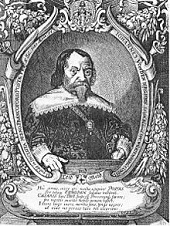


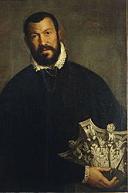



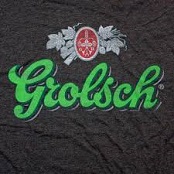
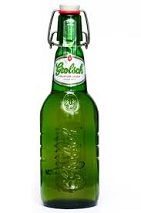
1615 I am wearing a polka-dot parachute, or Captain Cookoff and his son Gourmet Gal? Living, loving, he's just a woman? The original English Brokeback Mountain? In Jan. James I of England knights his pretty boy court favorite and lover (the duke of bucking hams?) George Villiers (1592-1628), whom he calls "sweet child and wife", and to whom Georgie replies "I naturally so love your person, and adore all your other parts, which are more than ever one man had" and "I desire only to live in the world for your sake"; well-bucked James I goes on to raise him to the peerage as the 1st earl of the extinct (since 1521) line of Buckingham in 1517, and after each sexual thrill gets better he raises him higher and higher, to marquess of Buckingham in 1618, then earl of coventry and duke of Buckingham in 1623, making him the highest-ranking subject outside the royal family. On May 6 the Peace of Tyrnau is signed by HRE Matthias and Gabor Bethlen, recognizing the latter as prince of Transylvania, and confirming his treaty with the Turks. On June 14 Dutch mariner Jacob Le Maire (1585-1616) and Willem Schouten embark on a round-the-world voyage from Texel, Netherlands; on Jan. 29, 1616 they become the first to round Cape Horn, named after their ship Hoorn (named after the town in N Holland), which was lost in a fire, and discover the Le Maire Strait; too bad, they are arrested in Java by the jealous Dutch East India Co. for violating its trade monopoly, and their remaining ship Eendracht is confiscated, and Le Maire dies on the remaining ship Amsterdam on return journey to Amsterdam, which ends on July 1, 1617 after 2 years 17 days - fills the need for speed, or there's only one way to rock? On June 27 the first English language reference is made to tea by R. Wickham, agent of the English East India Co. on Hirado Island, Japan in a letter to his colleage Mr. Eaton in Macao, asking for "the best sort of chaw". Beleaguered Italian scientist Galileo Galilei (1564-1642) writes an Open Letter to Madame Cristina of Lorraine, Grand Duchess of Tuscany on his Copernican views, trying to clear himself of the appearance of being an unbeliever, claiming that the Book of Nature is to be read in the language of mathematical science, while the Scriptures when referring to physical fact are not to be taken literally, "nor does God reveal himself less admirably in the effects of Nature than in the sacred words of Scripture"; the purpose of the Scriptures is to teach us "how to go to heaven, not how the heavens go"; the priestly authorities are not amused, and in Dec. Galileo is summoned before the Inquisition in Rome and put on trial for his scientific views in a super-rigged trial; "To assert that the Earth revolves around the Sun is as erroneous as to claim that Jesus was not born of a virgin" (Cardinal Robert Bellarmine (1542-1621), head of the Congregation of the Holy Office, who personally framed the decision to burn Giordano Bruno in 1600, and is not a student of astronomy); Galileo's observations with the telescope actually backed the Tychonic view that the Earth doesn't move, but he stuck with the Copernican system anyway, and was just lucky? You are now free to move about the country? On Nov. 24 French King Louis XIII marries 14-y.-o. Anne of Austria (1601-66) (daughter of Philip II of Spain) in Burgos by proxy; meanwhile the same day Infante Philip of the Asturias (later Philip IV) marries Louis XIII's sister Elisabeth of Bourbon (1602-44) by proxy in Bordeaux; the two princesses are later exchanged like hostages on the Isle of Pheasants in the Bidassoa River between France in Spain near Henday, cementing the alliance between the French and Spanish Catholic royal houses; Cardinal Richelieu suspects Anne of disloyalty to France because of her Hapsburg descent, accusing her of several treasonable conspiracies, and for that or other reasons Louis and Anne eventually can't stand each other and begin living separately in 1620; meanwhile the Three Musketeers Athos, Porthos, and Aramis defend Anne's honor against scheming Cardinal Richelieu :). Spain begins a war with Italy (ends 1617). The French Estates General are dismissed with promises of reforms. Samuel Champlain and Etienne Brule (Brulé) 1592-1633) (who was sent in 1610 to live with the Algonquins and learn their language) explore Lake Huron and Lake Ontario ("fine lake"), and visit the Huron (Fr. "unkempt head") tribe; Brule continues along the Susquehanna River (to Chesapeake Bay?). The limping Virginia Co. raises funds through lotteries. The first British ambassador to India is dispatched to the court of the Mogul Emperor in India; the British presence in India begins. Tokugawa Ieyasu attacks the stronghold of the rival Toyotomi clan, fails to take it, and agrees to a truce requiring clan head Hideyori (b. 1593) to dismantle many of his castle's defense, but he reneges, and Ieyasu returns and this time takes the stronghold, causing Hideyori and his mother to commit hari-kari, ending the house of Toyotomi. The Qing Dynasty forms in the murky corners of Manchuria and feeds on the decay of the Ming Dynasty? In 1615 the Tungusic tribes in E Manchuria expand to eight banners (military regions) under Nurhachi (Nurhaci) (1559-1626), who next year takes the title of Emperor Taizu of the Hou Jin (Later Jin) Dynasty, claiming ethnic descent from the Jurchens of the 12th cent., and takes the clan name Aisin Gioro, founding the Manchu Dynasty in China, later ordering the creation of a written script Manchu Language, using a script borrowed from the Mongolian Ulighur alphabet, which becomes the language of China's official circles; by the mid-19th cent. it begins to be superseded by Mandarin Chinese. A revolt in Tbilisi, Georgia against the Persians under Shah Abbas I is quashed, with 60K killed and 100K deported. Bad year for the Portuguese? The Dutch seize the Spice Islands (Moluccas) from the Portuguese. The English fleet defeats the Portuguese in the naval Battle of Bombay. The Persians seize the port city of Bandar Abbas on the Straits of Hormuz from the Portuguese, and Shah Abbas I names it after himself. The Merchant Adventurers are granted a monopoly for the export of English cloth. Dutch navigator Willem Cornelis (Cornelisz) Schouten (1567-1625) and his financier-journalist Jacob Le Maire (Lemaire) (1585-1616) begin a round-the-world voyage in the Hoom (named after Schouten's birthplace) and Eendracht looking for a new route from the Netherlands W to the East Indies without rounding the Cape of Good Hope in order to get around the Dutch East India Co. (ends 1616). A French ship visits Cape Cod and wrecks, and the Indians, mad at what the English did to them the year before attack and kill all of them except a few, which they turn into slaves to get even; one of the whites learns Indian talk and tells the chief that God was angry with them and will give their country to the white people. Capt. John Mason (1586-1635) becomes proprietary gov. of the English Cuper's Cove Colony at Conception Bay, Newfoundland (until 1621), going on to compile and pub. the first known map of the island in 1620. Coffee first enters Europe through the port of Venice; the consumption of coffee begins to skyrocket in Europe, taking over by the end of the cent. except in snooty England. Louis XIII orders that Christians are forbidden to speak with Jews upon penalty of death. The Jesuits count 13,112 members in 32 provinces. After a successful career in stage design with playwright Ben Jonson, followed by a grand tour of Italy in 1613-15, where he inspected Roman, Renaissance, and Palladian architecture, Smithfield, London-born architect Inigo Jones (1573-1652) becomes surveyor-gen. of the royal bldgs., England's chief architect, designing the first major classical Renaissance structures in England, heavily influenced by the style of Andrea Palladio, causing a revolution in English architecture - in I go? Italian composer Adriano Banchieri (1567-1634) founds the Accademia dei Floridi in Bologna. English #1 organist-composer Orlando Gibbons (1583-1625) is appointed organist at the Chapel Royal. Bulwell Forge in England begins making iron, stripping Sherwood Forest to do so - like in Tolkien's "The Return of the King"? The Frankfurter Oberpostamst-Zeitung (Postzeitung) newspaper is founded by Egenolff Emmel (1602-27) and imperial postmaster (1615-27) Johann von den Birghden (1582-1645) (a Lutheran), gaining subscribers throughout Europe; it folds in 1866. Grolsch Brewery (Royal Grolsch) is founded in Groenlo (Grolle), Netherlands by Willem Neerfeldt, and continued in 1676 by his son Peter Cuyper (-1684), cooling the beer in summer with stored winter ice from the Grolse Canal; in 1876 it moves to Enschede and builds a brewery called "The Clock"; in 1895 it is purchased by Theo de Groen, whointroduces green swing-top bottles for Grolsch Premium Beer, becoming their most popular beer, becoming the 2nd largest brewery in the Netherlands after Heineken; in Nov. 2007 it is acquired by SABMiller for 816M Euros. Grolsch Brewery is founded by Willem Neerfeldt in Groenlo (Grolle) in E Netherlands, becoming known for green bottles with swing tops. Architecture: French architect Salomon de Brosse (1576-1626), a relative of architect Jacques Androuet de Cerceau begins work for the-rich-get-richer Marie de' Medici on the Palais du Luxembourg (finished 1624). Inventions: Salomon de Caux (Caus) (1576-1626) of France invents a solar-powered motor using glass lenses and a airtight vessel containing water and air, and describes the basic principles of the steam engine. Art: Anon., Portrait of Elizabeth, Lady Tanfield. Giovanni Lorenzo Bernini, Amalthea (sculpture) (Palazzo Borghese, Rome). omenichino, Scenes from the Life of St. Cecilia. Jacob Jordaens (1593-1678), Self-Portrait with Parents, Brothers and Sisters. Peter Paul Rubens (1577-1640), Daniel in the Lions' Den; The Nature and the Graces. Music: Johann Hermann Schein (1586-1630), Cymbalum Sionium. Nonfiction: Anon., Confessio Fraternitatis (The Confession of the Brotherhood) (Kassel, Germany); 2nd founding document of Rosicrucianism. William Camden (1551-1623), Annales Rerum Anglicarum (Reign of Elizabeth I) (2 vols.) (1615, 1625); written in Latin; first English trans. pub. in 1625; favorable treatment of Elizabeth I and James I, helping create the image of the Elizabethan era as a golden age; "It is thanks to Camden that we ascribe to Queen Elizabeth a consistent policy of via media rather than an inconsequent series of unresolved conflicts and paralysed indecisions." (Hugh Trevor-Roper). Salomon de Caux (1576-1626), Les Raisons des Forces Mouvantes avec Diverses Machines; basic principles of the steam engine. Gervase Markham (1568-1636), A School for Young Soldiers. Antoine de Montchretien (1575-1621), Traite de l'Economie Politique; first use of the term "political economy" in a title, dissing Aristotle for claiming that politics is independent of economics and other social activities, and arguing that wealth acquisition promotes political stability; the official beginning of Mercantilism, the doctrine that govt. control of foreign trade to maintain a positive balance of trade is important to ensure military security. Vincenzo Scamozzi (1548-1616), The Idea of Universal Architecture (L'Idea dell'Architettura Universale) (2 vols.) (Venice). Lucilio Vanini (1585-1619), Amphiteatrum Aetemae Providentiae Divino-Magicum; a tongue-in-cheek refutation of atheism by a pantheist posing as a theist? Plays: Gerbrand Bredero (1585-1618), Klucht van den Molenaer. Miguel Cervantes (1547-1616), The Cave of Salamanca. Samuel Coster, Spel van de Rijcke Man (farce). George Ruggle (1575-1622), Ignoramus (Cambridge U. farce). Poetry: George Chapman (1559-1634) (tr.), Homer's Odyssey (1614-15). Samuel Daniel (1562-1619), Hymen's Triumph (drama); his masterpiece?; in honor of Lord Roxburghe's marriage. Novels: Miguel Cervantes (1547-1616), Don Quixote, Pt. 2; (Pt. 1 in 1605); his quest ends with reality setting in, and he returns to his village and abandons his knighthood, then croaks; "In the nests of yesteryear there are no birds today"; English trans. by Thomas Shelton pub. in 1620. Births: French supt. of finance (1653-61) Nicolas Fouquet, Marquis de Belle-Isle, Vicomte de Melun et Vaux (d. 1680) on Jan. 27 in Paris. Italian pope #242 (1691-1700) (last to wear beard until ?) Innocent XII (d. 1700) on Mar. 13 in Spinazzola (Puglia); born into an aristocratic family of Naples. Italian Baroque painter-poet-printmaker Salvator Rosa (d. 1673) on June 20 (July 21?) in Arenella (near Naples). Ottoman sultan #18 (1640-8) Ibrahim I (the Mad) (d. 1648) on Nov. 5; son of Ahmed I (1590-1617) and Kosem Sultan (Greek); brother of Osman II (1604-22) and Murad IV (1612-40); father of Mehmed IV (1642-93). English Puritan divine Richard Baxter (d. 1691) on Nov. 12 in Rowton, Shropshire. English Unitarian pioneer John Bidle (Biddle) (d. 1662). English poet Sir John Denham (d. 1669). French chef ("Founder of Haute Cuisine") Francois Pierre de la Varenne (d. 1678) in Burgundy, Dijon; creator of Bechamel Sauce; apprentices with Queen Marie de' Medici, followed by 10 years as chief chef for the marquis of Uxelles. Scottish royalist gen. Sir Thomas "Bloody Tam" Dalyell of the Binns, 1st Baronet (d. 1685) (AKA the Muscovite Devil) in Linlithgowshire. Indonesian Muslim reformer Abd al-Ra'uf al-Sinkili (Abdurrauf Singkil) (d. 1693) in Aceh, Sumatra. Deaths: Italian philosopher Giambattista della Porta (b. 1535) on Feb. 4 in Naples; dies after being tried for sorcery for demonstrating a camera obscura to shocked guests, causing upside-down images of actors performing outside to appear on a wall in his house. Spanish novelist Mateo Aleman (b. 1547). German painter Hans von Aachen (b. 1552) on Mar. 4 in Prague. French queen Margaret of Valois (b. 1553) on May 27. English politician Sir John Leveson (b. 1555) on Nov. 14 in Cuxton, Kent. German musical historian Sethus Calvisius (b. 1556) on Nov. 24 in Leibzig. English politician-diplomat Sir Henry Neville (b. 1564) on July 10. English madrigal composer John Bennet (b. 1575). English pretender Arbella Stewart (b. 1575). Japanese overlord Toyotomi Hideyori (b. 1593) (suicide).







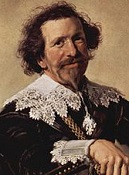


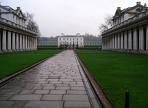
1616 A "virgin soil" smallpox or bubonic plague epidemic introduced by Maine fishermen from Europe devastates the aborigines of New England, killing up to 90% and leaving great heaps of unburied bones (until 1619); after that ends, the remaining Indians begin warring. On Feb. 16 Galileo writes a letter to Monsignor Dini, trying to clear himself of charges of heresy and blasphemy, but failing to convince the Church of the truth of Copernicanism; on Feb. 24 the Qualifiers of the Holy Office pub. a Report on the Bad Boy Galileo condemning the proposition that "the Sun is the center of the world and entirely devoid of local motion" as "foolish and absurd philosophically, and formally heretical", while the proposition that "the Earth is not the center of the world nor immovable, but moves as a whole, and also with a daily motion" is "to receive the same censure in philosophy and, as regards theological truth, to be at least erroneous in faith"; on Feb. 26 Galileo is ordered by Holy Office Commissioner Gen. Vincenzo Maculano da Firenzuola "to relinquish altogether the said opinion that the Sun is the center of the world and immovable and that the Earth moves, nor further to hold, teach or defend it in any way whatsoever, verbally or in writing"; on Mar. 3 the Congregation of the Index, headed by Cardinal Robert Bellarmine (1542-1621), without mentioning Galileo by name bans all writings which treat Copernicanism as anything but an unproven hypothesis, and prohibits Copernicus' 1543 De Revolutionibus from pub. until it is "corrected" to state that it is only presenting a hypothesis (done in 1620); the anti-Copernican decree, which is never officially ratified by the pope is not annulled until 1757; as chastened Galileo mumbles, "epur si muove" (nevertheless, it moves). On Feb. 28 after the HRE personally intervenes, Vincenz Fettmilch and six of his henchmen are arrested, beheaded, and quartered in the Frankfurt Rossmarkt (horse market), and their heads placed on iron spikes near the bridge tower, after which the expelled Jews are returned under imperial guard, and a stone imperial eagle placed over the gate to the ghetto reading "Protected by the Roman Imperial Majesty and the Holy Empire", causing pogroms to virtually cease in Germany until the rise of the Nazis in the 20th cent.; a new law sets a max of 500 Jewish families in Frankfurt, and a max of 12 marriages a year; Frankfurt Jews begin celebrating the feast of Purim Vinz on Adar 20. In Feb. William Shakespeare's and Anne Hathaway's daughter Judith Shakespeare (1585-1662) marries Thomas Quiney (1589-1663), a vintner in Stratford-upon-Avon; they have sons Shakespeare Quiney (1616-17), Richard Quiney (1617-39), and Thomas Quiney (1619-39); on Apr. 23 William Shakespeare (b. 1564) dies. On Mar. 26 after being hired by the Muscovy Co. to find the Northwest Passage, English explorers William Baffin (1584-1622) (pilot) and Robert Bylot leave Gravesend, Kent, England, pass up the Davis Strait W of Greenland, and discover ice-clogged Baffin Bay(between Nunavut, Canada and Greenland, also discovering Ellsmere Island (home of the Arctic Cordillera Mts. and the Arctic willow), Smith Sound, which later becomes a route to the North Pole, and Lancaster Sound NW of Baffin Bay (named after British East India Co. dir. Sir James Lancaster), through which the Northwest Pasage is discovered three cents. later, also sighting Devon Island in Baffin Bay, which becomes the largest uninhabited island on Earth, and reaching 77 deg. 45 min N latitude, which becomes the record until 1852 (236 years); too bad, they aren't believed until Sir John Ross rediscovers Baffin Bay in 1818, and Bylot is not given credit because he participated in the mutiny on Henry Hudson's ship in Hudson Bay in spring 1611. On Oct. 14 English playwright Samuel Daniel (b. 1562) dies, and Ben Jonson (1572-1637) becomes the first official Poet Laureate of England, attached to the royal household of James I, with an annual pension of 100 marks; the U. of Oxford makes him a Master of Arts. Bishop (since 1608), later (1622) cardinal Armand Jean du Plessis de Richelieu (1585-1642) becomes minister of state for foreign affairs and war in France, and the Richelieu Age in France begins. Prince Charles is created prince of Wales by his daddy James I. Convicted traitor Sir Walter Raleigh is released from prison on the condition that he try to discover the fabled gold mines of El Dorado along the Orinoco River and not cause any trouble with the Spanish, whom James I is partial to; he returns to Guiana with his son - and proceeds to cut his own throat? Bless my oringa? The original cigar store Indian has bodacious tatas and nice hands? John Rolfe, backed by the Virginia Co. makes a promotional trip to England to show off his English-speaking Christian wife Pocahontas (Lady Rebecca) and their infant son Thomas, and to sell the English on his tobacco and attract more capital to their venture, despite King James I's aversion to it; she and the dozen other Indians he brings are invited to visit the royal court, but Rolfe is snubbed; Pocahontas charms Queen Anne, who accedes to a letter from Capt. John Smith to receive her as Algonquian royalty, but she doesn't change the king's prejudices against ahem, Indians; she becomes the toast of the town, and sits for a mighty-white portrait by an anon. Englishman (dated Aug. 21) wearing her stiff lace collar and high hat, and holding an ostrich plume fan; Smith waits months then calls on her, and she turns her back on him for two hours before telling him that he had betrayed her people and how he had hurt her by leaving unannounced and never sending word, making her think he was dead; weeks later, she and half of the Indians come down with various fatal European diseases while aboard a ship on the Thames River bound for Jamestown, and she dies in Gravesend in Mar. 1617; Smith, who never marries finally tells his Story of Pocahantas and how she single-handedly saved him from the terrible fate of being brained in 1607, and pub. it in 1624. The Tartars of Manchu invade China (ends 1620). Venice and Austria go to war. Bavarian elector Maximilian I resigns from the 1609 Catholic League; too bad, I will follow my love wherever he will go, and he ends up rejoining in 1618. Archduke Maximilian of Tirol and Archduke Albert, gov. of the Netherlands renounce their claims to the imperial throne in favor of Ferdinand of Styria. Roman Catholic oppression in Bohemia is cranked up. The Earl of Worcester (a Catholic) is made Lord Privy Seal of England, and Sir Thomas Lake becomes secy. of state. Marco Antonio de Dominis (1560-1640), learned fatass former archbishop of Split (Spalato) in Dalmatia, whose researches have led him to break with the corrupt Roman Catholic Church flees to England, where James I gives him a big reception and puts him in the 3rd spot after the archbishops of Canterbury and York, then dean of Windsor in 1617, and he goes on to crank out anti-papal sermons and books for the British govt. Manchu leader Nurhachi (Nurhaci) is crowned as Chinese emperor Qing Tai Zu (1559-1626) - not Fu Manchu? The Swiss Guard (Gardes), a regiment of Swiss mercenaries in the French army are constituted by royal decree as part of Louis XIII's household guard; now he can keep up with the pope and his Swiss Guard (founded 1506). Dutch East India Co. merchant Pieter van den Broecke (1581-1640) smuggles arabica coffee plants out of the Yemeni port of Mocha back to Amsterdam, where they are cultivated in Amsterdam Botanical Garden; in 1658 the Dutch transport them to Ceylon, S India, Java, and Suriname, becoming the first Europeans to cultivate coffee commercially, becoming Europe's main suppliers, creating an oversupply that causes them to focus on their plantations in Java; in 1617 van den Broecke makes a drawing of a dodo on Mauritius. King James I pub. his Religious Credo. The Nanjing Missionary Case leads to the deportation of Christian missionaries in China over the practice of ancestor worship. The Collegium Musicum in Prague is founded. Architecture: Inigo Jones begins the Queen's House in Greenwich, London (finished 1635) for Queen Anne of Denmark, becoming his first major commission, and the first classical bldg. in England. Notre Dame Cathedral in Antwerp (begun 1352) is finished. The Blue Mosque (begun 1609) in Constantinople is finished; Euro visitors begin calling blue the color of Turkey, AKA turquoise. The Champs-Elysees (Champs-Élysées) (Elysian Fields) in Paris starts out as some trees planted by Marie de' Medici to create the Queen's Court from the Tuileries Palace Garden to the Place de l'Alma. Inventions: Italian physician Santorio Santorii (Sanctorius) (1561-1636) invents the first Medical Thermometer - guess where they sanctimoniously stick it? Science: English physician William Harvey (1578-1657) first reveals the function of the heart and complete circulation of the blood at the Royal College of Physicians in London, causing detractors to begin calling him "the Circulator". Italian philosopher Lucilio Vanini (1585-1619), who likes to call himself Giulio Cesare (his real name and he's just lucky?) suggests that humans evolved from apes; he is burned for it three years later - did they do the ape imitations too? Nonfiction: Johann Valentin Andreae (1586-1654), Chymische Hochzeit Christiani Rosenkreutz Anno 1459 (The Chemical Wedding of Christian Rosenkreutz in 1459 C.E.) (Strasbourg); pub. anon.; by a Wittenberg-born theologian living near Stuttgart since 1614; one of the three founding works of the Rosicrucians (1614, 1615); Duke Augustus the Younger of Brunswick-Luneburg (1579-1666), Chess, or The King's Game; pub. under alias Gustavus Selenus, introducing Selenus-type chess pieces. Sir Francis Bacon (who is suspected of being the real Shakespeare) is a Rosicrucian, as are many of Shakespeare's plays?; Andreae later claims authorship in his autobio., and calls it a "ludibrium" (lampoon). Theodore Agrippa d'Aubigne (1552-1630), Histoire Universelle (1616-18); Huguenot survey from 1553-1602, which is officially burned in Paris. Paulus Bolduanus, Bibliotheca Philosophica. George Chapman (1559-1634) (ed.), The Whole Works of Homer, Prince of Poets. Thomas Coryat (1576-1617), Greetings from the Court of the Great Mogul; his 2nd trip (1612), this time to Greece, Persia and India. Marco Antonio de Dominis (1560-1624), Consilium Profectionis (London); virulent attack on my-best-friend's-girl-she-used-to-be-mine Rome. St. Francis de Sales (1567-1622), Traite de l'Amour de Dieu. Gustavus Selenus (August von Braunschweig), Chess, or the Game of Kings. Capt. John Smith (1580-1631), A Description of New England. Lucilio Vanini (1585-1619), De Admirandis Naturae Reginae Deaeque Mortalium Arcanis (Paris); pre-certified by two doctors of the Sorbonne, then later condemned anyway. Art: Luis Tristan de Escamilla (1586-1624), Altar Image in the Church of Yepes (Toledo). Frans Hals (1580-1666), The Banquet of the Officers of St. George's Militia (Shooting) Company in Haarlem (Civic Guard of the Archers); the world's greatest portrait painter bursts onto the scene 50 before 1666? Jacob Jordaens (1593-1678), Adoration of the Shepherds. Isaac Oliver (1565-1617), Portrait of John Donne. Peter Paul Rubens (1577-1640), The Lion Hunt. Bernardo Strozzi (1581-1644), Adoration of the Shepherds (1616-8). Claus Visscher, The Globe. Plays: Gerbrand Bredero (1585-1618), Het Moortje. Ben Jonson (1572-1637), Works (Folio Ed.); the first folio ed. of its kind, setting a precedent used for Shakespeare's plays in 1623, and Beaumont and Fletcher's plays in 1647; The Devil Is An Ass (comedy). Thomas Middleton (1580-1627), The Witch (tragedy). Poetry: Theodore Agrippa d'Aubigne (1552-1630), Les Tragiques; attack on the Roman Catholic poets of the Pleiade; incl. "Les Miseres", "Les Princes", "La Chambre Doree", "Les Feux", "Les Fers, "Vengeances", "Judgment". Daniel Heinsius (1580-1655), Dutch Poems; ed. by Petrus Scriverius. Ben Jonson (1572-1637), The Forest; incl. To Celia; "Drink to me only with thine eyes/ And I will pledge with mine./ Or leave a kiss but in the cup/ and I'll not look for wine."; set to music in the 1770s as the song "Drink to Me Only with Thine Eyes". Sir Walter Raleigh (1552-1618), The Lie; "Go soul, the body's guest"; The Pilgrimage; composed in the Tower; "Give me my scallop-shell of quiet,/ My staff of faith to walk upon,/ My scrip of joy, immortal diet,/ My bottle of salvation,/ My gown of glory, hope's true gage; And thus I'll take my pilgrimage." Novels: Miguel Cervantes (1547-1616), Persiles y Segismunda. Births: Flemish mystic Antoinette Bourignon (d. 1680) on Jan. 13 in Lille; founder of Bourignianism, a school believing in direct cut-the-crap supernatural revelations, which appeals to Catholics and Protestants as a way out of their problems with fallible human orgs.? French Baroque painter Sebastien (Sébastien) Bourdon (d. 1671) on Feb. 2 in Montpellier; pupil of Claude Lorrain and Nicolas Poussin. German Baroque composer-organist-harpsichordist Johann Jakob Froberger (d. 1667) on May 19 in Stuttgart. Dutch Baroque painter Ferdinand Bol (d. 1680) on June 24 in Dordrecht; pupil of Rembrandt van Rijn. German lyric poet-dramatist Andreas Gryphius (Greif) (d. 1664) on Oct. 2 in Grossglogau, Silesia. Danish scientist Thomas Bartholin (d. 1680) on Oct. 20 in Malmo, Sweden; son of Caspar Bartholin the Elder (1585-1629); brother of Erasmus Bartholin (1625-98); father of Caspar Bartholin the Younger (1655-1738). English mathematician John Wallis (d. 1703) on Dec. 3 in Ashford, Kent; educated at Emmanuel College, Cambridge U. inventor of the infinity symbol. Scottish royalist Presbyterian nobleman William Hamilton, 2nd Duke of Hamilton (d. 1651) on Dec. 14 in Hamilton, South Lanarkshire; created earl of Lanark in 1639. English Nonformist Puritan theologian John Owen (d. 1683) in Stadhampton in Oxfordshire; educated at Queen's College, Oxford U. English "The Christian in Complete Armour" Puritan divine William Gurnall (d. 1679) in King's Lynn, Norfolk; educated at Emmanuel College, Cambridge U. Chinese Roman Catholic missionary Lu Wenzao (d. 1691); the first Chinese Catholic father and bishop. Deaths: Flemish botanist-physician Matthias de Lobel (b. 1538) on Mar. 3 in Highgate, London, England. Spanish soldier-historian Garcilaso de la Vega (b. 1539) in Cordoba. Japanese shogun Tokugawa Ieyasu (b. 1543) on June 1 (cancer) (syphilis?). English bishop Thomas Bilson (b. 1547) on June 18; buried in Westminster Abbey. Spanish "Don Quixote" writer Miguel de Cervantes Saavedra (b. 1547) on Apr. 23 in Madrid: "A bird in the hand is worth two in the bush" - same day as Shakespeare? Italian architect Vincenzo Scamozzi (b. 1548) on Aug. 7; dies after completing several projects bequeathed to him by Andrea Palladio after his 1580 death, incl. Teatro Olimpico in Vicenza. Irish leader Hugh O'Neill, 2nd Earl of Tyrone (b. 1550) on July 20 in Rome. English geographer Richard Hakluyt (b. 1552). German chemist Andreas Libavius (b. 1555) on July 25 in Coburg. French statesman-chef Guillaume Fouquet de la Varenne (b. 1560) on Dec. 7. German alchemist Andreas Libavius (b. 1560) on July 25. Italian anatomist Giulio Casserio (b. 1561). English #1 superstar poet-playwright-nomenclator ("The Bard of Avon") William Shakespeare (b. 1564) on Apr. 23 (his birthday?) (St. George's Day) in Stratford-upon-Avon, Warwickshire (fever); leaves 39 plays, 154 sonnets, two long narrative poems et al.; coined 6.7K (3K?) English words; his vocabulary was 17K-29K words, and he used 7K+ different words only once; Anglican Archdeacon Richard Davies of Lichfield, who had known him later wrote that he had been a secret (illegal) Roman Catholic; his last will and testament leaves the bulk of his estate to his daughter Susanna and her husband; leaves his "second best bed with the furniture [bedclothes]" to his wife; his lit. work isn't mentioned in his will; he is buried in the same place where he had been christened, Holy Trinity Church in Stratford-upon-Avon; a monument to him is erected above his tomb in 1623; his epitaph is "Curst be he that moves my bones", keeping him from being buried in Westminster Abbey?; his grave marker shows him holding a bag of grain, which is changed to a quill in 1747; in 2001 the Journal of Science pub. an analysis of clay pipe fragments dug up from his garden, revealing residues of marijuana, cocaine, and myristic acid; he died from mercury poisoning from treatment for syphilis? Italian scientist Lodovico delle Colombe (b. 1565). English impresario Philip Henslowe (b. 1550) on Jan. 6. English Baptist co-founder Thomas Helwys (b. 1575) in Newgate Prison. English playwright Francis Beaumont (b. 1584). Dutch mariner Jacob Le Maire (b. 1585) on Dec. 22; dies at sea en route from Batavia to Amsterdam. English-born Am. divine Alexander Whitaker (b. 1585) in Va. (drowns while crossing the James River). Japanese shogun Iyeyasu on Apr. 17.


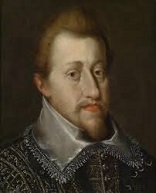









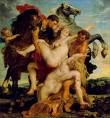

1617 The Indian Plague of 1617-18 in New England wipes out 90% of the pop., causing James I of England to give thanks to "God Almighty in his great goodness and bounty toward us" for sending "this wonderful plague among the salvages"; the Pilgrims see their chance? On Jan. 27 English academic-clergyman George Langbaine the Elder (1609-58), provost of Queen's College, Oxford U. records in his collected notes that John Shurle has a patent from Abraham Lake, bishop of Bath and Wells and vice-chancellor of Oxford U. for the position of univ. ale-tester, with the duty to visit every ale brewery in town and sample their wares, receiving a fee of 1 gal. of strong ale and 2 gal. of strong wort. In Jan. Duke Charles Emmanuel I of Savoy obtains the help of French troops to free the the town of Alba in the Piedmont from the Spanish; Louis XIII's sister Christine Marie marries the duke's son Victor Amadeus I in 1619. On Mar. 14 English recorder (since Nov. 16, 1616) Thomas Coventry is knighted and appointed solicitor gen., beginning his rise in the English judicial system. On Mar. 14 James I makes his only return to Scotland, reaching Edinburgh on May 16, being warmly welcomed by the Scots only to be told how shabby they dress and being snubbed by his English companions; he tactlessly lectures the Scottish parliament on the superiority of English civilization, then after less than 3 mo. of mainly hunting and feasting heads back by the west coast route, arriving in Windsor on Sept. 12; Queen Anne stays in England due to poor health with her momma's boy Prince Charles, which keeps him without a clue about Scotland after he becomes king - Sean Connery will get even later? On Mar. 18 after arriving in Macao on July 20, 1597 and moving to Nanjing in Mar. 1600, working with Matteo Ricco before traveling with him to Peiping on Jan. 24, 1601 and working as an astronomer to correct the Chinese calendar, Spanish Jesuit missionary Father Diego de Pantoja (Didaco Pantoia) (1571-1618) is tried in Peiping as an enemy of the Chinese astronomers and expelled, settling in Macao for the rest of his life. In Mar. 22-y.-o. Pocahontas (b. 1595) dies at Gravesend after a lingering illness before she can return to Va.; meanwhile a pestilence decimates the 30-some Wampanoag villages back on the E shore of Narragansett Bay, just in time for the Mayflower Pilgrims to move in? On Apr. 24 Concino Concini, Marquis d'Ancre (b. 1575), the Queen Regent's favorite is killed resisting arrest (assasinated?) on orders of young Louis XIII after bishop Achille de Harlay de Sancy (1581-1646), pres. of the Paris parliament plots against him. On May 27 Bavaria breaks from the Catholic League and forms its own league with Bamberg, Eichstadt, Wurzburg, and Ellwangen (until 1626). On June 5 Ferdinand of Styria (1578-1637) (later HRE Ferdinand II) becomes king of Bohemia (until Feb. 15, 1637). On Nov. 22 sultan (since 1603) Ahmed I (b. 1590) dies of typhus, and his insane brother "Mad" Mustafa I (1591-1639) becomes Ottoman sultan #15 (until 1618) after being fetched from his cage; he rules 3 mo., then in Mar. is deposed and replaced by his nephew, Ahmed I's eldest son, 14-y.-o. Osman II (1604-22) (until May 20, 1622), who becomes Ottoman sultan #16 (until 1622); too bad, he enjoys archery practice on live page boys, but he turns into an able ruler and multilingual poet, becoming the first sultan to try to get rid of the Janissaries, closing their coffee shops to stifle conspiracies, and planning on recruiting a new ethnic Turkic army; too bad, closing the coffeeshops isn't a strong enough measure, and they get wind of his plans and conspire against him bigtime. Louis XIII forces his mother Marie de' Medici into retirement and begins to rule France. The Swedish-Russian War ends with the Treaty of Stolbova, and Sweden becomes supreme ruler of the Baltic Sea; Gustavus Adolphus II recognizes Tsar Michael I, returns Novgorod, and obtains E Karelia (Carelia) and Ingria, cutting Russia off from the Baltic. Sir Francis Bacon is made Lord Keeper. Sir Walter Raleigh's expedition reaches the mouth of the Orinoco River, and burns the settlement of San Tomas, then gets pissed-off at not discovering any gold and attacks Spanish vessels carrying gold and silver from Mexico, which ends when his men mutiny - that's some bad hat Walter? The Dutch buy Goree Island (off Cape Verde) from the natives. The first English convicts are sent into servitude in the English colonies; the first church is built in Jamestown. "Stuart collars" come into fashion for men and women in Britain. Chinese Emperor Taizu places a death penalty on tobacco use in Mongolia. Francois Citois (1576-1652) records an epidemic of lead colic (colica pictonum) in Poitou. On Sept. 23 the humanist Duytsche (First Nederduytsche) Academie is founded in Amsterdam by Dutch playwright Samuel Coster (1579-1665) (until 1637). The Fruchtbringende Gesellschaft (Fruitbearing Society) lit. society is founded in Weimar by German poet Martin Optiz von Boberfeld (1597-1639) to copy the language standardization program of the Accademia della Crusca in Florence (founded 1582); in 1635 France founds their own clone. Spanish priest St. Joseph Calasanctius (1556-1648) founds the Piarists (Fathers of Pious Schools) in Rome for the education of the poor. German organist-composer Heinrich Schutz (Schütz) (1585-1672) becomes kapellmeister of the electoral chapel in Dresden (until 1672). Science: Dutch mathematician Willebrord Snell(ius) (Willebrord Snel van Royen) (1580-1626) first describes a method for surveying by triangulation, taken from ancient Greek mathematician Eratosthenes (-276 to -194); he also uses 96-sided polygons to improve the value of pi from 2 to 7 decimal places. Galileo's collaborator Benedetto Castelli uses a telescope to determine that Mizar, one of the two stars in the Big Dipper is a binary; in 1890 Mizar A is discovered to be a binary, followed in 1908 by Mizar B, followed in 2009 by Alcor, making it a sextuplet group. Nonfiction: John Calvin (1509-64), Collected Works (posth.) (Geneva). Fynes Morison (1566-1630), An Itinerary: Containing His Ten Years Travel Through the Twelve Dominions of Germany, Bohemia, Switzerland, Netherland, Denmark, Poland, Italy, Turkey, France, England, Scotland and Ireland (3 vols.); vol. 4 pub. in 1903; first mention of the term "merry Christmas". John Swetnam, The Arraignment of Women; a misogynistic pamphlet, inviting women to respond for their gender; Rachel Speght (1597-1630) responds with A Mouzell for Melastomus, the first English feminist polemic pub. under a real name? Marco Antonio de Dominis (1560-1624), De Republica Ecclesiastica; how the papacy has corrupted the Roman Catholic Church. Robert Fludd (1574-1637), Tractatus Theologo-Philosophicus; Utriusque Cosmi Maioris Salicet et Minoris Metaphysica (1617-9). John Napier (1550-1617), Rabdologia (Gr. "rabdos" = rod, staff); mechanical systems for performing arithmetic. Willebrord Snell (1580-1626), Eratosthenes Batavus; measuring the Earth using triangulation the Eratosthenes way. Art: Jacques Callot (1592-1635), The Giant Tifeo Beneath Mount Ischia (print). Domenichino (1581-1641), Diana's Hunt (1616-7). Anthony van Dyck (1599-1641), A Study of Four Negro Heads in Brussels and Malibu; not bad for an apprentice of Rubens? Guido Reni, The Deeds of Hercules (1617-21). Peter Paul Rubens (1577-1640), Rape of the Daughters of Leucippus (1617-8). Music: Jean-Baptiste Besard (1567-1618), Novus Partus. Biagio Marini (1594-1663), Musical Events (sonata for solo violin). Johann Hermann Schein (1586-1630), Banchetto Musicale (Musical Banquet); the first dance suite, containing 20 variations; listen. Plays: Gerbrand Bredero (1585-1618), De Spaansche Brabander. Pieter Hooft (1581-1647), Warenar; comedy adapted from Plautus' "Aulularia". Theophile de Viau (1590-1626), Pyramus et Thisbe (tragedy in verse); lovers in Babylon; basis of "Romeo and Juliet"? Thomas Middleton (1580-1627) and William Rowley (1585-1626), A Fair Quarrel (comedy). Novels: Anon., Chin P'ing Mei (Gold Plum Vase); first realistic social novel pub. in China. Births: English royalist antiquary-alchemist-politician (Freemason) Elias Ashmole (d. 1692) on May 23 in Lichfield, Staffordshire. French Baroque painter Eustache Lesueur (Le Sueur) (d. 1655) on Nov. 19 in Paris; great-uncle of Jean-Francois Lesueur (1760-1837). German elector Palatine Charles I Louis (d. 1680) on Dec. 22; 2nd son of "Winter King" Frederick V and Princess Elizabeth (daughter of James I of England). German poet Christian Hofmann von Hofmannswaldau (d. 1679) on Dec. 25 in Breslau, Silesia. Dutch genre painter Gerard ter Borch (Terburg) (Torborch) (d. 1681) in Dec. in Zwolle, Overjissel; son of Gerard ter Borch the Elder (1583-1662). Spanish Baroque painter Bartolome (Bartolomé) Esteban Murillo (d. 1682) in Dec. in Seville (Pilas?). English Cambridge Platonist philosopher Ralph Cudworth (d. 1688) in Aller, Somersetshire; educated at Emmanuel College, Cambridge U. Dutch painter Emanuel de Witte (d. 1692) in Alkmaar; known for his mastery of perspective and light. Italian Jesuit mathematician Paolo Casati (Paulus Casatus) (d. 1707) in Piacenza; family is from Milan. Deaths: Italian mathematician Bernardino Baldi (b. 1533) on Oct. 12 in Urbino. Scottish judge Sir John Skene (b. 1543). Italian philosopher Giovanni Botero (b. 1544). Spanish philosopher Francisco Suarez (b. 1548). Scottish mathematician John Napier (b. 1550) - the original captain's log? Croatian humanist scholar Faust Vrancic (b. 1551) on Jan. 17 in Venice. Italianu physician-botanist Prospero Alpini (b. 1553) on Feb. 6 in Padua. Italian astronomer-cartographer Giovanni Antonio Magini (b. 1555) on Feb. 11 in Bologna. French-born English miniature painter Isaac Oliver (b. 1556) on Oct. 2 in London. Austrian prince-bishop of Salzburg (1587-1612) Wolf Dietrich von Raitenau (b. 1559) on Jan. 16 in Burg Hohenwerfen (imprisoned for life). French-born English portraitist Isaac Oliver (b. 1565) in Oct. French composer Jean-Baptiste Besard (b. 1567). Japanese emperor #107 (1586-1611) Go-Yozei (b. 1572) on Sept. 25. Italian politician Concino Concini, marquis d'Ancre (b. 1575) on Apr. 24 in Paris (killed for resisting arrest) (executed by orders of Louis XIII?). English travel writer Thomas Coryat (b. 1576) in Surat, India (dysentery). Ottoman sultan (1603-17) Ahmed I (b. 1590) on Nov. 22 (typhus). Am. Indian princess "Frisky" Pocahontas (b. 1595) in Mar. in Gravesend, England at age 22.
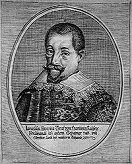
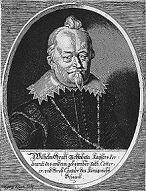
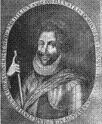









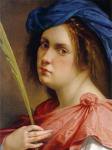

1618 On Feb. 19 the Peace of Madrid is ratified, ending the war between Venice and Austria. On May 23 Galileo Galilei sends a Letter to Archduke Leopold of Austria, along with telescopes and his treatise on sunspots. On May 23 after they can't stand the thought of fiercely Roman Catholic Ferdinand of Styria (future HRE Ferdinand II) ruling Bohemia, the Ultraquist Bohemian Revolt against the Hapsburgs, led by Count Matthias von Thurn begins with the Second Defenestration of Prague, when some Protestant rebels throw Roman Catholic regents Jaroslav Borzita (Borita) (Borsita) of Martinice (Martinic) (Martinitz) (1582-1649) and William Slawata (Schlabata) (Vilem Slavata) of Chlum (1572-1652) (members of the Bohemian royal council) from a window in Hradcany Castle in Prague into a manure pile, precipitating the cannon and gunpowder filled cool-to-be-cruel Thirty (30) Years' War (ends May 15, 1648); the Imperial Army under CIC field marshal Baron Charles Bonaventure (Karl Bonaventura) de Longueval, Count of Bucquoy (1571-1621) enters Bohemia to suppress the rebels. Oh come let us adore him, Christ the White Man's Lord? On Sept. 6-25 the Great Comet of 1618 (one of three this year) appears in the skies over Europe, causing Millennium Fever to whip up, esp. with the Puritans of Leiden, Holland, who use it as their excuse to throw caution to the wind and travel to survival-of-the-fittest North Am. to plant a godly English civilization, while the rest of the Euro Christians begin the apocalyptic super-cruel Thirty Years' War (ends 1648); in England the comet is used to diss the king's proposed marriage alliance with Spain; you had to be there, but the intoxicating power of the new King James Bible over all English Bible-thumpers actually makes them think they are the Chosen People, with a language not tracing back to Rome and Roman popery, with the butchery of the greedy Roman Catholics in South Am. proving that their brand of white is right; in 1662 Phineas Pratt writes "In the year 1618 there appeared a blazing star over Germany that made the wise men of Europe astonished there." On Nov. 13 the Synod of Dort (Dordrecht) convenes in Dordrecht to settle the differences between the Calvinists and Arminians (free-will believers), followers of Jacobus Arminius (Jako Hermanszoon) (1560-1609), and next May 9 after 154 meetings ends up expelling the Arminians from the Dutch Reformed Church. How WASP North America became a Christian nation? Prominent British MP Sir Edwin Sandys (1561-1629) becomes head of the cash-poor, land-rich Virginia Co.a nd institutes the "headright" policy, offering anybody who buys a share in the co. and comes to sandy Virginia 50 free acres, plus another 50 for any indentured servants (7-year term) he brings; this becomes a custom with proprietors in Maryland and other southern and middle colonies; the original Va. settlers got 100 acres. On Sept. 26 after the united armies of the Ottomans and Tartars are defeated by the Persians under Shah Abbas I near Sultaniyeh (140 mi. NW of Tehran), causing the Ottomans to end all squabbles over their boundaries and confirm their 1612 treaty; too bad, the Turks don't wait long to renew their war. On Oct. 29 (Thur. Old Style) after returning to England Sir Walter Raleigh (b. 1552) finds that the Spanish govt. is demanding his death, causing his 1603 death sentence to be restored; after he "tooke a pipe of tobacco a little before he went to the scaffolde", he is beheaded in the Tower for treason; henceforth he can only be found in a can - the mean old king never did like that tobacco stuff? In Oct. the Duke of Lerma is removed from power after obtaining a cardinal's hat in Mar. Richelieu is ordered into exile at Avignon for intriguing with Queen Mother Maria de' Medici. Insane Duke Albert Frederick of Prussia dies, and his possessions pass to his son-in-law John Sigmund (regent during Albert's insanity in the latter part of his reign) through marriage, and he is proclaimed duke; Brandenburg and Prussia begin fusing. Count Ernst von Mansfeld (1580-1626) occupies Pilsen for the Protestant Union. Poland signs a two-year truce with Sweden, and a 14-year truce with Turkey. After failing to get Tuscany to invade Lebanon for five years, the situation finally cools down enough for Fakhr al-Din II to return to Lebanon, and he goes on to get even with Youssif Sifa and recover his lands, and permits Jesuits and Roman Catholic nuns to open schools. James I imposes bishops on the Presbyterian church of Scotland in an attempt to integrate it with the Church of England; the move is deeply unpopular. Russia makes peace with Poland. Nurhachi makes his move, declaring war against Chinese emperor (since 1573) Ming Shen Zong and proclaiming seven grudges to Heaven, occuping Fushun and Qinghe in Liaodong, then pulling out after killing Ming gen. Zhang Chengyin and setting up a govt. with local Han Chinese assistance. Prince Philip William of Orange (b. ?) dies, and is succeeded as prince of Orange by his Roman Catholic younger brother Maurice of Nassau (1567-1625). Ferdinand of Styria becomes king of Hungary. Baron Reachea IV dies, and Chettha II becomes king of Cambodia (until 1622). The Scottish Kirk Gen. Assembly in Perth issues the Five Articles of Perth, attempting to change from the Presbyterian to Episcopalian form of org. so that James I/VI can rule the churches in England and Scotland the same way as head of the church; a civil war in the Scottish church results, which lasts until 1690; meanwhile clan war rocks the Scottish Highlands. The Moroccan army returns from the middle Niger region and Timbuktu, leaving only some garrisons in important towns; a few decades later the descendants, known as the Arma become overlords of Timbuku (until the early 19th cent.), putting down constant revolts. Lord Delaware (b. 1577) receives complains of the tyrannical actions of his Va. deputy Samuel Argall, sets sail for Va., dies on the voyage, and is buried at sea. John Tradescant the Elder (1577-1638) journeys to Russia with Sir Dudley Digges, and leaves a journal for posterity. French explorer Paul Imbert discovers Timbuktu. The Dutch West African Co. (Dutch West India Co. on the Gold Coast of West Africa) is founded. The town of Cordoba, Mexico is founded by Mexico viceroy guess who? Dutch privateer Jan Janszoon (1570-1641) from Haarlem is captured by Barbary pirates, taken to Algiers, and converts to Islam, sailing with famous Dutch-born corsair Sulayman Rais (Slemen Reis) and changing his name to Murad (Murat) Reis, operating from the port of Sale (Salé), Morocco until 1627. Playwright Ben Jonson begins a walking tour of Scotland. Anthony Van Dyck becomes a member of the Antwerp guild of painters. Puritan Separatists Edward Winslow (1595-1655) and William Brewster (1567-1644) pub. a religious tract in Leyden, Holland critical of King James I and his bishops, causing the king to order Brewster's arrest and send agents to Holland; Brewster goes into hiding, causing deacon John Carver and Robert Cushman (1577-) to become the leaders of the Separatists in negotiating with London officials to found a colony in North Am. Catherine de Vivonne, Marquise de Rambouillet (1588-1665) founds her literary salon in Paris in the rebuilt Hotel Pisani, designed with suites of small rooms for private er, talk, becoming known as the Hotel de Rambouillet, which is a main social center until 1650; meanwhile her daughter Julie Luciana d'Angennes (1607-71), AKA the Incomparable Julie is groomed to fill her slippers. Architecture: The Teatro Farnese in Parma, Italy opens. The Queen's House in Greenwich (begun 1616) is finished. Aston Hall in Birmingham, England is begun (finished 1635). Science: Garcia de Sylva Figuera, ambassador of Philip II of Spain visits Persepolis in Iran, and becomes the first to suggest that the funny wedge markings might be a lost form of writing (cuneiform) - here's some positive feedback? Nonfiction: Robert Balfour, Commentarii in Organum Logicum Aristotelis. Jakob Boehme (1575-1624), Sixty-Two Theosophic Epistles (1618-24). Martin Boehme, Ein Neu Buch von Bewehrten Rosz-Arzteneyen; veterinary manual. Johannes Buxtorf (1564-1629), Biblica Hebraica cum Paraphrase Chaldee et Commentariis Rabbinorum (2 vols.); his magnum opus; a Rabinnical Bible. King James I (1566-1625), Declaration of Sports; orders it read in all English churches to encourage healthy enjoyment of fun and games on Sunday, outraging Puritans - so that's why they call Sunday football heroes jocks? Johannes Kepler (1571-1630), Epitome Astronomia Copernicanae (The Epitome of Copernican Astronomy); a textbook on astronomy which describes it in modern terms, replacing scholastic mumbo-jumbo with observation, translation into numbers, and use of mathematical models to form hypotheses which "save the appearances" and describe the true motions of the planets and their causes, which had been hidden in "God's pandects"; those who can penetrate his shrouded Latin prose get a shock; Kepler's salary, which is paid only irregularly before the Thirty Years' War, is hardly paid at all; his mommy is charged with w itchcraft during one of the many German witch hunts, and narrowly escapes execution; meanwhile, the Catholics keep persecuting him for not worshiping images and saints, and even his fellow Lutherans in Linz exclude him from their Evening Meal because he doesn't believe in God's omnipresence; "Suffering along with many brothers for the sake of religion and for the glory of Christ by enduring harm and disgrace, by leaving one's house, fields, friends, and home, I would never have believed all of this could be so agreeable." (Kepler) Royal College of Physicians (London), Pharmacopoeia Londinensis. Johann Jakob Scheuchzer, Natural History of the Swiss Landscape. Teophilus Schweighardt Constantiens (Daniel Mogling), The Mirror of the Wisdom of the Rosicrucians (Frankfort-am-Main). John Stow and E. Howes, A Summarie of Englyshe Chronicles. Art: Giovanni Bernini (1598-1680), Aeneas, Anchises, and Ascanius (sculpture) (1618-9). Jerome Duquesnoy the Elder, Manneken Pis (Dutch "Little Pissing Man") Fountain (1619?) (bronze sculpture); becomes the symbol of Brussels; in 1965 it is switched with a replica so it can be kept safe in the city museum. Peter Paul Rubens (1577-1640), The Battle of the Amazons. Diego Velazquez (1599-1660), An Old Woman Cooking Eggs (Vieja Friendo Huevos). Music: Johann Hermann Schein (1586-1630), Opella Nova, Geistlicher Concerten. Plays: Guillen de Castro y Bellvis, Comedies (1618-21). John Fletcher (1579-1625), The Humorous Lieutenant (comedy). Births: Italian Jesuit priest-mathematician-physicist Francesco Maria Grimaldi (d. 1663) on Apr. 2. in Bologne. Swiss field marshal Henrik Horn (d. 1693) on May 22. French architect Nicolas-Francois (Le Grand) (the Great) Blondel (d. 1686) on June 15 in Ribemont?; grandfather of Jacques-Francois "Le Petit" Blondel (1705-74). Dutch Baroque portrait painter (in England) Sir Peter Lely (Pieter van der Faes) (d. 1680) on Sept. 14 in Soest, Westphalia, Prussia; moves to London in 1641; knighted in 1680; paints Charles I, Charles II, and Oliver Cromwell; introduces the mezzotint to Britain; first English painter to leave an immense body of work. Indian Mughal emperor #6 (1658-1707) (Muslim) Abul Muzaffar Muhi-ud-Din Mohammad Aurangzeb (Aurungzeb) (d. 1707) AKA Alamgir ("Universe-seizer") in Dahod; 3rd son and 6th child of Shah Jahan (1592-1666) and Mumtaz Mahal. English astronomer Jeremiah Horrocks (d. 1641). Dutch atty. (first in North Am.) (namesake of Yonkers, N.Y.) Adriaen Cornelissen "Jonkheer" ("gentleman") van der Donck (d. 1655) in Breda. English "stone walls do not a prison make" Cavalier Poet Richard Lovelace (pr. like loveless) (d. 1657) in Woolwich; educated at Gloucester Hall, Oxford; brother of Francis Lovelace (1621-75). English Quaker leader James Naylor (Nayler) (d. 1660) in Ardsley, Yorkshire. Dutch still-life painter Abraham Vosmaer (d. 1661). English "The Mistress", "The Four Ages of England" poet-essayist Abraham Cowley (d. 1667) in London; educated at Westminster School, and Trinity College, Cambridge. Dutch landscape painter Louis Elsevier (d. 1675). English "Glossographia" lexicographer (Roman Catholic) Thomas Blount (d. 1679) in Bordesley, Tardebigge, Worcestershire. French explorer Medart (Médart) Chouart de Groseilliers (d. 1696). British col. Thomas Blood (d. 1680) in County Meath, Ireland; known for his ruffianism, incl. trying to steal the crown jewels from the Tower in 1671. Japanese Confucian scholar-historian Hayashi Shunsai (d. 1680). Deaths: English benefactress Dorothy Wadham (b. 1535) on May 16 in Edge, Branscombe, Devon. Am. Indian chief Powhatan (b. 1547); father of Pocahontas. Italian "bel canto" composer-singer Giulio Caccini (b. 1551) on Dec. 10 in Florence; leaves Ave Maria, which doesn't become a hit until the 1990s. English know-it-all explorer-writer-courtier Sir Walter Raleigh (b. 1552) on Oct. 29 in London (beheaded); last words: "This is a sharp medicine, but it is a physician for all diseases and miseries", followed by "Strike, man, strike!"; his wife Bess has his head embalmed, and carries it with her the rest of her life, after which their son Carew has it buried with them in St. Margaret's Church, Westminster. Prussian duke #2 (1568-1618) Albert Frederick (b. 1553) on Aug. 28. English explorer Sir James Lancaster (b. 1554) in May. French cardinal-theologian Jacques Davy Duperron (b. 1556) on Sept. 5 in Batignolles (Paris). English poet John Davies of Hereford (b. 1565) in July. Carmelite nun Barbe Jeanne Acarie (b. 1566) on Apr. 18 in Pontoise, Ile-de-France; beatified by Pope Pius VI in 1791. Spanish Jesuit missionary Father Diego de Pantoja (b. 1571) in Jan. in Portuguese Macao, China. English dramatist George Wilkins (b. 1576). English fussbucket Thomas West, 3rd baron de la Warr (b. 1577); dies at sea en route to Va. Dutch poet-playwright Gerbrand Bredero (b. 1585).


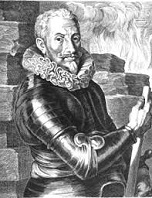




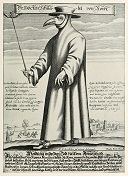

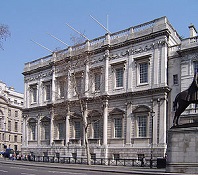
1619 Between this year and 1622 the Virginia Co. sends 3.6K settlers to Va., and only 600 survive - this time Darwin may have something? On Mar. 4 James I's Roman Catholic wife Anne of Denmark (b. 1574), queen consort of England dies, missing seeing her daughter Elizabeth Stuart become the Winter Queen. On Mar. 20 HRE Matthias (b. 1557) dies in Vienna, and on Aug. 28 after Maximilian I of Bavaria turns it down, and Johann Georg I of Saxony is talked into voting for him to nullify opposition from the other Protestant electors in return for letting him occupy Silesia and Lusatia, Roman Catholic, Jesuit-educated (strongly anti-Protestant) Austrian Hapsburg Archduke Ferdinand of Styria (king of Bohemia since 1617) is elected HRE Ferdinand II (1578-1637) (until Feb. 15, 1637); freaking at the thought of a Jesuit marshmallow-toaster running Bohemia, the Bohemian Diet (nobles) declares him deposed on Aug. 26, and elects Protestant League head Frederick (Friedrich) V (1596-1632) (elector of the Rhenish Palatinate of Bavaria since Sept. 19, 1610 and son-in-law of James I of England) as king of Bohemia in his place, and he is crowned in Prague on Nov. 4, going to war with HRE Ferdinand II and Maximilian I of Bavaria (who strikes a deal with Ferdinand in Oct. in exchange for large concessions) and the Catholic League, beginning the Bohemian Revolt of the Czech Estates (ends 1620), the first phase of the Thirty Years' War (ends May 15, 1648), the first "modern" war, and the first heavily influenced by merchants and trade; too bad, Frederick doesn't last long, becoming known as the Winter King, and his Scottish wife Elizabeth Stuart "the Queen of Hearts" as the Winter Queen; meanwhile cagey Maximilian I of Bavaria signs a neutrality treaty with the Protestant Union and occupies Upper Austria as security for his expenses; in Dec. Bavaria agrees to supply its own 7K men to the Catholic army of 21K infantry and 4K cavalry, commanded by frilly collar lover Johann Tserclaes, Count of Tilly (1559-1632), a descendant of the Roman Catholic Brabantine family; meanwhile the Protestant Union army only totals 10K men. In Mar. after Nurhachi unifies all of the Jurchen tribes except the Yehe, and attacks them, causing the Ming emperor to send reinforcments to their aid, the Battle of Sarhu sees 100K Ming troops with Korean reinforcements defeated by 10K Manchus under Nurhachi, who uses superior force concentration tactics to win with cavalry despite the Chinese having matchlocks and cannon, messing up their plans to siege Nurhachi's home base of Hetu Ala. In the spring English explorer Thomas Dermer sails S from Maine in a small boat with Squanto to return to his home at Patuxet, site of modern-day Plymouth, and finds all 2K wiped out by the plague (smallpox?) (viral hepatitis?), then takes Dermer to Nemasket, 15 mi. inland, finding several family members alive and well, then takes him to visit chief Massasoit and his brother Quadequina of the Pokanokets, and talks them into returning the French captives of 1615, then leaves Squanto to spend the winter in Va. - congratulations victor nightingale? On June 10 the Battle of Sablat (Zablati) near Prachatice sees the Roman Catholic army of Charles Bonaventure (Karel Bonaventura) de Longueval, Count of Buquoy (1571-1621) defeat the Protestant army of Count Ernst von Mansfeld, who loses 1.5K infantry plus his baggage train, causing the Bohemians under Count Georg Friedrich of Hohenloe-Neuenstein-Weikersheim (1569-1645) to lift their siege of Budejovice (Budweis), becoming a turning point for the Catholics - Budweiser joke here? In June the Puritan Separatists of Scrooby in Nottinghamshire, England secure a patent from the Virginia Co., and William Bradford sells his house to help pay for the voyage; meanwhile news arrives from Robert Cushman of London that another group of 180 English Separatists from Emden, Holland led by Mr. Blackwell had tried to reach North Am. during the winter, and all but 50 died of the "the flux, and also want of fresh water"; the Dutch get wind of their plans and offer to help them set up a Dutch settlement, and when they refuse secretly work to block them from leapfrogging into an area they want for themselves? The first blacks arrive in the future U.S. one year ahead of the Mayflower? On July 30 after economic success causes Dale's Code to be relaxed, and the Va. Co. promises settlers the "rights of Englishmen", including a rep. assembly, and new gov. Sir George Yeardley (Eardley) (Yardley) (1587-1627) arrives, the House of Burgesses, the first representative assembly in Am. (gov., six councilors, 22 burgesses elected by property owners, all male) meets in the church in Jamestown and deliberates for five days, "sweating & stewing, and battling flies and mosquitoes"; member Walter Shelley dies from the heat; they discuss Indian relations, church attendance, gambling and drunkness, and tobacco prices; the die is cast for the WASP pattern of democratic capitalism for themselves and chattel slavery for blacks?; they hold a Thanksgiving on the banks of the James River on what later becomes Berkeley Plantation, birthplace of Benjamin Harrison; having exported 10 tons of tobacco by this year, the Jamestown colonists can afford to import their first African (Negro) slaves (which are still called indentured servants?) and women, which arrive on the Treasurer and Dutch man-of-war White Lion (captained by English privateers) from Angola in late Aug.; they were originally captured in North Africa by African Muslims, who enslave 1M Euro whites from 1500-1800, and hold slave auctions in Egypt until 1885; they pay for the "20 and odd Negars" "victuale" (food), and for the 90 women brought by another English ship with 120 lbs. of tobacco for each (5 tons); the blacks are slaves captured from the Portuguese slave ship Juan Bautista en route from Angola to Veracruz (there are already 200K African slaves in the Americas); by the 1640s several of the blacks are listed as landowners, indicating they had attained freedom, but after 1640 they begin to be treated as chattel, and outnumber white indentured servants by the 1670s - by which time their ass is grass and their white owners have the lawnmowers? On Aug. 10 after Marie de' Medici runs a power play on her son Louis XIII, causing the latter to recall Richelieu from Avignon to prevent a revolt, and Louis marches his army into Angers and defeats his mother's supporters, the Treaty of Angouleme is signed, ending the conflict. On Sept. 7 Transylvanian Jesuit (St.) Melchior Grodziechi (b. 1582) and Silesian Jesuit (St.) Istvan Pongracz (b. 1584) are tortured, murdered, and mutilated and left unburied for 6 mo. by Calvinist troops of Prince George I Rakoczi in Kosice in modern-day Slovakie after they fail to renounce their faith and are framed on treason by being accused of inviting the Polish army into Kassa - they were proud of their career and excited about their future? On Nov. 10-11 (St. Martin's Day) (night) after joining the Dutch States Army in 1618, La Haye en Touraine, France-born philosopher-mathematician (Roman Catholic) (Rosicrucian) ("Father of Modern Philosophy") Rene (René) Descartes (1596-1650) has divine visions in Neuburg an der Donau, Germany in which he "discovered the foundations of a marvelous science", which later becomes Analytic Geometry, along with his famous dictum "Cogito ergo sum" (Je pense donc je suis), causing him to dedicate his life to the mathematical basis of Nature; in 1620 he leaves the army, returning to the Dutch Repub. in 1628, spending 20 years formulating his philosophical works, laying down a new direction for philosophers with an explanation of mind and matter, besting Roger Bacon and later gaining the title "Father of Modern Thought". On Dec. 23 elector (since 1608) John Sigismund (b. 1572) dies, and George William of Hohenzollern (1595-1640) becomes duke of Prussia and elector of Brandenburg (until Dec. 1, 1640). Bethlen Gabor of Transylvania invades Hungary, allies himself with Count Thurn, captures Pressburg, crosses the Danube, then retreats from Vienna. Philip III of Spain leaves his court at Madrid to visit Portugal, where he contracts a fatal illness. Edward Herbert, Lord Herbert of Chirbury (Cherbury) (1583-1648) is appointed English ambassador to France (until 1624), where he picks up Deism? The Dutch set up a whaling industry on Amsterdam Island. After deciding to turn the Dutch warehouses into a fort, and allowing the English to take the town while he's away on an expedition, Dutch East India Co. gov.-gen. Jan Pieterszoon Coen reconquers Jakarta but burns it down in the process, rebuilding it and founding Batavia (modern-day Jakarta) in Java (modern-day pop. 33.4M/10.7M), which becomes HQ of the spice-is-nice Dutch East India Co. (VOC); he tries unsuccessfully to get the town named Nieuw Hoorn after his hometown, and also tries unsuccessfully to dig canals there like in Amsterdam. The Dutch East India Co. ship Schiedam arrives in Japan, carrying French Huguenot refugee cook's mate Francois Caron (1600-73) (first Frenchman to set foot in Japan?), who goes on to learn Japanese and become their interpreter. The rest of St. Xavier's arm is cut into three pieces by the Jesuits and shipped to Macao, Cochin and Malacca; medical miracles are sure to follow. Virginia tobacco production reaches 20K lbs. this year. The Giro-Bank is founded in Hamburg to improve the "desolate state" of the currency, becoming Germany's first commercial bank. The Jamestown Colony enacts the first law in North Am. ordering farmers to grow Indian hemp (Cannabis sativa); mandatory laws are enacted in Mass. in 1631, Conn. in 1632, and the Chesapeake colonies in the 1700s; in 1631 hemp becomes legal tender in most of the British colonies until the early 1800s. Edmund Gunter becomes prof. of astronomy at Gresham College, London. Dulwich College boarding school for boys in London 4 mi. SE of St. Paul's Cathedral is founded by actor Edward Alleyn (1566-1626) as the College of God's Gift; in 1811 Sir P.F. Bourgeois bequeaths an art gallery; it goes on to become the alma mater of P.G. Wodehouse, Raymond Chandler, and (almost) Dennis Wheatley. Architecture: Francesco Borromini (1599-1667) goes to Rome to work as an asst. to Gian Lorenzo Bernini in the construction of the great canopy (baldacchino) over the main altar in St. Peter's Basilica. Inigo Jones begins the Banqueting House (Hall) in Whitehall, London (finished 1622), which goes on to become the place where Charles I is beheaded in 1649 - I do my little strut on the catwalk? Inventions: Cornelius Drebbel (1572-1633) of Holland, who had become famous throughout Europe as James I's patron in 1604 and HRE Rudolf II's patron in Prague in 1610 invents the first microscope with two convex lenses (or two lenses for that matter). Croatian-born inventor Faust Vrancic (1551-1617) tests Leonaro da Vinci's parachute design by modifying it then jumping from St. Mark's Campanile in Venice; it's just a coincidence that he soon dies? Science: William Harvey announces his discovery of the circulation of the blood at St. Bartholomew's Hospital in London. Art: Domenichino (1581-1641), Martyrdom of St. Peter the Martyr (1619-21). Charles de Lorme (1584-1678), The Doctor Schnabel von Nour; creates "the look" for a plague doctor, with beaked mask and pie-pan hat. Diego Velazquez (1599-1660), The Water-Seller of Seville; Adoration of the Kings. Music: Marco da Gagliano (1582-1643), Medoro (opera). Heinrich Schutz (1585-1672), Psalms. Jan Pieterszoon Sweelinck, Cantiones Sacrae. Nonfiction: Johann Valentin Andreae (1586-1654), Christianopoulis. John Bainbridge, An Astronomical Description of the Late Comet. Jakob Boehme (1575-1624), On the Principles of Christianity. Andre Duchesne (ed.), The Gesta Buillelmi of William of Poitiers; first-hand account of the reign of William I the Conqueror; ms. is missing the first and last folios, lost in 1731 in a fire at the Cottonian Library. Galileo Galilei (1564-1642), Discourse on Comets. Hugo Grotius (1583-1645), De Veritate Religionis Christianae. Johannes Kepler (1571-1630), Harmonices Mundi (The Harmony of the World); contains his Third Law of Planetary Motion (the squares of the periods of revolution are proportional to the cubes of the mean distances). John Pitts (Pitseus) (1560-1616), Relationum Historicarum de Rebus Anglicis Tomus Primus (De Illustribus Angliae Scriptoribus). Pietro Sarpi, Historia del Concilio Tridentino (History of the Council of Trent) (London); title page dedicated to James I; Marco de Dominis, who brought it to England pockets the royal gift? Christoph Scheiner (1575-1650), Oculus; contains the first accurate diagrams of the human eye, incl. the pupillary near-reflex, and the active nature of accommodation. Caspar Schoppe (1576-1649), Classicum Belli Sacri; calls on the Roman Catholic princes of Europe to wage war on Protestants. Francis Tregian (-1619), The FitzWilliam Virginal Book; largest ms. collection of English keyboard music from the 16th-17th cents. to survive to modern times; ends up in the possession of Robert FitzWilliam, 7th Viscount FitzWilliam (1745-1816), who donates it to Cambridge U. Plays: Honorat de Bueil (1589-1670), Les Bergeries (pastoral verse play); original title "Arthenice"; inspired by Virgil et al. Francis Beaumont (1584-1616) and John Fletcher (1579-1625), A King and No King; The Maid's Tragedy. Poetry: John Davies of Hereford (1565-1618), Wit's Bedlam. Georg Rudolf Weckherlin (1584-1653), Oden und Geseinge (2 vols.) (1618-9); dedicated to electress Elizabeth of the Palatinate; based on French Pleiade poetry. Births: Italian mathematician-cardinal Michelangelo Ricci (d. 1682) on Jan. 30 in Rome; friend of Galileo Torricelli. French Hall of Mirrors in Versailles painter ("the greatest French artist of all time" - Louis XIV) Charles Le Brun (d. 1690) on Feb. 24 in Paris; dominant artist of Louis XIV's reign; student of Simon Vouet. Dutch Cape Town cmdr. #1 (1652-62) Johan Anthoniszoon "Jan" van Riebeeck (d. 1677) on Apr. 21 in Culemborg. Dutch painter Philips Wouwerman (d. 1668) on May 24 in Haarlem; student of Frans Hals; his signature white horse appears in almost all of his 1.2K paintings, which are hard to tell apart from those of his younger brothers Pieter Wouwerman (1623-82) and Jan Wouwerman (1629-66) - big wow? Italian Baroque singer-composer Barbara Strozzi (Valle) d. 1664) on Aug. 6. French princess Anne Geneveve of Bourbon-Conde (Bourbon-Condé), Duchess of Longueville (d. 1679) on Aug. 28 in Chateau de Vincennes Prison, where her parents were put for opposing Marie de' Medici's favorite Marshal D'Ancre; only daughter of Henri II de Bourbon, prince of Conde (1588-1646) and 1st wife Charlotte-Marguerite de Montmorency (1594-1650); sister of Louis II of Bourbon, the Great Conde (1621-86) and Armand de Bourbon, prince de conti (1629-66); wife (1642-) of Henri II d'Orleans, duc de Longueville (1595-1663); lover of the duke of La Rochefoucauld (1613-80); educated in the Carmelite convent in Rue St. Jacques, Paris. French economist and statesman (minister of finance, 1661-83) Jean-Baptiste Colbert (d. 1683) on Aug. 29 in Reims; nicknamed "Le Nord" by Madame de Seveigne for his cold unemotional personality; claims to have Scottish ancestry. German poet Philipp von Zesen (d. 1689) on Oct. 8 in Priorau (near Dessau). English Civil War Parliamentarian gen. John Lambert (d. 1684) in the fall in Kirkby Malham (near Skipton), West Riding, Yorkshire. Bohemian gen.-adm.-inventor Prince Rupert, Count Palatine of the Rhine, Duke of Bavaria, Duke of Cumberland (d. 1682) on Dec. 17 in Prague; 3rd son of elector palatine Frederick V and Elizabeth Stuart (daughter of Charles I of England). French big-nosed soldier-poet Savinien Cyrano ("from Cyrene") de Bergerac (d. 1655) in Paris; subject of Edmond Rostand's 1897 drama. Chinese Confucian philosopher Wang Fuzhi (Fuchih) (d. 1692) in Hengyang, Hunan; rejects li (rational law) as existing independently of qi (chi) (matter-energy), and becomes popular for his belief that govt. should be for the people not the elite, and that landlords should be taxed. Dutch Baroque painter Willem Kalf (d. 1693) in Rotterdam. Deaths: Italian surgeon-anatomist Hieronymus Fabricius (b. 1537) on May 21 in Padua. Spanish poet Gines Perez de Hita (b. 1545). English miniature painter Nicholas Hilliard (b. 1547) on Jan. 7. English Jesuit missionary Thomas Stephens (b. 1549) in Salcete, Goa, India. English poet Samuel Daniel (b. 1552). Italian painter Lodovico Carracci (b. 1555) on Nov. 13. Bohemian king (1611-9) and HRE (1612-9) Matthias I (b. 1557) on Mar. 20 in Vienna. English poet-historian Samuel Daniel (b. 1562) on Oct. 14 in The Ridge, Beckington (near Devizes), Wiltshire. English Main Plot loser Henry Brooke, 11th baron Cobham (b. 1564) on Feb. 3 (Jan. 24 Old Style) in the Minories, London; dies in a "dingy apartment" 1 year after being released from the nearby Tower of London. English tragedian Richard Burbage (b. 1568) on Mar. 13. English-Scottish queen consort Anne of Denmark (b. 1574) on Mar. 2; her hubby James nearly dies of gastric problems after her death, caused by grief, and her son Prince Charles, who loved to go to masques with her is also freaked bigtime? Italian Roman Catholic philosopher Lucilio Vanini (b. 1585) on Feb. 9 in Toulouse (tongue cut out and burned as a heretic) - some grasses and flowers are happy with only a little water? English colonial gov. of Virginia (1611, 1614-16) Sir Thomas Dale (b. ?) on Aug. 19 in Machilipatnam (near Bantam), India.

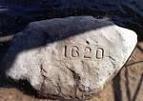

















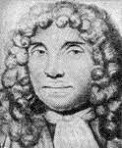

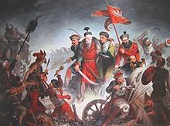




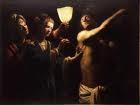
1620 Pop. of the Am. colonies: 2.3K. The pop. density in Germany is 35 per sq. mi., compared to 6 at the time of Julius Caesar, 160 in 1900, 280 in 1950. The Thirteen Drifty Days, a gigantic snowstorm destroys 90% of the sheep in S Scotland, incl. all 20K in Eksdale Moor. By this year the James River basin from the mouth of the Chesapeake River to within 20 mi. of modern-day Richmond has been settled under the sponsorship of the Virginia Co., which organizes itself into the Council for New England, intending to colonize it, but too bad the Pilgrims beat them to it before the king approves it?; tobacco-hating James I orders the culture of silk (sericulture) in Va., but it is given up by 1670 in favor of more profitable tobacco. As the Pilgrims arrive in Cape Cod in North Am. with a land grant from Charles I to the Plymouth Co. for "Northern Virginia", incl. Long Island, the Euro-induced plague of 1616-9 has greatly reduced the Indian pop. in the region; the closest Indians are the Massachusetts-speaking Pokanokets, head tribe of the Wampanoag Nation, led by sachem (chief) Massasoit ("supreme leader") (Owsamequen) (Woosamequen) (1581-1661), 60 mi. to the SW near modern-day Warren, R.I. (who had been reduced from 12K to 1K pop. and only a few hundred warriors), and the Algonguian Narragansetts to their W (who didn't get the plague, still having 25K pop., incl. 5K warriors), who had recently forced Massasoit to do obeisance to their sachem Canonicus (1565-1647); other tribes incl. the Massachusetts (Mahican) to the N and the Nausets (Cape Cod Indians) on Cape Cod, all of whom are Narrangansett enemies, and sachem-powwow Passaconaway (1565-1670) of the Algonquian Pennacooks (Pennacocks) (Merrimacks) to the N at the mouth of the Merrimack River; the 12K Indians of Cape Cod and surrounding islands in 40 villages (8K on the mainland, 4K on the islands) are later wamped together as the Wampanoags (Wopanaaka); the Pilgrims bring waffles with them after discovering them in Holland. On Feb. 4 a peace treaty is signed by Protestant anti-Hapsburg former prince of Transylvania (1613-29) Bethlen Gabor (Gabriel Bethlen) (1580-1629) and HRE Ferdinand II; on Aug. 25 Gabor becomes uncrowned king of Hungary (until Dec. 31, 1621). On May 16 the up-and-coming Earl of Buckingham marrries Lady Katherine Manners, 19th Baroness de Ros of Helmsley (-1649) over the objections of her daddy the 6th earl of Rutland, whom he pays off by granting him royal monopolies, which gets him into trouble with Parliament, causing him to flip-flop and play dumb; she becomes the duchess of Buckingham. On May 17 the first merry-go-round is observed at a fair in Philippapolis, Turkey. In the summer Thomas Dermer returns from Va. to Cape Cod, and finds the Pokanokets full of "inveterate malice to the English" after an English ship had arrived in Narragansett Bay in the spring and massacred a large number after first inviting them into their ship; after Squanto saves him at Nemasket (Plymouth), they go to Martha's Vineyard, where Epenow's men mortally wound him and take Squanto prisoner (his name comes from their god of death Tisquantum, pissing them off, because they are good Indians, worshiping the creator Kietan and familiar spirit Hobbamock, invoked by the shamans called powwows), then giving him to Massasoit at Pokanoket, just in time for the arrival of the you know what; Dermer dies a few weeks later in Va. - shall we say 7:30 at the old oak? On July 3 the German Catholic League (founded 1609) and the German Protestant Union (founded 1608) kiss and make up and sign the Treaty of Ulm, under the terms of which the Protestant Union declares neutrality and drops its support of Frederick V of Bohemia, stabbing him in the back and allowing the Catholic League to throw all its forces at him, starting by relocating to Upper Austria; meanwhile the truce between the Netherlands and Roman Catholic Spain ends (making the English Separatists in Holland who had not gone with the Pilgrims itchy?), and Spain sends troops to the Rhenish Palatinate, which is devastated by Count Tilly despite Maximilian I's treaty with the Protestant Union; England fails to help the Protestant League, although English volunteers join Frederick's army; Lower Austria submits to HRE Ferdinand II, and Bohemia is next on the list. White English America starts as a church relocation project to a hostile land where they aren't invited or wanted? On July 15 the 60-ton 50-ft. Speedwell, captained by double-agent "Mr. Reynolds" sails from Delfshaven, Holland (S of Leiden) with the Pilgrims (whose name comes from 1 Peter 2:11: "Beloved, I beseech you as pilgrims and exiles to abstain from the passions of the flesh that wage war against your soul") (they originally called themselves the Saints) after a teary display and prayer by pastor John Robinson (1576-1625) (who stays) that is talked about by the residents for years, stops in Dartmouth on Aug. 17 for repairs, gets stuck for days with low winds, then attempts an Atlantic voyage, but thanks to the jealous Dutch the capt. had installed large new masts which, when loaded with sail, make it leak, fooling the landlubbers and causing them to return and dock in Plymouth, where some give up and return to Leiden, while the rest transfer to the 90-ft. 180-ton Mayflower, a small merchant vessel (appraised value £1K) used in the English-French wine trade (cap. 180 casks or tuns); they leave at the wrong time of year, facing constant westerly gales; the 102 passengers incl. only 41 Puritan Separatists from Leiden, plus 61 "strangers" recruited and foisted on them unexpectedly by their financiers, the Co. of Merchant Adventurers, 70 Puritan-leaning investors from London, led by ironmonger Thomas Weston (1584-1647), who obtain a new patent for them for the "northern parts of Virginia" (at the mouth of the Hudson River), then sandbag them and change the terms at the last minute, making them work for them six days a week for the next seven years instead of only four, and appoint haughty "purchasing agent" Christopher Martin (1582-1621) to go with them as Mayflower gov. and run things; other strangers incl. troublemaker (murderer) John Billington (1580-1630), and Stephen Hopkins (1578-1644), who had been in the 1609 Bermuda shipwreck and narrowly escaped hanging for attempted mutiny by pleading for his life. On Aug. 7 the Battle of Le-Ponts-de-Ce (Ponts-de-Cé) sees Marie de' Medici's troops eeasily defeated by those of her son Louis XIII, ending the civil war in France, becoming known as the Le Ponts-de-Ce Joke; the French conflict with Savoy over Saluzzo remains unresolved until 1601. On Sept. 16 (Sept. 6 Old Style) the Mayflower sails from Plymouth, England, captained by dwarfish (less than 5 ft.?) red-haired soldier Myles (Miles) "Capt. Shrimp" Standish (1584-1656) (who takes his wife Rose along) (selected after the Pilgrims reject John Smith as too bossy and expensive) and mastered since 1609 by 50-y.-o. Christopher Jones (1570-1622) of Rotherhithe on the Thames River in C SE London, with 102 passengers and a crew of 27 incl. Capt. John Smith (1580-1631) (who had been captured by the Pacha of Nalbrits when fighting the Turks - first American encounter with a Muslim tyrant?), pilot and first mate John Clark (1575-1623), Robert Coppin (1590-?) (pilot and first mate?), barber-surgeon Giles Heale (-1653), and 21-y.-o. cooper (prime candidate for conversion and marriage?) John Alden (1599-1687); the True Blue Puritans from Leiden are led by elder and spiritual leader William Brewster (1568-1644) (returned from hiding), fustian (corduroy worker) William Bradford (1590-1657) (who coins the term Pilgrims, because they had been toughened up by their tribulations in England and weaned from England by their stay in Holland, hence can't be discouraged into going home again?), wealthy Pilgrim deacon (voyage organizer) John Carver (1576-1621) (along with his wife Katherine and five servants), Stephen Hopkins (1581-1644) (the only Mayflower passenger with prior New World experience, incl. bein shipwrecked in Bermuda in 1609 and serving several years in Jamestown Colony under Capt. John Smith) and his indentured servants Edward Leister (Liester) and Edward Doty (Doten) (1598-1655) (who get in Plymouth's first duel on June 18, 1621), the Winslow Family (direct ancestors of TLW?), brothers Gilbert Winslow (1600-1631) and Edward Winslow (1595-1655) (one of the 15 Pilgrims who brought servants or children, and one of eight who had the honorable distinction of Mister), and Edward's wife (since 1618) Elizabeth Barker Winslow (1595-1621), plus two dogs (a male spaniel and a mastiff bitch) seeking religious liberty yada yada yada; the ship carries three copies of the Geneva Bible, which they prefer to the state-backed King James Bible; during the voyage a sailor (who had been mocking them for seasickness and God gave him what's coming to him?) and young servant die, while everybody suffers from scurvy; three women are preggers, Elizabeth Hopkins (1585-1644) (who bears son Oceanus on the voyage), Susanna White (-1675) (who on Nov. 25 bears son Peregrine White (1620-1704) aboard the Mayflower in Provincetown Harbor, becoming the first English child born in New England, and after William White dies on Feb. 21, 1621 and Elizabeth Winslow dies on Mar. 24, 1621 she marries Edward Winslow on May 12, 1621, becoming the first bride in Plymouth), and Mary Allerton (1616-99), who has a stillborn son aboard the anchored Mayflower on Dec. 22, and dies in Plymouth on Nov. 28, 1699, becoming the last surviving Mayflower passenger; Edward Winslow's brother John Winslow (1597-1674) (TLW's ancestor?) arrives on Nov. 9, 1621 on the Fortune, and on Oct. 12, 1624 marries Mayflower passenger Mary Chilton; after ignorantly bucking the Gulf Stream the whole way, averaging 2 mph, and straying off course in a storm, they head S then encounter rough waters, and after "We could not now take time to further search or consideration, our victuals being much spent, especially our beer" (William Bradford) (they run out of beer after daily rations of 1 gal. each?) they head back N, and finally on Thur. Nov. 19 (Nov. 9 Old Style) after 65 days at sea arrive at the "back side" of fishhook-shaped Cape Cod (James), 220 mi. N of their intended destination at the mouth of the Hudson River, and set out S to reach it, but after attempting the treacherous Pollack Rip between the S end of the fishook and Nantucket Island they give up and return to Cape Cod in "the northern parts of Virginia". On Aug. 7 the mother of Johannes Kepler is arrested for witchcraft - putting the fear into him? On Aug. 8 there is a mysterious rain of frogs in Weil der Stadt. On Aug. 18 emperor (since July 19, 1572) Wanli (b. 1563) dies after the longest reign of a Ming emperor, and on Aug. 28 his eldest son Taichang ("grand prosperity") (Zhu Changluo) (1582-1620) becomes Ming emperor #14 of China; too bad, on Sept. 26 he dies of diarrhea, and on Oct. 1 his illiterate eldest son Tianqi ("heavenly opening") (Zhu Youxiao) (1605-27) becomes Ming emperor #15 of China (until Sept. 30, 1627), becoming a puppet and devoting his time to carpentry while eunuch Wei Zhongxian (1568-1627) (most powerful Chinese court eunuch in history?) and his nanny/wet nurse Madame Kei (-1627) take power, locking up the teen emperor's concubines and starving them to death; the Donglin Movement arises to protest the govt., along with several popular uprisings, causing Wei Zhongxian to order the torture and execution of Yang Lian, head of the Donglin Academy in Wuxi. On Sept. 17-Oct. 7 the Battle of Cecora (Tutora or Tsetsora Fields) near Tutora (Iasi) (Jasy) and the Prut Tiver in Moldavia sees a 20K to 60K-man Ottoman-Wallachian army under Iskender Pasha invade Poland and defeat and annihilate a game but smaller 9.6K-man army of Poles and Lithuanians under Stanislaw Zolkiewski (b. 1547), who is KIA. On Oct. 6 a group of anti-Roman Catholic rebels in Ethiopia are crushed by Emperor Susenyos' half-brother Sela Kristos at Mount Amendamit in Gojjan. On Nov. 3 Plymouth Colony is granted a Great Patent. The reason that Bohemians are Catholic? On Nov. 8 the Battle of White Mountain (Weissenberg) near Prague sees the Holy Roman Imperial army under Duke Tilly of Bavaria crush the Bohemian Revolt of the Czech Estates (begun 1619); Frederick V is deposed and flees to The Hague with his wife Elizabeth the Winter Queen, the leading rebels are executed, the Protestant clergy expelled, and Protestantism mercilessly extirpated; the lands of the native nobility are confiscated, and Bohemian independence ended, although Bohemia is saved from being absorbed by Germany; the twelve largest Roman Catholic cannons in Tully's army are named the Twelve Apostles; as Prague is liberated by the Roman Catholics, citizens who want to reveal their true colors kiss the soutanes of Jesuit chaplains; defeated Frederick V of Bohemia earns the epithet "Winter King" since he only lasted one year and four days and was gone with the melting snow, as the Hapsburgs had predicted, and is placed under the imperial ban; in the Thirty Years' War that follows, Catholics attain supremacy at the expense of the devastation of Bohemia; eventually all Bohemians are eventually forced to accept the Catholic faith or emigrate - no wonder they develop that who's minding the store attitude? The original one small step for a man, one giant leap for mankind? On Nov. 21 (Sat.) (Nov. 11 Old Style) the Pilgrims drop anchor on Long Point in sheltered Provincetown Harbor on the underside of the tip of the fishook (across Cape Cod Bay from Plymouth), where they stop because of the presence of freshwater streams even though Bradford calls it a "hideous and desolate wilderness" filled with sandhills; on Nov. 21 before disembarking (which they won't do on a Sun.), after the strangers begin grumbling that the religious kooks are getting them in trouble for settling outside the area of their patent, and the Puritans are worried that they need a civil covenant for governing the motley bunch that is not bound by their spiritual covenant, 41 Pilgrim Fathers (all male) (the rest are too sick?) sign the Bible-drenched Mayflower Compact, agreeing that "for the glory of God and advancement of the Christian faith and honor of our King and country... do these present solemnly and mutually in the presence of God and one of another, covenant and combine ourselves together into a civil body politick, for our better ordering and preservation... and by virtue hereof to enact, constitute and frame such just and equal laws... as shall be thought most meet and convenient for the general good of the colony, unto which we promise all due submission and obedience"; thus is layed the foundation for constitutional democracy in America with the first covenant-compact form of govt. since ancient Israel? (a mini-Declaration of Independence?); it is only meant to be temporary; John Carver is chosen as the first (1-year term) gov. of the colony; the first boat with 16 well-armed men lands and collects cedar wood, then returns to the ship to make their first fire in weeks; on Nov. 23 they disembark, and the men fix up their shallop (small boat), which had been disassembled for the voyage, while the women wash clothes in a pond, founding the tradition of Monday as Wash Day in New England; on Nov. 25-27 they make a land expedition of the tip of the fishhook, discovering Pilgrim Spring and Corn Hill (where they steal 36 ears of buried Indian Nauset seed corn, "Some yellow, and some red, and others mixed with blue"), and see their first Indians, 5-6 with a dog, who run), followed on Dec. 6-9 by a shallop expedition in Cold Harbor, discovering Pilgrim Lake, getting frozen feet (hence the name Cold Harbor), stumbling on the Indian grave of a blonde-haired Frenchman and child, then some Indian wigwams, which they loot, and on Dec. 7 finally getting attacked in Eastham by 30 Wampanoag in the First Encounter, who shoot yard-long arrows at them but retreat after being fired on without injuring anybody; on Dec. 16-22 they make a 3rd expedition W (clockwise) across the 65-mi. length of Cape Cod peninsula to the NW end, discovering Clark Island, named for pilot John Clark, and the site of Plymouth, where they don't mention any rock? On Nov. 25 Maria Eleonora of Brandenburg (1599-1655), most beautiful queen in Europe marries Gustavus Adolphus of Sweden, bearing Queen Christina in 1626. On Dec. 25 (Dec. 15 Old Style), after 1 mo. of searching for a livable location, 99 mainly sick and scurvy-ridden Old (First) Comers leave Provincetown Harbor, and on Dec. 26 enter Plymouth Harbor, anchoring at Goose Point at the end of Long Beach 1.5 mi. from the 200-ton granite Plymouth Rock at the end of Town Brook, then on Dec. 30 after more exploring found Plimoth (Plymouth) Plantation, the first permanent colony settled by WASP families, protected by 165-ft. Fort Hill, and all conveniently cleared of the 1K-2K Indian pop. by the plague, whose bleached skulls and bones are scattered around, along with who-knows-how-old "memory holes" on roads commemorating historical events; Chief Epenow of Martha's Vineyard assumes that the whites were sent from Virginia to avenge the attack on Thomas Dermer; William Bradford's wife Dorothy May Bradford and 3-y.-o. son John Bradford fall overboard on the moored Mayflower and drown (Puritan suicide?); Mary Chilton (1607-79) allegedly becomes the first female passenger to step ashore at Plymouth, jumping out of the boat and wading ashore onto Plymouth Rock in Thievish Harbor, and on Oct. 12, 1624 she marries Edward Winslow's 3rd brother John Winslow (1597-1674), who was on the ill-fated Speedwell and arrives on Nov. 3, 1621 on the Fortune; on Mon. Dec. 25 (Old Style) (Jan. 4, 1621) they erect the first house frame on Cole's Hill, the hill where they buried their dead the first winter; the Mayflower remains anchored in Plymouth Harbor until next Apr.; the more juicy Massachusetts Bay to the N (future home of Boston) waits for future Puritan squatters; only 72 years to the Salem Witch Trials; the Pilgrims learn the recipe for Boston baked beans from the natives, and add barley to cornbread to make New England brown bread; later after Boston begins exporting rum from the Triangular Trade, molasses are added to baked beans. On Dec. 25 (Old Style) (Jan. 4 New Style) the Pilgrims of the new Plymouth Colony show their contempt for Christmas by working all day. After French nobles stage the 1620 Nobles Revolt against Louis XIII, Cardinal Richelieu makes peace, reconciling Queen Mother Catherine de' Medici to him. The Roman Catholics of the Valtellina (Valtelline Pass) in N Italy (most important link between Hapsburg Austria and Spanish Hapsburg possessions in Italy), led by Rudolf von Planta rebel and massacre the Protestants of the Grisons League, allowing the Spanish to seize the pass, causing Bern and Zurich to send pastor Georg (Jurg) Jenatsch (1596-1639) with a Protestant force, and they score initial Vs in the Valtelline War (ends 1639), killing Rudolf's father Pompejus, which creates a grudge situation and later backfires. Sweden and Poland go to war, and Gustavus Adolphus occupies Livonia (modern Latvia-Estonia) on the Gulf of Riga. In this decade there is an indigenous indo revolt against the Spanish in the Kagayan Valley of the Philippines. Roman Catholic missionary Johann Adam Schall von Bell (1592-1666) comes to China. Patriarch Cyril Lucaris (1572-1638) of Alexandria becomes ecumenical patriarch of Constantinople. Currency inflation begins in Germany (ends 1623). About this year Manchester, England begins manufacturing cotton textiles, going on to become #1 in the world. The first regular shipment of indentured servants arrives in North Am. to work the tobacco plantations in Va.; commercial tobacco growing in England is banned in return for a 1 shilling per lb. duty on Va. tobacco; 40K lbs. are exported this year, and in 1670 Va. and Md. together ship 15M lbs.; in this decade Va. passes Blue Laws, with a penalty of 1 lb. of you guessed it. After the English are slow to adopt it, despite being used since Roman times, Charles I issues a proclamation requiring the bit to be used by cavalry horses instead of the snaffle, and permitting snaffles only for racing and hunting. Oliver Cromwell is denounced for participating in the "disreputable" game of cricket. Peter Paul Rubens is invited to France by Queen Mother Marie de' Medici to help her decorate the Palais du Luxembourg in Paris, and he is commissioned to paint 21 large works commemorating her marriage to snookems, er, Henry IV for 20K ducats. Italian traveler Pietro della Valle, who arrived in Persia in 1618 and was welcomed by Shah Abbas I sends the first known round face short muzzle Persian cats to Europe. Guadalcazar, Mexico is founded. The pro-Habsburg Flemish newspaper Nieuwe Tijdenghen begins pub. in Antwerp, becoming the first Flemish newspaper. The Freiburg Botanical Garden in Freiburg im Breisgau, Baden-Wurttemberg, Germany is founded by the U. of Freiburg. The Uppsala U. Library is founded by Gustavus Adolphus (Gustav II Adolf), becoming the largest univ. library in Sweden. Starting in this decade Southeast Asian spices and pepper meant for the old Muslim route to the Red Sea are blocked by the Dutch, which also stifles Muslim pilgrims attempting to reach the Middle East. The first English newspaper is pub. in Amsterdam - Pilgrims, Pilgrims, read all about it? Tobacco use is outlawed in Japan, but becomes a rage in Korea. The title of Baron Digby is created in Ireland for King's County gov. Robert Digby (-1642); their motto is "Deo, non-fortuna" ("By God, not fate"). Architecture: Notre-Dame-des-Anges Church is begun in Quebec City, Canada by the Recollect Friars Minor, becoming the oldest stone church in North Am.; in 1629 the Recollects are expelled by the British, and it is acquired by the Jesuits until 1670, when they return; in 1692 it is purchased by Jean-Baptiste de La Croix de Chevrieres (Chevrières) Saint-Vallier (1653-1727), bishop #2 of Quebec (1685-1727), who founds a hospital there. George Seton finishes the restoration of the Winton House in East Lothian, Scotland. Inventions: Cornelius (Cornelis) Drebbel (1572-1633) of Holland invents the first navigable (steerable) Submarine, based on a leather-covered wood frame for the British Navy, and later demonstrates it to Charles I - it's corny and it dribbles, but it's all mine? Science: Niccolo Cabeo (1586-1650) of Italy discovers that electrified bodies can attract non-electrified ones and that two electrified bodies repel each other. Cornelius Drebbel of Holland discovers scarlet Bow Dye; his daughter marries Johannes Sibertus Kuffler of Leyden, who sets up a dye house in Bow. Nonfiction: Johann Heinrich Alsted (1588-1638), Encyclopaedia Septem Tomis Distincta (7 vols.). Sir Francis Bacon (1561-1626), Instauratio Magna: Novum Organum Scientarum or a True Guide to the Interpretation of Nature; an attempted sequel to Aristotle's Organon, stressing the importance of experimentation in organizing knowledge. Gaspard Bauhin (1560-1624) Prodomus Theatri Botanici; describes approx. 6K plants. Jakob Boehme (1575-1624), The Threefold Life of Man; Answers to Forty Questions Concerning the Soul; The Treatise of the Incarnations; The Great Six Points; Of the Earthly and the Heavenly Ministry; Of the Last Times, the Resurrection, and the Fall of the House of Babel. Juan Pablo Bonet (1573-1633), The Art to Teach Dumb People to Speak; Spanish manual on sign language, which he teaches to deaf children in the Spanish court; first book on deaf education. Johannes Buxtorf (1564-1629), Tiberias, sive Commentarius Masoreticus; disputes the late origin of Hebrew vowel points; too bad, he dies before he can finish the argument with Louis Cappel, causing his son JB Jr. to take over. Tommaso Campanella (1568-1639), De Sensu Rerum et Magia. Thomas Campion (1567-1620), A New Way of Making Fowre Parts in Counterpoint. Edmund Gunter (1581-1626), Canon Triangulorum, or Table of Artificial Sines and Tangents; treatise on logarithms. Giovanni Antonio Magini (1555-1617), Atlante Geografico d'Italia (Geographic Atlas of Italy) (posth.); dedicated to his patron Duke Vincenzo I Gonzaga of Mantua (1562-1612). John Mason (1586-1635), A Briefe Discourse of the New-Found-Land. John Webster (1580-1635), The Devil's Law Case; contains the legend that Elizabeth I gave the Earl of Essex a gold ring with a sardonyx cameo of her, telling him to send it to her when he is in trouble and she will help him; while in the tower Essex gives it to a boy through the window, telling him to take it to Lady Scrope, who would give it to the queen, but by mistake he gives it to her sister the Countess of Nottingham, who is the wife of Essex's rival, and she keeps the ring; on the queen's deathbed in 1603, she tells her about it, to which the queen replies "May God forgive you, Madam, but I never can." Art: Trophime Bigot (1579-1650), St. Sebastian Cared for by St. Irene (1620-30). Jacques Callot (1592-1635), The Fair at Impruneta (print). Anthony van Dyck (1599-1641), St. Sebastian. Jacob Jordaens (1593-1678), Passage to Antwerp. Guido Reni (1575-1642), Abduction of Deianira (1620-1). Peter Paul Rubens (1577-1640), Chapeau de Paille. Adam Willaerts (1577-1644), Departure of the Pilgrims from Delfshaven. Music: Claudio Monteverdi (1567-1643), Seventh Book of Madrigals. Plays: Lope de Vega (1562-1635), The King's the Best Magistrate (1620-3); The Knight from Olmedo (1620-5). Births: Croatian-Hungarian poet-soldier-statesman and nat. hero Miklos (Nikola) (Nicholas) Zrinyi (Zrinski) (d. 1664) on Jan. 5 in Csaktornya. German-Dutch field marshal prince Georg Friedrich of Waldeck (d. 1692) on Jan. 31 in Arolsen. Dutch physician Paul Barbette (d. 1666) in Strasbourg; educated at Leiden U. Prussian duke (1640-88) and Brandenburg elector (1640-88) (Calvinist) Frederick William (Friedrich Wilhelm) (the Great Elector) (d. 1688) on Feb. 16 in Berlin; son of elector George William and Elizabeth Charlotte of the Palatinate. Swiss philologist-theologian Johann Heinrich Hottinger (d. 1667) on Mar. 10 in Geneva; father of Johann Jakob Hottinger (1652-1735); grandfather of Johann Heinrich Hottinger (1681-1750). English soldier-historian-politician ("the Cavalier Colonel") Sir Winston Churchill (d. 1688) on Apr. 18; father of John Churchill, 1st duke of Marlborough (1650-1722); ancestor of PM Sir Winston Churchill (1874-1965); educated at St. John's College, Oxford U.; knighted in 1664. French mathematician-astronomer Jean Picard (d. 1682) on July 21 - the original Star Trek Capt. Jean-Luc Picard? French "A New Division of the Earth" physician-traveller Francois Bernier (d. 1688) on Sept. 25 in Joue-Etiau, Anjou; educated at the College de Clermont; secy. of Pierre Gassendi (1592-1655). French painter-sculptor-architect-engineer Pierre Paul Puget (d. 1694) on Oct. 16 in Marseille. Dutch landscape painter Aelbert Jacobsz Cuyp (d. 1691) on Oct. 20 in Dordrecht; son of Jacob Gerritz Cuyp (1594-1652). English gardening writer John Evelyn (d. 1706) on Oct. 31 in Wotton, Surrey; grows up in Lewes, Sussex. French courtesan-writer Anne "Ninon" de l'Enclos (d. 1705) on Nov. 10 in Paris; patron of Moliere and Voltaire; lover of the Great Conde and duc de La Rochefoucauld; Cardinal Richelieu offers her 50K crowns for one night. French royal favorite (of Louis XIII) Henri Coiffier de Ruze (Ruzé), Marquis de Cinq-Mars (d. 1642); father Marshal Antoine Coiffier-Ruze, Marquis d'Effiat, suptd. of finances dies in 1632, causing his friend the Cardinal ffRichelieu to take him under his protection. English witchhunter Matthew Hopkins (d. 1647) in Great Wenham, Suffolk; Puritan clergyman father; collaborator of John Stearne (1610-70). English Brouncker's Formula mathematician William Brouncker, 2nd Viscount Brouncker (d. 1684) in Castlelyons, County Cork, Ireland; educated at Oxford U.; pres. #1 of the Royal Society. French physicist-priest Edme Mariotte (d. 1684) in Til-Chatel. English Puritan divine Thomas Watson (d. 1686); educated at Emmanuel College, Cambridge U. German-English Mercator Series mathematician Nicholas (Nikolaus) Mercator (Kauffmann) (d. 1687); coiner of the term "natural logarithm". Dutch still life artist Abraham Hendriksz van Beyeren (d. 1690) in The Hague. French scientist-diplomat-traveler Melchisedec Thevenot (Melchisédic Thévenot) (d. 1692); inventor of the spirit level, and popularizer of the breaststroke; uncle of Jean de Thevenot (1633-67). Hungarian "Muranyi Venus" poet Istvan Gyongyosi (István Gyöngyösi) (d. 1704) in Rozsnyobanya. Deaths: Jewish mystic Hayim Vital (b. 1542) on Apr. 23 in Damascus. Polish gen. Stanislaw Zolkiewski (b. 1547) near Iasi (KIA in the Battle of Cecora). Dutch mathematician Simon Stevin (b. 1548) in Leiden (The Hague)?. Chinese Ming emperor #13 (1572-1620) Wanli (b. 1563) on Aug. 18. English navigator William Adams (b. 1564) on May 16 in Hirado, Kyushu, Japan. English adventurer Sir Thomas Shirley (b. 1564). English poet-musician-critic Thomas Campion (b. 1567). English poet Richard Barnfield (b. 1574) in Mar in Dorlestone Hall; really his father, and he died in late 1590s London? Italian painter Carlo Saraceni (b. 1579) on June 16 in Venice. Chinese Ming emperor #14 (1620) Taichang (b. 1582) on Sept. 26 in Beijing (diarrhea).



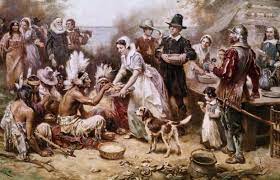





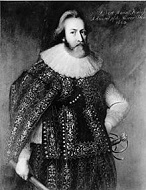






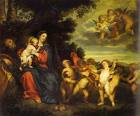


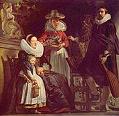
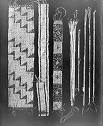
1621 On Jan. 28 Pope (since 1605) Paul V (b. 1550) dies, and on Feb. 9 Alessandro (Alexander) Ludivisi is elected Pope (#234) Gregory XV (1554-1623) (until July 8, 1623); Jesuit Cardinal Robert Bellarmine (b. 1542) (who coulda been pope?) dies on Sept. 17. In Feb. after spending several mo. in London studying the colllections of Italian Renaissance masters of the earl of Arundel and duke of Buckingham, Flemish painter Anthony van Dyck leaves for Amsterdam, then 8 mo. later heads for Italy, where studies the Venetian masters Titan et al., returning to Antwerp in 1627. On Mar. 26 (Mar. 16 Old Style) (Fri.) tall naked Wampanoag spokesman Samoset (1590-1653) (his English-given name of Somerset?), a sachem from Pemaquid Point in Maine near Monhegan Island (who learned English from English fishermen) unexpectedly visits the winter-decimated Pilgrims (52 of 102 dead, incl. Mayflower gov. Christopher Martin in Jan., causing the survivors to conceal the corpses in secret graves to fool the Indians), and walks right up to their homes, and when stopped issues the famous soundbyte "Welcome, Englishmen!"; he tells them how their harbor's name is Patuxet and had been inhabited then wiped out by plague, and that another Indian, the once-kidnapped and well-traveled local Patuxet Squanto (Tisquantum) (1585-1622), who had been in Spain, Newfoundland, and London, and can speak better English is with chief Massasoit in Pokanoket 40 mi. SW, and stays overnight with a half freaked-out English family; on Apr. 1 (Mar. 22 Old Style) after his powwows try in vain to make the English devils disappear with a 3-day swamp meeting, and cagey Squanto tells him the English have a secret WMD of plague and shouldn't be messed with but rather cultivated to help him fight the Narragansetts, bear-greased dark red-faced Massasoit and his son Quadequina visit Plymouth Colony with 60 intimidating warriors, and after being greeted outside the town on a hill by sole rep. Edward Winslow (1595-1655), who tells him that King James of England greets him "with words of love and peace", and trying in vain to make a trade for his sword and armor, he agrees to meet Gov. John Carter, with Winslow held as hostage and Squanto acting as interpreter, and after being served vodka which, combined with Squanto telling him that barrels of gunpowder in a storehouse actually contain plague, makes him sweat and tremble, the duped "Indian King" signs a 6-point peace treaty, which lasts 50 years, with Winslow acting as the colony's initial rep. as well as being 2nd in command; the Indians use wampum ("white shell beads") (tubular shell beads made from the purple spot in quahog clamshells and white channeled whelk shells) for sacred ceremonies as well as for recording stories, but the English soon turn it into money. On Apr. 15 (Apr. 5 Old Style) with their numbers down to 52 but stabilized, the Mayflower sails for England (18 sailors dead), with cooper John Alden staying in Plymouth; on Apr. 18 Gov. John Carver (b. 1576) dies after lapsing into a coma on a hot day in the fields, and after the colony's first state funeral they elect William Bradford as gov. #2 (reelected 30 times until 1656), but since he's sick they appoint Puritan widower Isaac Allerton (1583-1659) (ancestor of U.S. presidents Zachary Taylor and FDR) as his asst.; on May 16 the Mayflower arrives in Rotherhithe after making use of westerlies, then sails for France with a cargo of salt, after which master Christopher Jones dies on Mar. 15, 1622 in England, causing the ship to lay idle for 2 years and then be broken up for scrap in 1624 after being appraised at £128. On Mar. 31 Spanish king (since Sept. 13, 1598) Philip III the Pious (b. 1578) dies in Madrid, and his son Philip (Felipe) IV (1605-65) succeeds him as king of Spain, Naples, Sicily, and Netherlands (until Sept. 17, 1665), becoming as weak a king as his daddy, soon appointing Gaspar de Guzman y Pimentel, Count of Olivares and Duke of Sanlucar (1587-1645) as Spain's first PM, relinquishing rule to him; Olivar goes on to reform the court and reverse the no-war policy of Spain, which is too late to stop Spain's decline; meanwhile carefree Philip becomes a patron of the arts, backing painter Diego Velazquez (1599-1660), dramatist Lope de Vega (1562-1635), poet Pedro Calderon de la Barca (1600-81) et al. in a desperate attempt to keep up with the heretic English? On Apr. 21 Elizabeth Sawyer, "the Witch of Edmonton" is executed in England, her guilt proved by having a "thing like a teat the bigness of the little finger, which was branched at the top like a teat, and seemed as though one had sucked it." On May 22 (May 12 Old Style) Edward Winslow (whose wife Elizabeth died on Apr. 3, two days after the big meeting with Massasoit) and Susanna White whose husband William died on Mar. 3) become the first couple in Plymouth Colony to marry, and claiming that the Gospels nowhere say a minister should conduct a wedding, they copy Dutch custom and have a civil wedding, starting a tradition - so Winslow is the whitest name you can get in America? On June 3 (worried about them pesky English?) the Dutch West India Co. is chartered for the New Netherlands (Netherland) to share world trade with the Dutch East India Co. by Peter Minuit's Antwerp friend Willem Usselincx (1567-1647), who prefers colonization of the New World to profit, and gives up after the Dutch estates-gen. don't support him; the co. later acquires a monopoly in Africa the North Am. coast from Newfoundland to Chesapeake Bay; in 1645 not-so-useless Usselincx utters the Immortal New York, New York Soundbyte: "It is because of foreigners that the country will be peopled, because its might is derived mostly from those who come from abroad and settle, marry and multiply here. If one were to remove the foreigners, their children and grandchildren from the large cities of Holland, the remaining residents would be fewer in number than those removed" - never mind those English squatters? On July 2 Edward Winslow and Stephen Hopkins make the Pilgrims' first diplomatic visit to Massasoit's home at Pokanoket (near modern-day Warren, R.I.). In mid-Oct. after with the help of good weather and the know-how of indispensible native Patuxet Squanto (Tisquantum) (1585-1622) (the first American Iron Chef in survival techniques?) (who first wows them by showing them how to dig up his trademark eels in shore mud, then how to use herring as fertilizer, and plant beans and squash with the corn to act as shade and prevent weeds) the Plymouth Colony brings in a bumper crop of veggies, lumber, and furs, it celebrates its first 3-day Thanksgiving along with Chief Massasoit and 90 warriors, who aren't invited but hear gunfire in connection with the feast, show up to see what's up, and end up becoming their niggers, supplying them with five deer, wild turkey, fish, beans, squash, corn soup, cornbread, and berries to go with their venison, duck, goose, lobster, mussels, grapes and plums?; they don't sit at tables but squat in front of fires?; the Pilgrims say the prayer from Psalm 107 (AKA Birkat Ha-Gomel) after a book by English scholar Henry Ainsworth uses Jewish scholar Moses Maimonides to show its applicability; on Nov. 9 (3 weeks later) the ship Fortune, under master Thomas Barton arrives with 35 new colonists, incl. Thomas Prence (1599-1673), throwing them back into danger of starvation; on the way home it loses its cargo of furs and timber to a French privateer; meanwhile the colony gets a land patent from the Council for New England; after John Carver's wife dies five weeks after him, their servant John Howland (1592-1672) (who fell overboard on the way, and held on until rescued) inherits some of the estate and goes on to become one of Plymouth's leading citizens; at the first big Nothanksgiving the Pequots of Cape Cod offer the white settlers a local fruit that grows in acidic bogs which they call "i-bimi" (bitter fruit) and use to make pemmican; the Pilgrims groove on it and name it for the cranes which like to eat it, calling it the craneberry (cranberry) (bounceberry because it bounces when ripe), making sauces and tarts from it - good love? On Dec. 6 Johannes Kepler observes his first predicted transit of Venus; Pierre Gassendi observes another on Nov. 7. The Huguenots rebel against Louis XIII (ends 1622). The Austrians expel the Swiss Protestants from the Valtellina; meanwhile the Swiss Confederation is paralyzed by the division between the Catholic and Protestant cantons, and sits it out all the way until 1639. The 12-year truce between Holland and Spain ends, and war resumes. Elector Palatine Frederick V is placed under the ban of the Holy Roman Empire, and the war moves from Bohemia to the Palatinate; German soldier Count Ernst von Mansfeld (b. 1580), who helped the revolting Bohemians in 1618 then had his butt kicked in Zablat in summer of 1619, causing him to offer his services to HRE Ferdinand II is appointed cmdr. of his army in Bohemia, and takes on Count Tilly in the Upper and Rhenish Palatinate, relieving Frankenthal and capturing Hagenau. Sir Francis Bacon is charged by Parliament with corruption, is fined £40K, imprisoned, and declared incapable of holding office; luckily, he is pardoned by the king after spending only a few days in the Tower, and allowed to keep his titles, devoting himself to study and writing; Bishop John Williams of Lincoln becomes Lord Keeper, and Lionel Cranfield becomes Lord Treasurer. Sir Francis Wyatt arrives as the new gov. of the Va. Colony with new regs, including a council of state and elected assembly. Bishop William Laud uses George Abbott's accidental shooting of a gamewarden to call for his removal as archbishop of Canterbury; James I exercises the deciding vote in his favor to save him. The Tamblot Uprising (Revolt) in the Philippines against the Spanish over religion begins, led by native priest Tamblot from Bohol. Dutch East Indies gov.-gen. Jan Pieterszoon Coen invades Banda to force them to sell their nutmeg and mace to them exclusively at low prices, capturing Lonthor Island after they use some cannons against him given to them by the english, pissing him off, after which he massacres or exiles most of the pop. English surveyor William Claiborne (1600-77) (b. 1587?) arrives in Jamestown, Va., and goes on to become a leader, "the foremost genius of early Virginia". The first duel fought in America takes place in Plymouth, Mass., and is fought with swords. Welsh-born British vice-adm. Sir Robert Mansell (Maunsell) (Mansfield) (1573-1656) (an investor in the Plymouth Co.) leads an expedition against the pesky Moorish Corsairs of the Barbary coast (Algiers, Tunis, Tripoli). The English attempt to colonize Newfoundland and Nova Scotia, with poet-courtier Sir William Alexander, Earl of Stirling (1567-1640) receiving a huge land grant from James I, which is later confirmed by Charles I; too bad, after a war with France in 1627-9, the 1629 Treaty of Susa (Suza) between France and the duchy of Savoy cedes the territory to France in 1632, leaving Alexander deeply in debt, although he is created viscount of Stirling and Lord Alexander of Tullibody in 1630 as a sop. The U. of Strasbourg in Alsace, France is founded from a Lutheran humanist gymnasium founded in 1538 by Johannes Sturm, becoming a royal univ. in 1631, going on to become France's largest univ.; alumni incl. Johann Wolfgang von Goethe; in 1872 it is refounded as the German Kaiser Wilhelm Universitat. Peter Paul Rubens (1577-1640), known as "the prince of painters and the painter of princes" is hired as a confidential agent by Spain to seek peace with Flanders and the Dutch Repub. Pietro della Valle's Syrian princess Maani dies, so he has her stuffed and takes her with him. Samuel Champlain's companion Etienne Brule (Brulé) (1592-1633) searches for copper mines described by the Indians, and reaches the W shores of Lake Superior and Lake Erie? Goteborg, Sweden (modern pop. 500K) is founded Gustavus II Adolphus S of 2,150 sq. mi. Lake Vaner (Väner) (Vanern) (Vänern). Potatoes are planted for the first time in Germany. The Fortune Theatre in London burns down. English historian William Camden (1551-1623) endows the Camden Chair of Ancient History at Oxford U. (first chair of history in the world) before being struck with paralysis and dying on Nov. 9, 1623 in his home at Chiselehurst, Kent (SE London); in 1877 the chair is attached to Brasenose College; in 1910 it is limited to Roman history. The Corante, or Newes from Italy, Germany, Hungarie, Spaine, and France begins pub. in London, becoming England's first newspaper. Inventions: In 1621-2 William Oughtred (1574-1660) of England invents the logarithmic scale along with the slide rule, which does multiplication and division by adding and subtracting logarithms - did it hurt? Science: Dutch mathematician Willebrord Snell (Snellius) (Willebrord Snel van Royen or Roigen or Roijen) (1580-1626) discovers Snell's Law of Refraction, a sine ratio called the refractive index between the angles of incidence and refraction of light entering a block of glass; too bad, he doesn't pub. it, and it takes until 1703 for Huygen to pub. his results in his "Dioptrica". Italian traveler Pietro della Valle (1586-1682) visits Iran and views the 6th cent. B.C.E. Behistun Rock, copying some of the cuneiform signs for study. Nonfiction: Jakob Boehme (1575-1624), De Signatura Rerum; A Treatise of the Four Complexions. Robert Burton (1577-1640), The Anatomy of Melancholy; pub. under alias Democritus Junior; quotes works by Jewish physician Isaac Israeli (855-955); "I write of melancholy, by being busy to avoid melancholy. There is no greater cause of melancholy than idleness, no better cure than business"; "The only book that ever took me out of bed two hours sooner than I wished to rise" (Samuel Johnson). Sir Henry Fitch (-1625), The World's Great Restauration, or Calling of the Jews, and with them of all Nations and Kingdoms of the Earth to the Faith of Christ; claims that the Jews will be restored to the Holy Land, then establish a worldwide empire after accepting Christ, getting him in trouble with James I (for threatening his divine right to rule England?), who has him arrested in Apr. 1621 until he disavows his work. Johannes Baptista van Helmont (1579-1644), De Magnetica Vulnerum Curatione; gets him in trouble with the Church for questioning miracles. Thomas Munn (1571-1641), A Discourse of Trade from England unto the East Indies. Art: Anthony van Dyck (1599-1641), The Rest on the Flight to Egypt; Susanna and the Elders (1621-2). Jacob Jordaens (1593-1678), Self-Portrait with Wife and Daughter Elizabeth (1621-2). Music: Johann Hermann Schein (1586-1630), Musica Boscareccia. Plays: John Fletcher (1579-1625), The Wild Goose Chase (comedy); pub. in 1652. John Ford (1586-1640), Thomas Dekker (1573-1632), and William Rowley (1585-1642), The Witch of Edmonton. Poetry: Daniel Heinsius (1580-1655), De Contemptu Mortis (On the Contempt of Death). Theophile de Viau (1590-1626), Poemes (1621-4); on the theme of Nature. Novels: John Barclay (1582-1621), Argenis (novel) (Paris). Lady Mary Wroth (1587-1653), The Countess of Montgomery's Urania; first prose romance by an English woman; the idea of a woman pub. a novel pisses-off men because they must remain silent to prove they're chaste? Births: English "Flecnoe" poet-satirist Andrew Marvell (d. 1678) on Mar. 31 in Winestead, Hopderness, Yorkshire; educated at Cambridge U. Welsh "Silex Scintillans" mystic poet ("the Silurist") Henry Vaughan (d. 1695) on Apr. 17 in Newton St. Bridget (near Scethrog by Usk), Brecknockshire. Irish soldier-politician-dramatist Roger Boyle, 1st Earl of Orrery (d. 1679) (AKA Lord Broghill) on Apr. 25; 3rd son of Robert Boyle, 1st earl of Cork and 2nd wife Catherine Fenton; educated at Trinity College, Dublin, and Gray's Inn. Dutch painter Isaac Jansz van Ostade (d. 1649) on June 2 in Haarlem; brother of Adriaen van Ostade (1610-85); father is from Ostade near Eindhoven. French poet-fabulist Jean de La Fontaine (d. 1695) on June 8 in Chateau-Thierry, Champagne. Dutch adm. Willem van der Zaan (Zaen) (d. 1669) on June 29 in Amsterdam; brother of Huybrecht van der Zaan; father of Willem van der Zaan the Younger. French military leader Louis II of Bourbon, Duc d'Enghien, Prince de Conde (Condé) (The Great Conde) (d. 1686) on Sept. 8 in Paris; son of Henry II, Prince de Conde (2nd cousin of Louis XIII) and Charlotte de Montmorency. English physician ("Father of Clinical Neuroscience") Thomas Willis (d. 1675) on Jan. 27 in Great Bedwin, Wiltshire; educated at Christ Church, Oxford U. Dutch painter Jan Baptist Weenix (d. 1660) in Amsterdam; father of Jan Weenix (1640-1719); introduces the Italian harbor scene into Dutch art. English N.Y. colonial gov. #2 (1668-73) Francis Lovelace (pr. like loveless) (d. 1675) in Kent; brother of Richard Lovelace (1617-57). Swiss engraver Matthaus Merian the Younger (d. 1687) in Basel; son of Matthaus Merian the Elder (1593-1650). Swedish field marshal Count Rutger von Ascheberg (d. 1693). English poet Henry Vaughan (d. 1695). French chemist Claude Bourdelin (d. 1699). Deaths: English lord Edward Seymour, 1st earl of Hertford (b. 1539). Italian "Galileo's Heah cum de judge" Cardinal Robert(o) Bellarmine (b. 1564) on Sept. 17 in Rome - move your ideas forward with RICO dependability? German Lutheran pietism founder Johann Arndt (b. 1555) in Celle, Hanover. Netherlands Hapsburg gov. (1598-1621) archduke Albert VII (b. 1559) on July 13 in Brussels. English explorer Thomas Harriot (b. 1560) on July 2 in London. English poet Mary Sidney Herbert (b. 1561) in London (smallpox). Italian poet Ottavio Rinuccini (b. 1562) on Mar. 28 in Florence. Dutch organist-composer Jan Pieterszoon Sweelinck (b. 1562) on Oct. 16 in Amsterdam. Austrian field marshal Charles Bonaventure de Longueval, count of Bucquoy (b. 1571) on July 21 near Nove Zamky (Neuhausel), Slovakia (KIA). German composer-musicologist Michael Praetorius (b. 1571) on Feb. 15. French soldier-dramatist-economist Antoine de Montchrestien (b. 1575) on Oct. 7/8 in Les Tourailles (near Falaise) (KIA); posth. convicted of lese-majeste for joining the Huguenot rebellion. English Pilgim Father John Carver (b. 1576) on Apr. 18; gov. #1 of Plymouth Colony. Italian painter Cristofano Allori (b. 1577) on Apr. 21 in Florence. Spanish king (1598-1621) Philip III (b. 1578).
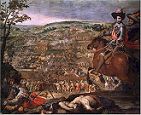









1622 The papal chancellery adopts Jan. 1 as the beginning of the year, replacing Mar. 25. Let my love open the door? On Jan. 22 Marco Antonio de Dominis, the learned fatass who had made it big in London writing vehement attacks against papistry flops when he sees Prince Charles of Wales courting the Spanish infanta, along with the election of new hopefully forgiving (bribable?) Pope Gregory XV, suddenly announces that he has flopped and wishes to return to Rome, pissing off the English Church, which almost gets him prosecuted in the Star Chamber and his chests of money confiscated, but he slithers out of it all and then starts writing virulent attacks on the Anglican Church from Rome. On Jan. 23 the British and Persians attack Kishm in the Persian Gulf, and English explorer William Baffin (b. 1584) is KIA. In Feb. the first person is hanged in the Plymouth Colony - hairy or smoothy? On Mar. 22 the Powhatan tribal confederation of Virginia, led by Wahunsonacock's brother and successor Opechancanough (Opchanacanough) (1554-1646), pissed-off at seeing the stinking palefaces progress from trading posts to permanent settlement turn on the whites in the Virginia Colony and launch dawn raids on 28 plantations and settlements along the James River, massacring 347 out of 1,240 settlers, incl. John Rolfe; Jamestown escapes after being warned by a converted Christian Indian boy; after one survivor laments that "besides them they killed, they burst the heart of all the rest", the English use this as an excuse to institute a genocide policy of what the governor's council calls "perpetual enmity". On Mar. 5 Ranuccio I Farnese (b. 1569) dies, and his only legitimate son Odoardo I Farnese (1612-46) becomes duke #5 of Parma and Piacenza (until 1646), and on Oct. 11, 1628 marries Margherita de' Medici (1612-79), daughter of grand duke Cosimo II. On Apr. 22 a patent for the Province of New Hampshire (N.H.) (named in 1629 by Capt. John Mason for his home county in England) is granted to former Newfoundland gov. (1615-21) Capt. John Mason (1586-1635) by the Council of New England, incl. all territory between the Merrimack and Kennebeck Rivers; Roxbury magistrate William Pynchon sends scouts John Cable and John Woodcock to scout the Connecticut River Valley, and they discover the richest farmland in New England, after which it becomes known as Pioneer Valley; next year it is settled at Pannaway Plantation at the mouth of the Piscataqua River (Little Harbor) (near present-day Rye and Dover) by fisherman David Thompson (Thomas) et al., who are sent by Capt. John Smith to establish a fishing colony. You're bringing on the heartache? On Apr. 27 Count Tilly suffers a minor D by HRE Ferdinand II and Count Ernst von Mansfeld at the Battle of Wiesloch (Mingolsheim) (5 mi. S of Wiesloch and 14 mi. S of Heidelberg); Mansfeld then plunders Alsace and Hesse, and goofs by plundering the lands of Frederick, later causing him to be dismissed; meanwhile in early May Mansfeld crosses the Neckar River near Heidelberg to hook up with the forces of Bishop Christian of Brunswick (1599-1626), who arrived to the N of the river; too bad, before they can link up with the 14K troops of Protestant Gen. Georg Friedrich, Margrave of Baden-Durlach (1573-1638), 25K Catholic imperial forces under Count Tilly and Spanish gen. Gonzalo Fernandez de Cordoba, Prince of Maratra (1585-1635) cut Baden off near Wimpfen, and on May 6 the Battle of Wimpfen becomes a disaster when the Protestants' defensive position on a low hill is blown up after a random lucky Spanish artillery shot hits their powder magazine, causing them to fall apart and get virtually wiped out, after which Baden flees to Stuttgart with a few remaining men; the Catholics then go after Mansfeld and Brunswick, the latter at the Main River, the two still not hooked up, and on June 22 they catch Brunswick at Hochst before he can cross the river, causing the Battle of Hochst, where Brunswick does a risky thing of forcing his 12K-15K men across the river to unite with Mansfield, with the loss of 2K men, bringing a badly needed treasure collected from the lands he has raped to pay Mansfeld's men - I can hear them say bad company and I won't deny it? On May 20 after a palace revolt by the Janissaries caused by his attempts to create an ethnic Turkic army, Ottoman sultan (since 1618) Osman II (b. 1604) is strangled by the Janissaries (first act of regicide in the Ottoman Empire), and retarded slash insane Mustafa I regains the throne of Turkey as puppet-on-a-throne (until 1623). On May 23 the Weekeley Newes begins pub. in London. On May 25 the English ship Tryal wrecks in W Australia on Tryal Rocks (Ritchie's Reef) (Greyhound's Shoal), becoming the first English contact with the continent; it takes three cents. to relocate the rocks, during which time they become the "theme and dread of every voyager to the eastern islands" - oh I'm the wanderer, I'm the wanderer, I wander round and round and round and round? In July Count Tilly sieges Heidelberg on the Neckar River (capital of the head of the Protestant Union), capturing it on Sept. 19 after a 11-week siege, and sending its Bibliotheca Palatina (3.5K mss. and 13K prints) to the Vatican as a present to Pope Gregory XV; the depleted Heidelberg U. Library is reestablished in 1652 by Karl Ludwig, son of the Winter King. On July 13 after failing to relieve Heidelberg, Palatine Elector Frederick V decides to disband his army, and Mansfield and Brunswick are hired by the United Provinces to relieve Bergen-op-Zoom at the confluence of the Zoom and Scheldte Rivers, which since July 18 has been sieged by the Spanish Army of Flanders under gen. Ambrogio Spinola Doria, Marques de los Balbases (1569-1630); after the Protestant army marches from Alsace across N France, entering the Spanish Low Countries via Hainaut and kicking some butt in East Friesland, then devastating Lorraine, an 8K-man Spanish army under Gonzalo Fernando de Cordoba is recalled from the Palatinate to stop them, and after marching through the Ardennes Forest it meets up with the Protestant advance guard at the Brabant-Belgium border on Aug. 27; on Aug. 29 the Battle of Fleurus is a Spanish V, with 5K of the 14K Protestants captured, KIA, or wounded, vs. only 300 KIA and 900 wounded for the Spanish; Brunswick is wounded, and he, Mansfield and 3K remaining cavalry rejoin the Dutch army at Breda before they are fired; meanwhile Count Tilly's army overruns the Palatinate. On Aug. 4 James I issues Directions Concerning Preachers, warning them not to vary from established doctrines. On Aug. 10 James I grants the Province of Maine between the Kennebec and Piscataqua Rivers to English naval cmdr. Sir Ferdinando Gorges (1565-1647) and Conception Bay (Newfoundland) gov. Capt. John Mason (1586-1637). On Sept. 4 a Spanish Treasure Fleet of 28 ships leaves Havana en route to Spain, and runs into a hurricane off the Fla. Keys; the survivors try to salvage some of the treasure, only to be hit by another hurricane on Oct. 5; Spanish galleon Nuestra Senora de Atocha is located in 1985 by treasure hunter, er, commercial archeologist Mel Fisher (1922-98), who retrieves $450M in coins and loot - the ultimate chalupa? On Oct. 2 the siege of Bergen-op-Zoom is lifted by Dutch stadtholder Maurice of Nassau. On Oct. 18 the Treaty (Peace) of Montpellier, signed by Louis XIII and Duke Henry II of Rohan ends the Huguenot rebellion in France (begun 1620), confirming the Edict of Nantes, pardoning Henry II and allowing the Huguenots to maintain their forts and garrisons; meanwhile Louis XIII becomes reconciled to his mother, and he recalls her protege Cardinal Richelieu (1585-1642) (who on Sept. 15 was created cardinal) to the council - it just feels better, an Aqua Velva man? On Nov. 30 after using his friendship with the Pilgrims to control other Indians, causing his tribe to demand his return so they can kill him, the English stall, and Squanto (b. 1585) dies. In winter the town of Plymouth is fortified. Too bad, despite new settlers regularly arriving, after reading some passages in the New Testament about the First Christians sharing all things in common, they tried to establish a Communist utopia where it was required that "All profits & benefits that are got by trade, working, fishing, or any other means" be placed in the colony's common stores, and that "All such persons as are of this colony, are to have their meat, drink, apparel, and all provisions out of the common stock" (from each according to his ability, to each according to his need), resulting in many turning into loafers, so that no surprise, in winter another cruddy fall harvest causes the colony to suffer its Second Starving Time, in which hundreds die, causing Gov. William Bradford (1590-1657) to write the soundbyte: "All this while no supply was heard of, neither knew they when they might expect any. So they began to think how they might raise as much corn as they could, and obtain a better crop than they had done, that they might not still thus languish in misery. At length, after much debate of things, the Governor (with the advice of the chiefest amongst them) gave way that they should set corn every man for his own particular, and in that regard trust to themselves; in all other things to go on in the general way as before. And so assigned to every family a parcel of land, according to the proportion of their number, for that end, only for present use (but made no division for inheritance) and ranged all boys and youth under some family. This had very good success, for it made all hands very industrious, so as much more corn was planted than otherwise would have been by any means the Governor or any other could use, and saved him a great deal of trouble, and gave far better content. The women now went willingly into the field, and took their little ones with them to set corn; which before would allege weakness and inability; whom to have compelled would have been thought great tyranny and oppression. The experience that was had in this common course and condition, tried sundry years and that amongst godly and sober men, may well evince the vanity of that conceit of Plato's and other ancients applauded by some of later times; that the taking away of property and bringing in community into a commonwealth would make them happy and flourishing; as if they were wiser than God. For this community (so far as it was) was found to breed much confusion and discontent and retard much employment that would have been to their benefit and comfort. For the young men, that were most able and fit for labour and service, did repine that they should spend their time and strength to work for other men's wives and children without any recompense. The strong, or man of parts, had no more in division of victuals and clothes than he that was weak and not able to do a quarter the other could; this was thought injustice. The aged and graver men to be ranked and equalized in labours and victuals, clothes, etc., with the meaner and younger sort, thought it some indignity and disrespect unto them. And for men's wives to be commanded to do service for other men, as dressing their meat, washing their clothes, etc., they deemed it a kind of slavery, neither could many husbands well brook it. Upon the point all being to have alike, and all to do alike, they thought themselves in the like condition, and one as good as another; and so, if it did not cut off those relations that God hath set amongst men, yet it did at least much diminish and take off the mutual respects that should be preserved amongst them. And would have been worse if they had been men of another condition. Let none object this is men's corruption, and nothing to the course itself. I answer, seeing all men have this corruption in them, God in His wisdom saw another course fitter for them." James I dissolves Parliament. The English capture Ormuz from the Portuguese. Persian shah Abbas I captures Kandahar from the Moguls (Mughals); meanwhile the Turks renew their war with Persia, and Abbas I begins a siege of Baghdad (ends 1623), and takes the island of Hormuz from the Portuguese, diverting the trade to his town of Bandar Abbas and opening the Persian Gulf to Persian trade, using Christian Armenian agents to deal with Westerners. Chettha II dies, and a period of civil strife begins in Cambodia (ends 1628). Sir William Alexander sets out to colonize the New World, but ends up wintering in Newfoundland. Spanish (papal) troops occupy the Valtellina in N Italy, bringing war with France. The Dutch occupy the Pescadores (Penghu) in the Taiwan Strait until 1624, when China regains them; by the end of the cent. they become a dependency of Taiwan. Former Mexico viceroy Fernandez de Cordoba becomes viceroy of Peru, and repels coastal attacks by a Dutch squadron - eastern boys and western girls? The royal Musketeers (Mousquetaires) of the Guard are created by Louis XIII of France, who furnishes a co. of light carabiners (cavalry) created by his daddy Henry IV with muskets; they guard the king outside his royal residences, while the Swiss Guards do it inside; a 2nd co. is created for Cardinal Richelieu. Pope Gregory XV canonizes Philip Romolo Neri (1515-95), "the Third Apostle of Rome" and grants the Piarists a constitution. John Donne becomes dean of St. Paul's Cathedral in London. Ignatius Loyola and Francis Xavier become the first Jesuits canonized by the Roman Catholic Church. A botanical garden is established at Oxford. The Bruges-Dunkirk Canal is finished. The Benedictine U. of Salzburg is founded by prince-archbishop Lodron. The Banqueting Hall (House) at Whitehall (begun 1619) is finished. Science: Welsh mathematician Edmund Gunter (1581-1626) discovers the magnetic variation of the compass, i.e., that the magnetic needle does not retain the same declination in the same place over time. Nonfiction: Anon., Prognostications; 8-page almanac pub. in Aberdeen, Scotland by an English-born printer (d. 1649), reaching 50K circ. by 1677 after rivals pirate them, causing Aberdeen to become a center of almanacs. Sir Francis Bacon (1561-1626), History of the Reign of Henry VII. Camillo Baldi (1550-1637), Treatise of How to Perceive from a Letter the Nature and Character of the Person Who Wrote It (Trattato Come De Una Lettera Missiva Si Conoscano La Natura E Qualita Dello Scrittore); prof. of medicine at Bologna for 60 years founds the pseudo-science of graphology. Jakob Boehme (1575-1624), Of True Repentance; Of True Resignation, or Dying to Self; Of Regeneration, or the New Birth. Marie de Gournay (1565-1645), The Equality of Men and Women. Jacob Le Maire (1585-1616), Mirror of the Australian Navigation (posth.). Edward Misselden (1608-54), Free Trade, or the Means to Make Trade Flourish; argues against regulated companies and joint-stock associations, bringing the reply The Maintenance of Free Trade, According to the Three Essential Parts of Traffic, Namely Commodities, Moneys, and Exchange of Moneys, by Bills of Exchanges for Other Countries, by rival Gerard Malynes, which argues against free exchange as under the control of bankers, causing him next year to pub. The Circle of Commerce, or the Balance of Trade, in Defense of Free Trade, Opposed to Malynes' "Little Fish and his Great Whale", and Poised Against them in the Scale, arguing that internat. money exchange and fluctuations in the exchange rate depend upon internat. trade and not bankers, and that the state should regulate trade to insure export surpluses; claims that it's not necessarily bad to export gold because the commodities purchased can be reexported at a profit; Malynes replies with The Center of the Circle of Commerce (1623). Music: Thomas Tomkins (1572-1656), Madrigals. Art: Gianlorenzo Bernini (1598-1680), The Rape of Proserpina (1621-2). Anthony van Dyck (1599-1641), Cardinal Bentivolo (1622-3); Lucas van Uffeln. Guido Reni (1575-1642), Job. Peter Paul Rubens (1577-1640), The Medici Cycle (1622-25); 21 paintings on the life of Maria de' Medici in the Palais du Luxembourg in Paris; he usually just draws the outlines then leaves it to his atelier (factory painters, incl. Van Dyck) to finish them? Plays: Lope de Vega (1562-1635), The Knight from Olmedo; Punishment Without Revenge. Philip Massinger (1583-1640) and Thomas Dekker (1572-1632), The Virgin Martyr (tragicomedy). Poetry: Michael Drayton (1563-1631), Poly-Olbion, Pt. 2; Pt. 1 in 1613. Alessandro Tassoni (1565-1635), La Secchia Rapita (The Rape of the Bucket) (mock-heroic poem) (Paris); the 13th cent. war between Modena and Bologna, which starts when people from Modena steal the wooden water bucket of the Bolognese; features Conte di Culagna (Count of Assland). Novels: Charles Sorel, Sieur de Souvigny (1602-74), Francion (burlesque novel). Births: French #1 playwright-dramatist-satirist Moliere (Molière) (Jean-Baptiste Poquelin) (d. 1673) on Jan. 15 in Paris; godson of Louis XIV. French astronomer Adrien Auzout (d. 1691) on Jan. 28 in Rouen. Dutch painter Carel Fabritius (d. 1654) on Feb. 27 in Middenbeemster; Rembrandt's #1 pupil. Italian mathematician-scientist Vincenzo Viviani (d. 1703) on Apr. 5 in Florence; asst. of Galileo Galilei (1564-1642), and ed. of his collected works. French New France gov.-gen. #6 (1672-82, 1689-98) Louis de Buade, Comte de Palluau et de Frontenac (d. 1698) on May 22 in Saint-Germain-en-Laye. French Jesuit missionary (in North Am.) Claude Jean Allouez (d. 1689) on June 6 in Saint-Didier-en-Velay, Haute-Loire; educated at the College of Le Puy. French gov. of New France (1661-7) Pierre Boucher de Boucherville (d. 1717) on Aug. 1 in Mortagne-au-Perche. English solider and PM (1640-2) James Compton, 3rd Earl of Northampton (d. 1681) on Aug. 19; eldest son of Spencer Compton, 2nd earl of Northampton (1601-43) and Mary Beaumont; husband of Isabella, daughter of Richard Sackville, 3rd earl of Dorset, and Mary, daughter of Baptist Noel, 3rd viscount Campden; father of George Compton, 4th earl of Northampton (1664-1727), and Spencer Compton, 1st earl of Wilmington (1673-1743). Swedish statesman Count Magnus Gabriel De la Gardie (d. 1686) on Oct. 15 in Reval, Swedish Estonia. Swedish Wittelsbach king #1 (1654-60) Karl (Charles) X Gustav (d. 1660) on Nov. 8 in Nykoping Castle; son of John Casimir, count Palatine of Zweibrucken-Kleeburg (1589-1652) and Catharine of Sweden (1584-1638); father of Charles XI (1655-97). Italian (Neapolitan) patriot Masaniello (Tommaso Aniello) (d. 1647) in Vico Rotti al Mercato, Naples (Amalfi?); starts out as a fisherman. German duke Christian Ludwig, Duke of Brunswick-Luneburg-Hanover (d. 1665). French scientist Jean Pecquet (d. 1674) in Dieppe. British Holmes's Bonfire adm. Sir Robert Holmes (d. 1692) in Mallow, County Cork, Ireland. French leech, er, physician Francois Bayle (d. 1709). Deaths: Scottish theologian Andrew Melville (b. 1545). English vice-adm. Sir Richard Hawkins (b. 1562) on Apr. 17 in London. French missionary Pierre Biard (b. 1565) on Nov. 17 in Avignon. Italian-born Roman Catholic Geneva bishop (1602-67) St. Francis de Sales (b. 1567) on Dec. 28 in Lyons; last words: "God's will be done! Jesus, my God and my all!"; his heart is left in Lyons, and the rest buried in the Visitation Convent of Annecy; during the French Rev. his heart is moved to Venice; beatified in 1661, canonized in 1165, doctor of the Church in 1877. Italian duke of Parma and Piacenza (1592-1622) Ranuccio I Farnese (b. 1569) on Mar. 5. Japanese samurai Hasekura Rokuemon Tsunenaga (b. 1571) on Aug. 7 in Osato. Italian painter Giovanni Battista Viola (b. 1576) on Aug. 10; dies mortified after offending Cardinal Ludovisi. English explorer William Baffin (b. 1584) on Jan. 23 in Kishm, Iran (KIA). Virginia planter John Rolfe (b. 1585) in Varina Plantation, Va. Am. Pilgrim-friendly Patuxet Indian Squanto (b. 1585) on Nov. 30 in Chatham, Mass. (poisoned?) Ottoman sultan #16 (1618-22) Osman II (b. 1604) on May 20 in Constantinople (murdered). English lawyer-diarist John Manningham (b. ?); his diary chronicling Elizabethan life incl. encounters with William Shakespare is pub. in 1868.
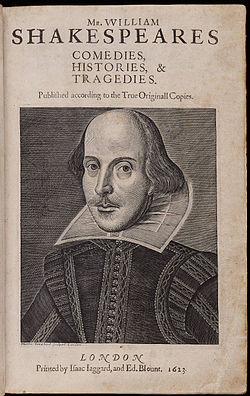









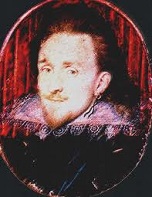







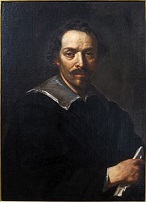


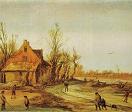
1623 On Feb. 1 Pieter de Carpentier (1586-1659) succeeds Jan Coen as gov.-gen. of the Dutch East Indies; too bad, in Mar. the Amboina (Amboyna) Massacre sees pockmarked Herman van Speult (-1626), Dutch gov. (since 1618) of Amboina (Amboyna) (Ambon) Island in the Molucca Islands in modern-day Indonesia return from an expedition to New Guinea where he discovers Speult Land and Speult Point, go paranoid about an English-Japanese plot to kill him, and order the execution of the leader of an English factory, along with 11 of the 18 English East India Co. trading post workers, souring Anglo-Dutch relations for the rest of the cent., and causing the English East India Co. to move to mainland India after being forced to abandon trade in the East Indies, Japan and Siam; Jan Pieterszoon Coen is reappointed gov.-gen. of the East Indies next Oct. 3, but he doesn't arrive until Sept. 30, 1627, after which the English give up on Batavia and move their HQ to Bantam. On Feb. 2 Sir Edward Conway, 1st Viscount Conway (1564-1631) (a lover of amber musk pudding) becomes English chief secy. of state (until 1628). In Feb. the Upper Palatinate along with the electoral dignity and office of imperial steward are taken from exiled Protestant Winter King Frederick V and given to PC Roman Catholic Bavarian Duke Maximilian I of the other branch of the House of Wittelsbach (originally split in 1329) by HRE Ferdinand II as a reward for fighting on the Hapsburg-Catholic side in the Thirty Years' War; Upper Austria is restored to Ferdinand; Maximilian I becomes leader of the party trying to dump Wallenstein in favor his boy Duke Tilly. On Mar. 1 after a patent for a revolutionary new stocking frame by deceased inventor William Lee (1563-1614) of Calverton (invented 1589) is denied yet again on the grounds that it supersedes manual labor, and the Privy Council orders the model destroyed, the English Parliament passes the 1623 Statute of Monopolies, allowing patents to be granted for "projects of new invention"; written descriptions aren't required until the reign of Queen Anne (1702-14). On Mar. 20 Pope Gregory XV issues Omnipotentis Dei, the last papal ordinance against witchcraft, which prohibits the death penalty except when a compact with the Devil is proved and homicide is committed with his assistance - get a lawyer or forget it? Rock me gently, rock me slowly, take it easy, baby, baby? In May the Spanish Match sees James I create his favorite George Villiers as the 1st duke of Buckingham, making the highest ranking subject outside the royal family, and he accompanies his pal Prince Charles to Spain to try and arrange a marriage to the Spanish infanta Donna Maria Anna (1606-46), daughter of Philip III and Margaret of Austriia, whom Charles finds to be a foxy babe and falls in love with; after traveling incognito through France and reaching Madrid, Philip IV presents him with 18 Spanish genets, six barberies, six breeding mares, 20 foals and more, then betrothes them, and they depart for the Escorial, where they go on a hunt, enter Segovia, enjoy a trout banquet, a 32-knight masque, a Latin oration by Almansa y Mendoza, then go to Valladolid, view paintings by Raphael and Michelango, then go to St. Andera; too bad, despite every trick in the book, prince dress-to-impress is finally rebuffed after the runt refuses to convert to Roman Catholicism and Buckingham schmucks it up, and departs on Sept. 9 after viewing a bullfight, then returns to England aboard the 55-gun Prince Royal and two other ships on Oct. 5, having spent a fortune; when he reaches London his daddy comforts the lovestruck prick while the people dance in the streets; daddy thought it would only be fair to have his son marry a Roman Catholic after his daughter Elizabeth married a Protestant, but both the English and Scottish pop. hate the idea? Habitat for Humanity builds homes for the holidays all year long? On July 8 Pope (since 1621) Gregory XV (b. 1554) dies, and on Aug. 6 Maffeo (Mafeo) Barberini (born in Florence) is elected Pope (#235) Urban VIII (1568-1644), the last to expand Church territory by military action, becoming known for nepotism and lavish constructions, all bearing his escutcheon with three bees; he begins building a 3-mi.-long wall around Vatican City starting at the Tiber and looping W and S back to the Tiber (finished 1644); with Aurelian's Wall (275 C.E.), Rome is completely walled now; flip-flopper Marco Antonio de Dominis sees his pension from Gregory XV cut off, causing him to start grumbling against the papacy again, and this time he doesn't make a getaway and ends up confined in the Castle of Sant' Angelo until he croaks in 1624 (natural death not?), after which the Inquisition gets his corpse dragged through the streets of Rome and burned in the Campo di Fiore, along with his works. On Aug. 6 after Christian of Brunswick raises a new 15K-man army, Count Tilly defeats him at the Battle of Stadtlohn, with Brunswick losing 13K of his men; Tilly then advances to Westphalia, and Protestant resistance in Germany is kaput. In the fall after a poor harvest in 1622 causes Plymouth Colony Pilgrims to give up the communist approach to agriculture and discover the power of capitalism and free enterprise, giving each household their own parcel of land and telling them that they can keep or trade all they produced, causing women and children to eagerly join the men in the fields, finally ending their food shortage permanently; William Bradford utters the soundbytes: "Instead of famine now God gave them plenty"; "The face of things was changed, to the rejoicing of the hearts of many, for which they blessed God"; "Any general want of famine hath not been amongst them since to this day"; Edward Winslow brings the first cows from England to go with their pigs, chickens, and goats, and says the colony is now a place where "religion and profit jump together" - blessed be the name of the what? On Sept. 10 Ottoman sultan (1617-18, 1622-23) Mad Mustafa I (b. 1591) abdicates in favor of his nephew (son of Ahmed I and Greek Sultana Kosem Sultan) Murad (Murat) IV (the Cruel) (1612-40), and is put back in his happy cage; Murad IV becomes Ottoman sultan #17 (until Feb. 8, 1640), becoming known for his height and strength, wielding a 132-lb. mace and 110-lb. 2-hand broadsword, and restoring the authority of the state with brutal methods, banning alcohol, tea, and coffee in Constantinople, then dressing up in civilian clothes at night and policing the taverns personally, killing offenders on sight with his terrible swift sword; meanwhile he is a lush himself - smells like the real thing? On Dec. 5 Sir Edward Dering, 1st Baronet (1598-1644) becomes the first person to buy a copy of the First Folio (two copies at 2 pounds each, along with a vol. of Ben Jonson for 9 shillings), producing an amateur production of "Henry IV" parts 1 and 2 in a household in Pluckley, Kent this year, becoming the first amateur performance of a Shakespeare play. Holland and Persia sign a commercial treaty. Gustavus Adolphus reforms the central admin. of Sweden. The Persians under Shah Abbas I conquer Baghdad after a 1-year siege. Injo (1595-1649) becomes Yi king #16 of Korea, backed by the "Westerners", a faction of Neo-Confucians, moving Korea toward an openly pro-Ming and anti-Manchu stance, pissing the latter off. Tokugawa Hidetada (b. 1579) retires, and his eldest son Tokugawa Iyemitsu (Iemitsu) (1604-51) becomes Tokugawa shogun #3 of Japan (until 1651). The Syrians under Mustafa Pasha attack Lebanon again, but Fakhr el-Din II's outnumbered army defeats and captures him in the Battle of Majdel Anjar. The Latin province of the Holy Land is split into the custodies of Cyprus, Syria, and the Holy Land, which incl. the monasteries of St. Jean d'Acre, Antioch, Sidon, Tyre, Jaffa, and Jerusalem. The Dutch found a settlement on Long Island, N.Y. Gloucester, Mass. on Cape Ann is founded by the Dorchester (England) Co., chartered by James I, becoming the first settlement in the future Mass. Bay Colony, beating Salem (1626) and Boston (1630); too bad, it is abandoned in 1626, then reincorporated in 1642. An English statute is passed permitting women convicted of simple larcenies under 10 shillings to be branded in the hand, whipped, stocked or imprisoned for a first offense instead of being executed; later the branding is changed to the cheek, then repealed after 7 years. Mayflower passengers John Alden and Priscilla Mullins (1602-85) (daughter of one of the Mayflower Pilgrims) become the 2nd couple to marry in Plymouth Colony; meanwhile Edward Winslow's brother John Winslow (1597-1674) tends to sick Massasoit, who recovers, uttering the soundbyte: "Now I see the English are my friends and love me, and while I live I will never forget this kindness they have showed me"; Winslow goes on to die in 1674 as one of the wealthiest merchants in Boston. Italian (Calabrian) monk Tommaso Campanella (1568-1639), whose philosophy is similar to that of Kant and Descartes but pisses-off the Roman Catholic establishment is released after 27 years in prison in Naples for heresy and anti-govt. conspiracy after intervention by Pope Urban VIII. New Netherlands is formally organized as a province by the Seven United Netherlands to help the Dutch West India Co., headquartered in West India House in Amsterdam. A group of Dorchester merchants with a patent from the Council for New England set up a permanent fishing village at Cape Ann at present-day Glouchester; they leave after three years when it proves unprofitable. Dutch adventurer Piet Hein of the Dutch West India Co. captures Bahia from Spain. St. Christopher (St. Kitts) and Nevis in the Leeward group of the Lesser Antilles of the E Caribbean are settled by the English, but France claims ownership (until 1713); both go on to use them as their #1 base for expansion into the neighboring islands of Antigua, Montserrat, Anguill and Tortola (British), along with with Martinique, Guadeloupe archipelago, St. Barths (French); meanwhile next year a Spanish expedition occupies both islands and deports their English and French pop. to their home countries. Spanish poet Francisco Gomez Quevedo y Villegas (1580-1645) returns to Madrid after getting out of prison in Naples, where he had been viceroy under the duke of Ossuna until his 1619 fall; he then makes the mistake of pub. polemics against govt. corruption (govt. by favorites), ending with his enemy Olivares getting him imprisoned in a dungeon in Leon in 1630-43, leaving broken in health and poor. Sir John Eliot (1592-1632), MP since 1614, and friend and patron of the marquis of Buckingham, who got him an appointment as vice-adm. in 1619 captures notorious pirate John Nutt; too bad, Nutt enjoys the protection of secy. of state Sir George Calvert and is pardoned, while Eliot is imprisoned on trumped-up charges for 4 mo. The 8th cent. Nestorian Christian Siganfu Inscription in China is discovered by Jesuit missionary Alvarez Semedo. About this time Baroque (It. "imperfect pearl") Architecture is created out of Roman Renaissance architecture by the Counter-Reformation to fight the pesky Protestants to express the ultimate triumph of the Roman Catholic Church by playing on the emotions and touting the Church's wealth and power; it covers the reigns of popes Urban VIII (1623-44), Innocent X (1644-55), and Alexander VII (1655-67), with the main architects incl. Gianlorenzo (Gian Lorenzo) Bernini (1598-1680) (creator of the Baroque style of sculpture), Francesco Borromini (Castelli) (1599-1667), and Pietro (Berrettini) da Cortona (1596-1669). The hookah or nargile becomes popular in Turkey 20 after tobacco is introduced. Baby you just ain't seen nuthin yet? Diego Rodriguez de Silva y Velazquez (1599-1660) of Seville, who visited last year comes to Madrid with his famous "Water-Seller" painting, which wows Philip IV, who commissions him to paint his portrait and makes him court painter with a 20 ducat/mo. salary plus expenses. Leiden-born Dutch painter Rembrandt van Rijn (1606-69) becomes the pupil of J.I. Swanenburg in Leiden; is there where he started using plumbonacrite in his paints to create his signature impasto technique? Philip Massinger (1583-1640) begins writing plays for the Lady Elizabeth's Men at the Cockpit Theatre in London (until 1526), giving him more work along with writing plays for the King's Men (since 1616) and Queen Henrietta's Men (formed 1625). Maciej Sarbiewski (1595-1640), "the Polish Horace" is crowned poet laureate in Rome by the pope. Architecture: Inigo Jones begins Queen's Chapel in St. James' Palace, Westminster (finished 162t). Louis XII builds a modest brick-stone hunting chateau at Versailles, France 12 mi. SW of Paris, which is later taken over by his son Louis XIII and built up (1661-1715) into the Palace of Versailles, which Louis IV moves his court to from Paris in 1682. Inventions: Sir Francis Bacon invents Steganography. William Schickard invents the first mechanical adding device with carry; math prodigy Blaise Pascal later lays claim to its invention even though he is still shitting yellow at the time; Pascal also invents the Roulette Wheel? Nonfiction: Sir Francis Bacon (1561-1626), On the Dignity and Growth of Sciences. Jakob Boehme (1575-1624), The Way to Christ (Weg zu Christo); gets him into trouble, causing him to flee to exile in Dresden and churn out lit. even faster; Of Predestination; A Short Compendium of Repentance; The Mysterium Magnum; A Table of the Divine Manifestation, or an Exposition of the Threefold World. Henry Cockeram, The English Dictionary; coins the word "dictionary". Marco Antonio de Dominis, Sui Reditus ex Anglii Consilium; recants his 1611 "Consilium Profectionis" and kisses up to Rome. William Drummond (1585-1649), A Cypresse Grove; philosophical thoughts on death. Galileo Galilei (1564-1642), The Assayer; explains sunspots and comets. Edmund Gunter (1581-1626), New Projection of the Sphere. Gerard Malynes, Consuedo, vel, Lex Mercatoria; or, The Law Merchant, Divided into Three Parts, According to the Essential Parts of Traffick Necessary for All Statesmen, Judges, Magistrates, Temporal and Civil Lawyers, Mint Men, Merchants, Mariners, and Others Negotiating in All Places of the World. Art: Dirck van Baburen (1595-1624), Roman Charity (Pero and Simon). Gianlorenzo Bernini (1598-1680), Neptune and Triton (sculpture) (1622-3); David (sculpture). Anthony van Dyck (1599-1641), George Gage; Elena Grimaldi, Marchesa Cattaneo. Francois Mansart, St. Marie de la Visitation in Paris. Guido Reni (1575-1642), Baptism of Christ. Diego Velazquez (1599-1660), The Water-Seller, Portrait of Philip IV. Esaias van de Velde (1587-1630), A Winter Landscape. Music: Johann Hermann Schein (1586-1630), Fontana d'Israel (Israel's Brunnlein); Italian madrigal style. George Wither (1588-1667), Hymns and Songs of the Church; first book of original English hymns; some are later set to music by Orlando Gibbons. Plays: Philip Massinger (1583-1640), The Duke of Milan (tragedy); The Unnatural Combat (tragedy); The Bondman (tragicomedy). Antonio Hurtado de Mendoza (1586-1644), Querer por Solo Querer (To Love Only for Love's Sake) (comedy). The most important work in the English language? Bardolatry is born? William Shakespeare (1564-1616), First Folio (Mr. William Shakespeares Comedies, Histories, & Tragedies, pub. According to the True Originall Copies) (posth.) (Nov.) (London); ed. by fellow actors John Heminges (1556-1630), and Henry Condell (-1627); contains 36 plays; Preface by Ben Jonson; "an office to the dead, to procure his orphans' guardians", "to keep the memory of so worthy a friend and fellow alive as was our Shakespeare"; dedicated to Jonson's patron William Herbert, 3rd Earl of Pembroke (1580-1630) (chancellor of Oxford U.) and his brother Philip Herbert, 4th Earl of Pembroke (1584-1650); the title page engraving of WS by Martin Droeshout (1601-51) was drawn from instructions only, since he never saw his subject, and was 15 when Shakespeare died; the "monstrous" drawing of Big S is oddly assymetrical, with a funny line behind his ear down to his chin, as if he has a mask on, giving conspiracy theorists plenty to munch on; the Chandos Portrait of William Shakespeare by John Taylor (1585-1651), painted in 1600-10 is the only contemporary portrait; in 1856 it becomes the first acquisition of the Nat. Portrait Gallery in London; "The play's the thing... look not on his picture but his book"; "He was not of an age, but for all time!"; "Soul of the Age! The applause, delight, the wonder of our stage!"; "Take him and cut him out in little stars/ And he will make the face of heaven so fine,/ That all the world will be in love with night"; "Our Star of Poets" (Ben Jonson); by the 21st cent. only 40 copies survive; on Oct. 8, 2001 one sells at a New York City Christie's Auction for $6,166,000; on July 13, 2006 Sotheby's auctions one for $5.2M. Births: English republican leader-martyr Algernon Sidney (Sydney) (d. 1683) in Jan. in Penshurst Place, Kent; son of Robert Sidney, 2nd earl of Leicster (1595-1677); brother of Philip Sidney, Lord Lisle; great-nephew of poet Sir Philip Sidney (1554-86). Dutch statesman Cornelius (Cornelis) de Witt (d. 1672) on June 15 in Dordrecht; brother of Johan de Witt (1625-72). French precious prodigy and philosopher-mathematician-physicist Blaise (Lat. "stutterer") Pascal (d. 1662) on June 19 in Clermont-Ferrand, Auvergne. Italian Baroque Franciscan composer-organist Marc' Antonio Cesti (d. 1669) on Aug. 5 in Arezzo. Polish Socinian theologian-historian Stanislaw Lubieniecki (d. 1675) on Aug. 23 in Rakow, Kielce. Dutch painter Pieter Wouwerman (d. 1682) on Sept. 13 in Haarlem; brother of Philips Wouwerman (1619-68) and Jan Wouwerman (1629-66). Flemish Jesuit missionary (in China) and mathematician-astronomer Father Ferdinand Verbiest (d. 1688) on Oct. 9 in Pittern (near Tielt), Flanders. English economist-philosopher-scientist Sir William Petty (d. 1687) on Dec. 16 in Romsey; educated at Oxford U. English writer-scientist Mary Cavendish (nee Lucas), Duchess of Newcastle-upon-Tyne (d. 1673); 2nd wife (1645-) of William Cavendish, 1st duke of Newcastle-upon-Tyne (1592-1676). British soldier-diplomat Sir George Downing, 1st Baronet (d. 1684) in Dublin, Ireland; emigrates to British Am. in 1638; educated at Harvard U.; knighted in 1660; created baronet in 1663. English "The English Dancing Master" music writer John Playford (d. 1686) in Norwich. French Roman Catholic bishop Francois Xavier de Laval-Montmorency (d. 1708); first bishop of Quebec, Canada (1674-88). Deaths: Hindu poet Tulsi Das (b. 1532) (d. 1680?) in Assi Ghat, Varanasi (modern-day Uttar Pradesh, India). English organist-composer William Byrd (b. 1540); the title "Father of Musick" appears in the entry of his death in the "Chapel Royal Checque Book" in recognition of his Three Great Masses. French Huguenot leader Philippe de Mornay (b. 1549) on Nov. 11 in La Fort-sur-Sevre. English historian William Camden (b. 1551) on Nov. 9 in Chislehurst; buried in Westminster Abbey; leaves his library to Sir Robert Bruce cotton. Belgian theologian Leonardus Lessius (b. 1554) on Jan. 15 in Leuven. English Shakespeare's wife Anne Hathaway (b. 1556) on Aug. 8; dies exactly 3 mo. after her hubby's plays are pub. in the First Folio. Italian physician Santorio Santorio (b. 1561). English composer Thomas Weelkes (b. 1576) in Nov. in London. English poet Giles Fletcher the Younger (b. 1586) in Alderton, Suffolk. English printer William Jaggard (b. 1568) in Nov. in London; dies 1 mo. before pub. of Shakespeare's First Folio.
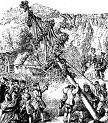




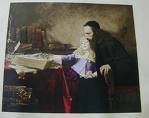


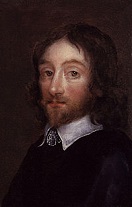


1624 In early Feb. after England declares war on Spain and James I summons the Parliament of 1624 (hist last) in Dec. it begins meeting, declaring monopolies illegal in attempt to get them to cough up more dough, and ending the English sanctuary laws; meanwhile in Nov. the English and French sign a treaty for James I's son, Prince Charles of Wales to marry Henrietta Maria, Catholic daughter of Henry IV and Maria de' Medici, and sister of Louis XIII, with guarantees that she can practice her faith; too bad, the choice of a Catholic pisses off the public, compounded for Charles' support of crypto-Catholic cleric Richard Montagu (Montague) (1577-1641), who pub. New Gag for an Old Goose, ridiculing Calvinism, and claiming it's only for extremist Puritans, pissing-off all Protestants and causing him to be attacked in Parliament as an Arminian, which he responds to with Appello Caesarem: A Just Appeale from Two Unjust Informers, which only pisses them off more; he's lucky they never knew about that secret 1623 journey to Madrid? In Mar. a ship arrives in Plymouth Colony bringing the New World's first cattle. In May after the pissed-off Spanish ambassador calls on Parliament to execute the 1st duke of Buckingham for his behavior in Madrid last year, and the duke counters by proposing a war with Spain for jilting Prince Charles of Wales in his marriage with the infanta, Lionel Cranfield, 1st Earl of Middlesex (1575-1645), lord treasurer of England since 1621, who gained the favor of James I by trying to reform the system of patronage to line his pockets (while Buckingham is also using it to line his pockets and therefore has to be gotten out of the way) is impeached at Buckingham's instigation for bribery and neglect of duty, fined £50K and suspended from office to get him out of the way so that the duke can do everything he was convicted of and get away with it?; meanwhile Sir John Eliot leads the fight in Parliament against the encroachment on its powers by James I. On June 10 the Treaty of Compiegne (Compiègne) is signed by France and Netherlands, with France offering a 480K thaler loan to help the Dutch fight Hapsburg Spain. On June 16 the London (Virginia) Co., the company colonizing North Am. is dissolved due to the unpardonable imprudence of the colonists in letting themselves get their asses kicked by Indians, plus the fact that a few tobacco tycoons monopolize the indentured servants; Virginia becomes a royal (crown) colony, and in Aug. Sir Francis Wyatt becomes royal gov. again with a term of five years; the headright system continues; England establishes a royal tobacco monopoly, fostering lung cancer on its own pop.?; Virginia's white pop. is only 1,132 despite 14K immigrating there since 1607. In June English lawyer Thomas Morton (1576-1646), born and raised in England's "Wild West" arrives in New England on the Unity with 30 men, and founds the colony of Merry Mount (Ma-Re Mount), backed by Sir Fernando Gorges, scorning the nearby Puritans, and bringing Renaissance England to the New World, incl. drinking and dancing around a Maypole, while trading in furs and "inviting the Indean women for their consorts, dancing and frisking together... and worse practices" (William Bradford) - the idea of racemixing so soon, it happened, yi yi yi? In July 800 Indian warriors battle 60 well-armed and well-pissed Jamestown colonists for two days and lose - the fate of all Indians in America is sealed? On Aug. 5 Mayflower Pilgrim Thomas Prence marries Patience Brewster, daughter of William Brewster. On Aug. 13 after De Luynes dies, Cardinal Richelieu (Armand Jean du Plessis) (1585-1642) is named by Louis XIII as his first (chief) minister of France, and entrusted with the govt. (until 1642); under him France replaces Spain as the #1 power in Europe; Father Joseph (Francois Duclerc du Tremblay) (1577-1638) becomes Richelieu's confidant and adviser, going on secret diplomatic missions for him and helping him in his efforts to convert the French Protestants, becoming known as the éminence grise (gray eminence) from the color of his robes, which contrast with Richelieu's red ones (éminence rouge). Count Ernst von Mansfeld visits England looking for financial support, making three visits to London, where he is hailed as a hero by the public, causing James I and Buckingham to supply him with men and money to recapture the Palatinate. Edward Winslow becomes a member of the governor's council of Plymouth (until 1647). The Ottoman sultan rewards Fakhr al-Din II of Lebanon with large regions of the W Levant from Jerusalem N to Alep, causing him to receive the nickname Sultan al-Bar ("sultan of the land"); meanwhile he skates on thin ice by maintaining relations with the Medicis. Ravi Varma dies, and Veera Kerala Varma (d. 1637) becomes ruler of Cochin. Jesuit missionary Alexandre de Rhodes (1591-1660) arrives in Vietnam, and founds a mission in the N in 1627, making 7K converts by the time it closes in 1630; by 1640 there are 82K converts in N (Trinh) Vietnam and 39K converts in S (Nguyen) Vietnam; de Rhodes eventually compiles a Latin-Vietnamese-Portuguese dictionary, using his "quoc ngu" romanization system, which enables missionaries to learn the lingo, and by 1700 there are 45 Roman Catholic priests in Vietnam. The English found their first settlement in E India. The Norwegian town of Oslo burns down, and Christian IV orders it rebuilt on the other side of the bay and renamed Christiania in his honor; by 1769 it has a pop. of 7.5K, growing to 135K by 1886. Portuguese Jesuit Antonio de Andrade (1580-1634) leaves the Jesuit mission at Agra to explore the Himalayas and Tibet, and becomes the first European to cross the Himalayas (over the Mansa Pass), going over the 20K ft. Mana Pass; he views the sacred white pyramid-shaped mountain of Kailash, then discovers the city of Tsaparang, built by the King of Gage in the hidden Limi Valley as a refuge, and is welcomed, building a Christian church; when he returns he writes Travels in Tibet - the real Shangri-La or Shambhala? Galileo meets with Pope Urban VIII and is assured that he can discuss the Copernican theory after all, as long as he treats it as an hypothesis - or somewhat less than an attack on the Bible's truths? Pope Urban VIII likens sneezing to orgasm and bans snuff - depends on whether you swallow? Louis XIII's male pattern baldness domes him at age 23, causing him to don a periwig, leading to full-bottomed wigs becoming fashionable in Europe. Maine is settled by the English. The Dutch set up forts in S Taiwan, while the Spanish set up forts in the N. The first Spanish settlement in Uruguay is made on the Rio Negro 100 mi. from the mouth of the Rio de la Plata. Sir William Courteen (Curteen) (Courten) (1572-1636), son of a Dutch Protestant refugee founds the first English settlement in Barbados. The town of Duxbury, Mass. (originally Duxborough) (modern-day pop. 15.5K) on the South Shore near Plymouth is founded by Capt. Myles Standish, William and Love Brewster, John Alden and Priscilla Alden et al., named after his family's Duxbury Manor in Lancashire; it starts out as a farming community then in the 19th cent. becomes a shipbuilding center, and by the 1870s a tourist mecca; in 1638 Myles Standish Burial Ground is founded there. The first major shipment of coffee beans arrives in Venice. Pembroke College at Oxford U. is founded by James I, named after William Herbert, 3rd Earl of Pembroke (1580-1630), rumored patron of William Shakespeare; alumni incl. polymath physician Sir Thomas Browne (1605-82). After fleeing Spanish control in Belgium for Leiden, Holland, Philippe du Trieux (1588-) a French-speaking Protestant Walloon born in Roubaix emigrates with his family to New Amsterdam, being among the first settlers, going on to change their name to Truax, Truex, Trueax et al. Architecture: Saruwaka Kanzaburo opens the first Japanese theater in the capital of Yedo (Eddo). Palais du Luxembourg (begun 1615) is finished. Jacques Lemercier extends the Louvre in Paris. Chioggia Cathedral, designed by Baldassarre Longhena in Venice at the far end of the Corso is begun (finished 1647). Science: Belgian scientist Johannes Baptista van Helmont (1580-1644) coins the term "gas" (Gr. "chaos" = unformed) for a compressible fluid - that would make it classical gas? Nonfiction: Uriel Acosta (1585-1640), An Examination of the Traditions of the Pharisees; pub. in Amsterdam; questions the immortality of the soul, claiming the rabbis made it up and it isn't in Biblical Judaism, and that most of Judaism was perverted by rabbis; gets him fined and excommunicated by the pissed-off rabbis. Duke Augustus the Younger of Brunswick-Luneburg (1579-1666), <Cryptomenytices et Cryptographiae (9 vols.); pub. under alias Gustavus Selenus; based on the work of Johannes Trithemius (1462-1516). Jakob Boehme (1575-1624), The Supersensual Life; Of Christ's Testaments; Of Illumination; An Epitome of the Mysterium Magnum; A Table of the Three Principles; The Clavis; The Holy Week, or a Prayer Book (unfinished); 177 Theosophic Questions, with Answers to Thirteen of Them (unfinished); Of Divine Contemplation of Vision (unfinished); Of the Last Judgment. Henry Briggs, Arithmetica Logarithmica. John Donne (1572-1631), Devotions Upon Emergent Occasions (Jan.); written last Dec. after recovering from a serious illness; Meditation XVII incl. the famous phrases "No man is an island", and "Any man's death diminishes me, because I am involved in mankind; therefore never send to know for whom the bell tolls; it tolls for thee." Edward Herbert (1582-1648), Autobiography; De Veritate; founding theory of English Deism; first metaphysical treatise written by an Englishman; claims that all principles of religion are apprehended by instinct and vitiated by superstition and dogma. Richard Montagu (1577-1641), New Gag for an Old Goose; disses Calvinist doctrines held by English Protestants, claiming that only extremist Puritans hold them. Philippe de Mornay (1549-1623), Memoires (2 vols.) (1624-25) (posth.). Jean Robin and Vespasien Robin, Manuel Abrege des Plants; introduces the Am. strawberry to France. Willebrord Snell (1580-1626), Tiphys Batavus; navigational theories. Capt. John Smith (1580-1631), A General Historie of Virginia, New England and the Summer Isles. Adriaan van den Spiegel (1578-1625), De Semitertiana Libri Quatuor; first comprehensive description of malaria. Edward Winslow (1595-1655), Good Newes from New England (London); Pilgrim journal. Music: Marco da Gagliano (1575-1642), La Regina Sant' Orsola (opera-oratorio). Claudio Monteverdi (1567-1643), Il Combattimento di Tancredi e Clorinda. Johann Hermann Schein (1586-1630), Diletti Pastorali, Hirten Lust. Art: Jacques Callot (1592-1635), The Fair at Gonfreville (print). Frans Hals (1580-1666), The Laughing Cavalier. Peter Paul Rubens (1577-1640), The Conversion of St. Bavon; Portrait of the Artist's Sons Albert and Nicholas (1624-5). Plays: Philip Massinger (1583-1640), The Renegado, or The Gentleman of Venice (tragicomedy); The Parliament of Love (comedy). Poetry: Martin Opitz (1597-1639), Das Buch von der Deutschen Poeterey; attempt at purifying the German language. Births: Japanese emperor #109 (1629-43) Meisho (Okiko) (d. 1696) on Jan. 9; 2nd daughter of Go-Mizunoo (1596-1680) and Tokugawa Kazuko (1607-78) (daughter of shogun #2 Hidetata); the name Meisho is a combo of previous female emperors Gemmei (707-15) and Gensho (715-24). Italian Baroque architect-writer Camillo-Guarino Guarini (d. 1683) on Jan. 17 in Modena. Dutch (Flemish) Cartesian "Ita est, ergo ita sit" (It exists, therefore it is so) philosopher Arnold Geulincx (d. 1669) on Jan. 31 in Antwerp; educated at the U. of Leuven. English religious leader and Quakers (Society of Friends) founder George Fox (d. 1691) in July in Leicestershire. Polish king (1674-96) Jan (John) III Sobieski (d. 1696) on Aug. 17 in Olesko (near Lemberg), Galicia. English physician Thomas Sydenham (Syndenham) (d. 1689) on Sept. 10 in Wynford Eagle, Dorset. German Roman Catholic mystic-poet Angelus Silesius (d. 1677) on Dec. 25 in Breslau (Wroclaw), Silesia; fan of Jakob Bohme (1575-1624); converts from Lutheranism in 1652. British colonial New York gov. #1 (1664-72) Richard Nicolls (d. 1672) in Ampthill, Bedfordshire. English Nonconformist theologian Matthew Poole (d. 1679) in York; son of Francis Pole; educated at Emmanuel College, Cambridge U. English Christian mystic Jane Ward Leade (d. 1704) in Norfolk. German duke Georg Wilhelm, Duke of Brunswick-Luneburg-Calenburg (d. 1705) in Hanover. Deaths: English lord high adm. Charles Howard, 1st earl of Nottingham (b. 1536) on Dec. 14. Spanish Jesuit historian Juan de Mariana (b. 1536) on Feb. 17 in Madrid. Spanish explorer Sebastian Vizcaino (b. 1540) in Mexico City. English clergyman writer Stephen Gosson (b. 1554). English bishop Miles Smith (b. 1554) in Gloucester. Swiss botanist Gaspard Bauhin (b. 1560). Georgian queen St. Ketevan the Martyr (b. 1565) on Sept. 13 in Shiraz (tortured to death on orders of Shah Abbas I with red-hot pincers for refusing to convert to Islam). Dalmatian apostate archbishop-scientist Marco Antonio de Dominis (b. 1566) in Sept. in Sant' Angelo Castle, Rome; his corpse is dragged through the streets of Rome on Dec. 21 and burned in Campo di Fiore along with his works. German astronomer Simon Marius (b. 1573) on Jan. 5 (Dec. 26 Old Style) in Anspach. William Shakespeare's patron Henry Wriothesley (b. 1573) on Nov. 10. German mystic Jakob Boehme (b. 1575) in Goerlitz; his complete works are pub. in 1730: "When thou art gone forth wholly from the human, and art become nothing to Nature and creature, then thou art in that eternal one, God himself, and then thou shalt perceive and feel the highest virtue of love." Spanish painter Luis Tristan de Escamilla (b. 1586) in Toledo. Indian Sufi scholar Shaykh Ahmad Sirhindi (b. 1564): "Whenever a Jew is killed, it is for the benefit of Islam."


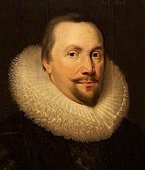







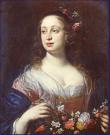




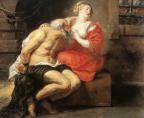
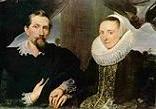
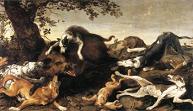
1625 The combined pop. of English colonists in Va. and Mass. together numbers only 2K. In Jan. the Mansfield expedition finally leaves England with an army of "raw and poor rascals", sailing from Dover to the Netherlands. On Mar. 27 English king (since Mar. 24, 1603) James I (James VI of Scotland) (b. 1566) dies of a, er, stroke after 58 years on the Scottish throne and 22 years on the English throne, failing to unite the two kingdoms, and his 2nd (Scottish-born but not understanding the Scots?) son Charles I (1600-49) succeeds him as king of the Three Kingdoms of England, Scotland, and Ireland (the 45th British monarch) (2nd of the House of Stuart) (until Jan. 30, 1649); he is crowned next Feb. 2; on Apr. 3 John Donne gives the first royal sermon of his reign; before dying James I founds the Irish Slave Trade by selling 30K Irish prisoners to English settlers in the West Indies, making it a permanent proclamation; on May 1 Charles I marries 16-y.-o. French Roman Catholic (short like him) Henrietta Maria (Henriette-Marie) (1609-69) by proxy (the Duke of Buckingham), and the same day directs his First Parliament (convenes June 18) to cease the persecution of Roman Catholics, which they refuse, instead demanding subsidies for the war against Spain; on May 7 James' state funeral is held at Westminster Abbey, and his remains are interred in the same vault as Henry VII (his great-great-grandfather), founder of the Tudor Dynasty, with no stone-carved memorial; the First Parliament is adjourned to Oxford because of plague in London; no Rex Pacificus like his daddy, Charles forever schemes to make war, but jams up against his insufficient income and the need to get Parliament to vote money, ending up hiring smart lawyers to find ways to milk his existing incomes; his colorful court soon becomes filled with anti-Reformation Catholics, and his disinterest in Scottish affairs turns off Scotland; meanwhile he gets pussy-whipped by his wife, who is forever plotting with papists and turning the English people against them, even though the marriage doesn't cause France to become an ally?; lucky Buckingham becomes the only man to retain his position from the court of James I; new queen Henrietta Maria goes on to talk her hubby into granting the French title of princess royal to their eldest daughter Mary in 1642 to imitate their title of "madame royale", after which George II does ditto with his eldest daughter Anne in 1727, followed by George III's daughter Charlotte in 1789, Victoria's daughter Victoria in 1841, Edward VII's daughter Louise in 1905, George V's daughter Mary in 1932, and Elizabeth II's daughter Anne in 1987 - walking, dancing, playing volleyball, you're the same woman? On Nov. 1 Sir Thomas Coventry, 1st Baron Coventry (1578-1640) is made lord keeper of the seal of England by Charles I (until 1640), the juicy job going on to make him rich. Count Tilly invades Lower Saxony; meanwhile Christian IV of Denmark enters the Thirty Years' War to protect Protestantism and establish himself as its leader in N Europe; meanwhile HRE Ferdinand II makes gen. Albrecht Wenzel Eusebius von Wallenstein (1583-1634) CIC of his imperial forces, and creates him the duke of Friedland; Ferdinand is victorious in wars against the Protestants in Germany, and his son Ferdinand III (1608-57) is crowned king of Hungary in Dec. Spanish gen. Ambrogio Spinola takes Breda from the Dutch after an 11-mo. siege. The Valtellina is seized from the Spanish by a Swiss force in French pay, and Huguenot leader Duke Henri II of Rohan (1579-1638), chancellor of Burgundy is made gov. (until 1637). Tartu, Estonia becomes a Swedish possession (until 1656). James Sir John Eliot splits with the 1st duke of Buckingham over the latter's attempts to extend the power of new monarch Charles I. After his only son Federico (b. 1605) dies in 1623 from an epileptic seizure, aging Francesco Maria II della Rovere (b. 1549) returns his Duchy of Urbino to the pope, and after his death in 1631 it is annexed to the papal states, his daughter Vittoria della Rovere (1622-94) (wife of Ferdinando II de' Medici) inheriting his vast art collection and bequeathing to the Uffizi Gallery in Florence. Tommaso Campanella is in the hot seat again and flees to France, where Richelieu gives him asylum and Louis XIII grants him a pension of 3K livres. The French occupy the Antilles and Cayenne. The Colonial Office is established in London. A British Am. ship is captured by Morocco. About this year the Kuba (KuBa) (Bakuba) (Bushongo) Kingdom is founded by Shyaam a-Mbul a Ngoong in SE modern-day Dem. Repub. of Congo (DRC) by uniting all local chiefdoms under his rule, worshiping the Sky Father Bumba and the original human Woot, becoming known for tukula (twool) cosmetic powder made of ground cam wood, raffia embroidered textiles, wooden ndop figures representing royalty, and carved palm wine drinking cups; after white Euros reach the area in 1884, and the Nsapo people invade it, it fractures back into chiefdoms; in 1969 Kot-a-Mbweeky III becomes king of Kuba (until ?). The town of New Amsterdam (modern-day New York City) in New Netherlands is founded on lower Manhattan Island by the Dutch after they purchase it from the Indians. Nurhachi moves his capital from Liaodong to Shenyang (Mukden) (Shengjing) (Fengtian) (Chen. "city N of the Shen River") on the Hun (Shen) River in NE China, and sets up a civil admin. based on the Chinese model. Hackney coaches begin appearing in London streets. The first fire engines are used in England. The first trade with Indians between the Kennebec and Plymouth Colony is started by (who else?) Edward Winslow - Fast Eddie? Western Fort on the E bank of the Kennebec (on the later site of Augusta, Maine) is founded by the Plymouth Pilgrims as a trading post to help pay their debts to London; it is turned into a fort in 1754. The French colonize Tortuga. After proclaiming his family's motto as "Fatti maschi, parole femine" (manly deeds, feminine words) in 1622, Sir George Calvert, 1st Lord Baltimore (1580-1632) announces his conversion to Roman Catholicism, and begins a campaign to establish a North Am. colony for English Catholics; the male supremacist motto is later adopted by the U.S. state of Md. (until ?) - South America and Canada aren't enough for them? (St.) Vincent de Paul (1580-1660) founds the Order of the Sisters of Mercy in Paris. Daniel Mytens the Elder (1590-1648) becomes court painter to Charles I, introducing naturalism into court portraits until the arrival of Anthony Van Dyck in 1632, causing him to return to the Netherlands in 1634. Silesian poet Martin Opitz von Boberfeld (1597-1639) is crowned poet laureate in Vienna. The Dutch carry sugar cane from South Am. to the Caribbean islands, incl. Barbados and Virgin Islands. The cockroach comes to America from Africa - and will be in both continents long after humans are extinct? The first illustrated textbook is pub. in Hungary. The famous Peal of Bells is installed in the Gate of Salvation in the Kremlin. Science: German-Dutch chemist Johann Rudolf Glauber (1604-68) discovers Glauber's Salt (sodium sulfate). Christoph Scheiner makes the first direct observation of the retinal image. Nonfiction: Anon., The Widdowe's Treasure; English cookbook. Sir Francis Bacon (1561-1626), Essays; Of Masques and Triumphs. Marco Antonio de Dominis (1566-1624), Euripus seu de Fluxus at Refluxus Maris Sententiae; relates the tides to the Moon and Sun. Sir Fulke Greville (1554-1628), The Life of the Renowned Sir Philip Sidney [1554-86]. Hugo Grotius (1583-1645), On the Law of War and Peace (De Jure Belli ac Pacis); seminal internat. law. treatise that eclipses the writings of Alberico Gentili; claims that interventing to help a people resist tyranny constitutes a just war. Juan de Mariana (1536-1624), Discursus de Erroribus qui in Forma Gubernationis Societatis Jesu Occurrunt (Bordeaux) (posth.); criticizes his Jesuit Order; reprinted by Charles III when he banishes the Jesuits from Spain in 1767. Richard Montagu (1577-1641), Appello Caesarem: A Just Appeale from Two Unjust Informers; more anti-Calvinism. Samuel Purchas (1577-1626), Hakluytus Posthumus or Purchas His Pilgrimes; contains a Map of China. Sir William Vaughan (1575-1641), Cambrensium Caroleia; incl. the first map of Newfoundland by Capt. John Mason. Music: Francesca Caccini (1587-1642), La Liberazione di Ruggiero (opera) (Feb. 3) (Villa di Poggio Imperiale, Florence); libretto by Ferdinando Saracinelli; the first opera by a woman composer, and first performance of an Italian opera outside Italy (Poland, 1625) (Warsaw, 1628); written for the future Wladyslaw IV. Heinrich Schutz (1585-1672), Cantiones Sacrae. Art: Gianlorenzo Bernini (1598-1680), Apollo and Daphne; shows Peneus' maiden daughter turning into a tree to escape the Cupid-struck Phoebus Apollo; commissioned by Cardinal Scipione Borghese. Nicolas Poussin (1594-1665), Parnassus (1625-9). Peter Paul Rubens (1577-1640), Roman Charity (Simon and Pero); the old sucker gets older and she gets more Rubinesque; Archduchess Isabella Clara Eugenia, Daughter of Philip II, Spanish Regent of the Low Countries As A St. Clare Nun. Frans Snyders (1579-1657), Wild Boar Hunt (1625-30). Plays: Honorat de Bueil (1589-1670), Les Bergeries (pastoral dialogues). Ben Jonson (1572-1637), The Staple of News (comedy) (first play in nine years); slams Thomas Middleton for his big hit "A Game at Chess" (1609). Philip Massinger (1583-1640), A New Way to Pay Old Debts (comedy); Sir Giles Overreach, based on Richard III, later made famous by Edmund Kean. Tirso de Molina (1584-1648), The Trickster of Seville; creates the myth of Don Juan. Joost van den Vondel (1587-1679), Palamedes (political drama). Poetry: Jacob "Father" Cats (1577-1660), Houwelijck. Births: Italian-born French astronomer Gian (Giovanni) Domenico Cassini (d. 1712) on June 8 in Perinaldo, Genoa; father of Jacques Cassini (1677-1756). English diplomat-MP (1645-60) Edward Montagu, 1st Earl of Sandwich (d. 1672) on July 27; only surviving son of Sir Sidney Montagu (-1644) and Paulina Pepys (great-aunt of Samuel Pepys). Danish mathematician-astronomer (discoverer of double refraction in crystals) Rasmus (Erasmus) Bartholin (d. 1698) on Aug. 13 in Roskilde; son of Caspar Bartholin the Elder (1585-1629); brother of Thomas Bartholin (1616-80); namesake of the sublingual duct of Bartholin. French writer-dramatist Thomas Corneille (d. 1709) on Aug. 20 in Rouen; younger brother of Pierre Corneille (1606-84). Dutch statesman-mathematician Johan de Witt (d. 1672) on Sept. 24 in Dordrecht; brother of Cornelius de Witt (1623-72). Dutch animal-landscape painter-etcher Paulus (Paul) John Bubnarius Jaques Potter (d. 1654) on Nov. 20 in Enkhuizen; trained in Amsterdam. French legal philosopher ("greatest legal mind of the 17th cent.") Jean Domat (d. 1696) on Nov. 30; known for his attempts to justify French royal absolutism. English pirate and vice-adm. Sir Christopher Myngs (Mings) (d. 1666) in Norfolk. German "Simplicissimus" picaresque novelist Hans (Johann) Jakob (Jacob) Christoph von Grimmelshausen (d. 1676) in Gelnhausen, Sesse. German noble Johann Friedrich, Duke of Brunswick-Luneburg-Calenberg (Hanover) (d. 1679). Dutch painter-engraver (Roman Catholic) Hendrick Danckerts (d. 1680) in The Hague. Welsh jurist Sir Leoline Jenkins (d. 1985) in Cowbridge; educated at Jesus College, Oxford U. Polish "Wojna Chocimska" #1 poet Waclaw Potocki (d. 1696). Deaths: Italian painter Sophonisba Anguissola (b. 1532) on Nov. 16 in Palermo, Sicily. English lexicographer John Florio (b. 1553) in autumn in Fulham, London; dies in poverty after his royal pension is not paid. Spanish valido Francisco Gomez, duke of Lerma (b. 1553). English poet-dramatist Thomas Lodge (b. 1558). Spanish historian Antonio de Herrera y Tordesillas (b. 1559). Italian musical theorist Pietro Cerone (b. 1566) in Naples. English king (1603-25) and Scottish king (1567-1625) James I/VI (b. 1566) on Mar. 27 in Theobalds House, Cheshunt, Hertfordshire (stroke); buried in Westminster Abbey; wrote more books than any other monarch in history? Dutch Cape Horn explorer Willem Cornelis Schouten (b. 1567). Dutch prince (or Orange) Maurice of Nassau (b. 1567). Dutch painter Jan Brueghel ("Velvet Brueghel") the Elder (b. 1568). French novelist Honore d'Urfe (b. 1568) on June 1 in Villefranche-sur-Mer ; dies from a fall from his horse during a military campaign against the Genoese. in Villafranca, Spain. Italian poet Giambattista Marini (Marino) (b. 1569). German astronomer Johann Bayer (b. 1572) on Mar. 7. Dutch anatomist Adriaan van der Spiegel (b. 1578) on Apr. 7. English playwright-poet John Fletcher (b. 1579) (plague). English dramatist John Webster (b. 1580). English composer Orlando Gibbons (b. 1583) on June 5 in Canterbury (apoplexy); leaves The Silver Swan.






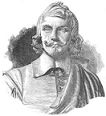





1626 On Feb. 2 Charles I is crowned at Westminster Abbey by Bishop William Laud in a ceremony filled with mystical symbolism about the majesty of the Divine Right of Kings - does he pray to the Lord day and night for his people? On Feb. 5 after a royal army is sent, the Huguenots sign the Peace of La Rochelle (Treaty of Paris) with France, preserving religious freedom but prohibiting La Rochelle from keeping a war fleet, requiring Huguenot Ft. Tasdon and French Ft. Louis to be destroyed - and by the time the ink is dry? On Mar. 5 the Treaty of Monzon (Monzón) (Moncon) between Spain and France gives equal rights in controlling the Valtelline Pass, and confirms the independence of the Grisons. On Mar. 9 Charles I's Second Parliament meets, and lord keeper Sir Thomas Coventry delivers the king's reprimand to the House of Commons, declaring that they are entitled to "liberty of counsel", not "liberty of control"; after they stop chuckling, Charles I abruptly dissolves Parliament, then tries to finance his war plans by all kinds of desperate actions, incl. pawning the crown jewels and forced loans on wealthy subjects, at first sending letters in July asking them to "lovingly, freely and voluntarily" pony up, then, when the vast majority ignore the bum, making it an order with threat of jail, causing £250K to come in; he also quarters troops in houses along England's S coast, incl. at the Puritan stronghold of Banbury, which later proves a boo-boo. On Mar. 28 Eastern traveler (since 1614) Pietro della Valle arrives back in Rome, where he becomes a celeb and is made gentleman of the bedchamber by Pope Urban VIII, burying his stuffed Syrian wife in 1627 and marrying a Georgian orphan she had adopted, going on to have 14 children. On Apr. 25 after marching to the Elbe River, Gen. Wallenstein defeats Count Ernst von Mansfeld at the Battle of Dessau Bridge, after which Mansfield regroups in Silesia and recruits another army (not filled with raw and poor English rascals?), then marches to Hungary, pursued by Wallenstein; too bad, Bethlen Gabor of Transylvania flip-flops and makes peace with the HRE, and Mansfeld is forced to disband his army, setting out for Venice, where he takes ill at Rakowitza and dies on Nov. 26; the failure of the Mansfield expedition causes the 1st duke of Buckingham's capital to drop in England. On May 4 after being appointed the first dir.-gen. of New Netherlands, Peter Minuit (1580-1638) arrives at the mouth of the Hudson River in the Sea Mew, then on May 6 buys Manhattan Island (discovered in 1609 by Henry Hudson) from the natives for 60 Dutch guilders ($24) in trade goods (beads and geegaws), followed on Aug. 10 by Staten Island for another 60 guilders worth of trinkets; meanwhile the Dutch West India Co. rips off the Spanish treasure ships for 120M guilders? In June the 1st duke of Buckingham, hoping to become a hero like Sir Francis Drake and burn all the ships in the harbor, leads an expedition to Cadiz, Spain; too bad, after the troops land up the coast, they happen on a warehouse of wine, get drunk, and return to the ship on the Highway to Hell; after they return empty-handed, Sir John Eliot demands a Parliamentary inquiry, and brings the case for Buckyball's impeachment before the House of Lords, which backfires and gets him jailed the next day following the statement of charges; the House of Commons obtains his release, although he loses his office of vice-adm., after which Bucky gets the House dissolved in Aug. to avoid being tried; just because that didn't work, Buckingham then leads an expedition to intercept a Spanish silver fleet from Mexico at sea, but they get tipped off and avoid the bum, causing him to finally return home after running out of supplies; three's the charm, Buckingham then negotiates with Cardinal Richelieu to send English ships to fight the Huguenots in return for French aid in kicking the Spanish out of the Palatinate (which went bad for him in 1524), pissing off Parliament again, the very idea of English Protestants fighting French Protestants, causing Bucky to flip-flop and plot to aid the Huguenots against Richelieu, declaring war on France, which pits England against the French Bourbons and the Hapsburgs of Spain and Germany. On July 6 the Jardin des Plantes is established in Paris on the left bank of the Seine River; in 1635 Louis XIII's physician Guy de La Brosse (1586-1641) replants it with medicinal herbs, becoming the #1 botanical garden in France; originally called the Jardin du Roi (King's Garden), it takes until 1640 to get the Sorbonne faculty to drop their opposition to a non-degreed teacher of botany there. On Aug. 26-27 the Battle of Lutter is an utter D for the Danish by the Catholic, who destroy over half their feeling army, forcing Christian IV to sue for peace. Cardinal Richelieu suppresses the Chalais Conspiracy in Nantes, led by Henri de Talleyrand-Perigord, Count of Chalais (b. 1599), having him beheaded, then consolidating his power over the nobles. Nurhachi (b. 1559) dies without realizing his dream of conquering all of China, and his 2nd son Abahai (1592-1643) becomes emperor #2 of the Manchurian Hou (Later) Jin (Chin) (Qin) Dynasty in Mukden, going on to finish daddy's program and absorb Mongol and Han Chinese in NE China into each of their own eight banners, instituting combined Manchu-Mongol-Chinese rule (ends 1911). Louis XIII revives the extinct (since 1498) dukedom of Orleans, and makes his brother Jean-Baptiste Gaston (1608-60) the new duke. Bamberg in Germany under Prince-bishop Johann Georg II Fuchs von Dornheim begins a flurry of witch trials (until 1631), building the Drudenhaus witch prison next year. Gustavus II Adolphus grants privileges to Dutchman Willem Usselincx to start a Swedish trading co. for the Far East, but it never launches any ships, and he ends up dying broke. The English crown grants knighthoods to all male Englishmen with property over £40 a year in order to raise revenue. A royal edict in France makes it a capital crime to kill anyone in a duel. The Merchant Adventurers of London disband after visiting the fledgling Pilgrim colony at Provincetown, and seven Pilgrim Fathers (Bradford, Brewster, Winslow, Standish, Alden, Howland, Allerton and Prence) assume the colony's debt in return for a fur trade monopoly. The English Parliament prevents Charles I from placing excise taxes on beer and ale; in 1643 after the start of the English Civil War (1642-51) the revolutionary Puritan Parliament imposes them, along with taxes on bread, meat, salt, sugar et al., claiming necessity as a war measure; after the war the taxes continue until riots and demonstration make the Parliament remove them, while keeping them on beer, malt, and hops, increasing them yearly ($1,632,280 for England and Scotland in 1659) until gin becomes cheaper, causing a rise in gin consumption along with the growth of beer moonshiners, causing James II in 1685 to extend the jurisdiction of the Worshipful Co. of Brewers (London Brewers' Co.) to 8 mi. around London and its suburbs, after which in 1739 the co. adopts new by-laws, incl. the requirement that all members "enter into a bond in £2,00 with the company against any expenses of their being elected to the office of sheriff or lord mayor", starting to go into decline about 1750. Mexican-born Spanish dramatist Juan Ruiz de Alarcon (Alarcón) y Mendoza (1581-1639) becomes a member of the Royal Council of the Indies (New Spain colonies), causing him to give up writing plays. French missionary Father Jean de Brebeuf (1593-1649) explores the Lake Huron region and establishes a Roman Catholic mission among the Huron, which is abandoned after two years - they sure did like that? Nicholas Ferrar (1592-1637) founds the Anglican lay religious community of Little Gidding near Huntingdon, Huntingdonshire, England (ends 1646); members incl. poets George Herbert and Richard Crashaw. The French establish settlements in Madagascar and on the Senegal River. The Co. for the Islands of America (Company of One Hundred Associates) is incorporated in France to work the North Am. fur trade and expand French colonies (ends 1663). Salem (Heb. "peace") (modern-suburb of Boston) (modern pop. 40K) on Mass. Bay is founded at the mouth of the Naumkeag River by fisherman Roger Conant (1592-1679) and other immigrants from Cape Ann. The Kalinago Genocide in St. Kitts sees Caribs attempt to wipe out English settlers, who are tipped off by a woman named Barbe, causing the English and French to stage a surprise night attack and kill 100-120 in their beds, saving the most beautiful babes as slaves; they then divide the island and fortify it against an invasion of 3K-4K Caribs from other islands, killing many while suffering 100 casualties, after which the Carib blood ran down Bloody River for three days, causing it to be named Bloody Point. Charles I creates the position of Master of the King's Musick, the equivalent of poet laureate, with the job of directing the king's private band (until it is dissolved in 1901), with Nicholas Lanier (1588-1666) getting the first lifetime appointment; in 2004 the appointment is changed to a 10-year term. Jean Trimbach begins producing wines in Alsace, founding Maison Trimbach. Heidelberg U., once a major Protestant center suspends operation (until 1652). English musician William Heather (1563-1627), a gentleman of the chapel royal founds a professorship of music at Oxford U. The first production of Shakespeare's Hamlet in Germany is staged in Dresden. Peter Paul Rubens' first wife Isabella Rubens dies. Architecture: On Nov. 18 St. Peter's Basilica in Rome (begun Apr. 18, 1506) is finally consecrated, becoming the largest Christian church on Earth. The Chateau de Balleroy in Normandy, designed by Francois Mansart is begun (finished 1636). Jacques Lemercier decorates the Sorbonne in Paris. Science: Santorio Santorii becomes the first to measure human temperature with a thermometer - don't ask which orifice? Nonfiction: Marie de Gournay (1565-1645), The Ladies Grievance (Les Femmes et Grief des Dames). John Donne (1572-1631), Five Sermons. Albert Girard (1595-1632), Treatise on Trigonometry; contains the first use of the abbreviations sin, cos and tan. Joseph Hall (1574-1656), Contemplations. Pieter Hooft (1581-1647), Henrik de Grote (Henry the Great). Francisco Gomez de Quevedo y Villegas (1580-1645), Politica de Dios; an attack on govt. by favorites. William Roper (1496-1578), The Life of Sir Thomas More (posth.). Sir Henry Spelman (1595-1623), Glossarium Archeologicum. Art: Anthony van Dyck (1599-1641), The Four Ages of Man; Paola Adorno, Marchesa Brinole-Sale with Son; Giovanni Vincenzo Imperiale. Jan Joseph van Goyen (1596-1656), Ice Skating. Jusepe de Ribera (1591-1652), Drunken Silenus. Peter Paul Rubens (1577-1640), Assumption of the Virgin (altarpiece at Antwerp). Anthony van Dyck (1599-1641), Marchesa Paola Adorno and Her Son; The Tribute Money. Music: Johann Hermann Schein (1586-1630), Opera Nova, ander Theil, Geistlicher Concerten; Studenten-Schmauss. Plays: Sir William Davenant (1606-80), Albovine, King of the Lombards (tragedy) (first play). Philip Massinger (1583-1640), The Roman Actor (tragedy) (Blackfriars Theatre, London); performed by the King's Men; John Lowin plays Roman emperor Domitian, and Joseph Taylor plays Paris, who gives a defense of the acting profession. Poetry: Honorat de Bueil (1589-1670), Les Plus Beaux Vers. John Milton (1608-74), On the Death of a Fair Infant Dying of a Cough; written while at Cambridge. George Sandys (1578-1644), Ovid's Metamorphoses; first trans. of an ancient classic in North Am. Novels: Francisco Gomez Quevedo y Villegas (1580-1645), Historia y Vida del Buscon (Buscón) (picaresque); big hit in Spain. Births: French condom-hating aristocratic court gossip, tea drinker and big letter writer Marie de Rabutin-Chantal, Marquise de Sevigne (Sévigné) (d. 1696) on Feb. 5 in Paris; born to an old Bourbon family. Italian physician-scientist Francesco Redi (d. 1697) on Feb. 18 in Arezzo, Tuscany. French Franciscan missionary Louis Hennepin (d. 1705) on May 12 in Ath, Spanish Netherlands (modern-da Belgium). Italian Baroque composer Giovanni Legrenzi (d. 1690) on Aug. 12. English statesman and Lord Protector of England Richard Cromwell (d. 1712) on Oct. 4 in Huntingdon; 3rd son of Oliver Cromwell (1599-1658); trained to be his successor. Swedish queen (1632-54) Christina Wasa (Maria Christina Alexandra) (d. 1689) (AKA Countess Dohna) on Dec. 8 in Stockholm to Gustavus II Adolphus of Sweden and Maria Eleonora of Brandenburg; her birth during a rare astrological conjunction fuels speculation about her destiny, compounded with the universal desire that she be a boy, causing her to be educated as one; her official title is king? Dutch stadtholder (1647-50) William II, Prince of Orange (d. 1650) on May 26; son of Frederik Hendrik of Orange (1584-1647) and Amalia of Solms-Braunfels (1602-75); husband (1641-) of Mary Henrietta Stuart (1631-60) (eldest daughter of Charles I of England and Queen Henrietta Maria); father of William of Orange (William III of England) (1650-1702). Turkish Jewish Qabbalist Sabbatean sect founder Sabbatai (Shabatai) Zevi (Tzvi) (d. 1676) on Aug. 1 (Tisha B'Av) in Smyrna. Dutch painter Jan Steen (d. 1679). Russian artist Simon (Pimen) Fyodorovich Ushakov (d. 1686); one of the first secular painters in ultra-religious Russia; gets in trouble for painting religious icons which look too fleshy and Western. English antiquarian John Aubrey (OF "elf ruler") (d. 1697). Deaths: English poet-novelist Nicholas Breton (b. 1545). Venetian artist Girolamo Campagna (b. 1549) in Venice. Spanish colonial gov. Juan de Onate (b. 1552) in Spain. Flemish painter Paul Bril (b. 1554). English prelate-scholar Lancelot Andrewes (b. 1555) on Sept. 25. Dutch sculptor Adriaen de Vries (b. 1556) in Prague. Chinese Qin emperor #1 (1616-26) Nurhaci (b. 1559). English philosopher-statesman Sir Francis Bacon, 1st viscount St. Alban (b. 1561) on Apr. 9 in Highgate; dies from pneumonia from stuffing a chicken with snow for an experiment on refrigeration: "Knowledge is power"; "It is a sad fate for a man to die too well known to everybody else and still unknown to himself"; "He that hath wife and children hath given hostages to fortune; for they are impediments to great enterprises, either of virtue or mischief. Certainly the best works, and of greatest merit for the public, have proceeded from the unmarried or childless men, which both in affection and means have married and endowed the public"; "Some books are to be tasted, others to be swallowed, and some few to be chewed and digested"; "They that deny God destroy man's nobility; for certainly, man is akin to the beasts by his body; and if he be not of kin to God by his spirit, he is a base and ignoble creature." English lutenist-composer John Dowland (b. 1563). English poet Sir John Davies of Hereford (b. 1569). English actor Edward Alleyn (b. 1566) on Nov. 25. English dramatist Cyril Tourneur (b. 1575) on Feb. 28 in Kinsale, Ireland; dies on return voyage from Cadiz with Sir Edward Cecil. French engineer-physicist Salomon de Caux (b. 1576). German gen. Count Ernst von Mansfeld (b. 1580) on Nov. 29 in Rakowitza; buried in Spalato. Dutch mathematician Willebrord Snell (b. 1580) on Oct. 30. Italian anatomist Gasparo Aselli (b. 1581). English "Gunter's chain" mathematician Edmund Gunter (b. 1581) on Dec. 10. English dramatist-actor William Rowley (b. 1585) in Feb. Italian duke of Mantua and Montferrat (1612-26) Ferdinando I Gonzaga (b. 1587) on Oct. 29 in Mantua. French poet-dramatist Theophile de Viau (b. 1590) on Sept. 25 in Paris.
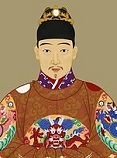

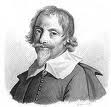
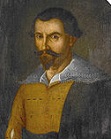

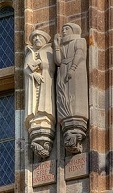



1627 By this year HRE Ferdinand II has outlawed all religions but Roman Catholicism in his empire, and banished the Protestants from Bohemia. On Jan. 3 Francis Cooke (1583-1663) and five other men are appointed to lay out 20-acre land shares for every Mayflower family that came as a planter under the employ of the joint stock co.; the Cattle Division becomes the first census of Plymouth Colony. On Jan. 12 the first Hebrew printing press in Amsterdam is founded by Portuguese-born Manasseh ben Israel (1604-57), producing a Hebrew prayer book. On May 19 German postmaster (first woman) Katharina Henot (Henoth) (b. 1570) is burned at the stake for sorcery in Cologne, Germany; on June 28, 2012 the city council exonerates her along with other victims of witch persecution. In June after capturing Lundy Island in the Bristol Channel to use as his base, Dutch-born Muslim Barbary pirate Murad Reis terrorizes Iceland until some are cornered and killed on Turkish Peninsula, and the rest sail out with booty and slaves; on July 4 two corsairs from Algiers plunder the S coast for three days. On July 12 the Anglo-French War of 1627-9 begins with the Siege of Saint-Martin-de-Re (Saint-Martin-de-Ré) in France, with the duke of Buckingham leading a force 100 ships and 6K-7K soldiers land on the beach at Sablanceau with the objective of capturing Ft. La Pree and the fortified city of Saint-Martin-de-Re; after a French relief fleet arrives on Oct. 7 (night), the English end the siege after losing 5K; meanwhile the Third Huguenot Revolt (ends 1628) against the French crown begins, causing Cardinal Richelieu in Sept. to begin sieging the Huguenot stronghold of La Rochelle (ends Oct. 1628); the 1st duke of Buckingham leads a fleet from Portsmouth to aid the Huguenots, but fails to relieve them and returns after losing 4K of his 7K men. HRE Ferdinand II outlaws all religions but Roman Catholicism in Bohemia; his son Ferdinand III is crowned king of Bohemia. On Sept. 30 emperor (since Oct. 1, 1620) Ming Tianqi (b. 1605) dies, and on Oct. 2 his younger brother Ming Chongzhen ("honorable and auspicious") (Zhu Youjian) (1611-44) becomes Ming emperor #16 (last) of China (until Apr. 25, 1644); the Manchus invade Korea and place it under vassalage. On Oct. 28 Mughal emperor #4 (since Oct. 15, 1605) ("Conqueror of the World") ("Possessor of the Planets") ("Mirror of the Glories of God") ("King of Increasing Fortune") Jahangir (b. 1569) dies, leaving 2,235,600 carats of pearls, 931,500 carats of emeralds, 376,600 carats of rubies, 279,450 carats of diamonds, and 186,300 carats of jade, and next Jan. 19 his son Prince Khurram becomes Great Mogul (Mughal) #5 Shah Jahan (Jehan) (1592-1662) (Pers. "King of the World) (until July 31, 1658), going on to extend the empire S through the Deccan to the Maratha States. In Oct. Dutch trading agent Isaack de Rasieres visits Plymouth Colony from New Netherland and introduces them to wampum, which allows them to expand trade with the Indians, and writes how Plymouth is an armed fortress run by Capt. Myles Standish where each male worships with his gun at his side, causing the town of Plymouth to begin its annual Pilgrim Progress in Aug. 1921. On Dec. 25 Vincent (Vincenzo) II (b. 1594), last of the Gonzagas dies, and Charles (Carlo) I Gonzaga-Nevers (1580-1637), son of Ludovico Gonzaga, duke of Nevers becomes duke of Mantua and marquess of Montferrat (until 1637), beginning the War of the Mantuan Succession in N Italy (ends 1631), with the Hapsburgs allied with Savoy testing their power against Louis XIII of France - nevers say nevers? Gen. Wallenstein conquers Silesia while Gen. Tilly conquers Brunswick, and their imperial forces go on to seize the Jutland peninsula and the Mecklenburg duchies from the Danes and the Protestant princes; Christian IV withdraws to Denmark. The Trinh-Nguyen Civil War in Vietnam begins between the Nguyens in the S and the Trinhs in the N, lasting until 1673, with major campaigns in 1648, 1661, and 1672. This is the last year that the original Plymouth settlers all live within the confines of the palisade wall. Scituate, Mass. (Wampanoag "satuit" = cold brook) halfway between Plymouth and Boston is founded by people from Plymouth and immigrants from Kent, England; in 1710 several residents found Scituate, R.I. The Case of the Five Knights sees five of the 76 gentlemen imprisoned by Charles I for refusing to loan him money for his wars apply for a writ of habeus corpus to the King's Bench, only to see the judges find in favor of the king, causing a popular outcry against abritrary abuse of royal power; meanwhile Charles I attempts to find holy spin doctors, ordering the pub. of sermons by bishop Roger Maynwaring (1590-1653) and Robert Sibthorpe (-1662) under the title "Religion and Allegiance", justifying his actions with the divine right of twerps, er, kings, bypassing Canterbury archbishop George Abbot when he refuses to license them with a commission of bishops led by William Laud, who begins his rise; next year John Pym gets the House of Commons to impeach Maynwaring and Sibthorpe for subverting the Commonwealth, pissing-off Charles I, who pardons them. Charles I grants a charter to the Guiana Co.. Richelieu incorporates the Co. of One Hundred Associates to replace the Co. de Montmorency (founded 1621), with the Roman Catholic Church being given a piece of the pie of a commercial monopoly in New France (Canada, Newfoundland, Acadia, La.); in 1629 Samuel de Champlain becomes its cmdr. (until 1635); it folds in 1663. The Swedish South Sea Co. is founded. Barbados is granted to the earl of Carlisle, whose settlers overcome those of Sir William Courteen by 1629. The Spanish grant the uncolonized island of Grenada in the Grenadines in the SE Caribbean Sea (discovered 1498) to the British. Dutch explorer Pieter de Carpentier (1586-1659) discovers the Gulf of Carpentaria on the N coast of Australia. France introduces registered mail - to receive it you first have to prove you're not a Hugue? Pope Urban VIII founds the Collegium (Congregatio) de Propaganda Fide (Urban College) in Rome to train missionaries; in 1982 Pope John Paul II changes the name to "Congregation for the Evangelization of Peoples"; the word "propaganda" ends up being given a bad name by it? Pope Urban VIII makes Spanish playwright Lope de Vega (1562-1635) a doctor of Roman Catholic theology - anything to beat pesky Protestant Shakespeare? The Compagnie du Saint-Sacrement is founded in St. Sulpice by a front for Gaston d'Orleans, with members incl. St. Vincent de Paul, Bishop Nicolas Pavillon of Alet, Saint Sulpice seminary founder Jean Jacques Olier, Charles Foquet, La Fontaine, La Rochefoucauld, and the uncle of Fenelon, claiming to do charitable work in areas devastated by the wars of Religion and going on to back the Fronde and try to topple Cardinal Mazarin until Louis IV orders its dissolution in 1660, after which it disappears in 1665, but continues underground until ?; it's really a front for the Priory of Sion? Science: Despite the death penalty for poaching, the 2.2K lb. 6'6" Aurochs (Urus) (Ger. "proto-ox") (European wild ox) (Bos primigenius) from Asia and N Africa, known for lyre-shaped horns and an aggressive attitude, described by Julius Caesar as a little less large than an elephant, and falsely thought to be the primeval ox becomes extinct as the last female dies in Jaktorow Forest in Poland; the Swedish army steals its skull during its 1655-60 invasion and it ends up in Stockholm; in 2010 efforts begin to clone it back into life. Nonfiction: Gaspare Aselli (1581-1626), De Lactibus sive Lacteis Venis (Milan) (posth.); his discovery of the lacteal vessels of the lymphatic system. Sir Francis Bacon (1561-1626), The New Atlantis (posth.); inspires the Royal Society in 1660; "Ye shall understand (my dear friends) that amongst the excellent acts of that king, one above all hath the pre-eminence. It was the erection and institution of an Order or Society, which we call Salomon's House; the noblest foundation (as we think) that ever was upon the earth; and the lanthorn of this kingdom. It is dedicated to the study of the works and creatures of God. Some think it beareth the founder's name a little corrupted, as if it should be Solamona's House. But the records write it as it is spoken. So as I take it to be denominate of the king of the Hebrews, which is famous with you, and no stranger to us"; Bacon leaves plans for a nat. museum of science and art. Sir Robert Cotton (1571-1631), The Reign of Henry III. Herman Hugo (1588-1629), Pieux Desirs. Johannes Kepler (1571-1630), The Rudolphine Tables; his opus maximus, giving positions for 1,005 fixed stars, calculated using John Napier's logarithms and William Oughtred's slide rule. Roger Maynwaring (1590-1653), Religion and Allegiance: In Two Sermons Preached before the Kings Majestie on July 4 and July 19; why duty to obey the divinely-appointed king trumps little old stumbleblocks like pounds and shillings? Gabriel Naude (1600-53), Advis pour Dresser une Bibliotheque (Advice on Establishing a Library); uses it to build the library of Cardinal Jules Mazarin. Dionysius Petavius (1583-1652), De Doctrina Temporum (2 vols.) (2nd vol. 1632); completes the chronology of Joseph Scaliger. Adriaaan van den Spiegel (1578-1625), De Humani Corporis Fabrica Libri X Tabulis Aere Icisis Exomati (posth.); his magnum opus on anatomy. Alessandro Tassoni (1565-1635), Manifesto; against the House of Savoy. Art: Nicolas Poussin (1594-1664), Nymph and Satyrs; Triumphs of Flora. Rembrandt van Rijn (1606-69), The Money-Changer. Peter Paul Rubens (1577-1640), Mystic Marriage of St. Catherine; Charity Enlightening the World. Diego Velazquez (1599-1660), Expulsion of the Moriscos; gets him an appointment as usher of the chamber as a reward for this crowd-pleaser. Music: Johann Hermann Schein (1586-1630), Cantional oder Gesangbuch Augspurgischer Confession. Heinrich Schutz (1585-1672), Dafne; first German opera; libretta by Martin Optiz; first performed at Torgau. Plays: Sir William Davenant (1606-68), The Cruel Brother Honore d'Urfe (1568-1625), La Sylvanire ou la Moret-Vive (posth.) (last play); 5-act play dedicated to Marie de Medici, about shepherds Aglante and Tirinte, who are in love with the virtuous Sylvanire, whom her father has promised to rich Theante. (tragedy). Poetry: Michael Drayton (1563-1631), Nymphidia, the Court of Faery. Phineas Fletcher (1582-1650), Locustae, vel Pietas Jesuitica (The Locusts or Apollyonists); parallel poems in Latin and Greek slamming the Jesuits, from which Milton later draws his conception of Satan? Ivan Gundulic (1589-1638), Osman (Croatian epic). Philip Massinger (1583-1640), The Great Duke of Florence (tragicomedy). Francisco Gomez de Quevedo (1580-1645), Los Suenos (Suenos y Discursos). Novels: Charles Sorel (1602-74), Le Berger Extravagant (L'Anti-Roman) (satirical novel). Births: English politician Sir Stephen Fox (d. 1716) on Mar. 27 in Wiltshire. German duke of Brunswick-Luneburg (1666-1704) Rudolph Augustus (d. 1704) on May 16 in Hitzacker; eldest son of Augustus the Younger (1579-1666); brother of Anthony Ulrich (1633-1714) and Ferdinand Albert (1636-87). Dutch Golden Age still-life painter Willen van Aelst (d. 1683) on May 16 in Delft; court painter to Ferdinando II de' Medici, grand duke of Tuscany under the name Guillielmo d'Olanda; teacher of Rachel Ruysch (1665-1750), Maria van Oosterwijck (1630-93), Ernest Stuven (1657-1712), and Isaac Denis. English printer Joseph Moxon (d. 1691) on Aug. 8. French "Discourse on Universal History" Roman Catholic orator-theologian bishop Jacques-Benigne (Jacques-Bénigne) Bossuet (d. 1704) on Sept. 27 in Dijon; educated at the College of Navarre in Paris; rival of Fenelon; tutor of the dauphin (1670-81); court preacher to Louis XIV; advocate of communism and the divine right of kings; rival of Fenelon (1651-1715). English naturalist ("Father of English Natural History") John Ray (d. 1705) on Nov. 29 in Black Notley (near Braintree); educated at Trinity College, Cambridge U. Italian Baroque architect Agostino Barelli (d. 1687) in Bologna; introduces Italian Baroque to Bavaria. Irish #1 physicist-chemist-alchemist Robert Boyle (d. 1691) in Lismore Castle, Munster; son of Richard Boyle, 1st Earl of Cork; educated at Eton School, and U. of Geneva; co-founder of the Royal Society; friend of Sir Isaac Newton (his student of alchemy) and John Locke; turns down a peerage; his Eton provost Sir Henry Wotton is a Rosicrucian connected with Frederick of the Palatinate. Presbyeterian divine John Flavel (d. 1691). English travel writer Dorothy Osborne (d. 1695). Deaths: Italian-Austrian music theorist Lodovico Zacconi (b. 1555) on Mar. 23. Dutch explorer Olivier van Noort (b. 1558) on Feb. 22. Dutch scholar Jan Gruter (b. 1560) on Sept. 20. English historian Sir John Hayward (b. 1560) on June 27 in London. Dutch architect Lieven de Key (b. 1560). Dutch sculptor Adriaen de Vries (b. 1560). Spanish Baroque poet-dramatist Luis de Gongora (b. 1561) on May 24 in Cordoba; leaves the play Las Firmezas de Isabel and the poems Soledades, Pyramo y Thisbe, and Polifemo. Italian composer Lodovico Grossi da Viadana (b. 1564) on May 2. Indian Mughal emperor (1605-27) Nuruddin Salim Jahangir (b. 1569) on Nov. 8. English dramatist Thomas Middleton (b. 1580). Italian duke of Mantua and Montferrat (1626-7) Vincenzo II Gonzaga (b. 1594) on Dec. 25. Chinese Ming emperor #15 (1620-7) Tianqi (b. 1605) on Sept. 30.



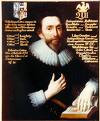






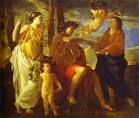

1628 On Mar. 17 Charles I summons his Third Parliament. On Apr. 29 the Swedes and Danes sign a treaty for the defense of Stralsund, and Gustavus Adolphus enters the Thirty Years' War; in May after Wallenstein obtains the duchy of Mecklenburg and assumes the title of Adm. of the Baltic, he begins the Siege of Stralsund, which ends in failure on Aug. 4, turning Ferdinand's old princes of the empire against him. On June 7 after a big catfight, where the money is withheld anyway, Charles I signs Sir Edward Coke's Petition of Right, promising to stop arresting people without a legal reason, to stop making citizens quarter soldiers in their homes, and to not collect forced loans or levy taxes without Parliament's consent; too bad, (whadya gonna do, spank me?) he ignores most of its contents (with the same result as King John and the Magna Charta in 1215?); Sir Edward Conway becomes lord pres. of the English council (until 1631). In June after the men of Merry Mount (Merrymount) near modern-day Quincy, Mass. begin trading in furs and selling firewater and firearms to the redskins, this is too much for the Pilgrims, and they send "Captain Shrimpe" (Miles Standish) and his men, who chop down the Maypole and ship Thomas Morton back to England for punishment. In July Krasnoyarsk on the left bank of the upper Yenisei River at its confluence with the Kacha River in Russia (420 mi. E of Novosibirsk) is founded as a border fort by Andrey Dubenskoy. On Aug. 10 the top-heavy Swedish 64-gun 2-deck battleship Regalskeppet Vasa (Wasa) sinks on its maiden voyage in Stockholm harbor after a gust of wind topples it, killing 50; it is rediscovered in 1956 and salvaged on Apr. 24, 1961 after 333 years on the bottom. On Aug. 23 while embarking at Portmouth on another La Rochelle expedition (with a bun in the oven, son and heir George Jr.), George Villiers, 1st duke of Buckingham (b. 1592) is stabbed to death by English Puritan army lt. John Felton (1595-1628), who had grudges against him for the La Rochelle disaster of 1627 et al; too bad, he almost gets away with it, but announces his deed to a crowd, hoping to become a hero, causing his arrest and trial, and after the privy council requests torture on the rack, which is refused by the judges, he is hanged at Tyburn on Oct. 28, and his body sent to Portsmouth for exhibition, where he finally becomes a martyr and hero after all; Alexandre Dumas pere's novel The Three Musketeers portrays him as being seduced by Cardinal Richelieu's plant Milady de Winter, wife of Count de Winter (who entrusts him to guard her), and after she puts him up to the murder, she sails away and leaves him to be hanged; meanwhile La Rochelle is captured, and capitulates to the French crown, breaking the political power of the Huguenots; with the pretty boy favorite Buckingham out of the way, Puritan-hating new bishop of London William Laud (1573-1645) becomes virtual PM of Britain, forming a triumvirate with the king and Thomas Wentworth, 1st earl of Stafford, fighting for total absolutism of the crown politically and ecclesiastically, the later part compounded when Charles I appoints hated cleric Richard Montagu (Mountague) (1577-1641) as bishop of Chichester, which, along with his lack of enthusiasm for penal laws for Catholics causes the Third Parliament to become convinced that he's going Roman Catholic; as it opens, lord keeper Sir Thomas Coventry (created baron on Apr. 10) warns that the king will use his prerogative to close it if they keep thwarting his claims for money; Oliver Cromwell attends his first parliament as a member for Huntingdon, fighting opponents of Puritanism; Richard Weston, 1st Earl of Portland (1577-1635) becomes lord treasurer of England (until 1635), and Sir Dudley Carleton, 1st Viscount Dorchester (1573-1632) becomes secy. of state (until 1632). After moderate Puritan Rev. John White arrives back in Dorchester, England from the Gloucester settlement and appeals to them to send a Christian mission back to convert the English fishermen and Indians there, a group of Non-Separating Congregationalist Dissenters (not as radical as the Plymouth Colony Dissenters) get a land patent from the Council of New England. The first slaves are introduced to Canada. The Jia Ding Christian Conference in China debates on whether to use Latin or Chinese terminology in missionary work, and agrees to use only Chinese terminology. Ponhea To becomes king of Cambodia (until 1630). A Dutch armada captures a big treasure convoy from New Spain. English adventurers settle Nevis Island (Leeward Islands). Augusta, Maine is founded as a trading post by Capt. Miles Standish and John Alden. Heinrich Schutz becomes Claudio Monteverdi's pupil in Venice. Peter Paul Rubens is dispatched by the Infanta Isabella on a diplomatic mission to Philip IV of Spain, for which he is knighted. Louis XIII renews Henry III's prohibition of inserting political prophecies into almanacs. Widowed Peter Paul Rubens travels to Venice to study the works of Titian. Anthony van Dyck (1599-1641), who returned from Italy to Antwerp last year begins his Iconography Project (ends 1641), with the goal of creating engravings of all the famous people of his day, incl. royalty, generals, philosophers, artists and art collectors. The 5th cent. C.E. Alexandrian Codex is presented by the patriarch of Constantinople to Charles I. Architecture: John Erskine, 18th Earl of Mar builds Braemar Castle in Aberdeenshire, becoming the ancestral home of Clan Farquharson, whom it was built to counter. Calvinist Protestant Dutch Reformed Marble Collegiate Church in Manhattan, N.Y. is founded; in 1851-4 a new Romanesque Revival bldg. with Gothic trim and covered with Tuckahoe marble was built at 272 Fifth Ave. at the corner of W 29th St., designed by Samuel A. Warner and called the Fifth Avenue Church until 1906; in 1932-84 Norman Vincent Peale is the pastor; on Nov. 19, 1961 Hollywood actress Lucille Ball marries 2nd hubby Gary Morton there; in 1967 it becomes a New York City landmark; later members incl. the parents of real estate mogul Donald Trump. Andrea Spezza designs Waldstein Palace in Prague. The first harbor with sluices begins construction in Le Havre. Science: Italian traveler Antonio Carletti discovers Spain's chocolate secret and begins spreading it throughout Europe - that's me, Mr. Klutz? French-born Dutch mathematician Albert Gerard (Girard) (1595-1632) first uses brackets and other abbreviations in mathematics - the original going Dutch? Nonfiction: Johann Amos Comenius (1592-1670), Didactica Magna (The Great Didactic) (1628-32); advocates universal teaching, stressing reference to concrete objects rather than just verbal descriptions; "Teaching thoroughly all things to all men." Sir Robert Cotton (1571-1631), The Danger in Which the Kingdom Now Standeth, and the Remedye; argues for the "sacred obligation of the king to put his trust in parliaments", causing the court to turn on him, and his famous Cotton Library to be confiscated in 1630 and return to his heirs after his death. Rene Descartes (1596-1650), Regales pour la Direction de l'Espirit. John Earle (1601-65), Microcosmographie, or a Piece of the World Discovered, in Essayes and Characters; "witty sketches of English life"; pub. anon., becoming a bestseller, with 10 eds. by 1665; "A university dinner is a gentleman follower cheaply purchased, for his own money has hired him." William Harvey (1578-1657), On the Motion of the Heart and Blood in Animals (Exercitatio Anatomica de Motu Cordis et Sanguinis); contains the first accurate theory of the heart and circulatory system. Thomas Hobbes (1588-1679), (tr.), Thucydides' Peloponnesian War; big admirer Thomas Hobbes becomes the first to translate Thucydides into English directly from the Greek, going on to become one of the Big Three Founders of Political Realism along with Thucydides and Machiavelli. Pieter Hooft (1581-1647), Nederlandische Historien (1628-47). Francisco Gomez Quevedo y Villegas (1580-1645), Hell Reformed; attack on govt. by favorites. Caspar Schoppe (1576-1649), Grammatica Philosophica (Milan). Henry Spelman (1564-1641), Glossary of Law Terms. Pietro della Valle (1586-1652), Account of Shah Abbas. Music: Marco da Gagliano (1582-1643), Flora (opera). Art: Frans Hals (1580-1666), Gypsy Woman (1628-30); The Merry Drinker (1628-30). Nicolas Poussin (1594-1665), Martyrdom of St. Erasmus; The Inspiration of the Poet. Peter Paul Rubens (1577-1640), The Three Graces I (1628-30). Diego Velazquez (1599-1660), Christ on the Cross; The Drunkards. Francisco de Zurbaran (1598-1664), St. Serapion. Plays: Juan Ruiz de Alarcon y Mendoza (1581-1639), Comedias, vol. 1 (Madrid); incl. El Tejedor de Segovia, and La Verdad Sospechosa, which is imitated by Pierre Corneille in "Menteur". Poetry: Phineas Fletcher (1582-1650), Brittain's Ida; erotic poem using Edmund Spenser's name as a cover? Births: French "Mother Goose" fairy tale writer Charles Perrault (d. 1703) on Jan. 12 in Paris. English statesman-poet George Villiers, 2nd Duke of Buckingham, 20th Baron de Ros (d. 1687) on Jan. 30; son of George Villiers, 1st duke of Buckingham (1592-1628); raised with the royal princes; educated at Trinity College, Cambridge U. Italian physician microscope pioneer) Marcello Malpighi (d. 1694) on Mar. 10 in Crevalcore; educated at the U. of Bologna. English diplomat-writer Sir William Temple, 1st Baronet (d. 1699) on Apr. 25 in London; son of Sir John Temple (1600-77) of Dublin; educated at Emmanuel College, Cambridge U. English nobleman-politician and art uncollector Henry Howard, 6th Duke of Norfolk (d. 1684) on July 12; son of Henry Howard, 22nd earl of Arundel (1608-52) and Lady Elizabeth Stuart brother of Thomas Howard, 5th duke of Norfolk (1627-77); donates the Arundel Marbles to Oxford U. in 1667. English deputy in Ireland (1655-9) Henry Cromwell (d. 1674); 4th son of Oliver Cromwel. French "Pomone" opera composer (1st) Robert Cambert (d. 1677) in Paris; student of Jacques Champion de Chambonnieres (1601-72). Am. Plymouth Colony gov. (1673-80) Josiah Winslow (d. 1680) in Plymouth, Mass.; son of Mayflower passengers Edward Winslow (1595-1655) and Susanna White Winslow (-1680), mother of Peregrine White (1620-1703); first native-born gov. of a New England colony; husband (1651-) of Penelope Pelham Winslow (1630-1705), whose son Judge Isaac Winslow builds the Winslow House in 1699, which she later haunts?; father of Edward Winslow Jr. (1669-1753). Dutch landscape painter Jacob Isaackszoon van Ruisdael (Ruysdael) (d. 1682) in Haarlem. English "Pilgrim's Progress" Congregationalist minister-writer John Bunyan (d. 1688) on Aug. 31 in Elstow. French painter Noel (Noël) Coypel (Coypel le Poussin) the Elder (d. 1707) on Dec. 25; father of Antoine Coypel (1661-1722) and Noel-Nicolas Coypel (1692-1734). French marshal Francois Henri de Montmorency-Bouteville, Duke of Luxemburg (d. 1695). Indian Varkari saint Bahinabai (Bahina) (Bahini) (d. 1700) in Devghar (Devgaon) near Ellora, Maharashtra. Deaths: Italian painter Jacopo Negretti (Palma the Younger) (b. 1544). German philosopher Rudolph Goclenius (b. 1547) on June 8 in Marburg. English poet Sir Fulke Greville (b. 1554) on Sept. 30 in Warwick Castle; murdered (knifed) by disgruntled servant Ralph Heywood after being left out of his master's will, committing suicide; too bad, his physicians stuff his prolapsed intestines with pig fat, which turns rancid and gets infected, giving him an agonizing death. French poet Francois de Malherbe (b. 1555) on Oct. 16. English organist-composer John Bull (b. 1562). Dutch painter Jan Brueghel (b. 1568). Swiss physician Thomas Platter the Younger (b. 1574) on Dec. 4 in Basel. English adventurer Sir Robert Shirley (b. 1581) on July 13 in Qazvin, Iran. English courtier George Villiers, 1st duke of Buckingham (b. 1592) on Aug. 23 in Portsmouth (assassinated); buried in Westminster Abbey; his tomb bears the Latin inscription "The Enigma of the World"; his wife Lady Katherine Manners becomes the richest non-royal in England.




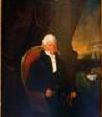

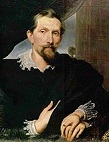
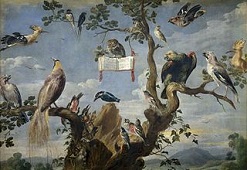
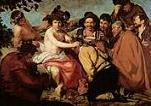
1629 The first of four mass migrations from distinct regions of Britain begins as 20K Puritans from the East Anglian counties E of London settle Massachusetts ("near the great hill") over the next dozen years (ends 1641) after Charles I issues a charter to the Mass. Bay Co.; well-to-do 40-y.-o. East Anglian lawyer John Winthrop (1588-1649) saying that "the eyes of all people are on us", decides to make the colony a "wilderness Zion", a "city upon a hill", where persecuted Puritans can find refuge and build the New Jerusalem (a little commercial activity, short of moneychanging in the Temple will be overlooked as well?), and soon discovers a loophole in the charter, a failure to require that the home office be kept in England; on Aug. 29 he gets 12 shareholders to sign the Cambridge Agreement, pledging to take the charter and hence the home office with them to Am., and the co.'s governing body agrees to it; Winthrop is chosen as first gov. of the planned Massachusetts Bay Colony, and ends up serving 12x. On Jan. 19 Shah Abbas I (b. 1571) dies after a 42-year reign which leaves the Safavid empire at its zenith, and is succeeded by his 13-y.-o. grandson Safi I (-1642), who becomes Safavid shah #6 (until 1642), who has the old shah's counselors beheaded along with most of the best generals, all the blood princes, and some of the princesses, causing the Persian gov. of Kandahar to defect the city and province to the Uzbeks. On Feb. 14 Mass. Bay Colony gov. John Winthrop writes to his wife: "Thou must be valentine, for none hath challenged me". On Feb. 24 the House of Commons passes some Resolutions on Religion, decrying popery in Scotland and Ireland; on Mar. 1 Charles I dissolves Parliament and rules the country himself; it doesn't meet again until Apr. 1640; the term "Tory" is coined for the pro-Charles party. On Mar. 6 HRE Ferdinand II issues the Edict of Restitution empowering the Roman Catholic Church to recover all property seized by Protestants since the 1552 Peace of Passau, pissing off some of Ferdinand's allies, esp. elector Johann Georg I of Saxony, who tries in vain to get his land grabs exempted. On May 22 the Peace of Lubeck (Lübeck) is signed, and Christian IV agrees not to intervene in imperial affairs anymore, leaving almost all German territories under control of the Catholic League; too bad, this pisses off Gustavus II Adolphus of Sweden, who starts to prepare to enter the lovely Thirty count 'em Thirty Years' War. On June 4 the Dutch merchant ship Batavia, commanded by Commodore Francisco Pelsaert (1591-1630) wrecks on Morning Reef in the Abrolhos Islands (Houtman Abrolhos) in W Australia (1 mi. S of Beacon Island), and 40 of 341 drown trying to reach shore; the capt. then sets off in the ship's boats his 30-man crew for help, leaving 208 passengers behind; co. undermerchant Jeronimus Cornelisz (1598-1629) takes over Lord of the Flies style, murdering 125 of them within 2 mo. while forcing the women into prostitution; luckily Wiebbe Hayes (b. 1608) manages to establish a safe base for some of them on a neighboring island, and they begin a war; on Sept. 17 Pelsaert returns in an Indonesian rescue ship and overcomes the mutineers and executes many of them; Dutch mutineers Wouter Loos and Jan Pelgrom de By are set adrift off the W coast of Australia at Shark Bay (AKA Hopeless Reach, Useless Inlet, Disappointment Loop) (known for the Wooramel Seagrass Bank and 12 species of sharks), becoming the continent's first white Euro settlers, mating with the Aborigines; in 1963 fisherman Dave Johnson discovers the wreck of the Batavia 45 mi. N of the Abrolhos, and it is salvaged in the 1970s. On June 28 the Huguenot revolt in France ends with the Peace of Alais (Ales) (Alès) (Edict of Grace), issued by Louis XIII, confirming the basic principles of the Edict of Nantes but revoking the Huguenots' basic political rights and demanding that they give up all their cities and fortresses in exchange for amnesty and tolerance; this no-ask-no-tell policy lasts until 1685. On Aug. 6 the First Church of Salem, Mass. is founded in a mud-and-thatch hut by a strict Puritan community of 150 English settlers who pooh-pooh popery (decorations, vestments, musical accompaniment); Sunday is defined as from sunset on Saturday to sunset on Sunday, and all travel is prohibited other than going to-from church; Sunday services last 2-3 hours, filled with Psalm chanting and firey sermons; later members incl. writer Nathaniel Hawthorne, Roger Williams (a minister there) and the Parker game family; in modern times it is taken over by Unitarians who worship alongside descendants of the "Salem witches"; meanwhile Mayflower man Isaac Allerton, husband (since 1626) of William Brewster's daughter Fear Brewster brings back pesky Thomas Morton, and the Puritans hear that he was "not so much rebuked", surprising them; they both become personae non grata, and Allerton eventually is ordered to leave Mass., ending up in New Amsterdam in 1643, then New Haven, Conn.; meanwhile there is a winter famine in Salem, causing them to seize the Merry Mount corn. On Sept. 14 Hertzogenbusch (Bois-le-Duc) Fortress in Brabant falls to the Protestants under Prince Friedrich Heinrich and Duke Bernhard of Saxe-Weimar. On Sept. 25/26 Sweden and Poland sign the 6-year Truce of Altmark (Stary Targ) near Danzig (Gdansk), ending the Polish-Swedish War (begun 1626), with Poland acknowledging the loss of Livonia. In Oct. Japanese shogun Tokugawa Iyemitsu declares that it is immoral for women to dance in public, and orders Kabuki Theater to become all-male, with women's roles performed by men in drag; the Japanese go to great lengths to make them appear feminine; meanwhile on Dec. 22 the Purple Clothes Incident sees Japanese emperor (since 1611) Go-Mizunoo (b. 1596) screw up and bestow honorific you know whats to 10+ priests despite the shogun's edict banning them for two years in order to break their longstanding bond, causing the shogun to intervene, cancel the deal, and force him to abdicate in favor of his 5-y.-o. 2nd daughter Meisho (1624-96) (personal name Okiko) (daughter of Kazuko, daughter of shogun Tokugawa Hidetada) (the name Meisho is a combo of previous female emperors Gemmei (707-15) and Gensho (715-24)), who becomes the 7th woman to ascend the Chrysanthemum Throne (last Empress Shotoku, d. 770), becoming Japanese emperor #109 (until Nov. 14, 1643). In Dec. James Butler (b. 1610), heir of the Old English Butler family in Ireland marries Lady Elizabeth Preston, heiress of the Old English Desmond family in Ireland, ending their long feud. An English fleet seizes Quebec, causing Etienne Brule to flee to Huron country, where he is murdered in 1633. Wallenstein becomes duke of Mecklenburg. Under the urging of Amsterdam diamond and pearl merchant Kiliaen (Killian) Van Rensselaer (1585-1643), Dutch colonizers called patroons are authorized to establish large estates in New Netherland which they can rule with full feudal jurisdiction limited only by an oath of fealty to the Dutch West India Co.; they are required to purchase Indian rights to their land and settle at least 50 colonists on it within four (five?) years. After failing at his Avalon colony in Newfoundland, Sir George Calvert arrives in Va., and after finding that Roman Catholics are not welcome goes to England to try to get a charter for land to the S, causing the Puritans to send William Claiborne after him to argue their case that there's no room for anymore My Name is George troublemakers on their continent? The royal gov. of Va. allows annual assemblies of the people. William Bradford and others receive a land grant on the Kennebec River; the Plymouth Colony establishes a trading post on the site of future Ft. Western. Saugus, Mass. (Algonquin "great/extended") in NE Mass. is founded as a territory, which later incl. the towns of Lynn, Nahant, Reading, Swampscott, and Wakefield. John Mason and Sir Ferdinando Gorges are granted a tract of land around Lake Champlain extending N to the St. Lawrence River which they call Laconia. Red-bearded Muslim corsair Barbarossa Hayreddin Pasha (1478-1576) (known for a flag with symbols of Islam, Christianity, and Judaism) captures Algiers and makes it his pirate stronghold. Mexico City is flooded, and remains underwater until 1633. A mission and church are built by two Spanish padres in San Antonio, Tex.; the mission is destroyed by Apaches in 1675. The inland seaport of Barranquilla in Colombia is founded (modern pop. 1M). The Hanseatic League entrusts the guardianship of the common welfare to Lubeck, Hamburg, and Bremen as it slides into the toilet by 1669. A royal charter is granted to the Worshipful Co. of Spectacle Makers in London. The first coffeehouses open in Venice, Italy (1645?). After find that aristocratic women can't work as nurses because their hubbies don't want them coming home dirty and vermin-infested, the Assoc. of the Ladies of Charity is founded in Paris by St. Vincent de Paul and Louise le Gras, recruiting poor girls as nurses, who are given instruction and work in special uniforms without having to become nuns. Sir John Eliot (1604-90), who was in again and out again from prison in 1627-8 presents a series of resolutions in the House of Commons against arbitrary taxation and religious innovations, getting him imprisoned again; this time the king demands his submission as a condition of release, and he steadfastly refuses until he dies in priz in 1632. Gianlorenzo Bernini takes over direction of the uncompleted work at St. Peter's in Rome; he builds the canopy over the papal altar and the bell towers, and decorates the naves. Peter Paul Rubens is appointed as Dutch envoy to Charles I of England to work for peace, and is knighted by him - cause every fat girl's crazy about a sharp-dressed man? Diego Velazquez travels to Venice, Rome, and Naples for two years to round himself out. Extra, extra, read all about it? Flemish Jesuit Heribert Rosweyde (b. 1569) dies, and his collection of materials on the lives of the Catholic saints is taken over by Jesuit Jean de Bolland (1596-1665) in Antwerp, who edits vols. 1-5; after his death the Bollandists are founded to continue the job, moving to Coudenberg Monastery in Brussels in 1773, then the Tongerloo Abbey in 1789, until the French Rev. closes the abbey in May, 1794; in 1837 a new assoc. is formed by the Belgian govt., producing vol. 54 in 1845, then a new 61-vol. ed. in 1863-7, followed by supplements in the periodical Analecta Bollandia starting in 1882 - the lines are long in Disneyland? Architecture: Shah Jahan orders the construction of the Peacock Throne. Nonfiction: Anon., The Paris Polyglot Bible (1629-45); sponsored by French atty. Guy Michel le Jay; inspired by the Antwerp Polyglot Bible of 1568 with Arabic added. Lancelot Andrewes (1555-1626), XCVI Sermons - the 17th cent. 96 Tears? Cyril Lucaris (1572-1638), Confession; his Calvinist-inspired reformist beliefs from Geneva cause the Greek Orthodox Church to close ranks against him. John Parkinson (1567-1650), Paradisi in Sole Paradisus Terrestris; on flowers. Music: The operetta La Zarzuela is first performed in its namesake, the royal palace near Madrid. John Milton (1608-74), Four Literary Hymns (Nativity, Passion, Circumcision of Christ, At a Solemn Music). Heinrich Schutz (1585-1672), Sinfoniae Sacrae. Art: Anthony van Dyck (1599-1641), Rinaldo and Armida. Daniel Mytens the Elder (1590-1648), Portrait of James Hamilton, 1st Duke of Hamilton (1606-49). Rembrandt van Rijn (1606-69), Self-Portrait as a Young Man; Self-Portrait in a Gorget. Peter Paul Rubens (1577-1640), Peace and War; Charles I and His Queen. Frans Snyders (1579-1657), Concert of Birds (1629-30). Diego Velazquez (1599-1660), The Feast of Bacchus (Los Borrachos). Francisco de Zurbaran (1598-1664), St. Bonaventura. Plays: Pedro Calderon de la Barca (1600-81), The Phantom Lady (La Dama Duende) (comedy). Pierre Corneille (1606-84), Melite (comedy) (Paris) (debut). Sir William Davenant (1606-68), The Just Italian (comedy). John Ford (1586-1640), The Lover's Melancholy. Ben Jonson (1572-1637), The New Inn. Philip Massinger (1583-1640), The Picture (tragicomedy). Thomas Middleton (1580-1627), Inner Temple Masque; refers to rival Ben Jonson as a "silenced bricklayer". Poetry: John Milton (1608-74), On the Morning of Christ's Nativity (Dec.); becomes a tradition to read it at Christmastide. Births: Dutch Baroque painter Gabriel Metsu (d. 1667) in Jan. in Leiden; son of Jacques Metsu (1588-1629). Russian Romanov tsar #2 (1645-76) Alexis (Aleksey) I Mikhailovich Romanov (d. 1676) on Mar. 9 in Moscow; son of Michael I Romanov (1596-1645); father of Feodor III (1661-82). Spanish gen. and PM (1677-9) Don John Joseph (Juan Jose) of Austria the Younger (d. 1679) on Apr. 7; illegitimate son of Philip IV and actress Maria Calderon; given a princely education by his daddy. Dutch physicist-mathematician-astronomer Christiaan (Christian) Huygens (Huyghens) (d. 1695) on Apr. 14 in The Hague; son of poet Constantijn Huygens (1596-1687) (friend of Rene Descartes); educated at the U. of Leiden. Polish king (1674-96) Jan III Sobieski (d. 1696) on Aug. 17 in Olesko; son of Jacob Sobieski of Cracow. English mathematician-astronomer Richard Towneley (d. 1707) on Oct. 10 in Nocton (near Lincoln), Lincolnshire; collaborator of Francois Walther de Sluze (1622-85). German duke of Brunswick-Luneburg and elector #1 of Hanover (1692-8) Ernest Augustus (d. 1698) on Nov. 20 in Herzberg am Harz; son of duke George of Brunswick-Luneburg (1582-1641) and Anne Eleonore of Hesse-Darmstadt (1601-59); George I of England (1660-1727). Dutch painter Pieter de Hooch (Hoogh) (Hooghe) (d. 1684) on Dec. 20 in Rotterdam; works for five years in Vermeer's Delft in the 1650s. French noble (gov. of Languedoc) Louis Armand I de Bourbon, Prince de Conti (d. 1666); 2nd son of Prince Henry II of Conde (1588-1646); brother of Louis II de Bourbon, prince of Conde and Anne Genevieve, duchess of Longueville (1619-79); husband (1657-) of Anne-Marie Martiniozzi (1638-72), niece of Cardinal Mazarin; becomes a Jansenist along with his sister. Dutch painter Jan Wouwerman (d. 1666); brother of Philips Wouwerman (1619-68) and Pieter Wouwerman (1623-82). English buccaneer Daniel Johnson (d. 1675) in Bristol; captured in 1654 by the Spaniards and sold as a slave in the West Indies, escaping in 1657 and becoming a you know what. English composer Matthew Locke (d. 1677) in Exeter. English soldier-statesman-ambassador Charles Howard, 1st Earl of Carlisle (d. 1685); great-grandson of Lord William Howard (1563-1640), 3rd son of Thomas Howard, 4th duke of Norfolk (1536-72); created earl of Carlisle in 1661. Deaths: Italian-Swiss Baroque architect Carlo Maderna (b. 1556) on Jan. 30. Am. Virginia Colony Gov. Edwin Sandys (b. 1561). German Hebrew scholar Johannes Buxtorf (b. 1564) on Sept. 13 in Basel, Switzerland. Flemish Jesuit hagiographer Heribert Rosweyde (b. 1569) in Antwerp. Persian Safawid (Safavid) ruler (1587-1629) Shah Abbas I (b. 1571) on Jan. 19. French statesman-cardinal Pierre de Berulle (b. 1575) on Oct. 2. Transylvanian prince Bethlen Gabor (Gabriel Bethlen) (b. 1580) on Nov. 15 in Gyulafehervar (modern-day Alba Iulia, Romania); dies after marrying a sister-in-law of Gustav II Adolf of Sweden to get his backing in obtaining the Polish crown. Danish physician-scientist Caspar Bartholin the Elder (b. 1585) on July 13 in Soro, Zealand. Dutch hero Jan Coen (b. 1587) on Sept. 21 in Batavia, Java; dies during a siege by Sultan Agung of Mataram. Italian composer Paolo Agostini (b. 1593). Dutch Reformed theologian Sixtinus Amama (b. 1593) on Nov. 9 in Franeker.









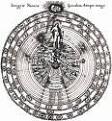





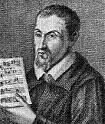


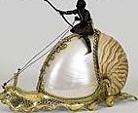
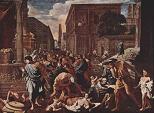
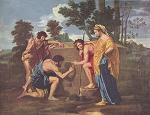
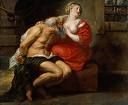
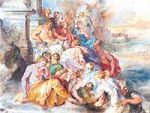
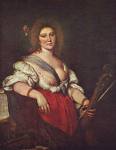
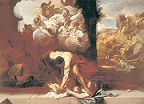

1630 There is a famine in India this year and next so bad that human flesh goes on the open market - farm-fed or roadkill? Between this year and 1795, the Dutch carry 477,782 slaves across the Atlantic to the New World; the total no. carried by all nations is around 10M? On Mar. 22 (Apr. 7?) 700-odd (400-odd?) Massachusetts Bay Colonists seeking to escape the Thirty Years' War and its economic slump sail in seven ships from Southampton, England for North Am.; Arabella carries John Winthrop (1588-1649) and the charter; en route John Winthrop delivers the sermon Model of Christian Charity, exhorting good Puritans to be like a "City Upon a Hill" and work to construct a Bible-thumping theocratic society in America that will "shame the faces of many of God's worthy servants", else face God's wrath, shaping American politics seemingly forever (until ?); after landing at Salem, Mass. on June 25, on Sept. 17 (Sat. Old Style) (Tues. New Style) they found the town of Boston (formerly Shawmut) (modern-day pop. 4.2M/4.6M) on the 800-acre Shawmut Peninsula surrounded by tidal marshes, deeply indented by coves, creeks and inlets, and dominated by three hills, with a narrow 1-mi.-long frequently-submerged neck joining it with the mainland; a few mo. earlier the town of Dorchester, Mass. near Boston (modern-day pop. 92K) is founded by English Puritan settler Israel Stoughton (1602-45) (remote ancestor of U.S. pres. FDR) et al. from Dorchester, Dorset, England; John Endicott (Endecott) (1588-1665) becomes gov. #1 of the Mass. Bay Colony, with capital at Charlestown, Mass. (originally Mishawum) on the Mystic River; the first law against gambling in Britsh North Am. is enacted; over the next few cents. the area is gradually filled in, increasing it to 1.8K acres; Medford, Mass. (originally Mistik) is founded as part of Charlestown; John Winthrop (gov. #1 of Mass. Bay Colony) begins keeping a Journal; on Nov. 9 the Boston-Charleston Ferry opens, starting at Noddle's Island, where English Anglican settler Samuel Maverick (1602-70) buys black slaves in 1638, becoming one of the earliest slave owners in Mass.; by the end of the year 17 more ships with another 1K colonists arrive, and by 1642 16K more follow; over 80K colonists leave England for greener pastures (New World, Ireland, Netherlands, Rhineland) in the Great Puritan Migration in this decade (1620-40), mostly Puritans fleeing Charles I for the Mass. Bay Colony, many of them as indentured servants; by 1640 20K settle in Mass. Bay Colony, and 55K total go to the New World, half settling in New England; the total pop. of the Am. colonies this year is only 4.6K; 35 mi. x 1 mi. Newtown (Newe Towne) (New City) is founded in Mass. on the N side of the Charles River opposite Boston 10 years after the Pilgrims land at Plymouth Rock; in 1638 it changes its name to Cambridge, Mass. (modern-day pop. 110K), becoming a univ. town.; it is later subdivided to form the additional towns of Newton (1691), Lexington (1713), Brighton (1837), and Arlington (1846). In June Swedish king Gustavus II Adolphus (1594-1632), the new protector of Protestantism invades N Germany and lands in Peenemunde in Pomerania with 4K men, then captures Stettin and the Neumark area in Brandenburg; on Aug. 13 at the Diet of Regensburg HRE Ferdinand II accedes to the demands and dismisses Wallenstein, and makes Johann Tserklaes (Tserclais) of Tilly, Duke of Bavaria (1559-1632) the new imperial cmdr., while Wallflower-stein retires to Gitschin; the speed of the Swedish blitzkrieg is later studied by Napoleon and Patton, and launches Sweden as a world power; too bad, the love of Swedish army officers for flashy fur hats causes the demand for North Am. fur to boom, dooming the Am. beaver? On July 8 the first Thanksgiving (Nov. 25, 1629?) is held in the Mass. Bay Colony. On July 26 Charles Emmanuel I the Great (b. 1562) dies of fever, and his son Victor Amadeus I (1587-1637) becomes duke of Savoy (until Oct. 7, 1637), ending the War of the Mantuan Succession and renewing his alliance with France, which is easy since his wife Marie Christine of France (1606-63) (sister of Louis XIII) is Henry IV's daughter. In Sept. Thomas Morton of Merry Mount (1579-1647), who with his men watched John Winthrop's ships land becomes the first criminal defendant in Mass. Bay for pub. a book lampooning the Puritans and painting a dream of a non-racist non-militarist land, and is expelled. On Nov. 10 the Day of Dupes sees Queen Mother Maria de' Medici publicly request her son Louis XIII to discharge Cardinal Richelieu in a stormy scene in Luxembourg Palace, after which the king retires to his hunting lodge in Versailles to think about it, allowing Richelieu to pull every string he's got to win the king to his side, causing him to send his mother into exile in Compiegne instead, and Richelieu to become virtual ruler of France. In Nov. 16K die in Venice of the plague, causing the 8-sided Church of Santa Maria della Salute to be built in 1631-87 to commemorate it, designed by Venice-born Baldassarre Longhena (1598-1682). The Treaty of Madrid, negotiated by painter Peter Paul Rubens ends the English-Spanish War. John Browne Sr. (1585-1662) arrives from Leyden, Holland in Plymouth, Mass. on the Mayflower (not the 1620 ship), and is appointed asst. gov. John Tradescant the Elder (1577-1638), builder of the Lambeth Ark in Lambeth, London on the S bank of the Thames River (the original cabinet of curiosity, filled with unusual objects gathered in his world travels), and known for his botanical garden in Lambeth becomes keeper of the king's gardens at Oatlands Palace in Surrey. The city of (The) Bronx, N.Y. (originally "The Bronck's Land") NE of the Harlem River on the Bronx River (modern-day pop. 1.4M) is settled by Swedish immigrant Jonas (Jonasson) (Jonassne) Bronck (Bronk) (Brunk) (1600-43), who builds the Emmanus farm. Capt. John Mason, who gives New Hampshire its name helps found the town of Portsmouth, N.H. By this year there are five patroonships in New Netherlands: two on the Hudson River, two on the Delaware River, and one on the Connecticut River; only Rennselaerwyck, founded by Killiaen van Rensselaer on the W bank of the Hudson around Ft. Orange (Albany) succeeds. Gov. William Bradford of Plymouth Colony secures the Bradford Patent from the Council for New England, confirming possession of the land and defining the boundaries more clearly; they never hold a charter. French royal physician Theophraste (Théophraste) Renaudot (1586-1653) (friend of Cardinal Richelieu, who converted him to Roman Catholicism) founds the Bureau d'Adresse et de Rencontre in Paris, a labor-exchange charity mating employers and employees. The Congregation of the English Ladies (Virgins) is founded in Munich. Mary Ward's uncloistered Society of English Sisters, known as the Jesuitesses is suppressed. Germany finally has a better idea? HRE Ferdinand II finally forbids the appropriation of the property of condemned heretics (witches), causing witchcraft prosecutions in Germany to plummet. Ponhea To dies, and Ponhea Chan becomes king of Cambodia (until 1642). Pangeran Ratu (-1651) becomes ruler of Banten in NW Java, center of the pepper trade, and becomes the first ruler on Java to take the title of sultan, under the name Abulmafakhir Mahmud Abdulkadir, causing Sultan Agung of Mataram to soon follow suit. The first buccaneers (internat. pirates) begin settling in Tortuga off the NW coast of Hispaniola in this decade - they screw their buccaneers off at every port? White Va. settler Hugh Davis is ordered by a court "to be soundly whipt... for abusing himself... by defiling his body in lying with a Negro". Anthony van Dyck becomes court painter to Archduchess Isabella in Antwerp (until 1632), pumping out gobs of cool portraits with that Italian Renaissance savvy. The first public advertising is done in Paris - I got the notion to rock the boat? In this decade soldier-students become common in Germany - row, row, row your boat, gently down the street? In this decade the Great Tew Circle of English lit. figures and clerics meets at the manor house of Great Tew, Oxfordshire and in London, led by Lucius Cary, 2nd Viscount Falkland (1610-43), incl. Edward Hyde, 1st Earl of Clarendon. In this decade the Fijnschilder (Dutch "fine painter") School in Leiden, known for meticulous genre and trompe l'oeil paintings is founded by Gerrit Dou (Gerard Douw or Dow) (1613-75) (ends 1710). Peter Paul Rubens marries 16-y.-o. Helena Fourment; they go on to have five children. The High Baroque Period of art begins in Italy (ends 1680). Kikkoman's soy sauce co. is founded by the widow of a samurai named Mogi in Japan. Architecture: Inigo Jones is commissioned by Francis Russell, 4th Earl of Bedford to design Covent Garden Square in Westminster, London, becoming the first large public square in London, attracting new bldgs., becoming a model for future growth in the West End. Inventions: The Ducking (Cucking) Stool is introduced for punishing quarrelsome women in New England in this decade?; the laws stay on the books until 1967? Richard Delamain (1600-44) of England invents the Circular Slide Rule. English poet Sir John Suckling (1609-42) invents the card game of "Brief Lives", AKA Cribbage, is knighted at age 21, and becomes a leader in the court of Charles I as a cavalier to the king. Mate (Maté) Szepsy Laczko of Hungary invents the method for producing sweet Tokaj (Tokay) wine from botrytised furment grapes (infected with botrytis cinera). The modern violin ("new violin") is first used in Italy about this time. English physician-astrologer Robert Fludd (1574-1637) pub. the first Color Wheel, taking Aristotle's color line and turning it on itself to create seven areas. Science: Jesuit astronomer Niccolo Zucchi (-1670) discovers the spots on Jupiter's surface on May 17 - I have this uncle with a great big face and a big red mustache? Music: Gregorio Allegri (1582-1652), Miserere Mei, Deus (Have Mercy on Me, God); set to Psalm 51/50; composed for Pope Urban VIII to use in the Sistine Chapel during Wed.-Fri. Holy Week matins; writing it down or performing it elsewhere is made punishable by excommunication; incl. Pt. 1: Tallis Scholars, Pt. 2. Girolamo Frescobaldi (1583-1643), Arie Musicale. Art: Jacques Callot (1592-1635), The Temptation of St. Anthony (print). Anthony van Dyck (1599-1641), Maria Louisa de Tassis; Philippe Le Roy; Frans Hals (1580-1666), Daniel van Aken Playing the Violin; La Bohemienne. Laurent de La Hyre (1606-56), Pope Nicholas V Opening the Crypt of St. Francis of Assisi; painted for the Capuchin friars of the Marais. Jacob Jordaens (1593-1678), The Infant Jupiter Fed by the Goat Amalthea. Nicolas Poussin (1594-1665), Martyrdom of St. Erasmus; Rinaldo and Armida; The Plague at Ashdod; Tancred and Erminia (1630-5); Les Bergers d'Arcadie (1630-9). Jusepe de Ribera (1591-1652), Archimedes; The Martyrdom of St. Bartholomew. Jeremias Ritter (1582-1646), Nautilus Snail (sculpture). Sir Peter Paul Rubens (1577-1640), Apotheosis of James I (Whitehall banquet hall); Cimon and Pero; King Minos Judging the Dead (drawing). Bernardo Strozzi (1581-1644), The Violin da Gamba Player (1630-40). Pietro Testa (1611-50), The Massacre of the Innocents (1630-40). Diego Velazquez (1599-1660), Vulcan's Blacksmith Shop. Nonfiction: The first trans. of the Christian Greek Scriptures into vernacular Greek is prepared by Maximus Callipolites, Greek monk of Callipolis, under the auspices of Cyril Lucaris (1572-1638), ecumenical patriarch of Constantinople. John Amos Comenius (1592-1670) and Samuel Hartlib (1600-62), Pansophiae Prodromus (London); universal education, to be taught at his Pansophic College; followed by "Pansophiae diatyposis". Sir John Hayward (1560-1627), The Life and Raigne of King Edward VI (posth.). Rev. Francis Higginson (1588-1630), New England's Plantation, or A Short and True Description; living conditions in Am. Jean Rey (1583-1645), Essays on the Cause of the Increase in Weight of Tin and Lead when they Calcinate; French physician attributes the increase in weight of tin and led when they are heated to the weight of air, leading to the invention of the barometer. John Smith (1580-1631), The True Travels, Adventures, and Observations of Captaine John Smith. Plays: Pierre Corneille (1606-84), Clitandre au L'Innocence D'livree (tragicomedy). Thomas Middleton (1580-1627), A Chaste Mayde in Cheapside (comedy). Tirso de Molina (1584-1648), El Burlador de Sevilla y Convidado de Piedra (The Seducer of Seville); Don Juan is first given a literary personality, although he was already an old myth of libertinism from the medieval past? - the original Mister Johnson? Poetry: Andres Christensen Arrabo, Hexaemeron (religious poem); initiates modern Danish lit. Births: English "The Compleat Gamester" writer-poet Charles Cotton (d. 1687) on Apr. 28 in Beresford Hall, Alstonefield, Staffordshire. English-Scottish 6'2" dark-complected king (1660-85) Charles II (d. 1685) on May 29 in St. James's Palace, London; 2nd (eldest surviving) son of Charles I and Henrietta Maria; prince of Wales from birth, styled "prince of Great Britain", with Scottish title included; born the first day that the Cassiopeia A supernova became visible? English actress Margaret "Peg" Hughes (Hewes) (d. 1685) on May 29; first English prof. stage actress (1660); mistress of Prince Rupert of the Rhine. German-Austrian banker-diplomat (Ashkenazi Jew) ("the Judenkaiser") Samuel Oppenheimer (d. 1703) on June 21 in Heidelberg; stepfather of Joseph Suss Oppenheimer (1698-1738); father of Simon Wolf Oppenheimer (-1726) and Jakob Wolf Oppenheimer; ancestor of Felix Mendelssohn. German Mannerist painter ("the Silesian Rembrandt") Michael Leopold Lukas Willmann (d. 1706) on Sept. 27 in Konigsberg, Prussia. German electress Sophia of Hanover, Countess Palatine of Simmern (d. 1714) on Oct. 14 in The Hague; youngest of five daughters of "Winter King" Frederick V (1596-1632) and "Winter Queen" Elizabeth Stuart (1596-1662) (daughter of James I of England); mother of George I of England (1660-1727), who founds the Hanoverian Dynasty in England; 1st cousin of Charles II of England. English mathematician Isaac Barrow (d. 1677) in Oct. in London; educated at Gresham College, and Trinity College, Cambridge U. English mistress (of Charles II) Lucy Walter (d. 1658) in Roch Castle near Haverfordwest, Wales; mother of James Scott, 1st Duke of Monmouth (1649-85). Russian Cossack leader Stepan Timofeyevich "Stenka" Razin (d. 1671). English horticulturist Robert Sharrock (d. 1684). German architect Wolf Caspar von Klengel (d. 1691). English theologian and Hebrew scholar John Spencer (d. 1693). French scientist Jean Richer (d. 1696). English mercantilist politician (gov. of the East India Co., 1677-) Sir Josiah Child, 1st Baronet (d. 1699). Danish sculptor Caius Gabriel Cibber (d. 1700) in Schleswig, Denmark; emigrates to England; father of Colley Cibber (1671-1757). Swedish scientist Olof (Olaus) Rudbeck the Elder (d. 1702); father of Olof Rudbeck the Younger (1660-1740). French financier Louis de Bechamel (Béchameil), Marquis de Nointel (d. 1703); chief steward of Louis XIV's household; namesake of Bechamel Sauce. Deaths: English soldier Sir William Stanley (b. 1548) on Mar. 3 in Ghent. French Huguenot poet-gen. Theodore Agrippa d'Aubigne (b. 1552) on Apr. 29 in Geneva. English astrologer-theologian Richard Havey (b. 1560). Italian duke of Savoy (1580-1630) Charles Emmanuel I the Great (b. 1562) on July 26 in Savigliano (fever). English traveler Fynes Moryson (b. 1566) on Feb. 12. German astronomer Johannes Kepler (b. 1571) on Nov. 15 in Regensburg: "Nature uses as little as possible of anything"; "Discover the force of the heavens O men: Once recognized it can be put to use"; "I used to measure the Heavens, now I measure the shadows of Earth. Although my mind was heaven-bound, the shadow of my body lies here"; "Truth is the daughter of time, and I feel no shame in being her midwife"; "I much prefer the sharpest criticism of a single intelligent man to the thoughtless approval of the masses"; "There is a force in the earth which causes the moon to move." English courtier William Herbert, 3rd earl of Pembroke (b. 1580) on Apr. 10 (cirrhosis of the liver?) (syphilis?). German composer Johann Hermann Schein (b. 1586) on Nov. 19 in Leipzig. Dutch explorer Jan Pieters Coen (b. 1587). Dutch artist Esaias van de Velde (b. 1587) on Nov. 18 in The Hague.









1631 In Jan. desiring an alliance with Sweden to counter the Hapsburgs, shatter the Spanish hegemony over the Netherlands, and establish French supremacy in Europe, despite crossing the Roman Catholic-Protestant battle lines, Cardinal Richelieu signs the 5-year Treaty of Barwalde with Sweden, furnishing the latter with money to fight the Thirty Years' War while committing no troops. On Feb. 5 Roger Williams and his wife arrive in Boston from England, and hold a brief pastorate in Salem before moving to Plymouth. In Feb. antsy elector Johann Georg I of Saxony calls a meeting of Protestant princes in Leipzig, where preacher Matthias Hoe von Hohenegg (1580-1645) tries to talk him into breaking his alliance with HRE Ferdinand II, but only gets him to lodge a formal protest - which is like laying an egg? While the crowd oohs and aahs? On Mar. 20 after the Catholic League under CIC Flemish field marshal Count Johann Tserklaes Tilly, along with Pappenheim destroys the Swedish garrison in Neu Brandenburg, they siege the Protestant town of Magdeburg on the Elbe River (which promised to support Sweden) for 2 mo. with 40K men, then after fence-sitter Johann Georg I of Saxony refuses to allow Gustavus II Adolphus to cross the Elbe River at Wittenberg to relieve it, Tilly captures it on May 20, and massacres 25K of its 30K inhabitants, gruesomely torturing them to boot and burning the city, then burns Halls and invades Saxony, ravaging the countryside and finally causing Johann Georg I to see the light; never fear, Protestant champion Adolphus II Gustavus of Sweden and his 16K-man army sacks Frankfurt-on-Oder, repulses a 23K-man imperial army under Count Tilly on Aug. 1 (July 22 Old Style) at the Battle of Werben in Germany, then on Sept. 15-17 (Sept. 5-7 Old Style) after concluding an alliance with Johann Georg I defeats Silly Tilly at the "world-changing" First Battle of Breitenfeld in Saxony N of Leipzig (23.5K Swedish and 18K Saxon Protestant troops vs. 31.3K Catholic troops) (the Saxon troops turn tail and flee at the start of the battle, making the Protestant V all the more cool), becoming the first major Protestant V of the Thirty Years' War and making Gustavus the master of Germany, gaining him the title of Gustavus the Great, all causing freaked-out HRE Ferdinand II to reappoint Wallenstein as CIC in place of Tilly; Magedeburg becomes a permanent symbol of the horrors of war, unmatchable until WWI? On Mar. 31 English poet-divine John Donne (b. 1572) dies; in seeming tribute about bells tolling for thee, there is an earthquake in Naples, and on Dec. 16 Mt. Vesuvius has its biggest eruption in a thousand years, killing 3.5K, causing the word "lava" (Lat. "labi" = to slide) to come into use. On May 14 Mervyn Audley (Tuchet), 2nd Earl of Castlehaven (1593-1631) (AKA Lord Audley) is beheaded on Tower Hill in London for sodomy (oddly touchit?) with his page Laurence (Florence?) FitzPatrick, who confessed and was also executed, and also for assisting Giles Browning (Broadway) in raping Anne Stanley, countess of Castlehaven, during which Lord Castlehaven allegedly held held down; the whole thing is a frame-up by his son James Tuchet (1614-84), who feared being disinherited, with the countess in on it with him? On May 30 Cardinal Richelieu of France and Maximilian I of Bavaria sign the secret Treaty of Fontainebleu, whereby Maximilian promises not to attack the enemies of France; Maria de' Medici is exiled to Brussels, and joins forces with her son Duke Gaston of Orleans against Richelieu. On May 30 La Gazette, France's first weekly newspaper is founded in Paris by French physician-journalist Theophraste (Théophraste) Renaudot (1586-1653); in 1762 it becomes Gazette de France; discontinued in 1915. On June 17 Arjumand Shah Begum (b. 1593) (AKA Mumtaz Mahal, or Jewel of the Palace), 2nd wife of Indian Mughal emperor #5 (1628-58) Shah Jahan dies in childbirth after bearing him 14 children; he dedicates the drop-dead-gorgeous Mughal-style ivory-white marble domed 32M rupee Taj Mahal (Pers. "best of buildings", "crown of the palace") mausoleum on the S bank of the of the Yamuna River in Agra, Uttar Pradesh (built in 1632-53) to her memory; the project employs 20K artisans under the guidance of a board of architects led by royal architect Ustad Ahmad Lahauri. On June 19 the Treaty of Cherasco, negotiated by Cardinal Mazarin gives Victor Amadeus I of Savoy part of the duchy of Montferrat (between Piedmont, Milan and Genoa), but he is forced to surrender the important fortress of Pinerolo et al. to France. On June 20 Dutch-born Muslim Barbary pirate (Sale Rover) Murad (Murat) Reis (Jan Janszoon van Haarelem) (1570-1641) sacks Baltimore, County Cork, Ireland in Roaring Water Bay in West Cork, taking 108 slaves back to North Africa after spitting out the Gaels and keeping only the English, becoming the largest attack by Barbary pirates on Ireland or Great Britain. In Oct. learned (but annoying?) MP William Noy (1577-1634) is appointed British atty. gen., going on to impose "ship monies" from the areas around ports to get his boss Charles I some money without going through Parliament; his enemies end up rejoicing at his agonizing death in 1634 from kidney stones? On Oct. 10 after regrouping and marching into Bohemia, the Saxons under Johann Georg I capture Prague, despoiling the Infant Jesus of Prague statue (1555), after which they decide to negotiate peace terms and allow Wallenstein to drive them back to Saxony. The Gen. Court of Mass., which elects the gov. and his assistants (incl. deputy gov.), and is composed of shareholding "freemen", expands its membership from John Withrop and his assistants to 118 more settlers, but stipulates that only church members can be accepted. The Housewives of Lowenburg stand up to the Roman Catholic priests trying to convert them out of Protestantism. Baron Nuesch saves Rothenberg from sacking by Count Tilly by meeting his challenge to quaff a 3.5 liter vessel of wine. Father Ruiz de Montoya helps 12K Indians escape from Paulistas (slave raiders from Sao Paulo) by descending the Parana River. English Roman Catholic George Calvert, 1st Baron Baltimore (1579-1632) petitions for a charter for Maryland (Md.) from Charles I, while London merchants and William Claiborne from Jamestown Colony try to stop it; meanwhile Claiborne has own little project, Kent Island in Md., which just happens to fall within the land later granted to Calvert - bring on the baksheesh? Pope Clement VIII recognizes the independence of the tiny Italian repub. of San Marino (founded 301), protected by the Montefeltro Family of Urbino. After being caught conspiring against the French throne, Duke Charles of Guise (-1640) goes into voluntary exile in Italy; when he dies his wife Henriette-Catherine de Joyeuse isn't allowed to return to France until she sells Couiza (home of Rennes-le-Chateau) and Arques to the crown. The Franco-Moroccan Treaty of 1631 is negotiated by French Adm. Isaac de Razilly and Barbary pirate Murad Reis in Sale, Morocco, granting a consulate and freedom of religion for French subjects in Morocco. The first printing house is established in Tartu, Estonia. The Dutch West India Co. founds a whaling station at Cape Henlopen, on the point of land separating the Atlantic from Delaware Bay on the Delaware River. English Capt. Thomas James explores James Bay in Canada. The English settle St. Kitts (Leeward Islands). Duxbury, Mass. is founded by John Alden, Priscilla Alden, and Miles Standish; it is incorporated in 1637. Urbino, Italy (a dukedom from 1443) becomes a papal state by reversion, completing the dominions of the Papal States (until 1860). A Thanksgiving is held in Mass. Bay after a ship arrives from Bristol in time to stave-off starvation among the colonists. A big shipwreck of the galleon San Jose off the coast of Panama leaves much buried treasure. Pope Urban VIII authorizes revision of the Breviary. The Worshipful Co. of Clockmakers in London is incorporated under royal charter of Charles I. Philip IV knights painter Peter Paul Rubens. Architecture: In 1631-7 Inigo Jones adds a W front to St. Paul's Cathedral; too bad, during the English Civil War the Parliamentarian forces treat it like crap and destroy old documents, after which St. Paul's Cross continues to be used for open-air preaching. Bagshot Park in Surrey, England (11 mi. S of Windsor) is designed for Charles I by Inigo Jones as a small lodge, and goes on to be lived in by English bigshot princes and princess and go through several improvements, ending up with 120 rooms, redone in the Indian style in the 1880s, incl. an Indian-style billiards room in the 1880s for the Duke of Connaught. Inigo Jones begins St. Paul's Covent Garden (Actors') Church in Westminster for the 4th Earl of Bedford (finished 1633); the first known victim of the 1665-6 plague is buried in its churchyard on Apr. 12, 1665; destroyed by fire in 1795. Jacques Lemercier begins the Chateau Richelieu. Science: French physician-chemist Jean Rey (1583-1645) uses a water-filled glass bulb thermometer to follow the progress of fevers in patients; he goes on to discover that lead and tin become heavier after calcination, attributing it to the weight of air, making possible the invention of the barometer. French-born Spanish capt. Pierre Vernier (1580-1637) invents the Vernier Scale for artillery, greatly increasing accuracy. Nonfiction: Robert Barker (-1645) and Martin Lucas, the king's printers at Blackfriars are fined £300 for their King James Bible misprint that omits "not" from the 7th Commandment ("Thou shalt not commit adultery") (Exodus 20:14), which helps ruin them, ending their lives in debtors' prison; the edition is later called The Wicked (Adulterous) (Sinners') Bible, and all 1K copies are ordered destroyed, but 11 survive, becoming collectors' items. John Amos Comenius (1592-1670), Janua Linguarum Reserata; more educational theories. Gervase Markham (1568-1636), A New Orchard (London). Friedrich von Spee (1591-1635), Cautio Criminalis (Precautions for Prosecutors); sarcastic attack against witch trials, with the first legal argument on why torture doesn't make people tell the truth, without denying the reality of witches, causing the trials to be abolished in Mainz and other German towns. Duke Henry II of Rohan (1579-1638), Le Parfait Capitaine (The Perfect Captain); the military lessons of Caesar applied to his day. Plays: Thomas Dekker (1572-1632), Match Me in London (tragicomedy). Pedro Calderon de la Barca (1600-81), Life Is a Dream (1631-2). Lope de Vega (1562-1635), Punishment Without Revenge. Thomas Heywood (1586-1641), The Fair Maid of the West (comedy). Ben Jonson (1572-1637), The Devil is an Asse (comedy). Philip Massinger (1583-1640), The Emperor of the East (tragicomedy); Believe As You List (tragedy). Poetry: Phineas Fletcher (1582-1650), Sicelides. John Milton (1608-74), On Being Arrived to the Age of Twenty-Three; "How soon hath Time, the subtle thief of youth,/ Stolen on his wing my three and twentieth year!" James Mebbe (1572-1642), The Spanish Bawd; English trans. of Fernando de Roja's Celestina. Art: Anthony van Dyck (1599-1641), Marie de Raet (wife of Philippe Le Roy); Prince Rupert von der Pfalz (1631-2). Rembrandt van Rijn (1606-69), Portrait of His Mother. Francisco de Zurbaran (1598-1664), The Apotheosis of St. Thomas Aquinas. Diego Velazquez (1599-1660), Infanta Maria, Queen of Hungary. Births: English poet laureate, dramatist-critic ("Glorious John" - Sir Walter Scott) John Dryden (d. 1700) on Aug. 9 in Aldwincle, Thrapston, Northamptonshire; educated at Trinity College, Cambridge U. Am. Mass. Bay gov. (1694-9, 1700-1) and Salem witchcraft trials judge William Stoughton (d. 1701) on Sept. 30 in Woolwich, Maine, England or Mass.; son of Israel Stoughton (-1645) (Jewish?) and Elizabeth Knight, who help found Dorchester, Mass.; educated at Harvard College and New College, Oxford U.; remote ancestor of U.S. pres. FDR through his father James Roosevelt Sr. (1828-1900). English princess royal of Orange Mary Henrietta Stewart (Stuart) (d. 1660) on Nov. 4 in St. James' Palace, London; daughter of Charles I and Henrietta Maria; marries Prince William of Orange in 1641. French chef (maitre d'hotel to Nicolas Fouquet and the Grand Conde) Francois "Le Grand" Vatel (Fritz Karl Watel) (d. 1671) in Switzerland (Paris?) (b. 1625?) (b. 1635?); inventor of Chantilly cream? British (Cornish) physician Robert Lower (d. 1691) in St. Tudy, Cornwall; educated at Westminster School, and Oxford U.; performs first Western blood transfusion in 1667 - robbing a lower to help a higher form of life, or vice-versa? German publisher Johann Georg Cotta (d. 1692). French organist-composer Nicolas Antoine Le Begue (Lebegue) (d. 1702) in Laon. Am. "The Day of Doom" Puritan minister-physician-poet Michael Wigglesworth (d. 1705) in England; emigrates to Am. at age 7; settles in Malden, Mass. in 1656. English Utilitarian philosopher (bishop of Peterborough in 1691-) Richard Cumberland (d. 1718) in London; educated at Cambridge U.; founder of the Utilitarian school of philosophy; not to be confused with writer Richard Cumberland (1731-1811). Deaths: English Cambridge livery stable owner Thomas Hobson (b. 1544?); gives you the choice of the next horse in line or nothing (Hobson's Choice). Italian duke of Urbino (last) (1574-1625) Francesco Maria II della Rovere (b. 1549) on Apr. 23 in Urbania. German astronomer Michael Mastlin (b. 1550) on Oct. 20. British engineer Sir Hugh Myddleton (b. 1560) in Dec. in London. German composer Philipp Dulichius (b. 1562). English poet Michael Drayton (b. 1563). Spanish dramatist Guillen de Castro y Bellvis (b. 1569). English scholar Sir Robert Cotton (b. 1571) on May 6 in London. English "for whom the bell tolls" poet and Dean of St. Paul's Cathedral John Donne (b. 1572) on Mar. 31 in London; dies having never pub. most his poetry. English Jamestown founder Capt. John Smith (b. 1580) in Va.; buried apart from his Algonquian babe Pocahontas (d. 1617).




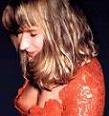







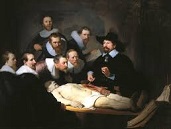

1632 In Feb. Pisa-born Italian super-brain scientist ("Father of Science") Galileo Galilei (1564-1642) pub. his "fictional" masterpiece Dialogue Concerning the Two Chief World Systems (Dialogho Sopra i Due Massimi Sistemi del Mondo), which becomes an immediate bestseller in Italy; in Sept. Pope Urban VIII finally gets a copy, shits bricks and orders its distribution stopped, and in Oct. Galileo receives a summons to appear before the friendly Roman Inquisition for reneging on his 1616 promise and only playing games with them, pretending to treat Copernicanism as a theory but anything but; the Medici family waffles but finally drops protection for him, and he has to go to Rome, where the outcome is unstoppable. On Mar. 29 the Treaty of Saint-Germain-en-Laye (near Paris) between England and France returns New France (Quebec) to French control and provides compensation to France for goods seized during its capture. On Apr. 15 40K Swedish troops under Gustavus II Adolphus defeat 25K Catholic League troops uner Count Johan Tilly (b. 1559) at the Battle of the Lech River (Rain) near Rain, Bavaria, with 2K Swedish vs. 3K Catholic casualties; Tilly is wounded trying to prevent the Swedes from crossing the Lech River into Bavaria, and dies on Apr. 30; Gustavus II Adolphus conquers Augsburg and Munich in May, then storms Wallenstein's entrenched camp near Nuremberg on Sept. 3 and is repulsed. On Apr. 21 the Dordrecht Confession of Faith is adopted by the Mennonites in Dodrecht, South Holland, with 18 articles incl. belief in salvation through Jesus Christ, baptism, non-resistance, excommunication and shunning, feet washing, and avoidance of oaths. On Apr. 30 king (since June 20, 1566) Sigismund III Vasa (b. 1566) dies, and his son Wladyslaw (Vladislav) (Ladislas) IV Vasa (1595-1648) becomes king of the Polish-Lithuanian Commonwealth (until May 20, 1648) after being elected with opposition, going on to pursue a policy diametrically opposed to his daddy's, unsuccessfully attempting to restrict the power of the Jesuits and starting a war with Russia (ends 1634). On June 20 Charles I issues a royal proclamation ordering the country gentlemen to leave London, and grants loyal Catholic George Calvert, 1st Lord Baltimore a Royal Charter to Maryland (named in honor of Queen Henrietta Maria), N of the Potomac River (Algonquin "where goods are brought in"), with unprecedented powers, although all exports are required to be sent to or through England; too bad, he dies on Apr. 15, and his son Cecilius Calvert, 2nd Lord Baltimore (1605-75) takes over. In 1655 after many years of plotting to take back Kent Island from Catholic Maryland, Jamestown Puritan leader William Claiborne defeats a force led by Md. gov. Stone in Providence (Annapolis), kills him, then takes control of Md., and travels to England to get official control, but they don't go for it and Sir George Calvert regains control; after the Puritan govt. in England is ousted in 1660, he finally gives up and contents himself with his little ole 5K-acre Romancoke estate on the York River in Va. In June Roman Catholic sympathizer Sir Francis Windebank (1582-1646) is knighted and appointed by Charles I as his chief secy. of state in England (until 1640), succeeding Lord Dorchester; he goes on in Dec. 1634 to discuss a possible reunion of the Anglican with the Roman Catholic Church with papal agent Gregorio Panzani (-1662), bishop of Mileto, with a plan to send pesky Puritans to war in the Netherlands to get them out of the way - he won the bank? On Nov. 6 king (since Oct. 30, 1611) Gustavus II Adolphus (b. 1594) of Sweden dies after being shot in the back while leading a cavalry charge at the Battle of Lutzen (Lützen) near Leipzig, in which Wallenstein is defeated, becoming the last battle between Protestants and Roman Catholics in Germany, and a Protestant Pyrrhic V, causing the Protestant campaign to lose direction; after Gustav kicks-off and the Swedish center breaks, German soldier Dodo zu Innhausen und Knyphausen (1583-1636) holds the panicky Swedish army together for two hours until Duke Bernhard of Saxe-Weimar (1604-39), col. of the horse guard takes over, kills another col. who refuses to lead a charge, and turns the battle into a V by sundown, eventually gaining his own command; Gustavus Adolphus' daughter Christina Wasa (1626-89) (whose portrait bears a striking resemblance to German tennis player Steffi Graf (1969-)?) ascends the throne of Sweden (until June 6, 1654), with five regents headed by chancellor Axel Oxenstierna governing the country (until 1644); too bad, Saxony now refuses to join the Protestant League under her, er, Swedish leadership, although its troops continue to fight (until 1635). On Dec. 5 after settlers in Zwaanendael (Swaanendael) (Dutch "swan valley or dale") (modern-day Lewes, Del.) (founded 1631), Delaware's first Dutch settlement in the S are massacred by the Indians, Capt. David Peterson de Vries arrives too late to help, then negotiates a treaty with the Indians and sails up the Delaware River trading for beans and corn before sailing to Virginia Colony to recruit new colonists, but the Dutch later removes them to New Amsterdam. On Dec. 20 Nicolas Antoine, a French Catholic pastor who converted to Judaism is executed. Cardinal Richelieu quashes the Montmorency Conspiracy, and has the 4th Duke Montmorency executed and his title forefeited; in 1689 the title is rename the duke of Enghien. The town of Dinkelsbuehl in C Franconia (modern-day Bavaria) surrenders to the Swedish army, and is saved from a massacre by singing children, one of whom reminds the Swedish gen. of his dead son, becoming known as the Kinderzeche (Ger. child's bill for food and drink at an inn). Imam Quli Khan is executed by Persian shah Safi I in order to absorb his lands and strengthen his central authority. Fasilides (Basilides) (1603-67) becomes Solomonid emperor of Ethiopia (until Oct. 18, 1667), going on to isolate Ethiopia from foreign influences, expel the Jesuits in 1633, restore the Ethiopian Orthodox Church, and found a new capital at Gondar (Gonder) N of Lake Tana in 1636, complete with cool Gondar Castle (Fasil Ghebbi) to counter invasions by Galla peoples to the S. Ahmad Koujak is appointed lord of Damascus by sultan Murad IV, who orders him to attack Lebanon and depose pesky Muslim Druze independence leader Emir Fakhr al-Din II (b. 1572), and after his son Ali is killed in Wadi el-Taym, he hides in Jezzine's Grotto (14 mi. E of Sidon), is captured and taken to Constantinople, where he sweet-talks the sultan into releasing him; too bad, the sultan takes his time, and finally has him and his family executed on Apr. 13, 1635; Lebanon becomes an Ottoman puppet until 1920. After the people of Watertown stage a protest against Mass. Bay Colony Gov. John Winthrop for levying taxes on them, he rebukes them, but restores the power of the General Court to elect the gov. and his deputy, rather than just assistants who pick him all the time. The Bishop of London is given jurisdiction over the Anglican churches in the Am. colonies, but regulation ends up being entrusted to the governors. The city of Portland, Maine (modern-day pop. 66K/519K) is settled as the fishing village of Casco on Casco Bay, which is taken over by the Mass. Bay Colony in 1658 and changes its name to Falmouth, which is destroyed by the Abenaki in 1676 during King Philip's War, then destroyed again by French and Indian allies in the 1690 Battle of Fort Loyal, then burned down by the British Royal Navy on Oct. 18, 1775; in 1786 it is refounded as Portland, named after the Isle of Portland off the coast of Dorset, England; in 1820 Maine becomes a U.S. state, with Portland as its capital until 1832, when it is moved N to Augusta; in 1851 Maine becomes the first state to pass a prohibition law, leading to the Portland Rum Riot on June 2, 1855; Portland, Ore. is later named after it. Flemish painter Sir Anthony Van Dyck (1599-1641) moves to England and becomes court painter to Charles I, going on to spend a decade painting many portraits of his royal patron and other nobles after being knighted, rewarded with a generous annuity and lavished with gifts; cheapskate Charles I pays him only half the asking price for a distinguished 1635 portrait. Claudio Monteverdi takes holy orders and retires from public life (until 1637). The English settle Antigua and Montserrat in the Leeward Islands group of the West Indies. Yakutsk, Siberia on the Lena River becomes a fur trading center. Swedish king Gustavus II founds the Univ. Academia Gustaviana in Tartu, Estonia. The West India Co. builds a brewery on Brewers (Brouwer) St. in Manhattan, New Amsterdam, led by gov.-gen. #5 (1633-8) Wouter van Twiller (1606-54), successor of Peter Minuit, becoming the first commercial brewery in North Am.; the street is later named Stone St. for its cobblestone paving. Architecture: Francois Mansart (1598-1666) designs the Church of the Visitation de Sainte-Marie in Paris. Cardinal Richelieu orders the construction of the Palais Royale in Paris. The Post Hotel is built in picture-book Mittenwald, Bavaria, a stop on the way to Munich, which later in this cent. becomes a center for violin manufacture after Stradivari's student Mathias Klotz (1653-1743) moves there. Nonfiction: Antonio Bosio, Roma Sotterranea; Or, An Account of the Roman Catacombs. Michael O Cleirigh et al., Annals of the Four Masters (1632-6); compiled at a Franciscan friary near the Drowes River in County Leitrim, Ireland, covering from the Deluge (2,242 years after Creation) to 1616 C.E. from an Irish standpoint; the first English tr. is pub. in 1846; they record a summer heat wave and drought in 1252. John Amos Comenius (1592-1670), Ratio Disciplinae Ordinisque Ecclesiae in Unitate Fratrum Bohemorum; history of the Moravians. John Davies (1569-1626), Welsh Dictionary. Phineas Fletcher (1582-1650), The Way to Blessedness; Joy in Tribulation. The Jesuits, Jesuit Relations (40 vols.) (1632-72); vol. 1 is Relation de la Nouvelle France, et du Voyage des Peres Jesuits dans cette Contree by Pierre Biard (1565-1622); also incl. Relatio Expeditionis Anglorum in Canadam suaeque ab illis Comprehensionis. William Prynne (1600-69), Histrio-Mastix (Histriomastix): The Players Sourge, or Actors Tragedie; how the Bible proves "that popular stage-playes are sinfull, heathenish, lewde, ungodly spectacles, and most pernicious corruptions". Caspar Schoppe (1576-1649), Flagellum Jesuiticum; against the Jesuits; followed by Mysteria Patrum Jesuitorum (1633), and Arcana Societatis Jesu (1635). John Selden (1584-1654), Mare Clausum; argues for England's sovereignty on the sea. Johann Angelus Werdenhagen (1581-1652), Introductio Universalis in Omnes Republicas Sive Politica Generalis (comparative politics). Art: Sir Anthony van Dyck (1599-1641), Philip, Lord Wharton. Rembrandt van Rijn (1606-69), The Anatomy Lesson of Dr. Nicolaas Tulp; The Abduction of Europa; Portrait of a Lady Aged 62. Plays: Richard Brome (1590-1653), The Northern Lasse. Ben Jonson (1572-1637), The Magnetic Lady. Philip Massinger (1583-1640), The City Madam (comedy). The Second Shakespeare Folio is pub. Poetry: Jacob "Father" Cats (1577-1660), Spieghel van den Ouden ende Nieuwen Tijdt. John Milton (1608-74), On Shakespeare (sonnet) (debut); pub. anon. in the Second Folio of Shakespeare's plays. Births: Anglo-Welsh poet (lesbian?) Katherine Philips (d. 1664) on Jan. 1 in London. German "De jure naturae et gentium" political philosopher-economist-historian Samuel von Pufendorf (d. 1694) on Jan. 8 in Dorfchemnitz, Saxony; educated at the U. of Leipzig. British colonial official in North Am. #1 (1676-) Edward Randolph (d. 1703) on July 9 in Canterbury, Kent. French Jesuit church orator Louis Bourdaloue (d. 1704) on Aug. 20 in Bourges. English "An Essay Concerning Human Understanding", "tabula rasa" empiricist Social Contract philosopher ("Father of Classical Liberalism") John Locke (d. 1704) on Aug. 29 in Wrington, Somerset; educated at Westminster School, and Christ Church, Oxford U.; founder of the school of Philosophical Empiricism. English architect-mathematician-astronomer Sir Christopher Wren (d. 1723) on Oct. 20 in East Knoyle. Dutch linen draper and late-blooming long-living zoologist Anton (Antony) (Antonie) (Thonius) Philips van Leeuwenhoek (d. 1723) [pr. lay-van-HOOK] on Oct. 24 in Delft. Dutch Baroque painter Jan (Johannes) Vermeer (van der Meer van Delft) (d. 1675) on Oct. 31 in Delft; specializes in ordinary domestic interior scenes. French Benedictine "De Re Diplomatica" scholar (founder of paleography and diplomatics) ("greatest historical scholar of his century") Dom Jean Mabillon (d. 1707) on Nov. 23 in Saint-Pierremont, Champagne. Dutch rationalist humanist philosopher (Jewish) Baruch (Benedict de) Spinoza (d. 1677) on Nov. 24 in Amsterdam; born to a Jewish Marrano converso family; student of Franciscus van den Enden (1602-74) and Rabbi Menasseh Ben Israel (1604-57); educated at the Ets Hayyim Yeshivah in Amsterdam, then breaks with Judaism after his father dies. French composer and founder of French opera (tragedie lyrique) (gay) Jean-Baptiste Lully (Giambattista Lulli) (Giovanni Battista Lulli) (d. 1687) on Nov. 28 in Florence, Italy. English physician-scholar Henry Stubbes (d. 1676) in Lincolnshire; educated at Christ Church, Oxford U. Chinese Roman Catholic priest and painter Wu Yushan (d. 1718). Deaths: Flemish gen. Count Tilly (b. 1559) on Apr. 30 in Ingolstadt. English aristocrat Henry Percy, 9th earl of Northumberland (b. 1564) on Nov. 5 in Petworth, West Sussex. Polish king (1587-1632) and Swedish king (1592-9) Sigismund III Vasa (b. 1566) on Apr. 30 in Warsaw. English playwright Thomas Dekker (b. 1570) on Aug. 25. Italian poet Giovanni Battista Basile (b. 1575) on Feb. 23. English statesman (founder of Md.) George Calvert, 1st Lord Baltimore (b. 1579) on Apr. 15 in Lincoln's Inn Fields, London. English political leader Sir John Eliot (b. 1592) on Nov. 27; dies in the Tower of Lonson; his prison works are not pub. for 250 years, incl. De Jure Majestatis. Swedish king (1611-32) Gustavus II Adolphus (b. 1594) on Nov. 6 (killed in battle). French-Dutch mathematician Albert Girard (b. 1595) on Dec. 8 in Leiden; first to discuss imaginary numbers (square root of -1), provide an inductive definition for Fibonacci numbers, and use the abbrevs. sin, cos, and tan for trig functions; states this year that each prime of the form 1 mod 4 is the sum of two squares. Bavarian exiled Winter King Frederick V (b. 1596) on Nov. 29 in Mainz.









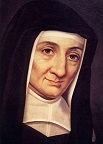



1633 A plague outbreak in Munich, Bavaria kills 15K. In Jan. Axel Oxenstierna is designated legate plenipotentiary in Germany by the king, with absolute power over all territories conquered by the Swedish armies, making him the most powerful statesman in Swedish history (until ?); he organizes the Protestant leaders of Sweden and Germany into the Evangelical League for mutual assistance against mean Roman Catholics; in Jan. German soldier Dodo von Knyphausen is rewarded for his bravery at Lutzen last year with a promotion to field marshal in the Swedish army in charge of Lower Saxony. On Feb. 1 the Tobacco Laws are passed, limiting Va. tobacco production supposedly to prevent their dependence on a 1-crop economy. Speaking of mean Roman Catholics? On Feb. 13 Galileo arrives in Rome, is interrogated (tortured) by the Big I in Apr., pleads guilty to a lesser charge in exchange for a more lenient sentence (please, I don't want to squat to pee?), is found guilty (3 of 10 Cardinal judges withholding their signatures), and on June 22 in the Dominican Convent of Santa Maria Sopra Minerve he is forced to abjure his belief in the *!?! Copernican hypotheses; after prostrating himself in the white nightshirt of a penitent and kissing their holy feet for saving his soul he is sentenced to an indefinite prison term; in Dec. he is allowed to return to Florence under permanent house arrest at his villa in Arcetri, becoming the end of any remaining claim the Church could make to having any direct pipeline to God; the chilling effect is instant, with French brain man Rene Descartes withholding pub. of Le Monde (The World) (Treatise on the Light) next Apr. because it agrees with the Copernican theory, "and I confess that if it is false, then so are the whole foundations of my philosophy, because it is demonstrated from them beyond doubt" (he turns into the "philosophe au masque"); as late as 1739-42 an ed. of Newton's Principia is pub. with a cover letter by Minim Fathers Le Seur and Jacquier pointing out to good Roman Catholics that the Newtonian system of the world is also "hypothetical". On Apr. 10 the first bananas are displayed in London by Thomas Johnson of Snow Hill - yes, we have no jokes here? On Apr. 23 the lull in the Thirty Years' War caused by the death of Gustavus II Adolphus of Sweden is broken by the Heilbronn League, in which France and the Protestant countries of W Germany agree to stand together against the Catholic League behind Sweden under the leadership of chancellor Axel Oxenstierna of Sweden, Gustavus' right-hand man; unfortunately the peasantry can't support the large armies in their lands, so there is not much fighting this year. On June 18 Charles I is crowned king of Scotland in Hollyrood Abbey in Edinburgh, visiting the Scottish lowlands, attending parliament and feasting with the nobility, who are nowhere near as happy as when his daddy James I visited in 1617 since he goes from basically ignoring the country and letting his councillors handle affairs to meddling with the govt. and increasing taxes, upsetting everybody; the Royal Scots Regiment (originally the Royal Regiment of Food) (oldest regular regiment in the British Army) is established (ends 2006). On July 10 the Blessing, a ferry carrying gold and silver for Charles I sinks in the Firth of Forth. On July 14-Oct. 22 the Battle of Liaoluo Bay sees a large Ming Dynasty fleet under Zheng Zhilong defeat a Dutch India Co. fleet under Adm. Hans Putmans at Quemoy Island, becoming the largest naval battle between Chinese and Euro forces until the Opium Wars of 1839-42. On Sept. 3 Rev. Thomas Hooker (1586-1647), a Cambridge-educated Puritan pastor from Essex, England arrives in the Mass. Bay Colony in the ship Griffin from Holland, where he had been chased in 1630 by Archbishop Laud under threat of arrest, and on Oct. 11 becomes pastor of the church at Newtown (Cambridge), soon getting in a mutually-respectful spat with Gov. Winthrop over restriction of voting rights, with Winthrop uttering the soundbyte: "The best part is always the least, and of that best part the wiser part is always the lesser", to which Hooker upstages him with the immortal soundbyte: "In matters which concern the common good, a general council, chosen by all, to transact businesses which concern all, I conceive most suitable to rule and most safe for relief of the whole" - did you have any bad dreams, did you break any glass? On Sept. 26 after Puritan Separatist Edward Winslow (1595-1655) (hated by James I) becomes gov. #3 of Plymouth Colony and inspects the site, Windsor, Conn. 50 mi. upriver from Long Island Sound is founded as a trading post by Englishmen from Plymouth led by William Holmes; meanwhile Ft. Good Hope (Goede Hoop) (near present-day Hartford, Conn.) is built by the Dutch 10 mi. down the Connecticut River in New Netherland, going on to rais their first tobacco crop. On Sept. 27 after invading Silesia, Wallenstein defeats the Swedish army under Duke Bernhard of Saxe-Weimar at the Battle of Steinau, then goes into winter HQ in Bohemia, making the mistake of trying to negotiate a deal between the Protestants, Roman Catholics and the HRE, which causes certain Catholic princes (Maximilian of Bavaria et al.) to want him done away with, and HRE Ferdinand II to suspect him of treachery. In Oct. William Laud (1573-1645), bishop of London (since July 1628) and chancellor of Oxford U. (since 1630), a friend of the Duke of Buckingham becomes archbishop of Canterbury (until Jan. 10, 1645), introducing Laudianism, which rejects Calvinist predestination and emphasizes Roman Catholic-style clerical hierarchy and liturgical ceremony, bringing in new censors Samuel Baker (chaplain to William Juxon), William Bray, William Haywood, and Matthew Weeks, targeting not only the Calvinists but the Puritans, causing an exodus of religious dissidents incl. Anne Hutchinson, John Lothropp, and Zechariah Symmes; William Juxon (1582-1663) takes his old job of bishop of London (until 1649), becoming next in line for the top job; meanwhile in May the 30-40 member Privy Council being too large, Charles I entrusts colonial affairs to an 11-man Lords Commissioners for Plantations in General, which becomes known as the Laud Commission, headed by Archbishop William Laud, who schemes to impose political and religious conformity on New England. The French occupy Lorraine (until 1659). The Jews of Posnan (Poznan) are given the privilege of forbidding Christians to enter their quarter. Shogun Tokugawa Iemitsu begins issuing the Sakoku (Jap. "locked country" Edicts (until 1639), closing Japan's borders to foreigners, and forcing the pesky Portuguese out; by 1641 only a small group of Dutch merchants remain on the artificial Dejima (Deshima) Island (Jap. "Protruding Island") in Nagasaki Bay; they remain in effect until 1853. Fire destroys the N third of London Bridge after a maidservant leaves a pail of ashes under some wooden stairs. Charles I revives the forest eyre to raise fine money. Middle Plantation in Va. is settled, changing its name to Williamsburg in 1699. An English trading post is established in Bengal. The great English church question of the position of the Communion Table at St. Gregory's comes to a head. Jean du Vergier du Hauranne (1581-1643), a student of Cornelius Jansen (d. 1638) becomes dir.-confessor of the Convent of Port-Royal, France, turning it into a center of Jansenism; too bad, Cardinal Richelieu has him imprisoned in 1638, and in 1661 the convent is closed, then destroyed on orders of Louis XIV in 1710. John Cotton (1585-1652), pastor of St. Botolph's Church in Boston, Lincolnshire, England (from 1612) is summoned before Archbishop Laud and the Court of High Commissions to answer for his Puritan leanings, causing him to flee and arrive in Sept. in Boston, Mass. Bay Colony, where he becomes a religious leader ("the Patriarch of New England") and teaches in the First Church until death. Cambridge U. establishes a professorship of Arabic studies. Father Jean de Brebeuf returns to his Catholic mission in the Huron village. Sultan Murad IV orders tobacco smokers executed as infidels. The title of Earl of Lindsay is created for John Lindsay, 10th Lord Lindsay, who later inherits the ancient Earldom of Crawford, uniting the two earldoms until the death of the 22nd earl of Crawford (6th earl of Lindsay) in 1808, when the earldom of Lindsay passes to David Lindsay while the earldom of Crawford goes dormant (until 1848); the family seat is Lahill House near Upper Largo, Fife. The Company of the Daughters of Charity of Saint Vincent de Paul are founded by St. Vincent de Paul (1581-1660) and St. Louise de Marillac (1591-1660), nursing the poor in their homes; "Having no monastery but the homes of the sick, their cell a hired room, their chapel the parish chuch, their enclosure the streets of the city or wards of the hospital." Mission San Luis de Apalachee (de Talimali) in the Fla. panhandle 2 mi. of modern-day Tallahassee, Fla. is built by two Spanish friars. Portuguese Jesuit missionary (since 1609) Cristovao Ferreira (1580-1650) is captured and tortured for five hours until he commits apostasy, and converts to Zen Buddhism, changing his name to Sawano Chuan, then pub. a book titled "The Deception Revealed". Leiden U. Observatory is founded to house the quadrant of Snellius (of Snell's Law fame), and goes on to become the oldest univ. observatory to survive to modern times. A wind sawmill is erected near the Strand in London. The village of Reuil is sold by the Abbey of St. Denis to Cardinal Richelieu, who turns it a magnificent estate. Architecture: Francois Mansart designs the elegant Hotel de la Vrilliere (Hôtel de La Vrillière) in the 1st arrondissement of Paris (finished 1640), which in 1712 becomes the Hotel de Toulouse, the Imprrimerie de la Republiquei n 1795, and the Hotel de la Banque de France in 1811. Nonfiction: Rene Descartes (1596-1650), Les Monde ou Traite (Traite) de la Lumiere (Lumière); on cosmology. Sir Fulke Greville, A Treatie (Treaty) of Humane Learning. Edmund Spenser (1552-99), A View of the Present State of Ireland (posth.). Art: Jacques Callot (1592-1635), Les Grandes Miseres de la Guerre (The Great Miseries of the War); 18 prints showing the horrors of war, incl. pillaging by soldiers and reprisals by the authorities and peasants. Sir Anthony van Dyck (1599-1641), Equestrian Portrait of Charles I; Queen Henrietta Maria with Sir Jeffrey Hudson. Jacob van Campen and Pieter Post, Mauritshuis, The Hague. Rembrandt van Rijn (1606-69), Portrait of a Bearded Man in a Red Coat; sells for £6.27M at Sotheby's in 1998. Le Sueur, Equestrian Statue of Charles I; erected in 1674 on the site of Charing Cross in Westminster. Francisco de Zurbaran (1598-1664), Still Life: Lemons, Oranges, and a Rose; Norton Simon's favorite painting of all time. Plays: Pedro Calderon de la Barca (1600-81), Devotion to the Cross. Thomas Carew (1594-1640), Coelum Britannicum (masque). Pierre Corneille (1606-84), La Galerie du Palais. John Ford (1586-1640), The Broken Heart; 'Tis Pity She's a Whore (tragedy). Ben Jonson (1572-1637), The Tale of a Tub. Christopher Marlowe (1564-93), The Jew of Malta (tragedy) (posth.). Philip Massinger (1583-1640), The Guardian (comedy); pub. in 1655; dirty old man Durazzo of Naples, his nephew Caldoro, and his babe Calista, who goes for Adorio. John Milton (1608-74), Arcades (masque). Poetry: Abraham Cowley (1618-67), Poetical Blossoms; pub. at age 15; contains a poem written at age 10. John Donne (1572-1631), Poems, incl. The Flea (which compares a flea mingling the blood of lovers to sex), The Sun Rising, Song ("Go and catch a falling star,/ Get with child a mandrake root,/ Tell me where all past years are,/ Or who cleft the devil's foot"), A Valediction Forbidding Mourning ("Such wilt thou be to me, who must,/ Like th' other foot, obliquely run;/ Thy firmness makes my circle just,/ And makes me end where I begun"); also Holy Sonnets, incl. Death Be Not Proud (#10). Phineas Fletcher (1582-1650), The Purple Island, or the Isle of Man; his magnum opus, comparing the human veins to rivers, bones to mountains, etc.; incl. "Piscatorie Eclogues and Other Poetical Miscellanies", about boys fishing on the banks of the Cam River. George Herbert (1593-1633), The Temple, or Sacred Poems and Private Ejaculations; 160 religious poems by the rector of Bemerton, Wiltshire (1630-3), many of which are turned into popular hymns incl. "King of Glory, King of Peace", "Let All the World in Every Corner Sing", and "Teach Me, My God and King (The Elixir)"; "But since our Saviour's death did put some blood/ Into thy face;/ Thou art grown fair and full of grace,/ Much in request, much sought for as a good"; "But can he want the grape, who hath the wine?/ I have their fruit and more./ Blessed be God, who prosper'd Noah's vine,/ And made it bring forth grapes' good store./ But much more than him I must adore,/ Who of the Laws' sour juice sweet wine did make,/ Ev'n God himself being pressed for my sake." Births: English London diarist and English secy. of the navy Samuel Pepys (d. 1703) (pr. PEEPS) on Feb. 23 in Bampton, London; educated at St. Paul's School, and Magdalene College, Cambridge U. Am. Mass. minister Samuel Whiting Jr. (d. 1713) on Mar. 25; educated at Harvard U. Japanese emperor #110 (1643-54) Go-Komyo (Tsuguhito) (d. 1654) on Apr. 20; 4th son of Go-Mizunoo (1596-1680); brother of Meisho (1624-96). French fortifications expert Marshal Sebastien Le Prestre, Marquis de Vauban (d. 1707) on May 15 in Saint-Leger Vauban (Yonne). French inventor-traveler-scientist Jean de Thevenot (Thévenot) (d. 1667) on June 16 in Paris; educated at the College de Navarre; nephew of Melchisedech Thevenot (1620-92). German duke of Brunswick-Luneburg (1685-1714) Anthony Ulrich (d. 1714) on Oct. 4 in Hitzacker; 2nd son of Augustus the Younger (1579-1666); brother of Rudolph Augustus (1627-1704) and Ferdinand Albert (1636-87). English-Scottish king (1685-8) James II/VII (d. 1701) on Oct. 14 in St. James's Palace, London; 3rd son (2nd surviving son) of Charles I and Henrietta Maria; named after his grandfather James I/VI; at his baptism he is created duke of York and Albany, causing New York state and Albany, N.Y. to later be named after him (plus Jamestown, Va.); he is given a practical scientific education and becomes a cunning, er, skilled linguist; husband of Anne Hyde (1660-71) and Mary of Modena (1673-). Italian librarian-bibliophile-scholar Antonio de Marco Magliabechi (Magliabecchi) (d. 1714) on Oct. 29 in Florence; starts out as a goldsmith until age 40. Italian physician ("the Father of Occupational Medicine") Bernardino Ramazzini (d. 1713) on Nov. 3 in Carpi, Modena; educated at the U. of Parma. Dutch marine painter Willem van de Velde the Younger (d. 1707) on Dec. 18 in Leiden; son and pupil of Willem van de Velde the Elder (1611-93); at his best when portraying Dutch Vs over the English? Deaths: Anglican clergyman (founder of the English Separatists) Robert Browne (b. 1550) on Oct. 7 in Northampton; dies in gaol. Spanish Carmelite nun Marina de Escobar (b. 1554) on June 9 in Valladolid. Italian composer Jacopo Peri (b. 1561) on Aug. 12 in Florence. English archbishop of Canterbury (1611-33) George Abbott (b. 1562) on Aug. 5 in Croydon, London. English sci-fi writer Frances Godwin (b. 1562) in Apr. in Whitbourne, Herefordshire. Chinese writer Xu Guangqi (b. 1562) on Nov. 8 in Beijing. German duke (1572-96) John Casimir of Saxe-Coburg (b. 1564) on July 16 in Coburg. Dutch dribbling submarine inventor Cornelius Drebbel (b. 1572) on Nov. 7 in London. English MP (1601-22) Henry Cary, 1st viscount Falkland (b. 1575) in Sept; dies after breaking a leg in Theobalds Park, requiring it to be amputated; leaves The History of the Most Unfortunate Prince, King Edward II, with Choice Political Observations on Him and His Unhappy Favourites, Gaveston and Spencer (pub. in 1680). French explorer Etienne Brule (b. 1592) (murdered by the Hurons). English poet George Herbert (b. 1593) on Mar. 1 in Bemerton, Wiltshire; "[Herbert composed] such hymns and anthems as he and the angels now sing in heaven." (Izaak Walton)









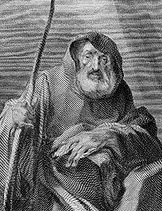
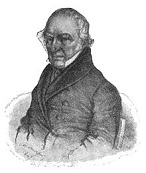
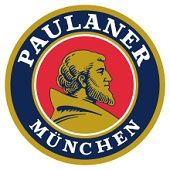

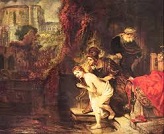
1634 A plague oubreak in Munich this year and next kills 15K of 40K; after it bypasses them, causing villagers to attribute their luck to a vow made to Mary and Jesus, the first passion play is performed in Oberammergau in Bavaria (42 mi. SSW of Munich), and every 10 years thereafter; after it becomes a tourist cash cow, it is held in 1900, 1910, 1922, 1930, 1934 (300th anniv.), 1950, 1960, etc. Early in the year each town in Mass. sends two delegates to Boston, and they demand that Gov. Winthrop produce the colony's charter, which he had never let them see since he claimed that he and not the General Court has the power to pass laws and levy taxes; he relents, and when they find out about his shenanigans they turn the General Court into a representative body, and elect Northampton-born deputy gov. Thomas Dudley (1576-1653) (a stern Puritan, who often differs with tolerant Winthrop) to a 1-year term as Mass. gov. #2 (until 1635) (first of 4x). Bay Colony, beginning when John Winthrop's term elapses in May. Don't do me like that, what if I love ya baby, don't do me like that? On Feb. 24 Albrecht von Wallenstein (b. 1583) is assassinated by some Irish and Scottish officers after HRE Ferdinand II decides he's getting too powerful. On Mar. 4 the first tavern in America is opened in Boston, Mass. by Samuel Cole. On Mar. 25 the Roman Catholic Colony of Maryland (Md.) (named after Queen Henrietta Maria, although they must have snickered about sneaking the Virgin Mary in the back door) is founded on the N shores of Chesapeake Bay by English Catholic settlers led by Lord Baltimore's son Leonard Calvert (1606-47), arriving in the ships Ark and Dove; they buy a native settlement (renamed St. Mary's) from friendly Indians near the mouth of the Potomac River at St. Clement's (now Blakistone) Island; the charter granted by Charles I makes this the first English proprietary colony (owned by an individual, not a joint stock co.); the proprietor is granted powers similar to those of an independent monarch, although the laws must be in accordance with those of England. On June 14 the Treaty of Polianovska (Polianov) is signed, and Wladyslaw IV of Poland renounces his claims to Russia in return for the Smolensk region. On July 29 Sweden promulgates the Instrument of Govt., its first constutition. On Aug. 18 French priest Urbain Grandier (b. 1590) is burned at the stake in Loudun for allegedly seducing an entire convent of Ursuline nuns with the help of the Devil; he had been tried once and acquitted, then publicly insulted Cardinal Richelieu, who got him a more urbane grander trial, where he is tortured into confessing. On Aug. 27 after the Swedes capture Brandenburg, HRE (since Aug. 28, 1619) Ferdinand II (1578-1637), champion of Roman Catholicism and hater of Protestantism names Austrian gen. Matthias Gallas (Matteo Gallasso), Count of Campo, Duke of Lucera Gallas (1584-1647) as his new CIC; on Sept. 5 HRE Ferdinand II (whose portrait bears a striking resemblance to a cross-dressing woman with fake facial hair?), with the help of his son Ferdinand of Hungary (later Ferdinand III) wins the Battle of Nordlingen against the Protestant mercenary army of marshal Gustav Horn, Count of Pori (1592-1657), and reconquers Wurttemberg and Franconia, reaching the height of his imperial power, but still unable to quash Protestantism throughout his emptying empire; the Heilbronn Union collapses, and the Protestants of SW Germany turn to Richelieu's France for help; in Oct. the HRE, king of Spain, and the Roman Catholic princes of Germany agree to a joint attack on France. On Sept. 18 Anne Hutchinson (1591-1643) arrives in the Mass. Bay Colony with her merchant hubby and 13 children, and soon begins hosting home meetings where she preaches Antinomianism, the doctrine that salvation is by faith and grace alone, not by observance of moral laws incl. the Law of Moses, and that some Puritan ministers are wrong to preach salvation by works, causing the latter to begin working, er, conspiring against her. In Dec. the HRE, king of Spain, and Roman Catholic princes of Germany agree to jointly attack France, which Louis XIII learns about, causing him to plan a preemptive strike. A Spanish decree declares Havana the "key to the New World and bulwark of the West Indies". Ligdan Khutugtu Khan (b. 1588), the last great Mongol Tumeng ruler of the Northern Yuan Dynasty dies, and Abahai absorbs them, changing the name of his people to Manchus (from Manjusri, bodhisattva of learning), and claiming the S and E portions of their territory as Inner Mongolia. Mirza (Saru) Taqi (-1645) is appointed grand vizier (PM) of Persia, dominating the Safavid govt. Charles I of England attempts to levy ship money, a tax that applies only to ports to all American colonies, stirring tremendous animosity; meanwhile his puppet Sir Thomas Coventry, 1st Baron Coventry (1578-1640) (lord keeper since Nov. 1, 125) tries to get it extended to inland counties, "so that they might not be enforced to fight", adding that "wooden walls" of ships are "the best walls of this kingdom". French explorer Jean Nicolet (1598-1642) crosses Lake Michigan and lands at Green Bay (originally La Baie des Puants, "Bay of Stinking Waters") (modern-day pop. 104K/312K), home of the Menominee and Winnebago (Ho-Chunk) people to explore the region; expecting Chinese, he dresses in bright-colored flowery Chinese robes; the city grows up at the mouth of the Fox River 112 mi. N of Milwaukee, Wisc. The Dutch capture the 40 mi. x 10 mi. island of Curacao (Curaçao), 60 mi. NW of Venezuela from the Spanish. The English settle Cochin in Malabar. Covent Garden Market, a wholesale fruit, vegetable market in Nine Elms, London (between Vauxhall and Battersea, South West London) opens, becoming known as "London's Larder". Smoking is outlawed in Russia by Tsar Michael I. Samuel Cole becomes the first person to be licensed in Boston, Mass. to operate a tavern. The Paulaner Brewery is founded in Munich, Bavaria, Germany by the Minim friars of the Neudec on der Au cloister, and named after Paola, Italy-born founder (St.) Francis of Paola "the Fire Handler") (1416-1507); every spring it brews a special strong beer called Holy Father, which is later called Salvator, and on Apr. 2 the elector of Bavaria attends the annual tapping of the first keg and is served the first mug, which is followed by the 8-day Ausschank festive sale of beer; on Feb. 26, 1780 elector Karl Theodor permits the monks to serve beer to the public year-round; the Holy Father Feast of 1799 is attended by the whole court of elector Maximilian IV Joseph, becoming Munich's largest Volkfest to date; later in the year the cloister on Neudeck Strasse is closed and converted into a penitentiary, and the brewery opposite it is appropriated and sold to the Sovereign Military Order of Malta in 1803; in 1806 Franz Xaver Zacheri (1772-1849) leases it, purchasing it in 1813; in 1820 it becomes one of the six brewers furnishing beer to the annual Oktoberfest; in 1835 it introduces Salvator Doppelbock, followed in 1838 by Schumacher Alt; in spring 1861 the Salvator-Ausschank is moved to the Salvatorkeller in Nockherberg, a small terrace on the E bank of the Isar River in the district of Au in Munich, starting on the Sun. before St. Joseph's Day (Mar. 19), featuring the first Salvator Speech; in 1928 the brewery merges with Gebruder Thomas Brewery; in 1939-50 there is no annual festival, after which the speeches turn into derbleckt or friendly insults of German politicians; in 1994 Paulaner Brewery is acquired by the Kulmbacher brewery group, owned by Heineken and Schorghuber Ventures. Architecture: Boston Common in Boston, Mass. is begun, finding use as a cow pasture, leading to overgrazing, with usage limited to 70 cows at a time until they are officially banned in 1830 by mayor Harrison Gray Otis- so what do we call this area? Sports: The first Gold Cup event in horseracing in Newmarket, London, England is held. A 4-mi. horserace is held at the Curragh in County Kildare, Ireland; the Earl of Ormond's horse defeats Lord Digby's horse; some claim that chariot races were held there as far back as the 3rd cent. C.E. Inventions: Philip White of England patents iron anchor chains for ships, but until the 19th cent. they are considered either too expensive or experimental. Nonfiction: Meric Casaubon (1599-1671), The Meditations of the Roman Emperor Marcus Aurelius. Geoffrey Keating (1569-1644), The History of Ireland (Foundation of Knowledge on Ireland) (Foras Feasa ar Eirinn); from Creation to the 11th cent. Norman invasion; The Three Shafts of Death; The Key-Shield of the Mass; written in Irish Gaelic, which the English authorities won't permit to be printed, causing them to circulate it in ms. form. Thomas Mouffet, Theatrum Insectorum. William Wood, New England Prospect. Art: Trophime Bigot (1579-1650), St. Laurence Condemned to Torture (Arles); Assumption of the Virgin. Sir Anthony Van Dyck (1599-1641), The Lamentation. Carel Fabritius (1622-54), The Goldfinch. Nicolas Poussin (1594-1665), Hymenaios Disguised as a Woman During an Offering to Priapus (1634-8); Priapus' erect penis is covered up by the Spanish royal family, and rediscovered in 2009. Rembrandt van Rijn (1606-69), Artemisia; Susanna and the Elders; Portrait of Maerten Soolmans. Georges de La Tour, The Cheat With the Ace of Clubs. Francisco de Zurbaran (1598-1664), The Siege of Cadiz. Music: John Milton (1608-74), On Sept. 29, 1634 (Michaelmas) Cheapside, London-born Cambridge U. grad (1629) John Milton (1608-74) presents Comus: A Mask Presented at Ludlow Castle, 1634, on Michaelmas Night, before the Right Honorable John, Earl of Bridgewater, Viscount Brackly, Lord President of Wales, and One of His Majesty's Most Honorable Privy Council (masque); presented on Sept. 29 (Michaelmas); about the Lady, who gets lost in the woods and encounters Comus, the god of revelry, who offers to help her find her lost brothers and kidnaps her instead and takes her to his pleasure palace and ties her to an enchanted chair with "gums of glutinous heat", attempting to talk her into doing the wild thing with him, while she fends him off with philosophy; meanwhile her brothers come upon the Attendant Spirit in the form of a shepherd, who rescues her, after which Severn River water nymph Sabrina frees her from the chair; Comus is then saved by Sabrina, nymph of the Severn River. Plays: Juan Ruiz de Alarcon y Mendoza (1581-1639), Comedias, Vol. 2; incl. Las Paredes Oyen, Todo es Ventura. Pierre Corneille (1606-84), La Veuve (comedy); La Suivante (comedy). Sir William Davenant (1606-68), The Wits (comedy); Love and Honour (tragicomedy). John Ford (1586-1640), The Chronicle History of Perkin Warbeck (historical drama). John Ford (1586-1640) and Thomas Dekker (1572-1632), The Fairy Knight; The Bristowe Merchant. Jean Mairet (1604-86), Sophonisbe; first classical French tragedy, based on the three unities. John Milton (1608-74), Comus (masque praising chastity); Comus is a young Greek-Roman god of festivity and revelry. Novels: Giovanni Battista Basile (1575-1632), The Pentamerone (Tale of Tales) (Cunta de la Cunti) (1634-6); 10 women tell a prince 50 tales over five days; first description of Cinderella, Rapunzel, and Snow White. Births: German composer Adam Krieger (d. 1666) on Jan. 7 in Drisen, Neumark. Dutch Baroque painter Nicolaes Maes (Maas) (d. 1693) in Jan. in Dordrecht. French "The Princess of Cleves" novelist Madame de La Fayette (Marie-Madeleine Pioche de La Vergne, Comtesse de La Fayette) (d. 1693) on Mar. 18 in Paris. Italian duke of Savoy (1638-75) Charles Emmanuel II (d. 1675) on June 20 in Turin; son of Victor Amadeus I (1587-1637) and Christine Marie (1606-63). British vice-adm. Thomas Butler, 6th Earl of Ossory (d. 1680) on July 8 in Kilkenny, Ireland; eldest son of James Butler, 1st duke of Ormonde (1610-88). Turkish grand vizier (1676-83) Merzifonlu Kara Mustafa (Mustapha) Pasha (d. 1683) near Merzifon; son of Uruc Hasan Bey; adopted by the Koprulu family as a child, rising to cmdr. of the Ottoman Grand Fleet in the Aegean by 1663. English writer (vegetarian) Thomas Tryon (d. 1703) on Sept. 6 in Bibury (near Circencester), Gloucestershire. Italian late Baroque painter Luca Giordano (d. 1705) on Oct. 18 in Naples; pupil of Jusepe de Ribera (1591-1652); known as "Fa Presto" (It. "hurry up") from either his speed or his greedy daddy whining to hurry up and make some more. Russian theologian Mikola Mandelstahm (d. 1681). German botanist-physician Paul Amman (d. 1691) in Breslau; educated at the U. of Leipzig. French architect Francois d'Orbay (d. 1697) in Paris. Deaths: Englist jurist Sir Edward Coke (b. 1552) on Sept. 3: "The house of every one is to him his castle and his fortress" - things go better with Coke? English writer-poet George Chapman (b. 1559). German surgeon Wilhelm Fabry (b. 1560) on Feb. 15 in Bern, Switzerland. Paraguayan-born Spanish gov. of Rio de la Plata (1597-9) and Paraguay (1615-17) Hernando Arias de Saavedra (b. 1561) in Santa Fe, Argentina. Italian composer-organist-poet Adriano Banchieri (b. 1568) in Bologna. German publisher Johann Carolus (b. 1575). English satirist-dramatist John Marston (b. 1576). English jurist William Noy (b. 1577) on Aug. 9 in London (kidney stones). Ukrainian divine Meleci Smatrycki (b. 1578). Austrian gen. Albrecht von Wallenstein (b. 1583) on Feb. 24 (assassinated). Mongol khan (1603-34) Ligdan Khan (b. 1588) in Sira Tala, Gansu. Italian chess player Gioacchino Greco (b. 1600); leaves The Royal Game of Chess-play.




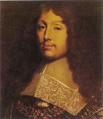



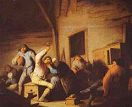
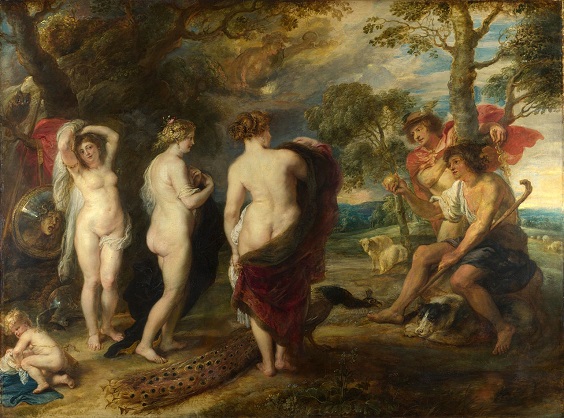
1635 In Jan. the Divine Tragedy sees eight young men skating on a prohibited holy day (Sun.) drowned in Gainsborough; the harsh winter brings 20-ft. snowdrifts. On Feb. 13 the Boston Public Latin School (English High and Latin School), the first public secondary school in the U.S. (Ben Franklin's alma mater) is founded. On Feb. 22 the super-elite Academie Francaise is founded in Paris by Cardinal Richelieu to preserve the purity of the French language - and I looked around me and there were all these shapes being sucked into the flames? In Feb. French minister Cardinal Richelieu supplies the Dutch with 20K men, cuts off the Valtellina in Mar., then declares war on the Spanish Hapsburgs on May 19 after the latter march into French-protected (since 1631) Trier and capture the elector archbishop, freaking him out abut French territory being surrounded by Hapsburg territories, reviving the War of the Mantuan Succession (1628-31) and launching the Franco-Spanish War (ends Nov. 7, 1659). On Apr. 18 fearful of Germany, Cardinal Richelieu of France and Axel Oxenstierna of Sweden sign the Treaty of Compiegne in Paris. On May 30 the Peace of Prague, negotiated by HRE Ferdinand II and elector Johann George I of Saxony is signed by most of the German Protestant states, who are satisfied with the terms of the 1555 Peace of Augsburg being reestablished as on Nov. 12, 1627 in return for agreeing that states of the HRE can no longer make formal alliances, that their armies are to be unified under the HRE, and all princes are to be granted amnesty except pesky Frederick V; the Thirty Years' War is now reduced to France and Sweden vs. the Hapsburgs; Johann George I is given Lusatia, and his son Augustus is allowed to keep the archbishopric of Magdeburg, after which he flops and declares war on Sweden. On May 10 William Claiborne and his Kent Island settlers get in a naval battle with Sir George Calvert's Maryland settlers in Pocomoke Sound, and after three Virginians are killed, Claiborne is defeated, and Va. gov. John Harvey reins him in under orders from England, but Claiborne's supporters get him ousted, and the battle continues until 1638, when Claiborne loses his appeal in England, and gets another charter for Ruatan Island off the coast of Honduras, which is taken over by the Spanish in 1642, causing him to go back to plotting to get Kent Island. On June 28 the French colony of Guadeloupe in the Caribbean (300 mi. SE of Puerto Rico) is established. On July 31 after recommendations by new postmaster (since 1632) Thomas Witherings (-1651), Charles I issues a proclamation making the royal postal service available to the public, and establishing the first inland postal service in Britain between London and Edinburgh, leading to the creation of the British Post Office in 1660. In July France signs an agreement with Savoy, Parma, and Mantua for a joint campaign in N Italy; the high taxes the French raise for the war make Richelieu unpopular. On Aug. 24-25 the Great Colonial Hurricane of 1635 brushes Jamestown, Va. before hitting SE New England incl. Mass Bay Colony and R.I., creating 14-20-ft. storm surges, destroying thousands of trees and many houses, becoming the most powerful hurricane in New England since colonization; the small barque Watch and Wait of Isaac Allerton founders off Cape Ann killing 21 of 23 aboard, later becoming the subject of John Greenleaf Whittier's poem "The Swan Song of Parson Avery"; Boston is spared the high tides, which sweep over Dorchester. On Sept. 12 the Treaty of Stuhmsdorf (Sztumska Wies) strikes 26.5-year truce between Sweden and Poland-Lithuania; Sweden give up its share in the Danzig customs to help Danzig recoup its 10M guilder loss in the war. In Oct. after questioning the right of the king to grant land to the colony without first buying it from the natives, pissing them off, London-born Puritan immigrant (since Feb. 5, 1631) Roger Williams (1603-83) is banished from the Mass. Colony by the gen. court in Boston for his "new and dangerous ideas" incl. separation from the Church of England, complete separation of church and state, and freedom from coercion in matters of faith; "When they have opened a gap in the hedge or wall of separation between the garden of the church and the wilderness of the world, God hath ever broke down the wall itself, removed the candlestick, and made His garden a wilderness, as at this day." The Treaty of St. Germain-en-Laye (near Paris) provides for regular French subsidies to the army of Bernhard of Saxe-Weimar. The Franco-Spanish War of 1635 (ends 1659) sees Cardinal Richelieu of France declare war on Spain because its territory is surrounded by Hapsburg territories and it needs to break out, plus the 1634 Battle of Nordlingen led to many of Protestant Sweden's allies defecting to the Hapsburg side, and he wants France to help it stay in the fight. Peter Stuyvesant becomes Dutch gov. of Curacao in the West Indies. Edward Winslow visits England as an agent for Plymouth Colony, and is imprisoned for several mo. by Archbishop William Laud on charges of offenses against the Anglican Church. Augustus the Younger (1579-1666) becomes duke of Brunswick-Luneburg (Brunswick-Lüneburg), who last ruler died last year; because of the Thirty Years' War he can't move into his residence in Wolfenbuttel until 1644, going on to found the Bibliotheca Augusta. The Great Conde's beautiful sister Anne Genevieve (Geneviève) of Bourbon (1619-79) enters Parisian society, becoming a star at the Hotel de Rambouillet, known as "the goddess of Peace and Concord", going on to back the Fronde; too bad, in 1642 she marries old fart Henri II d'Orleans, Duc de Longueville (1595-1663), gov. of Normandy, and in 1645 when he proves too old to cut the mustard, she begins hooking up with handsome witty "Maxims" author Francois de La Rochefoucauld (1613-80) (frankly won't you what hard?), making him into a Frondeur, after which he ends up gravely wounded in 1652, while she ends up going Jansenist and retiring to a Carmelite convent. William Alexander (1567-1640), earl of Stirling receives a land grant for Long Island. John Winthrop the Younger (Jr.) (1606-76), son of Mass. gov. John Winthrop founds Saybrook Colony at the mouth of the Connecticut River, naming it after Lord Saye and Sele and Lord Brooke, who hold the land grant from the Council of New England; it merges with Conn. Colony in 1644; Windsor, Conn. (originally Dorchester) is settled by religious refugees from Dorchester, Mass.; the Council of New England is dissolved. The first legislative assembly meets in Md. Anthony Johnson (1600-70), who was captured by an enemy tribe in Angola and sold to Arab slave traders, ending up in Va. in 1621 as an indentured servant gains his freedom, going on to become the first black slaveholder in North Am. After Canterbury archbishop William Laud forbids him from preaching, English Puitan minister Thomas Shepard (1605-49) emigrates to Mass., becoming pastor of the First Church in Cambridge, and later Harvard College, which is sited in Newtone (Cambridge), Mass. because of him. Abd al-Karim leads an army of Maba and other small groups E from Lake Chad to conquer the Tunjurs, becoming the first kolak (sultan) of the Muslim Wadai (Ouaddai) Empire, with capital at Abeche (Abéché), an offshoot of the Sultanate of Darfur NE of the Kingdom of Baguirmi, going on to resist the French until 1912, when it is incorporated into the Repub. of Chad. Jesuit Father Jean de Brebeuf enlightens Euros about the Hurons with his Huron Relation. 6'4" multilingual art-and-math-savvy Prague-born Prince Rupert of the Rhine (1619-82), nephew of Charles I of England, fresh from fighting alongside Prince Frederick Henry of Orange in the 1633 Siege of Rheinberg and having outgrowing his bad boy "Robert the Devil" childhood moves to the English court - call me Mister Bojangles? Ft. Orange, the first permanent Dutch settlement in New York is established in Albany. The Spanish fort of Zamboanga is established on Mindanao in the S Philippines, causing Magindanao and Sulu to fight with Spain for dominance in the region; it is abandoned in 1663. Spanish slave ships from Nigeria sink off the coast of St. Vincent; the survivors intermarry with the native Caribs, creating the Black Caribs. The island of Martinique in the Lesser Antilles (Windward Islands) 400 mi. NE of Venezuela is claimed by France, and owned by a private French co. established to colonize America (until 1674). Concord, Mass. is founded, later becoming the birthplace of the Minutemen. Barbary pirate Murad Reis is captured by the Knights of Malta off the Tunisian coast, then imprisoned and tortured (until 1640). Roman Catholic missionaries arrive in Senegal. Jesuit Budapest U. is founded in Nagyszombat (modern-day Trnava, Slovaka). A 3 mph speed limit on hackney coaches is established in London. Sales of tobacco in France are limited to apothecaries, and only on doctors' prescriptions. The flintlock gun is developed, replacing the dangerous wheel-lock with pyrites or a burning match (until c. 1850). Pedro Calderon de la Barca becomes head of the Royal Theater in Madrid. Architecture: Francois Mansart designs the W wing of the Chateau Blois; too bad, refurbishing efforts are abandoned on the death of its owner Gaston d'Orleans in 1660. Music: Girolamo Frescobaldi (1583-1643), Fiori Musicali di Toccate; later influences J.S. Bach. Art: Adriaen Brouwer (1605-38), The Bitter Draught; Music-Playing Peasants. Philippe de Champaigne, Portrait of Richelieu. Sir Anthony Van Dyck (1599-1641), Portrait of Charles I Hunting; the one he pays only half the asking price for; The Children of Charles I; George Villiers, 2nd Earl of Arundel with His Brother Lord Francis Villiers. Thomas Howard, 2nd Duke of Buckingham and His Grandson Lord Maltravers. Laurent de La Hyre (1606-56), St. Peter Healing the Sick. Adriaen van Ostade (1610-85), Peasants in a Tavern. Nicolas Poussin (1594-1665), Kingdom of Flora; Seven Sacraments (1st series) (1635-9); painted for Cassiano del Pozzo, then sold to the dukes of Rutland in 1784. Sir Peter Paul Rubens (1577-1640), Judgment of Paris. Rembrandt van Rijn (1606-69), Minerva in Her Study; Self-Portrait with Saskia (etching) (his well-off life with her now, although he dies broke). Gerard Terborch (1617-81), Consultation; his first dated picture, showing the influence of Frans Hals; The Knife-Grinder's Family; Boy with a Dog; Portrait of William III of England. Diego Velazquez (1599-1660), The Surrender of Breda (The Lances); Portrait of Pablo de Valladolid (Philip IV's court fool). Francisco de Zurbaran (1598-1664), St. Veronica's Kerchief. Nonfiction: Giulio Alenio (1582-1649), Life of Christ; the first life of Christ in Chinese, by an Italian Jesuit - of course no beard? Lord Baltimore, A Relation of Maryland. Sir Thomas Browne (1605-82), Religio-Medici. Cornelius Jansen (1585-1638), Mars Gallus (anti-Richelieu). Matthieu Laensbergh, Almanach Liegeois; a hit in France; too bad, it returns to making prophecies, pissing-off Louis XIII, which only makes it more popular? Francis Quarles (1592-1644), Emblems. Scottish Psalter of 1635. Plays: Pedro Calderon de la Barca (1600-81), Secret Vengeance for Secret Insult; La Vida es Sueno (Sueño). Pierre Corneille (1606-84), Medee (first tragedy). Sir William Davenant (1606-68), The Temple of Love (masque); News from Plymouth (comedy); The Platonick Lovers (comedy). Thomas Heywood (1586-1641), Hierarchie of Blessed Angels. Cretan poet Vitzentsos Kornaros, The Sacrifice of Abraham; the first mystery drama in modern Greek. Births: German theologian ("the Father of Pietism") Philipp Jakob (Jacob) Spener (d. 1705) on Jan. 13 in Rappoltsweiler, Upper Alsace; educated at Strasbourg U. Italian Mannerist portraitist Alessandro di Cristofano di Lorenzo del Bronzino Allori (d. 1607) on May 3 in Florence; father of Cristofano Allori (1577-1621). English dramatist-librettist Philippe Quinault (d. 1688) on June 3 in Paris. English physician-physicist-astronomer-biologist-architect-inventor ("England's Leonardo da Vinci") (greatest inventor of all time?) Robert Hooke (d. 1703) on July 18 in Freshwater, Isle of Wight; educated at Westminster School, and Oxford U.; inventor of the compound microscope, the universal joint, the iris diaphragm, the spring control in the balance wheel of watches, and an air pump; discoverer of Hooke's Law of Elasticity; coiner of the term "cell". Hungarian Magyar composer and palatine prince (1681-1713) field marshal Paul (Pal) I Esterhazy of Galantha (Paul Fürst Esterházy von Galantha) (d. 1713) on Sept. 7 in Kismarton, Hungary (modern-day Eisenstadt, Austria). English princess Elizabeth Stewart (Stuart) (d. 1650) on Dec. 29 in St. James Place, London; 2nd daughter of Charles I and Henrietta Maria. Turkish Ottoman grand vizier (1661-76) Fazil Ahmed Pasha (d. 1676) in Veles (Koprulu), Macedonia; member of the Koprulu family from Albania. French Hotel des Invalides architect Liberal (Libéral) Bruant (d. 1697). French royal mistress (secret 2nd wife of Louis XIV) Francoise d'Aubigne (d'Aubigné), Marquise de Maintenon (d. 1703) (AKA Madame Scarron) on Nov. 27/28 in Niort; daughter of Huguenot suspected English agent Constant d'Aubigne (1584-1647) and a Roman Catholic mother; granddaughter of gen. Theodore Agrippa d'Aubigne (1552-1630); brought up Roman Catholic, is converted to Protestantism by her sister-in-law Madame de Villette, then reconverted by her godmother Comtesse de Neuillant, and becomes quite devout. English biologist Francis Willughby (d. 1672). Welsh rum-swigging buccaneer and Jamaican lt.-gov. adm. Sir Henry Morgan (d. 1688) in Glamorgan, Wales. English Restoration comedic dramatist Sir George Etherege (d. 1691) in Maidenhead, Berkshire; knighted in 1680; inventor of the English fop-filled comedy of social life. English Anglican colonial gov. of Penn. (1681-99) William Markham (d. 1704); 1st cousin of William Penn. English actor-dramatist Thomas Betterton (d. 1710) in London; son of an undercook to Charles I. Deaths: English longevity champ Old Tom Parr (b. 1483) on Nov. 14; dies a nat. hero; buried in Westminster Abbey; lived through 10 English monarchs. Spanish playwright Lope de Vega (b. 1562) on Aug. 27 in Madrid; leaves son Fernando by Pellicer in 1599, daughter Marcela and son Lope Felix by actress Micaela de Lujan, plus several other children; leaves 3K sonnets, 3 novels, 4 novellas, 9 epic poems, and 1.8K plays, incl. 80 masterpieces. English adventurer Sir Anthony Shirley (b. 1565) in Madrid. Italian poet Alessandro Tassoni (b. 1565) on Apr. 25 in Modena. French explorer (founder of Quebec) Samuel de Champlain (b. 1567) on Dec. 25 in Quebec. Lebanese prince Fakhr al-Din II (b. 1572) on Apr. 13 in Constantinople (executed). Neapolitan painter Giovanni Battista Caracciolo (b. 1578). German mathematician and "cossist" (algebraist) Johann Faulhaber (b. 1580). English playwright John Webster (b. 1580) in London. English "Three Blind Mice" composer Thomas Ravenscroft (b. 1582); leaves A Treatise of Music. German composer Melchior Teschner (b. 1584) on Dec. 1. English New Hampshire founder John Mason (b. 1586). German Jesuit poet Friedrich von Spee (b. 1591) on Aug. 7 in Trier; leaves Golden Book of Virtues (Goldenes Tugendbuch), and Truznachtigall: "Often I have thought that the only reason we are all not wizards is due to the fact we have not all been tortured." French etcher Jacques Callot (b. 1592) in Nancy. English poet Thomas Randolph (b. 1605) in Mar.; leaves the titillating On Sixe Cambridge Lasses Bathinge Themselfes By Queenes Colledge. German poet Daniel Caspar von Lohenstein (d. 1683). French dramatist Philippe Quinault (b. 1688).







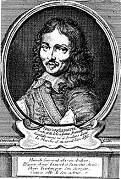
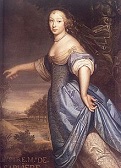
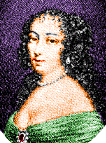

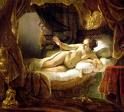
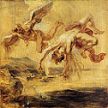

1636 On Jan. 11 the minor hassle Battle of Haselunne (Haselünne) between the Swedish and Hapsburg armies sees field marshal Baron Dodo zu Innhausen und Knyphausen (b. 1583) get KIA. On Mar. 20 Axel Oxenstierna of Sweden scores a brilliant coup when he negotiates the Treaty of Wismar with France (signed in Wismar and Mecklenburg), gaining French aid against the Hapsburgs without major concessions on his part, with the France to attack on the left bank of the Rhine River and the Swedes in Silesia and Bohemia. On Mar. 26 Utrecht U. in the Netherlands is founded; the motto is "Sol lustitiae Illustra Nos" (Sun of Justice, shine upon us) (Malachi 4:2). In Mar. London bishop (1633-49) William Juxon becomes lord high treasurer (until May 1641) and first lord of the admiralty - no problemo with church-state separation in Merry Olde England? On May 30 Upper and Lower Lausitz are ceded, and Saxony becomes Ferdinand II's ally; the Spanish under Prince Octavio Piccolomini attack N France from the Netherlands in July, and are stopped at Liege by the French army, which dissolves; a 60K-man imperial (Austrian-Spanish-Bavarian) army under Matthias Gallas enters France through Burgundy and is stopped 50 mi. from Paris at St. Jean de Losne (Saint-Jean-de-Losne) on Aug. 8, and recalled; England is officially at war with Spain, but hasn't committed any troops in almost 10 years; Bernhard, duke of Saxe Weimar is forced to retreat across the Rhine, leaving S and C Germany exposed to Hapsburg attack, leading to the fall of Augsburg and other towns along the Rhine River near the Swiss border to HRE Ferdinand II's armies. On May 31 King Iskandar Muda of Indonesia dies, and is succeeded next year by his son Iskandar (Iskander) II (until 1641). Three whole towns walk out of Mass. over the right of self-government? In June after elitist Gov. Winthrop fails to mellow out and broaden the voter base, and English-born Puritan minister Thomas Hooker (1586-1647) tells him, "I must confess, I ever looked at it as a way which leads to tyranny and so to confusion, and must plainly profess, if it was in my liberty, I should choose neither to live, nor leave my posterity, under such a government", he leads his 100-person Newtown (Cambridge) congregation along with congregations from Watertown and Dorchester (800 total) on a trek W along the Great Road, moving into the Connecticut River towns of Wethersfield, Conn., Windsor, Conn., and Hartford, Conn. by next May; a 4th group from Roxbury led by William Pynchon founds Springfield, Conn. on the N side of Enfield Falls at a point which forces all N river trade through the new town, which becomes the first settlement in Mass. for non-religious reasons; the original name is Agawam Plantation; they found it on land purchased on both sides of the Connecticut River from 18 aborigines living in a palisade fort on modern-day Longhill St., paying 18 fathoms of wampum, 18 hoes, 18 coats, 18 hatches, and 18 knives. On July 4 after being granted Rhode Island by Narragansett chief Canonicus (1565-1647), London-born Puritan Roger Williams (1603-83) and his Narragansett Indian followers found the town of Providence, R.I. at the head of Narragansett Bay as a refuge for religious dissidents, and proclaim complete religious freedom - as long as you aren't an atheist? On Sept. 24 (Oct. 4 Old Style) the Swedes under field marshal Johan Baner (Banér) (1596-1641) stunningly outwit and defeat the combined imperial-Saxon army at the Battle of Wittstock, and turn the tide of the war, after which poor Saxony is ravaged by Protestants instead of Roman Catholics, leaving little worth looting; on Dec. 22 ailing HRE Ferdinand II has his son Archduke Ferdinand elected HRE Ferdinand III (1608-57) (until 1657). On Oct. 4 after Edward Winslow returns and is elected gov. for the 2nd time, the Plymouth Colony drafts its first law - how laudable? Take me to the river, drop me in the water? By this year the following offenses are capital crimes in the Mass. Bay Colony, the Puritan paradise: adultery, assault, blasphemy, idolatry, man-stealing, murder, perjury in a capital trial, rape (incl. statutory), rebellion, sodomy, witchcraft; other colonies later add arson, counterfeiting, horse theft, piracy, robbery, and slave rebellion. On Oct. 28 Cambridge (later Harvard) College is established by vote of the Great and General Court of the Mass. Bay Colony on the banks of the Charles River, with Nathaniel Eaton as pres. #1, becoming the first Protestant (Christian) higher ed. institution in the U.S.; a tall stockade keeps out wolves and Indians; motto "Christo et Ecclesiae" (For Christ and Church), later changed to "Veritas" (Truth). On Nov. 17 ex-African slave Henrique Dias (1605-62) wins a V against the Dutch in Brazil. Sir Henry Vane the Younger (1613-62) is elected to a single term as gov. of Mass. Bay Colony (until 1637). French Jesuit (since 1624) (St.) Isaac Jogues (1607-46) goes to Canada as missionary to the Huron people, moving on to the Tobacco Nation in 1639 and the Algonquins in 1641. The mucky clear new Ching Dynasty in China is their last? The Manchu clan Aisin Gioro ("Gold Clan") under Abahai of the Later Jin (Chin. "Gold") Dynasty (founded 1616) proclaim the Qing (Ch'ing) (Xing) (Chin. "clear, pellucid") Dynasty in NE China (Manchuria) at Mukden (ends 1911), going on to capture Peking in 1644 and take over the rest of China by 1683; after Emperor Tai Zong demands that Korea accept vassal status and Injo says stuff it, the Manchus invade and make Korea a vassal state; the Ming Dynasty is now in full cookie crumble mode, and the Qins consolidate their position and attack S of the Great Wall when in the mood and the weather permits? The Dutch settle in Ceylon. The Dutch claim the island of Aruba off the coast of Venezuela. The site of Brooklyn in New Amsterdam is first settled by the Dutch and Walloons along Gowanus, Jamaica, and Wallabout Bays this year and next. Brainy Henry Adams settles in Braintree, Mass. and plants his tree. A wall is built around Veracruz, Mexico. Glasgow, Scotland becomes a free royal burgh. Archbishop William Laud prepares the Laudian Code of Statutes for Oxford U., which are adopted until 1854. According to police commissioner Delamarre, tea is introduced in Paris. Nonfiction: Tommaso Campanella (1568-1639), Atheismus Triumphatus. Sir John Hayward (1560-1627), Certain Yeres of Queen Elizabeth's Raigne (posth.); flatters the bitch even though she had him imprisoned? Peter Heylyn, The History of the Sabbath. Marin Mersenne (1588-1648), Harmonie Universelle; describes contemporary musical instruments. George Sandys (1578-1644), A Paraphrase Upon the Psalmes. Music: Heinrich Schutz (1585-1672), Kleine Geistliche Concerten (motets). Art: Sir Anthony van Dyck (1599-1641), Charles I From Three Angles; Portrait of Charles I. Nicolas Poussin (1594-1665), The Rape of the Sabine Women (1636-7). Rembrandt van Rijn (1606-69), Portrait of an 83-y.-o. Woman; The Blinding of Samson; Danae. Peter Paul Rubens (1577-1640), The Massacre of the Innocents II (1636-8); The Fall of Icarus. Diego Velazquez (1599-1660), Prince Baltasar Carlos as a Hunter. Plays: Pierre Corneille (1606-84), L'Illusion Comique; Le Cid (Arabic "The Lord") (Jan.) (Theatre du Marais, Paris); based on a 1599 play by Guillem de Castro y Bellvis of Spain; Corneille starts out under the patronage of Cardinal Richelieu, then offends him by criticizing his writing, causing a flip-flop, and the cardinal's Academie Francise criticize it to please Richelieu, although it is a popular success; Marie Madeleine de Vignerot du Pont de Courlay, Duchesse d'Aiguillon (1604-75), daughter of the cardinal's sister Francoise du Plessis becomes his patron instead, and he dedicates "Le Cid" to her. Sir William Davenant (1606-68), The Triumphs of the Prince D'Amour. Tristan l'Hermite (1601-55), Marianne (first play); his masterpiece? Philip Massinger (1583-1640), The Bashful Lover (tragicomedy). Poetry: Abraham Cowley (1618-67), Poetical Blossoms. Births: Dutch naturalist and Dutch East India Co. gov. of Dutch Malabar (1669-76) Hendrik Adriaan van Rheede tot Drakenstein (d. 1691) on Apr. 13 in Amsterdam. German duke of Brunswick-Luneburg (1635-87) Ferdinand Albert (Albrecht) (d. 1687) on May 22 in Brunswick; 3rd son of Duke Augustus the Younger (1579-1666); brother of Anthony Ulrich (1633-1714) and Rudolph Augustus (1627-1704). French painter Charles de La Fosse (d. 1716) on June 15 in Paris; pupil of Charles Le Brun. English Orientalist writer Thomas Hyde (d. 1703) on June 29 in Billingsley (near Bridgnorth), Shropshire; educated at Eton College, King's College, Cambridge U., and Queen's College, Oxford U.; coins the word "dualism" in 1700. Italian composer Pietro Sammartini (d. 1701) on Sept. 18. English merchant-slave trader Edward Colston (d. 1721) on Nov. 2 in Bristol. Bavarian Wittelsbach elector (1651-79) Ferdinand Maria (d. 1679) on Oct. 31 in Munich; eldest son of Maximilian I and 2nd wife Maria Anna of Austria (daughter of HRE Ferdinand II); husband of Henriette Adelaide of Savoy (1636-76); father of Maximilian II Emanuel (1662-1726). French poet-critic-historian ("the Lawgiver of Parnassus") Nicolas Boileau-Despreaux (Boileau-Despréaux) (d. 1711) on Nov. 1 in Paris; educated at the College de Beauvais, and the Sorbonne; establishes the principles of French classic lit. English "Centuries of Meditations" Anglican metaphysical poet-divine Thomas Traherne (d. 1674) (b. 1637?) in Hereford. English "The Vanity of Dogmatizing" clergyman-philosopher Joseph Glanvill (d. 1680). Dutch Baroque painter Melchior d'Hondecoeter (d. 1695) in Utrecht; nephew of Jan Baptist Weenix; likes to paint exotic birds. British N.Y. Province gov. #12 (1698-1701) Richard Coote, 1st Earl of Bellomont (Bellamont) (d. 1701) in Ireland. French musician-dancer-choreographer Pierre Beauchamp (d. 1705). French explorer Daniel Greysolon, Sieur Duluth (Du Lhut) (d. 1710). French explorer Pierre-Esprit Radisson (d. 1710) in Avignon (Paris?). Deaths: Flemish painter Marcus Gheeraerts the Younger (b. 1561). Italian medical professor (at Padua) Santorio Santorii (Santorio) (b. 1561). Japanese warlord Date Masamune (b. 1567) on June 27 in Sendai. German horticulturist Gervase Markham (b. 1568). English Puritan divine Rev. "Roaring John" Rogers (b. 1572) on Oct. 18. German soldier Dodo von Knyphausen (b. 1583) on Jan. 11 in Haselunne (KIA). Indonesian Aceh Darussalam sultan (1607-36) Iskanadar Muda (b. 1583) on Dec. 27.



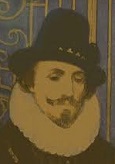









1637 On Feb. 15 HRE (since 1619) Ferdinand II (b. 1578) dies in Vienna; by June the Swedes are pressed back to the German Baltic coast. In Apr. settlers from Saugus, Mass. with permission of the Plymouth Colony found the nearby town of Sandwich, Mass. on the NW part of the hook, named after the seaport of Sandwich in Kent, England; its motto is "Post tot Naufracia Portus" (After so many shipwrecks, a haven); in 1639 it is incorporated, becoming the oldest town on Cape Cod; in 1884 the W part separates and becomes the town of Bourne. In May the English settlers of Connecticut meet to organize a self-governing colony and deal with the pesky local tribe (which has shrunk from 8K in 1621 to 1.5K from whitey's diseases) of the Pequots after they attack Wethersfield; on May 26 with help from Mass. troops commanded by Israel Stoughton they burn the chief Pequot town-fort on the Mystic River near Stonington, Conn., and massacre 400, selling the rest into slavery and ending the tribe's existence (the first major New World English-Indian clash?); they then declare a Day of Thanksgiving - the first English act of genocide? In May religious Dissenter Sir Henry Vane the Younger loses reelection as gov. of Mass. Bay Colony, and returns to England in Aug., where he becomes "America's first revolutionary". On June 30 English king Charles I's Star Chamber cruelly punishes (pillories and mutilates) pesky Puritan parliamentarian William Prynne (1600-69), along with Puritans Henry Burton (1578-1648) and physician John Bastwick (1593-1654) for pub. seditious lit. against Archbishop Laud, and decrees that there shall be just four typefaces used by pure Anglican printers. On July 23 Charles I hands over the Mass. Colony to wealthy English businessman Sir Fernando Gorges (1565-1647), one of the founders of the (Plymouth) Council of (for) New England. The first stool pigeon? On July 23 (Sun.) the new Scottish Book of Common Prayer is imposed by English king Charles I; considered crypto-Roman Catholic by Protestants, it creates social unrest and disorder in Scotland, incl. an orchestrated riot at St. Giles Cathedral in Edinburgh (John Knox's church from 1559-72), where Jenny Geddes throws a fold-up stool at Edinburgh dean James Hannay in protest, and others throw Bibles and pound on the windows; the book is never used in Scotland, but it forms the basis for the future Am. Prayer Book, and ends up costing unyielding Charles I his head. On Aug. 6 >Ben Jonson (b. 1572) dies, and Sir William Davenant (1606-68), godfather of William Shakespeare becomes poet laureate of increasingly unmerry England, becoming a supporter of Charles I and getting knighted in 1643. On Oct. 7 Victor Amadeus I (b. 1587) dies, and his wife Christine Marie (1606-63) (daughter of Henry IV of France) becomes regent for her infant son Francis Hyacinth, Duke of Savoy (1632-38) (until 1638). On Oct. 12 1,637-ton 100-gun HMS Sovereign of the Seas, built by Peter Pett is launched from Woolwick Dockyard, England, becoming the largest ship in the world. On Nov. 6-7 pregnant Anne Hutchinson is hauled before the Gen. Court chaired by Gov. John Winthrop, and quizzed on her beliefs; when she finally claims direct divine inspiration, the "woman of haughty and fierce carriage" convicts herself in their eyes of blasphemy? - I've read that before in the Gospels? On Nov. 8 after being inspired by sketches by Leonardo da Vinci, Greek man Arsenios Tselepis from Constantinople becomes the first man to fly using wings, taking off from the Galata Tower and landing in Dogancilar Square 2 mi. away; the Turks try a coverup, claiming he's a Muslim with the name Hezarfen ("expert in a thousand sciences") Ahmed Celebi. On Nov. 20 Peter Minuit sails to Delaware with Dutch and Swiss immigrants. Shiver me timbers? On Dec. 11 an uprising breaks out in Hara Castle in Shimbara, Nagasaki Prefecture, and on Dec. 17 the Japanese govt. sends 125K troops to quell the the Roman Catholic Shimbara Rebellion, Christianity is exterminated from Japan, and all foreign books and contact with Europeans are prohibited; the Kakure Kirishitan (hidden Christian) period begins, during which Japanese Christians have to go underground until 1853. The Dutch under Frederick Henry of Orange recapture Breda. Prince Rupert begins serving in the Thirty Years' War against the imperialists (until 1638). English Puritan anti-royalist MP John Hampden (1594-1643) (Oliver Cromwell's cousin) refuses to pay Charles I's "ship money", and is tried and convicted despite an eloquent defense, making Charles I's top-10 enemies list; the case establishes the principle that there can be no secret communications between lawyers and the court in legal proceedings. Grison leader George Jenatsch turns Roman Catholic in the interest of patriotism to get Austrian aid, then drives the French out of the Valtellina. Franciscan lay brother Father Domingo de Brieva and Father Andres de Toledo begin exploring the Guina Highlands N of the Amazon River and E of Rio Negro (until 1638). The town of Carlisle ("merrie Carlisle") on the W end of the border between England and Scotland S of Hadrian's Wall is granted a charter by Charles I. Veera Kerala Varma dies, and Goda Varma I (d. 1645) becomes ruler of Cochin (until 1645). Am I comparing apples to oranges, or roses to kumquats? After Tulipomania in Holland, fed by the creation of a wide variety of new bulbs causes tulip trading on the Amsterdam and Rotterdam stock markets to become subject to speculation (the Semper Augustus tulip goes for up to 6K guilders), the tulip market collapses, and the States of Holland pass a statute enforcing economic controls. The Swiss Anabaptist Persecution rages in Zurich and elsewhere. Sweden passes a law ordering all gypsies to be executed without trial. King Louis XIII becomes a snuff lover and repeals restrictions on its use; meanwhile his physician Theophraste Renaudot opens the Mont-de-Piete, the first pawnshop in Paris, and is appointed "gen. overseer of the poor" by Cardinal Richelieu, initiating free medical consultations by 1640. The first public opera house, Teatre San Cassiano (sponsored by the Tron family) opens in Vienna, causing Claudio Monteverdi to come out of retirement. Rev. Timothy Dalton (1577-1661) comes to Hampton, N.H. Russian explorers reach the Pacific coast of Siberia. The Dutch expel the Portuguese from the Gold Cast. English traders establish themselves in Canton. French traders settle at St. Louis at the mouth of the Senegal River in NW Senegal. English emigration to British North Am. is restricted by royal proclamation. Johann Valentin Andreae (Johannes Valentinus Andrea) (1586-1654) succeeds Robert Fludd as grandmaster of the Priory of Sion (until 1654) :). The first authoritatively recorded brewery in the Mass. Bay Colony is run by Capt. ? Sedgwick. Nonfiction: Rene Descartes (1596-1650), Discourse on Method (Discourse on the Method of Rightly Conducting One's Reason and Seeking Truth in the Sciences (Discours de la Methode pour bien Conduire sa Raison, et Chercher le Verite dans les Sciences); an epoch-making work expounding the technique of divide and conquer, containing the three appendices (Qui Sont des Essais de Cete Methode): La Dioptrique, advancing the corpuscular theory of light; Les Meteores: Traite de la Lumiere, on cosmology; La Geometrie, founding the field of analytic geometry and introducing the concepts of a coordinate plane and a mathematical function. Brian Duppa (ed.), Jonsonus Viribus, or The Memory of Ben Johnson Revived by the Friends of the Muses. Baltasar Gracian (1601-58), The Hero; draws a portrait of an ideal Christian leader to confute Machiavelli's Prince. Thomas Hobbes (1588-1679), A Briefe of the Art of Rhetorique. Thomas Morton of Merrymount (1576-1646), New English Canaan; lampoons the Puritans, with whom he has been in a war for years. Francis Quarles (1592-1644), Hieroglyphics of the Life of Man. Gao Ying, The True Method of Military Archery. Art: Sir Anthony van Dyck (1599-1641), James Stuart, Duke of Lennox and Richmond; Lord John Stuart and His Brother Lord Bernard Stuart; George Digby, 2nd Earl of Bristol, and William Russell, 1st Duke of Bedford. Laurent de La Hyre (1606-56), The Conversion of St. Paul. Nicolas Poussin (1594-1665), The Destruction of Jerusalem. Jusepe de Ribera (1591-1652), Pieta. Nicolas Poussin (1594-1665), The Nurture (Childhood) of Jupiter; Rape of the Sabine Women (1637-8). Sir Anthony Van Dyck (1599-1641), Children of Charles I. Jan van Goyen (1596-1656), River Scene With Castle. Rembrandt van Rijn (1606-69), Raphael Leaving Tobias. Plays: Pedro Calderon de la Barca (1600-81), El Magico Prodigioso (religious drama). Tristan l'Hermite (1601-55), Penthee (Penthée). Martin Le Roy, Polyxandre (romance). Jean Desmarets de Saint-Sorlin (1595-1676), Les Visionnaires (comedy). Georges de Scudery (1601-67), Observations sur Le Cid; causes a controversy with Pierre Corneille over his 1636 play Le Cid. James Shirley (1596-1666), A Lady of Pleasure (comedy). Joost van den Vondel (1587-1679), Gysbreght van Aemstel. Poetry: Jacob "Father" Cats (1577-1660), Trou-Ringh. John Milton (1608-74), Lycidas; pastoral elegy composed in memory of his Cambridge U. classmate Edward King, who drowned in Aug. 1637 when his ship sank in the Irish Sea off the coast of Wales; pub. in 1638 in the collection "Justa Edouardo King Naufrago". Births: Dutch naturalist Jan Jacob Swammerdam (d. 1680) on Feb. 12 in Amsterdam. Dutch Baroque painter-inventor (Mennonite) Jan van der Heyden (d. 1712) on Mar. 5 in Gorinchem. English breed mare princess Anne Hyde, Duchess of York (OE "hide" = 120 acres) (d. 1671) on Mar. 12 in Cranbourne Lodge, Windsor; daughter of Edward Hyde, earl of Clarendon (1609-74); wife of James II/VII; mother of Queen Mary II and Queen Anne. English philanthropist ("the Man of Ross") John Kyrle (d. 1724) on May 22 in Dymock, Gloucestershire; educated at Balliol College, Oxford U. French explorer-missionary (Jesuit) Father (Pere) Jacques (James) (Jim) Marquette (d. 1675) on June 1 in Laon. English bishop Thomas Ken (d. 1711) in July. French marshal Nicolas Catinat (d. 1712) on Sept. 1 in Paris. Dutch sculptor Nicolaas van der Veken (d. 1782) on Oct. 20 in Mechelen. English colonial gov. Sir Edmund Andros (d. 1714) on Dec. 6 in London; founder of William and Mary College in Va. Italian composer Bernardo Pasquini (d. 1710) on Dec. 7. French Huguenot pastor Pierre Jurieu (d. 1713) on Dec. 24 in Mer, Orleanais. Italian musician Giovanni Paolo Colonna (d. 1695) in Bologne. German-Danish organist-composer Dietrich Buxtehude (d. 1707). French vice-adm. and marshal Francois Louis de Rousselet, Marquis de Chateaurenault (Chateaurenaut) (Chateauregnaud) (d. 1716). Am. writer Mary (Rowlandson (nee White) (d. 1710) in Somersetshire, England; emigrates to Mass. in 1653. Deaths: Japanese artist Hon'ami Koetsu (b. 1558). English "Volpone" poet-playwright Ben Jonson (b. 1572) on Aug. 6 in London; "He that was only taught by himself had a fool for his master"; "Language most shows a man: Speak, that I may see thee. It springs out of the most retired and inmost parts of us, and is the image of the parent of it, the mind. No glass renders a man’s form or likeness so true as his speech. Nay, it is likened to a man; and as we consider feature and composition in a man, so words in language; in the greatness, aptness, sound structure, and harmony of it." German scientist Daniel Sennert (b. 1572); formulated the concept of the atom. English mystic-scientist Robert Fludd (b. 1574). Austrian HRE (1619-36) Ferdinand II (b. 1578) on Feb. 15 in Vienna. French astronomer Nicolas-Claude Fabri de Peiresc (b. 1580) on June 24 in Aix-en-Provence. French mathematician Pierre Vernier (b. 1580) on Sept. 14 in Ornans, Franche-Comte. Catholic hero Humilis de Bisignano (b. 1582) on Nov. 26. Italian duke of Savoy (1630-7) Victor Amadeus I (b. 1587) on Oct. 7 in Turin. English theologian, poet and religious community founder Nicholas Ferrar (b. 1592) on Dec. 1.










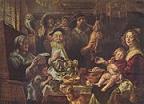
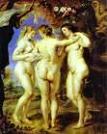
1638 There is a big earthquake in Calabria. On Jan. 3 Schouwburg Theater in Amsterdam opens. In Jan. Galileo, now totally blind from retina damage caused by peering at the Sun petitions the Holy Inquisition to be freed, but is denied; he smuggles his Dialogue Concerning Two New Sciences (Statics and Dynamics) to a publisher in Holland (the first popular science bestseller in history); John Milton makes a pilgrimage to Rome to "commune with enlightened men", and visits Galileo - enlightened, get it? In Jan. Bernhard of Saxe-Weimar (1604-39) begins a victorious campaign in the Upper Rhine, winning the Battle of Rheinfelden on Feb. 28, the Battle of Thann (Teugn-Hausen) on Apr. 19, and the Battle of Wittenweier (Aug. 8), capturing Rheinfelden, Freiburg, and Breisach (one of the strongest fortresses in Europe), respectively, and dies next year before being able to make the latter his new capital as France latches onto it; the Duke of Rohan is mortally wounded at Rheinfelden. This is our country, this is our truck, the all-new Covenantorado? On Feb. 28 the Nat. Covenant (a revival of the Nat. Covenant of 1581), written by Alexander Henderson (1583-1646) and Archibald Johnston, Lord Warriston (Wariston) (1611-63) is signed in Greyfriars Kirk in Edinburgh, with a vow added to establish Presbyterianism (church rule by elders instead of bishops) as the state religion, and denouncing all measures of the crown since 1581 to restore the episcopacy; in Nov. Charles I (their first absentee king) convenes a Gen. Assembly of the Church of Scotland in Glasgow (first in 20 years) in an effort to forestall a rev., but his attempted reforms of the Scottish Kirk, particularly the Scottish Prayer Book are rejected after he makes them decide between religion and the divine-right king (him); the assembly, packed with Supplicants ticked off by his high taxes and restraints on trade is in no mood to obey him, defies royal authority, abolishes the episcopacy, and foments a revolt, causing both sides to arm. On Mar. 7 after Rhode Island, the first Baptist colony is settled at Portsmouth, a compact for the govt. of the colony is signed; on Mar. 22 Anne Hutchinson is expelled from the Mass. Bay Colony, with gov. John Winthrop calling her an "American Jezebel", and her family and a few followers move to Aquidneck (later Rhode) Island near Portsmouth, but the arduous foot journey causes her to miscarry, letting her Mass. critics gloat about the "monstrous birth" as a punishment from God; meanwhile Sergeant Bauleton becomes mgr. of a brewhouse in Providence, R.I. On Mar. 29 Delaware is settled by Swedes and Finns led by Johan Printz, who found New Sweden (until 1655) on the Delaware River, where they build the first log cabins in America. Ft. Christina (named after Queen Christina Wasa), site of modern-day Wilmington, Del. is founded at the confluence of the Christina, Brandywine, and Delaware Rivers, becoming the first Swedish settlement in North Am. In Mar. Gov. John Winthrop signs a charter for the Ancient and Honorable Artillery Co. of Massachusetts. American democracy is born from the Bible and signed off on by God with an earthquake? On May 31 after being governed by a board of commissioners from Mass. for one year, the Conn. colonists hold a gen. court in Hartford and elect their own reps. after Rev. Thomas Hooker gives a big sermon, quoting Deut. 1:13, "Take you wise men and understanding... and I will make them rulers over you", concluding that "The foundation of authority is laid... in the free consent of the people", and that "the choice of public magistrates belongs unto the people by God's own allowance", and that they have the right "to set the bounds and limitations of the power and place unto which they call them" - thus is American-style democracy born of a Bible-thumping Puritan with a ho's name? In May long-tressed Scottish nobleman James Hamilton, 3rd Marquess of Hamilton (1606-49), who is related to James II's daughter Princess Mary and became the heir presumptive to the Scottish throne between the death of James I and the birth of Charles II, and who had proved an inept general in an expedition to Germany in 1631, where his 6K-man was wiped out, after which in 1634 Charles I appointed him I'm-a-fool-to-do-your-dirty-work-oh-yeah adviser on Scottish affairs, is appointed commissioner for Scotland to appease the Prayer Book discontents, soon coming back and claiming that they're "possessed by the devil"; on Sept. 17 he is sent back again with concessions, and fails again after a Nov. 21-28 assembly in Glasgow Cathedral won't budge, causing Charles I to decide on using force. On June 1 the first earthquake in North Am. is recorded at Plymouth, Mass. In July English secy. of state (since June 1632) Sir Francis Windebank urges Charles I to make war with the Scots. On Sept. 4 English colonist Arthur Peach is tried in Plymouth Colony for robbing and killing an Indian returning from a trading expedition to Boston, and despite a strong white lobby against killing a white over an Indian, and others noting that "he was a Mr. Winslow's man" for having worked for Edward Winslow (1595-1655), he is found guilty and hanged along with his three indentured servants Thomas Jackson, Richard Stinnings, and Daniel Cross. On Sept. 14 clergyman John Harvard (b. 1607) of Charlestown, Mass. dies, leaving his 400-book library to the new local college at Cambridge, which is later renamed in his honor; the college burns to the ground in 1674, along with all but one of his books; in 1884 a Statue of John Harvard, 1636 Founder of Harvard College is cast by Daniel Chester French, later becoming known as the "Statue of the Three Lies" because it uses a 19th cent. model, JH didn't actually found Harvard, and it was founded in 1636 not 1638; students rub the statue's left toe for luck. On Oct. 4 infant duke of Savoy (since 1637) Francis Hyacinth (b. 1632) dies, and his younger brother Charles Emmanuel II (1634-75) becomes duke of Savoy (until 1675), with his mother Marie Christine of France (1606-63) (sister of Louis XIII) continuing as regent; too bad, brothers Cardinal Maurice and Tommaso of Savoy get Spanish support and claim the throne, and Marie Christine gets French support, starting the Piedmontese (Franco-Spanish) Civil War (ends 1642) between the principisti and the madamisti. On Oct. 17 after invading Westphalia the French Protestant alliance meets the imperial forces of Gen. Hatzfeld at the Battle of Vlotho; Prince Rupert is captured and imprisoned in Linz, Austria, using the time to study military textbooks, then getting paroled in 1641 on condition of never fighting the HRE again. On Dec. 24 the Ottomans under Murad IV recapture Baghdad from the Safavid Persians after laying siege and slaughtering 60K; Iraq goes Ottoman, under nominal Turkish suzerainty (until WWI); the Ottomans then recapture Constantinople. Bernhard of Saxe-Weimar takes Freiburg, defeats the duke of Lorraine at Sennheim, and conquers Breisach. After support by Archbishop William Laud and Thomas Wentworth, new admiral (since 1636) Algernon Percy, 10th Earl of Northumberland, 4th Baron Percy (1602-68) becomes lord high admiral of England, which has been vacant since the 1628 assassination of the 1st duke of Buckingham, with the understanding that it will go to Charles I's son James when he reaches the age of majority; too bad, the English Civil Wars cause him to be removed by Parliament in 1642. The alliance between France and Sweden is renewed for three years. The Elector of Brandenburg moves his capital to Konigsberg. The Mughals capture the Afghan city of Kandahar (Qandahar) from Persia (until 1648). Willem Kieft (1597-1640) becomes dir.-gen. of New Netherland (until 1647), forming the Council of Twelve Men on Aug. 29, 1641, the first representative body in New Netheland, going on to ignore their advice inflame relations with the Lenape Indians, A group of English Puritans from Mass. settle New Haven, Conn. at New Haven Bay on Long Island Sound, intending to establish themselves in commerce, but end up being reduced to hardscrabble farming, becoming the most rigorously Puritan self-governing (charterless) settlement of all. The Laud Commission orders Mass. to return its charter and answer charges that its officials have violated its provisions; plans by New England Gov.-Gen. Ferdinando Gorges to use force to subdue the Puritans are stopped by the English Civil War. The pop. of Strawberry Banke, N.H. forms a covenant pledging allegiance to Charles I. Belize Town in the Bay of Honduras is founded by shipwrecked English pirate Peter Wallace et al., going on to become a site for Jewish immigration and export of red dyewood and mahogany wood. Ft. Coromantin, the first English fort in Africa opens for biz; the word Coromantin comes to mean slaves. Reunion Island (discovered 1513) is taken by the French. Newtown, Mass. is renamed Cambridge in honor of the univ. town in England. Mail delivery begins in Ireland. John Amos Comenius is invited by the Swedish govt. to assist in educational reforms. Torture is abolished in England. John Tradescant the Younger (1608-62) takes over his deceased father's job as head gardner for Charles I. Reformer patriarch of Constantinople Cyril Lucaris is strangled by orders of Murad IV while in Ottoman custody on trumped-up sedition charges; 1.5K copies of the Maximus trans. of the Bible into vernacular Greek are printed anyway. The Dutch gain control of the cinnamon trade in Sri Lanka from King Rajasinghe II. Use and distribution of tobacco is made a capital offense in China. The Ancient and Honorable Artillery Co. of Mass. (formed last year) is chartered as an honor guard for the gov. of Mass., and is housed in Faneuil Hall in Boston, Mass. Architecture: The Church of San Carlo alle Quattro Fontane in Rome is begun by Francesco Borromini (finished in 1646). The Myles Standish (Old) Burying Ground (Cemetery) in Duxbury, Mass., becoming the oldest maintained cemetery in the U.S.; residents incl. Mayflower Capt. Myles Standish, John Alden, and Priscilla Alden. The Sanno Shinto Shrine in Nagasaki, Japan is founded. Inventions: English astronomer-mathematician William Gascoigne (1612-44) invents the Micrometer. Science: French atty. and math dabbler ("Father of Number Theory") Pierre de Fermat (1607-65) conjectures Fermat's Last Theorem (that the Pythagorean Theorem for n greater than 2 is not solvable in integers) in the margin of his copy of Diophantus' Arithmetica, with the famous soundbyte that he "discovered a truly remarkable proof which this margin is too small to contain", launching a massive search for the proof after the Royal Academy of Sciences at Gottingen offers a 100K mark prize to prove it true or false, without takers; Fermat proves it for n=4, Leonhard Euler proves it for n=3, Peter Gustav Lejeune Dirichlet proves it for n=5 and n=14; in 1954 an electronic calculating machine proves it true for n less than 2000; it is finally solved in 1994 by English mathematician Sir Andrew John Wiles (1953-) after seven years locked up by himself, who also proves that all rational semistable elliptic curves are modular. English geometry prof. John Greaves (1602-52) measures the pyramids, and complains about finding soot in the Great Pyramid. Nonfiction: William Chillingworth (1602-44), The Religion of Protestants a Safe Way to Salvation; argues for the Bible as the sole authority in religion, and originates the quip about theologians debating how many angels can sit on a "needle's point". Galileo Galilei (1564-1642), Discorse e Dimonstrazioni Matematiche. Niccolo Sabbatini (1574-1654), Practica di Fabbricare Scene e Machine ne'Teatri. Bishop John Wilkins (1614-72), The Discovery of a World in the Moone; 2nd ed. pub. in 1640 contains the soundbyte: "I do seriously, and upon good grounds, affirm it possible to make a flying chariot." Music: Claudio Monteverdi (1567-1643), Eighth Book of Madrigals. Art: Sir Anthony van Dyck (1599-1641), Lords John and Bernard Stuart. Jacob Jordaens (1593-1678), As the Old Sang, So the Young Pipe (1638-40); The King Drinks (1638-40). Nicolas Poussin (1594-1665), Les Bergers d'Arcadie (The Shepherds of Arcadia); shepherds gather around a large tomb with the inscription "Et in Arcadia Ego" (Lat. "And in Arcadia I") (anagram of I Tego Arcana Dei, "Begone I conceal the secrets of God"); in 1656 Poussin is visited in Rome by Abbe Louis Fouquet, who writes to his brother Nicolas Fouquet, suptd. of Louis IV's finances that he told him about "certain things... so difficult to discover that nothing now on this earth can prove of better fortune nor be their equal", after which Nicolas Fouquet is arrested and imprisoned for life (becoming the Man in the Iron Mask?), and Louis XIV confiscates all his letters and inspects them personally, then purchases the painting and keeps it in his private apts. at Versailles, after which it ends up in the Louvre; in the 1970s the tomb is located outside the village of Arques 6 mi. from Rennes-le-Chateau and 3 mi. from the Chateau of Blanchefort. Rembrandt van Rijn (1606-69), The Stone Bridge; Portrait of Willem Bartolsz Ruyter. Sir Peter Paul Rubens (1577-1640), The Three Graces II; the ultimate example of Rubinesque women? Plays: Sir William Davenant (1606-68) and Inigo Jones (1573-1652), Luminalia, or The Festival of Light (masque); The Unfortunate Lovers (tragedy); The Fair Favourite (tragicomedy). John Ford (1586-1640), Thomas Dekker and William Rowley, The Witch of Edmonton; about Elizabeth Sawyer, executed on Apr. 21, 1621. John Ford (1586-1640), The Ladies Trial. Sir John Suckling (1609-42), Aglaura; The Goblins. Joost van den Vondel (1587-1679), Gijsbrecht van Amstel (historical drama). Novels: Frances Godwin (1562-1633), The Man in the Moone: or A Discourse of a Voyage Thither by Domingo Gonsales, the Speedy Messenger (posth.); first known science fiction (sci-fi) work - the origin of Speedy Gonzales? Births: Japanese emperor #111 (1655-63) Go-Sai (Nagahito) (d. 1685) on Jan. 1; 8th son of Go-Mizunoo (1596-1680). Danish scientist ("the Father of Geology and Stratigraphy") Nicolaus Steno (d. 1686) on Jan. 10 in Copenhagen; decides in 1659 to not accept anything pub. in a book but to do the experiments himself; brought up Lutheran, his own motto backfires when he studies himself into becoming a Roman Catholic? Austrian Battle of Vienna Gen. Count Ernest Rudiger (Rüdiger) von Starhemberg (d. 1701) on Jan. 12 in Graz, Styria; cousin of Guido Starhemberg (1657-1737). Dutch botanist-anatomist Fredrik Ruysch (d. 1731) on Mar. 28 in The Hague; educated at the U. of Leiden; student of Franciscus Sylvius; father of Rachel Ruysch (1664-1750); first to embalm by injecting a chemical solution into the blood vessels. French Roman Catholic Oratorian priest and Bible critic Richard Simon (d. 1712) on May 13 in Dieppe Norwegian gen. Ulrik Frederik Gyldenlove, Count of Laurvig (d. 1704) on July 20 in Bremen, Germany; illegitimate son of Frederick III of Denmark and Margrethe Pape. French Bourbon Sun king (1643-1715) ("Le Grand Monarque") Louis XIV (the Great) (Dieudonne) (d. 1715) on Sept. 5; son of Louis XIII (1601-43) and Anne of Austria, who finally has her first child after 22 years of marriage at age 37 and a prolonged public labor; his absolutism defines the rest of the cent. for Europe; has Jewish blood in him through the bloodline of the Aragons of Spain; his parents had no children for the previous 22 years of their marriage, detested each other and lived apart for 14 years, only to be reconciled by Cardinal Richelieu and then suddenly produce him, causing some to believe that the true father is one of the many illegitimate sons of Louis XIII's promiscuous father Henry of Navarre, used to produce an heir that could be controlled by Richelieu (see 1669). Swedish "Helicons Blomster" Baroque poet Lars (Lasse) Johansson (AKA Lucidor) (d. 1674) on Oct. 18 in Stockholm. English queen consort (1662-85) (Roman Catholic) Catherine of Braganza (d. 1705) on Nov. 25 in Via Vicosa, Alentejo. Scottish mathematician and scientist (inventor of the Gregorian Telescope) James Gregory (d. 1675) in Nov. in Drumoak (near Aberdeen), Aberdeenshire. Danish scientist ("Vicar Apostolic of the North") Niels (Nils) Stensen (Steensen) (AKA Steeno) (d. 1687) in Copenhagen. French ambassador and womanizer Ralph, Duke of Montagu (d. 1709). Dutch landscape painter Meindert Hobbema (d. 1709) on Oct. 31 in Amsterdam. French journalist-playwright-publicist and royal historian Jean Donneau de Vise (Visé) (d. 1710) in Paris. French philosopher Nicolas de Malebranche (d. 1715) in Paris. Deaths: Italian painter Bartolommeo Carducci (Bartolome Carducho) (b. 1560). German political philosopher Johannes Althusius (b. 1563) on Aug. 12 in Emden, East Frisia. Flemish painter Pieter Brueghel the Younger (b. 1564) in Mar.-May. English composer John Wilbye (b. 1574) in Sept. French monk Father Joseph (Francois Leclerc du Tremblay) (b. 1577) on Dec. 17; dies before being appointed cardinal; "Courage, Father Joseph, we have won Breisach" (allegedly the last words said to him by Richelieu); leaves the Latin poem Le Turciad. English naturalist-gardener John Tradescant the Elder (b. 1577) on Apr. 15-16 in Lambeth. French Protestant leader Duke Henri II of Rohan (b. 1579) on Apr. 13 in Berne; buried in Geneva. Dutch New Netherlands gov.-gen. Peter Minuit (b. 1580). Dutch Roman Catholic bishop-theologian Cornelius Jansen (b. 1585) on May 6. Dutch Flemish painter Adriaen Brouwer (b. 1605) in Jan. in Antwerp. English-born Am. clergyman John Harvard (b. 1607) on Sept. 14 in Charlestown, Mass. (TB).
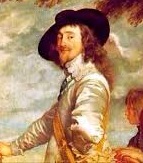

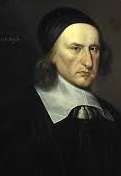

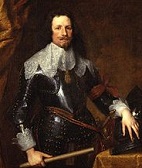
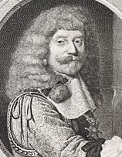
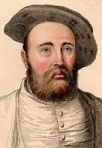

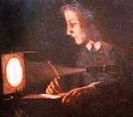


1639 If you think it's flu see a physician fast? In early Jan. the Gen. Assembly of Scotland vows to resist Charles I's attempted changes in the Scottish Kirk to the death, and votes to abolish the episcopacy and excommunicate and depose every Anglican (king-appointed) bishop in Scotland, and enforce their Puritan doctrines on their own people by force, starting the First Anglo-Scottish Bishops' War; Earl Marischal and the Marquess of Montrose lead a 9K-man Covenanter army through The Mounth in NE Scotland in the first battle of the and the Wars of the Three Kingdoms (Nations) (British Civil War) (ends 1651); after Scottish soldier Alexander Leslie, 1st Earl of Leven (1582-1661) returns from service in Sweden, where he was promoted to field marshal in 1636, the Covenanters (former Supplicants) take Edinburgh, Dumbarton, and Stirling; on May 1 an English force led by James Hamilton lands on the Firth of Forth, but after they get nowhere he is recalled in June, and is sent back to Edinburgh on July 8 by Charles I, only to be given a hostile reception and resign as Scottish commissioner; Charles I joins the army at York, but backs down before attacking, and on June 18 signs the Pacification (Treaty) of Berwick-upon-Tweed to end the war, agreeing to let a new gen. assembly and new Scottish Parliament meet in Edinburgh, agreeing to be bound by their decision; too bad, they affirm the prior assembly's decision, and go on to decree limitations on Charles' royal authority, causing him to renege, leading to a second war next year; Scottish privy councilor (since 1628) Archibald Campbell, 8th Earl and 1st Marquess of Argyll (1607-61), the head of Clan Campbell and most powerful man in Scotland (20K retainers), whose father turned Catholic and fought for Philip II but stayed Protestant himself becomes the leader of the Covenanters, getting a motion passed withdrawing the management of public affairs from the control of the crown in favor of the estates. On Jan. 15 the Fundamental Orders of Conn., the first written constitution in history and precursor of the U.S. Constitution (based on a sermon by Thomas Hooker) are adopted by reps. of three Connecticut towns; it provides for voting by English adult males whether church members or not, except the gov., who has to be a member "of some approved congregation"; Puritan theocracy is abandoned. On Jan. 24 George Jenatsch (b. 1596) is assassinated by Rudolf Planta in revenge for killing his daddy Pompejus in 1621; on Sept. 3 the Peace of Milan ends the 20-year Valtelline War (begun 1620), giving it back to the Grisons (until 1797), with save passage guaranteed to Spanish troops. In Jan. Charles I allows Va. gov. Sir Francis Wyatt (1588-1644) to call the Gen. Assembly once a year, which sets a precedent for royal colonies in North Am.; by this year Virginia has exported 750 tons of tobacco, and is chafing under Charles I's export restrictions; on Jan. 6 Va. destroys its surplus tobacco; a law is passed decreeing that "all persons except Negroes" are to get arms and ammo to fight Indians. On Jan. 23 80 New Christians are burned in an Auto da Fe in Lima, Peru along with their leader Francisco Maldonna de Silva for practicing Judaism. On Mar. 27 a Jewish riot results in Rome when a Jewish baby is forcibly baptised - he coulda been a Norman Mailer? On Apr. 14 the Swedes under Johan Baner defeat the Hapsburg imperial army under Archduke Leopold Wilhelm (1614-62) of Austria at the Battle of Chemnitz, opening the road to Bohemia; they then attack Prague on May 20 but are thrown back; the French and Swedes decide to campaign together in C Germany. On May 13 Cambridge College is officially renamed Harvard College. On May 17 Persia signs the Treaty of Zohab (Qasr-e-Shirin) (Kasri Sirin) with the Ottomans, establishing a mutual frontier and ending over a cent. of sporadic conflict; the shah accepts the final loss of Baghdad. On July 25 after abandoning his siege of French-held Turin, Italy, Victor Amadeus I's brother Thomas Frances of Savoy, Prince of Carignano (1596-1656 works with a fifth column to stage a surprise night attack on July 25 (Aug. 27?), seizing the city but not the citadel, which is held by a French force, after which regent Christine Marie of France signs a truce, which ends on Oct. 24, after which Thomas is defeated by the French under Gen. Henri de Lorraine, Count of Harcourt (1601-66) AKA Cadet la Perle, who performs the complicated Route de Quiers. On Aug. 22 Francis Day (1605-73) of the British East India Co. (which is still smarting from their boinging at Amboina in 1623) acquires a trading station in Madras (Chennai) on the Coromandel Coast of the Bay of Bengal in SE India (modern-day pop. 7M/8.9M), with permission from the local nayak Damerla Venkatapathy to build a factory and warehouse. On Sept. 25 the first printing press in North Am. is established in Cambridge, Mass. in connection with Harvard College, producing mainly religious tracts and sermons; meanwhile Mass. becomes the first state to require marriage licenses. On Sept. 25 Wampanoag Sachem Woosamequen (Massasoit) (1581-1661) and his son Mooanam come to the General Court at Plymouth and acknowledge their confederacy with the govt. of England. On Nov. 5 the first post office in the colonies opens in Mass. at the home of Richard Fairbanks. Having contracted Hooker Fever, the General Court of Mass. becomes a body of reps. from the various towns around Plymouth; the 1-page Oath of a Free-Man, printed in Cambridge, Macc. replaces the purchase of stock by membership in the Puritan church as the requirement for becoming a freeman and having voting powers, becoming the first document printed in the Am. British colonies; too bad, none of 50 copies survives. Charles I grants a renewed patent for the province of Maine to Sir Ferdinando Gorges, naming him proprietor; the name Maine is considered a compliment to Charles I's queen Henrietta Maria, who owns the French province of Mayne; after he dies in 1647 and his son neglects it, Mass. begins governing it (until 1820); early settlers are met by the Penobscot ("Penawapskewi" = rocky part or descending ledges) Indian tribe, who teach them about bean-hole bean cooking, putting a pot of beans, onions, and salt pork covered with molasses in a hole filled with ash and embers for 6 hours for yummy yum yum - followed by pee-yuuu six hours later? Boston, England-born Darby Field (1610-49) becomes the first white man to ascend the White Mountains of New Hampshire. A Dutch squadron of 11 ships, under lt. adm. Maarten Harpertszoon Tromp (1597-1653) defeats a vastly superior Spanish feet off Gravelines. The Cossacks advance over the Urals, reaching the Pacific at Okhotsk. Jules Mazarin (1602-61) enters Richelieu's service. John Milton cuts his Grand Tour of Europe short to enlist on the side of the Puritan Parliament. The Greek Orthodox Church convenes the Council of Constantinople, which condemns Calvinism. The Tokugawa shogunate of Japan begins a policy of total isolation, expelling the Portuguese with their Jesuits, and permitting only a yearly Dutch ship landing at Edo. The first immigration restriction legislation in North Am. prohibiting paupers and criminals from immigrating is passed in Mass. - each boatload tries to stop the next? The Roman Catholic monasteries in Ireland are dissolved, causing the Book of Kells to be surrendered to the English crown, after which the English govt. of Dublin gains possession of it by 1653. The Jesuit Order reaches its 100th birthday, going from under 1K members at Loyola's death in 1556 to over 15K, while busily spreading the Roman Catholic faith in America from the Great Lakes to Paraguay, and from Africa to Asia? Shah Jahan erects the walled city of Old Delhi (the Red Fort) (Shahjahanabad), becoming the 6th Delhi city. Newport, R.I. (modern-day pop. 25K) is founded on Aquidneck Island, becoming a main base for Baptists in 1640 and Jews in 1658, followed by more Portuguese Jews in 1745, who make the manufacture of sperm oil and candles its main industry, making the town rich; in 1663 the Colony of Rhode Island and Providence Plantations receives a royal charter, with capital at Newport, and Benedict Arnold as gov. #1; in the 19th cent. it attracts millionaires who set up summer mansions, with elaborate ballrooms and chandeliers spraying perfume; during the admins. of U.S. presidents Dwight D. Eisenhower and John F. Kennedy it hosts Summer White Houses. The city of Ulan Bator (Ulaan Baatar) (Mongolian "red hero") (original name Urga) (modern-day pop. 1.37M) in NC Mongolia on the confluence of the Tuul and Selbe Rivers is founded as a nomadic Buddhist monastic center. H.A. Hugelin founds the first bottled wine factory in France (Alsace), Hugel. English astronomer Jeremiah Horrocks (1619-41) observes the transit of Venus across the Sun's disk, confirming his own predictions. Quinine begins to be used for medicinal purposes. Drury Lane Theatre in London receives its first patent. Architecture: Louis Le Nau builds Hotel Lambert in Paris on St. Louis Island. Nonfiction: Academie Francaise, Dictionary of the French Language (1639-94). Giovanni Baglione (1566-1643), The Nine Churches of Rome. Father Jacinto Barrasa (-1704), History of the Foundation of Lima (Peru). Gerard Desargues (1593-1662), Modern Geometry. Thomas Fuller (1608-61), The Historie of the Holy Warre; the Crusades; written by a witty rector of Broadwindsor, Dorsetshire who is on the make. Galileo Galilei (1564-1642), Diagramma della Verita (Diagrams of Truth). :) William Pierce, American Almanac (Cambridge, Mass.); first Am. almanac. Music: Marco Marazzoli and Vergilio Mazzochi, Chi Soffre, Speri (Who Suffers, Waits); the first comic opera. Claudio Monteverdi (1567-1643), Adone (opera); opens at Teatro San Cassiano in Venice. Art: Nicolas Poussin (1594-1665), The Hebrews Gathering Manna. Rembrandt van Rijn (1606-69), Portrait of His Mother. Diego de Velazquez, The Buffoon of Coria (El Bobo de Coria). Francisco de Zurbaran (1598-1664), St. Francis in Meditation. Fiction: John Fletcher (1579-1625), Bloody Brother; contains The Drinking Song. Philip Massinger (1583-1640), The Unnatural Combat. Plays: William Cartwright (1611-43), The Royal Slave (drama). Pierre Corneille (1606-84), Cinna (tragedy). Sir William Davenant (1606-68), The Spanish Lovers, or The Distresses (comedy). Joost van den Vandel, Maeghden. Births: English "Phyllis is My Only Joy" dramatist-politician Sir Charles Sedley, 5th Baronet (d. 1701) in Mar. Am. Salem Witch Trials Puritan minister Increase Mather (d. 1723) on June 21 in Dorchester, Mass; son of Richard Mather (1596-1669); father of Cotton Mather (1663-1728); educated at Harvard College. English prince Henry Stewart (Stuart), Duke of Gloucester (Henry of Oatland) (d. 1660) on July 8 in Oatlands Palace, Surrey; 3rd surviving son of Charles I and Henrietta Maria. English clockmaker ("the Father of English Clockmaking") Thomas Tompion (d. 1713) on July 25 in Northill, Bedfordshire; teacher of George Graham ((1673-1751). German astronomer Gottfried Kirch (d. 1710) on Dec. 18. French "Big Three" dramatist (with Moliere and Corneille) Jean-Baptiste Racine (d. 1699) on Dec. 22 in La Ferte-Milon (Aisne); educated at the College d'Harcourt by Jansenists of the Abbey of Port Royal; reads classical Latin and Greek. Am. Wampanoag chief Metacomet (Metacom) (King Philip) (d. 1676) in R.I.; 2nd son of Massasoit (1581-1661). French winemaker Benedictine monk (blind) Dom Pierre Perignon (d. 1715) - in Champagne? Deaths: English soldier Robert Carey, 1st earl of Monmouth (b. 1560) on Apr. 12; the Memoirs of Robert Carey are pub. in 1759 (2nd ed. 1808), becoming popular for their description of the last moments of Elizabeth I and James I's reaction to the news. Italian philosopher-monk Tommaso Campanella (b. 1568) on May 21 in Paris; leaves 82 works. English diplomat Sir Henry Wotton (b. 1568) in Dec.: "An ambassador is an honest gentleman sent to lie abroad for the good of his country." Peruvian Dominican monk St. Martin de Porres (b. 1579) on Nov. 3 in Lima; canonized in 1962 by Pope John XXIII. Mexican-born Spanish dramatist Juan Ruiz de Alarcon y Mendoza (b. 1581) on Aug. 4 in Madrid. Ottoman sultan #15 (1617-8, 1622-3) Mad Mustafa I (b. 1591) on Jan. 20 in Istanbul in his cage. Swiss Grisons leader George Jenatsch (b. 1596). German poet Martin Opitz (b. 1597). German Protestant gen. Bernhard of Saxe-Weimar (b. 1604) on Aug. 16 in Neuenburg am Rhein; buried in Weimar. French royal mistress (of Louis XIV) Marquise de Maintenon (b. 1635) on Apr. 15 in Saint-Cyr-l'Ecole Home, Noisy; dies after refusing an audience to Peter the Great.













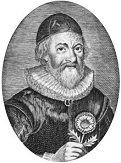


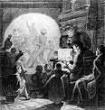

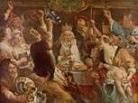


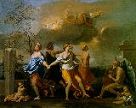

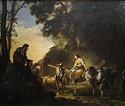
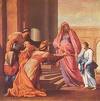
1640 Pop. of the Am. colonies: 25K; the English Civil War causes migration to the Am. colonies to dwindle to a trickle for 20+ years. In this decade all surviving harvest records in North Am. show big dips; in 1641-53 the Canadian Rockies suffer a severe prolonged drought; in 1643-71 Indonesia experiences its longest drought in four cents., with peak episodes in 1659-64. On Feb. 9 Turkish sultan (since 1623) Murad IV (b. 1612), who made drinking and smoking a capital offense dies of cirrhosis of the liver, and after his orders to murder him are not carried out, he is succeeded by his insane caged brother Ibrahim I (the Mad) (1615-48), who had been locked-up in a cage prior to being let out to become head of his nation as Ottoman sultan #18 (until 1648), going on to bring the Ottoman Empire to the point of collapse at jet speed while having a thing for fat women, sending agents to find the fattest and bring them to his harem, giving one from Georgia or Armenia a governorship; he also likes to feed coins to fish in his palace pool. Are you in control of your curls? Got hit by unpredictable frizz? On Apr. 13 Charles I calls Parliament, but when it goes against funding his Bishops' War with the Scots he dissolves it on May 4, and it becomes known as the Short (One Month) Parliament; Charles I's Irish viceroy Sir Thomas Wentworth, 1st Earl of Strafford (1593-1641) obtains liberal funds for the king by balancing the number of Roman Catholics and Protestants in the Irish Parliament and holding out the promise of Catholic toleration, but fails to get either the Irish Parliament or the Short Parliament to pay for Irish troops to fight the Scots; Charles I's secy. of state (since June 1632) Sir Francis Windebank (1582-1646) (elected MP for Oxford U. in Mar.) sends an appeal for Queen Henrietta Maria to the pope asking for military and financial aid, and in Dec. when the House learns that he had signed letters of grace to recusant priests and Jesuits, they summon him to answer, but Charles I allows him to escape to Calais then Paris, where he converts to Roman Catholicism; lord high adm. Algernon Percy is one of two members of the privy council who oppose the Short Parliament's dissolution, confirming his break with Thomas Wentworth and earning him the displeasure of the king, causing him to side with the Parliamentarians - they saw "Braveheart"? On July 6 Spanish ship ? from Macao arrives in Nagasaki, Japan with a delegation of 61 people; on Aug. 9 after Empress Meisho orders it, they are all decapitated and their heads stuck on poles - welcome to the Japans, filthy barbarian suckahs? In Aug. the Second Bishops' War begins when the Scots pass Berwick and cross the Tweed River into England; the king leaves London for York, relieves Newcastle, and on Aug. 28 his heavily outnumbered army led by Edward Conway, 2nd Viscount Conway (1594-1655) is defeated at the Battle of Newburn-on-Tyne (Newburn Ford) by a Scottish Covenanter army led by Gen. Alexander Leslie, 1st Earl of Leven (1582-1661), allowing them to seize Newcastle, choking off London's coal supply, after which on Oct. 26 Charles I signs the Treaty of Ripoff, er, Treaty of Ripon, allowing the Scottish army to rip him off and stay in Northumberland and Durham with an £860 daily subsidy pending a solution of the problem with the Scottish Kirk; Charles I, running out of rope with his "personal rule" sansa Parliament, calls it again in Nov., beginning the Long Parliament, which meets until 1653, led by Puritan John Pym (1584-1643) of Tavistock, who are now so pissed-off at being dispensed with for 11 years that they use the chance to rein-in the king even more, and his request for funds to continue to wage war on Scotland backfires when they instead decide to wage war on him and ally with Scotland; lucky for Charles I, his party in Parliament keeps growing (to 159-148), but too bad, the arrogant prick soon overplays his hand and causes his own head to roll? In Sept. John Milton (d. 1674) visits Galileo (d. 1642) in Florence. On Oct. 3 a Petition from the Muslim Barbary Pirates seeking ransom of 5K kidnapped English is sent to Charles I, incl. a list of 957 more taken since May 18, 1639. In Oct. the Dutch under adm. Maarten Harpertszoon Tromp defeat a Spanish fleet off the Downs and capture 13 galleons. On Dec. 1 after 60 years of living under Spanish rule, only to end up overtaxed and its colonies left unprotected, the Catalan Revolt (Reapers' War) begins in Catalonia (ends Nov. 7, 1659), supported by France, helping the Portuguese expel whimpy Philip IV and the Spanish, beginning the Portuguese Restoration War (ends Feb. 13, 1668); on Dec. 15 the duke of Braganza, leader of the patriotic party becomes Joao (John) IV (the Fortunate) (the Restorer) (1604-56), king of an independent Portugal (and Brazil) (until Nov. 6, 1656), founding the bragging Braganza Dynasty (ends Oct. 5, 1910), which goes on to kick Spanish and Dutch butt and win back their possessions in South Am.; hereafter all heirs to the Portuguese throne are given the bragging rights to the title of duke of Braganza; too bad, Portugal has to put its military priorities on defending its frontiers with Spain, allowing the pesky Dutch to seize many of its colonial possessions, until the Thirty Years' War begins in 1648. On Dec. 1 Prussian duke (since 1619) George William (b. 1595) dies in retirement (since 1637) in Konigsberg after letting the combatants of the Thirty Years' War destroy most of Prussia, and his staunchly Calvinist Hohenzollern son Frederick William (Friedrich Wilhelm) (the Great Elector) (1620-88) becomes elector of Brandenburg and duke of Prussia (until 1688), giving himself the title "Great Elector", and going on to reverse the devastation of the first two decades of the Thirty Years' War, increasing its size to 43K sq. mi. and causing it to emerge as one of the top powers of Europe, dominating all-powerful Sweden in the Baltic, and holding Romanov Russia back. On Dec. 11 the Root and Branch Petition, abolishing the Anglican episcopacy "roots and branches", signed by 15K Londoners is presented to the Long Parliament by 1.5K petitioners; after stalling, it is defeated in Aug. 1641, but they please the crowd with the Bishops Exclusion Act of Dec. 1641 (effective Feb. 1642), and the Ordinance for the Abolishing of Archbishops and Bishops in England and Wales and for Settling Their Lands and Possessions Upon Trustees for the Use of the Commonwealth in Oct. 1646. On Dec. 18 Charles I's main man, Archbishop William Laud (d. 1645) is impeached by the House of Commons for high treason, then held in the Tower for four years while the House of Lords tries to nullify it in vain. The Swedes withdraw from Bohemia. Ang Non I (Batom Reachea) becomes king of Cambodia (until 1642). The Scottish Parliament officially abolishes the observance of Christmas as part of a gen. abolition of "all superstitious observation of days"; Christmas is not restored as a public holiday in Scotland until 1958. The Colony of Rhode Island and Providence Plantations (four towns) forms a confederation. The Dutch found a settlement on Long Island on the East River which later becomes Long Island City, becoming the westernmost neighborhood of the borough of Queens. The Haverhill area of Lawrence, Mass. (modern-day pop. 80K) (home of the Pennacook or Pentucket tribe) is first settled by English colonists from Newbury coming in on the Merrimack River from the coast, starting out as a part of Methuen and Andover; in 1655 a blockhouse is built in Shawsheen Fields in South Lawrence; in 1845-7 the town is incorporated by cotton textile mill owners, led by Unitarian former Mass. rep. (1835-7) Abbott Lawrence (1792-1855). There are now eight postal lines running in England. After obtaining 84K lbs. in Mocha, Yemen, German merchant Johann Siegmund Wurffbain (1613-61) becomes the first to sell Mocha coffee beans commercially in Holland, growing wealthy and pub. one of the first travelers' guides to the East Indies; meanwhile tea begins to be used in The Hague, spreading to Paris in 1648, and Germany by about 1650. In Jamestown, Va. three servants try to run away, and are caught; the two whites receive a lengthening of their service, but "the third being a negro named John Punch shall serve his master or his assigns for the time of his natural life"; meanwhile a Negro woman servant has a mulatto child by white man Robert Sweat, and the court rules "that the said negro woman shall be whipt at the whipping post and the said Sweat shall tomorrow in the forenoon do public penance for his offense at James citychurch." Barbary pirate Murad Reis escapes imprisonment with the help of the dey of Tunis, becoming a big hero in Morocco and the Barbary states, becoming gov. of Safi, Morocco until his death next year. In this decade the gov. of Asuncion, Paraguay gets in a feud with the Jesuits. The Mass. Bay Colony sends 300K codfish to market this year. Pope Urban VIII orders Spanish priests to stop smoking cigars. King Joao IV of Portugal prohibits the sale of Cubeb (Java pepper) to promote the black pepper (Piper nigrum). Abo U. (Academy of Abo) in Finland is founded by Queen Christina of Sweden at the suggestion of Swedish gov.-gen. of Finland (since 1637) Count Per Brahe (1602-80), becoming the 3rd univ. in the Swedish realm after Uppsala U. and U. of Tartu. Architecture: The Baroque Morelia Cathedral in Morelia, Michoacan, Mexico is begun (completed 1744). Inventions: German Jesuit scholar ("the Roman Catholic Leonardo da Vinci") Athanasius Kirchner (Kircher) (1601-80) invents the Magic Lantern (laterna magica) projection lantern. Coke is made from coal for the first time. The first fiacres (small carriages for hire) are used at the Hotel de St. Fiacre in Paris. Nonfiction: Stephen Daye, The Bay Psalm Book (The Whole Book of Psalmes Faithfully Translated into English Metre) (Cambridge, Mass.); the first book pub. in British North Am.; the preface by Richard Mather contains five Hebrew words, the first in a printed work in the New World; in Nov. 2013 one of 11 surviving copies is auctioned for $14.2M. Uriel Acosta (1585-1640), Exemplar Humanae Vitae (Example of a Human Life) (autobio.); Portuguese Roman Catholic skeptic with Jewish roots. Colley Cibber (1671-1757), An Apology for the Life of Colley Cibber (2 vols.) (autobio.); starts a new English fashion for personal anecdotal rambling autobios. Stephen Day (1594-1668) (ed.), Bay Psalm Book (Whole Book of Psalms) (Cambridge, Mass.); first English trans. of the Psalms; tr. by "thirty pious and learned Ministers" incl. Richard Mather (1596-1669), and John Eliot (1604-90); 3rd ed. 1651 (first book printed in British North Am.). John Donne (1572-1631), Eighty Sermons (posth.). Thomas Fuller (1608-61), Joseph's Party-Coloured Coat; first book of sermons, full of wit and conceits. Baltasar Gracian (1601-58), The Politician King Ferdinand the Catholic; his ideal politician. James Howell (1594-1666), Dendrologia, Dodona's Grove, or the Vocall Forrest; history of England and Europe presented allegorically as a typology of trees; later adds England's Teares for the Present Warres. Cornelius Jansen (1585-1638), Augustinus (posth.); exposition of St. Augustine's doctrine of grace and predestination, causing a firestorm of controversy in France. The James Bonds of their day? Bond, James Bond, Pt. 2? The Society of Jesus, Imago Primi Saeculi (Anterp); compendium of Jesuit ideals and exploits; draws fire for its boastful tone, esp. the caption "Unus Non Sufficit Orbis" (One World is Not Enough). John Milton (1608-74), Of Reformation Touching Church Discipline in England; against strict episcopal control. John Parkinson (1567-1650), Theatrum Botanicum; herbal, last by an Englishman in the herbalistic as opposed to botanical tradition; recommends goat's rue (French lilac) (Italian fitch) (professor weed) (Galega officinalis or bicolor) for several medical conditions, but not diabetes, although it had long been used as a remedy for frequent urination; it later becomes the source of the wonder drug Metformin (Glucophage). Francisco Gomez de Quevedo (1580-1645), Providencia de Dios. Izaak Walton (1593-1683), The Life of Donne. Bishop John Wilkins (1614-72), A Discourse Concerning a New Planet. Art: Sebastien Bourdon (1616-71), The Massacre of the Innocents (1640-5). Jacob Jordaens (1593-1678), Prometheus. Kano School (Japan), Equestrian Archery Drill. (anti-Jesuit). Pierre Mignard (1612-95), La Vierge aux Raisins (The Virgin with Raisins) - I can make wine out of water but, er, Dan Brown where are you? Adriaen van Ostade (1610-85), The Barrel Organ Player. Nicolas Poussin (1594-1665), Dance to the Music of Time; The Continence of Scipio. Rembrandt van Rijn (1606-69), Portrait of a Man Seated in an Armchair; Self-Portrait. Salvatore Rosa (1615-73), Self-Portrait; Landscape with Travellers; Landscape with Mercury and Argus. Sir Peter Paul Rubens (1577-1640), Self-Portrait with Second Wife Helena. Eustache Le Sueur (1617-55), Presentation of the Virgin in the Temple (1640-5). Music: Ben Jonson (1572-1637), Underwoods (posth.). Plays: Pedro Calderon de la Barca (1600-81), The Mayor of Zalamea (El Alcade de Zalamea) (1640-4). Richard Brome (1590-1653), The Antipodes (comedy). Pierre Corneille (1606-84), Polyeucte (tragedy); a Christian convert is executed by his father-in-law Felix, Roman gov. of Armenia, but his brave martyrdom converts him and his own widow; Horace (tragedy); Cinna (tragedy); Roman soldier Cinna leads a conspiracy against Augustus, is betrayed by the rejected suitor of his babe Amelie, but is pardoned by Augustus. Sir William Davenant (1606-68), Salmacida Spolia (masque) (Jan. 21). Joost van den Vondel (1587-1679), Joseph in Dothan (Egypt) (drama). Poetry: Thomas Carew (1594-1640), Poems. Novels: James Howell (1594-1666), Familiar Letters, or Epistolae Ho-Elianae; first epistolary novel in English? Births: French mathematician-astronomer Philippe de La Hire (Lahire) (d. 1718) on Mar. 18 in Paris; son of Laurent de La Hire (1606-56). English physician-chemist-physiologist John Mayow (d. 1679) on May 24 in London; educated at Wadham College, Oxford. Austrian short, sickly, Hapsburg-lipped, Jesuit-dominated, music-loving HRE (1657-1705), Hungarian king (1655-1705), and Bohemian king (1656-1705) Leopold I (the Hogmouth) (d. 1705) on June 9; son of HRE Ferdinand III (1637-57) and Maria Anna of Austria/Spain (1606-46); husband of Margarethe Maria of Austria, Claudia Felicitas, and Eleonore Magdalena. French duke (founder of the House of Orleans) Philippe I, Duke of Orleans (d. 1701) on Sept. 21 in Chateau de Saint-Germain-en-Laye, Paris; 2nd surviving son of Louis XIII (1601-43); younger brother of Louis XIV (1638-1715); grandfather of Philippe Egalite (1747-93); great-grandfather of Louis-Philippe (1773-1850). French sculptor Charles-Antoine Coysevox (d. 1720) on Sept. 29 in Lyon; makes busts of French celebs incl. Richelieu, Mazarin, Bossuet, the Great Conde, Racine, Louis XIV, and Louis XV. Dutch explorer Willem de Vlamingh (d. 1698) on Nov. 28 in Oost-Vlieland. English novelist-dramatist (first female prof. writer in England) Aphra (Ayfara) Behn (nee Johnson) (d. 1689) in Wye, Kent; lives as a slave in Suriname until 1658, then moves to England and marries an English merchant. French polymath salonist Marguerite de la Sabliere (Sablière) (Hessein) (d. 1693); wife of Antoine Rambouillet, sieur de la Sabliere (1624-79); patron of La Fontaine. Polish coffee-loving noble-diplomat Jerzy Franciszek Kulczycki (d. 1694) in Kulczyce; of Ruthenian descent. French blood transfusion pioneer physician Jean-Baptiste Denis (Denys) (d. 1704). Austrian HRE (1658-1705) Leopold I (d. 1705); son of a German Jesuit of Dutch extraction who dies in 1666. Ukrainian Cossack hetman (leader) Ivan Stepanovich Mazepa (d. 1709). English "boy player" actor Edward "Ned" Kynaston (d. 1712). English campanologist Fabian Stedman (d. 1713) in Yarkhill, Herefordshire. Austrian mercantilist economist Philipp von Hornigk (Hörnigk) (Hornick) (Horneck) (d. 1714) on Jan. 23 in Frankfurt am Main. Chinese "The Strange Tales of Liaozhai" novelist (Anglican-to-Roman Catholic-to-Anglican convert) Pu Songling (d. 1715). English "The Country Wife", "The Plain Dealer" Restoration dramatist William Wycherley (d. 1716) on Apr. 8 in Clive (near Shrewsbury), Shropshire; grows up in Malappuram, India, and France. French mathematician Jacques Ozanam (d. 1717). Dutch painter Jan Weenix (d. 1719) in Amsterdam; son of Jan Baptist Weenix (1621-60); known for his hunting scenes, and the new style of portraying dead game outside of a kitchen or market. Deaths: English soldier Lord William Howard of Naworth Castle (b. 1563) on Oct. 7 in Naworth Castle, Cumberland. English poet-courtier Sir William Alexander (1567-1640), earl of Stirling (b. 1567). Persian #1 Shiite philosopher Mulla Sadra (b. 1571) in Basra; dies while on pilgrimage on foot to Mecca; buried in Najaf; leaves The Four Journeys; #1: detachment from physical world, #2: sainthood, #3: union with the divine, #4: return of the enlightened to Earth to guide others - which # is the killing of infidels? English writer-clergyman Robert Burton (Democritus Junior) (b. 1577) on Jan. 25. Dutch Flemish Rubenesque painter Sir Peter Paul Rubens (b. 1577) in Antwerp - she ain't a lady she's my wife? Swiss surgeon Marie Colinet (b. 1560) in Bern. English dramatist Philip Massinger (b. 1583) on Mar. 17 in London. Portuguese-born Dutch Jewish skeptic Uriel Acosta (b. 1585) in Apr.; shoots himself after being given 39 lashes at the Portuguese synagogue in Amsterdam for his heretical beliefs that the Bible is a human invention and that rabbis are full of it, then being forced to allow the congregation to trample him. Dutch merchant Pieter van den Broecke (b. 1585) on Dec. 1 in the Strait of Malacca. English dramatist-poet John Ford (b. 1586). English poet Thomas Carew (b. 1594) on Mar. 23. German poet Paul Fleming (b. 1609) on Apr. 2. Ottoman sultan #17 (1623-40) Murad IV (b. 1612) on Feb. 9 (cirrhosis of the liver).





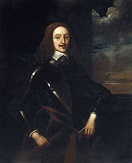









1641 And the Dutch become the Spice Girls of Europe? On Jan. 14 with help from the sultan of Johore, the Dutch take possession of the Portuguese fort of Melaka (Malacca) (held since 1511), allowing them to control the tea trade; meanwhile after years of bloodshed the Dutch oust the Chinese from Formosa (Taiwan) to control the Sika deer trade, and rule it until 1661. On May 12 lord deputy of Ireland (1632-40) Thomas Wentworth, 1st Earl of Strafford (b. 1593) is executed for treason over the Irish affair in London in front of a crowd of 200K. On Mar. 11 the Battle of Mborore (Mbororé) near modern-day Panambi sees a combined force of Guarani Indians and Jesuits defeat slave-raiding Paulistas (mamelucos) (bandeirantes) from Sao Paulo in a battle on the Uruguay River. On June 6 Spain officially loses Portugal. In June the Austrian imperial army under Archduke Leopold of Hapsburg is defeated by the Swedes under Carl (Karl) Gustaf Wrangel (1613-76) and Count Hans Christoff von Konigsmarck (Königsmarck) (1609-63) (cmdr. of the Swedish flying column) at the Battle of Wolfenbuttel on the Oker River in Lower Saxony. In June Archibald Campbell, 8th earl of Argyll is given a commission by the Covenanters to deal with the royalists in Atholl and Angus, after which he traps John Murray, 1st earl of Atholl and burns the Bonnie House of Airlie in Angus, home of Scottish royalist James Ogilvy, 1st Earl of Airlie (1593-1666); on Aug. 10 Charles I visits Scotland, accompanied by Scottish riding-against-the-wind royalist James Hamilton, who tries to convince Argyll to join the royalist cause against Parliament in return for kingy accepting Presbyterianism, but ends up getting convinced by Argyll to side with him, causing Hamilton's arch-enemy James Graham Montrose, 1st Marquess and 5th Earl of Montrose (1612-50) to accuse Argyll to the king of being a traitor, to which the king replies that he's "very active in his own preservation", but stays in his good graces, having Montrose imprisoned instead. On Aug. 10 Charles I and Hamilton leave England for Edinburgh to parley with the Scottish Parliament, and Charles I creates Argyll as Archibald Campbell, Marquis (Marquess) of Argyle (Argyll) (1607-61) to butter him up; too bad, after Hamilton tries to make friends with Argyll, the Scottish royalists get jealous, and on Sept. 29 Lord Henry Ker, Lord Ker (-1643) (son of the earl of Roxburgh) rides into Edinburgh at the head of an armed band and calls Hamilton a traitor, challenging him to a duel, but backs down and apologizes, after which The Incident sees a royalist plot by Montrose to kidnap Argyll, Hamilton, and Hamilton's brother the earl of Lanark foiled by Scottish soldier Sir John Hurry (Urry) (-1650), who rats them out to gen. Alexander Leslie, 1st earl of Leven on Oct. 11, giving them time to flee Edinburgh, after which on Oct. 12 Charles I disavows the plot and gives in to the Covenanter's demands, assenting to the abolition of the Episcopacy in Scotland, appointing Covenanter nobles to the Scottish privy council and transferring control over judicial and political appointments to the Scottish Parliament to secure their help against the English Parliament before returning to England in Nov. (making "a perfect deed of gift of that kingdom", according to Edward Hyde, 1st earl of Clarendon); Argyll returns with kingy to London next Jan. 4. On Aug. 27 Magdalene College, Cambridge U. man Henry Dunster (1612-59), who just arrived from England is appointed pres. #1 of Harvard College; too bad, he goes Baptist, and is forced to resign in 1654. On Oct. 13 after years of simmering hatreds between the Barberini family of Pope Urban VIII, the Pamphili family of Pope Innocent X, and the Farnese family of Parma, Pope Urban VIII starts the First War of Castro (ends 1644) against Duke Odoardo I Farnese of Parma in the ancient city of Castro (modern-day Lazio), beginning a military campaign to depose him allegedly for not paying his creditors, starting by occupying Castro with the forces of his papal army, headed by his nephew Taddeo Barberini, along with Luigi Mattei; actually, in 1639 the pope's nephews had quarrelled with Odoardo, causing them to get popey to ban grain shipments from Castro to Rome, causing them to go in debt in the first place. On Oct. 23 taking advantage of the Scottish occupation army on English soil, starving Irish Roman Catholics, led by Col. Rory (Roger) O'Moore (1600-55) begin the Irish Revolt (Rebellion) of 1641 (ends May 1642) against domination by Protestant England, seizing Dublin and expelling the English, causing the Roman Catholic lords of the Pale to join and elect a supreme council called the Catholic Confederation (Union of the Irish) (ends 1652) in summer in Kilkenny, becoming a de facto govt. of Ireland loosely aligned with the English royalists and Charles I, controlling two-thirds of the island; in Oct. the Irish revolt spreads to Ulster, and up to 30K Protestants are massacred in Belfast (the Scottish Protestants are spared?), and the remaining English settlers are driven out of Ulster; Charles I sends Edward Somerset, Earl of Glamorgan (1602-67) to deal with them, and he goes so far as to promise them the predominancy of the Roman Catholic Church in Ireland if they'll give up and back the king against the pesky Puritans; Philip Sidney, 3rd Earl of Leicester (1619-98) and his brother Algernon Sidney (1623-83) serve on the English side in the Irish Revolt, along with James Butler, 12th Earl (later 1st Duke) of Ormonde (1610-88), who ended the pesky Butler-Fitzgerald Feud (begun in the 13th cent.) in 1629, and who has relatives on the rebel side, forcing him to try harder?; the beginning of the Irish Confederate (Eleven Years' War) (ends 1653); the first use of the Green Harp Flag by Irish Confed. troops. The original Soshs and Greasers? On Dec. 30 after the Long Parliament on Nov. 22 draws up the Grand Remonstrance, dissing the govt. of Charles I, presenting it to him on Dec. 1 the first clash between the short-haired Puritan Roundheads (Parliamentarians) and the long ringlet-haired royalist Cavaliers (Royalists) takes place; meanwhile Thomas Howard, 2nd earl of Arundel wisely leaves England and settles in Padua, contributing large sums to Charles I's cause, which causes him to be created earl of Norfolk in 1644. In Dec. the Mass. Body of Liberties is passed, a forerunner of the U.S. Constitution and Bill of Rights, proclaiming the exclusive right of the Mass. Gen. Court to legislate and dictate the "Countenance of Authority", protecting the right to due process, freedom of speech, unlawful seizure, bail, jury trial, and fishing-hunting rights on public lands, and prohibiting double jeopardy, cruel and unusual punishment, compulsory draft except for territorial defense, estate taxes, and monopolies, codifying 100 laws, incl. enjoining husbands from beating their wives; revoked by Charles II in 1684 - unless you're Brad Pitt and Angelina Jolie expressing themselves for the cameras? Comte de Soisson's conspiracy against Louis XIII of France fails. The Turks capture Azov. King Iskander II of Indonesia dies, and is succeeded by Queen Tajul Alam (-1675) (until 1675). The English Star Chamber (founded 1453) is abolished. Sir William Berkeley (1606-77) (pr. BARK-lee) is appointed gov. of Va. (until 1675), going on to become a popular admin. who helps open up the inland territory on the other side of the Blue Ridge Mts., go on the hunt in the English Civil War against Oliver Cromwell, and have it made until he gets involved in fur trading with the Indians and gets too harsh in putting down a revolt caused by his coddling of them in 1675? Jules Mazarin is made a cardinal. Civil war brings the collapse of the govt. in the African Congo. Mary Stewart (Stuart) (b. 1631), daughter of Charles I marries Prince William of Orange. The town of Lexington, Mass. (modern-day pop. 31K) is first settled as part of Cambridge, Mass., and incorporated in 1691 under the name Cambridge Farms, then reincorporated as an independent town in 1713 under the name Lexington, becoming the breadbasket of Boston, gaining fame for the first shots of the Am. Rev. War in the Battle of Lexington on Apr. 19, 1775; in 1846 the Lexington and West Cambridge Railroad reaches it, boosting pop. French missionaries hold services for 2K Ojibwas at the NE end of Michigan's Upper Peninsula on the U.S.-Canada border 346 mi. from Detroit on the future site of the city of Sault Sainte Marie, Mich. (Fr. "St. Mary's Falls") (modern-day pop. 14K), giving the French dibs to the area; twin city Sault Sainte Marie, Ontario on the other side of the St. Marys River (modern-day pop. 73K) is separated after the War of 1812 establishes the border at the river. Burlington, Mass. (modern-day pop. 25K) (named after the town of Bridlington, England?) 13 mi. NW of Boston on the watersheds of the Ipswich, Mystic, and Shawsheen Rivers is first settled, and incorporated on Feb. 28, 1799. The gov. of New Netherlands offers bounties to settlers for Indian scalps. French physician Theophraste Renaudot (1586-1653) pub. a plan for free medical treatment of the needy in Paris, pissing-off the faculty of medicine, which forbids him to practice in 1644. The word "advantage" is first applied to the game of tennis. Hungry-like-the-wolf Dutch portrait painter Sir Peter Lely (1618-80) settles in London, and is commissioned to paint Charles I and his court, going on to keep his head and serve Oliver Cromwell and Charles II, become state painter under the latter, getting knighted before he croaks. The Swedish iron industry begins its rise. Manchester, England begins manufacturing cotton goods. John Evelyn begins writing his diary (until 1706). Diurnal Occurrences (weekly) begins pub. in London, detailing acts of legislation. Inventions: Grand Duke Ferdinand II of Tuscany (founder of the Accademia del Cimento in Florence) invents an alcohol glass thermoscope, calibrated to "coldest winter cold" and "hottest summer heat". Galileo Galilei proposes the pendulum clock. Science: Arsenic is first prescribed for medicinal purposes. Nonfiction: Sir Richard Baker (1568-1645), Apologie for Laymen's Wrighting in Divinity; with a Short Meditation upon the Fall of Lucifer. Rene Descartes (1596-1650), Meditations on First Philosophy, In Which the Existence of God and the Immortality of the Soul are Demonstrated (Meditationes de Prima Philosophia, in qua Dei Existentia et Animae Immortalitas Demonstratur); his most important work?; presents it in the form of six days of merry meditating. William Habington, Observations Upon Historie. Bishop John Wilkins (1614-72), Mercury, or The Secret and Swift Messenger; first English language book on cryptography. Art: Sir Anthony van Dyck (1599-1641), Prince William of Orange and Princess Mary Stuart. Frans Hals (1580-1666), The Governors of St. Elizabeth Hospital. Claude Lorrain (1600-82), Embarkation of St. Ursula. Nicolas Poussin (1594-1665), The Seven Sacraments. Rembrandt van Rijn (1606-69), Manoah. David Teniers the Elder (1582-1649), Country Fair. Music: John Barnard, First Booke of Selected Church Musick. Claudio Monteverdi (1567-1643), The Return of Ulysses (Il Ritorno d'Ulisse in Patria) (opera). George Wither (1588-1667), Hallelujah, or Britain's Second Remembrances (hymns). Plays: Ben Jonson (1572-1637), Timber; Or, Discoveries (posth.). James Shirley (1596-1666), The Cardinal. Poetry: Georg Rudolf Weckherlin (1584-1653), Geistliche und Weltliche Gedichte. Novels: Luis Velez de Guevara, El Diablo Cojuelo (picaresque novel). Madeleine de Scudery (1607-1701), Ibrahim, ou l'Illustre Bassa (4 vols.). Births: French war secy. (1666-91) Francois-Michel Le Tellier, Marquis de Louvois (d. 1691) (AKA Louvois) on Jan. 18; son of Michel le Tellier (1603-85); brother of archbishop Charles-Maurice le Tellier (1642-1710); father of Louis Francois Marie le Tellier (1668-1701). English sea capt. Robert Knox (d. 1720) on Feb. 8 in Tower Hill, London; cousin of John Strype (1643-1737). Scottish physician Sir Robert Sibbald (d. 1722) on Apr. 15 in Edinburgh. English merchant-economist Sir Dudley North (d. 1691) on May 16 in Westminster. Dutch physician-anatomist Regnier (Reynier) de Graaf (d. 1673) on July 30 in Schoonhoven; discoverer of the Graafian follicles in the ovary. French Waldensian pastor-soldier Henri Arnaud (d. 1721) on Sept. 20 in Embrun. English botanist (plant anatomist) and physiologist Nehemiah Grew (d. 1712) on Sept. 26 in Warwickshire; educated at Pembroke College, Cambridge U. German field marshal Hans Adam von Schoening (Schöning) (d. 1696) on Oct. 1 in Tamsel (near Kustrin), Brandenburg; ancestor of Friedrich von Wrangel (1784-1877) and Wernher von Braun (1912-77). French mistress (of Louis XIV) Francoise Athenais (Athénais) de Rochecouart de Mortemart, Marquise de Montespan (d. 1707) on Oct. 5 in Lussac-les-Chateaux. English dean of St. Paul's Church (1691-1707) William Sherlock (d. 1707) in Southwark; educated at Eton School, and Peterhouse, Cambridge U. Deaths: French minister Maximilien de Bethune, Duke of Sully (b. 1560) on Dec. 22 in Villebon; leaves Memoirs, revealing French king Henry IV's (imagined?) Grand Design for Europe to ensure perpetual peace via a Christian Repub. of 15 states (6 hereditary monarchies, 6 elective monarchies, 3 repubs.). with the HRE as first magistrate heading a Gen. European Council. English atty. Sir Lawrence Hyde II (b. 1562) on Jan. 26. Dutch Calvinist theologian Franciscus Gomarus (b. 1563) on Jan. 11 in Groningen. English scholar Henry Spelman (b. 1564) in Oct. in London. Dutch-born Muslim pirate Murad Reis (b. 1570) in Morocco. Korean king Kwanghaegun (b. 1571). English economist Thomas Mun (b. 1571) on July 21 in London. Italian painter Domenichino (Domenico Zampieri) (b. 1581) on Apr. 16 in Naples. German duke Georg of Calenberg (b. 1583). English statesman Thomas Wentworth, 1st earl of Stafford (b. 1593) on May 12 in London (executed). Dutch engraver-etcher Jan van de Velde (b. 1593). Swedish field marshal Johan Baner (b. 1596) on May 10. Flemish Baroque artist Sir Anthony Van Dyck (b. 1599) on Dec. 9 in London; dies eight days after the birth of his only daughter; buried in St. Paul Cathedral - after twisting the night away dancing with the chick in slacks? English astronomer Jeremiah Horrocks (b. 1618).
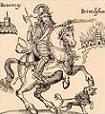





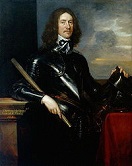
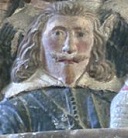





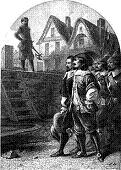
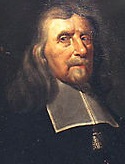

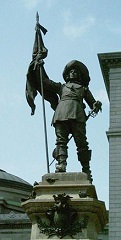


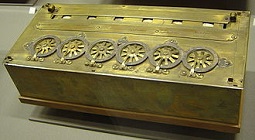

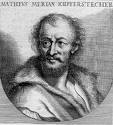
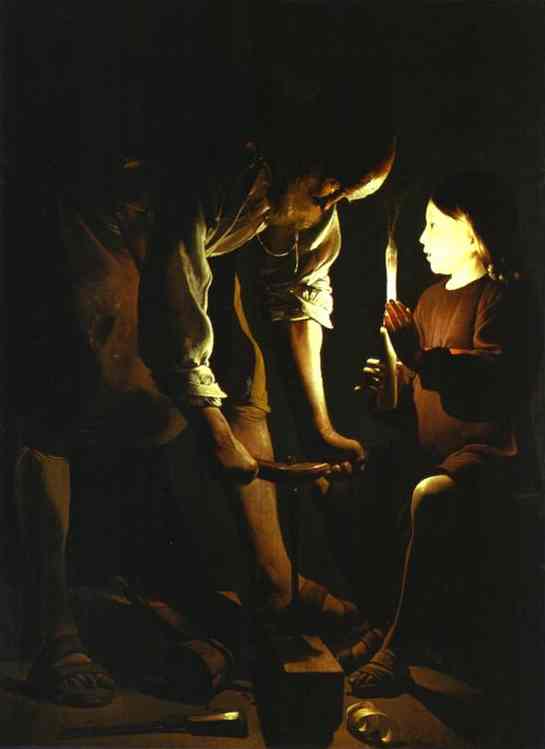
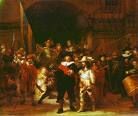

![Tomb of Galileo Galilei [1564-1642] by Giambattista Foggini (1652-1725)](images/fogginigalileotomb.jpg)
1642 Floods in China kill 300K after rebels destroy river dikes in Kaifeng (Hunan Province). Spain suffers from inflation. The boner that causes a king to lose his crown to the cool device called the Buddy Box? On Jan. 4 pissed-off newly arriving (from Scotland) Charles I marches to Westminster Hall with soldiers to attempt to arrest the Five Members of the Long Parliament for treason (aiding the Scottish army camped in England), incl. John Pym (1584-1643), John Hampden (1555-1643), Sir Denzil Holles, 1st Baron Holles (1599-1680), Sir Arthur Haselrig, 2nd Baronet (1601-61) (cmdr. of the Parliamentary army cavalry, known as lobsters for their full armor), and William Strode (1598-1645), plus Robert Montagu, Lord Mandeville (who skedaddles to Europe, inventing the Grand Tour?), sitting down in the speaker's chair and crying out their names, but they are spirited away before he arrives in boats out back of the hall, and the proof that he's both a mean autocrat and impotent against his enemies backfires, causing Charles I to flee hostile London with his family to the north, attempting to muster men and arms before ending holed-up in Hampton Court, which becomes his palace and his prison; meanwhile in Apr. Charles I attempts to obtain arms at the large arsenal in Kingston upon Hull, but is refused by John Hotham, son of Sir John Hotham, causing Charles I to go insted to the smaller armory in Beverley and muster more soldiers before returning. On Jan. 5 after securing the city of Castro for the pope, Taddeo Barberini and his papal army arrive in the papal city of Ferrara, and on Jan. 11 the opera "L'Armida" by Marco Marazzoli is presented in his honor, with Marazzoli later composing "Le Pretensioni del Tebro e del Po" to commemorate his V; on Jan. 13 Pope Urban VIII excommunicates Duke Odoardo and rescinds his fiefdoms granted by Odoardo's great-great-great-grandfather Pope Paul III, pissing off Odoardo, who allies with Venice, Modena and his father-in-law Cosimo II de' Medici and marches toward Rome; meanwhile the Spanish are too occupied by the Thirty Years' War to help the pope. On Jan. 8 Lucius Cary, 2nd Viscount Falkland (1610-43) becomes British secy. of state (until Sept. 20, 1643), joining the royalist side in the English Civil until he is KIA at the First Battle of Newbury on Sept. 20, 1643. Revenge of the Scienti? On Jan. 8 the #1 scientist of his time, Galileo Galilei (b. 1564) dies, blind and under house arrest by the Infallible Holy Church; what a coincidence that Isaac Newton (d. 1727), the Summa (greatest) scientist of his or any age, and the discoverer of the secret of light i s born in England on Dec. 25 Old Style (Jan. 4, 1643 New Style) - the big keelboat is rammed by more and more great logs? On Apr. 15 after Richard Butler, 3rd Viscount Mountgarret (1578-1651) (joint gov. of Kilkenny with James Butler, earl of Ormonde) rebels and takes all the fortresses in the counties of Kilkenny, Waterford, and Tipperary, the Battle of Kilrush near Athy is a V for Ormonde, who on Sept. 16 is appointed lt.-gen. of Ireland by the king. On May 17 the city of Montreal (originally Ville-Marie) in SW Quebec, Canada at the foot of Mount Royal on the S shore of Montreal Island in the St. Lawrence River (modern-day pop. 1.7M/3.5M) is founded by a group of French colonists led by Paul de Chomedey, Sieur de Maisonneuve (1612-76) on the site of an Iroquois encampment; too bad, the Iroquois don't like it, and begin attacking it, reducing the pop. to 50 by 1653 when 100 volunteers arrive to save it, after which the pop. rises to 600 by 1685, living mainly by the fur trade. In June Edward Hyde, 1st Earl of Clarendon (1609-74) switches to the royalist party, and begins writing political manifestos which win half the nation to the royalist cause, but he fails to win the king over to a moderate course; meanwhile James Graham Montrose turns against James Hamilton for having too much influence in Scotland. In June big brain Puritan poet John Milton (b. 1608) marries Mary Powell (-1652), daughter of a royalist, but she leaves him after a few weeks because of incompatible temperaments; they are reconciled in 1645. On July 10 the English Civil War (ends Sept. 3, 1651) begins with the Siege of Hull in East Riding, Yorkshire, with Charles I unsuccessfully trying to capture the royal arsenal (Parliament already has a large arsenal in London), declaring John Hotham a traitor, followed on Aug. 13-Sept. 2 by the Battle of Lostwithiel in Cornwall, which is a royalist V; meanwhile on Aug. 12 Charles I puts out a call, and on Aug. 12 at 6:00 p.m. raises the royal standard at Nottingham Castle, declaring war on his own Parliament, with only 800 horse and 300 foot, and since the castle is in ruins he er, heads for Thurland Hall, owned by the earls of Clare, where his princely German nephews Maurice and Rupert join him, along with his two eldest sons Charles and James; too bad, Notthinghamshire is divided in its loyalties, and after poor results in recruiting he er, heads for Shrewsbury, assembling 6K infantry and 1.5K dragoons; during the war nearly 40% of the 504 members of Parliament leave or are expelled to fight for the king; the parliamentary troops are led by incompetent (suffering from male hormone deficiency?) Robert Devereux, 3rd Earl of Essex (1591-1646) (until 1645); N and W England (incl. Cornwall) are mainly on Charles I's side, and E and S England on Parliament's; like in the old Wars of the Roses, the majority of the country is neutral, and each side has about 13K troops; royalist poet Richard Lovelace (1618-57) presents Parliament with a pro-Charles petition, is imprisoned, released on bail, then serves in the French army until 1648, when he returns to England and is imprisoned again until after Charles I's execution in 1649; Charles I's son Prince Charles, who travels with a retinue of 300 is sent to Wales to gather support for the royalist cause; Roman Catholic French-born Queen Henrietta Maria raises funds for her hubby Charles I in the Netherlands; the Earl of Montrose, who signed the Nat. Covenant in 1638 and fought with the Covenenters until the 1639 Treaty of Berwick, then changed sides twice, finally sides with the royalists permanently; the House of Commons excludes royals, and introduces income and property taxes to fight the war. In July after 1.5K Irish Confed. troops under prof. soldier Garret Barry (-1647) take Protestant-held Limerick, the Battle of Liscarroll in County Cork is a V for 2.5K English troops led by Protestant Murrough MacDermod O'Brien, 1st Earl of Inchiquin (1614-74) over a 7.4K-man Irish Confed. army led by Garret Barry, becoming the first battle of the Eleven Years' War (Irish Confed. Wars) (Oct. 1641-Apr. 1653) between native Irish Roman Catholics and English-Scottish Protestant colonists, becoming the most destructive conflict in Irish history (until ?). In Aug. Jesuit lay missionary (St.) Rene (René) Goupil (1608-42), who came to Canada in 1640 is captured and tortured by the Iroquois, then executed with a tomahawk in Sept. in Auriesville, N.Y. for making the sign of the cross over a child (sorcery?). On Aug. 14 Dutch explorer Abel Janszoon Tasman (1603-59) leaves Batavia, reaching Mauritius on Sept. 5 to gather supplies for his crew, leaving on Oct. 8 and sailing E through the Roaring Forties westerly winds, sighting Van Dieman's Land on Nov. 24 and naming it for Dutch East Indies gov. Antonio van Diemen; on Dec. 13 he sights New Zealand, naming it Staten Landt; on Dec. 19 four of his men are killed by the natives at Massacre (Murderers) (Golden) Bay. On Sept. 8 Johann Philipp von Schonborn (Schönborn) (1605-73) is elected prince-bishop of Wurzburg (Würzburg), followed by archbishop-elector of Mainz on Nov. 19, 1647, becoming known as "the German Solomon", "the Wise", and "the Cato of Germany", becoming the first of six members of the Schonberg family over 3+ generations who rule over eight of the top ecclesiastical principalities of the Holy Roman Empire, launching the Schonbornzeit (Schonberg Era) (1642-1756), an era of prosperity; Johann proves how wise he is by ending the 1434 prohibition against beer brewing and founding his own Hofbrauhaus. On Sept. 12 after being caught trying to get support from Philip IV of Spain to overthrow Cardinal Richelieu, Henri Coiffier de Ruzé, Marquis de Cinq-Mars (b. 1620), whom Richielieu had placed under his protection at age 13 after the death of his father-friend Antoine Coiffier de Ruze, Marquis d'Effiat, suptd. of finances, allowing him to become a favorite of Louis XIII is executed, with Louis XIII uttering the soundbyte: "I would like to see the look on his face on the gallows." In Sept. the new (since Nov. 3, 1640) Puritan Long Parliament wastes no time 'getting' Shakespeare, forbidding all stage plays and closing all theatres; in 1644 Christmas and Christmas carols are banned in England by the mirthless Puritans, incl. taking the day off from work, decorating with greens, and mince pies (first brought back from the Middle East by 13th cent. Crusaders) for associations with Roman Catholic idolatry; in June 1647 the Long Parliament confirms the abolition of the feast of Christmas; in 1660 after the Restoration all Puritan legislation since 1642 is declared null and void, allowing the theaters to reopen and the Twelve Days of Christmas to be celebrated again - so I quit the police department and got myself a steady job? On Oct. 12 Charles I marches for London at the head of 12.4K men incl. 2.5K horse, and on Oct. 23 the Battle of Edgehill, the first major battle of the English Civil War is a push after Prince Rupert fails to support the royalist army of 15K incl. 2.3K led by the Earl of Essex with his cavalry just when they could have won; the Cavaliers take Marlborough while the Roundheads take Winchester; too bad, Rupert then asks Charles I to lead a lightning cavalry attack on London before the city can organize its defenses, and is turned down, missing their best chance to win the war, and causing Shakespeare to turn over in his grave?; on Nov. 13 the Battle of Turnham Green sees 24K Parliamentary troops stop Charles I's advance to London, causing him to withdraw to Oxford and make it his HQ for the rest of the war (until 1645) because the univ. is a center of the royalist party, although the town of Oxford is for the Parliamentarians. On Oct. 23 the 2nd Battle of Breitenfeld (1st Battle of Leipzig) 4 mi. E of Leipzig (at the spot where Gustavus III had kicked Count Tilly's butt in 1631) is a V for the 15K-man Swedish army under Gen. Lennart Torstensson (1603-51) over a 25K-man imperial army under Octavio Piccolomini d'Aragona, Duke of Amalfi (1599-1656) and Archduke Leopold Wilhelm of Austria. On Dec. 4 Cardinal Richelieu (b. 1585) dies 5 mo. after his scheming rival Marie de' Medici (b. 1575) (July 3), ending the Age of Richelieu (begun 1617); his protege, Italian-born Sicilian-blooded Cardinal Jules Mazarin (1602-61) takes his place as PM, ingratiating himself with queen regent Anne of Austria and becoming virtual ruler of France (only the French parlement to worry about), continuing Richelieu's policy of extending French boundaries to the Rhine and maintaining a bulwark of allied German states to counter Austria. The Piedmontese War (begun 1638) ends with Christian Marie retaining control of Savoy in the name of her son Charles Emmanuel I, who goes on to prefer a life of luxury to personal reign until his mommy dies in 1663; Maurice of Savoy gets a dispensation from Pope Paul V to give up his title of cardinal so he can marry his nice tight 14-y.-o. niece Louise Christine and become gov. of Nice. Abbas II (1633-66) becomes Safavid shah #7 of Persia (until 1666), going on to virtually restore its ancient glory, increase crown lands and centralize authority, often siding with the peasants; too bad, too much peace on the frontiers leads to a decline in the army. Archibald Campbell is ordered by Charles I to create the Scots Guards to serve as his royal guard when he fights the Irish rebels, although Charles I never ends up going to Ireland. English Dominican friar Thomas Gage (1597-1656), who traveled for years in Mexico and South Am. and lived with the natives converts to Anglicanism in 1642, becoming an enemy of the Roman Catholic Church, ratting out his fellow Catholics to get them executed for treason. French Jesuit missionary to the Algonquins Isaac Jogues is captured by the Mohawks, who mutilate and enslave him; he is rescued next year by Dutch settlers, after which he returns to France (until 1646). Anne Hutchinson's husband dies, and she and her children move from Rhode Island to Pelham Bay on Long Island, N.Y. Li Zi Cheng occupies Kai Feng. Reameathipadei I (Chau Ponhea Chan) (-1659) becomes king of Cambodia (until 1659), going on to become a Muslim. The 5th Dalai Lama becomes the first temporal ruler of Tibet - five fingers make a fist? Prince Rupert, released from imprisonment in Linz, Austria last year returns to England, and is appointed head of the royalist cavalry, soon scoring Vs and earning the nickname "Mad Cavalier", taking his large poodle "Boye" into battle with him, causing the Parliamentary soldiers to begin believing it has supernatural powers; when they finally win the war they make a point of shooting the mutt with a silver bullet. Dutch explorer Capt. David Pieterszoon de Vries (1593-1655) makes the first written mention of Broadway (Dutch "Brede weg") in Manhattan, N.Y., originally called the Wickquasgeck ("birch bark country") Trail by the natives. Pope Urban VIII issues the 3-bee bull Universa per Orbem, reducing annual feast days down to 32; after prodding by the Jesuits, he also condemns Cornelius Jansen's Augustinus. The Portuguese cede the Gold Coast to the Dutch; the treaty contains the first Euro formula for Capitulations (diplomatic immunity). Jacques Pronis claims Santa Apollonia (Reunion Island) for France after deporting 12 mutineers there from Madagascar; in 1649 they leave, and the island renamed Bourbon, after the French royal house (until 1793). The English Civil War sees body armor gradually discarded as new tactics require long marches and rapid maneuvers; the advent of gunpowder is irrelevant since armor can stop most bullets until the 19th cent. Paradeplatz in Zurich, Switzerland is incorporated, starting out as a livestock market before becoming the home of the ritziest Swiss banks incl. Credit Suisse and UBS after the construction of the Bahnhofstrasse in 1865. The Hope Diamond is stolen from a Hindu idol and sold by French trader-smuggler Jean Baptiste Tafernier, who uses the money to buy himself a title and an estate; after losing his fortune because of his son's gambling debts, he later returns to India and is killed by a pack of wild dogs; Louis XIV later obtains the diamond, and has it cut down from 112.5 to 67.5 carats. The U. of Ancona in Ancona, Italy is founded. Architecture: The travertine Triton Fountain (Fontana del Tritone) in the Piazza Barberini in Rome is built in 1642-3 by Baroque sculptor Gian Lorenzo Bernini for his patron Pope Urban VIII; not to be confused with the nearby Fountain of the Tritons in Piazza Bocca della Verita by Carlo Francesco Bizzaccheri. The Loire-Seine Canal (begun 1604) is finished. Cardinal Mazarin founds the Bibliotheque Mazarine (Mazarin Library). Francois Mansart designs Maisons Lafitte near Paris. Inventions: The English Civil War breaks ground for Bond, James Bond, Pt. 1? Condoms are made of fish and animal intestines in Birmingham for use in the war between Oliver Cromwell and Charles I - that was a lovely shot? French superbrain Blaise Pascal (1623-62) begins designing a calculating machine called the Pascaline, which performs addition and subtraction and can do multiplication and division via repeated you know what, becoming the first adding machine used in a business setting since the abacus; after finishing the design in 1644, Pascal goes on to sell 50 units in 10 years - if only he'd also invented electronics, he coulda been a contender? German Lt. Col. Ludwig von Siegen (1609-80) invents the Mezzotint Process; Prince Rudolph of the Rhine learns it and introduces it to England, and invents the "rocker", a key tool used in the process. Nonfiction: Michael Agricola (1510-57), The Complete Bible in Finnish (posth.); becomes the official Bible of the Finnish Lutheran Church. Giovanni Baglione (1566-1643), The Lives of Painters, Sculptors, Architects and Engravers (active from 1572-1642); disses Caravaggio bigtime. Sir Richard Baker (1568-1645), Theatrum Redivivum, or The Theatre Vindicated; reply to William Prynne's "Histrio-Mastix". Johann Amos Comenius (1592-1670), A Reformation of Schooles (tr. Samuel Hartlib). Thomas Fuller (1608-61), The Holy State and the Profane State; precepts for leading a good life. Baltasar Gracian (1601-58), Arte de Ingenio. Thomas Hobbes (1588-1679), De Cive; his theory of govt.; circulated but not printed until 1647. James Howell (1594-1666), Instructions for Foreign Travel (Forraine Travell). Isaac Jogues (1607-46), Description of New Netherlands. Thomas Lechford (1590-1644), Plain Dealing, or Newes from New England; political survey by the first lawyer to practice in New England. Matthaus Merian (1593-1650), Topographia Germanicae (30 vols.) (1642-88). Theophraste Renaudot (1586-1653), Self-Diagnostic Handbook; a French first. Giovanni Benedicti Sinibaldi, Geneanthropeia; encyclopedia of sexual lore. Art: Sebastien Bourdon (1617-71), Moses and the Burning Bush. Louis Le Nain (1593-1648), Peasant Family in an Interior; Happy Family. Rembrandt van Rijn (1606-69), The Night Watch (The Shooting Company of Captain Frans Banning Cocq and Willem van Ruytenburch) (11'10" x 14'4"); 29 life-sized civic guards leave their armory at high noon with the Sun shining brightly upon them; within 200 years it becomes so dingy and dark that it receives the other name, after which it becomes a popular target for disgruntled unemployed vandals (1911, 1975, 1990). Georges de La Tour (1593-1652), St. Joseph, the Carpenter. Music: Claudio Monteverdi (1567-1643), L'Incoronazione di Poppea (The Coronation of Poppea) (opera) (Teatro di Santi Giovanni e Paolo, Venice) (fall); set in Rome in 64 C.E. Plays: Pierre Corneille (1606-84), Le Menteur (The Liar) (comedy); first great modern French comedy; modeled after Juan Ruiz de Alarcon's "La Verdad Sospechosa" (The Suspected Truth). Poetry: Andrew Marvell (1621-78), Flecnoe, an English Priest at Rome (satire); written while traveling on the Continent after graduation from Cambridge U. Births: Turkish sultan #19 (1648-87) Mehmed (Mehmet) IV (d. 1693) on Jan. 2 in Topkapi Palace, Constantinople; son of Ibrahim I the Mad (1615-48) and Turhan Hadice Sultan (Russian); brother of Suleiman II (1642-91); father of Mustafa II (1664-1703) and Ahmed II (1673-1736). Ottoman sultan #20 (1687-91) Suleiman II (d. 1691) on Apr. 15 in Topkapi Palace, Constantinople; son of Ibrahim I the Mad (1615-48); brother of Mehmed IV (1642-93). Italian ultra-reactionary penultimate grand duke #6 of Tuscany (1670-1723) Cosimo III de' Medici (d. 1723) on Oct. 31 in Pitti Palace, Florence; eldest son of Ferdinando II; father of Gian Gastone I (1671-1737). English "Epsom Wells", "Squire of Alsatia" playwright and poet laureate (1689-92) Thomas Shadwell (d. 1692) in Stanton Hall, Norfolk; educated at Bury St. Edmonds, and Gonville and Caius College, Cambridge U.; father of Charles Shadwell. French actress Marie Champmesle (d. 1698). German dramatist-poet Christian Weise (d. 1708) in Zittau. French archbishop (of Reims) Charles-Maurice Le Tellier (d. 1710) in Turin, Italy; son of Michel le Tellier (1603-85); brother of Francois Michel le Tellier (1641-91). English banker Sir Francis Child (d. 1713). Deaths: English noble William Stanley, 6th earl of Derby (b. 1561) on Sept. 29. Italian scientist (greatest of his age) Galileo Galilei (b. 1564) on Jan. 8 in Arcetri, Tuscany; buried in a small room in the back of the Basilica of Santa Croce, and moved to the main part in 1737 with a monument sculpted by Giambattista Foggini (1652-1725) - doesn't live long enough to have to play second fiddle to Newton? French Canadian Acadian historian Marc Lescarbot (d. 1570). Belgian theologian Jacques Bonfrere (d. 1573) on May 9 in Tournai; claims that the Holy Spirit kept the Bible writers from error but otherwise let them write on their own? French queen Marie de' Medici (b. 1575) on July 3 in Cologne. Italian painter Guido Reni (b. 1575) on Aug. 18 in Bologna. Italian composer Marco da Gagliano (b. 1582) on Feb. 25 in Florence. French statesman Cardinal Richelieu (b. 1585) on Dec. 4 in Paris; his head is stolen from his grave in 1793: "Give me six lines from the most honest man and I'll find something to hang him." Italian composer Francesca Caccini (b. 1587). French explorer Jean Nicolet (b. 1598) in Sillery (near Quebec City), Canada (boat accident). Dutch painter Pieter van Laer (b. 1599). English Cavalier poet Sir John Suckling (b. 1609) in France; dies of a mysterious cause after he flees from London; was he murdered by a vengeful servant, or did he commit suicide after losing all his money playing Cribbage? French royal favorite (of Louis XIII) Henri Coiffier de Ruze, marquis of Cinq-Mars (b. 1620) on Sept. 12 in Lyon (beheaded).










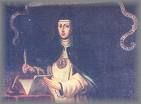
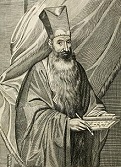








1643
On Jan. 20 Abel Tasman discovers Tonga, followed by the Fiji Islands,
almost wrecking on reefs in the NE part, then Vanua Levu and Cikobia
before making open sea and heading back and arriving at Batavia on June 15.
On Feb. 25 New Netherland gov.-gen. (since 1638) Willem Kieft (1597-1640) ignores advice from his Council of Twelve Men and orders the
Pavonia and Corlears Hook Massacre of 120 Indians incl. women and children on Feb. 25, 1643, resulting in
Kieft's (Wappinger) War (1643-5).
On Mar. 18 the Battle of New Ross sees the British under Thomas Butler, earl of Ormonde defeat the Irish rebels under
Thomas Preston, 1st Viscount Tara (1585-1655).
On Mar. 19 (Sun.) the Battle of Hopton Heath sees royalist
Spencer Compton, 2nd Earl of Northampton (b. 1601) charge too eagerly and get surrounded by parliamentary soldiers under
Sir John Gell (1593-1671) and Sir William Brereton (1604-61),
who offer him quarter, which he scorns as coming from such base rogues and rebels, after which he is KIA from a blow to his puffed-up head.
In Mar. 1 large royalist force from Newark under brainy William Cavendish, 1st Duke of Newcastle-upon-Tyne (1592-1676)
invades Lincolnshire and captures Grantham in a surprise attack, then march toward Boston, causing 1.5K Parliamentary troops under Lord Willoughby of Parham to unsuccessfully try to block them on Apr. 11
at the Battle of Ancaster Heath, after which Cavendish makes a surprise attack on Lord Willoughby's troops on
May 13 in Breton, killing 70 and taking 40 POWs, until Oliver Cromwell leads a cavalry charge that routs them, becoming his first independent action as a cavalry cmdr.
On Apr. 12 the leave-me-in-your-will-you're-Cadillac's-talking title of Duke of Hamilton
is created as the #1 peer of Scotland by Charles I for royalist James Hamilton, 1st Duke of Hamilton (1606-49); in
1711 after the Act of Union the duke of Hamilton is also created English duke of Branded, er, Brandon; meanwhile the new duke tries to mediate between Charles I and the British Parliament,
and when that fails, he refuses to take the Covenant, and is kicked out of Scotland, arriving in Oxford on Dec. 16, but he soon pisses-off the king, who sends him to Pendennis Castle next Jan.,
then St. Michael's Mount, where he stays until Lord Fairfax and his troops liberate him on Apr. 23, 1646 - these pesky Scots are ever a nuisance?
In Apr. former lord high adm. (1630-48) Algernon Percy, 10th Earl of Northumberland, 4th Baron Percy (1602-68)
heads a Parliamentary delegation that meets with Charles I in Oxford, but he won't budge, and after Northumberland returns to London, he becomes the target of war hawks, causing him to retire to
his estates at Petworth, while other "peace lords" join the king at Oxford, but in Sept. he returns to London and takes the Covenant, turning into a hawk when Scots start occupying his lands in N England.
Here comes the Sun King - pass the Pampers?
On May 14 sickly king (since May 14, 1610) Louis XIII (b. 1601) dies of TB, and his 4-y.-o. son
Louis XIV (the Great) (the Sun King) (1638-1715)
becomes Bourbon king #3 of France (until Sept. 1, 1715), with his mother Anne of Austria as regent, who falls to her knees and cries "My king and my son!";
she confirms Cardinal Mazarin as first minister; he is partial to mistresses, beginning with his Roman-born niece
Marie Mancini (1639-1715), and to white bechamel sauce, made by his chief steward
Louis de Bechamel, Marquis de Nointel (1630-1703),
and thinks of England as "a little garden full of sour weeds"; after Louis XIV grows up into a short man, he begins wearing a towering wig to appear tall, starting a fashion;
he continues mixing the Bourbon line with other brands, er, branches, with his brother Philip founding the House of Orleans, and his grandson Duke Philip of Anjou becoming Philip V of Spain
and founding the Spanish House of Bourbon.
On May 19 five days after Louis XIII's death, 25K Spanish invaders from the Netherlands led by Gen. Francisco de Melo (1597-1651)
living under an illusion of invicibility are defeated by a French citizen army of 23K led by 22-y.-o. Louis II de Bourbon, Duc d'Enghien (1621-86)
(prince of Conde in 1646), who uses cowboy tactics with his cavalry, combined with superior artillery against the unbeaten Spanish infantry at the
Battle of Rocroi, the last big battle of the Thirty Years' War, ending Spanish military ascendency in Europe and clearing
the way for French ascendency under Louis XIV; Louis II becomes a hero, and is made a prince in 1646, and later called the Great Conde; unpopular Spanish PM (since 1621)
Count-Duke Olivares becomes the fall guy, and retires to Toro, and is succeeded by his nephew
Luis Menendez de Haro y Sotomayor, 6th Marquis of Carpio, 3rd Duke of Olivares (1598-1661);
too bad, Spanish "Blue Nun" Maria Fernandez Coronel, Abbess of Agreda (1602-65)) gains influence over him, causing him to abolish the
function of valido, which put a PM in charge of all documents given to the king to sign, reducing his power greatly.
On July 15 (July 5 Old Style) Gov. John Winthrop records a sudden storm in Essex County, Mass. that was
"so violent for half an hour as it blew down multitudes of tres"; it may be the first tornado recorded in the U.S., although it might have only been a line squall.
On July 23-27 the Cavaliers led by Prince Rupert and his Devil Poodle take Bristol.
In July Anne Hutchinson (b. 1591), her mother and siblings and five of her children are massacred by Siwanoy Indians in East Chester, Pelham Bay, N.Y.;
only daughter Susannah survives because the Indians freak at her red hair, and raise her as an Indian until she is ransomed back years later;
Rev. Falwell, er, Gov. Winthrop calls her death "a special manifestation of divine justice"; in 1987 Mass. Gov. Michael Dukakis pardons her and revokes Winthrop's order of banishment.
On Aug. 11 after Charles I and Prince Rupert siege the last Roundhead bastion of Gloucester, a giant egg-shaped mortar brought from France by
English poet laureate William Davenant explodes on its first discharge opposite the castle at Gawdy Green (modern-day Brunswick Square), after which Gloucester is relieved in Sept.; in
1797 Samuel Arnold composes the poem Humpty Dumpty, with the lines:
"Humpty Dumpty sat on a wall,/ Humpty Dumpty had a great fall,/ Four-score Men and Four-score more,/ Could not make Humpty Dumpty where he was before."
On Aug. 16 the Parliamentary enemies of Charles I, led by the ailing John Pym (1583-1643) sign the
Solemn League and Covenant,
which ultimately does Charles I in, as it promises the Scots religious reforms if they aid Parliament, specifically "the preservation of the reformed religion in the Church of Scotland...
the reformation of religion in the kingdoms of England and Ireland, in doctrine, worship, disciple, and government, according to the Word of God, and the example of the best reformed churches";
the Westminster Assembly drafts the Westminster Confession of Faith, the first major Presbyterian statement of belief.
On Sept. 2-Oct. 12 the










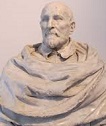
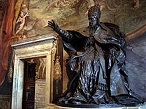
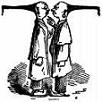
1644
On Jan. 25 the royalists (incl. soldiers sent from Ireland) under John Byron, 1st Baron Byron (1599-1652)
are routed by the Parliamentary forces under Sir Thomas Fairfax and Sir William Brereton at the Battle of Nantwich;
George Monck, 1st Duke of Albermarle (1608-70)
is taken POW and put in the Tower until 1647, when he convinces Parliament of his loyalty and is sent to Ireland to become gov. of Ulster; meanwhile in Jan.
James Butler, 12th Earl of Ormonde (1610-88) (later promoted to 1st duke of Ormonde ),
who had supported Thomas Wentworth since 1640 in his campaigns in Ireland is made lord lt. (viceroy) of Ireland (until 1650), going on to assist
Randal MacDonnell, 1st Marquess of Antrim (1609-83)
to send an Irish Confederate expedition led by Alasdair MacColla (1610-47)
into Scotland to help the Scottish royalists.
On Mar. 23 the Dutch send a punitive expedition to Cambodia over the destruction of their factory the year before.
On Mar. 31 after Duke Odoroardo defeats the papal forces in the Battle of Lagoscuro,
a peace is agreed to in Ferrara, ending Odoardo's excommunication, restoring his fiefdoms and permitting the grain shipments to Rome to resume so his
Roman creditors can be paid, ending the First War of Castro (begun 1641); the whole affair discredits the papacy as a military power.
In Mar. after France intervenes on Parma's side, the War of Castro (begun 1642) ends with the defeat and humiliation of Pope Urban VIII,
after which Parma forms an anti-papal league with Venice, Tuscany and Modena for self-protection.
In Mar. Suffolk-born Matthew Hopkins (1620-47)
overhears witches discussing their meetings with the Devil in Manningtree (near Colchester), Essex, and appoints himself (or gets Parliament to appoint him)
"witchfinder-general", getting around the prohibition of torture with sleep deprivation and making them hop around until they confess, also pricking them
looking for the Devil's mark that will not bleed, launching his 14-mo. career (ends 1647) in East Anglia along with asst.
John Stearne (1610-70),
going on to hang more people for witchcraft than in the previous cent., incl. 300 women.
Three strikes and the Roundheads are not out? Three strikes and the Cavaliers are not out?
On Apr. 11 the royalists are defeated at the Battle of Selby
by Parliamentary forces led by
Ferdinando Fairfax, 2nd Baron Fairfax of Cameron (1584-1648),
a longtime MP and gen. of the Parliamentarian forces in Yorkshire; on June 29 the royalists led by personally Charles I score a big V at the




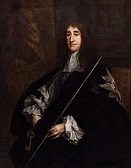



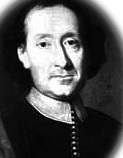
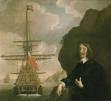
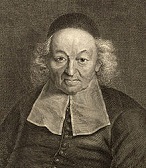



1645 The 70-year Maunder Minimum (period of low sunspot counts) begins (ends 1715); the Thames River freezes every winter, and there is famine throughout Europe and China, beginning a series of bad weather, poor harvests, and plagues worldwide; in 1645 the summer in England is excessively hot and dry, causing small animals and birds to suffer from heat-borne diseases; in 1645-6 Russia suffers droughts, plagues of locusts; in 1647- S Russia suffers early frosts and poor harvests, creating widespread food shortages; this year a great storm in Shanghai, China causes the sea to break the dikes, flooding the fields with salt water and destroying the rice crop; this year intense rains in Crete destroy crops and bldgs.; in Sept. a year-long rainstorm in Sicily destroys the winter harvest and seriously reduces the summer harvest; in winter 1645/6 Ukraine suffers a cruel winter filled with frosts and heavy snow, followed by heavy spring rains that make roads impassible, destroying the harvest and causing starvation among the Cossacks on the lower Dnieper River; in Aug. 1646 cold rainy weather causes wheat prices to reach record-setting levels, followed by bad harvests for five years as cattle die from murrain, with peak wheat prices in 1648-9; in fall 1646 a great drought begins, lasting through the spring; in 1646 a great storm strikes Holland and Denmark, killing 110K with floods; meanwhile in 1646 the sea breaks in at Dullar in Friesland and Zealand, drowning 100K in 300 villages, plus 10K in Dordrecht, Netherlands; in 1646 the Iberian Peninsula suffers a disastrous harvest; in 1646 a locust plague in Moldavia destroys the harvest, leaving not even one blade of grass, doing ditto in 1647 and 1648; in 1646 torrential rains in Turkey are followed by a drought in 1647, which destroy Istanbul's harvest surpluses and create a food shortage;in 1646-7 a super-cold winter stops a Mughal invasion of Afghanistan; in May 1647 the weather in S Spain turns cold, "even worse than the coldest January dry", resulting in the worst harvest of the cent.; in 1647 the harvest in France fails, causing even the royal court to suffer a food shortage, leading to the 1648-53 Fronde Rev. that kills 1M; in 1647 there is a famine in Crimea; in Apr.-Nov. 1648 it rains every day in Holland, causing crops to rot in the fields, after which 6 mo. of frost and snow cause the canals to freeze, stopping barge traffic; in 1648 bad weather ruins the harvest in S Italy, causing grain prices in Naples to quadruple; in 1648 heavy rains in Yucatan, Mexico result in a yellow fever plague, after which an extraordinary drought produces wildfires that destroy all remaining crops, leaving the ground sterile, killing almost half the pop. by 1656; in 1649 floods in England and France; in 1649-50 rain and wars cause famine in Scotland and N England, followed by plague in England and Ireland; in 1650-1 Scotland has its worst drought in 1K years, while Ireland suffers a major famine. On Jan. 10 Anglican archbishop of Canterbury (since 1633) William Laud (b. 1573) is beheaded by order of the Puritan-controlled Parliament under a bill of attainder. In Jan. peace talks at Uxbridge fail, and armistice ends, beginning the Great Scottish Rebellion; after Archibald Campbell, 8th Earl and 1st Marquess of Argyll (1607-61), gov. of Scotland sides with the English Parliament, Charles I holds Earl James Graham of Montrose back from leading a Scottish insurrection until Argyll begins invading England, resulting in Montrose's "year of miracles", as his outnumbered royalist army wins on Feb. 2 at the 2nd Battle of Inverlochy Castle (first in 1431), then takes Aberdeen, Brechin, and Dundee. In Feb. after winning a power struggle with his boss, Episcopalian gen. Edward Montagu, 2nd Earl of Manchester (1602-71), new English MP for Cambridge (until 1649) Oliver Cromwell (1599-1658) begins reorganizing Parliament's armies into the tight Puritan New Model Army, England's first prof. army, with officers selected by merit; Cromwell's Ironsides Regiment (from a nickname given him by the Royalists, alluding to Edmund Ironside) gives his whole army a nickname. In Feb. Edward Hyde is knighted and made a member of Charles I's privy council, then appointed chancellor of the exchequer in Mar. In Mar. Parliament appoints Algernon Percy, 10th earl of Northumberland as guardian of Charles I's two children Princess Elizabeth and the Duke of Gloucester (York), with talk about him becoming king if negotiations with Charles I fail, causing him to totally back the war party (Independents), although he balks at voting in favor of a bill of attainder against his old backer Archbishop Laud. On Apr. 3 after failing to pass the House of Lords on Dec. 9, the Self-Denying Ordinance is passed by the Long Parliament, prohibiting MPs from holding a military command, causing Ferdinando Fairfax to resign as gov. of York, the earl of Essex to resign as CIC of the Parliamentary army, and Sir William Waller to resign his military career; Oliver Cromwell, Sir Thomas Middleton, and Sir William Brereton are exempted from the ordinance; Ferdinando's son Thomas Fairfax, 3rd Lord Fairfax of Cameron (1612-71) becomes CIC of the Parliamentary army, with Oliver Cromwell as his lt. gen., who becomes the real boss; Waller, a Presbyterian, grows bitter and begins flopping to the royalist side. On May 2 after French marshal Turenne crosses the Rhine River with a refitted army in hopes of linking up with Tortensson, then chases the undermanned Bavarians under gen. Franz von Mercy deep into Wurtemburg, the Bavarians catch him looking the other way at the Battle of Mergentheim (Marienthal) (Herbsthausen), causing them to flee, becoming Turenne's first D; luckily French reinforcements arrive, and Turenne stages a comeback tour on Aug. 3 at the Second Battle of Nordlingen (Battle of Allerheim), his 12K troops defeating the 12K troops of Gen. Mercy (b. 1590) (with equal losses of 5K on each side) despite the cowboy Duc d'Enghien (is he the Great Conde yet?) almost losing it for them; Mercy is KIA; freaked Bavarian elector Maximilian I sends envoys to arrange a separate peace, causing French envoys to meet them next Jan. at the Congress of Munster (ends Jan. 30, 1648). On May 9 the royalists under the earl of Montrose and Alasdair MacColla win a V over the Covenanters under Sir John Hurry (Urry) at the Battle of Auldearn, seemingly guaranteeing Scotland for Charles I by the summer. On May 11 a relief column led by Col. Ralph Weldon (1606-76) arrives at Taunton, but they too get trapped, until an Ordinance for a Collection for Relief of Taunton is passed on May 24, after which more troops arrive on June 14, spared from the Battle of Naseby. On May 31 after Charles I sends them to divert Parliamentary forces under Gen. Thomas Fairfax (whom Charles I calls "the rebels' new brutish general") from his main base at Oxford, the royalist Cavaliers led by Prince Rupert win the Battle of Leicester, capturing the city; too bad, on June 14 Cromwell's New Model Army intercepts Charles I on his march back to Oxford, and wins a big V at the Battle of Naseby, where eye-on-fashion Charles I wears shining armor and rides a Flemish horse, contrasting with the drab Puritan army, which proceeds to kick his royalist army's butt by 1 p.m., with 1K royalists KIA and 6K taken POW, causing Prince Rupert to tell Charles I that the royalist cause is lost and urge him to conclude a peace with Parliament, causing Charles to flee to Wales; on July 10 the Parliamentarians win another big V at the Battle of Langport, breaking Charles I's military back; the royalists then lose Carlisle, Winchester, and Basingstoke. On July 12 (July 23 Old Style) tsar (since 1613) Michael I Romanov (b. 1596) dies, and his son Alexis I (1629-76) becomes Russian Romanov tsar #2 (until Jan. 29, 1676). In July after mending relations with the Indians with plenty of wampum, Adriaen Cornelissen van der Donck (1618-65) AKA "Jonkheer" (young gentleman) (first lawyer in North Am.) is granted 24K acres on the future site of Yonkers, N.Y. N of Manhattan near the junction of the Hudson and Nepperhan Rivers, going on to build his Colen Donck estate along with several mills; meanwhile the pop. of Amsterdam decides to remove dir.-gen. (since 1638) Willem Kieft, picking Peter Stuyvesant. In July witch-pricker (hunter) John Stearne (1610-70) tries 29 people for witchcraft in Chelmsford, getting 15-16 hanged; nine convicted of conjuring are reprieved. On Aug. 23 after reducing Bridgewater, eliminating the Dorsetshire Clubmen, and capturing Sherborne Castle, the New Model Army under Lord Fairfax begins the Second Siege of Bristol (ends Sept. 10). On Aug. 25 Edward Somerset, 2nd Marquess of Worcester, created earl of Glamorgan last year by Charles I signs a secret treaty with the Irish Roman Catholics in Kilkenny to supply military aid; too bad, after the Irish loyalists complain, Charles I repudiates it. On Aug. 31 after the Swedes under Count Hans von Konigsmark terrorize Saxony enough, elector Johann Georg I signs a 6-mo. armistice with them, granting them Leipzig, rights of free passage, and financial support; sad Saxony is out of the Thirty Years' War, and is kaput as a major Euro power. On Sept. 11 Prince Rupert surrenders Bristol to the Cromwellians under Thomas Fairfax, pissing-off Charles I, who fires him, causing Rupert to demand a court-martial, which acquits him, although he never fights for the !?!*? royalists again. On Sept. 13 the Battle of Philiphaugh sees the Parliamentarians under Scottish soldier David Leslie (1601-82) (later 1st Baron Newark) surprise and defeat the earl of Montrose, causing his heterogenous, badly disciplined army to dissolve, finishing the royalist cause in Scotland; Montrose decides to switch to guerrilla warfare. In Oct. Parliamentary soldier Henry Ireton (1611-51) (who was wounded and captured at Naseby) is elected to Parliament after escaping. On Nov. 12 Parliamentary CIC Thomas Fairfax arrives in London to applauding crowds, after which both houses of parliament present him thanks along with expensive jewels set with diamonds, plus money; meanwhile Charles I returns from Wales to Oxford, then chickens out and heads to Newark to gain the protection of the trusty Scots. In Nov. the Siege of Dunster Castle in Somerset by Parliamentary forces begins; it surrenders next Apr. The Turks begin fighting Venice for control of Crete (ends 1669) as part of a gen. plan to control the Mediterranean (which reaches fruition in 1715), starting the Fifth Venetian-Turkish (Cretan) War (of Candia) (ends 1569) by landing in W Crete - was it worth it? After a Bavarian-imperialist army is blown to pieces by the mobile artillery of the Swedes at the Battle of Jankow, the Torstensson War (begun 1645) ends with the Peace of Bromsebro (Brömsebro), whereby Denmark is stripped of its power by rival Sweden; big britches Axel Oxenstierna is created a count; burned-out Lennart Tortensson retires next year, and dies at age 48. The Dutch occupy St. Helena. Zheng Zhilong (1604-61) forms a pirate band in Formosa (Taiwan), which raids the SE China coast. Godavarma dies, and Veerarayira Varma (d. 1646) becomes ruler of Cochin. Dahomey king (since 1620) Dakodonou dies, and his nephew Aho Houegbadja (-1685) becomes king #3 of Dahomey in W Africa (until 1685), founding the capital city of Abomey (Agbome) ("middle of the ramparts") near Guedevi (modern-day pop. 90K). The town of Tarrytown, N.Y. (Dutch "tarwe" = wheat) in Westchester County, N.Y. 25 mi. N of midtown Manhattan (modern-day pop. 11.2K0 is first settled by Dutch farmers, later becoming the place where Maj. John Andre is arrested as a spy in 1780, the subject of Washington Irving's "The Legend of Sleepy Hollow", a favorite residence of rich John D. Rockefeller (1893) and Standard Oil Co. pres. John D. Archbold, and the site of the Tappan Zee Bridge, which carries the New York State Thruway to South Nyack, Rockland County, and Upstate N.Y. French nurse Jeanne Mance (1606-73) establishes Hotel-Dieu (Fr. "Hostel of God") de Montreal in Montreal, Canada, becoming the first hospital in North Am. A ship from Cambridge, Mass. defeats an Algerian ship in a naval encounter; James Fenimore Cooper later calls this the first Am. naval battle. The Iroquois drive the Algonquin-speaking Ottawa tribe from their homes in the upper Ottawa River of Canada, and they take refuge in Manitoulin Island in Lake Huron, from where they try to move to the S shore of Lake Superior, until the Sioux force them back; by next cent. they extend their territory to all of lower Michigan, parts of Ohio and Ill., and the Canadian side of Lake Huron. The city of Brooklyn (Dutch "Breuckelen" = marshland) on the East River at the SW end of Long Island in New Amsterdam (modern-day pop. 2.6M), named after the town of Breukelen near Utrecht is founded near the modern-day borough hall; on Jan. 1, 1898 it is merged into the City of New York as one of five boroughs, although as a city it becomes the 3rd most populous city in the U.S. after Los Angeles, Calif. and Chicago, Ill. Schwein, er, swine pens in the inner town of Leipzig are pulled down. Capuchin monks explore the Congo River - capuchino, bwana? The weekly Ordinarie Post-Tijdended (Regular Mail Times) is founded in Stockholm by Queen Christina and Chancellor Axel Oxenstierna, with all postmasters in Sweden required to submit news reports for the newspaper, which is posted on bulletin boards throughout the country; in 1791 Gustav III designates the Swedish Academy to pub the newspaper; in 1821 it merges with the Inrikes Tidningar (Domestic Times) to form the Post-och Inrikes Tidnigar (PoIT) (Post and Domestic Times). London scientists Robert Boyle et al. hold preliminary meetings of the Philosophical College, leading to the foundation of the Royal Society of London for Improving Natural Knowledge in 1662 after the Restoration. Italian-born composer Jean-Baptiste Lully (1632-87) becomes a violinist at the French court. Cardinal Mazarin summons a Venetian opera co. to Paris. Andre Le Notre (1613-1700 becomes the gardener of Louis XIV (until 1700), going on to build the park of the Versailles Palace, extending the Tuileries W to create the later site of the Champs-Elysees avenue and the Axe Historique (Voie Triopmphale). The 32-gun Constant Warwick, built by Peter Pett (1610-72) in Ratcliffe is launched, becoming the first English frigate in the English Royal Navy; originally built as a privateer for the earl of Warwick, the navy hires it in 1646 and buys it in 1649; it is captured by the French in 1691. Architecture: The Dalai Lama's Residence in Lhasa, Tibet is begun. Jacob van Campen (1595-1657) begins the Nieuwe Kerk (New Church) (finished in 1649), with a Renaissance tower designed by Lieven de Key (1560-1627), becoming the first church in Haarlem specifically built for Protestant services. Jacques Lemercier and Francois Mansart design the Baroque Val-de-Grace (Val-de-Grâce) Church in Paris, and on Apr. 1 Louis XIV lays the cornerstone; it is finished in 1667. Nonfiction: Leo Allatius (1586-1669), De Quorundam Graecorum Opinationibus; first Western accounts of a vyrkolakas, a combo between a werewolf and a vampire in Greek lore. Ismail Bouillaud (1605-94), Astronomia Philolaica; popularizes Kepler's elliptical orbits and assumes the inverse-square law for the first time; most important book on astronomy between Kepler and Newton? Hermann Busenbaum (1600-68), Medulla Theologiae Moralis, Facili ac Perspicua Methodo Resolvens Casus Conscientiae; textbook on Jesuit moral theology; a big hit, going through 200+ eds. by 1776, becoming the std. Roman Catholic textbook on moral theology for 200+ years. John Cotton (1585-1652), The Way of the Churches of Christ in New England. Sir Kenelm Digby, A Treatise on Bodies and of Man's Soul. Lord Herbert of Cherbury (1582-1648), De Causis Errorum. Thomas Fuller (1608-61), Good Thoughts in Bad Times; prayers and meditations. Marc Aurelio Severinus, Zootomia Democritaea; a treatise on comparative anatomy, recognizing the unity of the vertebrates, but claiming man as the basic archetype designed by God - green eyed lady, child of Nature, friend of man? Art: Jacob Jordaens (1593-1678), Wife of Candaules. Isaac van Ostade (1621-49), A Winter Scene. Rembrandt van Rijn (1606-69), The Rabbi; Young Girl at an Open Half-Door. David Teniers the Younger (1610-90), Tavern Scene. Diego Velazquez (1599-1660), King Philip IV on a Boar Hunt. Music: Francesco Paolo Sacrati, La Finta Pazza; the first opera performed in Paris. Heinrich Schutz (1585-1672), Die sieben Worte Christi am Kreuz (oratorio). Plays: Pierre Corneille (1606-84), Theodore, Vierge et Martyre (tragedy). Tristan l'Hermite (1601-55), La Morte de Crispe. Paul Scarron (1610-60), Jodolet (comedy). Poetry: Vitzentzos Kornaros, Rotokritos (Cretan epic poem). Novels: Pedro Calderon de la Barca (1600-81), El Gran Teatro del Mundo. Births: British Tory politician Sidney Godolphin, 1st Earl of Godolphin (d. 1712) on June 15 in Breage, Cornwall; of an ancient Cornish family. French essayist-moralist Jean de La Bruyere (Bruyère) (d. 1696) on Aug. 16 in Paris. French-Canadian explorer Louis Jolliet (Joliet) (d. 1700) on Sept. 21 in Beaupre (near Quebec City), Quebec. British pirate Capt. William Kidd (d. 1701) in Greenock, Scotland. English theologian John Mill (d. 1707) in Shap, Westmorland; educated at Queen's College, Oxford U. French alchemist (druggist) Nicholas Lemery (d. 1715). Deaths: French feminist writer Marie de Gournay (b. 1565). English statesman-historian Sir Richard Baker (b. 1568) on Feb. 18 in Fleet Prison London; in jail for his wife's debts. German gen. Count Georg Friedrich von Hohenlohe (b. 1569) on July 7 in Langenburg. English feminist poet Emilia Lanyer (b. 1569). English Anglican archbishop William Laud (b. 1573) on Jan. 10 (executed). Spanish poet-statesman Francisco Gomez Quevedo y Villegas (b. 1580) on Sept. 8 in Villanueva de los Infantes; dies poor and broken for not keeping his mouth shut. German postmaster (1615-28) Johann von den Birghden (b. 1582) on Mar. 4 in Frankfurt am Main. French chemist Jean Rey (b. 1582) in Le Bgue. Dutch jurist, statesman and father of internat. law Hugo Grotius (b. 1583). English Catholic founder Mary Ward (b. 1585). Spanish PM (1621-43) Gaspar de Guzman, Conde-Duque de Olivares (b. 1587) on July 22 in Toro. German gen. Franz von Mercy (b. 1590) on Aug. 3 near Nordlingen. Dutch navigator Anthony van Diemen (b. 1593). Russian tsar (1613-45) Michael I Romanov (b. 1596) on July 12 in Moscow. English MP (1624-45) William Strode (b. 1598) on Sept. 9; given a public funeral in Westminster Abbey by order of Parliament, then exhumed after the Restoration. Am. Mass. colonial leader Israel Stoughton (b. ?); returned to England in 1644, became an officer in the Parliamentary Army, was KIA, and bequeathed 300 acres in Dorchester, Mass. to Harvard College.

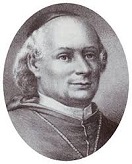





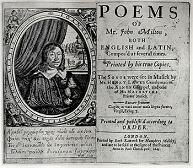
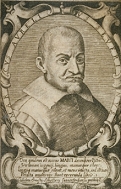

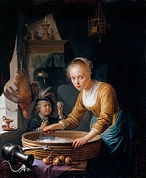

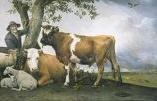
1646 On Mar. 28 James Butler, 1st duke of Ormonde signs a treaty with the Irish Confederates granting religious concessions et al., but their gen. assembly rejects it after archbishop Giovanni Battista Rinuccini (1592-1653), nuncio of Pope Innocent X talks them out of it, after which those who signed it are arrested and the truce with Ormonde is called off, moving in on his stronghold in Dublin. On Apr. 14 the Peace of Eilenberg renews the armistice between Sweden and Saxony. On May 5 Charles I disbands his army at Oxford and flees to Newark, surrendering to the Scottish Covenanters, after which his former enemy Alexander Leslie gives him refuge in Scotland (until Jan. 1647); on May 14 the royalist army in the @ surrenders; on June 25 Oxford surrenders to the Roundheads, and Prince James is taken POW and put under house arrest in London (until 1648); Charles I banishes Prince Rupert and his brother Maurice from England. On July 4 Veerararayira Varma dies, and Veera Kerala Varma IV (d. 1650) becomes ruler of Cochin in India (until 1650). On July 30 after Charles I surrenders to the Scottish army and orders it, the earl of Montrose disbands his army at the Haugh of Rattrary near Blairgowrie in Perthshire, then escapes to Norway, ending up in Paris next year; in Sept. Col. Thomas Blagge (1613-60) (father of Margaret Blagge, later known as Mrs. Godolphin) surrenders Wallingford Castle to gen. Sir Thomas Fairfax, but only after his king gives him permission, becoming the last royalist regiment to surrender; the Puritan army ransacks the religious community of Little Gidding in Huntingddonshire, founded by Nicholas Ferrar (1592-1637), who had created a "Protestant nunnery" there that was highly regarded by Charles I; Parliamentary commissioners present Charles I with the Newcastle Propositions, demanding acceptance of the Nat. Covenant, installation of a Presbyterian form of church govt., surrender of control of the armed forces for 20 years. On Sept. 11 Odoardo I (b. 1612) dies, and his eldest son Ranuccio II Farnese (1630-94) becomes duke #6 of Parma and Pacienza (until 1694), inheriting a heavy financial and diplomatic burden after all that Castro mess in 1641-4. The Swedes under gen. Carl Gustav Wrangel take Prague, then invade Bavaria and hook up with the French under field marshal Turenne, confusing Maximilian with Turenne's "le style indirect" until he quits the imperial alliance; meanwhile the duc d'Enghien captures Dunkirk, and succeeds his father Henry II as prince of Conde, becoming lord of Burgundy, Berry, and large parts of Lorraine, which alarms Cardinal Mazarin and causes them to become enemies. Edward Hyde falls out of favor with Charles I, and is sent to Jersey as one of the guardians of Prince Charles, who fled there from the Scilly Isles, and finally flees to France, living with his mother Henrietta Maria at St. Germain, and setting up a court which becomes a center of intrigue. The Great Elector of Brandenburg marries Louise, daughter of Frederick Henry of Orange. Edward Winslow (1595-1655) is sent by the govt. of Mass. to England to answer some charges against the colonists, and gets in good with Oliver Cromwell, extending his stay and never returning to Plymouth. Bond, James Bond, Pt. 3? The Eleutherian Adventurers, a group of English Puritans occupy the Bahamas, renaming their island Eleuthera (Gr. "freedom), founding the first permanent Euro settlement after Columbus' 1492 arrival wiped out the aboriginal Taino pop.; after settling Sayle's Island (New Providence), they end up living off salvaged goods from wrecks. The Cambodians cave-in to the Dutch punitive expedition. French missionary Isaac Jogues (b. 1607) returns to North Am. as a French ambassador to the Mohawks, and discovers Lake George; he concludes a peace treaty with them, goes to Quebec to plan a new permanent Indian mission, then is captured by a hostile faction of Mohawks, charged with sorcery and murdered near modern-day Auriesville, N.Y. English settlers found Ft. St. George (White Town) in Madras, India, giving them three centers in India along with Surat and Madras (Chennai). The Saugus Iron Works (originally Hammersmith) in Saugus, NE Mass. is founded, becoming the first integrated iron works in North Am., producing over 1 ton of iron a day, becoming one of the most technically advanced in the world, closing in 1670. London-born poet Abraham Cowley (1618-67), who sided with the royalist cause joins Queen Henrietta Maria in Paris, and becomes her cipher secy, returning to England as a spy in 1655 and getting caught and imprisoned, then landing on his feet after the Restoration, being granted a competency by one of Charles II's nobles. After learning their language, English-born clergyman John Eliot (1604-90), who was turned onto nonconformism by Thomas Hooker and came to British North Am. in 1631 begins preaching to Indians without an interpreter in Nonantum (Newton), Mass., becoming known as "the Apostle of the Indians". Cardinal Mazarin disbands the Musketeers (until 1657). English philosopher Thomas Hobbes becomes math tutor to the prince of Wales (later Charles II) in exile (until 1648). The French Royal Academy of Painting and Sculpture in Paris is founded by 12 artists, incl. Laurent de La Hyre. Dutch artist Paulus (Paul) Potter (1625-54) moves to Delft, joins the St. Luke Painters' Guild, and goes on to paint 175 canvasas and make 20 etchings by the time of his death at age 28, almost all of animals and landscapes, his #1 hit being The Bull. Architecture: The Church of St. Sulpice in Paris is founded by priest Jean-Jacques Olier (1608-57) on the ruins of the original 13th cent. Romanesque church. The Lustgarten (Pleasure Garden) on Museum Island in C Berlin near the Berlin City Palace (Berliner Stadtschloss) is built; in 1713 King Friedrich Wilhelm I turns it into a sand-covered parade ground; in 1790 Friedrich Wilhelm II turns it back into a park, which doesn't stop Napoleon from drilling his troops there in 1806. Inventions: The Japanese learn of the camera obscura from the Dutch. Science: Italian surgeon-anatomist Marco Aurelio Severino (1580-1656) pub. De Efficaci Medicina (3 vols.), becoming the first to describe refrigeration anaesthesia using snow-ice mixtures. Nonfiction: Sir Thomas Browne (1605-82), Pseudodoxia Epidemica, or, Enquiries into Very Many Received Tenets, and Commonly Presumed Truths; 6th ed. 1672; debunks legends in a Baconian manner. John Cotton (1584-1652), Spiritual Milk for Babes, Drawn Out of the Breasts of Both Testaments, Chiefly for the Spiritual Nourishment of Boston Babes in Either England; catechism for children; first children's book in Am.? Baltasar Gracian (1601-58), The Complete Gentleman (El Discreto); the ideal of the sophisticated man of the world. James Howell (1594-1666), Louis XIII. Marco Aurelio Severino (1580-1656), De Efficaci Medicina (3 vols.); first to describe refrigeration anaesthesia using snow-ice mixtures. Jeremy Taylor (1613-67), A Discourse Concerning Prayer. Bishop John Wilkins (1614-72), Ecclesiastes. Edward Winslow (1595-1655), Hypocrisie Unmasked. Art: Gerrit Dou (1613-75), Girl Chopping Onions. Jan van Goyen (1596-1656), Village Church in the Sand Dunes. Laurent de La Hyre (1606-56), Cornelia Refuses the Crown of the Ptolemies. Bartolome Esteban Murillo (1617-82), The Angel's Kitchen. Rembrandt van Rijn (1606-69), Adoration of the Shepherds. Music: Sir Elton John, The Tumbleweed Connection (album); contains Where Now, St. Peter?, the "blue canoe" song :) - just checking if you're awake? Plays: Jean Rotrou, Le Veritable Saint Genest (drama). Poetry: John Milton (1608-74), Poems of Mr. John Milton both English and Latin, Compos'd at Several Times; pub. by royalist Humphrey Moseley; rev. ed. pub. in 1673; incl. On the Morning of Christ's Nativity; also L'Allegro (The Merry Man) and Il Penseroso (The Serious Man), becoming the most famous companion poems in English lit.? James Shirley (1596-1666), Poems. Sir John Suckling (1609-42), Fragmenta Aurea. Henry Vaughan (1621-95), Poems. Births: French economist (Jansenist) Pierre Le Pesant, Sieur de Boisguillebert (Boisguilbert) (d. 1714) on Feb. 17 in Rouen; of an ancient noble Norman family allied to that of Pierre Corneille. French "The Thousand and One Nights" orientalist-archeologist Antoine Galland (d. 1715) on Apr. 4 in Rollot, Picardy. Danish-Norwegian king (1670-99) Christian V (d. 1699) on Apr. 15 in Flensburg; son of Frederick III and Sophie Amalie of Brunswick-Luneburg; husband (1667-) of Charlotte Amalie of Hesse-Cassel. French #1 Baroque architect Jules Hardouin-Mansart (Hardouin) (d. 1708) on Apr. 16 in Paris; grand-nephew and pupil of Francois Mansart (1598-1666). French botanist and Minim monk Charles Plumier (d. 1704) on Apr. 20 in Marseille; student of Joseph Pitton de Tournefort (1656-1708); namesake of genus Plumeria. German world's greatest genius (WGG) (philosopher, mathematician, scientist et al.) Baron Gottfried Wilhelm (von) Leibniz (d. 1716) on July 1 (June 21 Old Style) (7:15 p.m.) in Leipzig, Saxony; son of Freidrich Leibniz (1597-1652), prof. of moral philosophy at the U. of Leipzig, who leaves him a large personal library, which he starts mastering at age 7, mastering Latin by age 12; mother is Catharina Schmuck; educated at the U. of Leipzig, and U. of Altdorf. German Baroque "Adam and Eve" composer Johann Theile (d. 1724) on July 29. English portraitist Sir Godfrey Kneller (d. 1723) on Aug. 8 in Lubeck, Germany; educated in Amsterdam; emigrates to England in 1675. English astronomer royal #1 (1675). John Flamsteed (d. 1719) on Aug. 19 in Denby; educated at Derby Free School, and Jesus College, Cambridge U. French classical scholar Jean Hardouin (d. 1719) on Dec. 23 in Quimper, Brittany. Deaths: English-born Am. anti-Puritan atty.-writer Thomas Morton of Merry Mount (b. 1576). German composer Johann Stobaeus (b. 1580). Scottish theologian Alexander Henderson (b. 1583) on Aug. 19 in Edinburgh. English art collector Thomas Howard, 2nd earl of Arundel (b. 1585) on Oct. 4. English gen. Robert Devereux, 3rd earl of Essex (b. 1591) on Sept. 14. French martyr (St.) Isaac Jogues (b. 1607) near Auriesville, N.Y. (martyred); leaves Journal of St. Isaac Jogues. Italian duke of Parma and Piacenza (1622-46) Odoardo I Farnese (b. 1612) on Sept. 11. Chinese Prince of T'ang (b. ?).



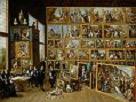

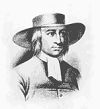






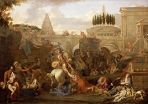

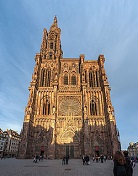
1647 There is a yellow fever epidemic in Barbados, characterized by victims bleeding from their eyes, nose, and mouth, and into their stomach, causing them to vomit partially-digested "wet coffee grounds" blood; later traced to monkeys in West Africa, vectored to man by mosquitoes, esp. Aedes (Aëdes) aegypti, and brought to the New World by African slaves - serves whitey right? On Jan. 30 after refusing to subscribe to the Solemn League and Covenant, Charles I is ransomed from the Scottish Calvinists by Parliament, and held at Holmby House; Parliament (which still has royalist members) votes to disband most of the army. On Mar. 14 the Treaty (Truce) of Ulm is signed by France, Sweden, and Bavaria; Bavarian elector Maximilian I is forced to renounce his alliance with HRE Ferdinand III and agree to remain neutral in the war in order to get the invading French-Swedish army to leave Bavaria, but in the fall he reneges, later causing a revenge mentality to insist on the breakup of the whole rotten *!?*! Holy Roman Empire; the electors of Mainz and Landgrave of Hesse withdraw from the war. The Apr. ed. of the newspaper Perfect Occurences of Every Daie Journall in Parliament in London pub. the first newspaper ad, hawking the book The Divine Right of Church Government. On May 11 Peter (Pieter) Stuyvesant (1592-1672) arrives in New Amsterdam to become dir.-gen. #7 of New Netherlands (until 1664), introducing tea to North Am. On May 26 Alse (Alice) (Achsah) Young (b. 1600), convicted of witchcraft in Windsor, Conn. is hanged in the Hartford, Conn. Meeting House Square, becoming the first recorded execution of a witch in New England - oh my God I feel like Sisyphus when a guy came along and offered me a beer break? On June 3 a Parliamentary army kidnaps Charles I, and on June 7 Oliver Cromwell and Charles I meet for the first time, and Charles blunders again, turning down the lenient terms. On June 19 James Butler, 1st duke of Ormone surrenders Dublin to the Parliamentarians under personal trainer, er, Col. Michael Jones (-1649), uttering the soundbyte "I prefer English rebels to Irish ones", and sails for England in Aug.; the Catholic lords of the Pale, who only want toleration for the Catholic religion split ranks with the native Irish, who want their ancient land system restored. In Sept. Cromwell sieges Cashel Castle in County Tipperary, Munster, and piles peat outside the walls to kill all 3K trapped inside. On Nov. 11 after Oliver Cromwell's army (which refused to disband) rescues him, he flees to the Isle of Wight; after the moderate Covenanter Scots get antsy about Cromwell, they switch to Charles I's side, becoming known as the Engagers, and he negotiates a secret agreement with them on Dec. 28 whereby they agree to help restore him to his Divine Right throne in exchange for his consent to the abolition of the Scottish episcopacy, starting the "Second English Civil War"; meanwhile in Dec. a final attempt by Parliament to negotiate with Charles I, led by Algernon Percy fails. Masaniello (Tommaso Aniello) (b. 1622) leads a revolt against the Spanish overlords of Naples (ends 1648), and is assassinated. Frederick Henry of Orange dies, and is succeeded by his son William II of Orange (1626-50), who goes on to become the father of William III of England. Thirty Years' War gen. (former bishop) Archduke Leopold Wilhelm of Austria (1614-62) (elder brother of HRE Ferdinand III) becomes gov. of the Low Countries (until 1656), where he becomes a great art patron and maintains a cool gallery in Brussels containing expensive masterworks, which is portrayed in a 1650 painting by David Teniers the Younger, whom he hires this year as the keeper. A revolt begins against Tsar Alexis I in Moscow. The Turks begin sieging Chandax (Heraklion) on Crete (ends 1669). The Mass. colony enacts the Ye Olde Deluder Satan Act, which requires every town of 50 or more families to set up a grammar (Latin) school. English Cavalier poet Robert Herrick (1591-1674), vicar of Dean Prior in Devonshire since 1629 is deprived of his living because of his royalist sympathies; he is reinstated in 1662 after the restoration. After having a vision on rainy Pendle Hill in Lancashire, claiming that "the Lord let me see in what places he had a great people to be gathered", leaving his hometown of Drayton-in-the-Clay in Sept. 1643 to travel through civil war-filled England, learning to listen to his "inner light" and reject rituals, church buildings, and age-sex qualifications for the religious ministry (giving the right to women and children), Leicestershire, England-born Puritan George Fox (1624-91) begins to speak publicly, founding the Religious Society of Friends (Quakers), who believe it possible to have a direct experience of Christ without the need for clergy, making fans of William Penn and Oliver Cromwell. Danforth's Plantation on the Sudbury River 20 mi. WSW of Boston, Mass. is founded, becoming known as Framingham by 1700. The U. of Bamberg is founded by Prince-bishop Melchior Otto Voit von Salzberg to teach Roman Catholic theology. The Dresden Academy of Arts in Germany is founded. The Anglican profs. of Oxford U. are dismissed. Pierre Corneille is elected to the French Academy. The Lutherans acknowledge the Calvinists as their co-religionists. Brother scientists Thomas Bartholin (1616-80) and Rasmus (Erasmus) Bartholin (1625-98) of the U. of Copenhagen define Anthropology as follows: "Anthropology, that is to say the science that treats of man, is divided ordinarily into Anatomy, which considers the body and the parts, and Psychology, which speaks of the soul." Architecture: 142m-tall Notre Dame de Strasbourg Cathedral in France is finished, becoming the world's tallest bldg. (until 1874). The Unter den Linden (Ger. "under the linden trees") in C Berlin begins as lime trees are planted on his bridle path between the Royal Palace and Tiergarten hunting park, later running from the City Palace (Berlinder Stadtschloss) to the Brandenburg Gate. Science: French astronomer Adrien Auzout (1622-91) proves that air has barometric pressure. Nonfiction: John Cotton (1584-1652), The Bloody Tenent Washed and Made White in the Blood of the Lamb; replay to pesky Roger Williams by a Puritan leader in Mass. Bay Colony. Thomas Fuller (1608-61), Better Thoughts in Worse Times. Sir Ferdinando Gorges (1566-1647), Briefe Narration of the Originall Undertakings of the Advancement of Plantations into the Parts of America. Baltasar Gracian (1601-58), The Art of Worldly Wisdom (Oraculo Manual y Arte de Prudencia); 300 aphorisms; "A beautiful woman should break her mirror early"; "At 20 a man is a peacock, at 30 a lion, at 40 a camel, at 50 a serpent, at 60 a dog, at 70 an ape, and at 80 nothing"; "He that can live alone resembles the brute beast in nothing, the sage in much, and God in everything". Johannes Hevelius (1611-87), Selenographia; first atlas of the moon's surface, plus star catalog. Thomas May, History of the Long Parliament. George Monck, 1st Duke of Albemarle (1608-70), Observations on Military and Political Affairs; written while imprisoned in the Tower. Art: Gianlorenzo Bernini (1598-1680), The Ecstasy of St. Theresa (1647-52) (sculpture) (Santa Maria della Vittoria, Rome); showing St. Teresa of Avila receiving a phallic golden shaft through the heart from an angel, causing her to have a holy orgasm? Charles Le Brun (1619-90), The Massacre of the Innocents. Peter Lely (1618-80), The Young Children of Charles I. Claude Lorrain (1600-82), The Mill. Adrien van Ostade (1610-85), Peasant Family in an Interior. Paulus Potter (1625-54), The Young Bull; life-size. Nicolas Poussin (1594-1665), Moses Rescued from the Waters. Rembrandt van Rijn (1606-69), Susannah and the Two Old Men. Plays: Francis Beaumont (1584-1616) and John Fletcher (1579-1625), Comedies and Tragedies (posth.); the first collected ed. of 24 of their plays. Jean Rotrou, Venceslas (drama). Poetry: Abraham Cowley, The Mistress, or Several Copies of Love Verses. Henry More (1614-87), Philosophical Poems; "compared his chief speculations and experiences". Births: German scientific illustrator Maria Sibylla Merian (d. 1717) on Apr. 2 in Frankfurt. German Wettin elector of Saxony (1680-91) ("the Saxonian Mars") marshal Johann Georg (John George) III (d. 1691) on June 20 in Dresden; only son of Johann Georg II (1613-80) and Magdalene Sybille of Brandenburg-Bayreuth; father of Johann George IV (1668-94) and Augustus II the Strong (1670-1733). French physicist Denis Papin (d. 1712) on Aug. 22 in Blois; educated at the U. of Angers. Am. British gov. of Mass. (1702-15) Joseph Dudley (d. 1720) on Sept. 23 in Roxbury, Mass.; son of Thomas Dudley (1576-1653); educated at Harvard College. French Huguenot scholar-critic Pierre Bayle (d. 1706) (pr. BEL) on Nov. 18 in Carla-le-Comte (Carla-Bayle) (near Pamiers); father is a Calvinist minister; becomes a Roman Catholic in 1669 at a Jesuit college, then 17 mo. later flops back to Calvinism, showing that he's thinking for himself? English Restoration composer Pelham Humphrey (Humfrey) (d. 1674) in London. Persian shah (1666-94) Suleiman (Sulayman) I (d. 1694); eldest son of Abbas II (1633-66). Deaths: Am. Narragansett Indian chief Canonicus (b. 1565). Am. Sir Walter Raleigh's wife (1591-) Bess Raleigh (b. 1565). English colonizer Sir Ferdinando Gorges (b. 1566). Dutch merchant Willem Usselincx (b. 1567); dies broke. Dutch poet-dramatist Pieter Hooft (b. 1581) on May 21 in The Hague. Dutch prince of Orange (1625-47) Frederick Henry (b. 1584) on Mar. 14 in The Hague. English-born Am. Conn. founder Thomas Hooker (b. 1588) on July 7 in Hartford, Conn. Dutch dir.-gen. of New Netherland (1638-47) William Kieft (b. 1597) on Sept. 17 near Swansea, Wales; dies in a shipwreck of the Princess Amelia from New Amsterdam en route to Amsterdam. Italian astronomer-mathematician Francesco Cavalieri (b. 1598) on Nov. 30 in Bologna. Italian physicist-mathematician Evangelista Torricelli (b. 1608) on Oct. 25 in Florence. English witchhunter-gen. Matthew Hopkins (b. 1620) on Aug. 14 in Manningtree, Essex (TB)?. Neapolitan patriot Masaniello (Tommaso Aniello) (b. 1622) on July 16 in Naples (assassinated).
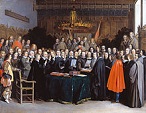

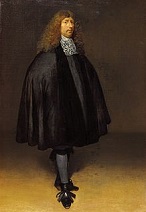







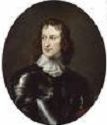


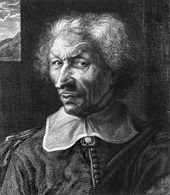


1648 Silly rabbi, kicks are for what? Where's the Da Vinci Code for this? Many Jews believe that this will be the year when their Messiah returns, and guess what, Qabbalistic ascetic miracle-performing future-predicting angel-communicating rabbi Sabbatai (Shabbethai) Zevi (1626-76) proclaims himself the Messiah in his hometown of Smyrna, Turkey by publicly pronouncing the unpronounceable Divine Name of God (the Tetragrammaton YHVH), and founds the Jewish Sabbatean Sect; too bad, the local rabbis don't go for it, esp. when he dares to eat non-kosher food, and get him banished from Smyrna in 1651 (1654?), after which he comes up with a document allegedly by Father Abraham naming him as the "true Messiah", who "will sit upon My throne", and tries to set up in Salonica, but is kicked out by its rabbis, and tries it again in Alexandria, Athens, Constantinople and Jerusalem, until he converts rich Jew Raphael Joseph Halabi of Aleppo, master of the mint in Cairo, and sets up in style in 1660-2. Don't you worry about what's on your mind or mine? In early Jan. the War of the Fronde (a children's sling used to hurl clods at coaches), an attempt by the French nobility to limit the royal power (like in England just across the Channel?) on the excuse of the minority of Louis XIV begins in France (ends 1653), based on a protest to the registration of royal tax edicts; on Jan. 15 a lit de justice (meeting of reps. to enforce an edict) raises taxes, and Parliament passes it after first breaking tradition and examining it, and presenting oral remonstrances on Apr. 7 calling upon Queen Anne to relieve the people from heavy taxes; on May 13 Parliament rebels against the queen, causing her to have its deputies and judges arrested, and on June 8 forbids it to meet, then flip-flops when they refuse to disband; on July 4 Parliament assumes legislative powers, breaking tradition. On Jan. 21 Md. landholder Margaret Brent (1601-71) appears before the assembly and stages an unsuccessful campaign to secure "place and voice" there, becoming the beginning of the Am. woman suffrage movement? On Jan. 30 the Spanish and Dutch officially recognize their tacit peace with the Treaty (Peace) of Munster (Münster), recognizing Dutch independence and ending their 80-year war; it is signed on May 15; the Dutch ignore their 1644 alliance with France that pledged to make no separate peace with Spain. On Feb. 28 Christian IV (b. 1577) dies, and his son Frederick III (1609-70) becomes king of Denmark and Norway, going on to introduce absolute monarchy, influenced by being a younger son brought up thinking he'd never be king then getting lucky? On Mar. 22 French physician Guy (Gui) Patin (1601-72) writes a letter about tea drinking in Paris, calling it "the impertinent novelty of the century", mentioning the new book by Dr. Philibert Morisset titled Ergo Thea Chinesium, Menti Confert (Does Chinese Tea Increase Mentality?), pub. in Paris, praising tea as a panacea, with the soundbyte: "One of our doctors, named Morisset, who is much more of a braggart than a skilful man... caused a thesis on tea to be published here. Everybody disapproved of it; there were some of our doctors who burned it, and protests were made to the dean for having approved the thesis. You will see it and laugh at it"; the work draws so much ridicule from physicians that nobody else tries it for years. In Mar. French gen. Turenne and Swedish gen. Wrangel unite their armies in Ansbach for an attack on Bavaria, moving S while pushing the imperial and Bavarian armies under Gen. Melander across the Danube River; on May 17 the Battle of Zusmarhausen near Augsburg is a D for Melander, who is KIA and his army crushed, falling back to Augsburg then beyond the Inn, while Gen. Piccolomini is recalled from Spanish service to lead the remaining imperial forces, holding the Swedes behind the Inn, allowing them to devastate Bavaria, after which they withdraw beyond the Lech with Piccolomini in pursuit; meanwhile a small army under Gen. Konigsmarck sent by Wrangel passes through the Upper Paltinate and invades Bohemia, devastating it, reaching Prague on July 2 and occupying the Kleine Seite quarter with the aid of a traitor former imperial officer, stealing a bunch of cool paintings by court portraitist Giuseppe Arcimboldo; after Karl Gustav (later Charles X of Sweden) arrives with reinforcements, they attempt to capture the rest of the city, but are held off by Jesuit-led students of Caroline U. until news of the Nov. Peace of Westphalia arrives. On Apr. 21 (night) Prince James dresses in drag to evade the guards and escapes confinement in London, assisted by Col. Bampfield, who helps him take a barge down the Thames to a waiting Dutch ship, and he arrives in the Low Countries on Apr. 23, staying in exile until 1660. On May 2 Wladyslaw IV (b. 1595) dies after keeping Poland out of the Thirty Years' War, and his Jesuit former cardinal (1646) half-brother Jan (John) II Casimir (Kazmierz) (1609-72) becomes king of the Polish-Lithuanian Commonwealth (until Sept. 16, 1668), soon facing troubles with the Cossacks and Swedes, starting with the Khmelnytsky Uprising in Ukraine (ends 1657), a Cossack reaction to Polish colonialism that results in Poles, Roman Catholics, and Jews being massacred; on May 26 the Battle of Korsun sees an army of Cossacks Crimean Tatars under Hetman Bohdan Khmelnytsky and Tugay Bey score a V against Polish-Lithuanian Commonwealth forces under Hetman Mikolaj Potocki and Hetman Marcin Kalinowski. On May 15 the wonderfully unholy Thirty Years' War (begun May 23, 1618) ends after 29 years, 11 months, 3 weeks, and 1 day, causing the pop. of Germany to drop from 17M in 1618 to 8M, and the pop. of the Holy Roman Empire from 21M to 13M, caused by holy war, holy famine, and holy plague?; meanwhile the pops. of other European countries have all grown (since 1500): Britain by 5M-7.5M; France by 12M-15M; Italy by 10M-12M; Low Countries by 2.5M-3.5M; Scandinavia by 2M-2.5M; Spain: by 6.5M-7.5M (not counting its Am. colonies). In May the Second English Civil War (ends 1649) begins when Charles I's Covenanter army in Scotland, joined by both the Protestant and Catholic Irish invades England; on May 8 the Battle of St. Fagans sees royalist insurgents in Wales heavily defeated; Prince Charles of England moves to Holland (where his sister Mary is married to the Prince of Orange) to support his daddy Charles I in his invasion of England, and takes "brown, beautiful, bold but insipid" (John Evelyn) Lucy Walter (1630-58) (former mistress of Roundhead officer Algernon Sidney) as his first mistress, later bearing him famous the bastard son and pretender James Scott, 1st Duke of Monmouth (1649-85); in the summer he leads a royalist fleet to Britain, which does little more than pull off a little piracy off the coast of Kent; the people in W Scotland who oppose Charles I become known as Whiggamores, later shortened to Whig. On June 15 Margaret Jones is hanged in Charlestown (Boston), Mass., becoming the 2nd person executed for witchcraft in New England. On July 8 James Hamilton, 1st Duke of Hamilton leads a large Scottish force into England in support of Charles I, and proves incompetent, letting his 24K troops wander over the country, making it easy for Oliver Cromwell, who on Aug. 17-20 in the Battle of Preston is in sole command for the first time ever, showing his brilliance and ruthlessness and winning a decisive V, then following through by cutting off the Scottish retreat, telling his troops "Take courage to do the work of the Lord", causing them to kill 20K Scots, and force Hamilton to surrender on Aug. 25 to gen. John Lambert (1619-84) at Uttoxeter in the West Midlands; Hamilton is beheaded next Mar. 9; the Siege of Colchester, led by Parliamentary gen. Thomas Fairfax ends on Aug. 28 with a really big D for Charles, who is about at the end of his royal rope. On Aug. 12 sultan (since 1640) Mad Ibrahim I (b. 1615) is deposed and murdered by a coup led by the grand mufti (who spreads the story that he was about to drown all 280 members of his harem), and buried beside Mad Mustafa I; he is succeeded by his 6-y.-o. son Mehmed IV Avji (1642-93), who becomes Ottoman sultan #19 (until Nov. 8, 1687). Peace between C's and P's - see this week's cover of Newsweek? On Oct. 24 after exit of the Protestant Dutch from the war causes Roman Catholic HRE Maximilian II to take up arms again, causing the Swedes under Gen. Wrangel and French under field marshal Turenne to march on the Danube and defeat him. On Oct. 24 (Sat.) the Thirty Years' War (begun May 23, 1618) between the Holy Roman (Catholic) Imperial Crown and the Protestant Princes of Europe ends with the compromise Peace of Westphalia (AKA Two Treaties of Munster and Osnabruck); Cardinal Mazarin's envoy Abel Servien, Marquis de Sable (Sablé) et de Boisdauphin (1593-1659) signs for France, becoming minister of state on his return to France next Apr., then becoming de facto gov. of France during Mazarin's exile during the Fronde; the map of Europe is redrawn; the Holy Roman Empire (HRE) is pretty much kaput, along with its dream of reestablishing the Roman Catholic Church in N Germany; "Spain yielded everything for which the Dutch contended"; France receives Metz, Toul, Verdun, Dreisach, and Pinerolo; Holland (except for the Spanish Netherlands) and, thanks to the diplomacy of Basel burgomaster Johann Rudolf Wettstein (1594-1666), the Swiss Confederation (despite being officially neutral during the war) are recognized as free repubs., and the Dutch Repub. of the United Provinces becomes one of the great continental powers, enjoying a golden age of art and lit., with Amsterdam becoming the financial thicker-than-a-soup-thinner-than-a-stew center of Europe; Prussia arrives as a power; the once-mighty Holy Roman Empire is reduced to about 300 independent principalities and 1.5K semi-sovereign bodies or individuals, and the diet is reduced to an assembly of ambassadors of the princely states; France and Spain remain at war until 1659, but peace is brought to most of distracted Europe, the religious warfare ushered in by the Reformation closes, and the modern principle of European nationality is established; the Early Modern Period in Europe begins, shifting the emphasis to the activities of nat. monarchies and their wars as well as to the rise of Serpent, er, Science; on Nov. 26 Pope Innocent X condemns it all in his bull Zelo Domus Dei; the territorial settlements remain practically undisturbed almost to the French Rev.; France gains the bishoprics of Meta, Toul, and Verdun, and a large part of Alsace in NE France (until 1790), beginning its land grab on the NE at the expense of the HRE for more than a cent.; the electorate of Brandenburg acquires Eastern Pomerania, the archbishopric of Magdeburg, the Cleves-Julich lands near the Rhine, and the duchy of East Prussia (formerly owned by the Teutonic Knights), and now it is free to expand both E and W over N Germany, making it the 900 lb. gorilla of the German empire, and causing a rivalry with Austria (which controls S Germany) which dominates European politics in the 18th cent.; Bavaria receives the Upper Palatinate (Nordgau) together with the Palatinate of the Rhine's electoral vote, and Charles I Louis (1617-80), son of Winter Queen Elizabeth of Bohemia (daughter of James I of England) regains his daddy Frederick V's Palatine electorship; Saxony acquires most of Lusatia from Austria; Sweden gains Western Pomerania and the bishoprics of Bremen and Verden at the mouth of the Elbe River, as well as Ingria from Russia, and Estonia and Livonia from Poland, giving her command of both shores of the Baltic, shutting Russia off from it, and vaulting Poland to the rank of a great European power; the town hall (built 1486-1512) of the city of Osnabruck (Osnabrück) in Lower Saxony (27 mi. NE of Munster) where the Peace of Westphalia is signed later becomes home to portraits of all the plenipotentiaries involved; the Alsatian town of Hagenau becomes more liberal towards its Jews under French control. New beds, new lobbies, deeper mattresses, crisper sheets, with wifi? The tail wags the dog in Bible paradise England? On Dec. 1 the Parliamentary army again seizes Charles I, and imprisons him at Carisbrooke Castle on the Isle of Man, where he agrees to abolish the English episcopacy, pleasing the the Independents in Cromwell's party who stand for wide tolerance in religious matters; Cromwell demands an end of allegiance to the king, and Parliament responds with a Declaration on Charles I's Misdeeds; the king offers some concessions to Parliament, which are rejected; on Dec. 6 Parliament's army, commanded by Col. Thomas Pride (-1658) stages Pride's Purge, arresting 45 loyalist MPs and keeping 186 others (mostly Presbyterians) out, expelling 75% of the members (all but the Independents), leaving the Rump (Purged) Parliament of about 90 members (of which only 50-60 regularly attend sessions, sitting on their rumps), representing only the army by this point, which operates sansa checks by the House of Lords and orders Charles I tried for treason. After the earl of Ormond concludes a peace with the Roman Catholic lords of the Pale granting them the right of free exercise of the Roman Catholic religion, Oliver Cromwell goes over the Old T and leads his army in, with Henry Ireton as his second-in-command - put that Wagner tape on? The revolt in Naples ends, and it is restored to Spanish rule. The Cossack Revolt devastates the Ukraine; hundreds of thousands of Jews are slaughtered - where's Taras Bulba? Persia recaptures Kandahar (Qandahar) from the Mughals, who had seized it in 1638. A revolt drives the Portuguese out of Muscat, Oman after 140 years (1508). The fortress of Klis is recaptured from the Ottomans by the Venetians. The aborigine pop. in the Caribbean, almost 1M at the time of Columbus, is now almost nil - the rib ain't back at McDonald's? The Iroquois defeat the Huron, who are driven into Canada. Prince Rupert takes command of that portion of the English fleet loyal to the king. A Dutch East India Co. ship is stranded in Table Bay, South Africa, and after rescue the crew gives glowing reports of the natural resources, causing a colonization expedition to be sent in 1652. Starting this year English political and military offenders as well as convicts are transported to the colonies to avoid execution. Mirrors and chandeliers begin to be manufactured in Murano, Italy (near Venice). The Academie Royale de Peinture et de Sculpture is founded in France, later becoming the Academie des Beaux-Arts. Aria and recitative become two distinct unities in airy restive op op opera. Architecture: The white-domed marble Taj Mahal at Agra, India (begun 1628) is completed, complete with four corner minarets. Jacob van Campen begins building the Amsterdam Town Hall in the Netherlands (finished 1655). The Kongelige Bibliothek (Royal Library) in Copenhagen is founded, becoming one of the largest libraries in the world, and largest in the Nordic countries, containing a copy of all works printed in Denmark in the 17th cent., and almost every Danish printed work back to 1482. Science: German-Dutch chemist Johann Rudolf Glauber (1604-68) discovers (makes) hydrochloric acid. Blaise Pascal proposes the concept of air pressure in barometers, having his brother-in-law carry one up a mountain and record its readings to show that higher altitudes have lower air pressure. Nonfiction: Anon., Emek Halachah; claims that the location of the Ark of the Covenant "shall not be revealed until the day of the coming of the Messiah son of David." Thomas Gage (1597-1656), The English-American His Travel by Sea and Land; or A New Survey of the West Indies; Roman Catholic-turned-Anglican draws on his years of travels to systematically expose Spanish-Am. military weaknesses and call for English military adventures to attack and loot them, becoming a big hit with Oliver Cromwell. Johann Baptista van Helmont (1579-1644), Ortus Medicinae, vel Opera et Opuscula Omnia (posth.); contains the concept of enzymes in digestion, and observes that plants gain weight from water and not the soil, establishing him as important in the transition from alchemy to chemistry, influencing Robert Boyle; English trans. 1662 as "Oriatrike; or, Physics Refined". John Lilburne (1614-57), The Foundation of Freedom, or An Agreement of the People. John Stearne (1610-70), A Confirmation and Discovery of Witchcraft. Bishop John Wilkins (1614-72), Mathematical Magic. Art: Gerard ter Borch (1617-81), Peace Congress of Munster (Münster); based on his personal attendance; contains 60 miniature portraits on copper incl. The Swearing of the Oath of Ratification of the Treaty of Munster (Münster), The Ratification of the Treaty of Munster (Münster), May 15, 1648. Bartholomeus van der Helst (1613-70), The Celebration of the Peace of Munster (Münster); Banquet of the Amsterdam Civic Guard in Celebration of the Peace of Munster (Münster). Claude Lorrain (1600-82), Embarcation of the Queen of Sheba. Nicolas Poussin (1594-1665), The Holy Family on the Steps; Eliezer and Rebecca; Landscape with Diogenes. Jusepe de Ribera (1591-1652), The Mystic Marriage of (the Holy Family with) St. Catherine. Rembrandt van Rijn (1606-69), The Pilgrims at Emmaus. Diego Velazquez (1599-1660), The Thread Spinners. Music: Heinrich Schutz (1585-1672), Musicalia ad Chorum Sacrum. Poetry: Robert Herrick (1591-1674), Hesperides, or the Works both Human and Divine of Robert Herrick; his magnum opus; 1.2K short poems, incl. To the Virgins, to Make Much of Time ("Gather ye rosebuds while ye may,/ Old time is still a-flying;/ And this same flower that smiles today,/ To-morrow will be dying"), and Corinna's Going a-Maying ("Come, let us goe, while we are in our prime;/ And take the harmlesse follie of the time./ We shall grow old apace, and die/ Before we know our liberty./ Our life is short; and our dayes run/ As fast away as do's the Sunne:/ And as a vapour, or a drop of raine/ Once lost, can ne'r be found againe"). Novels: Paul Scarron (1610-60), Le Roman Comique. Births: Dutch New Amsterdam settler Harmen Jansen Knickerbocker (d. 1721) on Mar. 18 in Friesland, Holland; one of the earliest New Amsterdam settlers; his name Knickerbocker (Dutch "marble baker") becomes generic for New York families descended from Dutch settlers. English St. Paul's Cathedral #1 woodcarver (Quaker) Grinling Gibbons (d. 1721) on Apr. 4 in Rotterdam, Netherlands; emigrates to England in 1667. French mystic Quietist leader Jeanne-Marie Bouvier de la Motte-Guyon (Madame Guyon) (d. 1717) on Apr. 13 in Montargis. Portuguese king (1683-1706) Pedro II (d. 1706) on Apr. 26 in Lisbon; brother of Alfonso VI (1643-83). Mexican feminist Sor Juana Ines de la Cruz (d. 1695) on Nov. 12. Scottish Covenanter minister Richard Cameron of Huddersfield (d. 1680) in Falkland, Fifeshire; founder of the Reformed Presbyterians. Norwegian poet ("Father of Modern Norwegian Poetry") Peter Dass (d. 1708) in Nord-Hero (Nord-Herö); son of a Scottish merchant from Dundee who moved to Bergen in 1630 and married a Norwegian girl; educated at the U. of Copenhagen. English Hoare's Bank founder Sir Richard Hoare (d. 1719) in London; grows up near Smithfield Market; starts out as a goldsmith; knighted in 1702; father of Henry "the Good" Hoare (1677-1725). English (Cornish) divine Humphrey Prideaux (d. 1724) in Padstow; educated at Westminster School and Oxford U. Deaths: Spanish Piarists founder St. Joseph Calasanctius (b. 1556) on Aug. 25 in Rome; canonized by Pope Clement XIII on July 16, 1767. Spanish dramatist Tirso de Molina (b. 1571) on Mar. 12 in Soria. German composer Johann Stadlmayr (b. 1575). Danish-Norwegian king (1588-1648) Christian IV (b. 1577) on Feb. 28 in Rosenborg Castle. English Deist philosopher Edward, 1st Baron Herbert of Cherbury (b. 1582). Scottish gen. Ferdinando, 2nd baron Fairfax of Camron (b. 1584). French philosopher-naturalist-mathematician Marin Mersenne (b. 1588) on Sept. 1. Dutch painter Daniel Mytens the Elder (b. 1590) in The Hague. Polish-Lithuanian king (1632-48) Wladyslaw IV Vasa (b. 1595) on May 20 in Merkine, Lithuania. French painter Louis Le Nain (b. 1593). French poet Vincent Voiture (b. 1598) on May 26; dies without pub. anything, but his verses and prose letters are posth. pub. by his nephew, having a big influence in lit. circles, helping Francoise de Malherbe reform French verse and Jean de Balzac reform French prose. Ottoman sultan #18 (1640-8) Ibrahim I the Mad (b. 1615) on Aug. 12 (murdered).






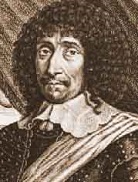





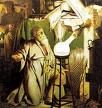
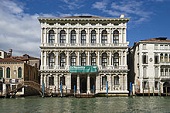
1649 England gets rid of a royal assahola and gets a non-royal assahola? On Jan. 4 after sending the House of Lords an ordinance creating a commission to try the king, only to have them reject it, Cromwell's Rump Parliament (House of Commons) declares itself the supreme power in the nation (effectively destroying the monarchy), and sets up the High Court of Justice in Westminster Hall to try Charles I, beginning on Jan. 20, with hatted Charles uttering the soundbyte: "I would know by what power I am called hither. I mean lawful. There are many unlawful authorities in the world. There are robbers and highwaymen"; Puritan reformer lawyer John Cooke (Cook) (1608-60) (known for being against using Latin in the courts, the death penalty except for murder and treason, imprisonment for debt, and the theory that heads of state are not above the law) bravely acts as the prosecutor of his own king, getting him convicted on Jan. 27 after a 7-day lube job of being a "tyrant, traitor, murderer and public enemy to the good people of this nation" after he three times refuses to plead; Algernon Percy leads a group in the House of Lords opposed to trying the king, causing him to be relieved of official duties in May; the treason is for enlisting French support in the English Civil War, and the trial witnesses the first modern legal argument against tyranny, based on the universal right to punish a tyrant?; quarterback Terry, er, Judge John Bradshaw (1602-59) pronounces the death sentence, and the death warrant is signed by 59 of 75 commissioners (judges), who later become known as the Regicides of Charles I (which label becomes very dangerous to their health in 1660); Oliver Cromwell utters the soundbyte that the execution of Charles I "'twas a cruel necessity"; the whole spectacle is fueled by the apocalyptic Fifth Monarchists, led by Puritan soldier Thomas Harrison (1606-60) (son of the mayor of Newcastle-under-Lyme, and cmdr. of the escort bringing kingy to London in Jan.), who believe that Jesus Christ is due to arrive in or around the upcoming big year of 1666 to bring the End Times like it says in the Bible book of Revelation; the king's children Prince Henry and Princess Elizabeth share their father's captivity and witness his last speeches, while his wife Henrietta Maria escaped to France in 1644, followed by his son Prince Charles in 1646, and his son Prince James in 1648, causing the homebody king (wife, kids, dogs, horses) to write to his queen "There was never man so alone as I"; on Jan. 30 (Sat.) (Jan. 20 Old Style) (noon) 5'4" Charles I (b. 1600) (a bitter cold day causing him to wear two shirts so he won't shiver and be accused of quaking with fear) drinks some claret and eats some bread, then is walked out of the first story window of the magnificent Banqueting Hall in Whitehall onto a raised platform so everybody can see, then is beheaded lying down after giving the Last Speech of Charles I, with the soundbyte: "I go from a corruptible to an incorruptible crown, where no disturbance in the world can be", after which a large groan comes up from the crowd; king-killing England and Wales are proclaimed a Commonwealth (Republic), shocking the Euros and the Scots, causing the Scottish parliament to immediately proclaim Prince Charles as Charles II, and he signs the Covenant to please them; Oliver Cromwell has Charles I's head resewn to his body; Gen. Thomas Fairfax resigns as Parliamentary army CIC after calling the trial rigged; Cook's asst. Isaac Dorislaus (b. 1595), who assisted in preparing the high treason charges while on a diplomatic errand to the estates-gen. of Holland is murdered on May 10 in The Hague by royalist refugees. On Jan. 5 the French king, royal family and ministers flee to Rueil Castle (owned by Cardinal Richelieu's niece the duchess of Aiguillon) while concentrating troops to siege Paris; the Great Conde is assisted by Caesar (César), Duc de Choiseul, Comte du Plessis-Praslin (1602-75), whose cook invents the sugar-almond confection praline; meanwhile parliament develops its own supply lines in and out of the city; on Mar. 11 the Treaty (Peace) of Rueil allows the king to return to Paris while the parliament goes to St. Germain; meanwhile provincial unrest is aided by the revolt of the princes, led by the Great Conde, who gains control of the govt. and fights the Frondeurs in Paris, but his brother the prince de Conti and his brother-in-law the duc de Longueville support the Frondeurs, causing him to switch sides next year after the truce; Cardinal Mazarin is forced to retire from the court, first to Bruhl, then to Sedan. On Jan. 17 James Butler, 1st duke of Ormonde, finding that the papal nuncio in Ireland had been expelled last Sept., returns from exile in Paris with the English queen and prince of Wales and concludes a peace with the Irish Confederates guaranteeing free exercise of their religion (but no more), then after Charles I is executed he proclaims his son Charles II and becomes cmdr. of the Irish Confederate armies along with English royalist troops landed from France. From Jan. 30 of this year until May 29, 1660 no more patents are issued in England because of the wear your crummy crownwell, er, Cromwell regime. Millennium Fever generates a new crop of holy commies? In Jan. Diggers founder Gerrard Winstanley (1609-76) pub. The True Levellers Standard Advanced; the Christian communist Levellers ("all men are created equal") (leveling real property) and Diggers (favorite name of their opponents) peak in England this year; too bad, in Apr. a Digger site on St. George's Hill in Weybridge (near Cobham, Surry) pisses-off the authorities, who sic New Model Army cmdr. Sir Thomas Fairfax on them, but after checking them ut he lets them along, pissing-off the lord of the manor Francis Drake (not the one 50 years earlier), who sends gangs to attack and beat them, then gets them railroaded on Ranter (sexual libertine) charges, after which they give up in Aug. and leave, then set up shop a short distance away in Little Heath, pissing-off the local lord of the manor Parson John Platt, who gets them hounded out next Apr., and by 1651 they are kaput. You got to change your evil ways, baby? On Feb. 5 Charles II, Prince of Wales (in exile at The Hague) is proclaimed king in Edinburgh, with the provision that he take the Covenant; the Irish proclaim him king and attack the small Parliamentary force in Ireland, trying to recapture Dublin; David Leslie switches sides and becomes the CIC of Charles II's Scottish armies, while Alexander Leslie, who also switches to the royalists steps down as CIC because of age and infirmity, but continues fighting - the original Find! with the Leslie twins? On Feb. 19 the Second Battle of Guararapes in Jaboatao dos Guararapes in Pernambuco, EC Brazil (founded on May 4, 1593) is a V for the Portuguese over the Dutch, who loses 1,045 casualties vs. only 245 for the Portuguese, convincing the Dutch to get out of Brazil., staying until 1654 then signing a treaty in 1661, leading to the creation of the Brazilian army. On Mar. 16 after waiting until the Huron defenders are away, 1.2K Iroquois capture the Huron village and Catholic mission in St. Ignace near modern-day Tay, Ont., torturing Jesuit Father (St.) Jean de Brebeuf (Brébeuf) (b. 1593) and his colleague (St.) Gabriel Lalemant (b. 1610) to death; the Iroquois defeat the Tobacco Nation; Brebeauf and Lalemant are canonized in 1930. On Mar. 17 the Rump Parliament abolishes the House of Lords and the kingship, destroys the royal crown and robes, and creates an executive council to be appointed annually by Parliament; toleration is granted to all except Catholics and Episcopalians; the second mass migration from the British Isles to the New World begins as thousands of wealthy royalist cavaliers and their indentured servants migrate from S England (Kent to Devon) to Va.; Puritan exiles from Va. in turn settle in Providence, Md.; too bad, by killing one king, another, his son Charles II sprouts up, safe in exile, trying to get support to make a comeback, however, despite sending their condolences, no Euro king will send him a single soldier, throwing him into the arms of the Scots, and the earl of Montrose, now in Paris, rallies an army and prepared to invade Scotland, but most of his troops are lost in a storm, and when he finally arrives, he is unable to rouse the clans. On Apr. 11 Jewish converso Tomas Trevino de Sobremonte (b. ?) is burned at the stake in Mexico City for practicing "the dead law of Moses". On Apr. 21 after William Claiborne uses the English Civil War and religion as a pretext to seize his beloved Kent Island from Md., only to be ousted in 1646, the Md. assembly passes the Maryland Toleration Act, professing a belief in the Holy Trinity, granting freedom to all Roman Catholics and Protestants, and providing the death penalty for blasphemy. In May the Third Agreement of the People is passed after the Levellers propose that armed forces should be raised strictly by local divisions, and officered by men elected locally; only the generals are to be appointed by Parliament. On Aug. 2 the Battle of Rathmines near Dublin sees the royalist army of James Butler, 1st duke of Ormonde routed by the Parliamentarians, causing Butler to build a line of fortified towns across Ireland in an attempt to stop Cromwell, who lands in Dublin in Aug. with 10K men, sieges Drogheda (home of the Irish parliament) on Sept. 3-11 and captures its garrison of 2K men, committing the Lenthall Massacre of 4K soldiers, civilians and priests, then scores another V on Oct. 2-11 at the Battle (Sack) of Wexford, killing 2K and committing more atrocities; he then implements the Cromwellian Settlement (ends 1652), evicting non-Protestant landowners E of the Shannon River and replacing them with Protestants (incl. his own men), selling Irish POWs into slavery in Barbados, where they intermarry with African women, creating the (future heavyweight boxing champs?) Black Irish; by next summer only isolated pockets of resistance remain in Ireland; Cromwell leaves Henry Ireton and Edmund Ludlow to finish the war, and they go on to deprive Irish Catholics of their political rights and confiscate and divide Irish land among Parliamentary soldiers, while banishing Catholic and Loyalist landowners to Clint Eastwood, er, Connacht (W Ireland). On Sept. 2 the Second War of Castro begins when Pope Innocent X accuses Duke Ranuccio II Farnese of murdering Cardinal Cristoforo Giarda (b. 1595) near Monterosi en route to become bishop of Castro (really it was because he reneged on paying the Roman creditors of his father), and seiges Castro for 2 mo., then razes it to the ground and crushes the troops of Parma near Bologna, seizing the whole fiefdom to pay the creditors, after which Ranuccio unsuccessfully tries to get it back by buying it. On Sept. 24 the Nuremberg Peace Banquet is hosted by future Swedish king Count Palatinate Karl Gustav of Zweibrücken in Nuremberg City Hall to celebrate the end of the Thirty Years' War. Who can turn the world on with his smile? He dug his own grave but the jury dug him out? On Oct. 20 "Free-Born" John Lilburne (1614-57), a Leveler who defends the liberties of all Englishmen, Cromwellians and royalists, and tried to save the king from being executed is saved from the gallows "by the power of the Lord and the integrity of his jury who are judge of law as well as fact" after he is arrested for pleading to spare the life of Charles I, and a jury tells the authorities to let him go free, becoming the first instance of floccinaucinihilipilification, er, jury nullification, the right of a jury to judge the justice of the law itself and to proclaim themselves the highest authority after getting in possession of all the facts of a case (a right the judge and prosecutor want to go away?); Lilburne gets off the same way in 1653, and ends up becoming a Quaker, becoming an inspiration to the U.S. Founding Fathers; too bad that by the 20th cent. the U.S. legal establishment regularly tries to keep juries from knowing about this power they have in order to railroad political prisoners? The Portuguese win a naval V over the Dutch off the coast of Brazil. Virginia and the Barbados declare for Charles II, causing Parliament to forbid them to carry on external trade except with ships owned or licensed by the Commonwealth. The Holy Roman Empire establishes a standing army in Austria. Injo dies, and next year Hyojong (-1659) becomes Yi king of Korea (until 1659). There is a major earthquake in Edo, Japan. John Milton is appointed foreign secy. of the English Commonwealth; English becomes the official language of all legal documents in Britain in place of Latin - a last slap to them papists? Royalist poet laureate Sir William Davenant leads an expedition to colonize Va., but is captured by the Puritans in the English Channel and sentenced to death, then put in the Tower (until 1652). Free enterprise in England receives state support. The Spanish viceroy of South Am. grants the reducciones (Jesuit frontier settlements) virtual independence. English Baptists Ebenezer Cartwright and Joanna Cartwright write from Amsterdam, calling for Parliament to lift the ban on Jews in England, from which they had been expelled since the days of Edward I Longshanks (1290). Official inventories list the late Charles I as owning 139 stud horses and 37 brood mares. Cossack leader Semyon Ivanovich Dezhnev explores Siberia and Alaska for Russia; Cossack Mikhail Stadukhin explores the Lena and Kolyma Rivers in Siberia. The English Repub. under Cromwell bans elaborate church music, thereby stimulating secular music composition? The Society for the Propagation of the Gospel Among the Indians in New England is created by the English Parliament; Am. clergyman John Eliot obtains their backing to found 16 settlements for converted Indians, which are broken up by King Philip's War in 1675. The enemies of Cardinal Mazarin pub. a phony ed. of Nostradamus' prophecies, dated 1568, contain two added quatrains aimed at him. Architecture: Baldassarre Longhena (1598-1682) begins building Ca' Rezzonico, in Venice on the Grand Canal, which is not completed until after his 1682 death; it is followed in 1659 by Ca' Pesaro, which is completed in 1710 by Gian Antonio Gaspari. Science: Nonfiction: Paolo Casati (1617-1707), Vacuum Proscriptum; states that Nature abhors a vacuum - think of those royal shoulders with no 'ead? Isbrand de Diemerbrock, De Peste; study of the plague by a Dutch physician. Rene Descartes (1596-1650), Les Passions de l'Ame. Edward Herbert (1582-1648), Life of Henry VIII (posth.). James Howell (1594-1666), A Perfect Description of the Country of Scotland. Johann Heinrich Hottinger (1620-67), Thesaurus Philologicus seu Clavis Scripturae (Zurich); 3rd ed. 1669. John Lilburne (1614-57), An Agreement for the Free People of England. John Milton (1608-74), The Tenure of Kings and Magistrates; response to the Presbyterians, arguing for the execution of Charles I; Eikonoklastes; response to the book Eikon Basilike: The Portraiture of His Sacred Majesty in His Solitudes and Sufferings, an alleged autobio. of Charles I written by his chaplain John Gauden and pub. on the day of his death, which portrays him as a martyred saint, and goes through 60 printings within a year. Robert Montagu, Lord Mandeville, Travels (1649-54); first Grand Tour diary? Alexander Ross (1590-1654) (tr.), The Alcoran of Mahomet, Translated out of Arabique; first English trans. of the Quran, based on a 1647 French trans. by Andre du Ryer. ? Rushworth, Rushworth's Collections; record of the Parliamentary battles leading up to the English Civil War. Henry Tuberville, The Douay Catechism. Johann Vogel, Meditationes Emblematicae de Restaurata Pace Germaniae; contains an illustration of a camel passing through the eye of a needle to show the folly of the Peace of Westphalia. Bishop John Wilkins (1614-72), A Discourse Concerning the Beauty of Providence. Edward Winslow (1595-1655), Glorious Progress of the Gospell Amongst the Indians in New England - ask your son about it later when the smoke clears? Art: Ferdinand Bol (1616-80), The Regents of the Leper Hospital (Town Hall, Amsterdam). Nicolas Poussin (1594-1665), Landscape with Polyphemus; Vision of St. Paul; painted for Paul Scarron. Jacob van Ruisdael (1628-82), The Banks of a River. Gerard ter Borch (1617-81), Portrait of Philip IV of Spain. Music: Francesco Cavalli (1602-76), Giasone (Jason) (opera) (Teatro San Cassiano, Venice) (Jan. 5); about Jason and the Golden Fleece; "single most popular opera of the 17th century." Johann Cruger (1598-1662), Geistliche Kirchenmelodien; hymns. Plays: William Cavendish, 1st Duke of Newcastle-upon-Tyle (1592-1676), The Country Captain (AKA Captain Underwit); The Varietie. Andreas Gryphius (1616-64), Carolus Stuardus; German tragedy about Charles I. Richard Lovelace (1618-58), To Lucasta, Going Beyond the Seas; To Althea, From Prison; To Lucasta, Going to the Warres; "Stone walls do not a prison make, nor iron bars a cage"; "I could not love thee, dear, so much, Lov'd I not honour more". Poetry: Anon., Lachrymae Musarum; collection of elegies to mourn Henry Hastings, who died right after the execution of Charles I, showing the inside of Royalist culture. Friedrich von Spee (1591-1635), Trutz-Nachtigall (posth.). Novels: Madeleine de Scudery (1607-1701) and Georges de Scudery (1601-67), Artamene (Artamène), ou le Grand Cyrus (10 vols.) (1649-53) (13,095 pages, 2.1M words; longest novel in French lit. until ?). Births: English "I Will Always Give Thanks" organist-composer John Blow (d. 1708) on Feb. 23 in North Collingham, Nottinghamshire; teacher of William Croft and Henry Purcell. Italian violin maker Girolamo Amati (Hieronymus II) (d. 1740) on Feb. 26 in Cremona; son of Nicolo Amati (1596-1684); fails to keep the quality up to the level of Antonio Stradivari, after which the family goes out of biz. English physician Sir John Floyer (d. 1734) on Mar. 3 in Hints, Staffordshire; educated at Oxford U. Am. college administrator Elihu Yale (d. 1721) on Apr. 5 near Boston, Mass; of Welsh descent; namesake of Yale U. English pretender James Scott (Crofts), 1st Duke of Monmouth (d. 1685) on Apr. 9 in Rotterdam; illegitimate (legitimate via secret marriage?) son of Charles II and Lucy Walter. English Popish Plot liar Anglican priest Titus Oates (d. 1705) on Sept. 15 in Oakham; born into a family of Anabaptist clergymen; educated at Gonville and Caius College and St. John's College, Cambridge U. Deaths: Dutch painter Jacob Molijn (b. 1574). German scholar Caspar Schoppe (b. 1576) on Nov. 19 in Padua, Italy; "A man of a restless spirit and a malicious pen." (Izaak Walton) Italian Jesuit missionary-scholar Giulio Alenio (b. 1582) on June 10 in Yanping, China. Bohemian defenestrated nobleman Jaroslav Borzita of Martinice (b. 1582) on Nov. 21. Flemish painter David Teniers the Elder (b. 1582). Chinese Roman Catholic missionaries Francesco Sambiaso (b. 1582) and Julio Aleni (b. 1582) (executed). Scottish author-poet William Drummond of Hawthornden (b. 1585) on Dec. 4. English-born Mass. Bay Colony gov. John Winthrop (b. 1588) on Mar. 26 in Boston, Mass.; dies almost penniless. French Jesuit missionary Jean de Brebeuf (b. 1593) on Mar. 16 in St. Ignace (Waubaushene) (near Tay, Ont., Canada) (martyred); canonized on June 29, 1930 by Pope Pius XI. English king (1625-49) Charles I (b. 1600) on Jan. 30 in Whitehall, London (beheaded): "Never make a defense or an apology until you are accused." Puritan divine Thomas Shepard (b. 1605) on Aug. 25 (tonsilitis). Scottish royalist gen. James Hamilton, 1st duke of Hamilton (b. 1606) on Mar. 9 (beheaded). French Jesuit missionary Gabriel Lalemant (b. 1610) on Mar. 17 in St. Ignace (Waubaushene) (near Tay, Ont., Canada). (martyred); canonized on June 29, 1930 by Pope Pius XI. English poet Richard Crashaw (b. 1613). Dutch painter Isaac von Ostade (b. 1621) on Oct. 16 in Haarlem.







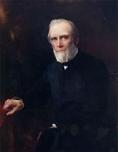


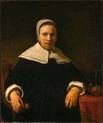



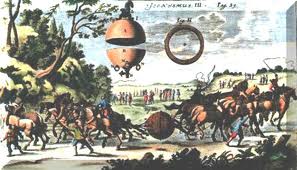
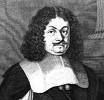

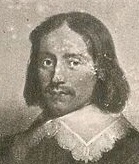
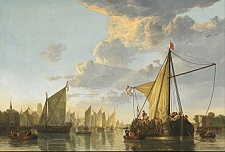


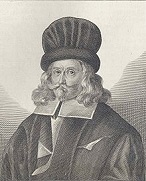
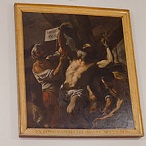

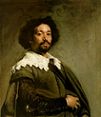


1650 World pop: 500M (doubles in the next 2 cents.); Am. colonies: 50K; European pop. of Ashkenazi Jews: 100K (vs. 2M in 1800, 8M in 1900); Ashkenazi (Heb. "Germans") are mainly the descendants of Jewish men and Euro women. The Great German Migration to Penn. begins (ends 1730); between 1700-75 60K Germans migrate. In this decade due mainly to the super intellectual achievements of Galileo and Newton, the Age of Enlightenment (Reason) begins in W Europe (until 1789), with coffeehouse and salon thinkers (philosophes) backed by the Masonic movement challenging the authority of the Church and promoting reason and individualism, causing more and more brain men to vote with their feet by leaving the ranks of churchmen and joining the ranks of scientists. The Golden Age of Piracy begins for Britain after they decide to copy the Muslims of N Africa and the French (ends 1726). On Jan. 18 after Cardinal Mazarin allies himself with the leaders of the First Fronde, his enemies the Great Conde, Prince de Conti, and Duke of Longueville are arrested, then on Jan. 19 the regency begins warring with the princes; on Jan. 21 the First Fronde members arrested last year are acquitted, separating the interests of the nobility and parliament; by Mar. 5 Normandy is subdued. In Mar. the pesky royalist earl of Montrose (b. 1612) lands in the Orkneys with 500 Danish troops, recruits 1K more, then crosses to the Scottish mainland, is defeated on Apr. 27 at Carbisdale near Culrain in Invercarron, and escapes to Ardveck Keep (Castle), home of Neil MacLeod of Assynt, who betrays him to Parliament for reward money, and he is captured, then hanged on May 21 in Edinburgh, protesting that he is a Covenanter; his last words are "God have mercy on this afflicted land". In May most of the English and Protestant royalist troops under the command of royalist gen. James Butler mutiny and go over to Oliver Cromwell, leaving him only with Irish Catholic forces, who don't trust him since he's a Protestant, causing him to be ousted and return to France in Dec. On June 9 Harvard College in Cambridge, Mass. is incorporated, becoming the oldest corp. in the modern-day Western Hemisphere. On June 23 after dallying 18 mo. negotiating with the rival Covenanters and non-Presbyterian royalists, Charles II arrives in Scotland, takes the Covenant, and is proclaimed "Covenanted" king on June 24, going on a triumphant journey through the lowlands, while hardcore Covenanters grumble that he's faking loyalty. On June 26 the Nuremberg Agreement on Demobilization between the HRE and Sweden augments the Peace of Westphalia by providing for the phased withdrawal of all troops in areas of Germany not ceded to France. By summer after the capture of Carlow, Waterford and Duncannon, the Irish rebellion is reduced to tiny pockets of resistance by bloodthirsty Oliver Cromwell, who then turns to the Scots, leading 11K men against 23K Covenanters. On July 1 Die Einkommende Zeitungen (Incoming News) begins pub. in Leipzig, Germany (four pocket-sized pages), becoming the world's first daily newspaper. On Aug. 9 the Puritan-inspired Blasphemy Act denounces Diggers (communists), Levellers (egalitarians), and Ranters (atheists and hedonists). On Sept. 3 although outnumbered 2-to-1, the Puritan army of Oliver Cromwell surprise-attacks at dawn, and defeats the Scots led by David Leslie at the Battle of Dunbar, killing 14K Scots and destroying or capturing all their artillery, then taking Edinburgh on Dec. 24, and subjecting Scotland to martial law (until 1660); on Sept. 27 the Scottish Commission of the Kirks and the Committee of Estates in Perth orders the expulsion of 23 of Charles II's companions except the Duke of Buckingham and Lord Wilmot, and removes two others from court; on Oct. 3 (target date for the expulsions) Charles II and his companions make a run for it out (called the Start) of Perth under the coverstory of a hawking trip, going NE to the protection of Viscount Dudhope in Dundee, then N to Auchterhouse under the protection of the Earl of Buchan, then N to the Highlands to recruit 7K royalist Highlanders, going through Cortach to Clova, with no recruits in sight; too bad, the Duke of Buckingham spills the beans to Sir James Balfour, who sends a 700-man cavalry under Col. Robert Montgomery to fetch him back, carrying one of Charles II's hawks "that the game might be played out with spirit", finding him in Clova "laying in a nasty room, on an old bolster above a mat of sedge and rushes"; after he is returned to Perth the Committee of Estates grants him concessions to avoid a repeat, inviting him to their sessions; too bad, Charles II flubs his chance to invade England, flying into rages instead while Cromwell works to garrison S Scotland. On Sept. 13 Ferdinand of Bavaria (b. 1577) dies, and his nephew Maximilian Heinrich (Henry) von Wittelsbach (1621-88), first cousin of Bavarian elector Ferdinand Maria becomes elector-archbishop of Cologne (until June 3, 1688). In Oct. defiant English preacher (Leicestershire cobbler) George Fox (1624-91) from Fenny Drayton in the Midlands, who got fed up with all the religious hypocrisy and began wandering and preaching, only to be arrested for it, thunders from the dock in court on a charge of illegal preaching that it was not he but the judge Gervase Bennett (1612-) who should "tremble at the word of the Lord"; the latter replies that the only "quaker" in court is Fox himself, and the name Quakers sticks; by 1680 membership in England and Wales reaches 60K (1.5% of the pop.). On Dec. 15 the French court party led by Caesar, duc de Choiseul defeats Turenne and his Spanish allies at the Battle of Retbel (Blanc-Champ) near Somme-Py, causing Turenne's army to disintegrade, and Turenne to ask the king's pardon, after which the rebellion collapses by next Apr. The Parliamentary fleet under Bridgewater-born Adm. Robert Blake (1598-1657) defeats and sinks most of the Royalist fleet in the Mediterranean. Oliver Cromwell forms a permanent economic council. The Iroquois defeat and destroy the Neutral Nation. At the instigation of Protestants (who arrived as servants in 1634 and are now freedmen and property holders), the Md. assembly divides into two houses, with governor and council sitting separately. The Dutch and English agree on the mutual frontiers of their colonies in North Am. 8K-ft. Mt. Asamayama in C Honshu, 85 mi. N of Tokyo erupts. In this decade the systematic extermination of the North Am. aborigines begins to make room for all those electronic four-wheel drives with their hearts in the right place even if you're not? The kingdom of Angola is finally conquered by the Portuguese. The first French settlement on the Senegal River in W Africa is made at Saint-Louis. The English establish the first European settlement on the Suriname River in NE South Am. France buys the island of Grenada from Britain, and settles it, establishing plantations and working to exterminate the garbage, er, Carib aborigines. About this time Sultan Quadarat makes Maguindanao the #1 force in the S Philippine region. The town of New Utrecht near Brooklyn in New Amsterdam is settled, followed by Midwout (Flatbush) in W Long Island next year. Veera Kerala Varma dies, and Rama Varma (d. 1656) becomes ruler of Cochin on the Malabar Coast of S India. The Cromwell Parliament makes adultery a capital offense, and enacts moral legislation to regulate drinking, dancing et al. Pope Innocent X issues a bull against smoking in St. Peter's in Rome - can't afford the fire insurance? By now the Great Vowel Shift begun in the 15th cent. England is complete, and Middle English has given way to Modern English. About this time merchants from Marseilles, France begin importing coffee beans from the Levant, going on in a few years to import coffee from Egypt, causing merchants in Lyon to follow suit. In 1650 Spanish explorer Don Diego del Castillo explores the Wichita Mts. in Comanche County, Okla. for 6 mo. looking for gold and silver before dying next June on the banks of the Mississippi River - you-u-u-u made me leave my happy home? In this decade opium smoking becomes a huge problem in China. In this decade the first tea arrives in England. The term "highwayman" is coined about this time. In this half-cent. helmet use among soldiers begins to decline in Europe. In this half-cent. the Mantis (Kung Fu) fighting style (wushu) is developed in China by Wang Lang. In this decade the Dutch block Gujarati spice ships from Aceh, causing them to collapse by the end of the cent. In this decade leather begins being used for upholstering furniture. English agriculturalist Sir Richard Weston (1591-1652) advocates the cultivation of turnips as winter fodder for cattle - and they go great with duck? The word "chrony" (crony) (from Gr. "chronios" = longtime) is coined by Cambridge students for a longtime friend; the connotation of political favoritism is added during the Truman admin. in the mid 20th cent. In this half-cent. Muslim scholars in Malaysia, incl. Hamzah Fansuri (Pansuri) (-1590), Nuru'd-din ar-Raniri, Syamsu'd-din as-Samatrani, and Abdur-rauf as-Singkili trans. Muslim texts into vernacular. In this decade European music begins to develop modulation (modern harmony). In this decade the overture (musical introduction) begins emerging as a musical form in Italy and France, incl. the ballet overtures of Jean-Baptiste Lully. In this decade short, plotless, tragic Japanese No (Noh) (Nogaku) (Jap. "skill" Drama begins its development - Dr. No jokes here? The Cambridge Platonists, a school of English church writers based at the U. of Cambridge is formed by Ralph Cudworth (1617-88), Henry More (1614-87) et al., attempting to reconcile Christianity and its morals with philosophy, and opposing Thomas Hobbes; usually considered do-the-locomotion-with-me liberals, they are often called Latitudinarians; Puritan divine Benjamin Whichcote (1609-83 gets in a controversy with his Platonist teacher-friend Anthony Tuckney (1599-1670), arguing against the doctrine of total depravity. The Cariri Tribe in South Am. near the San Francisco River in E Brazil is converted to Christianity; in 1699 the Jesuit Luis V. Mamiani pub. a grammar of their language. About this time Giulia Toffana from Palermo, Italy begins marketing Aqua Tofana (Toffana) (Tufania), a colorless tasteless concoction of arsenic, lead, and belladonna to wannabe widows under the name Manna di San Nicola (St. Nicholas of Bari) to fool the authorities; over 600 hubbies are known to croak from it before she is caught and executed in July, 1659. The Congregation of the Sisters of St. Joseph (C.S.J.) is founded in Le Puy-en-Velay, France; growing to 14K members worldwide by modern times, incl. Sister Prejean of "Dead Man Walking" fame. Architecture: After suffering from the Swedish occupation in the Thirty Years' War of 1618-48, the Berlin Fortress (Festung Berlin) in Prussia is begun by Brandenburg elector Frederick William I, designed by Johann Gregor Memhardt (Memhard) (1607-78), based on fortresses in N Italy; finished in 1683; demolished in 1734. Holyrood Palace in Edinburgh burns down; it is rebuilt in 1671-9. The Taj Mahal (begun 1639) is completed. Palazzo di Montecitorio, designed by Giovanni (Gianlorenzo) Bernini (1598-1680) is completed by Carlo Fontana; in 1870 it becomes the seat of the Italian chamber of deputies. Inventions: About this time lead shot is molded with a split mold. About this time the double-reed conical-bored Oboe (Hautboy, Hoboy) (Fr. "haut" + "bois" = high + woodwind) is developed from the Shawm; it is used to tune orchestras to the A note. Science: Francis Glisson pub. a clear description of infantile rickets. German physicist Otto von Guericke (1602-86) of Magdeburg invents the vacuum air pump (now he's got both friction and suction?); in 1655 he uses it to remove the air from two metal Magdenburg hemispheres and challenges horsemen to pull them apart; it ends up being used on farms. Mizar becomes the first double star to be observed (really a quadruple star). Thomas Sydenham of England begins advocating a rudimentary germ theory of disease. Nonfiction: Elias Ashmole (1617-92), Fasciculus Chemicus; textbook on alchemy, pub. under the alias James Hasholle - for his bunch of gay friends? Richard Baxter (1615-91), The Saints' Everlasting Rest. Thomas Fuller (1608-61), A Pisgah-Sight of Palestine; just the thing after the cessation of hostilities? Matthew Hale (1609-76), Analysis of the Civil Law. Thomas Hobbes (1588-1679), Human Nature; Or, The Fundamental Elements of Policie; De Corpore Politico; Or, The Elements of Law, Moral and Politick; written in 1637-40 after he gets interested in the struggle between king and Parliament, then privately circulated in 1640, causing him to fear that Parliament might get him for it for defending the royal prerogative, causing him to flee to Paris for 11 years. Menassah ben Israel (1604-57), The Hope of Israel; argues for readmission of Jews to England, from which they had been expelled since the days of Edward I Longshanks (1290), with the killer argument that until Jews live in all lands Christ won't return, claiming that the Native Ams. were survivors of the Ten Lost Tribes of Israel, and that the discovery of America is a sign of the coming Messianic era; tr. into English in 1652, arousing interest and helping convince Oliver Cromwell to readmit them in 1656. Athanasius Kircher (1601-80), Musurgia Universalis. Gilles Menage, Dictionnaire Etymologique. Thomas Thorowgood (1600-69), Jewes in America, or, Probabilities that the Americans are of that Race (London) (bestseller); revives the Ten Lost Tribes of Israel theory for Native Ams., citing the case of Aaron Levi AKA Antonie Monterinos, who returned to Amsterdam from Brazil in 1644 and told Manasseh ben Israel that he had met reps of the descendants of the Ten Lost Tribes in South Am. who claimed descent from Abraham, Isaac, Joseph, Israel and the tribes of Reuben and Joseph; "The Indians do themselves relate things of their Ancestors suteable to what we read in the Bible... They constantly and strictly separate their women in a little wigwam by themselves in their feminine seasons... They hold that Nanawitnawit (a God overhead) made the Heavens and the Earth"; "The rites, fashions, ceremonies, and opinions of the Americans are in many things agreeable to the custom of the Jewes, not only prophane and common usages, but such as he called solemn and sacred"; in 1652 Sir Roger L'Estrange (1616-1704) pub. Americans No Jewes in London, disputing Thorowgood, who responds with a rev. 1660 ed., with the soundbyte: "that those Indians are Judaical, made more probable by some Additional... learned conjectures of Reverend Mr. John Eliot (1604-90), known as the Apostle to the Indians", who in 1663 pub. The Holy Bible Containing the Old Testament and the New Translated into the Indian Language and Ordered to be Printed by the Commissioners of the United Colonies in New England in Cambridge, a tr. of the Bible into Algonquian (Natick), becoming the first Bible printed in North Am. Archbishop James Ussher (1581-1656), Annals of the Old Testament, Deduced from the First Origins of the World: The Chronicle of Asiatic and Egyptian Matters Together Produced from the Beginning of Historical Time up to the Beginnings of Maccabees (Annales Veteris Testamenti, a Prima Mundi Origine Deductim, una cum rerum Asiaticarum et Aegyptiacarum chronico, a temporis historici principio usque ad Maccabaicorum initia producto); 1.6K-page Latin tome uses the Bible to date the creation of the world to nightfall (6:00 p.m.), Sunday, October 22, 4004 B.C., which jives with the Bible verse "One day is with the Lord as a thousand years, and a thousand years as one day" (2 Peter 3:8), meaning that Jehovah gave the Earth 6K years and it's running out fast; he dates the birth of Christ to 4 B.C.E.; it is later used in annotated eds. of the King James Bible, making it super-popular; by the late 19th cent. scientists and theologians begin to ditch it, with Am. Hebrew scholar Wiliam Henry Green (1825-1900) pub. the soundbyte in the influential article Primeval Chronology in Bibliotheca Sacra (1890): "We conclude that the Scriptures furnish no data for a chronological computation prior to the life of Abraham, and that the Mosaic records do not fix and were not intended to fix the precise date either of the Flood or of the creation of the world" - a Christian would say Sunday not Saturday or Friday? Joost van den Vondel (1587-1679), Manual of Dutch Poetry. Art: Gerard ter Borch (1617-81), Sitting Young Woman; his sister Gesina. Sebastien Bourdon (1616-71), The Finding of Moses. Aelbert Cuyp (1620-91), The Maas at Dordrecht; the Maas River in front of his hometown of Dordrecht. Jan Josephs van Goyen (1596-1656), View of Dordrecht. Frans Hals (1580-1666), Hille Bobbe; Hals works so fast and precisely that every brush stroke is visible? Gerard Houckgeest, Interior of the Nieuwe Kerk in Delft with the Tomb of William the Silent; starts a fad for paintings of church interiors? Sir Peter Lely (1618-80), Two Ladies from the Lake Family. Bartolome Esteban Murillo (1617-82), The Holy Family with the Little Bird. Nicolas Poussin (1594-1665), Self-Portrait; The Blind Men of Jericho. Mattia Preti (1613-99), The Martyrdom of St. Bartholomew (Naples); donated by Francis I of the Two Sicilies to the Proto-Cahedral in Bardstown, Ky. David Teniers the Younger (1610-90), Archduke Leopold Wilhelm of Austria in His Brussels Library. Diego Velazquez (1599-1660), Portrait of Pope Innocent X; Portrait of Juan de Pareja (1610-70); his mulatto asst.; auctioned in 1970 by Christie's of London for $5.54M. Plays: Pierre Corneille (1606-84), Andromede (tragedy). Andreas Gryphius (1616-64), Horribilicribrifax (satirical political comedy) (pub. 1663). Poetry: Anon., Wit's Recreations (anthology); incl. 60+ poems from Robert Herrick. Anne Bradstreet (1612-72), The Tenth Muse Lately Sprung Up in America; first published female author in the British Am. colonies. Births: English actress (mistress of Charles II) Eleanor "Nell" Gwyn (Gwynn) (Gwynne) (d. 1687) on Feb. 2 in St. Martin in the Fields, London. English soldier-statesman John Churchill, 1st Duke of Marlborough (d. 1722) on May 26 in Ashe House, Devon; son of Sir Winston Churchill (1620-88) and Elizabeth Drake; ancestor of Sir Winston Churchill. English anti-theater Anglican cleric-writer Jeremy Collier (d. 1726) on Sept. 23 in Stow cum Quy, Cambridgeshire; educated at Caius College, Cambridge U. Am. celeb Jane Rolfe Bolling (d. 1676) on Oct. 10 in Varina, Henrico County, Va.; granddaughter of Pocahontas and John Rolfe; wife (1675-) of Col. Robert Bolling (1646-1709); mother of John Fairfax Bolling (1676-1729). English/Scottish king (1689-1702) William III/II of Orange (d. 1702) on Nov. 4 (Nov. 14 Old Style) in Binnenhof, The Hague (1 week after his father's death from smallpox); son of Prince William II of Orange (1626-50) (who dies one week before his birth) and Mary Stuart, daughter of Charles I; stadholder of the Netherlands 1672-1702; husband of Mary II; well educated in languages, fine arts, military tactics and Calvinism. Am. Va. colonist William Randolph (d. 1711) on Nov. 7 in Morton Morell, Warwickshire, England; emigrates to Va. in 1669-73 and becomes a big tobacco planter, founding the Randolph dynasty in Va. Am. Puritan minister George Burroughs (d. 1692) (b. 1652?) in Great Yarmouth; educated at Harvard College. Vietnamese gen. (founder of Saigon) Nguyen Huu Canh (Kinh) (d. 1700) in Le Thuy District, Quang Bingh Province, Bac Trung Bo. French fairy tale writer Madame Marie-Catherine Le Jumel de Barneville, Baroness d'Aulnoy (d. 1705) (b. 1651?) in Barneville-la-Bertran. English Methuen Treaty judge-diplomat John Methuen (d. 1706) in Bradford-on-Avon, Wiltshire; son of Paul Methuen (-667), richest cloth merchant in England; educated at St. Edmund Hall, Oxford U.; father of Sir Paul Methuen (1672-1757). British adm. Sir George Rooke (d. 1709) in St. Lawrence (near Canterbury), Kent. English poet Sir Richard Blackmore (d. 1729). Spanish architect Leonardo de Figueroa (d. 1730) in Utiel, Valencia. Deaths: English herbalist-botanist John Parkinson (b. 1567) in July-Aug. in London. German Jesuit anti-Galileo astronomer Christoph Scheiner (b. 1575) on July 18 in Neisse, Silesia. German prince-elector archbishop of Cologne (1612-50) Ferdinand of Bavaria (b. 1577) on Sept. 13 in Arnsberg. English bishop of Worcester John Prideaux (b. 1578) on July 29 in Bredon (fever). French painter Trophime Bigot (b. 1579). English courtier Philip Herbert, 4th earl of Pembroke (b. 1584) on Jan. 23 in Westminster. French architect Jean Androuet III du Cerceau (b. 1585). English poet Phineas Fletcher (b. 1582). Italian Jesuit philosopher Niccolo Cabeo (b. 1586) on June 30 in Genoa. Swiss engraver Matthaus Merian (b. 1593) on June 19 in Bad Schwalbach (near Wiesbaden). French philosopher ("Father of Modern Philosophy") Rene Descartes (b. 1596) on Feb. 11 in Stockholm; dies of pneumonia contracted after tutoring (since 1694) hearty Queen Christina at 5 a.m. in her unheated palace rooms; he had heretofore always stayed in bed until midday; he wouldn't eat an egg unless it was under the hen from 8-10 days; he always passed his easier problems in analytic geometry to his valet Gillot; he was obsessed with cross-eyed women, and afraid of publishing for fear of persecution, leaving an encrypted secret notebook, which is lost after Gottfried Wilhelm Leibniz copies a few pages of it, and finds a mathematical discovery of Descartes that he keeps secret also, until its rediscovery in 1987; he was really poisoned with arsenic by Roman Catholic priest missionary Jacques Viogue to stop him from infecting the queen with liberal religious ideas? English scholar Thomas Shelton (b. 1601). Danish marshal of France Josias Rantzau (b. 1609) on Sept. 14 in Paris; dies after being released from the Bastille on charges of supporting the Fronde. Italian printmaker Pietro Testa (b. 1611) in Rome. Scottish royalist gen. James Graham Montrose, 1st marquis and 5th earl of Montrose (b. 1612) on May 21 in Edinburgh (executed). Dutch stadtholder (1647-50) William II, prince of Orange (b. 1626) on Nov. 6. English princess Elizabeth Stuart (b. 1635) on Sept. 8 in Carisbrooke Castle, Isle of Wight. Dutch stadtholder William II, prince of Orange on Nov 6 (smallpox).





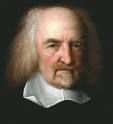



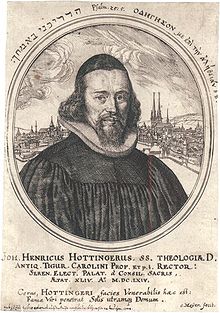




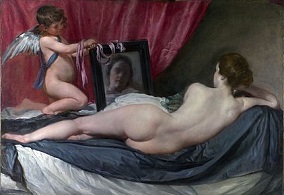


1651 On Jan. 1 Charles II (1630-85) is crowned king of Scotland at Scone (until Sept. 3, 1651), claiming the English throne, becoming the last coronation at Scone and the last Scottish monarch to be crowned in Scotland; hastily arranged by the Covenanters, it is devoid of most of the usual pageantry and anointing, and they make him take the Covenant one more time. On Feb. 6 after a new outbreak by the Frondeurs causes the French parliament to vote to release Fronde leader the Great Conde and his assocs., Cardinal Mazarin is forced to leave Paris again, and the queen is forced to ally herself with the Fronde; Mazarin retains war ministry employee (since 1638) Jean Baptiste Colbert (1619-83) as his confidential agent at court, while parliament orders Mazarin's library closed; the princes are released on Feb. 11; the govt. promises an estates-gen. to be convened on Oct. 1; on Mar. 16 the royal court is moved to Dijon while royal troops attempt to quell the rebels in Burgundy; Bellegarde surrenders on Apr. 11; on Apr. 20 the Duchess of Longueville (sister of the Great Conde and the Prince de Conti) and Gen. Vicomte de Turenne seek an alliance with Spain; on Oct. 1 the French parliament meets, but on Oct. 2 it is forbidden to consider gen. affairs, gutting it. In May after arriving in Scotland last July 22, Oliver Cromwell's troops force their way through Scotland into Glasgow, establish a bridgehead in Fife in July, and take Perth on Aug. 2, completing the occupation of Scotland; Cromwell leaves Scotland in charge of lt. gen. George Monck to pursue Charles II to England. A touch late? On June 28-30 the Battle of Beresteczko (Brest) is a V for the Polish army of Jan II Casimir over Ukrainian peasant and Cossack forces and their Crimean Tartar allies, becoming the biggest battle of the cent.; future king Jan III Sobieski fights for Jan II. On Sept. 3 Cromwell finally defeats a royalist army of 12K led by David Leslie (who is captured and put in the Tower of London) at the Battle of Worcester in England, ending the English Civil War and forcing pissed-off 6'2" dark and easily identifiable Charles II to part with his lords and flee incognito to France, guided by Jane Lane, Lady Fisher (1626-89), hiding along the way and disguising himself as a laborer and tenant farmer, once passing in disguise through a troop of blockheads, er, Roundheads, then reaching the unguarded port of Shoreham in Sussex on Oct. 14; James Butler joins Charles II in exile, along with his chaplain John Earle (1601-65); Charles Howard (1629-85) (another *!?! Howard?) distinguishes himself fighting for the Commonwealth, and becomes a member of the council of state in 1653 and a member of Cromwell's House of Lords in 1657 as the 1st earl of Carlisle; Cromwell rules a kingless Bible-thumping Britain with an iron hand (even Christmas is canceled), with John Thurloe (1616-68) as his chief of intelligence; on Oct. 28 Parliament makes Scotland a part of the Commonwealth, giving them free trade with England, allowing the Presbyterian church to continue, and giving them a more efficient govt. by English officials; the idea that sects other than Presbyterian should be tolerated, however, is exceedingly irksome to the badass Covenanter Scots?; George Villiers, 2nd Duke of Buckingham (1628-87), whose estates were confiscated for serving in the royal army fights with Charles II at Worcester, then after he sees whose side his bread is buttered on he returns secretly to England and marries the daughter of Parliamentary gen. Fairfax, but that doesn't work and he is arrested and imprisoned until the return of Charles II. On Sept. 27 Maximilian I the Great (b. 1573) dies, and his son Ferdinand Maria (1636-79) becomes Wittelsbach ruler and elector of Roman Catholic Bavaria (until 1679), going on to set the German standard of absolute rule; he is not crowned until Oct. 31, 1654. In Oct. 9 after a failed diplomatic mission to The Hague to convince the Dutch to join the Commonwealth and overthrow William II of Orange, Oliver Cromwell's Rump Parliament passes the Navigation Act, attempting to end the Dutch carrying trade by excluding nearly all foreign shipping from the English and colonial trade, prohibiting the importation into England or its dependencies of goods from Asia, Africa, or America carried in non-English or non-colonial ships, except European goods coming directly from their port of origin; Holland's position as numero uno is threatened and they see red, causing a naval war. On Nov. 19 the Venetian ambassador in Paris writes to his dodge about Charles II, who has been telling tall tales since his arrival, with the soundbyte: "In the army, when it was seen that all was lost, he took counsel with the duke of Buckingham, who was in the same plight as himself. The duke decided to disguise himself as a falconer, with the goshawks on his arm." After overrunning the Huron Confederacy in 1648-9, causing large numbers of refugees to flee to their protection, the Iroquois war with the Erie (Huron "abode of the panther") ("Erielhonan" = long tail) AKA the Raccoon or Cat people who inhabit the shores of Lake Erie (modern-day N.Y., Ohio, Penn.) (until 1653). The Cromwell govt. begins recording all court proceedings in English rather than French or Latin in a symbolic throwing off of the Norman yoke (until 1660). Scottish gen. Alexander Leslie is captured by the Parliamentarians and imprisoned, then set free in 1654, after which he retires. Prince Rupert's English fleet is destroyed by Adm. Robert Blake, and he escapes with the remnant to the West Indies, where he takes up buccaneering until 1653, then returns to France, retiring to a life of scientific researches. Roger Williams returns to England to save R.I. from a rival claim. New Castle, Del. is founded by the Dutch as a shipping town; Peter Stuyvesant lays out the town's boundaries and green in 1655. August Herman, a Dutchman from Staten Island buys a tract of land from the Indians which in 1685 becomes the site of the town of Perth Amboy, N.J. John Eliot founds Natick, Mass. (25 mi. W of Worcester in Middlesex County) for converted Indians; it goes on to become known for manufacturing shoes and clothing. King Louis XIV of France attains the age of majority, and appears as a dancer in a court ballet. The British set up a factory in Phnom Penh. Tokugawa Iyetsuna (Yetsuna) (1633-80) becomes Tokugawa shogun #4 of Japan (until 1680), going on to quash two rebellions in Edo. The Tontine System of life insurance is invented by Neapolitan banker Lorenzo de Tonti (1602-84) in Paris, paying money to the last surviving contributor - pass the arsenic? Spanish dramatist Pedro Calderon de la Barca (1600-81) becomes a priest - no mister nice guy, no mister clea-e-e-an? The first public "comedy house" opens in Vienna. The division between publisher and printer in the book trade begins. The 1st cent. B.C.E. Roman topless Venus of Arles statue is unearthed by workers in Arles, France. Architecture: The White Pagoda in the Imperial City (Huang Cheng) of Peking is built on the occasion of the visit of the Tibetan dalai lama. Tiananmen Square (Gate of Heavenly Peace) in China is built. Science: French scientist Jean Pecquet (1622-74) pub. the first description of the lymphatic system in animals, incl. the lacteal vessels, the thoracic duct and its entry into the subclavian vein, the reservoir of Pecquet (receptaculum chyli). Nonfiction: William Bradford (1590-1657), History of Plymouth (Plimouth) Plantation, 1620-1647; his journal, written in 1630-51, based on material by George Morton, Edward Winslow et al. pub. in 1622 in London as "Mourt's Relation"; the #1 work of 17th cent. America?; covers the Pilgrims from their settlement in the Dutch Repub. in 1608 through the 1620 Mayflower voyage to 1647, followed by a list of Mayflower passengers and what happened to them, written in 1651; after Bradford never attempts to get it pub., the ms. is stored in the tower of Old South Church in Boston, disappears during the Am. Rev. War, and is found in 1855 in the Fulham Library in England, being pub. for the first time in 1856, then returned to the U.S. in 1898. John Donne (1572-1631), Essays in Divinity (posth.). John French, The Art of Distillation. William Harvey (1578-1657), Exercitationes de Generatione Animalium; describes the development of organs in the embryo, and declares that all living things come from eggs mating with invisible sperm (omne vivum ex ovo); "The egg is the common beginning for all animals." Thomas Hobbes (1588-1679), Leviathian; or The Matter, Form and Power of a Commwealth Ecclesiastical and Civil, his magnum opus; justifies the sovereignty of the Commonwealth, noting that life is "solitary, poor, nasty, brutish and short" (ch. 13), and all men fear each other, hence must submit to the supremacy of the state in secular and religious matters, yet attacks the papacy, pissing-off the French and causing him to flee Paris back to England, where the royalists are also pissed-off, causing him to seek protection from the rev. English govt.; "Imagination and memory are but one thing, which for divers considerations hath divers names" (vol. 2); founds Social Contract Theory; his portrait bears a striking resemblance to William Shakespeare grown cynical? Johann Heinrich Hottinger (1620-67), Historia Orientalis (Zurich); covers Muhammad et al.; Historia Ecclesiastica (9 vols.) (1651-67). Gerard Langbaine the Elder (1609-58), The Foundation of the University of Oxford, with a Catalogue of the principal Founders and special Benefactors of all the Colleges, and total number of Students; he also pub. a vol. for Cambridge U. Jean Pecquet (1622-74), Experimenta Nova Anatomica; dissects the eye, and concludes that the retina is the principal organ of vision, and notes the existence of the lymphatic system in animals. John Playford (1623-86), The English Dancing Master; first book giving music and dance instructions for English country dancing (groups of 4+) the 1695 ed. contains the Sir Roger de Coverley Dance, the basis of the Virginia Reel. Giovanni Riccioli (1598-1671), New Almagest; incl. maps of the lunar surface with many of the modern names of lunar features. Jeremy Taylor (1613-67), Rule and Exercises of Holy Living and Holy Dying (1650-1) - just give me some kind of sign, girl? Francois Pierre de la Varenne (1615-78), Le Cuisiner Francois; founds modern French haute cuisine, ditching expensive spices for local herbs, introducing veggies incl. peas, artichoke, cucumber, asparagus, and cauliflower, and stressing freshness, serving salty before sweet dishes. Bishop John Wilkins (1614-72), A Discourse Concerning the Gift of Prayer: Shewing What It Is, Wherein It Consists and How Far It Is Attainable by Industry. Art: Nicolas Poussin (1594-1665), The Holy Family; painted for the Duc de Crequy. Paulus Potter (1625-54), Landscape with Cows. Rembrandt van Rijn (1606-69), Girl with a Broom. David Teniers the Younger (1610-90), Village Feast. Diego Velazquez (1599-1660), The Rokeby Venus (The Toilet of Venus) (Venus and Cupid) (Venus at Her Mirror) (La Venus del Espejo); his only female nude to survive; painted in Italy, it is latched onto by Spanish courtiers, ending up in Rokeby Park, Yorkshire, England in 1813, followed by the Nat. Gallery in London in 1906; on Mar. 10, 1914 Canadian suffragette "Slasher" Mary Raleigh Richardson (1882-1961) attacks it with a knife in protest of the arrest of Emmeline Pankurst, slashing the body because she can't stand "the way men visitors gaped at it all day long"; Richardson goes on to become head of the women's div. of the Brititish Union of Fascists led by Sir Oswald Mosley. Plays: William Cartwright (1611-43), Comedies, Tragicomedies, with Other Poems. Poetry: John Cleveland, Poems. Sir William Davenant (1606-68), Gondibert. Novels: Baltasar Gracian (1601-58), El Criticon (Criticón) (3 vols.) (1651, 1653, 1657); his masterpiece; pub. under alias Gracia de Marlones; Byzantine picaresque novel about Critilo ("critical man") and Andrenio ("natural man"), who go on a voyage to the Isle of Immortality; gets him punished by his Jesuit superiors; Daniel Defoe gets the idea of Robinson Crusoe from it; its pessimism later makes a fan of Arthur Schopenhauer. Paul Scarron (1610-60), Roman Comique (1651-7); about a co. of strolling players led by narrator Destin, in a picaresque style a la Cervantes' "Don Quixote". Births: English explorer Sir William Phips (d. 1695) on Feb. 2 near Kennebec, Maine; youngest of 26 children - I'd like to see that mother? Italian chef (in France) Procopio Cuto (Cutò) (Francesco Procopio dei Coltelli) (It. "knives") (d. 1727) on Feb. 9 in Palermo (Aci Trezza?), Sicily. French missionary and educator ("Father of Modern Education") (St.) Jean-Baptist de La Salle (d. 1791) on Apr. 30 in Reims; first teacher to divide students into grades; canonized on May 24, 1900 by Pope Leo XIII; proclaimed patron saint of teachers on May 15, 1950 by Pope Pius XII. French Roman Catholic archbishop and theologian-poet Francois de Salignac de la Mothe-Fenelon (Mothe-Fénelon) (d. 1715) on Aug. 6 in Sainte-Mondane, Perigord, Aquitaine. German Baroque "Apotheosis of Prince Eugene" sculptor Balthasar Permoser (d. 1732) on Aug. 13 in Kammer bei Waging, Salzburg. English explorer and pirate William Dampier (d. 1715) on Sept. 5 in East Coker, Somerset. German naturalist-explorer Engelbert Kaempfer (d. 1716) on Sept. 16 in Lemgo, Lippe, Westphalia. Spanish architect Jose Churriguera (d. 1723). Deaths: Dutch artist Abraham Bloemaert (b. 1566) in Utrecht. Bavarian elector duke Maximilian I the Great (b. 1573) on Sept. 27 in Ingolstadt. Flemish painter Cornelis de Vos (b. 1584) on May 9 in Antwerp. Belgian-born English engraver Martin Droeshout (b. 1601). Swedish artillery gen. Lennart Torstensson (b. 1603) on Apr. 7 in Stockholm. German composer Heinrich Albert (b. 1604). English soldier-regicide Henry Ireton (b. 1611) on Nov. 26 in Limerick, Ireland; dies of a fever after the capture of Limerick - Henry gave a ton of hurt to the Irish? Scottish nobleman William Hamilton, 2nd duke of Hamilton (b. 1616) on Sept. 12; dies of wounds from the Battle of Worcester. Belgian-born English engraver Martin Droeshout (b. 1620) in London.








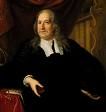

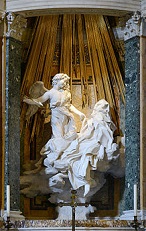
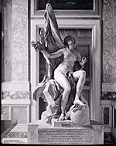


1652 On Feb. 24 the Act of Pardon and Oblivion is passed to reconcile English Royalists; on Aug. 12 Cromwell's Act of Settlement for Ireland exempts 80K rebels from pardon, esp. pesky James Butler, earl of Ormonde, forcing them to forfeit two-thirds of their lands and receive the third from a different part of the island than that in which they lived (Ormonde loses all of his?); their forfeited estates in Connacht are given to English settlers - Cromwell's crummy name burns in infamy in Ire Ire Ireland ever after? On Apr. 6 three ships of strict Calvinist Dutch settlers led by Johan Anthoniszoon "Jan" van Riebeeck (1619-77) of the Dutch East India Co. arrive in Table Bay (beneath Table Mountain) at the N end of the Cape of Good Hope in SW South Africa, and found Cape Colony and Cape Town (Kapstaad) (modern-day pop. 433K/4M) as a Dutch East India Co. supply station; their descendants become known as Boers ("farmers"); the Dutch dialect in this isolated area begins to absorb words from French, German, Scandinavian, and Malay-Portuguese, evolving into the Afrikaans language. On May 29 the first of three Anglo-Dutch Wars begins (1652-4, 1664-7, 1672-4) when a Dutch fleet under Adm. Maarten Tromp refuses to lower its flag to an English fleet, and the English under Adm. Robert Blake defeat them at the Battle of Goodwin Sands (Dover) off Folkestone before declaring war; nine pitched battles take place in the next two years, with the Dutch having the upper hand this year, sweeping the English Channel clear of the English, putting English trade in the Mediterranean at their mercy, and getting Denmark to close the entrance of the Baltic to English ships; Adm. Trump rubs it in by sailing up the Channel with a broom at his masthead - get in step with the hottest shorts, only at Old Navy? On May 27 after Maine is joined to the Mass. Bay Colony, it passes a Mint Act, and begins striking the Pine Tree three-pence, followed by the six-pence, 12-pence, and Pine Tree shilling (1667-82), becoming the only coinage struck by a British North Am. colonial govt., almost all bearing the date 1652. On June 13 after serving 12 mo. in Derby for illegal preaching, then wandering to Pendle Hill in Lancashire and looking out towards the Irish Sea, where he has a vision of a "great multitude waiting to be gathered", glib cobbler George Fox wanders to Firbank Fell, where in three hours he converts 1K members of the Westmoreland Seekers, led by Francis Howgill (1618-68) and married future preachers John Audland (-1664) and Anne Camm (Newby) (1627-1705); on June 28 he wanders to Swarthmoor Hall in Ulverston, Cumbria, home of Anne Askew Fell, who gets turned on ("perturbed") by his preaching, and he goes on to convert the entire household except Anne's hubby judge Thomas Fell, who is known for his hospitality and allows his home to be used as the HQ of the new Society of Friends Quakers) (until 1691), whose members become known for receiving divine revelations and trembling under the sense of God's awful infinite purity and majesty; their meetings consist of group silence until somebody receives a divine message so they can speak up and boogie - the original daddy daycare and Elvis? On July 2 after provisional Fronde govt. is set up in Paris, Louis XIV quashes it in the Battle of the Faubourg Saint Antoine (in E Paris near the Bastille), and recalls Cardinal Mazarin, confirming the Edict of Nantes; Francois de La Rouchefoucauld is shot in the head and goes blind for a year, retiring from political life. On Aug. 16 the Battle of Plymouth sees British adm. Sir George Ayscue (1616-71) attack an outward bound convoy of the Dutch Repub. commanded by vice-commodore Michiel Adriaenszoon de Ruyter (1607-76), who force him to break off and return to Plymouth for repairs while they sail safely to the Atlantic; Dutch (Frisian) adm. Joris Pieters van den Broeck (b. 1610) is KIA. Cromwell dispatches an expedition to the Am. colonies which forces the West Indies, Va., and Md. to recognize Puritan parliamentary authority but leaves them otherwise unmolested; Md. Gov. William Stone is deprived of office by Cromwell's commissioners. Louis XIV makes his trusted military man Caesar (César), duc de Choiseul, comte du Plessis-Praslin (1602-75) his state minister, and in Nov. 1665 creates him duc de Choiseul. Sir William Davenant is freed from the Tower after John Milton intercedes, releasing his epic poem "Gondibert", written in prison. Wenzel Eusebius, Furst (Fürst) von Lobkowitz (1609-77) becomes pres. of the Hofkriegsrat (war council) of HRE Leopold I (until 1672). Omani imam Sultan bin Seif conquers Zanzibar from the Portuguese, and Omani sultans begin ruling it (until ?). English royalist Barbados gov. Francis Willoughby, 5th Baron Willoughby (1613-66) is forced to yield to the Commonwealth (until 1663). New Netherlands dir.-gen. (1647-64) Peter (Pieter) Stuyvesant (1592-1672) founds the town of Beverwyck near Ft. Orange (founded 1624) on Westerlo Isle in the Hudson River near the confluence with the Mohawk River 136 mi. N of New York City, which changes its name in 1664 to Albany, N.Y. Sebastien Bourdon (1616-71), a founding member of the French Academy of Painting and Sculpture becomes court painter to Queen Christina of Sweden (until 1654) - the view is hot but the climate is not? John Milton becomes blind at the age of forty-four, pining about it in a sonnet, "When I consider how my light is spent", while issuing dictation to a secy. - from masturbating too much while reading Playboy in candlelight? The first opera house opens in Vienna. The minuet comes into fashion at the French court. The first coffeehouse is opened in England in Oxford by Jewish man Jacob in St. Peter Parish; another is opened in St. Michael's Alley in Cornhill, London by Armenian-Greek Pasqua Rosee (Rosée), servant of Turkish goods trader Daniel Edward; a coffeehouse is called a penny univ. since admission is a penny and incl. a cup of coffee or a pot of tea; within a decade there are 80+ coffeehouses in London, growing to 2K-3K by 1700. The Academia Leopoldina (originally Academia Naturae Curiosorum) is founded in the free imperial city of Schweinfurt, Germany, with physician Johann Lorenz Bausch (1605-65) as pres. #1, becoming the oldest scientific academy to survive to modern times; it moves to Halle in 1878. Heidelberg U. (closed since 1626) is reopened as a secular institution by Elector Palatine Charles I Louis, who tries to rebuild the library. French writer Paul Scarron marries Madame de Maintenon (Francoise d'Aubigne), who later becomes the secret 2nd wife of Louis XIV. Claes Maartnszen van Rosenvelt purchases a 48-acre farm in modern-day Midtown Manhattan, N.Y. comprising modern-day Lexington Ave. to Fifth Ave. and 29th St. to 35th St., incl. the future site of the Empire State Bldg., after which the Roosevelt family becomes big in New York City. Science: Danish anatomist Thomas Bartholin (1616-80) pub. the first full description of the human lympathic system; meanwhile Olof (Olaus) Rudbeck the Elder (1630-1702) of Uppsala U. in Sweden (teacher of Niels Stensen) discovers it independently and presents it to Queen Christina of Sweden in Apr.-May, but doesn't pub. it until next year, causing a bitter priority dispute. Nonfiction: Elias Ashmole (1617-92), Theatricum Chemicum Britannicum; alchemical work of metaphysical poems, which becomes a big hit with Robert Boyle and Isaac Newton. Jean-Louis Guez de Balzac, Socrate Chretien. John Donne (1572-1631), Paradoxes, Problems (posth.). Henry Knighton (-1396), Knighton's Chronicle (4 vols.); covers English history from 959-1366; vol. 5 covers 1377-95. Hayashi Shunsai (1618-80), O-Dai-Ichi-Ran (History of Japan). Gerrard Winstanley (1609-76), The Law of Freedom in a Platform; argues for a classless society, and begs Cromwell to use his grate powah to create it. Poetry: Johann Luremberg, Veer Schertz-Gedichte (comic poems). Art: Gianlorenzo Bernini (1598-1680), Truth Unveiled by Time (sculpture) (1645-52); The Ecstasy (Transverberation) of Saint Teresa of Avila (1647-52); white marble statue in the Cornaro Chapel of Santa Maria della Vittoria in Rome. Carel Fabritius (1622-54), View of Delft with a Musical Instrument Seller's Stall. Adrien van Ostade (1610-85), Cottage Dancers. Rembrandt van Rijn (1606-69), Self-Portrait; Portrait of Hendrickje. Music: John Hilton, Catch as Catch Can (catches, rounds, canons). Plays: Pierre Corneille (1606-84), Nicomede (tragedy). Poetry: Sir William Davenant (1606-68), Gondibert (epic); written in the Tower. John Milton (1608-74), On His Blindness (sonnet); "When I consider how my light is spent/ Ere half my days in this dark world and wide/ And that one talent which is death to hide." Births: English "The Orphan, or The Unhappy Marriage" dramatist Thomas Otway (d. 1685) on Mar. 3 in Trotton, Sussex; John Locke inserts a silver pipe into him to drain an abscess, causing him to be called Count Tapski. Am. Puritan merchant-judge-diarist Samuel Sewall (d. 1730) on Mar. 28 in Bishopstoke, Hampshire, England; receives M.A. from Harvard in 1674; marries Hannah Hull (daughter of Boston merchant) in 1676. French Rolle's Theorem mathematician Michel Rolle (d. 1719) on Apr. 21 in Ambert, Basse-Auvergne; inventor of the notation for nth root. Italian Baroque sculptor Giovanni Battista (Giambattista) Foggini (d. 1725) on Apr. 25 in Florence; student of Ercole Ferrata and Ciro Ferri; court sculptor of Cosimo III de' Medici (1676-); teacher of Ferdinando Fuga (1699-1782). Am. Va. planter William Byrd I (d. 1704) in Shadwell, London; son of John Bird (1620-77); family is originally from Cheshire. English royal physician John Radcliffe (d. 1714) in Wakefield, Yorkshire; educated at Oxford U. Irish poet-dramatist and poet laureate (1692-1715) Nahum Tate (d. 1715) in Dublin; educated at Trinity College, Dublin. Am. Congregational minister John Wise (d. 1725) in Roxbury, Mass. Deaths: English architect Inigo Jones (b. 1573) on June 21. Italian tenor and composer Gregorio Allegri (b. 1582). French Jesuit theologian Dionysius Petavius (b. 1583) on Dec. 11 in Paris. Am. Puritan divine John Cotton (b. 1585) on Dec. 23 in Boston, Mass.; wrote 50+ books about boring Puritanism with colorful names? Italian traveler Pietro della Valle (b. 1586) on Apr. 21 in Rome. English dramatist Richard Brome (b. 1590) on Sept. 24 in Charterhouse Hospital, London. Spanish painter ("Lo Spagnoletto") Jusepe (Jose) de Ribera (b. 1591) in Naples. French painter Georges La Tour (b. 1593) on Jan. 30 in Luneville. Italian feminist writer Ancangela Tarabotti (b. 1604). Dutch adm. Joris Pieters van den Broeck (b. 1610) on Aug. 27 near Plymouth, England (KIA).



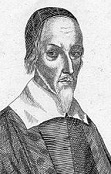



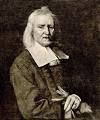

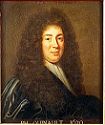

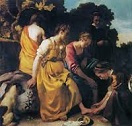



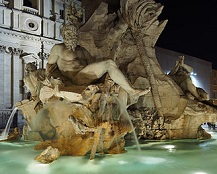

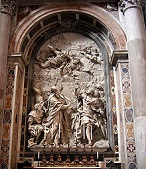
1653 On Feb. 2 the city of New Amsterdam is incorporated; in May Wall Street, a defensive street in New Amsterdam (lower Manhattan) (named for a protective fence) is built by the Dutch. On Feb. 3 Cardinal Mazarin returns to power in France, and the War of the Fronde ends with a complete V for the French crown, and Cardinal Marzarin returns as PM, backed by a powerful royalist party which kisses Louis XIV's royal butt and seeks to increase his authority at the expense of landed noblemen. On Feb. 18 the English fleet under Adm. Robert Blake, Adm. George Monck, and Adm. Deane defeats the Dutch fleet under Adm. Maarten Harpertszoon Tromp (1598-1653) in the 3-day naval Battle of Portland, in which the English take out nine Dutch warships and 30 merchantmen, but Tromp trumps them by saving the bulk of his 200 merchantman convoy; on June 2-3 they tangle again at the naval Battle of North Foreland, and six more Dutch ships are captured, 11 sunk, and the rest driven into Calais Roads; on July 31 Tromp tangles with Monck in the naval Battle of Terrell off the coast of Holland, causing the tide to turn in the Anglo-Dutch War as the Dutch lose 30 men-of-war and Tromp dies from a bullet through the heart; the Dutch are forced to retire to their home ports, and the English blockade the Dutch coast, strangling their sea trade; when the Dutch finally break the blockade, their fleet is too damaged to take to sea. On Apr. 20 after hearing that they are seeking to remove him from power, Oliver Cromwell arrives in the Rump Parliament to observe it, wearing a plain black coat and gray worsted stockings; even though it fixes the date of its dissolution as next year, the impatient army, freshly returned from Ireland and Scotland forces his hand, and he dissolves it by force, telling it, "You are no Parliament... In the name of God, go!"; Cromwell then calls the Nominated Assembly (Little or Barebone's Parliament), named after Puritan member Praise-God Barebone (Barbon) (Barbone) (1598-1678), whose 140 members are elected by army officers, which meets on July 4 and lasts less than 6 mo. as everybody turns out to be a reforming fanatic; in despair, on Dec. 12 the Cromwellians in Parliament resign their powers to Cromwell, and on Dec. 16 the Instrument of Government, written by gen. John Lambert (1619-84) is adopted by Cromwell and his Council of Officers, becoming the first written constitution on Earth codifying sovereign powers until replaced in May 1657 by the Humble Petition and Advice); he takes the title of Lord Protector of the Repub. of England, Scotland, and Ireland (until Sept. 3, 1658), and becomes a constitutional king with a triennially elected parliament of 460 members (60 to be divided equally between Ireland and Scotland) that cannot be dissolved for 5 mo. and can pass a measure over the protector's veto by a simple majority, and which controls revenues; he has a cooperative council of 21, and a standing army of 30K; between sessions the protector and council can issue ordinances, but Parliament alone can grant supplies and levy taxes - so you might as well behave? On May 31 Ferdinand IV (1633-54), eldest son of HRE Ferdinand III and Maria Ana of Spain (grandson of Philip III of Spain), who was made king of Bohemia in 1646 and king of Hungary in 1647 is elected king of the Romans, and crowned on June 18 at Ratisbon (Regensburg); too bad, he dies next July 9, leaving his younger brother Leopold I as heir. The Great Elector abolishes the estates and establishes a standing army. A peasant revolt led by Nikolaus (Nicolaus) Leuenberg de Schonholtz (Schönholtz) begins in Bern. The pirates of Taiwan seize Siamen on the SE China coast. The Iroquois defeat the Iroquoian Erie (Eriz) on the S shore of Lake Erie, and extend dominance to the Ohio region, virtually annihilating them by 1656 and causing the survivors to join the Seneca tribe. The city of Kingston, N.Y. 91 mi. N of New Amsterdam (modern-day pop. 23K/177K) is settled by Dutchman Thomas Chambers from Rensselaerswyck under the name Esopus, and in 1661 Peter Stuyvesant grants it a charter under the name Wiltwyck, becoming one of three large Hudson River settlements in New Netherland after Beverwyck (Albany) and New Amsterdam (New York City); in 1664 the British seize New Netherland; in 1669 is is renamed Kingston in honor of the family seat of the mother of New York gov. #2 (1668-73) Francis Lovelace (1621-75); 1777 it becomes New York's first capital before being burned by the British on Oct. 13, 1777; in the 19th cent. natural cement is discovered, turning it into a major transport hub. Cloth merchant Bastian de Bouillon becomes the first Englishman to visit Cambodia. The first Indian Reservation (Rez) is created in Va., 46 years after Jamestown (1607). Sensitive French genius Blaise Pascal (1623-62) joins the Jansenists in Port-Royal; meanwhile the pope declares them heretical (until 1669). Jean-Baptiste Lully is made dir. of "les petits-violins du roi" (the little violins of the king), going on to found French opera's Tragedie Lyrique (Tragedie en Musique), based usually on classical mythology with a noble atmosphere, combining song, dance, and spectacle, which was hot for a cent. The word "patriotic" is coined. The first letter boxes appear in Paris. Architecture: Chetham's Library, named after manufacturer Humphrey Chetham (1580-1653) in Manchester, England is founded, becoming the oldest free public reference library in the U.K. After Girolami Rainaldi and his son Carlo Rainaldi begin it and begin quarreling, Gianlorenzo Bernini's rival Francesco Borromini (1599-1667) designs Sant'Agnese in Agone (Piazza Navona) Church in Piazza Navona (Agone), Rome, dedicated to St. Agnes, who died there in 304 C.E.; Bernini's Aswan granite Fountain of the Rivers (Fontana dei Quattro Fiumi) in front of Pope Innocent X's Palazzo Pamphili and Sant'Agnese in Agone, designed by Gianlorenzo (Gian Lorenzo) Bernini (1598-1680) features statues of river gods Nile and Ganges, allegedly shielding their eyes from the ugliness of the church, after which Borromini adds a statue of St. Agnes to the facade of his church, pretending to gaze past the fountain?; as the fountain is started during a famine in 1646, the public is vocally against it and on the verge of riot, but when it is unveiled on June 12, 1651 its size and beauty overwhelm them with pride and wonder. The tomb of Frankish Merovingian king (458-81) Childeric I (437-81) (father of Clovis I) is discovered, containing 300 miniature gold bees, a severed horse's head, a golden bull's head, and a crystal ball; in 1804 Napoleon has the bees affixed to his coronation robes. Nonfiction: Mary Cavendish, Duchess of Newcastle-upon-Tyne (1623-73), Philosophical Fancies. James Howell (1594-1666), The German Diet, or The Balance of Europe. Henry More (1614-87), An Antidote Against Atheism. Jean Pecquet (1622-74), De Circulatione Sanguinis et Chyli Motu; De Thoracicis Lacteis. Johann Schultes (Johannes Scultetes) (1595-1645), Armamentarium Chirurgicum (posth.); catalog of all known surgical instruments, methods of bandaging and splinting, and graphic descriptions of operative procedures. Brian Walton (1600-61) (ed.), The London Polyglot Bible (6 vols.) (1653-7); the most scholarly polyglot yet; nine languages incl. Latin, Hebrew, Greek, Aramaic, Syriac, Samaritan, Ethiopic, Arabian, and Persian. Izaak Walton (1593-1683), The Compleat Angler, or the Contemplative Man's Recreation (1st ed.); by 1676 a 4th ed. is printed; the 5th ed. has a supplement on fly fishing by his friend Charles Cotton - I thought the real reason men went fishing was to avoid taking baths and grooming, and to get away from their wives? Art: Alessandro Algardi (1598-1654), Pope Leo I and Atilla the Hun (Fuga d'Attila) (marble panel) (St. Peter's Basilica) (1646-53); his last work. Jan Josephszoon van Goyen (1596-1656), View of the Rhine. Peter Lely (1618-80), Oliver Cromwell. Nicolas Poussin (1594-1665), The Adulteress. Rembrandt van Rijn (1606-69), Portrait of the Artist's Son Titus (1653-4). Jacob van Ruisdael (1628-82), Schloss Bentheim. Gerard ter Borch (1617-81), The Dispatch. Jan Vermeer (1632-75), Diana and Her Companions; changes the pagan myth of the virgin Moon goddess bathing with her nymphs, catching Peeping Tom Actaeon, and changing him into a stag into a fully clothed Christian prude having her foot washed in a basin while sitting beside a spiky thistle, and no men in sight? Music: Matthew Locke (1621-77), Music for James Shirley's Masque "Cupid and Death". Plays: Moliere (1622-73), L'Etourdi (comedy). Philippe Quinault (1635-88), Les Rivales (comedy) (debut). Poetry: Mary Cavendish, Duchess of Newcastle-upon-Tyne (1623-73), Poems and Fancies. Births: Italian Baroque composer-violinist Arcangelo Corelli (d. 1713) on Feb. 17 in Fusignano, Ravenna. Danish-Norwegian prince George (Jorgen), Duke of Cumberland (d. 1708) on Apr. 2 in Copenhagen; 2nd son of Frederick III; husband (1683-) of Queen Anne of England, who has 18 pregnancies by him, of which only Duke William of Gloucester lasts to age 11, proving that princey had syphilis? French marshal-gen. Claude Louis Hector de Villars, Duc de Villars, Vicomte de Melun, Prince de Martigues (d. 1734) on May 8 in Moulins. French cardinal and PM (under Louis XV) (1726-43) Andre Hercule de Fleury (d. 1743) on June 22 (26) in Lodeve (Herault); educated by Jesuits. Italian composer-priest-ambassador Agostino Steffani (d. 1728) on July 25 in Castelfranco Veneto. English poet (imitator of Juvenal) John Oldham (d. 1683) on Aug. 9 in Shipton Moyne, Gloucestershire; educated at Oxford U. English statesman-soldier Christopher Monck, 2nd Duke of Albemarle (d. 1688) on Aug. 14; son of George Monck, 1st duke of Albemarle (1608-70); last to use the title. German "Canon in D" Baroque composer-organist Johann Pachelbel (d. 1706) on Sept. 1 in Nuremberg. French actor Michel Baron (d. 1729) on Oct. 8 in Paris. Roman Catholic bishop of Quebec #2 (1685-) Jean-Baptiste de La Croix de Chevrieres (Chevrières) de Saint-Vallier (d. 1727) on Nov. 14 in Grenoble, France. English "The Rival Queens, or the Death of Alexander the Great" dramatist Nathaniel Lee (d. 1692); educated at Charterhouse School and Trinity College, Cambridge U. French choreographer Raoul Anger (Auger) Feuillet (d. 1709). French musical theorist Joseph Sauveur (d. 1716). Am. Puritan minister Samuel Parris (d. 1720) in London; father of Elizabeth Parris (1682-1760). Italian composer Carlo Francesco Pollarolo (d. 1722). English "Pills to Purge Melancholy" playwright-songwriter-poet Thomas "Tom" D'Urfey (d. 1723) in Devonshire; elitist friend of Charles II and James II. Am. colonist William Trent (d. 1724) in Inverness, Scotland; moves to Philadelphia, Penn. by 1693 and becomes wealthy; Trenton, N.J. is named after him. Japanese dramatist ("the Shakespeare of Japanese Theater") Chikamatsu Monzaemon (d. 1725). Am. newspaper publisher John Campbell (d. 1728) in Scotland; emigrates to Mass. in 1695; pub. the first regular newspaper in British Am. (1704). Deaths: French physician-philanthropist Theophraste Renaudot (b. 1568). German poet Georg Rudolf Weckherlin (b. 1584) on Feb. 13 in London. French physician Theophraste Renaudot (b. 1586) on Oct. 25 in Paris. English poet-novelist Lady Mary Wroth (b. 1587). Italian archbishop Giovanni Battista Rinuccini (b. 1592) on Dec. 28 in Fermo. Italian painter Artemisia Gentileschi (b. 1593) in Naples. Dutch adm. Maarten Harpertszoon Tromp (b. 1598) on Aug. 10 off the Holland coast near Sheveningen (KIA); won 33 sea battles and made the word Dutch hip and cool? French librarien Gabriel Naude (b. 1600) on July 10; dies en route to Abbeville. Dutch marine painter Simon de Vlieger (b. 1601) on Mar. 13 in Weesp.

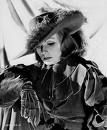





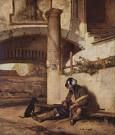


1654 The beginning of large-scale Huguenot immigration to North Am. In Jan. the Treaty of Pereiaslav between Russia and the rebel (since 1648) Ukrainian Cossacks creates an anti-Polish coalition, starting the Thirteen Years' War (Russo-Polish War of 1654-67) (First Northern War) (War for Ukraine) (ends 1667); after the Russkies send 100K men to aid the 20K-man Cossack army, the Poles under Janusz Radziwill only manage to round-up 6K-7K men, and win a small V on Aug. 12 against 40K-70K of them at the Battle of Shklov (Shklow) before being defeated on Aug. 24 at the Battle of Shepeleviche (Szepielewicze) (Ciecierzyn) and retreating to Minsk; Smolensk surrenders to the Russians on Oct. 3, while another Russian army occupies Kiev; meanwhile Prussia sides with Sweden (until next year), and Frederick William the Great Elector invades his heart's desire Prussia. On Apr. 5 (Apr. 15?) the First Treaty of Westminster is signed, ending the First Anglo-Dutch War (begun 1652) with a V for the English; the Dutch recognize the English Navigation Act, expel the Stuarts, pay damages, agree to salute the English flag in the Narrow Seas, and generally whimper like a kicked dog; on July 10 the Second Treaty of Westminster is signed with Portugal, protecting English traders on Portuguese soil along with the right to use their own Protestant Bible and to bury their dead according to Protestant rites; Cromwell's sea power has such a bright future that the admirals take to wearing shades, as long as Cromwell can keep it from being mothballed, so, while he is waiting for his first Parliament to be elected, he starts a naval war against Spain, using the pretext of a Spanish seizure of English ships in the West Indies (where Spain claims a monopoly), secretly sailing from Portsmouth with 38 ships and 3K men on Christmas Day (Dec. 25), with turncoat Dominican friar Thomas Gage as guide, arriving in Barbados next Jan.; meanwhile an English fleet attacks San Domingo, but fails miserably; the first Jew, Jacob Barsimson emigrates from Holland to New Amsterdam, after which many more Jews follow him to New Amsterdam and Newport, R.I., going on to establish trade with the Indians in firewater and cheap trinkets and pump up the African slave trade. Descartes got to her that much? On June 6 Swedish queen (since 1632) Christina Wasa (1626-89), the Balls, er, "Pallas of the North" abdicates the Swedish throne after converting to Roman Catholicism (which is illegal in Sweden), and gives it to her cousin Charles (Karl) Gustav X (1622-60), who becomes Wittelsbach king #2 of Sweden (until 1660); she then takes off on horseback wearing men's clothing as usual, with a male retinue, riding through Europe, then taking up residence in Rome, where she becomes an instant celeb, staying two years until she runs out of money and heads for France to get serious. On Sept. a new British Parliament meets, passing a constitution with a mini-bill of rights guaranteeing religious liberty to all except Roman Catholics and Episcopalians. On Sept. 3 Parliament quarrels with Cromwell, causing him to order members to be excluded on Sept. 12. On Oct. 30 emperor (since 1643) Go-Komyo (b. 1633) dies 2 mo. after Buddhist priest Ingen Ryuki (Yinyuan Longqi) (1592-1673) arrives from China to reform Japanese Buddhism, and on Jan. 5 his younger brother (8th son of Go-Mizunoo) Go-Sai (Go-Saiin) (1638-85) (personal name Nagahito) becomes Japanese emperor #111 (until Mar. 5, 1663), marking time until his younger brother Prince Satohito can attain the age of majority. On Nov. 27 English-born Charles Chauncy (1592-1672) becomes pres. of Harvard College (until 1672), going on to utter the soundbyte that long hair is "a heathenish practice" and "one of the crying sins of the land". England and Sweden sign a Treaty of Commerce, with Article IV containing the first reciprocal most-favored nation clause. Louis XIV is crowned at Rheims. The Portuguese drive the Dutch out of the great plantation colonies of NE Brazil, reestablishing territorial integrity. Roger Williams becomes pres. of the Rhode Island Colony (until 1657). A Puritan revolt begins in Md., home of the Toleration Act (ends 1658). The Portuguese under Joao IV the Fortunate win a 2nd naval V over the Dutch off the coast of Brazil (first 1649), and take Brazil back from them, bringing the Inquisition with them, causing the Jews to flee; the first group of Jews in North Am. arrive in New Amsterdam from Brazil (23 Sephardic Jews from Recife who had been expelled from Spain in 1492, sought refuge in Holland, then migrated to Dutch-occupied Brazil), and found Congregation Shearith Israel, the city's only Jewish synagogue until 1825; the Jews have a beachhead in the New World, and unlike Europe, the govt. imposes virtually no restrictions on them, and lets them accumulate unlimited wealth without confiscating it, causing the unique American Jew to develop? - 335 years to Seinfeld? Oliver Cromwell appoints Edward Winslow as commissioner of a British naval expedition against the Spanish in the West Indies. The French attempt to colonize Reunion (Bourbon) Island. The city of Kharkhiv (Kharkov) ("kharka" = swan) in NE Ukraine (modern-day pop. 1.4M/1.7M) is founded as an outpost of Moscow, becoming the 2nd largest city in Ukraine. The Common Road between Boston, Mass. and Providence, R.I. opens, becoming the first long colonial highway; it is later extended to New York City as the Shore Road. Entailor (fee tail) is introduced from Spain to Germany, giving an inalienable interest in land to a grantee and his direct descendants. John Casor (Cazara) (Corsala) becomes the first black to be declared a slave for life by one of the original 13 Colonies (Northampton County, Va.); he is the property of colonist Anthony Johnson, a black man. Robert Boyle (1627-91) succeeds Johann Valentin Andrea as grandmaster of the Priory of Sion (until 1691) :). Puritan sourpuss Oliver Cromwell (1599-1658) bans horseracing in England, while keeping his own private stock of studs, but after he dies Charles II (1630-85) is restored in 1660, and he reinstates the sport, establishing the Newmarket Town Plate in 1665 in Newmarket, Suffolk, which he wins in 1671, becoming the first (only) reigning monarch to ride a winner. Architecture: The Church of Sant' Agnese in Agona in Rome, Italy designed by Francesco Borromini is begun (finished in 1657). John Webb (1611-72) designs Lamport Hall in Northamptonshire, England. Queen's Lane Coffee House in Oxford, England is opened, surviving to modern times. Science: French mathematicians Blaise Pascal (1623-62) and Pierre de Fermat (1601-65) of France pub. the basic laws of Probability Theory; Pascal invents the roulette wheel as a by-product of experiments with perpetual motion. Nonfiction: John Biddle, Twofold Scripture Catechism. John Amos Comenius (1592-1670), Orbis Sensualium Pictus (Nuremburg); Latin textbook; the first picture book encyclopedia for children; big hit - a steak, please, for me and the boys? John Eliot (1604-90), Primer on Catechism, in the Massachusetts Indian Language; first printed book in an Indian language in North Am. John Milton (1608-74), Defensio Secunda. Bishop John Wilkins (1614-72) and Seth Ward, Vindiciae Academiarum. Art: Carel Fabritius (1622-54), The Linnet; The Watchman. Francisco Herrera the Elder (1576-1656), The Triumph of St. Hermenegildo. Pieter de Hooch (1629-84), Delft After the Explosion; the one that blows Carel Fabritius to pieces? Rembrandt van Rijn (1606-69), Portrait of Jan Six. Music: Francesco Cavalli (1602-76), Xerse (opera) (Venice) (Jan. 12); libretto by Nicolo Minato; about Xerxes I ca. 480 B.C.E., based on Herodotus Book 7; incl. Ombra Mai Fu (Never Has There Been A Shade). Jeremy Taylor (1613-67), Golden Grove, or, A Manuall of Daily Prayers and Letanies, Fitted to the Dayes of the Week, Containing a Short Summary of What is to Be Believed; 21 congregational hymns. Plays: Savinien Cyrano de Bergerac (1619-55), Le Pedant Joue (comedy). Augustin Moreto y Cabana (1618-69), El Desden con el Desden ("Donna Diana") (comedy). George Chapman, Revenge for Honour (tragedy). Tristan l'Hermite (1601-55), Parasite (last play). Moliere (1622-73), Le Depit Amoureux (comedy). Philippe Quinault (1635-88), L'Amant Indiscret (comedy). Joost van den Vondel (1587-1679), Lucifer (drama). John Webster (1580-1635), Apius and Virginia (tragedy). Novels: Madeleine de Scudery, Clelie (Clélie) (10 vols.) (1654-61); features the Carte du Tendre, a map of Arcadia where the geography is based around the theme of love; Histoire Romaine. Births: French marshal Louis Joseph de Bourbon, 3rd duc de Vendome (d. 1712) on July 1 in Paris; son of Louis, 2nd duc de Vendome (1612-69) (great-grandson of Henry IV), and Laura Mancini (sister of Olympia Mancini, mother of Prince Eugene of Savoy); they may be cousins, but the duc and the prince are big opponents. Japanese emperor #112 (1663-87) Reigen (Satohito) (d. 1732) on July 9; 16th son of Go-Mizunoo (1596-1680). Dutch theologian-mathematician Bernard Nieuwentyt (Nieuwentijt) (Nieuwentijdt) (Nieuwentyt) (d. 1718) on Aug. 10 in West-Graftdijk, North Holland. Italian physician-anatomist (chief physician of the pope) Giovanni Maria Lancisi (d. 1720) on Oct. 26 in Rome. German Bible translator (in Livonia or Latvia) Johann Ernst Gluck (Glück) (d. 1705) on Nov. 10 in Wettin (near Halle). Am. colonial official Robert Livingston the Elder (d. 1728) on Dec. 13 in Ancrum, Roxburghshire, Scotland; settles in Albany, N.Y., becoming lord of the 160K-acre Livingston Manor, then goes into govt. service; grandfather of brothers Philip Livingston (1716-78) and William Livingston (1723-90); great-grandfather of Henry Brockholst Livingston (1757-1823), son of William Livingston; great-grandfather of brothers Robert R. Livingston (1746-1813) and Edward Livingston (1764-1836), cousins of Henry Brockholst Livingston. Swiss mathematician (calculus contributor) Jacob (Jakob) (Jacques) (James) Bernoulli (d. 1705) on Dec. 27 in Basel; brother of Jean Bernoulli (1667-1748); total of eight prominent mathematicians in one family. German "Entdecktes Judenthum" Orientalist Johann Andreas Eisenmenger (d. 1704) in Mannheim. Dutch "Willem III" dramatist Lucas Rotgans (d. 1710). Chinese Qing emperor #2 (#4) (1661-1722) Qing Sheng Zu (Kang Xi) (K'ang Hsi) (Xuanye) (d. 1723) on May 4 in Beijing; son of Shun Zhi (-1661). French Protestant minister (in Ireland) Jacques (James) (Jakob) Abbadie (d. 1727) (1657?) (1658?) in Nay, Bearn; educated at the U. of Sedan. Dutch mapmaker Herman Moll (d. 1732) in Bremen?; moves to London in 1678. Deaths: Swedish statesman Count Axel Oxenstierna (b. 1583) on Aug. 28 in Stockholm: "Do you not know. my son, with how little wisdom the world is governed?" French architect Jacques Lemercier (b. 1585) on Jan. 13 in Paris. German theologian Johann Valentin Andreae (b. 1586) on June 27 in Stuttgart. German organist-composer Samuel Scheidt (b. 1587). Scottish writer Alexander Ross (b. 1590). Italian sculptor Alessandro Algardi (b. 1598) on June 10 in Rome. Dutch gov.-gen. #5 of New Netherland (1633-8) Wouter van Twiller (b. 1606) on Aug. 29 in Amsterdam. English merchant-economist Edward Misselden (b. 1608). Dutch painter Carel Fabritius (b. 1622) on Oct. 12 in Delft; killed in an accidental explosion of the town's gunpowder magazine - the good die young? Dutch painter Paulus Potter (b. 1625) on Jan. 17 in Amsterdam (TB) - the good kick the pot young? Japanese emperor #110 (1643-54) Go-Komyo (b. 1633) on Oct. 30.
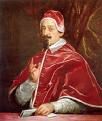
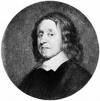

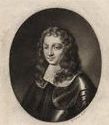



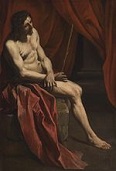
1655 A famine in Ireland produces another one in Scotland. On Jan. 1 Pope (since 1644) Innocent X (b. 1574) dies, and on Apr. 7 Fabio Chigi is elected Pope (#237) Alexander VII (1599-1667), the pope who steers the ship through the year 1666. So go ahead, feed your spicy side? On Jan. 22 Parliament tries to make the office of Lord Protector elective, causing Cromwell to elect to dissolve it, censor the press, prohibit Anglican services, expel Catholic priests from England, and divide the merryless olde kingless kingdom into 12 districts ruled by major-generals, each supported by a 10% tax on royalist estates; Cromwell now has more power than a king; too bad he can't live forever? In Jan. the Polish-Lithuanian army scores a V over the Russian-Cossack army at the Battle of Okhmatov; too bad, in the summer Sweden under Charles X, aided by Jan III Sobieski enters the war, invading Poland from the N and starting the First Northern War (ends 1658), occupying Grodek (Grudziaz) on the Vistula River, followed by Warsaw on Oct. 8 and Krakow on Oct. 19, causing Jan II Casimir to flee to exile in Silesia; the Swedish Deluge of Poland (ends 1660) begins, in which Protestant Sweden occupies the entire country and lord sit over the Roman Catholic Poles and the Orthodox Lithuanians, turning the pop. against them; Prussia sides with Sweden (until next year). In Mar. the royalist Penruddocke (Penruddock) (Sealed Knot) Uprising begins at Salisbury, which Cromwell suppresses by May, executing leader Sir John Penruddock(e) (b. 1619). On Apr. 4 the Battle of Porto Farina (Ghar El Melh) in Tunis sees a British fleet under Adm. Robert Blake defeat the Barbary pirates; on Apr. 28 they damage the arsenal of the Bey of Tunis. On Apr. 13 Thomas Gage's military expedition arrives at Santo Domingo, finding that the Spanish had been tipped off and are waiting for them, then on May 10 arrives at Jamaica, and seizes it from Spain, establishing a colony which becomes the nucleus of their empire in the West Indies, prospering from wealth brought by buccaneers to their base, the capital city of Port Royal, "the Wickedest City on Earth"; meanwhile slaves and their Spanish masters flee to the bush, forming runaway Jamaican Maroon communities which pester the English, reaching full-scale war by the 18th cent.; on May 8 Edward Winslow (b. 1595) dies of yellow fever at sea between Hispaniola and Jamaica on the return trip; Henry Morgan (1635-88) of Wales arrives just in time for the seizure, becoming BMOC in Port Royal ("wickedest city in the world"), and claiming that taking advantage of Jamaica's strategic position on the Spanish sea routes to plunder Spanish galleons is God's work (citing Oliver Cromwell), and getting a commission from the British govt.; meanwhile the Spanish nat. debt is 12x its annual income, most derived from the treasure fleets Morgan is looting. On Apr. 24 the Easter Massacre of the Waldensians in Piedmont, Italy sees 1.7K men, women, and children brutally slaughtered by the troops of Duke Charles Emmanuel II of Savoy; in 2015 Pope Francis apologizes. On Apr. 26 the Dutch West India Co. denies a request by Peter Stuyvesant to exclude Jews from New Amsterdam. On June 13 Adriana Nooseman van de Bergh becomes the first actress in Amsterdam. On July 20 the Amsterdam Town Hall is inaugurated, later becoming the royal palace. On July 27 Netherlands and Brandenburg sign a military treaty. On July 27 the Jews in Amsterdam petition for a separate cemetery. On July 30 Dutch troops capture Ft. Assahudi Seram. On July 31 Russian troops capture Vilnius, capital of the Grand Duchy of Lithuania (until 1661). On Aug. 9 Oliver Cromwell divides England into 11 districts, each under a maj.-gen. In Aug. New Netherland gov. Peter Stuyvesant attacks the Delaware (New Sweden) Colony, recapturing Ft. Casimir on Sept. 26 and defeating the colony, establishing Dutch authority over the entire Delaware River region, incl. Christina (Wilmington). On Sept. 8 Swedish king Carl X Gustav occupies Warsaw, followed by Cracow on Oct. 19. On Oct. 15 the Jews of Lublin are massacred. In Oct. Oliver Cromwell pacifies Pinerolo, stops the persecution of Vaudois, and gets France to agree to expel Charles II. On Nov. 3 England and France sign military-economic treaties. On Nov. 24 Oliver Cromwell bans Anglicans. On Dec. 4 Middleburg, Netherlands forbids the building of Jewish synagogues. On Dec. 27 the monks of Jasna Gora Monastery in Czestochowa fend off a month-long siege. In Dec. after Portuguese-born Dutch Jewish leader Menasseh ben Israel (Manoel Dias Soeiro) (1604-57) (teacher of Baruch de Spinoza) arrives in London and Oliver Cromwell summons the Whitehall Conference, the Jews are officially readmitted to England for the first time since 1290, with Portuguese Jewish merchant Antonio Fernandez Carvajal (1590-1659) becoming #1; Spanish Marrano Jews posing as Roman Catholics had already been living in England, and next year when England declares war against Spain they are forced to admit their Judaism to avoid arrest; they bought their way back in by financing Cromwell's civil wars? - I'm a menudo guy, alright? Leopold I becomes king of Hungary. Henry Cromwell (1628-74), Oliver Cromwell's 4th son becomes acting lord deputy of Ireland, then lord deputy in Nov. 1657 (until June 1657), slowing down the deportation of the Irish and acting impartially toward the different Protestant sects, becoming popular (for a Cromwell). After many years of plotting to take back Kent Island from Catholic Maryland, Jamestown Puritan leader William Claiborne defeats a force led by Md. gov. Stone in Providence (Annapolis), kills him, then takes control of Md., and travels to England to get official control, but they don't go for it and Sir George Calvert regains control; after the Puritan govt. in England is ousted in 1660, he finally gives up and contents himself with his little ole 5K-acre Romancoke estate on the York River in Va. The English navy wins a brilliant naval V off Dunkirk in Spanish Flanders, followed by the capture of the port in 1658 by the English army in alliance with France, with the Great Conde fighting on the Spanish side; despite the Vs, the commercial class becomes alienated from Cromwell because of the expense, taxation and disruption of trade? captures it. The Cambodians reach an agreement to pay restitution for damage to the East India Co. trading post, but the Dutch have to relinquish their trade monopoly in Cambodia. The first regular newspaper begins pub. in Berlin. The English word "genie" (genyes) is coined from the French to mean guardian spirit. Architecture: The Bibliotheca Thysiana in Netherlands is built, becoming the only Dutch 17th cent. library to survive to modern times. Science: Dutch scientist Christiaan Huygens (1629-95) discovers the rings of Saturn, also on Mar. 25 Saturn's biggest moon Titan (1st known moon of Saturn) (6th known planetary satellite after Earth's moon and the four Galilean moons of Jupiter) (2nd largest moon in the Solar System after Jupiter's moon Ganymede, and only moon with an atmosphere); at last the age-old belief that the heavens are of a different stuff than the Earth is shattered when the former "god" Saturn turns out to have a physical structure, and therefore is not heavenly, pushing the abode of God and the angels back, back, back; he also discovers the mv^2/r formula for planetary orbits, which really makes their physical ordinariness apparent, since the m in the formula applies to heavenly angel hair as well as crap? - what a revelation just as the big 666 year is coming up? Nonfiction: Pierre Borel, Tresor des Recherches et Antiquites Gauloises (Treasury of French Researches and Antiquities). John Cotgrave, The English Treasury of Literature and Language. William Drummond (1585-1649), A History of the Five Jameses (posth.). Thomas Fuller (1608-61), Church History of Britain; from the birth of Jesus Christ until the year 1648. William Gurnall (1617-79), The Christian in Complete Armour (3 vols.) (1655-62); based on Ephesians 6:10-20; big hit with John Newton, Augustus Toplady et al., going into a 6th ed. by 1679. Bollandiste Henschenius, Diatriba de Tribus Dagobertus; restores Dagobert II's suppressed name to the list of Merovingian kings after he is rediscovered in 1646 by Adrien de Valois. Thomas Hobbes (1588-1679), Elementorum Philosophiae. Edward Somerset (1602-67), The Century of Inventions; incl. a description of a steam engine. Thomas Stanley, A History of Philosophy (4 vols.) (1655-62). Brian Walton (ed.), The London Polyglot Bible (1655-7). Ch'en Yuan-lung, Ko-chih-ching-yuan (New Inventions). Art: Gianlorenzo Bernini (1598-1680), Christ Mocked (1644-55); Daniel and the Lion (sculpture) (1655-7). Melchior d'Hondecoeter (1636-95), Tub with Fish; gives fish up for birds, "displaying the maternity of the hen with as much tenderness and feeling as Raphael the maternity of Madonnas" (Burger), going on to paint The Menagerie. Jacob Jordaens (1593-1678), Presentation in the Temple. Rembrandt van Rijn (1606-69), Woman Bathing in a Stream; Head of Christ. Plays: James Shirley (1596-1666), The Gentleman of Venice (tragicomedy). William Strode, The Floating Island (drama). Births: German jurist-philosopher Christian Thomasius (d. 1728) on Jan. 1 in Leipzig; son of Jakob Thomasius (1622-84). German imperial army CIC Gen. Louis William, Margrave of Baden (AKA Turkenlouis) (d. 1707) on Apr. 8 in Paris; son of Prince Ferdinand Maximilian of Baden-Baden (1625-99) and Princess Louise Christine of Savoy-Carignan (1627-89) (brother of the count of Soissons, father of Prince Eugene of Savoy); after his parents break up, he is kidnapped as a child from his mother's home in Paris and raised in Germany by his paternal step-grandmother; husband of Sibylle of Saxe-Lauenburg; father of Margave Louis George of Baden-Baden (1702-61), Margravine Auguste of Baden-Baden (1704-26), and Margrave Augustus George of Baden-Baden (1706-71). Italian piano inventor Bartolomeo Cristofori di Francesco (d. 1731) on May 4 in Padua. German Bavarian architect Christoph (Krystof) Dientzenhofer (d. 1722) on July 7 in St. Margarethen (near Brannenburg), Rosenheim; father of Kilian Ignaz Dientzenhofer (1689-1751). German clarinet inventor Johann Christoph Denner (d. 1707) on Aug. 13 in Leipzig. Danish anatomist (discoverer of the Bartholin glands) Caspar (Kaspar) Thomeson Bartholin the Younger (d. 1738) on Sept. 10 in Copenhagen; son of Thomas Bartholin (1616-80); grandson of Caspar Bartholin the Younger (1585-1629). British royal gov. of Md. (1694-8), lts. gov. of Va. (1698-1701), and gov. of Nova Scotia (1712-15) lt.-gen. Sir Francis Nicholson (d. 1728) on Nov. 12 in Downholme, Yorkshire; knighted in 1720. English bookseller-publisher Jacob Tonson the Elder (d. 1736) on Nov. 12. Swedish Wittelsbach king #3 (1660-97) Karl (Charles) XI (d. 1697) on Nov. 24 in Tre Kronor; only son of Charles X (1622-60) and Hedwig Eleonora of Holstein-Gottorp (1636-1715); father of Charles XII (1682-1718). Deaths: Dutch scholar-poet Daniel Heinsius (b. 1580) on Feb. 25 in Leiden. English-born Am. settler Thomas Cornell Sr. (b. 1591) on Feb. 8 in Portsmouth, R.I. (d. 1654?). French philosopher Pierre Gassendi (b. 1592). Dutch navigator David Pieterszoon de Vries (b. 1593) on Sept. 13 in Hoorn. English politician-soldier Edward Conway, 2nd viscount Conway (b. 1594) on June 26 in Lyon, France. English Mayflower Pilgrim leader (TLW ancestor?) Edward Winslow (b. 1595) on May 8 (yellow fever) between Hispaniola and Jamaica; buried at sea with full honors; the ship's clerk wrote: "The eighth of May, west from 'Spaniola shore,/ God took from us our Grand Commissioner,/ Winslow by name, a man in chiefest trust,/ Whose life was sweet, and conversation just;/ Whose parts and wisdom most men did excel,/ An honor to his place, as all can tell." French dramatist Tristan l'Hermite (b. 1601) on Sept. 7 (TB). German author Friedrich von Logau (b. 1604) on July 24 in Liegnitz. German composer Sigmund Gottlieb Staden (b. 1607). French dramatist-poet-novelist Savinien Cyrano de Bergerac (b. 1619) on July 28 in Paris; inspiration for Edmond Rostand's play. French painter Eustache Lesueur (b. 1617) on Apr. 30 in Paris.


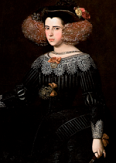









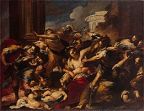
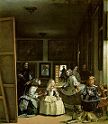

1656 On Jan. 17 Sweden and Brandenburg sign the Treaty of Konigsberg, followed on June 29 by the Treaty (Alliance) of Marienberg; Sweden cedes Prussia to Frederick William the Great Elector. In Jan. English capt. Sir Christopher Myngs (1625-66) of the frigate Marston Moor arrives in Jamaica, going on to set up shop as a commerce raider during the Anglo-Spanish War, gaining a rep as a butcher who sacks and massacres whole towns, causing the Spanish govt. to lodge protests with Oliver Cromwell, who ignores them since he's getting mucho booty. On Feb. 28 a grandiose celebration is held for ex-queen Christina of Sweden at Palazzo Aldobrandini in Rome, with 6K spectators and a procession of camels and elephants in Oriental garb; later in the year she travels to France, where she shocks ladies with her manly speech and behavior (crossing her legs, etc.), and moves into Fontainebleau, where she grooves on the Horseshoe Staircase and Cour du Cheval Blanc (Court of the White Horse) while plotting with Cardinal Mazarin to have France help her forcefully seize the throne of Naples. In July the Swallow from Barbados arrives at Boston, Mass. carrying the first Quaker missionaries in North Am.; Mass. royal gov. John Endicott freaks, and orders passengers Mary Fisher and Ann Austin held on board while they search the ship, find 100 "corrupt, heretical, and blasphemous" books, and burn them in the marketplace; meanwhile the women are stripped and felt up, er, searched for signs of witchcraft, and kept for five weeks in darkness before being shipped back to Barbados; "What was it that the coming of two women so shook ye, as if a formidable army had invaded your borders?" (a contemporary). On Oct. 8 Johann Georg I (b. 1585) dies, and his eldest son Johann Georg II (1613-80) succeeds as elector of much-weakened Saxony (until Aug. 22, 1680), going on to reconstruct the war-torn economy by promoting the textile, glass and coal industries, mining silver, and sponsoring the Leipzig Trade Fair, urning Dresden into the musical center of Germany. On Oct. 24 English Quaker leader (more quakier rival of George Fox) James Naylor (Nayler) (1618-60) is proclaimed the Messiah by his followers, and dramatically enters Bristol a la Christ on a donkey while they sing hosannas and cast garments before him, after which he is arrested under the 1650 Blasphemy Act, convicted by the House of Commons, flogged twice, a letter B branded on his forehead, his tongue pierced, then imprisoned two years (until 1659), reconciling with Fox before getting robbed and mugged in Oct. 1660 near Huntington, and croaking after uttering the immortal soundbyte "There is a spirit" - you get to decide what his top secret mission is? On Nov. 6 king (since Dec. 1, 1640) Joao IV the Restorer (b. 1604) dies, and his son +Afonso VI (the Victorious) (1643-83) becomes Braganza king #2 of Inquisition-loving Portugal (until Sept. 12, 1683), with his mother Luisa Maria Francisca de Guzman (Guzmán) y Sandoval of Medina-Sodonia (1613-66) as regent until 1662. In Nov. Russian tsar Alexis gets worried about the pesky Swedes and makes peace with Poland-Lithuania, signing the Treaty of Wilno (Nimieza), and allying with them. On Dec. 23 Swedish ex-Queen Christina is received by Pope Alexander VII in Rome. Oliver Cromwell's new Puritan military occupation govt. makes life hell for the little guy with its arbitrary acts as well as the zealous enforcement of Cromwell's Blue Laws (from the color of the paper), prohibiting everything that is fun every day of the week and twice on Sunday; needing money, Cromwell summons another parliament, excluding a hundred members, then allows the rest to frame a new constitution, which they call the Humble Petition and Advice. Leopold I becomes king of Bohemia. 70-y.-o. Albanian-born Mohammed Kiuprili (1786-1661) becomes grand vizier to Ottoman sultan Mohammed IV (until 1661). Rama Varma dies, and Rani Gangadhara Lakshmi (-1658) becomes ruler of Cochin (until 1658). The Iroquois wipe out the Erie Nation. The Dutch take Colombo from the Portuguese, and Cambodia from Britain. Pirates from Taiwan take Chongming Island. Persian shah Abbas II begins cracking down on Jews, forcing them to convert to Islam. Chinsura on the Hooghly River 24 mi. N of Calcutta is settled by the Dutch. The tiny island of Isola Tiberina in the Tiber River S of the Vatican is used to quarantine plague victims, and develops a reputation for mystic healing properties. Huntingdon, N.Y. on the N shore of Long Island is founded by Richard Holbrook, Robert Williams, and Daniel Whitehead from Oyster Bay on land purchased from the Matinecock tribe; in 1660 it votes to become part of the Conn. Colony; in 1664 after the British gain control of Amsterdam it is returned to N.Y.; in 1872 the S end of town is separated to create the town of Babylon. The Academy of Painting in Rome is founded. The Regiment of Grenadier Guards is formed by Lord Wenworth in Bruges. Louis XIV of France founds Pitie-Salpetriere (Pitié-Salpêtrière) Hospital, AKA Hospital (or Hopital) Gen. in Paris as a combo hospital, factory, and poorhouse, growing to the world's largest hospital by 1789, with 10K patients, mainly hos and mental cases. Baruch Spinoza is excommunicated by the rabbis and banished from Amsterdam; for the next five years he lives on the outskirts of the city grinding optical lenses, the dust from which eventually kills him. Rembrandt van Rijn is declared bankrupt - he's Baroque? Sir William Davenant gets around the Puritan ban on dramatic performances by doing it in private houses in London. Architecture: Gianlorenzo Bernini (1598-1680) begins St. Peter's Square (Piazza San Pietro) in Rome (finished 1667); a great square in monumental Baroque style with a semicircular colonnade ringing the 83-ft. Egyptian obelisk erected by Pope Sixtus V in 1586; it incl. Statues Over the Colonnades of St. Peter's Square, a series of Travertine statues (finished in 1671). Baldassarre Longhena, Chiesa dell'Ospedaletto and Santa Maria degli Scalzi (Venice). Andre Le Notre (1613-1700), Gardens at Vaux-le-Viscomte (finished 1661). Inventions: English mathematician John Wallis (1616-1703) invents the sideways-eight symbol for infinity. Christiaan Huygens builds the first Pendulum Clock in London based on a design by Galileo; after adding the first-ever anchor escapement to reduce the pendulum swing, it only loses 1 sec. every 3 hours, vastly improving on the old verge-and-folio escapement. The first crude Fountain Pens are manufactured in Paris. Science: English anatomist Thomas Wharton (1614-73) describes the anatomy of glands. Nonfiction: Thomas Blount (1618-79), Glossographia; lists over 11K "hard words together with Divinity Terms, Law, Physick, Mathematics and other Arts and Science explicated". Jacob "Father" Cats (1577-1660), Ouderdom, Buytenleven en Hofgedachten op Zorgh-vliet (autobio.). Mary Cavendish, Duchess of Newcastle-upon-Tyne (1623-73), A True Relation of My Birth, Breeding, and Life (autobio.). Menasseh ben Israel (1604-57), Vindiciae Judaeorum; justifies Cromwell's readmission of the Jews to England after attacks by William Prynne et al. John Bunyan (1628-88), Some Gospel Truths Opened. Pierre de Lune, Le Cuisinier. Marchamont Needham (1620-78), The Excellency of a Free State. Blaise Pascal (1623-62), Lettres Provinciales (Provincial Letters); against the Jesuits, based on material furnished by French Jansenist writer Antoine Arnauld. Music: Johann Cruger (1598-1662), Praxis Pietatis Melica; incl. 18 hymns by Paul Gerhardt (1607-76), who goes on to become #1 in German hymns ("the Wesley of the Fatherland"). Sir William Davenant (1606-68), The Siege of Rhodes (opera) (Rutland House, London); music by Matthew Locke; the first English opera. Art: Valerio Castello (1624-59), The Massacre of the Innocents (1656-8) - wasting away again in Margaritaville? Nicolaes Maes (1634-93), Old Woman Dozing - come in the hot tub with me? Diego Velazquez (1599-1660), Las Meninas (The Ladies-in-Waiting) (family of Philip IV incl. 5-y.-o. Margaret Theresa and a a self-portrait); his masterpiece?; "The theology of painting" (Luca Giordano); "The true philosophy of the art" (Sir Thomas Lawrence). Jan Vermeer (1632-75), The Procuress. Plays: Sir William Davenant (1606-68), The Siege of Rhodes, Pt. 1 (tragicomedy) (Sept.). Poems: Jean Chapelain (1595-1674), La Pucelle d'Orleans; worked on it for 20 years, and sells out 6 printings in 18 mo., then gets skewered by Nicolas Boileau-Despreaux (1636-1711), ruining his rep. as a poet, causing him to stick to being a critic. Abraham Cowley (1618-67), Pindarique Odes; Davideis; unfinished epic about Biblical King David. John Ford (1586-1637) and Thomas Dekker (1572-1632), The Sun's Darling (masque). Births: English "Chronicon Preciosum" bishop of St. Asaph and Ely (Whig) William Fleetwood (d. 1723) on Jan. 1 in the Tower of London; educated at Eton College, and King's College, Cambridge U.; most popular preacher of his day, a favorite of Queen Anne. Am. native Am. saint #1 ("Flower of the Algonquins") ("Lily of the Mohawks") Kateri Tekakwitha (d. 1680) in Apr. in Ossernenon, N.Y.; Mohawk father, Roman Catholic Algonquin mother; beatified in 1943, 1980. Scottish nobleman James Hamilton, 2nd Baron Belhaven and Stenton (d. 1708) on July 5. English "The Ladies' Defence" feminist writer-poet Mary Chudleigh (nee Lee), Lady Chudleigh (d. 1710) in Aug. in Winslade, Devon; daughter of Richard Lee and Mary Sydenham of Westminster; wife (1674-) of Sir George Chudleigh, 3rd Baronet (-1718); mother of Sir George Chudleigh, 4th baronet (-1738). English "Halley's Comet" astronomer-meteorologist ("the Southern Tycho") Edmund (Edmond) Halley (d. 1742) on Nov. 8 in London; educated at Queen's College, Oxford U. French botanist Joseph Pitton de Tournefort (d. 1708) in Aix-en-Province; educated by the Jesuits; first to define the concept of genus for plants; coins the term "herbarium"; teacher of Charles Plumier (1646-1704). English mercantilist economist and Tory MP Charles Davenant (d. 1714); educated at Balliol College, Oxford U. Austrian Karlskirche architect Johann Bernhard Fischer von Erlach (d. 1723). English Anglican philanthropist clergyman (abolitionist) Thomas Bray (d. 1730) in Marton, Shropshire; educated at All Souls College, Oxford U. French noble Antoine Gaston Jean Baptiste, Duc de Roquelaure (d. 1738); natty dresser gets a knee-length cloak named after him - not just a cloak but a roque? Deaths: Welsh composer Thomas Tomkins (b. 1572) on June 9 in Martin Hussingtree (near Worcester), England. Welsh-born British vice-adm. Sir Robert Mansell (b. 1573). Spanish painter El Viejo (Francisco de Herrera) (b. 1576). Italian anatomist Marco Aurelio Severino (b. 1580) on July 12 in Naples (plague); leaves the book The Philosophy of Chess (La filosofia degli scacchi). Irish world-dating archbishop James Ussher (b. 1581) on Mar. 21 in Reigate, Surrey, England; last words: "O Lord forgive me, especially my sins of omission"; buried in Westminster Abbey. English Puritan soldier Myles Standish (b. 1584) on Oct. 3 in Duxbury, Mass. German elector of Saxony (1611-56) Johann Georg I (b. 1585) on Oct. 8 in Dresden. Italian gen. Thomas Francis, prince of Carignano (b. 1596) on Jan. 22 in Turin. Dutch painter Jan Joseph van Goyen (b. 1596) on Apr. 27 in The Hague. English Anglican clergyman Thomas Gage (b. 1597) in Jamaica (dysentery). Italian field marshal Octavio Piccolomini (b. 1599) on Aug. 11. Portuguese king (1640-56) Joao IV the Fortunate (b. 1604) on Nov. 6 in Ribeira Palace. French painter Laurent de La Hyre (b. 1606) on Dec. 28 in Paris.

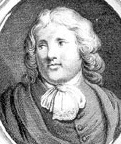





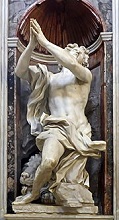
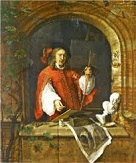
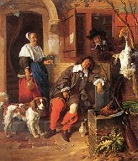

1657 There is a measles epidemic in Boston, Mass. On Apr. 2 HRE (since 1636) Ferdinand III (b. 1608) dies, and after Bavarian elector Ferdinand Maria offers no challenge despite the shenanigans of Cardinal Jules Mazarin (who hopes to break the Hapsburg succession), he is succeeded next July by his short, sickly, Hapsburg-lipped, Jesuit-dominated son Leopold I (the Hogmouth) (1640-1705) (until 1705), who ends up reigning 47 years and successfully struggling with the Turks and the French (three wars with Louis XIV), causing Austria to emerge as a great Euro power with an absolutist centralized regime; being a music lover, Vienna becomes a cultural center, and in 1683 gets coffee to boot. On Apr. 20 the British under Adm. Robert Blake win a big V over the Spanish West Indian fleet off Santa Cruz de Tenerife in the Canary Islands. On May 8 Cromwell rejects the title of king - on Biblical grounds? On Sept. 21 Pokanoket chief Massasoit signs his last Plymouth land deed to the palefaces to Hog Island in Narragansett Bay to Richard Smith of Rhode Island, then moves 55 mi. NW to become chief of the Nipmuck Quabaugs near modern-day Brookfield, Mass., and his eldest son Wamsutta (1634-62) (AKA Alexander) (brother of King Philip) becomes sachem (chief) of the Pokanokets (until 1662); his wife Weetamoo ("sweetheart") (1640-76) is a daughter of Corbitant, sachem of the Pocasset tribe in R.I. - let the voice of freedom ring throughout this land, this is our country? In the fall ex-queen Christina of Sweden kills her master of horse Monaldeschi for betraying her plans to take over Naples, and the news causes her rep to sink into the toilet, causing her to first try to visit England then give up and return to Rome. On Nov. 6 the Treaty of Bromberg (Bydgoszcz) allies Brandenburg with Poland against Sweden. On Dec. 27 after the Quakers arrive in New Amsterdam, the citizens of Vlissingen (Flushing, Queens) pub. the Flushing Remonstrance in response to dir.-gen. Peter Stuyvesant's orders to persecute religious minorities, declaring that the law guaranteeing "love, peace and liberty" should be extended to all residents, incl. "Jews, Turks and Egyptians". The Mogul Civil War begins (ends 1659). Denmark declares war on Sweden, which is already at war with Austria, Poland and Russia. Parliament tries to end military rule by setting Cromwell up as king with power to nominate his successor, and creates a second chamber ("the other house") (House of Lords), consisting of members nominated by Cromwell for life; he declines the crown ("only a feather in a hat") but accepts the remainder; the new govt. proves more popular than its predecessors. Dutch adm. Willem van der Zaan (Zaen) (1621-69) captures French warship Chasseur while it is illegally privateering, embarrassing the French govt. and causing Cardinal Mazarin to summon the Dutch ambassador to lecture him, but he loses his temper and calls him a common pirate, after which the States-Gen. award van der Zaan a golden chain. The Navajos kill a Spaniard, and are ruthlessly retaliated against. R.I. decides to give refuge to Quakers who have been banished by other colonies. The first Jewish synagogue opens in London. Under pressure of the French govt., the Alsatian town of Hagenau grants Polish Jewish refugee Gershon temporary shelter, starting a trend; they are welcome as long as they pay exorbitant taxes. John "Jack" Winthrop Jr. (1606-76), son of Mass. Bay Colony gov. John Winthrop (1588-1649) becomes gov. of Connecticut Colony (until 1658). The Ming Prince of Lu is ousted. The pirates of Taiwan attack Nanjing, China. The French Musketeers (disbanded 1646) are reformed with 150 men for the use of Cardinal Mazarin. 26-y.-o. Trinity College grad. John Dryden goes to London to clerk for his relative Sir Gilbert Pickering, who is Oliver Cromwell's chamberlain. English poet-satirist Andrew Marvell (1621-78), former tutor to the daughter of Lord Thomas Fairfax of Yorkshire is appointed asst. to foreign secy. John Milton (until 1659), going on to compose several poems praising Cromwell. The General Post Office (GPO) is founded in Britain. The Accademia del Cimento (Academy of Experiment) is founded in Florence by Galileo's faithful pupil Vincenzo Viviani (1622-1703). The first sidewalk in America is laid on Stone St. in New Amsterdam. Chocolate drinking begins in London - one thing that Cromwell grudgingly permits? Richard Mather gives a famous Farewell Sermon. Inventions: The first stockings are manufactured in Paris. Nonfiction: Richard Baxter (1615-91), A Call to the Unconverted to Turn and Live. Charles du Fresne, Sieur du Cange (1610-88), Histoire de l'Empire de Constantinople sous les Empereurs Francais. Johann Amos Comenius, Opera Didactice Omnia. James Howell (1594-1666), Londonopolis: An Historical Discourse or Perlustration of the City of London. Father Francois Richard, Relation de l'Isle de Sant-Enni; vyrkolakas stories. Le Sieur Saunier, L'Encyclopedie des Beaux Esprits; first reference book with the word "encyclopedie" in its title? Gaspar Schott (1608-66), Mechanicahydraulica-Pneumatica (Wurtzburg); first description of Otto von Guericke's air pump; Magia Universalis Naturae et Artis (4 vols.) (1657-9) (Wurtzburg). Art: Gianlorenzo Bernini (1598-1680), Daniel and the Lion (sculpture) (1655-7); placed in the Chigi Chapel in the Basilica of Santa Maria del Popolo in Rome, showing him praying while the tamed lion licks his right foot. Gerrit Dou (1613-75), The Dutch Housewife. Gabriel Metsu (1629-67), The Sleeping Sportsman (1657-9); painted after leaving Leiden for Amsterdam and going to work cranking out paintings of the burgeoisie. Diego Velazquez (1599-1660), Las Hilanderas (The Spinners) (The Fable of Arachne). Rembrandt van Rijn (1606-69), Portrait of Artist's Son Titus. Music: Adam Krieger, Deutsche Lieder. Plays: Pedro Calderon de la Barca (1600-81), El Laurel de Apolo (comedy); music by Juan de Hidalgo; debuts at the Palacio de la Zarzuela (brambles) royal hunting lodge near Madrid, alternating speaking and singing scenes, with popular and operatic singing and dancing incorporated, becoming known as the Zarzuela. Sir William Davenant (1606-68), The Siege of Rhodes, Pt. 2 (tragicomedy). Andreas Gryphius (1616-64), Herr Peter Squentz (comedy); based on Shakespeare's "A Midsummer Night's Dream. Francois Hedelin, Practique du Theatre. Thomas Middleton (1580-1627), No Wit Like a Woman (comedy). Savinien Cyrano de Bergerac, Les Etats et Empires de la Lune (posth.). Poetry: Angelus Silesius (1624-77), Geistreiche Sinn und Schlussreime (Cherubinischer Wandersmann) (The Cherubic Pilgrim) (1657-74); his mystical crypto-pantheism (officially orthodox); "God cannot love himself without becoming man, therefore God and man are one"; "The rose is without an explanation; she blooms because she blooms"; "I am like God and God like me. I am as large as God. He is as small as I. He cannot be above me nor I be beneath him." Births: French Jesuit missionary Sebastian Rale (Rasle) (Rasles) (d. 1724) on Jan. 20 in Pontarlier. French mathematician-playwright-writer Bernard le Bovier (Bouyer) de Fontenelle (d. 1757) on Feb. 11 in Rouen, Normandy; nephew of dramatist Pierre Corneille (1606-84). Japanese Confucianist poet-politician Arai Hakuseki (d. 1725) on Mar. 24 in Edo. Hungarian anti-Hapsburg leader Count Imre (Emeric) Thokoly (Thököly) (Tokolyi) (Tekely) (d. 1705) on Apr. 25 in Kezmarok (Kezmark), Slovakia. Prussian king #1 (1701-13) and Brandenburg elector (1688-1713) Frederick (Friedrich) I (d. 1713) on July 11 in Konigsberg; 3rd son of Elector Frederick William and 1st wife Louise Henriette of Orange-Nassau; maternal cousin of William III of England. French ecclesiastical historian Louis Elias Dupin (d. 1719). French Baroque composer-organist Michel Richard de Lalande (Delalande) (d. 1726) in Paris; known for his grand motets. English dramatist-critic John Dennis (d. 1734) in London; son of a saddler; educated at Harrow School, and Caius College and Trinity Hall, Cambridge U. Austrian Gen. Guido Wald Rudiger (Rüdiger_, Count of Starhemberg (d. 1737); cousin of Ernst Rudiger von Starhemberg (1638-1701). Deaths: English physiologist William Harvey (b. 1578) on June 3 in Roehampton. Dutch Flemish painter Frans Snyders (b. 1579) on Aug. 19 in Amsterdam. English-born Am. Puritan leader Gov. William Bradford (b. 1590) on May 9 in Plymouth Colony, Mass. Swedish field marshal Count Gustav Horn (b. 1592) on May 10. English Parliamentary adm. Robert Blake (b. 1599) on Aug. 17 off Portsmouth; dies at sea; buried in Westminster Abbey; when Charles II is restored he has his remains dumped in a common grave, and attempts are made to expunge him and all Parliamentarians from history. Portuguese-born rabbi Manasseh ben Israel (b. 1604) on Nov. 20 in Middleburg, Netherlands; dies while conveying his son Samuel from England for a burial after getting Oliver Cromwell to readmit the Jews to England and grant him a pension, which he never enjoys. English religious agitator Freeborn John Lilburne (b. 1614) on Aug. 29; dies after going Quaker, getting released from prison on account of bad health, then dying before Oliver Cromwell can get him thrown back in; his works are later cited by the U.S. Supreme Court. English Cavalier poet Richard Lovelace (b. 1618) in London.









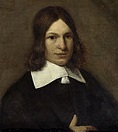
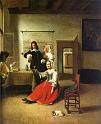
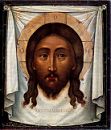
1658 On Feb. 26 the Treaty of Roskilde between Sweden and Denmark ends the First Northern War (begun 1655); as soon as the ink dries, Charles X begins the Second Northern War (ends 1661), laying siege to Copenhagen. Early in the year Parliament meets again, but the infighting between the two houses causes Cromwell to dissolve it and summon another, but before it can assemble Oliver Cromwell dies on Sept. 3 in Whitehall, London, his vision of a Godly Britain having no successor to carry it on; anarchy ensues; a great dark storm at his death is said to be the Devil coming for his soul; he is succeeded by his well-trained 3rd son Richard Cromwell (1626-1712) as Lord Protector (until 1659), but proves "a peasant in his nature" (Col. Hutchingson) and lacks the strength to carry on for his godlike daddy, and "Tumbledown Dick" AKA "Queen Dick" only lasts 9 mo. - the time it takes to make a baby? On June 14 (June 4 Old Style) French field marshal Vicomte de Turenne defeats former colleague Great Conde, now leading a Spanish army, and Don John of Austria at the decisive the Battle of the Dunes (Dunkirk) in the Spanish Netherlands, and kicks his great can. On July 31 Mughal) emperor (since Jan. 19, 1628) Shah Jahan (1592-1666) is deposed and imprisoned by his 3rd son Abul Muzaffar Muhi-ud-Din Mohammad Aurangzeb (great-grandson of Akbar the Great), who murders his two older brothers and becomes Aurangzeb (Aurungzeb) (1618-1707) (AKA Alamgir = "Universe-seizer"), Mughal emperor #6 of India (until Mar. 3, 1707), going on to extend the empire S again through the Maratha States almost to the S tip of India, becoming known for incorporating Hindus in his admin. in high places although he is a devout Muslim, reaching a yearly tribute of 38.6M British pounds in 1690; trying to top his daddy's Taj Mahal, he builds the Pearl Mosque in Delhi in 1659-60, and the Aurangzeb Mosque in Benares in 1674. In July Leopold I (1640-1705) is elected HRE (until May 5, 1705). On Aug. 4-14 the Rhenish League puts itself under a French protectorate to keep the Hapsburgs away. In Oct. after the 2-year truce with Russia breaks down under excessive demands by the tsar, and the war is renewed, the Battle of Werki sees a Polish-Lithuanian army under Hetman Wubcenty Gosiewski defeated by the Russians, and Gosiewski captured; Russia goes on to occupy more of Lithuania; meanwhile the Russian alliance with the Cossacks in the Ukraine collapses after the Bodan (Bogdan) Chmielnicki (Khmelnitski) Uprising against the Poles results in 100K Jews being killed, and a Russian army is sent to fight the Cossacks. The Puritans take over Maryland, and the Act of Toleration is no more - I married your ex-wife, that is not a crime? The Dutch drive the Portuguese out of Sri Lanka. English pirate Christopher Myngs gets pissed off at missing a Spanish treasure fleet, and myngs Tolu and Santa Maria in Colombia. French fur traders Medart Chouart de Groseilliers (1618-96) and Pierre Esprit Radisson (1636-1710) become the first Europeans to make contact with the tribes of the North Am. Great Plains W of Lake Superior. New Harlem is founded by Peter Stuyvesant. Rani Gangadharatakshmi dies, and Rama Varma (d. 1662) becomes ruler of Cochin. Manuel de Biedma (Viedma) begins exploring the area of W South Am. E of the Andes and S of the Amazon River (until 1686). The seaport of Helsingborg (Hälsingborg) in S Sweden on the Oresund (Öresund) (Sound) opposite Helsingor, Denmark passes from Danish to Swedish control. The Societe des Missions Etrangeres (Society of Foreign Missions) is founded in Paris. Swedish financier Johann Palmstruck devises the first bank note, which is issued by the Swedish nat. bank. About this time Thomas Garway (Garraway) of London purchases a large quantity of tea from China, and pub. Of the Tea Leaf, claiming it as a cure from A-Z, hooking the English on it, then opens Garraway's Coffeehouse in 1669, becoming one of the top auction houses in London - they get garwayed? Architecture: Gianlorenzo Bernini begins the Church of Castel Gandolfo (finished 1661). Inventions: Robert Hooke (1635-1703) invents the clock (watch) balance spring - a spring is a type of hook, right? Science: Flemish physician Franciscus Sylvius (Franz de le Boe) (1614-72) becomes prof. of medicine at the U. of Leiden (Leyden), going on to found the Iatrochemical School of Medicine (all life and therefore disease is based on chemical actions), introduce the concept of chemical affinity to explain bodily use of salts and digestion, defend Harvey's circulation of the blood theory, and discover Sylvius' fissure in the brain. English physician Sir Thomas Browne (1605-82) advocates cremation. Jean Baptiste Racine (1639-99) junks his parent's intended career of Jansenist priest and heads for the court of Louis XIV at Paris, becoming the new kid on the block and friend of poets Jean Chapelain and Jean de la Fontaine, but his parents freak at the thought of him going worldly and take him away (until 1663). Jan Swammerdam (1637-80) first describes red blood corpuscles (cells) - as they swam over the dam? Nonfiction: Sir Thomas Browne (1605-82), Hydriotaphia, or Urne Burial, or, A Brief Discourse of the Sepulchral Urnes Lately Found in Norfolk; Bronze Age earthenware burial vessels and their supposed funerary customs; advocates cremation; The Garden of Cyrus, or, The Quincunciall Lozenge, or Network Plantations of the Ancients, Artificially, Naturally, and Mystically Considered; the quincunx (5-spot die arrangement) and how Platonic forms exist throughout Nature. John Bunyan (1628-88), The Doctrine of the Law and Grace Unfolded. William Cavendish, 1st Duke of Newcastle-upon-Tyne (1592-1676), Methode et Invention Nouvelle de Dresser les Chevaux; book on horsemanship, written in Amsterdam where he established a riding school and invented draw reins; too bad, it trashes a famous Arabian horse purchased by James I from a merchant named Markham for 500 pounds, causing the English to turn their noses up at Arabians for decades. Sir William Dugdale (1605-86), History of St. Paul's Cathedral. J.R. Glauber, De Natura Salium. James Harrington, The Prerogative of Popular Government. Edward Phillips, A New World of Words. Pietro della Valle (1586-1652), Travels in Persia (2 vols.) (posth.) Izaak Walton (1593-1683), Biography of John Donne. Music: Johann Caspar von Kerll (1627-93), Applausi Festivi (opera) (Munich). Sir William Davenant (1606-68), The Cruelty of the Spaniards in Peru (opera). Art: Melchior d'Hondecoeter (1636-95), Dog Defending Dead Game Against a Bird of Prey. Pieter de Hooch (1629-84), Courtyard of a House in Delft; Woman Drinking with Two Soldiers - is she drinking hooch? Peter Lely (1618-80), The Family of the Earl of Carnarvon. Simon Ushakov (1626-86), Savior Not Made by Human Hands; called a "lascivious work of the Devil" by conservative Russian priests for being too Western? Adriaen van de Velde (1636-72), Farm with a Dead Tree. Jan Vermeer (1632-75), The Milkmaid (1658-9). Plays: Sir William Davenant (1606-68), The History of Sir Francis Drake. Poetry: Constantijn Huygens (1596-1687), Korenbloemen (1587-72). John Milton (1608-74), On His Deceased Wife (sonnet); "Methought I saw my late espoused Saint." Gilbert Swinhoe, The Tragedy of the Unhappy Fair Irene; based on Voltaire's 1778 play "Irene". Births: French sculptor Nicolas Coustou (d. 1733) on Jan. 9 in Lyons; son of wood carver Francois Coustou; nephew of sculptor Charles-Antoine Coysevox (1640-1720); brother of artist Guillaume Cousteau the Elder (1677-1746). French explorer (in New France) Antoine Laumet de La Mothe, Sieur de Cadillac (d. 1730) on Mar. 5 in Saint-Nicolas-de-la-Grave. Scottish MP and lt.-gen. Sir James Hamilton (Douglas-Hamilton), 4th Duke of Hamilton, 1st Duke of Brandon and 1st Baron of Dutton (d. 1712) on Apr. 11 in Hamilton Palace, Lanarkshire; son of William Douglas-Hamilton, 1st earl of Selkirk (1634-94). German Palatine elector (1690-1716) duke (syphilitic) Johann Wilhalm II (d. 1716) on Apr. 19 in Dusseldorf; son of Philip William of Palatinate-Neuberg and Elisabeth Amalie of Hesse-Darmstadt; husband (1678-99) of Archduchess Maria Anna Joseph of Austria (daughter of HRE Ferdinand III) and (1689-) Anna Maria Luisa de' Medici (1667-1743). Italian Baroque violinist-composer Giuseppe Torelli (d. 1708) on Apr. 22 in Verona; known for his concerti grossi and solo concertos, and compositions for trumpets. English/Scottish queen consort (1685-8) (Roman Catholic) Mary of Modena (Maria Beatrice Anna Margherita Isabella d'Este (d. 1718) on Oct. 5 (Sept. 25 Old Style) in Modena; daughter of Duke Alfonso IV d'Este of Modena and Laura Martinozzi (niece of Cardinal Mazarin); wife of James II. French historian Comte Henri de Boulainvilliers (d. 1722) on Oct. 21 in Saint-Saire, Normandy; educated at the College de Juilly. French chemist Pierre Pomet (d. 1599) in Paris. Am. "Father of American Presbyterianism" Francis Makemie (d. 1708) near Rathmelton, County Donegal, Ireland; emigrates to Md. in 1683. English actress (1675-1709) Elizabeth Barry (d. 1713); never marries, but has a daughter by the earl of Rochester and another by George Etherege. Italian cinchona scientist Francesco Torti (1658-1741); colleague of Bernardino Ramazzini (1633-1714). Deaths: Portuguese priest-missionary Alvaro Semedo (b. 1585) on July 18 in Guangzhou, China. English adm. Robert Rich, 2nd earl of Warwick (b. 1587) on Apr. 19. English judge-MP Thomas Fell (b. 1598). English religious dictator (1649-58) Oliver Cromwell (b. 1599) on Sept. 3 in Whitehall, London - warts and all? Spanish writer Baltasar Gracian (b. 1601) on Dec. 6; leaves the immortal line: "You should avoid making yourself too clear even in your explanations." English academic-clergyman Gerard Langbaine the Elder (b. 1609) in Oxford; leaves 21 vols. of ms. notes. English mistress (of Charles II) Lucy Walter (b. 1630) in Sept.-Oct. in Paris. English army officer Col. Thomas Pride (b. ?); of 1648 Pride's Purge fame.
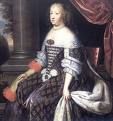


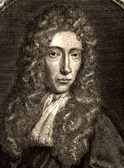



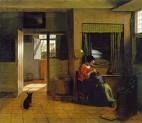

1659 On Jan. 12 a frisky camel causes a sensation in Edinburgh? On Apr. 22 the first British cheque (check) is written by Nicholas Vanacker for 10 English pounds; it is now in the archives of the Nat. Westminster Bank. On Apr. 22 after Richard Cromwell summons the Third Protectorate Parliament (Dec. 1658-Jan. 1659), he is deposed in a coup, forcing him to restore the Rump Parliament, which reassembles on May 27 and forces his resignation, but is itself expelled on Oct. 13 by the army, led by maj.-gen. John Lambert (1619-84), then reinstated on Dec. 27 after George Monck leads Scottish troops to London; on a slight pretext Monck then orders it to dissolve itself, and when it refuses he brings back the Presbyterian ministers excluded by Pride's Purge in 1648, forming a new parliament of royalist sympathisizers; Charles II is waiting in the wings, and Scottish Parliamentary gen. Thomas Fairfax, who resigned in 1650 because he didn't want to invade Scotland comes out of retirement to lead a commission to visit him at The Hague to ask him to come back and ascend the English throne - you belong to the city, you belong to the night? On May 5 a British fleet under Capt. John Dutton sent by the British East India Co. takes the volcanic island of St. Helena (1.1K mi. from the W coast of Africa), with Dutton as gov. #1 (until 1661), becoming Britain's 2nd oldest colony after Bermuda. On June 29 (July 8 Old Style) the Cossacks under hetman Ivan Vyhovsky (-1664) defeat the Russians under Alexei Trubetskoy (1600-80) at the Battle of Xeniaonatop, er, Battle of Konotop (Sosnivka) in Ukraine; meanwhile the Frederick William the Great Elector drives the Swedes out of Prussia. On July 11 Cardinal Mazarin purchases the duchy of Nevers in the Nivernais, and has the Chateau Barberie near Nevers razed, ruining his hated enemies the Plantard Family, who trace back to Merovingian king Dagobert II and intermarried with the Saint-Clair Family? On Sept. 30 Robinson Crusoe first comes ashore on a desert island, soon hooking up with native Friday :) On Nov. 7 the badass Peace (Treaty) of the Pyrenees, signed on Pheasant Island in the Bidassoa River by Cardinal Mazarin for Louis XIV of France and Don Luis de Haro for Philip IV of Spain ends the Catalan Revolt (begun 1640) and the Franco-Spanish War between France and Spain begun in 1635 by Louis XII and Ferdinand the Catholic over Italy, with humilitating terms for Spain; Spain cedes most of Artois and parts of Flanders, Hainault, and Luxembourg, plus Roussillon and part of Cerdanya, making receding the Spanish border with France to the Pyrenees; the terms incl. a marriage between Louis XIV and Philip IV's daughter Infanta (Louis XIV's cousin) Maria Theresa (Marie Theresa) (Maria Teresa) (Marie-Therese) (1638-83) along with a renunciation of her claims to the Spanish throne, which happens next year; she goes on to lose five of her six children in childhood and die at age 44 from an abscess on her arm; her grandson Philip V inherits the Spanish throne in 1700, founding the Spanish branch of the House of Bourbon, which rules until 1808, then 1813-68, 1875-1931, and 1975-. Barom Rechea V (Ango So) (-1672) becomes king of Cambodia (until 1672). Hyonjong dies, and Hyonjong II (d. 1674) becomes Yi king of Korea (until 1674), ordering all Buddhist monks and nuns to stay out of the capital and major cities. John Winthrop Jr. becomes gov. of Conn. Colony again (until 1676). The Dutch trading post in Phnom Penh is sacked. Privateer Christopher Myngs myngs Cumana, Puerto Caballo, and Coro in Venezuela, then tries to keep half of the £500K booty, causing him to be arrested and sent back to England next year, with a letter from Jamaican gov. Edward D'Oyly that he is "unhinged and out of tune". Pierre Esprit Radisson and Medart Chouart de Groselliers explore Minnesota SW of Lake Superior. Peter Stuyvesant organizes the first municipal fire dept. in Am. in New Amsterdam, complete with 250 leather buckets, and supported by a tax of one guilder per chimney; the fire alarm is a twirling rattle, giving the dept. the nickname "Rattle Watch". The first reducciones (Spanish Jesuit settlements) are founded in the Mojos Indian region E of the Andes S of the Madeira River and N of Potosi, Peru. A law is passed in Boston, Mass. calling for a five shilling fine for celebrating Christmas; it stays on the books for more than 20 years until English gov. Edmund Andros revokes it in 1681, which doesn't stop Puritans from frowning on the holiday until the mid-19th cent. Some caterpillars are ordered to appear in court in Italy to answer charges of trespassing and willful property damage, with summons nailed to trees in five districts where the damage occurred. In the next two years Boston authorities hang four Quaker missionaries, Mary Dyer, William Leddra, William Robinson, and Marmaduke Stephenson; the lucky are only branded, whipped, or ear-cropped; of course the persecution makes them more popular. Johann Georg Cotta (1631-92), a descendant of Italian immigrants to Germany marries into the family of bookseller Philipp Braun of Tubingen, later founding the pub. house of J.G. Cotta, which goes on to pub. the newspaper "Allgemeine Zeitung" in 1798. The expression "don't cry over spilled milk" is first used? Science: English physician Thomas Willis (1621-75) first describes typhoid fever. English scientist Robert Boyle (1627-91) discovers that sound does not travel in a vacuum - after which he couldn't sit down for a week? 300 years later, the crowds of Trekkers still don't get it? The Central England Temperature Record (CET) is established, becoming the longest-running set of temperature data on Earth; it starts out with 0.5C accuracy, increasing to 0.1C in 1699-1706 and Nov. 1722-present; in 1772 it goes from monthly to daily. Nonfiction: Meric Casaubon, True and Faithful Relation of what passed for many years between Dr. John Dee and some spirits; disses English mathematician-astrologer and magus John Dee (1527-1609) as a Qabalist who tried to summon angels, ruing his rep. as a scientist until the 20th cent. John Eliot (1604-90), Christian Commonwealth, or the Civil Polity of the Rising Kingdom of Jesus Christ. John Milton (1608-74), A Treatise of Civil Power in Ecclesiastical Causes; argues for the complete separation of church and state and religious toleration. Henry More (1614-87), The Immortality of the Soul. Anna Maria van Schurman (1607-78), Whether the Study of Letters is Fitting for a Christian Woman (English tr.). William Somner, Dictionarium Saxonico-Latino-Anglicum. Art: Sebastien Bourdon (1616-71), The Return of the Ark. Pieter de Hooch (1629-84), Mother and Child with Its Head in Her Lap (Maternal Duty) (1658-60); little girl looks like she's praying but actually mommy is picking lice from her hair - a 666-chicken approach? Diego Velazquez (1599-1660), Infante Philip Prosper; Infanta Maria Teresa; Mercury and Argus. Jan Vermeer (1632-75), Young Girl with Flute. Plays: Pierre Corneille (1606-84), Oedipe (tragedy). John Day, The Blind Beggar of Bethnal Green (drama). Constantijn Huygens, Tryntje Cornelis. Moliere (1622-73), Les Precieuses (Précieuses) Ridicules (comedy); two snobbish sisters jilt two men, who get even by pushing their valets on them dressed as noblemen; takes Paris by storm, launching his 14-year stint as #1 French playwright, with one or more of his plays produced each year. Philippe Quinault (1635-88), Le Fantome Amoureux. Joost van den Vondel (1587-1679), Jephta (tragedy); Lucifer; his masterpiece; used by John Milton as the basis for "Paradise Lost". Poetry: John Dryden (1631-1700), Heroic Stanzas; in memory of Oliver Cromwell, whom he flops on after Charles II returns. James Howell (1594-1666), Paramoigraphy (Proverbs). Richard Lovelace (1618-58), Lucasta (posth.); collected by his brother Dudley. Novels: Ninon de l'Enclos (1620-1705), La Coquette Vengee (The Flirt Avenged); how a good life doesn't need religion; written after being imprisoned in a convent at the orders of Queen Anne of France then released after Queen Christina of Sweden visits and writes to Cardinal Mazarin. Births: Dutch explorer (discoverer of Easter Island in 1722) adm. Jakob (Jacob) Roggeveen (d. 1729) on Feb. 1 in Middelburg; brother of Jan Roggeveen. English "Dido and Aeneas" Baroque organist-composer Henry Purcell (d. 1695) on Sept. 10 in Westminster. Scottish mathematician David Gregory (d. 1708) on June 3. English "Robinson Crusoe" novelist (Unitarian) Daniel Defoe (De Foe) (d. 1731) St. Giles Cripplegate, London in the summer. French Catalan Baroque painter Hyacinthe Rigaud (d. 1743) on July 18 in Perpignan, Pyrenees-Orientales. Italian Venetian Baroque painter Sebastiano Ricci (d. 1734) on Aug. 1 in Belluno. German Phlogiston Theory chemist-physician Georg Ernst Stahl (d. 1734) on Oct. 22 in Ansbach; educated at the U. of Jena. French mathematician Joseph Saurin (d. 1737). Deaths: English bishop Thomas Morton (b. 1564). English pickpocket Mary Frith (Moll Cutpurse) (b. 1584) on July 26 in Fleet St., London (dropsy). English-born Am. colonist Isaac Allerton (b. 1585) in Feb. in New Haven, Conn.; dies insolvent. Dutch East Indies gov.-gen. #5 (1623-7) Pieter de Carpentier (b. 1586) on Sept. 5 in Amsterdam. Portuguese Jewish merchant Antonio Fernandez Carvajal (b. 1590) in London, England. French diplomat Abel Servien (b. 1593) on Feb. 17 in Chateau de Meudon, Paris. English judge John Bradshaw (b. 1602) on Oct. 31: "It is contrary to the laws of God, nature and the kingdom, for any man to be his own accuser." Dutch navigator Abel Janszoon Tasman (b. 1603) on Oct. 10 in Batavia (Jakarta), Dutch East Indies.
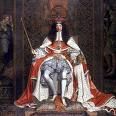

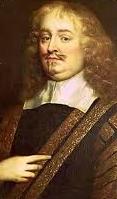









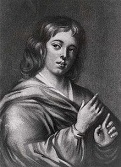


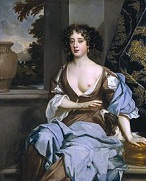



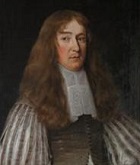

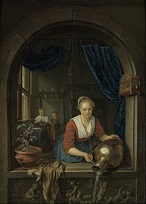
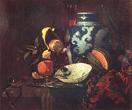

1660 Pop. of the Am. colonies: 75K. Don't peep, but this decade is being recorded? On Jan. 1 Samuel Pepys (1633-1703) makes the first entry in his Diary (ends 1669) at the age of 27; he calls English drag actor Edward "Ned" Kynaston (1640-1712) "the loveliest lady tht ever I saw in my life... only her voice not very good"; he writes in a secret code that is not broken until 1821; later it is discovered that he was simply using a shorthand described in Tachygraphy by Thomas Shelton (1601-50) (the real author of "Don Quixote"?), a copy of which resided in his library at Magdalene all along. On Feb. 13 Swedish king (since 1654) Charles X Gustav (b. 1622) dies, and after ex-king Christina returns and tries to make a comeback, then gives up and returns to Rome, his only son Charles (Karl) XI (1655-97) becomes Wittelsbach king #3 of Sweden (until 1697). The Bible-Thumping Puritan Era of England ends, and the Anglican Restoration Era begins? On Feb. 21 the Protectorate being kaput, George Monck recalls the Presbyterian members who had been expelled in Pride's Purge of 1648, and the restored Long/Rump Parliament of 1640-9 issues writs for a new free Parliament and votes its own dissolution on Mar. 16; on Apr. 25 the Royalist Convention Parliament (not properly summoned by royal writs) assembles, and immediately invites large and healthy (unlike his daddy) Charles II to occupy the throne; Irish-born British diplomat Sir George Downing (1623-84) keeps his job by sucking up to Charles II, telling him that he gave up "principles sucked in" while living in New England, gaining him a knighthood in May, plus a piece of land adjoining St. James's Park, which he later turns into Downing St.; on May 8 after receiving Charles II's Declaration of Breda, it unanimously declares that Charles II (d. 1685) has been the lawful king of England, Scotland, and Ireland since the execution of his father in Jan. 1649; constitutional govt. and repub. govt. have now both been tried in England and rejected, making England safe for the royals again? On May 19 English diarist Samuel Pepys visits Loodsdiunen, Holland near The Hague to visit Countess Margaret of Henneberg and her 365 children? On May 29 Royal Oak Day (his birthday) Charles II (1630-85) returns to London wearing a tall Louis XIV-style wig picked up in France; on June 18 after appointing former bishop of London (1633-49) William Juxon (1582-1663) as archbishop of Canterbury (who takes office on Sept. 20 until June 4, 1663), he is crowned (restored) in a fancy shindig in Westminster Abbey (until Feb. 6, 1685) (Britain's 46th monarch), making a point of wearing his daddy's coronation duds; on June 19 a Day of Public Thanksgiving on Restoration of Charles is held; Charles II agrees to respect the Magna Charta and Petition of Rights; after his humiliation at the hands of Scottish Covenanters he vows to never set foot there while imposing his will on it, which is to restore the Episcopalian church; since his mommy was a Catholic, he never quite gets over its spell; Richard Cromwell flees abroad (until 1680), while Charles orders his daddy Oliver Cromwell's body exhumed, hanged, and decapitated to get even for what he did to his daddy, and the head stuck on a pole at the end of Westminster Hall, where it remains for at least 24 years; Edward Hyde (1609-74) is created Baron Hyde of Hindon and appointed chancellor of the exchequer, but resigns to become speaker of the House of Lords, then next year is created Viscount Cornbury and 1st Earl of Clarendon, becoming the virtual head of the English govt. during the Restoration (until 1667), seeking to legitimize it with Parliamentary action to make it a reflection of the people's will; Dublin again becomes a stronghold of Roman Catholicism; side-switcher David Leslie is freed from the Tower, and next year created Baron Newark with a pension; double side-switcher George Monck (1608-79) is created 1st duke of Albemarle. On May 3 after Count Rakoczy and new field marshal Count Raimondo of Montecucculi (Montecuccoli) (1609-80) defeat Frederick William the Great Elector of Brandenburg, the Peace of Oliva (near Gdansk) ends the war between Austria, Poland, Sweden, and Brandenburg, and recognizes the Great Elector's sovereignty in East Prussia; on May 27 the Treaty of Copenhagen ends the war between Sweden and Denmark, making the Danish crown hereditary, and recovers Funen and Bornholm for Denmark and Trondelag for Norway; Montecucculi's star begins zooming; meanwhile Polish-Lithuanian king (1648-68) John II Casimir Vasa (Jan II Kazmierz Wasa) (1609-72) is freed to concentrate on the invading Russians, and on June 29 defeats a Russian invasion of the Ukraine at the Battle of Polonka, followed by a push on Oct. 7-8 at the Battle of Slobodyshche (Slobodyszcze), followed on Oct. 27 by the Treaty of Slobodyshche (Slobodyszcze), abolishing the 1654 Pereiaslav Articles and reestablishing formal ties between Poland and Ukraine, followed by a decisive Polish V on Oct. 14-Nov. 2 at the Battle of Chudniv (Cudnow); too bad, the big V bankrupts the Poles, preventing them from going on the attack. On May 15 dead regicides John Bradshaw, Oliver Cromwell, Henry Ireton, and Thomas Pride are served with a bill of attainder backdated to Jan. 1, 1649, and on Dec. 4 both houses of Parliament engross it, with the following resolution: "That the Carcases of Oliver Cromwell, Henry Ireton, John Bradshaw, and Thomas Pride, whether buried in Westminster Abbey, or elsewhere, be, with all Expedition, taken up, and drawn upon a Hurdle to Tiburne, and there hanged up in their Coffins for some time; and after that buried under the said Gallows: And that James Norfolke Esquire, Serjeant at Arms attending the House of Commons, do take care that this Order be put in effectual Execution." On June 1 Puritan-turned-Quaker missionary Mary Barrett Dyer (b. 1611) is burned at the stake in Boston, Mass. by the Puritan authorities after banishing her 3x and seeing her return; meanwhile they relax Sabbath laws to allow men to carry guns on the way to church to defend from Indian attacks. On June 3 after ditching his bookish beautiful lover niece Marie Mancini, and she utters the soundbyte "You love me, you are the king and I go", Louis XIV marries his cousin (daughter of Philip IV of Spain, brother of his mother Queen Anne, who had not seen each other for 40 years) Marie (Maria) Theresa (the Infanta) at Saint-Jean-de-Luz; each morning, if the queen sits up and claps her hands after the curtains are parted, the servants know that the king has performed his royal duty that night? Call 1-800-law-help today? On June 4 despite opposition by rehabilitated Algernon Percy, 10th earl of Northumberland, the Proclamation for Apprehending the Late King's Judges causes the arrest of the Regicides of Charles I, incl. pres. of the court John Bradshaw (1602-59), Sir Henry Marten (1602-80), Thomas Harrison (b. 1606) (leader of the Fifth Monarchists, the first to be found guilty, after which he is hanged, drawn, and quartered on Sat. Oct. 13 in Charing Cross) and Sir Hardress Waller (1604-66) (cousin of royalist side-switcher Sir William Waller, which is lucky for him?), many of them hanged, drawn, and quartered, some pardoned, and 19 getting life sentences, the ones who were already dead at the restoration (John Bradshaw, Oliver Cromwell, Henry Ireton, Thomas Pride, Richard Deane) having their bodies disinterred and hanged; smart ones flee England, incl. John Dixwell (1607-89), Edward Whalley (1607-75) and William Goffe (1605-79), who flee to well-named New Haven, Conn. and hole up in a cave, beat the heat and all die natural deaths, after which three intersecting major avenues are named after them; even the 16 of the 75 who didn't sign the king's death warrant are persecuted, some receiving life sentences, although none are executed; some misc. court officers also get it good, esp. solicitor-gen. John Cook(e) (b. 1608) (executed on Oct. 16). On June 23 England and Portugal sign a treaty, providing for the marriage of the infanta Catherine of Braganza to Charles II with a big dowry. On Sept. 13 Charles II's Navigation Act of 1660 continues Cromwell's mercantilist policy in spades, making England the sole outlet for "enumerated" goods not produced there incl. tobacco, cotton, and sugar, and requiring crews to be three-quarters English. On Dec. 25 after the 1647 edict prohibiting the celebration of Christmas in England is revoked, England becomes merry again? Eleven years without a Parliament, eleven years without a king is now complete? On Dec. 29 Charles II dissolves the Convention (Long) Parliament reaching a compromise with them keeping a small standing army, with a much larger nat. militia composed of citizens to be summoned in times of need, organized by the lord lt. of each county and under civil law. Charles II makes his brother Prince James, duke of York (b. 1633) (later James II/VII) lord high adm., giving him a good income, and he turns out to be a good adm., spending the next two decades fighting the Dutch; on Sept. 3 with Charles' consent he secretly marries 8-mo. pregnant Anne Hyde (1637-71), daughter of Edward Hyde, 1st earl of Clarendon; when she has a son in Oct., rumors fly, causing James to publicly declare the marriage in Dec. after his mother Henrietta Maria tries to have it declared invalid, then leaves for France in disgust; the son dies next year, but they go on to have future English queens Mary II (b. 1662) and Anne (b. 1665), the only children of seven to survive to adulthood (four sons and one daughter die in infancy); meanwhile sperm bank James fathers many illegitimate children by several mistresses to keep up with his libido-king brother Charles. Va. proclaims Charles II king and restores Gov. William Berkeley; the growing of tobacco is outlawed in order to preserve taxes from Virginian imports. George Rakoczy II, prince of Transylvania dies in battle against the Turks, causing Emperor Leopold I to send an army to check the Turkish advance. The Great Conde is pardoned by Louis XIV for fighting against the French at Dunkirk, and he retires to his estates at Chantilly and elswhere, where he keeps the company of Moliere, Racine, Bossuet, Nicolas Boileau-Despreaux et al. Charles I's prosecutor John Cooke is railroaded through the Old Bailey then his john cooked, er, is brutally executed by Charles II's govt. and his personal effects trashed, but not before he gives an eloquent defense at his trial and a speech at the gallows. Now that a Catholic is back on the throne, mentally deficient bachelor Thomas Howard, 5th Duke of Norfolk (1627-77), grandson of art collector Thomas Howard, 2nd Earl of Arundel and Surrey (1585-1646) becomes the 5th duke of Norfolk after the 1572 attainder of his grandfather's grandfather Thomas Howard, 4th duke of Norfolk in 1572 is finally reversed; in 1677 his brother Henry Howard (1628-84) becomes the 6th duke of Norfolk. Former Barbados gov. Francis Willoughby is given joint proprietorship of Suriname along with Lawrence Hyde. Pass quietly away? After decades of trying to make the English illegal immigrants go away with magic, Mass. Indian chief-sachem Passaconaway finally gives up, and tells his people: "I was as much an enemy to the English at their first coming into these parts, as anyone whateoever, and did try all ways and means possible to have destroyed them.. but I could in no way effect it... therefore I advise you never to contend with the English, nor make war with them"; this year or next Pokanoket chief Wasmutta appears before the court of Plymouth and requests, now that his daddy Massasoit has died, that his name be changed to an English Christian one, along with his younger brother Metacomet (1639-76); they receive the names Alexander and Philip of Pokanoket. Jean Baptiste Gaston, duke of Orleans dies without a male heir, and Louis XIV gives the title to his brother Philippe (Philip) I, Duke of Orleans (1640-1701), grandfather of Philippe Egalite and great-grandfather of Louis-Philippe. John Earle, who has been with Charles II since his prince days in 1641 is appointed dean of Westminster, followed by bishop of Salisbury in 1663. New cock of the rock Charles II brings the coat and vest to England from France. North Carolina (N.C.), named after English king guess who is settled. Boers (Dutch peasants) settle in South Africa. The Royal African Co. (Co. of Royal Adventurers into Africa) is founded. A French trading post and Roman Catholic mission are established in Wisconsin (Wisc.) near modern-day Ashland by Pierre Esprit Radisson and his brother-in-law Sieur de Groseilliers. Chinese Gen. Koxinga (1624-62) ousts the Dutch from Formosa (Taiwan), and establishes an independent kingdom. After the Christian-run city council of Hagenau in Alsace refuses the small Jewish pop. a rabbi, but clever Lowel hires Rabbi Meyer as his bookkeeper to get around their regs., and the latter goes on to gain recognition as a judge in Jewish civil affairs and build a synagogue in 1665, beginning a long line of rabbis continuing to modern times, when the Jewish pop. reaches 700. In this decade black African slaves become cheaper to import to North Am. than white indentured servants, who are also considered more rebellious, and black slavery becomes hereditary in Va. and elsewhere, although blacks are viewed as lazy "salvages" who are apt to revert to cannibalism and whose women are all hos if not watched and "kept down"? - did you show them your sales receipt? In this decade brothers Nicolas Mariage and Pierre Mariage are sent by the French East India Co. to Madagascar, Persia, and India, after which Nicolas is sent by Louis XIV to sign a trade agreement with the shah of Persia to buy tea; in 1843 their descendants open a wholesale tea shop in Paris. The English Restoration puts Charles II on the English throne, after which he issues letters patent to his former page boy Thomas Killigrew (1612-83) and poet-playwright Sir William Davenant (D'Avenant) (1606-68), giving them a monopoly right to form two London theatre companies for "serious" drama; in 1662 the letters patent are reissued with women allowed to perform as actresses, replacing boys, with Margaret "Peg" Hughes (Hewes) (1630-85) becoming the first English prof. stage actress, debuting on Dec. 8 as Desdemona in "Othello" (played by Clare Market); in 1661 Davenant establishes the Duke of York's Players (Duke's Co.) (named after Prince James, Duke of York) in Lisle's Tennis Court in Lincoln's Inn Fields in 1661, moving to Dorset Garden in 1671, and closing in 1705 after becoming the first London theatre with moveable scenery, performing his own works plus those of William Shakespeare, Ben Jonson, and John Fletcher, causing people to believe he's really Shakespeare's son. ; on Aug. 21 Killigrew establishes the King's Company, which debuts at the new Theatre Royale in Drury Lane in 1663, until it is taken over by the Duke's Co. in 1682 and merge as the United Co.; the 1843 Theatres Act ends the monopoly of the patent theatres; Restoration Comedy (AKA comedy of manners) (ends 1710) in England is characterized by sexual explicitness, personally encouraged by horndog Charles II. Louis XIV helps Moliere found a theater in Paris; meanwhile Pierre Corneille begins a downhill slide as a playwright. The town of Natick, Mass. near Boston establishes the first Christian church for Amerindians - no shirt no shoes no loincloth, no service? The Scots Guards, 3rd regiment of the British Guards Div. (after Grenadiers and Coldstreams, and ahead of Welsh Guards) is formed; they wear buttons in threes, and have no plume. The Stuart restoration brings back the custom of celebrating St. Valentine's Day; it has died out in Italy and Germany, and survives only in England and France; Valentine cards don't become a custom until the mid 18th cent. The Restoration Period of Decorative Arts (ends 1689) sees a reaction to Cromwell's austerity with delicately-carved walnut furniture with barley-sugar turning, lacquer, gilding, marquetry, glued joints, cane-seated chairs, glass-fronted bookcases, and day-beds. The Restoration Period of Plays (ends 1714) sees a return to artificiality, heartlessness, licentiousness, and polished wit. In this decade Andrew Eliot migrates from East Coker, Somerset, England to Boston, Mass., producing generations of prominent Am. intellectuals incl. T.S. Eliot and Samuel Eliot Morison. In the last two-thirds of the cent. hair styles for French (hence all European and English) women go simple, not growing elaborate again until the middle of the next cent. - after all, the men paid all that money to look like peacocks and don't want feminine competition? Architecture: The Church of Sant'Ivo della Sapienza is designed by Francesco Borromini. Potsdam Palace begins construction as the hunting residence of elector Frederick William of Brandenburg (finished 1682). Sports; In this decade the game of Pall Mall (Ital. "pall maglia" = ball mallet) (father of croquet) comes to England from France, giving its name to streets in London and other places; Samuel Pepys views his first game on Apr. 2, 1661 in St. James's Park, London; it dies out by the next cent., then waits until 1850 for croquet to give it new life. Inventions: The first cuckoo clocks are made in Furtwangen in Germany's Black Forest, based on the English invention of the pendulum. The first checkbooks appear. Iaack B. Fubine of Savoy, The Hague patents a macaroni-making machine. Christiaan Huygens and the Abbe d'Hautefeuille independently invent the spiral hairspring for clocks and watches, improving accuracy. The first pencil factory is founded in Nuremberg by Friedrich Staedtler; on Oct. 3, 1835 his descendant J.S. Staedter founds Staedtler Mars & Co. in 1835. Irish-born British scientist Robert Boyle (1627-91) pub. a description of a pneumatic pump that improves on Otto von Guericke's. Water closets arrive in France from England. Nonfiction: Anon., Klencke Atlas; (1.75m x 9m); presented as a gift to Charles II of England on his restoration by a group of Dutch merchants led by Dutch sugar merchant Johannes Klencke (1620-72) in the hopes of obtaining favorable trade agreements, ending up in the British Museum and becoming the world's largest atlas (until Millennium House's "Earth Platinum" in 2013. Robert Boyle (1627-91), New Experiments Physicomechanical, Touching the Spring of the Air (1st ed.). Thieleman J. van Braght (1625-64), Martyrs Mirror of the Defenseless Christians. Sir Winston Churchill (1620-88), Divi Britannica, Being a Remark Upon the Lives of All the Kings of This Isle, from the Year of the World 2855 until the Year of Grace 1660; history of the kings of England, by an ancestor of PM Sir Winston Churchill (1874-1965). Thomas Fuller (1608-61), A Panegyrick to His Majesty on His Happy Return; gets him appointed chaplain in extraordinary to Charles II. James Harrington, Political Discourses. James Howell (1594-1666), Lexicon Tetragloton; not four but six languages (English, French, Italian, Spanish, Portuguese, Latin). Antoine de Laloubere (1600-64) and Arnaldum Colomerium, Veterum Geometrica promota in septem de Cycloide Libris et in duobus adjectis Apprendicibus (Toulouse); first mathematical work on the properties of the helix. Gaspar Schott (1608-66), Pantometricum Kircherianum (Wurtzburg). Daniel Sennert, Thirteen Books of Natural Philosophy (London); "We must first speak a little concerning contact or mutual touching, Action, passion and Reaction". Robert Sharrock (1630-84), The History of the Propagation and Improvement of Vegetables. Baruch (Benedict) de Spinoza (1632-77), Short Treatise on God, Man and His Well-Being. Art: Gerrit Dou (1613-75), The Kitchen Maid with a Boy in the Window; full of sexual undertones incl. a cock hanging from the wall (Dutch "vogelen" = birding or copulation). Willem Kalf (1619-93), Still Life; captures sunlight beautifully. Adriaen van Ostade (1610-85), Cutting the Feather. Jan Steen (1626-79), Poultry Yard. Jan Vermeer (1632-75), The Cook. Emanuel de Witte (1617-92), Interior of a Church. Francisco de Zuraban, The Young Virgin. Music: Francesco Cavalli (1602-76), Serse (opera); composed for the marriage of Louis XIV; copied by Nicolo Minato and G.F. Handel. Plays: Pierre Corneille (1606-84), La Toison d'Or (The Golden Fleece) (tragedy). Moliere (1622-73), Sganarelle. Poetry: Nicolas Boileau-Despreaux (1636-1711), Satires; first of 12, taking apart contemporary writers in rhymed couplets. John Dryden (1631-1700), Astraea Redux; in praise of Charles II. Novels: Hans Jakob Christoph von Grimmelshausen (1621-76), (Simplicius Simplicissimus) Der Abenteurliche Simplicissimus Teutsch; the barbaric world of the Holy Roman Empire during the Thirty Years' War; "The account of the life of an odd vagrant named Melchior Sternfels von Fuchshaim: namely where and in what manner he came into this world, what he saw, learned, experienced, and endured therein; also why he again left it of his own free will"; #1 German picaresque novel, and #1 German prose classic of the cent. Madeleine de Scudery (1607-1701), Almahide, our l'Esclave Reine (8 vols.) (1660-3). Births: German physician (first to use ether in medicine) Friedrich Hoffmann (d. 1742) on Feb. 19 in Halle. Irish Ulster-Scot physician (inventor of milk chocolate) Sir Hans Sloane, 1st Baronet (d. 1753) on Apr. 16 in Killyleagh, County Down. Italian composer (founder of the Neapolitan school of opera) (precursor of Mozart?) Alessandro Scarlatti (d. 1725) on May 2 in Palermo, Sicily; father of Domenico Scarlatti (1685-1757); trained in Rome under Italian oratorio composer Giacomo Carissimi. English Hanoverian king #1 (1714-27) George I (d. 1727) on May 28 in Hanover, Germany; founder of the Hanoverian Dynasty in England; son elector Ernest Augustus of Hanover (1620-98) of electress Sophia of Hanover (1630-1714), daughter of Elizabeth Stuart of Hanover (1596-1662), daughter of James I of England. Spanish viceroy of New Spain (1702-11) Francisco V Fernandez de la Cueva, 10th Duke of Albuquerque (d. 1724) on Nov. 17 in Genoa, Italy. Bavarian-French Le Grande Dauphine Maria Anna Victoria of Bavaria (d. 1690) on Nov. 28 in Munich; eldest daughter of Elector Ferdinand Maria of Bavaria (1636-79) and Princess Henriette Adelaide of Saxony (1636-76); wife (1680-90) of her 2nd cousin Grand Dauphin Louis (1661-1711). English poet-painter Anne Killigrew (d. 1685) in London. African Ashanti king (1675-1717) (black) Osei Kofi Tutu I (d. 1717) in Kumasi. French "Nouveau Cuisinier" royal chef (to Philippe I and Philippe II, Dukes of Orleans) Francois Massialot (d. 1733) in Limoges. Swedish scientist-explorer Olof (Olaus) Rudbeck the Younger (d. 1740); son of Olof Rudbeck the Elder (1630-1702); knighted in 1719; teacher of Carl Linnaeus; ancestor of Alfred Nobel. Austrian Baroque composer, organist and music theorist Johann Joseph Fux (d. 1741) in Hirtenfeld, Styria. British apothecary Ambrose Godfrey (Godfrey-Hanckwitz) (d. 1741) in Nienburg, Saxony; emigrates to Britain in 1679, becoming an asst. of Robert Boyle (1627-91), learning how to make phosphorus out of urine and going into manufacturing. English celeb wife Sarah Churchill (d. 1744); wife of John Churchill, Duke of Marlborough. Deaths: French nun St. Louise de Marillac (b. 1591) on Mar. 15 in Paris. English mathematician William Oughtred (b. 1575) on June 30. Dutch poet Jacob Cats (b. 1577). French priest and charitable order founder (St.) Vincent de Paul (b. 1580) on Sept. 27 in Paris; canonized in 1737. English lord William Seymour, 2nd duke of Somerset (b. 1588); husband of dead pretender Arbella Stewart (1575-1615). Sicilian astronomer Giovanni Hodierna (b. 1597) on Apr. 6. Spanish painter Diego Velazquez (b. 1599) on Aug. 6 in Madrid. French royal Jean Baptiste Gaston, duke of Orleans (b. 1608). French man of letters Paul Scarron (b. 1610) on Oct. 6 in Paris. French natural philosopher Jacques Le Tenneur (b. 1610); leaves De Motu Naturaliter Accelerato (pub. in 1649), showing an understanding of Galileo's theory of falling objects; too bad, he also leaves Traite des Quantites Incommensurables, arguing against Descartes' use of algebra in geometry. Scottish writer-translator Sir Thomas Urquhart (b. 1611). English Quaker leader James Naylor (b. 1618) on Oct. 21 in Kings Ripton; dies after being robbed and left for dead; leaves Tracts of Naylor (pub. 1716). Dutch painter Jan Baptist Weenix (b. 1621) in Vleuten. Swedish king (1654-60) Charles X (b. 1660) on Nov. 4 in Stockholm. English princess Mary Stuart (b. 1631) on Dec. 24 in Whitehall Palace, London. English prince Henry (b. 1639) on Sept. 13.








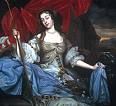



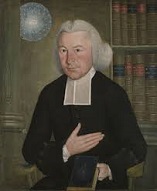
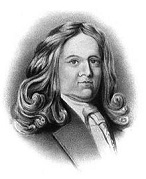





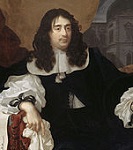
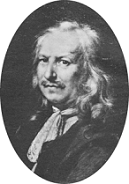
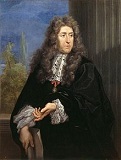




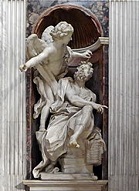
1661 Lack of any rainfall since 1659 causes a famine in India. On Feb. 5 emperor (since Oct. 8, 1643) Shun Zhi (b. 1638) dies, and his 8-y.-o. son Xuanye becomes Qing (Manchu) emperor #2 (#4) of China Qing Kang Xi (Kangxi) (1654-1723) (until 1723); his personal rule begins formally in 1667, but not in fact until 1669, and becomes the longest reign in Chinese history (62 years), marked by spectacular cultural achievement and many major scholarly enterprises, while the emperor makes six tours of his empire to observe local conditions; meanwhile Taiwan pirate leader Zheng Zhilong (b. 1604) is executed in Beijing, and his son Zheng Chenggong (1624-62) succeeds him, becoming known to Europeans as Koxinga from his Chinese title Lord of the Imperial Surname, going on to expel the Dutch from Taiwan (by 1662), becoming a curb-your-enthusiasm Chinese nat. hero. On Mar. 9 Cardinal Mazarin (b. 1602) dies, and Louis XIV (1638-1715) begins his personal rule sans first minister, introducing absolute monarchy in France, issuing the soundbyte "L'état c'est moi" (I am the state); serious persecution of the Huguenots in France begins while the king takes control of the military and concentrates high society around him at Versailles, causing the nobles to go broke trying to emulate him - I would walk 500 mi. and I would walk 500 more? On Mar. 31 Duke Philip of Orleans marries Henrietta Maria Stuart (Stewart) (1644-70), daughter of Charles I and sister of Charles II; too bad, she dies in 1670. On Apr. 18 Boston, Mass.-born Congregationalist preacher Rev. Solomon Stoddard (1643-1729) proposes the Half-Way Covenant in the Northampton Church (pastor Eleazar Mather) no longer requiring a spiritual conversion to receive communion as long as their behavior is not scandalous, thinking that it would meet the need of 2nd gen. pilgrims more interested in secular than spiritual life; in 1669 Mather dies, and Stoddard takes over; too bad, his half-way proposal fails to increase the congregations, but in 1690 he abolishes the public profession of faith, and makes the Lord's Supper a converting ordinance, causing the congregation to double from 500 to 1,000 in 20 years; in 1725 he hires his grandson Jonathan Edward as his asst., who later repudiates his views and launches the Great Awakening of 1735-45. On Apr. 23 (St. George's Day) party boy Charles II is crowned king of England, Scotland, and Ireland at Westminster Abbey, and his reign is backdated to the end of his father's; Charles II appoints former Parliamentarian Algernon Percy, 10th Earl of Northumberland, 4th Baron Percy (1602-68) (who was exiled to his estate at Petworth after he tried to prevent Charles I from being tried for treason) as lord high constable of England; known for active gonads, Charles II's mistresses incl. English actress Moll (Mary) Davies, English "Cupid" actress Nell Gwynn (1650-87), Louise Renee (Renée) de Penancoet (Penancoët) de Keroualle (Kéroualle), Duchess of Portsmouth (1649-1734), and Barbara Villiers (Palmer), 1st Duchess of Cleveland (1640-1709); he is pals with syphilitic rogue ("the Libertine") John Wilmot, 2nd Earl of Rochester (1647-80), who marries Elizabeth Malet after kidnapping her in 1665, and trains his lover Elizabeth Barry (1658-1713) to become a top London stage star before falling out with the king and going underground as his face gets eaten away; Barry debuts in 1675 in the Duke's Co. In Apr. the Cavalier Parliament is elected, and begins meeting on May 8 (until Jan. 24, 1679) - I'm too sexy for my shirt? On May 11 the marriage treaty of Charles II of England and Catherine of Braganza, daughter of John IV of Portugal gives the Seven Islands of Bombay to England; on Mar. 27, 1668 a Royal Charter leases them to the English East India Co. for £10/year, causing the pop. to zoom from 10K this year to 60K in 1675. On July 2 the Peace (Treaty) of Kardis (Cardis) between Russia and Sweden ends the Second Northern War (begun 1658), restoring the pre-war status quo with Russia giving up its conquests. In Aug. French king Louis XIV is lavishly entertained at the magnificent chateau of Vaux-le-Victomte by his super-rich rival and supt. of finance (since 1653) (who had lent large sums to the treasury during the War of the Fronde) Nicolas Fouquet, Marquis de Belle-Isle, Vicomte de Melun et Vaux (1615-80), during which Moliere's "Les Facheux" debuts, after which Louis decides it's time to get rid of this wannabe Richelieu who can afford to buy anything, first getting him to sell his office of procureur gen., along with its protective privileges, then getting him arrested three weeks after the banquet by d'Artagnan of musketeer fame, then putting him through a 3-year stooge trial, where Louis' up-and-coming adviser Jean-Baptiste Colbert (1619-83) claims a royal revenue deficit of 22M francs, suppressing papers proving his innocence, and despite public sympathy he is convicted of embezzlement for borrowing Louis XIV's Hope Diamond for a state ball, and sentenced to life banishment, then life in Pignerol Prison - this beter work or i'm fouquet? On Sept. 6 the Tangiers Regiment of Foot is formed. In Oct. a UFO is sighted over the River Seavern near Bristol, England. On Nov. 4 James Butler, 12th earl of Ormonde is restored to his old post as lord lt. of Ireland by Charles II (until 1669), with all his lands returned plus a monetary settlement for expenses, going on to maintain the Protestant ascendancy while encouraging education and manufacturing, and heling the Irish get about one-third of their land back that was stolen by mean old Cromwell - it takes a tough man to make a tender chicken? Charles Howard (b. 1629), who favored the restoration in 1659 is created Baron Dacre of Gilsland, Viscount Howard of Morpeth, and Earl of Carlisle, and becomes British ambassador to Russia, Sweden, and Denmark in 1663-4, then gov. of Jamaica from 1677-81. Dutch adm. Willem van der Zaan (Zaen) (1621-69) takes on Suleiman Basha Reis, bey of Algiers in a ship duel, but the latter chickens out, after which van der Zaan captures a corsair and liberates 36 Christian slaves, winning a 2nd golden chain from the States-Gen., followed by a 3rd one in 1663 for capturing a privateer and liberating another 21 Christian slaves, and a record 4th one in Aug. 1665. Block Island off Rhode Island is settled; the Sandy Point Lighthouse on the N, and the Southeast Lighthouse on the SE are later installed. The Swedes establish a fortress colony in Christiansborg on the Gold Coast near modern-day Accra ("soldier ants") (modern-day pop. 1.6M/2.0M) in Ghana, which ships slaves, ivory, and gold to Europe in exchange for liquor and cowrie shells to buy them with, and weapons and gunpowder to enforce the deals. The first Western reference to the 2nd cent. C.E. city of Kathmandu ("kastha" + "mandap" = wood + covered shelter) (modern-day pop. 1.4M/2.5M) by Jesuit travelers Johann Grueber and Albet d'Orville en route from Tibet to India. Louis XIV suppresses Jansenism, the Calvinistic (almost everybody is damned) doctrine of Dutch theologian Cornelius Jansen (1585-1640) centered in Port Royal, causing Blaise Pascal to write Ecrit sur la Signature du Formulaire (Writ on the Signing of the Form), telling Jansenists not to give up; too bad, his sister Jacqueline dies later in the year, causing him to give up. Greek-born theologian Leo Allatius (1586-1669) is appointed custodian of the Vatican Library by Pope Alexander VII, where his multicultural Greek-Latin background helps him go through the 3.5K mss. stolen in 1622 from Heidelberg. Blonde-blue bed bunny Louise Francoise de La Baume Le Blanc, Duchesse de La Valliere (Vallière) (1644-1710) becomes the mistress of Louis XIV (until 1667), bearing him several children, after which he quits hooking up with her but forces her to accompany him as his official mistress until she enters a Carmelite convent in 1674, her name being ending up being used for a jewelled pendant necklace (lavalliere). Mohammed Kiuprili dies, and his son Fazil Ahmed Kuprili (1635-76) becomes grand vizier of Turkey. French soldier Pierre Boucher (1622-1717) is appointed gov. of New France by Louis XIV (until 1667), becoming the first Canadian settler to be ennobled, founding Boucherville on the S shore of the St. Lawrence River near Montreal. John Bunyan goes to the County Gaol for 12 years (until 1672). The province of Bourbonnais, annexed to the crown since 1523 is bestowed on the Great Conde (until 1789). The Spanish-Portuguese War (begun 1658) ends. The persecution of the "wicked clan Gregor" is relaxed, and young Rob Roy McGregor (1671-1734) lives quietly as a grazier on the braes of Balquidder (until 1712). 19-y.-o. top student of King's School in Grantham, Isaac Newton (b. 1643) enters Trinity College, Cambridge, and instead of going after booze and girls "He very rarely went to bed before two or three of the clock, sometimes not till five or six... especially at spring and fall of the leaf, at which time he used to employ about six weeks in his laboratory, the fire scarcely going out night or day, he sitting up one night and I another, till he finished his chemical experiments" (cousin-asst. Humphrey Newton) - a tragic accident on the farm cuts off his testicles, a closet gay, or suffering from Asperger Syndrome, only his gay hairdresser knows for sure? Because of the decline in revenue and Indian uprisings, the Plymouth Colony sells the Kennebec Patent to Antipas Boyes, Edward Tyng, Thomas Brattle, and John Wilson; unsuccessful in their attempts to revive trade at the Cushnoc post, the new proprietors abandon it, and the area remains dormant for nearly 75 years. Schenectady, on the Mohawk River on the E end of the Mohawk Valley 16 mi. NW of Albany, N.Y. is founded by the Dutch settler Arent Van Curler (Corlaer) (1619-67), cousin of Kiliaen van Rensselaer. The Dutch West India Co. resigns all rights in Pernambuco and elsewhere in Brazil. The Academie (Académie) Royale de Danse is founded by Louis XIV in a room of the Louvre. Matthew Locke (1629-77) becomes court composer to Charles II. Dutch immigrant Peter Lely becomes court painter to Charles II, filling Hampton Court, London with paintings of the beauties of his court. Henry Jones, bishop of Meath presents the Book of Kells to Trinity College, U. of Dublin. Sir William Davenant opens Lincoln's Inn Theatre in the Fields, London (complete with a proscenium arch) with a production of Shakespeare's "Hamlet"; demolished in 1848. Architecture: The Prussian (Berlin) State Library in Berlin is founded, becoming one of the largest libraries in Europe. Lincoln's Inn Fields Theatre (originally the Duke's Theatre until 1695) is founded from Lisle's Tennis Court in Lincoln's Inn Fields, London's largest public square, laid out in the 1630s next to Lincoln's Inn; it goes on to stage the first prof. production of Henry Purcell's "Dido and Aeneas" (1700), John Gay's "The Beggar's Opera" (1728), and Handel's last two operas in 1740-1. The Oder-Spree Canal 15 mi. S of Frankfurt-on-the-Oder begins construction (finished 1668). Gianlorenzo Bernini (1598-1680) finishes the church at Castel Gandolfo (begun 1658). French architect Louis Le Vau (1612-70) designs the Gallerie d'Apollon (Gallery of Apolllo) in the Louvre in Paris. The French invented Disneyland? The 18th century French World Wide Web? After finding the asking price of the Castle of Rueil W of Paris too high, Sun King Louis XIV begins turning his father's little ole hunting lodge Chateau de Versailles 12 mi. SW of Paris into "the greatest palace on Earth" at the nation's expense, taking 50 years to build, employing up to 30K workmen at a time, many of them unpaid forced labor; the fine, sandy soil makes for a poor foundation, and the surrounding marshes cause hundreds to die of fever; Louis Le Vau (1612-70) is the palace architect, who starts by improving the original Louis XIII bldgs., adding the enveloppe, three wings of stone on the W (garden), N, and S sides; after his death, his asst. Francois d'Orbay (1634-97) takes over, while artist Charles Le Brun (1619-90) takes over the interior decoration and interior-exterior statues, and gardener Andre Le Notre (Nostre) (1613-1700) landscapes the gardens; "a masterpiece of bad taste and magnificence" (Voltaire). Inventions: English postmaster gen. (1660-3) Henry Bishop invents postmarks ("Bishop's marks"), consisting of a circle coding the mo. and day to catch lazy postal carriers - deltiologists rejoice? Christiaan Huygens invents the manometer for measuring the elastic force of gases. French brain man Blaise Pascal invents the first bus line in Paris. Melchisedech Thevenot (1620-92) of France invents the spirit (bubble) level, filled with alcohol and mounted on a stone ruler fitted with a viewing lens. Science: French astronomer Ismail Bouillaud (Bullialdus) (1605-94) observes the Andromeda "nebula". Robert Boyle uses his pneumatic pump to prove that animals die from lack of air not the accumulation of noxious vapors, stimulating others to begin respiration studies; he discovers methyl (wood) alcohol - by drinking it? French physicist-priest Edme Mariotte (1620-84) discovers the blind spot, as well as the the the trichromacy of human color vision. Marcello Malpighi (1628-94) elucidates lung structure and discovers capillaries. Nonfiction: All great scientific laws are named after people with just the right names? Robert Boyle (1627-91), New Experiments Physicomechanical, Touching the Spring of the Air (2nd ed.), incl. Proemial Essay, expounding Boil's, er, Boyle's Law (pressure-volume dependence); he stole it from fellow English scientist Richard Towneley (1629-1707), who pub. it in his book "Experimental Philosophy" in 1663 after he saw an early draft in 1661, calling it "Mr. Towneley's Hypothesis". The Sceptical Chymist; breaks Chemistry away from Alchemy, dissing the Aristotelian theory of the elements and the Paracelsian theory of principles, and lists chemical elements; "I look upon amity and enmity as affections of intelligent beings, and I have not yet found it explained by any, how those appetities can be placed in bodies inanimate and devoid of knowledge or of so much as sense." Abraham Cowley (1618-67), Discourse by way of Vision concerning Oliver Cromwell. John Evelyn (1620-1706), Fumifugium, or The Inconvenience of the Air and Smoke of London Dissipated - the first ecologist? Joseph Glanvill (1636-80), The Vanity of Dogmatizing; Or, Confidence in Opinions; an attack on the mechanistic conception of the body, seeking to prove that all secondary causes proceed from the activity of the first cause (God); contains the line "How the purer spirit is united to this Clod, is a knot too hard for fallen Humanity to unty." Edward Lowe, Short Direction for the Performance of Cathedral Services; the art of organ accompaniment (suppressed during the Commonwealth). Georg Praetorius (1630-80), Ludicrum Chiromanticum; treatise on palmistry. Art: Gianlorenzo Bernini (1598-1680), Habakkuk and the Angel (sculpture); placed in the Chigi Chapel in the Basilica of Santa Maria del Popolo in Rome facing his 1657 sculpture of Daniel and the Lion; an angel pulls on his hair to make him take food to Daniel in the lion's den. Gabriel Metsu (1629-67), The Tavern. Mattia Preti (1613-99), The Life and Martyrdom of St. John the Baptist (series) (1661-6); painted for St. John's Co-Cathedral in Valletta, Malta after being accepted into the Knights of Malta (Order of St. John) last year. Jan Steen (1626-79), Easy Come, Easy Go. Rembrandt van Rijn (1606-69), The Syndics of the Cloth Hall. Jacob van Ruisdael (1628-82), Landscape with Watermill. Plays: Moliere (1622-73), L'Ecoles (L'Écoles) des Maris; Les Facheux (Fâcheux); the first comedie-ballet, launching his career. Poetry: John Dryden (1631-1700), Panegyric on the Coronation; Oliver who? Births: French "Ancient History", "Roman History" historian-educator (Jansenist) Charles Rollin (d. 1741) on Jan. 30 in Paris; revives the study of Greek at the U. of Paris. Italian "Roderico" Baroque composer Francesco Gasparini (d. 1727) on Mar. 19 in Camaiore (near Lucca). English statesman-poet Charles Montagu, 1st Earl of Halifax (d. 1715) on Apr. 16 in Horton, Northamptonshire; educated at Trinity College, Cambridge U.; friend of Isaac Newton; one of the 1688 Seven Immortals; created earl in 1715. Moravian Jesuit Far East missionary Georg Joseph Kamel (d. 1706) on Apr. 21 in Brno, Moravia; namesake of Cameli sinensis (tea plant). English poet Anne Finch (nee Kingsmill), Countess of Winchilsea (d. 1720) in Apr. in Sydmonton, Hampshire. Italian scientist Antonio Vallisnieri (d. 1730) on May 3 in Trassilico; pupil of Marcello Malpighi; backer of Galileo and the use of Italian rather than Latin in scientific treatises. Russian Romanov tsar #3 (1676-82) Feodor (Theodore) III Alexeyevich Romanov (d. 1682) on June 9 in Moscow; eldest surviving son of Alexis I (1629-76). French explorer (founder of Louisiana) Pierre Le Moyne, Sieur d'Iberville (d. 1706) on July 16 in Fort Ville-Marie (modern-day Montreal), Quebec, Canada; brother of Jean-Baptiste Le Moyne, Sieur de Bienville (1680-1767); raised a Jesuit Roman Catholic; educated at a Sulpician seminary. French Le Grand Dauphin ("son of a king, father of a king, but never a king") Louis of France (d. 1711) on Nov. 1 in Fontainebleu; eldest son of Louis XIV and Maria Theresa; husband (1680-90) of Duchess Maria Anna of Bavaria (Dauphine Marie Anne Victoire) (1660-90) and (1695-) Marie Emilie de Joly de Choin; father of Philip V (1683-1746). French dramatist-actor Florent Carton Dancourt (d. 1725) on Nov. 1 in Fontainebleau; educated by the Jesuits. Spanish (last Hapsburg) king (1665-1700) (mentally-retarded) Charles (Carlos) II (the Bewitched) (d. 1700) on Nov. 6 in Madrid; only son of Philip IV (1605-65) and Mariana of Austria (1634-96). French l'Hopital's Rule mathematician Guillaume Francois Antoine l'Hopital (l'Hospital) (l'Hôpital), Marquis de St.-Mesme (d. 1704) in Paris. Russian Siberian Cossack explorer Vladimir Vasilyevich Atlasov (Otlasov) (d. 1711). English poet Samuel Garth (d. 1719). French Rococo grand genre historical painter Antoine Coypel (d. 1722); son of Noel Coypel (1628-1707). English Baroque architect Nicholas Hawksmoor (d. 1736) in Nottinghamshire; collaborator of Sir John Vanbrugh (1664-1726). French Baroque painter Alexandre Francois Desportes (d. 1743). Deaths: Am. Wampanoag chief Massasoit of Pokanoket (b. 1581). Scottish soldier Alexander, 1st Earl of Leven (b. 1582) on Apr. 4 in Balgonie Castle, Fife, Scotland. French mathematician Girard Desargues (b. 1591) in Sept. English artist Cornelis Janssens van Ceulen (b. 1593) on Aug. 5 in Utrecht, Dutch Repub. English divine Brian Walton (b. 1600) on Nov. 29 in London. English MP (1640-59) Sir Arthur Haselrig (b. 1601) on Jan. 7 in the Tower of London. French Cardinal Mazarin (b. 1602) on Mar. 9 in Vicennes; his correspondence is pub. in Paris in 1872-1906 (9 vols.). English regicide Col. Adrian Scrope (b. 1601) on Oct. 7 in Charing Cross (hanged, drawn, and quartered). English soldier-politician Sir William Brereton (b. 1604) on Apr. 7. Scotish nobleman Archibald Campbell, 1st marquess and 8th earl of Argyle (b. 1607) on May 27 in Edinburgh; beheaded for high treason for aiding Cromwell. English churchman-historian Thomas Fuller (b. 1608) on Aug. 16; known for inventing fictitious anecdotes to enliven his dull histories? German merchant Johann Siegmund Wurffbain (b. 1613). Dutch painter Abraham Vosmaer (b. 1618).















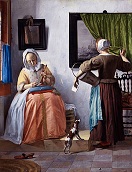

1662 The Cape Colony in South Africa numbers 250 white settlers. On Jan. 1 Samuel Pepys "did with my elbow hit my wife a great blow over her face and neck, which waked her with pain, at which I was sorry, and to sleep again" - not another pepys out of you? On Mar. 13 the Lowestoft Witch Trial in Suffolk, presided over by Sir Matthew Hale (1609-76) executes two women as witches - some will win, some will lose, some only what? On May 9 the first Punch and Judy marionette show starring hook-nosed humpbacked Punch and his shrewish wife Judy is performed in England at Covent Garden in London, as noted by Samuel Pepys in his diary; puppetmaster is Pietro Gimonde (Signor Bologna). On May 19 the Earl of Clarendon's Act of Uniformity gives assent to a revised English Book of Common Prayer, and requires clergymen, college fellows, and schoolmasters to accept it, thus making it impossible for Anglican bishops to continue in communion with bishops of other churches - like Lawrence Welk vs. rock fans? On May 21 I'm-too-sexy-for-my-hat Charles II of England marries unpopular Roman Catholic Catherine of Braganza (1638-1705), daughter of King Joao (John) IV of Portugal, who arrived in Portsmouth, England on May 13/14 wearing Portuguese dress; the public service in the chapel of Domus Dei is Anglican, the secret one Roman Catholic; her dowry of £300K is sweetened by the ports of Tangiers (under Moorish control) and Bombay, as well as free trade with a number of Portuguese possessions; on Sept. 30 they enter London with a large procession incl. Portuguese bagpipe players, meeting matchmaker Henrietta Maria, the Queen Mother, who wants her charms to tame him, only to see him continue hooking up with his mistresses, aided by her Old Maid status (23-y.-o.) and three miscarriages; she goes on to introduce Portuguese goods to the court incl. cane, lacquer, cotton, and porcelain, hooking Charles II on tea and causing him to introduce it to the English court; meanwhile Afonso V of Portugal (b. 1643) puts away his mother Luisa de Guzman (also the mother of Catherine of Braganza), and assumes his reign; too bad, he is partially paralyzed and mentally unstable, causing his brother Peter II to plot to put him away, which he does in Jan. 1668, banishing him to the Azores then Sintra for life (Sept. 12, 1683) and ruling as regent. On June 14 religious dissenter (former Mass. Bay Colony gov.) Sir Henry Vane Jr. (b. 1613) is executed for treason. On July 12 two Suns appear in the sky at the same time at Chard and Crewkerne in England; a number of other odd occurrences prompt the 1667 pub. of Annus Mirabilia by John Dryden - Millennium Fever causes hallucinations? In Aug. the British Brigade for Portugal is raised by Frederick Schomberg, 1st Duke of Schomberg, fighting until mid-1668. In Aug. butcher pirate Christopher Myngs is unleashed again on Jamaica in order to undermine Spanish control of the area, and encouraged to wreck the infrastructure, causing him to promise his buccaneers unlimited plunder and raping, this time with the support of British Jamaican gov. Lord Windsor, who fires a bunch of soldiers and makes them sign up; they start out by sacking Santiago de Cuba, causing buccaneers from all over the Caribbean to flock to him when he announces a new expedition next year, ending up with 14 ships and 1.4K pirates, the largest buccaneer fleet in history so far, incl. Henry Morgan and Abraham Blauvelt. The original John Brown's Body is more like John Bowne's Sperm Bank? In Sept. 34-y.-o. English settler John Bowne (1628-95) is arrested by Peter Stuyvesant's sheriff Resolve Waldron at his 1-room farmhouse (oldest house in New York City, built in 1661) in Vlissingen (modern-day Flushing, Queens) in New Amsterdam on the charge of "abetting an abomination" for permitting Quakers to worship with his wife in his home; he is deported to Amsterdam for 19 mo. until he gets the Dutch West India Co. to enforce the 1657 Flushing Remonstrance, order Gov. Peter Stuyvesant to halt persecution of religious minorities, and allow him to return to his little ole home, which later is hailed as the "cradle of religious tolerance in America" (turned into a museum in 1947); seven U.S. presidents later descend from him (John and J.Q. Adams, Lincoln, Nixon, Ford, G.H.W. Bush and G.W. Bush), and four New York City mayors (all before 1840) (John Lawrence, Marinus Willett, Walter Bowne, and Cornelius Lawrence). With 1666 closing in, the govt. steps in with its own FEMA and tries to control where people can be and what they can read? Charles II's Irish Parliament in Dublin passes the Act of Settlement empowering justices to return disbanded soldiers who might become a recipient of poor relief to his or her (or her hubby's) place of settlement; meanwhile his English Parliament passes the first Licensing Acts, restricting the number of licensed master printers and censoring new pubs. by requiring approval by the secy. of state, lord chancellor, archbishop of Canterbury et al., plus prohibiting anon. pubs.; they are temporarily lifted in 1679, causing a spate of pubs., then resumed until 1695. Jean Baptiste Colbert, having gotten rival Nicolas Fouquet out of the way, and his office of supt. of finance abolished, becomes French controller-gen., turning France to a mercantilist policy. The Battle of Hapsburg in Fischler sees 20 Objectionists hold off hundreds of Vaticine soldiers. Charles II of England sells Dunkirk to France for £400K. Charles II grants a liberal charter to Connecticut; independent New Haven, known for harboring regicides is absorbed. The Va. Colony passes a law that children are born with the free or slave status of their mother, not their father as in English common law because Africans are foreigners not English subjects, allowing lifelong slavery for blacks. Charles II restores the Scottish Episcopalian Church and demands that ministers obey bishops, then outlaws the Covenants, causing 270 ministers to lose their livings for failing to conform; when others try preaching in open air conventicles, Charles bans these too, which only makes them madder. Zheng Chenggong (Koxinga) dies, and his son Zheng Jing (1642-81) (a sedative formula?) becomes leader of the pirates of Taiwan. Wampanoag leader Massasoit dies, and is succeeded by his son Wamsutta (Moonanam) (Alexander) (-1663) (until 1663). Rama Varma dies, and Goda Varma (d. 1663) becomes ruler of Cochin. The French make another attempt to colonize Bourbon (Reunion) Island (which has over 100K acres of forests and can't be that bad), founding coffee and sugar plantations and shipping slaves in from East Africa, but by 1717 the pop. is only 2K and pirates use it as a base. The pope declares that religious fasts are not broken by consuming chocolate drinks, causing a huge increase in consumption throughout Europe. Boston establishes the first almshouse in the British Am. colonies. The Society of Foreign Missionaries of Paris sets up shop in the capital of Siam. A heart tax of 2 shillings is imposed in Ireland; it pisses people off so much that it is abolished in 1689. In Jamestown, Va. the children of all slave women are declared slaves in perpetuity. Salaries of Anglican ministers in Va. are set at the value of 13,333 pounds of tobacco leaf. The last silver pennies are minted in London. The Royal Society of London receives a royal charter from Charles II, becoming England's major center of scientific activity until the 19th cent.; women are excluded; it begins separating science from theology, leading to modern godless Big Science? Masumi Sake begins to be made in Japan. Architecture: Louis XIV appoints Charles Lebrun (1619-90) as chief artistic advisor for his Versailles Palace project; Andre Le Notre (1613-1700) designs the park and gardens. Inventions: Science: Isaac Newton's teacher Isaac Barrow (1630-77) first describes time as a line. John Graunt discovers that English life expectancy is now 27 years - now that they're beginning to drink tea? Robert Hooke (1635-1703) is appointed curator of experiments at the Royal Society of London, and wastes no time, becoming the first to see, describe, and name cells in cork using a microscope. English economist Sir William Petty (1623-87) invents statistical mathematics. Nonfiction: Anon., The Life of Mrs. Mary Frith; sensationalized bio. of London pickpocket-pimp Moll Cutpurse (1584-1659). Anon., Poor Robin's Almanac (1st ed.). Robert Boyle (1627-91), Physiological Essays. Mary Cavendish, Duchess of Newcastle-upon-Tyne (1623-73), Orations. Rene Descartes (1596-1650), Treatise on the World (1662, 1664) (posth.); proposes the Dualistic Model of Reality, mind vs. matter. Thomas Fuller (1608-61), The Worthies of England (posth.). Jeremiah Horrocks (1619-41), Venus in Sole Visa (posth.). Sir Henry Marten (1602-80), Henry Marten's Familiar Letters to His Lady of Delight; to his mistress Mary Ward. Sir William Petty (1623-87), A Treatise of Taxes and Contributions; introduces his invention of statistical mathematics. Phineas Pratt, A Declaration of the Affairs of the English People That First Inhabited New England. Gaspar Schott (1608-66), Physica Curiosa (Wurtzburg); declares Dowsing to be of the Devil. Benedict de Spinoza (1632-77), Tractatus de Intellectus Emendatione (On the Improvement of the Understanding); Ethics Ordine Geometrico Demonstrata (1662-75); pub. in 1677; opposes Rene Descartes' mind-body dualism; "Man is a social animal." Art: Gabriel Metsu (1629-67), Game-Dealers' Shop; Man Writing a Letter (1662-5) (1664-6?); Woman Reading a Letter (mid-1660s); his magnum opus? The Tabby Cat; The Sleeping Sportsman; The Repast; Mother Nursing Her Sick Child; Amateur Musicians; Duet; Music Lesson; Couple Enjoying a Meal; him and his wife? Music: Francesco Cavalli (1602-76), Ercole Amante (ballet opera) (Paris). Plays: Samuel Butler (1612-80), Hudibras, Pt. 1 (Dec.); Pt. 2 1664; Pt. 3 1678; 1st ed. of all three parts in 1684; anti-Puritan satire about knight errant Sir Hudibras, which impresses Charles II, and with his backing becomes an Englsh bestseller; "For his Religion, it was fit/ To match his learning and his wit;/ 'Twas Presbyterian true blue;/ For he was of that stubborn crew/ Of errant saints, whom all men grant/ To be the true Church Militant;/ Such as do build their faith upon/ The holy text of pike and gun;. Decide all controversies by/ Infallible artillery; And prove their doctrine orthodox/ By apostolic blows and knocks;/ Call fire and sword and desolation,/ A godly thorough reformation,/ Which always must be carried on,/ And still be doing, never done;/ As if religion were intended/ For nothing else but to be mended." Moliere (1622-73), L'Ecole (L'École) des Femmes (The School of Women); the first great serious French comedy?; the role of women in society and their proper preparation for it, satiring the materialistic views of the day; denounced as vulgar, obscene, and impious, making it more popular? Poetry: Michael Wigglesworth (1631-1705), The Day of Doom; or, A Poetical Description of the Great and Last Judgment; the first Am. bestseller, by a Puritan minister in Malden, Mass.; God's Controversy with New England; not pub. until 1873. Novels: Madame Marie-Madeleine de La Fayette (1634-93), The Princess of Montpensier (La Princesse de Montpensier), (first novel); a roman a clef about an adulterous love affair in the court of Louis XIV. Births: English classical scholar-critic Richard Bentley (d. 1742) on Jan. 27 in Oulton (near Wakefield), West Riding, Yorkshire; educated at St. John's College, Cambridge U.; founder of the 18th cent. English school of classical criticism. English/Scottish queen (1689-94) Mary II (d. 1694) on Apr. 30 in London; daughter of James II/VII (1633-1701) (son of Charles I and Henrietta Maria) and 1st wife Anne Hyde (1637-71); wife of William III (1650-1702); gets a feminine artistic Protestant education. German (Dresden) architect Matthaus Daniel Poppelmann (Matthäus Daniel Pöppelmann) (d. 1736) on May 3 in Herford. Bavarian elector (1679-1726) Maximilian II Emanuel (d. 1726) on July 11 in Munich; son of Ferdinand Maria and Henriette Adelaide of Savoy. Welsh Nonformist minister Matthew Henry (d. 1714) on Oct. 18 in Broad Oak, Iscoyd (near Shropshire). English clergyman-poet-writer Samuel Wesley the Elder (d. 1735) on Dec. 17 in Dorset; husband of Susanna Wesley (1669-1742); father of John Wesley (1703-91) and Charles Wesley (1707-88); educated at Exeter College, Oxford U. Deaths: Bohemian winter queen Elizabeth Stuart of Bohemia (b. 1596) on Feb. 13 in Leicester Fields, England; dies while visiting her nephew Charles II. Former Mass. Bay Colony gov. Sir Henry Vane Jr. (b. 1613) on June 14 (executed). German composer Johann Cruger (b. 1598) on Feb. 23. German-born polymath Samuel Hartlib (b. 1600) on Mar. 10 in England. English botanist-gardner John Tradescant the Younger (b. 1608). Austrian archduke Leopold Wilhelm (b. 1614) on Nov. 20. English Unitarian minister John Bidle (b. 1615). French savant mathematician-physicist-philosopher Blaise Pascal (b. 1623) on Aug. 19 in Paris; blazes out at age 39 after rejecting medical care, with the soundbyte: "Sickness is the natural state of Christians"; last words: "May God never abandon me"; leaves Pensees (Pensées) (Fr. "Thoughts") (pub. 1670), which anticipates Existentialism, Pragmatism, and Voluntarism, and contains the first formal use of decision theory; section 180 incl. the immortal soundbyte: "Had Cleopatra's nose been shorter, the whole face of the world would have been changed"; section 223 contains Pascal's Wager, which claims that there is an infinite gain or loss if God exists, hence a rational person should live as though he does, because if God does not exist, there is only a finite possible loss; "For after all what is man in nature? A nothing in relation to infinity, all in relation to nothing, a central point between nothing and all and infinitely far from understanding either. The ends of things and their beginnings are impregnably concealed from him in an impenetrable secret. He is equally incapable of seeing the nothingness out of which he was drawn and the infinite in which he is engulfed"; "Diversion is the only thing that consoles us in our wretchedness, and yet diversion is itself the greatest of our miseries. For it is diversion above all that keeps us from seriously taking stock of ourselves and so leads us imperceptibly to perdition": "Men never do evil so completely and cheerfully as when they do it from religious conviction"; "The heart has its own reasons which reason does not know" - he quit thinking and was not? Persian Jewish poet-historian Baba'i ben Lutf (b. ?); leaves The Book of a Forced Convert (Kitab-i Anusi), in 5.3K Persian verses written in Hebrew script, explaining how converted Jews pretend to be Muslim but stay Jewish inside.






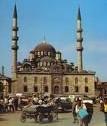
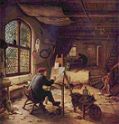
1663 Plague ravages London. On Jan. 8 the Dutch capture Cochin in S India from the Portuguese; Goda Varma surrenders to the Dutch; the Portuguese leave Cochin; Veera Kerala Varma (d. 1687) becomes the puppet ruler of Cochin. In Feb. Sir Christopher Myng and his pirates sack San Francisco de Campeche, but stink themselves up with atrocities that embarrass Charles II, who orders them to cease their attacks in Apr. and appoints Barbados planter Col. Sir Thomas Modyford, 1st Baronet (1620-79) as the new British gov. of Jamaica next year (until 1670); too bad, despite the royal orders everybody knows that the authorities look the other way, and the pirates have a free hand till the end of the cent.; meanwhile Barbados is taken back by the English crown, going on to become a prosperous sugar producer. On Mar. 5 emperor (since 1654) Go-Sai (b. 1638) abdicates in favor of his younger brother Reigen (1654-1732) (personal name Satohito), who becomes Japanese emperor #112 (until May 2, 1687). On Apr. 12 the Royal Society's 2nd charter receives the Great Seal; it only admits 29 new members a year. On May 22 after overrunning S Portugal, Spanish troops under Don John of Austria the Younger, son of Philip IV take Evora (Évora), threatening Lisbon 84 mi. to the W. On June 8 the Battle of Ameixial (Estremoz) near Santa Vitoria do Ameixial 6 mi. NW of Estremoz, Portugal is a V for 17K Portuguese troops under the Count of Mertola and the Count of Ericeira over 18.5K Spanish troops under Don John of Austria, who lose 8K casualties, incl. Don John's standard and all their artillery and baggage, and are forced to retreat to Badajoz, after which the 3.7K-man Spanish garrison of Evora capitulates on June 24. On July 15 Charles II of England ignores Spanish claims and grants a royal charter to the Province of Carolina to eight lucky Lords Proprietors (a-leaping?), the Duke of Albemarle (1608-7), Earl of Clarendon (1609-74), Lord John Berkeley (1607-78), Sir William Berkeley (1606-77), the Earl of Craven (1608-97), Sir George Carteret (1610-80), Sir John Colleton (1608-66), and the Earl of Shaftesbury (1621-83), consisting of a huge tract of land in North Am. from the 31st to the 36th parallel; all but the Carteret heirs sell their shares to the crown in 1729, and the charter stays in effect until 1842. On Aug. 15 a UFO is sighted over a lake near the village of Roboziero, Russia - UFO Robot Zero? In Aug. English Capt. Wiliam Hilton names Hilton Head in Port Royal Sound in the newly-chartered area of Carolina. On Dec. 27 Christine Marie (b. 1601) dies, and her pampered son Charles Emmanuel II finally assumes rule of Savoy (until 1675), going on to develop the port of Nice, build a road through the Alps to France, professionalize the army, beautify Turin, and unsuccessfully attempt to gain a passage to the sea via war with Genoa (1672-3). Wamsutta dies, and is succeeded by his younger brother Metacomet (Pometacom) (Philip) (-1676) as king of the Wampanoag (Pokanokets) in Mass.; the English call him King Philip; his capital is in Bristol, Rhode Island, 65 mi. by water from Nantucket. The Turks declare war on the Holy Roman Empire, invade Transylvania and Hungary under grand vizier Koprulu Ahmed, and capture the fortress of Nove Zamky in Slovakia, finally being stopped by bad weather; the imperial diet becomes a body permanently in session in Regensburg. A Dutch fleet under Malacca gov. Balthasar Bort along with a Qing army drive Koxinga's son Zheng Jing from the coast of Fujian (1663-4). The Second Navigation Act of 1663 (Staple Act) (first 1662, 3rd 1670, 4th 1673) attempts to make England the staple (market or trade center) for all goods sent to the colonies, requiring all goods shipped from Europe to America to first be landed in England, and a duty paid before reshipment. Jean Baptiste Colbert forms the colony of New France into a province, with Quebec as capital. The Spanish fort of Zamboanga in Mindanao (founded 1635) is abandoned, and Spain pulls out of the S Philippines for the rest of the cent., allowing the Muslim states to consolidate their power while trading with the Dutch. Regular imports of coffee beans from Mocha, Yemen to Holland begin, causing London coffeehouse owner Pasqua Rosee to sell coffee in Holland next year before opening the first coffeehouse in Holland in The Hague, after which more are opened in Amsterdam and Haarlem. The first gold guinea (21 shilling) pieces are minted in England (until 1813) with gold mined in Guinea. Turnpike tolls are introduced in England. English Tory journalist Sir Roger L'Estrange (1616-1704) is made licenser of the English press. By this year tea is selling in London for 60 shillings/lb. vs. 6 for coffee; by 1700 it begins to be sold by grocers in London as well as tea shops, which are frequented by women as well as men, along with 500+ coffeehouses; by 1750 tea becomes Britain's favorite lower class beverage. English widow (mother of nine) Margaret Fell (1614-1702), a supporter of Quaker man George Fox is sent to prison for refusing the take the Oath of Allegiance after she pleads to Charles II to release a group of Quakers; after release she marries Fox. Blind John Milton (1608-74), er, seeing his first wife die in 1652, then marrying a 2nd time in 1654 and er, seeing her die in 1656, then having to pay a fine and serve time in prison for his support of the Commonwealth, finally marries for a 3rd time, and this babe outlives him. Jean Baptiste Racine returns to Paris, and his poetry soon makes him BMOC, with a royal pension granted next year, allowing him to keep up with Moliere, Pascal, Corneille, and Nicolas Boileau-Despreaux in the brilliant world of 1666 Paris. The works of Rene Descartes are put on the Catholic Prohibited Books Index. Europaische (Europäische) Zeitung begins pub. in Copenhagen. The word "celibacy" (Gr. "living alone") is coined, flipping, er, flopping back and forth between meaning unmarried and sexually chaste. The Third Folo of Shakespeare's works is pub. French finance minister Jean Baptiste Colbert founds the Academie (Académie) des Inscriptions et Belles Lettres (originally the Académie royale des Inscriptions et Médailles until Jan. 1716) in Paris in Feb. by five humanist scholars incl. Jean Chapelain, Francois Charpentier, Jacques Cassagne, Amable de Bourzeys, and M. Douvrier, growing to eight members in 1683, and 40 in 1701, becoming one of the five academies of the Insitut de France (founded Oct. 25, 1795); its charter is "primarily concerned with the study of the monuments, the documents, the languages, and the cultures of the civilizations of antiquity, the Middle Ages, and the classical period, as well as those of non-European civilizations"; in 1803 Constantine Volney established the Prix Volney for works of comparative philology; in modern times it is composed of 55 French members, 40 foreign members, 50 French corresponding members, and 50 foreign corresponding members. Louis XIV of France establishes the Grand Prix de Rome, a 3-to-5-year scholarship in Rome for painters and sculptors, extended to architecture in 1720, music in 1803, and engraving in 1804; in 1725 the HQ moves to the Palazzo Mancini; abolished in 1968. Architecture: On May 7 the Theatre Royal in Drury Lane, London opens, designed by Thomas Killigrew; too bad, it burns down in 1672, and Christopher Wren designs a new one. Gianlorenzo Bernini designs the new Scala Regia (Royal Staircase) in the Vatican, built by Antonio da Sangallo the Younger in the early 16th cent., connecting the Apostolic Palace to St. Peter's Basilica (finished 1666). Yeni (New) Valide Mosque in Istanbul (Constantople) (begun 1597) is finished; in 1665 it is inaugurated with a royal pavilion, mausoleum, school, and market. Inventions: 20-y.-o. English scientist Isaac Newton begins grinding his own lenses to construct a telescope, and begins trying to improve on it by reducing chromatic aberration. Scottish mathematician James Gregory (1638-75) pub. his invention of the compact reflecting Gregorian Telescope, which becomes the std. telescope design for the next 150 years; he also describes a method to measure the Astronomical Unit (Earth-Sun distance) by using the transit of Venus. German physicist Otto van Guericke (1602-86) builds the first frictional static electric generator. Science: John Newton (1622-78) discovers the Binomial Theorem - it wasn't Isaac Newton? Danish physician Nicolaus Steno (1638-86) proclaims that the heart is a muscle - what else is a muscle? Nonfiction: Robert Boyle (1627-91), Touching the Usefulness of Experimental Philosophy. John Bunyan (1628-88), Christian Behaviour: Being the Fruits of True Christianity, Teaching Husbands, Wives, Parents, Children, Masters, Servants etc. How to Walk So As to Please God, with a Word of Direction to all Backsliders; how believers should prove it with good works. Lord Herbert of Cherbury (1583-1648), De Religione Gentilium (posth.) (Amsterdam). Rev. John Eliot (1604-90), The Holy Bible Containing the Old Testament and the New Translated into the Indian Language and Ordered to be Printed by the Commissioners of the United Colonies in New England (Cambridge, Mass.); his tr. of the Geneva Bible into Algonquian (Natick), becoming the first Bible printed in North Am. Regnier de Graaf (1641-73), Disputatio Medica de Natura et Usu Succi Pancreatici; the nature and function of pancreatic juice. James Gregory (1638-75), Optica Promota. Otto von Guericke (1602-86), Protogaea; pieces fossils together to create a unicorn. Gottfried Wilhelm von Leibniz (1646-1716), De Principio Individui (On the Principle of the Individual); his baccalaureate thesis. Garcia da Orta, Indian Plants; by a Portuguese herbalist in Goa. Blaise Pascal (1623-62), L'Equilibre des Liqueurs (posth.). Gaspar Schott (1608-66), Magia Universalis: Anatomia Physico-Hydrostatica Fontium et Fluminum (Wurtzburg). Benedict de Spinoza (1632-77), Principles of Cartesian Philosohy. Art: Pieter de Hooch (1629-84), At the Linen Closet. Adriaen van Ostade (1610-85), Self-Portrait in his Workshop. Nicolas Poussin (1594-1665), The Four Seasons. Guido Reni (1575-1642), Beatrice Cenci; really by his asst.'s daughter Elisabetta Sirani? Salvator Rosa (1615-73), Alexander the Great in the Studio of Apelles (etching). Adriaen van de Velde, Cattle Near a Building. Jan Vermeer (1632-75), Woman with a Balance Weighing Pearls; a woman in front of a table loaded with pearls, coins and jewelry boxes zeroes the balance while standing in front of a painted scene of the Last Judgment. Music: Marc' Antonio Cesti (1623-69), La Dori (opera). Jean-Baptiste Lully (1632-87), Le Ballet des Arts. James Clifford (1622-98), The Divine Services and Anthems; the first collection of words and anthems pub. in London. Plays: Abraham Cowley (1618-67), The Cutter of Coleman Street (comedy). Sir William Davenant (1606-68), The Play-House To Be Let (comedy) (Aug.). John Dryden (1631-1700), The Wild Gallant (first play) (comedy) (Vere Street Theatre, London) (Feb. 5); staged by the King's Co.; a dud. Births: Am. white-as-cotton Boston Puritan clergyman and anti-witch nutcase Cotton Mather (d. 1728) on Feb. 12 in Mass.; son of Increase Mather (1639-1723); educated at Harvard College. English "A Poem in Praise of Tea" dramatist-journalist (Huguenot) Peter Anthony (Pierre Antoine) Motteux (d. 1718) on Feb. 25 in Rouen; emigrates to England in 1685. English High Church Tory Jacobite bishop-politician and man of letters Francis Atterbury (d. 1732) on Mar. 6 in Milton Keynes, Buckinghamshire; educated at Westminster School, and Christ Church, Oxford U. German Lutheran educator (founder of the Franckesche Stiftungen) August Hermann Francke (d. 1727) on Mar. 22 in Lubeck. Am. printer (Quaker) William Bradford (d. 1752) on May 20 in Barwell, Leicester, England; emigrates to Mass. in 1682. French physicist (pioneer in tribology) Guillaume Amontons (d. 1705) on Aug. 31 in Paris. English poet-satirist William King (d. 1712) in London; relative of Edward Hyde, 1st earl of Clarendon; educated at Christ Church, Oxford U. English novelist-playwright-writer Delarivier (Delariviere) (de la Rivière) "Delia" Manley (d. 1724) in Jersey; after marrying her married cousin who then deserts her, she turns to lit. to get even and writes scandalous memoirs disguised as prose romances; one of her sisters is named Mary, causing future historians to confuse them; one of the "Fair Triumvirate of Wit" along with Aphra Behn and Eliza Haywood. Am. Va. planter Robert "King" Carter (d. 1732) in Lancaster Co., Va.; ancestor of six U.S. presidents. Austrian gen. Francois Eugene de Savoie-Carignan (Prince Eugene of Savoy) (d. 1736) in France. Deaths: African queen Ann Nzingha (b. 1582). French violinist-composer Biagio Marini (b. 1594) on Mar. 20. Swedish-German gen. Count Hans Christoff von Konigsmarck (b. 1600) on Mar. 8 in Stockholm. French regent of Savoy (1637-63) Christine Marie (b. 1601) on Dec. 27 in Turin. Italian Jesuit physicist Francesco Maria Grimaldi (b. 1618); described and named the diffraction of light, made one of the first lunar maps, and started the tradition of naming the Moon's features after famous scientists - no relation to the ruling family of modern Monaco? English archbishop of Canterbury (1660-3) William Juxon (b. 1582) on June 4 in Lambeth, London. Scottish judge-statesman Archibald Johnston, Lord Warriston (b. 1611) in Edinburgh (hanged).
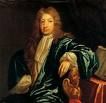




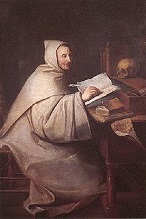


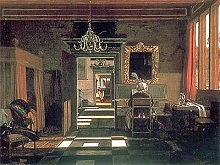

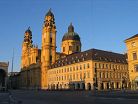
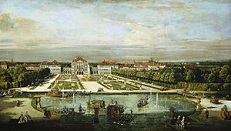
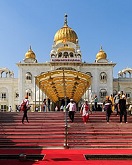
1664 The plague kills 24K in Amsterdam and spreads to Brussels, reaching London by Dec. In Jan. the Second Anglo-Dutch War (ends 1667) is started by the Earl of Clarendon; on May 25 Duke James II of York (eventual successor Charles II) sends an expedition of 300 troops from Portsmouth to capture New Netherlands from Connecticut to Delaware, incl. Ft. Orange, renaming it Albany; on Sept. 8 they capture New Amsterdam from the Dutch, who surrender it peacefully, renaming it New York City (modern-day pop. 8.5M/23M) after the Duke of York (both the city and the province), with Richard Nicolls (1624-72), groom of the duke's bedchamber as British New York Colony gov. #1 (until 1668); the region of Pennsylvania is captured along with it; Charles II also grants the province of Maine (named after the French province, or because the mainland is distinct from its many coastal islands?) to the the Duke of York, who grants the province of New Jersey (named after Carteret's native island of Jersey, or Nova Caesaria) to Sir George Carteret and Lord John Berkeley (brother of the gov. of Va.); after the surrender Dutch gov. of New Holland Peter Stuyvesant goes to Holland for debriefing, then returns, spending the rest of his life cultivating his large farm called the Bouwerij (Bowery) in Manhattan (Algonquian word for island?) (until 1672). On Feb. 1 Croatian-Hungarian soldier Miklos Zrinyi (b. 1620) destroys the Eszek Bridge (built 1566) linking Darda to Osijek across the Sava River and the Baranya Marshes, cutting off the retreat of the Ottoman army, and recaptures several fortresses, incl. Berzence, Babocza, and Pecs; too bad, the Hapsburgs under Count Raimondo Montecuccoli think he's a Hungarian nationalist and don't back him up in his siege of Kanizsa, but that doesn't stop him, and he then successfully sieges Uj-Zrinyivar (Zrinyi-Newcastle), causing HRE Leopold I to make him a prince, Pope Alexander VII to strike a medal promoting him to field marshal, Philip IV of Spain to send him the Order of the Golden Fleece, and Louis XIV of France to create him a peer. In July the Earl of Clarendon's Conventicle Act against Nonconformists is passed by Parliament, prohibiting more than five persons from assembling to worship in any other than the Anglican way except in private households. On Aug. 1 28K-40K Austrians, French and Germans under Count Raimondo Montecuccoli, Jean de Coligny-Saligny, Wolfgang Julius von Hohenlohe, Prince Leopold Wilhelm of Baden, and German Prince Georg Friedrich of Waldeck (1620-92) rout 120K-150K Turks under Koprulu Fazil Ahmed at the Battle of St. Gotthard (Szentgotthard) on the Raab (Raba) River in W Hungary, with 22K Ottoman vs. 6K Christian casualties, and the Turks sign the 20-year Peace (Truce) of Vasvar, and Montecucculi is awarded the Order of the Golden Fleece like Zrinyi; too bad, the Hapsburgs decide not to try to liberate Hungary since they'd rather fight the War of the Spanish Succession, and sell Zrinyi out, giving up his conquests and ceding even more territory to the Turks, with a 200K gold piece tribute to the Porte, causing Zrinyi to rush to Vienna to protest, and after he is rebuffed he returns to Hungary, where he is killed by a wild boar on Nov. 18, causing his supporters to murmur that he was really assassinated by the Hapsburgs. In Oct. the First Royal Marine Regiment is founded in England as the Duke of York and Albany's Maritime Regiment. The Battle of Witebsk sees the Polish-Lithuanian army fight off another Russian invasion, and campaign on Russian soil for the first time in the Thirteen Years' War, forcing peace negotiations. France and Brandenburg become allies. Erfurt becomes part of the electorate of Mainz. Connecticut and New Haven unite. Maryland passes the first Anti-Miscegenation Law, and requires lifelong servitude from blacks; other colonies follow suit. Sweden sells its Gold Coast colonies to the Dutch - and you give, and you give, and you give yourself away. The French West India Co. (Compagnie des Indes Occidentals) is formed (until 1674) to control French trade in Canada, South Am., W Africa and the West Indies, going on to send 45 ships within 6 mo. and compete with the English on the E coast of India; meanwhile the French East India Co. (founded 1604) founds the seaport of L'Orient (Lorient) in Brittany, NW France on the Bay of Biscay, with its harbor 4 mi. from the sea at the junction of the Blavet and Scorff Rivers, turning it into a military fort in 1690. The elite royal Musketeers of the Guard in France (founded 1622), which used to be split into a co. for the king and one for the late Cardinal Mazarin are reorganized (until 1776) into Grey Musketeers (from the color of their horses) and Black Musketeers, incl. Isaac de Portau, Henri d'Aramitz, Armand d'Athos, and Charles de Batz, all from Gascony, who are later (1844) transformed into "The Three Musketeers" by Alexandre Dumas; Cyrano de Bergerac later claims to be from Gascony to enhance his own military standing? The English Long Parliament prohibits reading lessons from the Bible Apocrypha in public. German Roman Catholic missionary-astronomer Johann Adam Schall von Bell (1591-1666) is arrested and condemned to death in China for comparing the Western to the Chinese calendar; he is set free next year, but the charges are left hanging on his head in case he opens his big mouth again - does he look like Harry Potter? The shut-your-mouth Trappist Order of Cistercians is founded by Armand-Jean le Bouthillier de Rance (Rancé) (1626-1700) at La Trappe Abbey in La Trappe, Normandy, becoming known for beer brewing - did they cut their hair with the dingleberry scissors again? Florida aborigines begin growing watermelons from Africa. Celery is first used in the English colonies as a food - in addition to ass wipe and sex toy? The French horn becomes an orchestral instrument. French furniture becomes the fashion in European palaces and castles. The large periwig style is introduced in Europe. After relegalizing horseracing (banned in 1654 by Oliver Cromwell), Charles II founds the Newmarket Town Plate for horseracing in Newmarket (65 mi. N of London). Architecture: Christopher Wren begins the Sheldonian Theatre in Oxford, England (finished 1668). Baroque Italian architect Agostino Barelli (1627-87) is invited to Munich by Bavarian electoral couple Ferdinand Maria (1636-79) and Henriette Adelaide of Savoy (1636-76) (really it was her idea, since she is Italian and just goes for that Baroque stuff) after the birth of their son Maximilian II Emanuel (1662-1726) to build the Theatinerkirche (Theatine Church St. Cajetan) (finished 1690), and to draft plans for the Nymphenburg Palace (Castle of the Nymphs) (finished 1675). The Sikh Gurudwara Bangla Sahib temple is built in Delhi, India, starting out as a bungalow, growing into a small shrine in 1783, and rebuilt after 1947 with a golden dome and tall flagpole. Science: Isaac Barrow gives lectures at Cambridge U. showing that Isaac Newton's method of finding tangents is the inverse of the method of finding areas. Francesco Folli (1624-85) invents the Hygrometer to measure the relative humidity of the air - not hydrometer, that measures specific gravity of liquids? English scientist Robert Hooke (1635-1703) observes a double star (not necessarily a binary star) in Aries. Nonfiction: Anon., Poor Robin's Almanac (1665-1824). Nicolas Boileau-Despreaux (1636-1711), Dialogue des Heros de Roman; disses the artificial poetical romances of his day. Mary Cavendish, Duchess of Newcastle-upon-Tyne (1623-73), Philosophical Letters. Charles Cotton (1630-87), The Compleat Gamester. Rene Descartes (1596-1650), Traite de l'Homme et de la Formation du Foetus (posth.) (Lyons); mechanistic interpretation of the animal body; argues that blood circulates at all times; describes how the nerve impulse is transmitted from the eye to the pineal gland and then to the muscles - quick, we got two years left? Kashif al-Din, Treatise on Coffee and Tea; dedicated to Shah Abbas II. John Evelyn, Sylva. James Howell (1594-1666), Discourse of Dunkirk. Henry More (1614-87), Apology. Thomas Mun (1571-1641), England's Treasure by Foreign Trade (posth.); contains containing several arguments for mercantilism, becoming the first to pub. a theory of the balance of trade. Samuel Whiting (1633-1713), A Discourse of the Last Judgment; real popular, well-timed? Thomas Willis (1621-75), Cerebri Anatome (Anatomy of the Brain); describes his research into the anatomy of the brain along with his discovery of the Circle of Willis, and coining the term "neurology"; traces the optic tract to the thalamus. Roger Williams (1603-83), Bloody Tenant. Art: Frans Hals (1580-1666), The Regenten of the Old Men's Almhouse; The Regenten of the Old Women's Almhouse; his masterpieces? Pieter de Hooch (1629-84), Young Woman Weighing Gold. Nicolas Poussin (1594-1665), Apollo and Daphne. Jan Steen (1626-79), The Christening Feast. Jan Vermeer (1632-75), Woman with a Pearl Necklace. Emanuel de Witte (1617-92), Interior with a Woman Playing the Virginal; masterful use of light. Music: Heinrich Schutz (1585-1672), Johannes Passion; Christmas Oratorio (Dresden). Plays: Samuel Butler (1612-80), Hudibras, Pt. 2; 1st part 1662; 3rd part 1678; "Spare the rod and spoil the child" (later often confused for a Biblical quotation, e.g., Proverbs 13:24, "He that spareth his rod hateth his son; but he that loveth him chasteneth him betimes") - yellow ribbon for before-after anti-MF timing? John Dryden (1631-1700), The Rival Ladies (tragicomedy); makes him an instant success; he goes on to become England's #1 dramatist. George Etherege (1635-91), The Comical Revenge, or Love in a Tub (comedy) (debut); a hit, it gains him the patronage of the court. Sir Robert Howard (1626-98) and John Dryden (1631-1700), The Indian Queen (semi-opera). Moliere (1622-73), Le Tartuffe (Tartufe), or The Imposter/Hypocrite; poses as a holy man to con the merchant Orgon, who gives him everything, even his daughter; contains a veiled attack against the anti-Louis XIV Compagnie du Saint-Sacrement, which allegedly dissolved in 1665. Jean Baptiste Racine (1639-99), La Thebaide our Les Freres Ennemis (The Thebaide or the Enemy Brothers) (first play); acted by Moliere's co. Joost van den Vanden (1587-1679), Adam in Ballingschap (Adam in Exile). Poetry: Charles Cotton (1630-87), Scarronides, or the First Book of Virgil Travestie; pub. anon. Istvan Gyongyosi (1620-1704), Muranyi Venus (Kosice); in honor of his benefactor's wife Maria Szecsi. Births: French Roman Catholic priest (turned atheist) Jean Meslier (d. 1729) on Jan. 15 in Mazerny, Ardennes. English Bleinheim Palace, "The Relapse", "The Provoked Wife" Whig dramatist-architect Sir John Vanbrugh (d. 1726) on Jan. 24 in London; grows up in Chester after being driven out by the 1665 London plague; father owns a sugar factory; collaborator of Nicholas Hawksmoor (1661-1736). Turkish sultan #22 (1695-1703) Mustafa II (d. 1703) on Feb. 6 in Edirne Palace; son of Mehmed IV (1642-93); brother of Ahmed III (1673-1736); father of Mahmud I (1696-1754) and Osman III (1699-1757). Swiss Push/Shadow Theory of Gravitation mathematician-scientist Nicolas Fatio (Facio) (Faccio) de Duillier (d. 1753) in Basel; educated at the U. of Geneva; inventor of the first method for fabricating jewel bearings for clocks and watches. English engineer (steam engine inventor) (Baptist) Thomas Newcomen (d. 1729) in Feb. German Amber Room Baroque sculptor-architect Andreas Schluter (d. 1714) on May 20 in Hamburg. Italian cardinal-statesman Giulio Alberoni (d. 1752) on May 30 (Old Style) in Fiorenzuola d'Arda, Parma. Dutch Rococo still-life painter Rachel Ruysch (d. 1750) on June 3 in The Hague; daughter of Frederik Ruysch (1638-1731) and Maria Post, daughter of architect Pieter Post (1608-69); student of Willem van Aelst (1627-83); wife (1693-) of Juriaen Pool (1665-1745), with whom she has 10 children. English "Alma or The Progress of the Mind" poet-diplomat Matthew Prior (d. 1721) on July 21 in Wimborne Minster, East Dorset; educated at Westminster School and St. John's College, Cambridge U. English celeb Charlee Lee Fitzroy, Countess of Lichfield (d. 1718) on Sept. 5; illegitimate daughter of Charles II and Barbara Villiers, 1st duchess of Cleveland. Italian antiquarian abbate Francesco (de') Ficoroni (d. 1747) near Lugnano. Deaths: Dutch politician Theodor Reinking (b. 1590) on Dec. 15 in Gluckstadt, Holstein. Spanish painter Francisco de Zurbaran (b. 1598) on Aug. 27 in Madrid; dies in poverty. French mathematician Antoine Laloubere (b. 1600) on Sept. 2 in Toulouse. German poet-dramatist Andreas Gryphius (b. 1616) on July 16. Italian composer Barbara Strozzi (b. 1619). Croatian-Hungarian poet-soldier Miklos Zrinyi (b. 1620) on Nov. 18 in Kursanecz (near Csaktornya) (killed by a wild boar) (assassinated by the Hapsburgs?). Anglo-Welsh poet Katherine Philips (b. 1632) on June 22 in London (smallpox); leaves Letters of Orinda to Poliarchus (pub. in 1705-9).




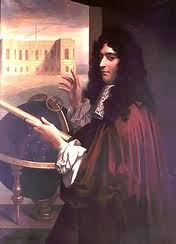
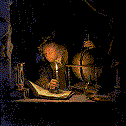


1665 On Mar. 12 the Duke of York's Laws for the Government of the Colony of New York are proclaimed in Hempstead, Long Island by N.Y. gov. (1664-8) Richard Nicolls (until 1683), providing for jury trial, proportional property taxation, and procedures for land patents; on June 12 England installs a municipal govt. in New York City. On June 13 the English under Duke James Stuart of York and Albany and vice-adm. Christopher Myngs defeat the Dutch fleet at the naval Battle of Lowestoft, gaining Myngs a knighthood; in Oct. the Dutch block the Thames River; Canterbury-born English babe Aphra Behn (1640-89), who grew up a slave in Dutch Guiana (Suriname) (and met an African prince?), then was brought to England in 1658 and married to an English merchant of Dutch extraction (who dies in 1666) is sent as a spy to Antwerp (until 1667) - I behn to Aphrica and I'll never come back? On June 17 the Portuguese (allied to the British) defeat the Spanish at the Battle of Montes Claros near Vila Vocosa, securing Portuguese independence. In July the Great Plague of London breaks out (ends Oct. 1666), with bubonic plague killing 20% of London's 500K pop.; the theatres in London are closed; the dogs and cats are suspected of spreading it, so they are killed, helping the rats spread it faster; tobacco smoking is thought to ward off the plague and is made compulsory at Eton; plague also rages in Cologne and in the Rhine district for the next five years. On Sept. 17 Spanish king (since Mar. 31, 1621) Philip IV (b. 1605) dies, leaving the Spanish Empire at its zenith at 3B acres, and his Hapsburg-inbred 4-y.-o. son Charles (Carlos) II (the Bewitched) (1661-1700) becomes king of Spain, Naples, and Sicily (until Nov. 1, 1700), with his mother Mariana of Austria as regent, growing up to become mentally-retarded and sterile, becoming the last of the Spanish Hapsburgs. In Oct. the Earl of Clarendon's Five-Mile (Oxford) Act (Act for Restraining Non-Conformists from Inhabiting in Corporations) puts a cramp on Nonconformist ministers in England, requiring them to take an oath of nonresistance which incl. not coming within 5 mi. of any town or place where they had been ministers; the law proves impossible to enforce - but "IT" is only a year away? On Nov. 14 the Lex Regia introduces absolutism into Denmark. On Dec. 23 the Irish Parliament passes the Act of Explanation to settle the land question. Jean Baptiste Colbert becomes France's leading statesman, reorganizing the entire economy, performing miracles with finances, model factories, trading and colonizing companies and infrastructure projects, which end up being undermined by spendthrift Louis XIV. The English Parliament prohibits imports of Irish cattle and dairy products. Ethiopian emperor (1632-67) Fasilides (1603-67) orders the "books of the Franks" (Roman Catholics) burnt. About this year the Kingdom of Lunda in modern-day Dem. Repub. of Congo (DRC), NE Angola, and NW Zambia, centered in Katana is founded by Luba king Ilunga Tshibinda, who becomes king (mwanta yamvo) #1 of a confederacy of chieftains, with capital in Asokwele, growing from 150K sq. km in 1680 to 300 sq. km in the mid-19th cent., with a pop. of 175K; too bad in the 19th cent. the Western-armed Chokwe invade, ending the kingdom and establishing their own until 1884, when the territory is divided between Portuguese Angola, the Congo Free State of Belgian king Leopold II, and the British, becoming Angola, Dem. Repub. of Congo (DRC), and Zambia. The French East India Co., head by Francois Caron (1600-73) unsuccessfully attempts to set up a colony on wild Madagascar, but succeeds on the nearby islands of Bourbon (Mauritius) and Ile-de-France (Reunion). The Society of Foreign Missionaries of Paris tries to set up shop in Cambodia but is stopped by the Spanish Dominicans. The first modern census is taken in Quebec. The U. of Duisburg in Germany is founded by Brandenburg Great Elector Frederick William (until 1818). The U. of Kiel (originally the Academia Holsatorum Chiloniensis) in Kiel, Germany is founded by Christian Albert, duke of Holstein-Gottorp. Caleb Cheesehateaumuck becomes the first North Am. Indian to take an A.B. degree (Harvard). :) The Prince Archbishop of Munich sells 7K of his subjects as soldiers. New Jersey is organized as an English colony under Gov. Philip Carteret, with capital (until 1686) at Elizabeth (founded 1664), which is settled by colonists from Jamaica, Long Island and named after Carteret's wife. French traveler J.B. Tavernier describes the 240 carat Great Mogul Diamond in India, which later disappears and is possibly the father of the 106.1 carat Koh-i-Noor Diamond. The biweekly London Gazette begins pub., listing official announcements and appointments, bankruptcies, and wartime casualties. The Royal Society begins pub. the monthly Philosophical Transactions, the first scientific journal in English in Mar., incl. a report on "The New American Whalefishing about the Bermudas". Louis XIV adopts Moliere's troupe as his own servants. Sports: New Market, the first thoroughbred horseracing track in colonial Am. is built in Long Island, N.Y.; the first known turf race is held in New York City. A horserace is held in Sandymount, Dublin, Ireland in front of a crowd of 5K, presided over by Lord Deputy Essex, who presents the winner with a valuable plate. Architecture: Gianlorenzo Bernini finishes the High Altar of St. Peter's in Rome (begun 1656) - just in time? Science: Italian astronomer Giovanni (Gian Domenico) Cassini (1625-1712) discovers Jupiter's Great Red Spot, and determines the rotations of Jupiter, Mars, and Venus. Charles II's court physician Peter Chamberlen (1601-83) invents forceps for midwives. Dutch physicist Christiaan Huygens first observes automatic synchronization of two clocks suspended on the same beam, along with indirect coupling, which makes two pendulum clocks mounted together swing in opposite directions. Isaac Newton generalizes the Binomial Theorem to allow real exponents. Nonfiction: John Bunyan (1628-88), The Holy City. John Eliot (1604-90), Communion of Churches (Harvard, Mass.) John Glanvill, Scepsis Scientifica; more on the First Cause. Jacques Godefroy (ed.), Codex Theodosianus. Francesco Maria Grimaldi (1618-63), Physico-Mathesis de Lumine (posth.); explains the diffraction of light. A true quantum leap in man's understanding of his world? Robert Hooke (1635-1703), Micrographia; popularizes microscopy; "The most ingenious book that I ever read in my life" (Samuel Pepys); uses the microscope to identify cells, coining the term "cell" for the rigid thingies in cork, which remind him of monks' cells; his 12 in. x 18 in. Drawing of a Flea grosses out sensitive ladies and makes them faint?; he is the first person to examine fossils under a microscope, and concludes they are the remains or traces of long-dead organisms; the microscope is now de rigueur, causing Antony van Leeuwenhoek, Marcello Malpighi, Nehemiah Grew, Jan Swammerdam et al. to bend over and squint - giving future air duct salesmen a job? Sir William Petty (1623-87), Verbum Sapienti; pub. 1691. Francois de La Rochefoucauld (1613-80), Maximes (Maxims); "Hypocrisy is a tribute that vice pays to virtue." Izaak Walton (1593-1683), The Life of Richard Hooker. Art: Gerrit Dou (1613-75), Violinist; Astronomer by Candlelight. Charles LeBrun (1619-90), The Massacre of the Innocents. Bartolome Esteban Murillo (1617-82), Jacob Laying the Peeled Rods Before the Flocks of Laban; Rest on the Flight into Egypt (1665-70). Adrien van Ostade (1610-85), The Physician in His Study. Rembrandt van Rijn (1606-69), The Jewish Bride; The Slaughtered Ox. Jan Vermeer (1632-75), Girl with a Pearl Earring ("the Dutch Mona Lisa"); The Artist's Studio (1665-6). Plays: Pierre de Brantome (1540-1614), Les Dames Galantes (posth.). John Dryden (1631-1700), The Indian Emperor, or the Conquest of Mexico by the Spaniards (tragedy) (Theatre Royal, Drury Lane) (spring); staged by the King's Co.; stars Michael Mohun as the Emperor, Charles Hart as Cortez, Edward Kynaston as Guyomar, Nicholas Burt as Vasquez, William Wintershall as Odmar, Anna Marshall as Almeria, and William Cartwright as the Priest; features a "gorgeously feathered cloak" brought back from Suriname by Aphra Behn; defines the genre of heroic drama (rhymed heroic tragedy). Moliere (1622-73), Don Juan (tragicomedy); L'Amour Medecin (Médecin). Philippe Quinault (1635-88), Mere Coquette. Jean Baptiste Racine (1639-99), Alexandre le Grand; after he claims Moliere's co. botches it, he moves over to the rival co. of the Hotel de Bourgogne permanently. Francois de La Rochefoucauld (1613-80), Ye Bare and Ye Cubb; first play performed in the English colonies (Virginia). Novels: Jean de La Fontaine (1621-95), Contes et Nouvelles en Verse (1665-74). Richard Head, The English Rogue (picaresque). Births: English/Scottish Stuart (Stewart) queen (1702-14) Anne Stuart (Stewart) (d. 1714) on Feb. 6 in London; last of the Stuart monarchs; 2nd daughter of James II/VII (1633-1701) (son of Charles I and Henrietta Maria) by 1st wife Anne Hyde (1637-71); last monarch of England and Scotland, and first monarch of Great Britain (1707). German botanist Rudolph Jakob Camerarius (Camerer) (d. 1721) on Feb. 12 in Tubingen. Italian "The Seven Sacraments" Baroque painter Giuseppe Maria Crespi (Lo Spagnuolo) (The Spanish One) (d. 1747) on Mar. 14 in Bologna; pupil of Angelo Michele Toni (1640-1708); father of Antonio Crespi (1712-81) and Luigi Crespi (1708-79). French harpsichord player-composer Elisabeth (Élisabeth-Claude) Jacquet de La Guerre (d. 1729) on Mar. 17 in Saint-Louis-en-l'Ile, Paris; world's first female musician? Spanish architect-sculptor Jose Benito de Churriguera (d. 1725) on Mar. 21 in Madrid. Irish soldier James Butler, 2nd Duke of Ormonde (d. 1745) on Apr. 29 in Dublin; son of Thomas Butler, 6th earl of Ossory (1634-80) (son of James Butler, 1st duke of Ormonde); educated at Christ Church, Oxford U. German writer Christian Reuter (d. 1712) in Kutten. English Anglican clergyman Henry Maundrell (d. 1701) in Compton Bassett (near Caine), Wiltshire; educated at Exeter College, Oxford U. Am. "The Sot-Weed Factor" poet Ebenezer Cooke (Cook) (d. 1732) in London, England; emigrates to Md. in ?. Deaths: Dutch dramatist Samuel Coster (b. 1579). English Puritan Mass. gov. John Endicott (b. 1588) on Mar. 15. French painter Nicolas Poussin (b. 1594) on Nov. 19 in Rome. Flemish Jesuit "Acta Sanctorum" writer Jean de Bolland (b. 1596). English prelate John Earle (b. 1601). Spanish Franciscan "Blue Nun" Maria de Agreda (b. 1602) on May 24; leaves The Mystical City of God and Divine History of the Virgin Mother of God, written in 20 days in 1637, burned, and rewritten in 1655-60, then pub. in Madrid in 1670; in 1668 the Franciscans claim that in 1644 she miraculously flew through the air to Mexico (Texas) to convert the natives, the first of 500 trips; her body allegedly never decays, and is examined in 1909 and again in 1989 - what do I have to do to get a sainthood, eh? Spanish king (1621-65) Philip IV (b. 1605) on Sept. 17 in Madrid. French mathematician Pierre de Fermat (b. 1607) on Jan. 12 in Castres.







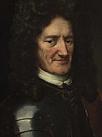

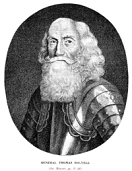



















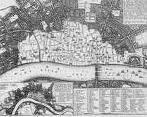
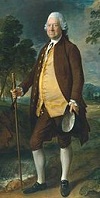
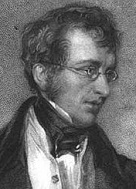
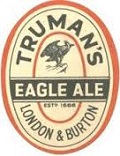
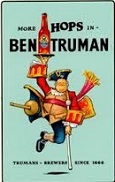
1666 This year contains all the Roman numerals MDCLXVI) once; also 1444, 1446, 1464, 1466, 1644, 1646, 1664. The Millennium Fever (MF) over the Big Year 1666 stirs mass paranoia in Christendom, the smart money being that all those evil scientists and secular pagans (and the antichrist pope and his papist followers, according to Protestants) are going to be consumed in fire just as the unbelievers were consumed in water in the days of Noah; later, when the disappointment sets in, hope springs eternal in the human breast, so anybody born in this year is suspected of being the Devil or the Antichrist, and Armageddon is at least going to happen in his lifetime, so don't give up the faith?; meanwhile never fear, the Scientists are here, as the Annus Mirabilis of English Cambridge U. man Sir Isaac Newton (1642-1727) begins when the plague causes him to be sent home from Cambridge to his home in Woolsthrope, where the world's most famous apple falls from the tree, revolutionizing Science with the stunning realization that the heavens and the Earth are subject to the same universal laws - one little orb falls from the sky, causing their minds to fall from the divine Heavens into the material world of Earth, and like it? Oh Zevi darling, the lady from the fan magazine's here, she wants the lowdown on your love life? Where's the Da Vinci code for this? The MF is really big among Jews this year, allowing Smyrna-born Qabbalistic ascetic Jewish rabbi Sabbatai (Shabbethai) Zevi (Tzvi) (1626-76) (who proclaimed himself Messiah in 1648, got rich in Cairo, then proclaimed himself again on the Jewish New Year last year in the Jewish synagogue in Aleppo to public acclaim, and became de facto ruler of the city, even converting rabbis this time, causing his fame to spread throughout da civilized world, and converts in Avignon, France to plan a trip to Aleppo this spring) decides to go to Constantinople, hoping to crown himself sultan, instead finding Jehovah isn't ready yet and getting arrested at the command of grand vizier Ahmed Koprulu, but when he is treated leniently in his prison in Abydos and allowed to display his great wealth (after paying bribes), his fame spreads throughout da world, causing revolts in Moravia and Sale, Morocco; too bad, in early Sept. Jewish sage Nehemiah ha-Kohen (-1690) from Lwow, Galicia (Poland) arrives and pronounces him a fake, then escapes a murder plot and hikes to Constantinople, telling on him to the sultan after faking conversion to Islam, causing Zevi to be taken to Adrianople, where on Sept. 16 he takes the advice of the sultan's formerly Jewish physician and converts to Islam, wearing a turban, which pleases the sultan, who gives him the title of effendi and gives him a high-paying job as royal doorkeeper, after which his ex-ho wife Queen Sarah and several other followers convert, and he marries a 2nd wife to prove his conversion; meanwhile the punk tries to play both ends against the middle and convert Jews to Islam while converting Muslims to his Qaballistic Judaism, pissing-off the sultan, who banishes him to Montenegro, where he finally croaks; the sultan is barely talked out of extermining all adult Jews in his empire and having all Jewish children brought up as Muslims; diehards continue his Sabbatean Cult in Turkey, with 100K still following him in modern times. On Jan. 22 Mughal emperor (since 1628) Shah Jahan (b. 1592) (Pers. "King of the World") dies in captivity in Agra while mooning the white marble Taj Mahal, leaving plans unfinished to build an identical black marble structure on the other bank of the Jumma River, connected by a silver bridge; his usurper son, Mughal emperor #6 (1658-1707) Aurangzeb (1618-1707) continues his oppressive Muslim rule, trying to forcibly convert the Hindus to Islam, imposing a poll tax, demolishing Hindu temples, and replacing them with mosques, pissing them all off bigtime; meanwhile on Aug. 16 one-less-statistic Hindu Maratha king Jai Shivaji (1627-80) knowing he is facing execution at any time, escapes from house arrest in Agra by pretending to be ill and sending out large baskets filled with sweets to be distributed among the poor, then hiding (along with his son) in them to get past the guards; now quite pissed, he bangs a gong, reorganizes his army, begins building a naval force, then captures Chittagong, regaining all the lost territory by 1668, after which the Marathas start India's longest war in 1681 with them, which they win in 1707 after pioneering guerrilla warfare - imagine basing a religion on a big black rock in the desert, it should be based on a river? In Jan. France quits trying to mediate between England and Holland, allies with Holland, then jointly declares war on England, while Holland allies with the Great Elector and forms a quadruple alliance with Brandenburg, Brunswick and Denmark; the English navy is then defeated in Jan. at the Four Days' Fight (Battle), although rear adm. Sir Robert Holmes (1622-92) distinguishes himself - sure that was fun, who wants to miss out on memories like these, who wants to see my BBQ pictures? In Feb. Charles II returns to London. In the spring the English navy wins a V at the naval Battle of North Foreland under Adm. Prince Rupert (who is back after 20 years spent as a buccaneer and other junkets) and Adm. George Monck; meanwhile English privateers capture Tobago, "land of the hummingbirds", while France takes Antigua, Montserrat and St. Christopher (Kitts) in the Greater Antilles. On June 6 (Gregorian) (Sun.) the world ends - not? On June 11-14 (Gregorian) (June 1-4 Old Style) the naval Four Days' Battle near North Foreland, England is a V for the Dutch under Adm. Michiel de Ruyter over the English under George Monck, 1st duke of Albemarle, with the English losing 10 of 79 ships (1.5K KIA, 1.45K wounded, 1.8K taken POW) vs. only 4 of 84 Dutch ships (1.5K KIA, 1.3K wounded); English vice-adms. Sir Christopher Myngs (b. 1625) and Sir William Berekely, and Dutch lt. adm. Cornelis Evertsen the Elder (b. 1610), vice-adm.Abraham Van der Hurst, and rear adm. Frederick Stachouwer are KIA - time to call Stanley Steamer On June 16 (Gregorian) (June 6 Julian) (Wed.) the world ends - not? - back to the drawing boards? On Aug. 4 (Gregorian) (July 25 Old Style) the naval Battle of St. James Day (North Foreland) (Orfordness) (Two Days' Battle) is a V for the English under Prince Rupert and George Monck, 1st duke of Albemarle over the United Provinces under Adm. Michiel de Ruyter, with the Dutch losing two of their 89 warships (Sneek and Tholen), vs. only one of 90 (Resolution) for the English, and 800 Dutch vs. 300 English KIA. On Aug. 19-20 new hero Sir Robert Holmes stinks himself up by raiding the Dutch islands of Vlie and West-Terschelling and starting an unsporting fire which destroys 250 Dutch merchant ships, becoming known as Holmes' Bonfire. On Sept. 2-5 (Sept. 12-15 Old Style) (early Sun. morning-Wed.) after rainy summers in 1664 and 1665, followed by a bad drought since Nov., making the wooden bldgs. tinder-dry, the Great Fire of London burns 499 acres and kills only a few people after starting in a bakery in Pudding Lane near London Bridge; "10,000 houses all in one flame"; after London lord mayor Sir Thomas Bloodworth is awakened to ask what to do, he replies "Pish, a serving woman might piss it out", then goes back to sleep; too bad, fierce winds whip the flames through the crowded wooden houses to the warehouses on the Thames wharf, and Mister Channel what are you trying to do, give me a heart attack as well?; Charles II and his brother Duke James of York use gunpowder to blow up a row of houses and create a fire break that saves the 1622 Banqueting Hall (where his daddy lost his head in 1649), but flames consume 80% of the walled city, destroying 13.2K houses in a 436-acre area plus another 63 acres outside the city walls, incl. the Old Baley on the W wall of London (rebuilt 1674); homeless Londoners huddle in fields outside the walls, convinced that the fire has been set either by Dutch terrorists in retaliation for the burning of the Dutch fleet by Robert Holmes in Aug., or by papists; London's Guildhall, 44 of the city's rich livery co. halls, the Custom House, the Royal Exchange, St. Paul's Cathedral and 86 other churches are destroyed; the Millennium Feverists score one, but at least the city is cleansed of plague, although other cities with no fires see plague cases decrease; Gen. George Monck manages the city govt., like he did during the 1665 plague; Theatre Royal on Bridges St. escapes the fire, so the plays can go on?; astrologer William Lilly predicted the fire so accurately that he is suspected of starting it; 56-y.-o. jurist Sir Matthew Hale runs the statutory tribunal which for the next six years resolves owner-tenant disputes arising from the fire; on Sept. 16 Charles II demands that a plan for the rebuilding of London be ready in five days, and appoints 34-y.-o. architect Christopher Wren (1632-1723) as the royal surveyor for the project, who goes on to rebuild 52 churches, many of which end up getting destroyed again in the Dec. 29, 1940 City of London Blitz; on July 30, 1669 Wren is officially given the job of replacing Old St. Paul's Cathedral, which is demolished in the early 1670s; it is topped-out on Oct. 26, 1708, and declared complete by Parliament on Dec. 25, 1711, with statues later added to the roof in the 1720s; in 1716 total costs are £1,095,556. On Sept. 17 Welf Duke (since 1635) Augustus the Younger of Brunswick-Luneburg (b. 1579) dies, and the Younger House of Brunswick of the House of Welf splits via secondogeniture, with third (youngest) son Ferdinand Albert I (1636-87) becoming the first duke of Brunswick-Bevern and receiving the Bevern Palace in exchange for conceding the rights to Wolfenbuttel to his elder brother Rudolph Augustus (1627-1704), who makes his young brother Anthony Ulrich (1633-1714) co-ruler in 1685. On Oct. 25 Abbas II (b. 1733) dies after a 25-year reign which virtually restores Persia's glory; too bad, his dissolute son Suleiman (Suleyman) I (1647-94) becomes shah of Persia, going on to almost ruin it all as he retreats into his harem and lets the grand vizier run things; court ministers try an end-around run by plotting to claim that the bum is blind and installing a younger son of Abbas, but a court eunuch betrays the scheme in time for Suleiman to stop it; after 18 mo. his reign is such a mess, with famine and disease among other problems, that he renames himself Safi II in the hope that the pop. will be fooled? A good way to hide soot on your white shirt? On Oct. 28 (Julian) Samuel Pepys writes in his diary, "The King hath yesterday in council declared his resolution of setting a fashion for clothes, which he will never alter", proclaiming that men shall wear vests; a few days later Pepys writes "This day the King begins to put on his Vest, and I did see several persons of the House of Lords, and Commons, too, great courtiers who are in it, being a long cassock close to the body, of black cloth and pinked [slashed] with white silk under it, and a coat over it... and upon the whole, I wish the King may keep it, for it is a very fine and handsome garment." A Pentacle rising plus 666 = ? On Nov. 15 the Pentland Rising in the Pentland Hills of Lothian, N Scotland led by 900 die-hard Scottish Presbyterian Covenanters begins; on Nov. 2.6K die-hard Charles II supporters of the Scottish Royal Army led by Gen. Sir Thoms "Bloody Tam" Dalyell of the Binns, 1st Baronet (1615-85), "the Muscovite Devil" responds with a massacre at Rullion Green, killing 50+; Presbyterians are ruthlessly suppressed by court order beginning in Dec., and all legislation favoring Presbyterianism is repealed and the episcopacy restored (until 1689). The Treaty of Cleves between Brandenburg and Neuburg partitions Julich-Cleves. Hungarian nobles begin a revolt against HRE Leopold I. The Dutch capture Celebes in Malaysia from the Portuguese. Go le Tellier it on the mont? Francois-Michel Le Tellier, Marquis de Louvois (1641-91) succeeds his daddy Michel Le Tellier as French war secy. to Louis XIV, going on to increase the French army to 400K men to fight four big wars by 1713, while working with kingy and his daddy to crush pesky Huguenots and keep the army pure Roman Catholic; meanwhile his brother Charles-Maurice Le Tellier (1642-1710) graduates from the Sorbonne with a doctorate in theology and is ordained a priest, rising to archbishop of Reims in 1671 at age 29. Francois Athenais de Rochechouart-Mortemart, Marquise de Montespan (1641-1707) begins hooking up with Louis XIV, becoming his mistress and bearing him seven children starting in Mar. 1669 - this is my-y-y-y country? Approval for the 65-lock 180-mi. (later 240-mi.) Canal du Midi (Languedoc Canal) (Canal of the Two Seas) (finished 1681) is given to Pierre Paul Riquet (1609-80), connecting the Mediterranean and the Atlantic (Bay of Biscay) along the River Garonne, permitting the nasty Straits of Gibraltar to be skipped - weather is not a problem in our huge indoor showrooms? French explorer Rene Robert Cavalier, Sieur de La Salle (1643-87) voyages to the New World to occupy a land grant on the St. Lawrence River, where he plans to establish trading posts on the Wisconsin River to buy furs from trappers. The modern-day city of Newark (New Ark of the Covenant) on the Passaic River in the New Jersey Colony (modern-day pop. 277K) is founded by Connecticut Puritans led by Robert Treat (1622-1710); on Oct. 31, 1693 it is reorganized as a township, and granted a royal charter on Apr. 27, 1713, then incorporated on Feb. 21, 1798; on Apr. 11, 1836 is is incorporated as a city. To keep up with the court of Louis XIV, English king Charles II issues a decree hat in the English court men must wear a long coat, a waistcoat ("petticoat"), a cravat (precursor of the necktie), a wig, knee breeches (trousers), and a hat, becoming the start of the business suit - in the Year of the Devil? After Jean Baptiste Colbert talks him into it (hey, you already have one for dance and another for lit.?), Louis XIV of France founds the Academie (Académie) Royale des Sciences, a govt.-run scientific experimental org., which pub. Journal des Savants; Christiaan Huygens and 19 other scientists are elected as founding members (women are excluded); after the French Rev. the word "Royale" is dropped, and its character changes, later becoming the Institut de France - forces you to deal with your demons? The English Parliament declares that English wool will be used for burials instead of cotton or linen, blocking foreign textiles while saving 100 tons of cotton rags annually for paper manufacturing. Louis XIV issues an edict, drafted by Jean Baptiste Colbert, encouraging large families, but it proves ineffectual - he's working, he's working? The English House of Commons passes a bill requiring an investigation of "such books as tend to atheism, blasphemy and profaneness... and in particular the book... of Hobbes called the 'Leviathan'", causing Thomas Hobbes, who had been in favor since the Restoration to freak and begin burning many of his papers, and withhold pub. of three major works, Behemoth: The History of the Causes of Civil Wars of England, Dialogues... of the Common Laws of England, and Historia Ecclesiastica. The first ed. of the 1611 Authorized Version of the Bible without the Apocrypha is pub., although some eds. of the Geneva Bible had been omitting it since 1599. Philipp Jakob Spener (1635-1705) introduces Pietism into the German Lutheran Church. The Great Schism (Raskol) breaks out in the Russian Orthodox Church, with the Old Believers (Ritualists) separating in protest against reforms introduced by Moscow Patriarch Nikon in 1652-66. William Penn is sent to Ireland by his father to look after his estate in County Cork, and when he returns they quarrel when the son's "conscience" won't allow him to take off his hat to anybody, even the king. The Congregation of the Sisters of the Infant Jesus is founded in France. Spanish Baroque painter Juan Carreno (Carreño) de Miranda (1614-85) founds the Trinitarian Order. Jean Baptiste Colberg establishes Gobelin workshops in Paris. Cremona-born Italian musical instrument maker Antonio Stradivari (1644-1737) labels his first violin - to fiddle while Rome burns? Green ribbon after Newton and Milton for anti-MF symbolism? Marc' Antonio Cesti (1623-69) becomes court kappelmeister in Vienna. 19-y.-o. Gottfried Wilhelm von Leibniz (1646-1716) completes his legal studies, applies for a degree of doctor of law, is refused because of his age, leaves his native Leipzig, writes the dissertation On Perplexing Cases (De Casibus Perplexis), and promptly obtains the degree at Nuremberg's univ. town of Altdorf - you can have the career of your dream in nine months? Truman's Brewery (originally Black Eagle Brewery) is founded on Brick Lane in Spitalfields, East London, England by Joseph Truman (-1719); he is succeeded by his eldest son Joseph Truman Jr., followed in 1722 by his younger son Sir Benjamin Truman (1699-1780), who takes advantage of the new porter to ramp-up sales, and makes it the drink of the British royal family in 1737 after another brand is ordered to celebrate the birth of the duchess of Brunswick, and the crowd hates it and throws the barrels into the fire, after which the prince of Wales orders four barrels of Truman's, which they like; in 1788 Sampson Hanbury takes over the brewery, acquiring its first steam engine in 1805, doubling porter production from 100K barrels in 1800 to 200K in 1820; in 1808 Hanbury's nephew Sir Thomas Foxwell Buxton (1786-1845) joins the brewery, which in 1811 becomes Truman, Hanbury, and Buxton, going on to teach all employees to read and write before going on to become an MP and work with William Wilberforce to abolish slavery; in June 1831 Buxton hosts the Cabinet Dinner of 1831, a beefsteak and porter dinner at the brewery attended by 23 cabinet members incl. PM Charles Grey and lord chancellor Henry Brougham; by 1853 Black Eagle is the largest brewery on Earth (400K barrels/year); in 1873 after pale ale becomes more popular then porter, and the local water proves unsuitable, the co. acquires Philips Brewery in Burton; in 1888 it goes public, going on to produce brands incl. Eagle Ale, Eagle Stout, and Trubrown; by 1969 it is the only major independent brewery in London; in 1971 it is acquired by Grand Metropolitan, who merges it with Watney Mann, and cheapens the formula, causing sales to tank; in 1989 it closes; until the 1970s a logo consisting of jolly peg-legged fat man Ben Truman with the motto "There's more hops in Ben Truman" is used. Architecture: Caracas Cathedral in Venezuela is built, becoming the seat of the archbishop of Venezuela. Sports: The Cricket Club is founded at St. Alban's in Hertfordshire, England, with its own cricket ground - it ain't cricket? Inventions: Cheddar Cheese is first made in Cheddar, Somersetshire, England, at the entrance of the rocky 1-mi. Cheddar Gorge on the S side of the Mendip Hills (22 mi. SW of Bristol). Robert Hooke designs a new type of escapement for clocks, with the moving part in the same plane as the balance wheel on which it acts to increase accuracy. Charles II's master of mechanics Samuel Morland (1625-95) invents the first multiplying machine, with a duodecimal (base 20) scale based on English currency, requiring human intervention to enter the carry displayed in an auxiliary dial. Jean de Thevenot (1633-67) invents the carpenter's level, consisting of a bubble floating in a thin liquid-filled glass tube. Science: Gian Domenico Cassini determines the rotation period of Mars to be 24 hours 40 min. (actual value 24 hours 37 min. 22.6 sec.), and discovers the Martian polar ice caps - another ancient god proves to be just orbiting dirt? Italian physician Marcello Malpighi (1628-94) pub. the discovery that bile is secreted by the liver. I walk this empty street on the boulevard of broken dreams? Don't let a migraine upset you? As a total rebuff to the Millennium Feverists who say the world is not worth studying (since this is its last year), Isaac Newton goes into a glorious brilliant Rain Man funk in Woolsthorpe and discovers the Integral Calculus (not dental rot but the branch of mathematics) and the Newton's Law of Universal Gravitation (inverse square law), measures the Moon's orbit, and, when not otherwise occupied, buys a glass prism "to try therewith the phenomena of the colours", becoming the first to deduce that the prism splits white light into a spectrum as a result of the different refractive index for each color; sitting under a you know what kind of tree, he observes a you know what falling, and calculates that at a distance of 1 ft. the attraction between two objects is 100 times stronger than at 10 ft., making the super mental leap that the force exerted by the Earth on the apple is the same as that exerted by the Earth on the Moon; "And the same year [1666] I began to think of gravity extending to the orb of the Moon, and having found out how to estimate the force with which a globe revolving within a sphere presses the surface of the sphere, from Kepler's Rule... I deduced that the forces which keep the Planets in their Orbs must [be] reciprocally as the squares of their distances from the centers about which they revolve: and thereby compared the force requisite to keep the Moon in her Orb with the force of gravity at the surface of the earth, and found them answer pretty nearly. All this was in the two plague years of 1665 and 1666, for in those days I was in the prime of my age for invention, and minded Mathematicks and Philosophy more than at any time since" - Isaac Newton, memo in the Portsmouth Collection, 1714; the Newton pippin is later named to commemorate the Big Apple of 1666 - the first modern scientist walks the Earth, and he's white, Anglo-Saxon, and Protestant, but actually not so modern, as he's still got one foot in the past and believes in alchemy and bizarre Bible theories, taking a few years out of his all-important studies to figure out math and physics, in the belief that the Universe is a giant code and he can crack it; his success paradoxically strengthens belief in astrology? On Dec. 19 French royal physician Jean-Baptiste Denis (Denys) (1640-1704) performs the first known human blood transfusion on Antoine Mauroy, a known wife beater who was found wandering zonked and naked through the streets of Paris, twice transfusing about 10. oz of blood from a "gentle" calf and apparently curing him with a kind of emotional transplant, although he is really suffering from syphilis? Nonfiction: The first Armenian Translation of the Bible is pub. Leo Allatius (1586-1669), Drammaturgia; catalog of Italian musical dramas to date. George Alsop (1636-?), A Character of the Province of Maryland; having visited in 1638, the author pub. a promotional account of Md. in verse and prose that mixes jocularity and seriousness, emphasizing the idyllic nature of the area and whitewashing the Indians? Robert Boyle (1627-91), Origin of Forms and Qualities According to the Corpuscular Philosophy; his view that everything is made of atoms, and that Nature is mechanical in er, nature; Hydrostatical Paradoxes; experiments with fluids. John Bunyan (1628-88), Grace Abounding to the Chief of Sinners, or a Brief Relation of the Exceeding Mercy of God in Christ to his Poor Servant John Bunyan; his spiritual autobio. Mary Cavendish, Duchess of Newcastle-upon-Tyne (1623-73), Observations upon Experimental Philosophy; rejects Aristotelianism and mechanical philosophy in favor of Stoicism; being a woman, her work is pooh-poohed. Charles Chauncy (1592-1672), Antisynodalia Scripta Americana. John Eliot (1604-90), The Indian Grammar Begun; "Some Bones and Ribs in preparation for such a work" for teaching the Algonquian language to Protestant missionaries. Margaret Askew (Fell) (Fox) (1614-1702), Women's Speaking Justified, Proved, and Knowed of the Scriptures; how woman is also created in God's image, and although weak is chosen for his purposes, hence to deny her role is to act on behalf of the Devil, fulfilling the enmity decreed by God between woman and the serpent (Gen. 3:18) - Margaret fell askew, but rebounded like a fox? Robert Horne, A Description of Carolina; one of the first descriptions of the Carolina settlement, intended to attract new blood; Horne (of London) may only have been the pub. Gottfried Wilhelm von Leibnitz (1646-1716), Disserto de Arte Combinatoria (Discussion of the Combinatorial Art); a 19-y.-o. formulates the idea that all reasoning and discovery are reducible to an ordered combination of elements, incl. words, numbers, colors, and sounds; contains his suggestion, based on the work of Raymond Lully, that a mathematical language of reasoning should be developed, which is taken up by George Boole et al. in the 1850s. Jean Mabillon (1632-1707), Life and Works of Saint Bernard, Abbot of Clairvaux. Isaac Newton (1643-1727), The October 1666 Tract; an untitled mss. which describes his method for finding the area between a curve that is the graph of an equation and the horizontal axis, AKA integral calculus. Cardinal Michelangelo Ricci (1619-82), Exercitatio Geometrica, de Maximis et Minimis ("Geometrical Exercises Concerning Maximums and Minimums"); finds maximum value of the tangent to a curve using mathematical induction; reprinted as an appendix to Nicolaus Mercator's 1668 "Logarithmo-Technia". Heinrich Schutz (1585-1672), Historia des Leidens und Sterbens unsers Herrens Jesu Christi. Algernon Sidney (1623-83), Court Maxims; argues for a reversal of the English Restoration; "As death is the greatest evil that can befall a person, monarchy is the worst evil that can befall a nation"; claims that an English repub. and a Dutch repub. would have a natural "unity of interest" in "extirpating the two detested families of Stuart and Orange"; not pub. until 1996. Thomas Sydenham (1624-89), Methodus Curandi Febres (Ways to Cure Fevers); London physician advocates the use of opium to relieve pain, cinchona bark (quinine) to relieve malaria, and iron to relieve anemia. John Tillotson, The Rule of Faith. Edmund Waller (1606-87), Instructions to a Painter. Samuel Whiting, Abraham's Humble Intercession for Sodom. Art: Francois Girardon, Apollo Tended by the Nymphs (sculpture). Wenceslas Hollar (1607-77), Views of London; engravings of London after the Great Fire. Jan Vermeer (1632-75), The Letter, Head of a Young Girl. Plays: Jakob Bidermann (1578-1639), Ludi Theatrales Sacri (posth.). Moliere (1622-73), The Misanthrope (June 4) (Palais-Royal, Paris); his name is Alceste; Moliere stars in the debut; "My mind is no more shocked at seeing a man a rogue unjust, or selfish, than at seeing vultures eager for prey, mischievous apes, or fury-lashed wolves" (I.i); "Twenty, as everyone well knows, is not an age to play the prude" (III.v); Le Medecin (Médecin) Malgre (Malgré) Lui (The Doctor in Spite of Himself) (Aug. 6) (Palais-Royal, Paris). Poetry: Novels: Mary Cavendish, Duchess of Newcastle-upon-Tyne (1623-73), The Description of a New World Called the Blazing World; crude sci-fi about a new world where she is Empress Margaret I. Births: Italian anatomist Antonio Maria Valsalva (d. 1723) on Jan. 17 in Imola; of Valsalva maneuver fame (hold your nose and mouth shut and blow hard). German Frauenkirche architect George Bahr (Bähr) (d. 1738) on Mar. 15 in Furstenwalde. Sardinian king (1720-30), king of Sicily (1713-18) and duke of Savoy (1675-1730) Victor Amadeus II (d. 1732) on May 14 in Turin; son of Duke Charles Emmanuel II of Savoy (1634-75) and Marie Jeanne Baptiste de Savoie-Nemours (1644-1724). Russian tsar (1682-89) (retarded) Ivan V (the Ignorant) Alekseyevich (d. 1696) on Sept. 6 (Aug. 27 Old Style); youngest son (11th child) of Alexis I (1629-76) and Maria Miloslavskaya (1625-69); half-brother of Peter I the Great (1672-1725). British caged queen (1714-26) Sophia Dorothea of Celle (d. 1726) on Sept. 15. in Celle, Germany; only child of Duke William of Brunswick-Luneburg (1624-1705) and mistress Eleanor (1639-1722); wife (1682-) of George I, who imprisons her from 1694-1726 for an affair with Philip Christoph von Konigsmarck (1665-94). French mathematician Antoine Parent (d. 1716) on Sept. 16. Swedish gen. Friherre Carl Gustaf Armfeldt (d. 1736) on Nov. 9 in Ingria. English feminist writer ("the first English feminist") Mary Astell (d. 1731) on Nov. 12 in Newcastle uon Tyne. Indian Sikh guru (10th and last) Guru Gobind Singh (d. 1708) on Dec. 22 in Patna - sikh em', it's 1666? Hungarian Kuruc rebel leader Tamas (Tamás) Esze (d. 1708) in Tarpa. English physicist Francis Hauksbee (d. 1713). French writer Louis-Armande de Lom D'Arce, Baron de Lahontan (d. 1716). English "Lexicon Technicum" writer-clergyman John Harris (d. 1719) in Shropshire; educated at Trinity College, Oxford U. English scientist Stephen Gray (d. 1736). British adm. Sir Hovenden Walker (d. 1728); quits Trinity College, Dublin to join the British navy. Deaths: Dutch duke of Brunswick-Luneburg (1635-66) Augustus the Younger (b. 1579) on Sept. 17 in Wolfenbuttel. Dutch painter Frans Hals (b. 1580) on Aug. 26 in Haarlem; dies in poverty - had the last laugh? Am. composer Nicholas Lanier (b. 1588) on Feb. 24 in East Greenwich. Italian painter Guercino (b. 1591) on Dec. 22 in Bologna. German missionary-astronomer Adam Schall von Bell (b. 1591) on Aug. 15 in Peking; in 1668 all charges against him are dropped. Mogul emperor of Delhi (1628-58) Shah Jahan (b. 1592) (of Taj Mahal fame) in Agra - the original brown-eyed-girl-behind-the-stadium man? English writer James Howell (b. 1594); leaves A New English Grammar, Prescribing Certain Rules as the Language Will Bear for Foreigners to Learn English; first work for foreigners to learn English? Swiss diplomat Johann Rudolf Wettstein (b. 1594) on Apr. 12 in Basel. English playwright James Shirley (b. 1596) on Oct. 29 in London; dies of the effects of the Great Fire. French architect Francois Mansart (b. 1598) on Sept. 23 in Paris. French queen Anne of Austria (b. 1601) on Jan. 20 in Paris (breast cancer). French nobleman Henry de Lorraine, count of Harcourt (b. 1601) on July 25 in Royaumont Abbey, Asnieres-sur-Oise. English MP Sir Hardress Waller (b. 1604) in Mont Orgueiel, Jersey Island; dies in priz as a regicide of Charles I. English gov. (Barbados, Suriname) Francis Willoughby, 5th baron Willoughby (b. 1605) on July 23; dies at sea between Barbados and St. Kitts. German Jesuit scientist Gaspar Schott (b. 1608) on May 22 in Augsburg (Wurzburg?). Portuguese queen consort (1640-56) Luisa de Guzman (b. 1613) on Feb. 27 in Lisbon. Dutch physician Paul Barbette (b. 1620) in Amsterdam; leaves Opera Omnia Medica et Chirurgica (8 vols.) (1672, Amsterdam). English adm. Sir Christopher Myngs (b. 1625) in June (KIA). Dutch painter Jan Wouwerman (b. 1629). French Jansenist noble Louis Armand I de Bourbon, prince de Conti (b. 1629) on Feb. 21. German composer Adam Krieger (b. 1634) on June 30.












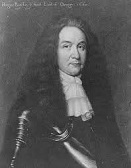







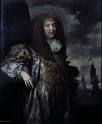



1667 In Jan. architect Christopher Wren receives a commission from the Corp. of London to rebuild all of London, whose fires are still smoldering 4 mo. after the Great Fire; after deciding to clone the design of filthy crowded Paris, his bosses approve widening of streets, along with new regs forbidding thatched roofs and requiring stone and masonry in place of wooden construction, but balk at tearing down private homes to make way for grandiose public boulevards and monuments; Wren's friend Robert Hooke is appointed surveyor by the London Corp. and works with him to rebuild the city, which features 50 new churches, causing a construction boom resulting in making MF-burned London one of the most modern cities in Europe - with patented wind tunnel technology? On Jan. 30 the Truce of Andrusovo (Andrussovo) ends the Thirteen Years' War between Russia and Poland (begun 1654); Jan II Casimir of Poland agrees to cede the borders areas stolen from Russia in 1619, incl. Little Russia (an area around Kiev), Smolensk, and Eastern Ukraine (left bank of the Dnieper River) to Tsar I Alexis of Russia; a full peace treaty is not agreed to until 1686; under the influence of Queen Ludwica, Jan III Sobieski (1624-96) is appointed CIC of the Polish army, and it's just a matter of time before he's wearing a crown? On Mar. 15 Paris creates a police force, La Lieutenance de Police, and installs reflecting candle lanterns on streets; in 1800 it is reorganized as the Prefecture de Police. Why is this man dancing? On May 22 Pope (since 1655) Alexander VII (b. 1599) dies in Rome after persuading Louis IX to restore Avignon to papal control and denounce the privilege of diplomatic residence, and on June 20 Juicy Roast Pig, er, Giulio Rospigliosi is elected Pope (#238) Clement IX (1600-69). George Villiers, 2nd duke of Buckingham, who had been kept down by his enemy, lord chancellor Earl of Clarendon embarrasses the king by fighting a duel in which he kills the earl of Shrewsbury while his wife the countess (Buckingham's paramour) watches disguised as a page; after a brief imprisonment Buckingham is released, and helps bring down Clarendon's govt. after the Four Days' War between the English and the Dutch is fought in July at the mouth of the Thames River, and the Dutch fleet under top Dutch Adm. Michiel Adriaenszoon de Ruyter (1607-76) breaks the chain in England's Medway River, reaches Chatham and captures the flagship Royal Charles, after which both sides withdraw, and Buckingham gets Clarendon blamed, getting him axed, banished to France for life, and prohibited from seeing his children or corresponding with anyone in Britain; Charles's secy. of state Henry Bennet, Earl of Arlington (1618-85) becomes chief minister (until 1674), and Charles selects four other ministers who along with Arlington form the Cabal ("secret doctrine", "intrigue") (Committee of Foreign Affairs) (until 1673) within the privy council (term taken from the Jewish Qabala, becoming its first use with a sinister connotation); the king's five ministers are named Clifford, Arlington, Buckingham, Ashley Cooper (later earl of Shaftesbury), and Lauderdale. On July 21 Dutch Dordrecht grand pensionary Johan de Witt negotiates a peace favorable to the United Provinces, the Peace (Treaty) of Breda is signed, ending the Second Anglo-Dutch War (begun 1664), with all territories restored, and England agreeing to the Dutch interpretation of the Navigation Acts; sovereignty over Suriname is transferred by the English to the Dutch - ever wonder about the people you went to school with? In July the Dutch leave Phnom Penh. On Sept. 9 dissolute slash mad Portuguese king Alfonso VI dismisses his highly capable who's-the-man gov. Luiz de Vasconcelos e Sousa, 3rd Count of Castelo Melhor (1636-1720), and soon afterward yields the throne to his younger brother Pedro II (1648-1706), who becomes regent (defender of the realm) on Sept. 23 (until 1683), after which he gets Alfonso's marriage annulled, marries the queen, and exiles the bum to the Azores, keeping him a prisoner at Sintra until death in 1683; Melhor goes into exile in Paris and London (until 1685). What's a Brooklyn style pizza? What are you, nuts? On Oct. 18 Brueckelen (Dutch "broken land") (Brooklyn) in New Amsterdam, er, New York is chartered by Gov. Richard Nicolls, consisting of "all the lots and plantations lying and being at the Gowanus, Bedford, Walle Bocht and Ferry" - where is the undercover DEA agent? In Oct. Jan III Sobieski defeats an army of 20K-30K Tartars and Cossacks led by Fietr Deroszenke and Girej Khan at the Battle of Podhajce (Podgaytsy). I'm going to eat all this? Not that much, slugger, this'll do it? Nonpayment of the dowry of Marie Theresa by Spain is used as an excuse by Louis XIV to lay claim on the Spanish royal family's personal estates in the Netherlands under the "droit de devolution", which gives ownership of a widow's or widower's property to the children while giving the widow or widower usufruct of the property, with daughters of the first marriage inheriting before sons of the second marriage; Louis declares war on Spain, beginning the War of Devolution (ends 1668), and invades Flanders and Hainault with an army led by Gen. Henri de la Tour d'Auvergne, Vicomte de Turenne (1611-75), who meets little resistance because the Rhineland states refuse to assist the HRE; the French use grenades for the first time; this war pops Louis' cherry, and for the next 50 years Europe is all about his ambitions? - the Sun King in him is let loose by 666 relief? The steal-from-the-rich-give-to-the-poor Bacon's Rebellion in the Va. colony, led by wealthy Nathaniel Bacon (1640-76) forces his cousin Gov. William Berkeley to flee. Mughal emperor Aurangzeb buys off Maratha leader Shivaji, giving him the title of rajah and allowing him to levy taxes. French minister Jean Baptiste Colbert doubles the duty on cloth. The Bahamas are granted to the proprietors of Carolina. Carlo Pallavicino (1630-88) becomes court kappelmeister in Dresden. English spy Aphra Behn returns to England, is never rewarded for her services, and is later jailed for debt, then begins a literary career, becoming the first prof. woman hacker, er, writer in England? The first French girls arrive in Quebec. Sir William Gates leads English colonists to Cape Fear in N. Am., then returns three years later to find them all disappeared without a trace, incl. the Corbett family; a cent. later, Daniel Boone and Mingo discover their descendants living in Indian sacred land? :) The Croatian town of Dubrovnik at the tip of S Dalmatia is destroyed by an earthquake, and later rebuilt in Baroque style, with yellow-tiled roofs. After using her clout with her hubby William Cavendish, "Mad Madge" Mary Cavendish, Duchess of Newcastle-upon-Tyne (1623-73) becomes the first woman admitted to the British Royal Society (next in 1945). The Nat. Observatory in Paris is founded by the French Academy. Jean Baptiste Colbert founds the Manufacture Royale des Meubles de la Couronne. The Worshipful Co. of Feltmakers is incorporated in London. The first ice cream eaten in England is served at Windsor Castle. Ye Olde Cheshire Cheese reopens at 145 Lee St. in London in a new bldg. Russian boyar Afanasy Ordin-Nashchyokin, whose shipyard on the Baltic was closed in 1661 by the Treaty of Cordis brings in Dutch experts and begins building warships at the confluence of the Oka and Volga Rivers, only to have the Cossacks capture them. Henry Howard, 6th Duke of Norfolk (1628-84) presents the Arundel(ian) Marbles, originally collected by his grandfather Thomas Howard, 2nd (21st) Earl of Arundel (1585-1646) to Oxford U. Architecture: Mexico City Cathedral (begun 1573) is finished. St. Peter's Square in Rome (begun 1656) is finished. The Champs-Elysees (Champs-Élysées) (Elysian Fields) in Paris is laid out by Andre Le Notre as an extention of the Tuileries Place Garden, which was built in 1564 and which Le Notre rebuilt for Louis XIV in 1664; originally the Grand Cours or Grand Promenade, it doesn't receive it modern name until 1709. Inventions: Robert Hooke of England and Christian Forner (Förner) of Weissenfels, Germany invent the Anemometer (wind speed gauge). Dutch painter Jan van der Heyden (1637-1712) devises a comprehensive street lighting scheme for Amsterdam, which is used until 1840, and adopted by many other towns. Abbe Jean Picard (1620-82) of France invents a micrometer for use with a telescope, and uses it to discover anomalies in the positions of stars, which are not explained until 1728. Science: German physician Johann Joachim Becher (1635-82) pub. a forerunner of the Phlogiston Theory, claiming that all bodies are composed of air, water, and three earths, terra lapida (stony), terra mercurialis (mercurial), and terra pinguis (fatty), and that in combustion the fatty earth is released, which later causes Joseph Priestley of England to call oxygen "dephlogisticated air" - close but no fat cigar? Robert Boyle proves that fresh air is necessary for respiration, and that an animal can be kept alive by artificial respiration using a bellows in a dog's trachea; his partner Robert Hooke shows that blood alteration in the lungs is the essential feature of respiration. Robert Hooke becomes the first to add red dye to alcohol in a thermometer, and sets the freezing point of water as zero. Science counts sheep in its sleep? On June 15 Jean-Baptiste Denis performs his second human blood transfusion in England from a lamb to teenaged, daft, improverished clergyman's helper Arthur Coga, who is paid 20 shillings to receive up to 12 oz. (350 ml) of blood in the hope that the life force of the docile creature will tame his madness; the following week Coga addresses the Royal Society in Latin, and Pepys reports "He is a little cracked in his head, though he speaks very reasonably"; he disappears before they can give him any more treatments. Cornish physician Richard Lower (1631-91) transfuses blood from one dog to another in Oxford, and observes that blood changes color when in contact with air - air lowers blood pressure? Italian astronomer Geminiano Montanari (1633-87) first records the variability of "Demon Star" Algol (Beta Persei) (an eclipsing binary). Scottish physician Sir Robert Sibbald (1641-1722) and Sir Andrew Balfour found the first botanical garden in Edinburgh, Scotland. Danish scientist Steeno (Niels Steensen) (1638-87) of Copenhagen, who discovered the parotid salivary duct while studying anatomy in Amsterdam, then became court physician to grand duke Ferdinand II of Florence in 1665 publicly dissects a shark's head and proves that its mouth is full of teeth, not serpent tongues, then reveals that stones found in Malta are fossils of ancient shark teeth, founding the modern study of geology; he then advances the theory that land formations such as seabeds evolve via natural processes - living in the moment, priceless? The Cassiopeia A supernova, the youngest known in the Milky Way galaxy blows up (as seen from Earth). Nonfiction: Adrien Auzout (1622-91), Traite du Micrometre ou Maniere Exacte pour Prendre le Diametre des Planates et la Distance entre les Petites Etoiles (Treatise on the Micrometer or the Exact Method for Measuring the Diameter of the Planets and the Distance between the Little Stars"); discusses his improvements to the telescope, incl. his independent invention of the micrometer. Johann Jachim Becher (1635-82), Physical Education; first pub. of the Phlogiston Theory. William Cavendish, 1st duke of Newcastle-upon-Tyne (1592-1676), A New Method and Extraordinary Invention to Dress Horses and Work Them According to Nature. James Gregory (1638-75), Vera Circuli et Hyperbolae Quadratura; shows that the areas of the circle and hyperbola can be obtained from an infinite convergent series, and speculates on the impossibility of the quadrature of the circle and the existence of transcendental numbers; he also pub. infinite series expansions of trig functions; reprinted in 1668 with the appendix Geometriae Pars, with methods on calculating the volumes of solids of revolution. Guillaume Lamoignon (1617-77), The Code Louis. F.E. de Mezeray (1610-83), Abrege Chronologique. Thomas Sprat, Early History of the Royal Society. Gottfried Wilhelm von Leibniz (1646-1716), Nova Methodus Discendique Juris. Samuel von Pufendorf (1632-94), Of the Law of Nature and Nations; De Statu Republicae Germanicae (anti-Hapsburg). Steeno (1638-87), Dissected Head of a Dog Shark (Canis Carcariae Dissectum Caput); concludes that the large tongue-shaped objects found in rock strata in Malta are the teeth of ancient sharks whose remains were buried beneath the seabed and later raised out of the water by changes in the Earth's crust, thereby claiming that fossils are you know what and it's done all the time in Denmark?; meanwhile live shark teeth are not serpent tongues - thanks, Rubbermaid? Thomas Willis (1621-75), Pathologicae Cerebri et Nervosi Generis Specimen (Pathology of the Brain); on the pathology and neurophysiology of the brain, developing a new theory of the cause of epilepsy; contains the first account of the effects of the late stage of syphilis on the brain. Art: Jan Vermeer 1632-75, Girl With a Red Hat. Plays: Roger Boyle, 1st Earl of Orrery (1621-79), The Black Prince (Theatre Royal, Drury Lane, London) (Oct. 19); staged by the King's Co.; helps found the genre of heroic drama; the opening is attended by Charles II, and the 2nd and 3rd performances are attended by Samuel Pepys; stars Edward Kynaston as the Black Prince, Michael Mohun as Edward III, William Wintershall as King John, Charles Hart as Lord Delaware, Nicholas Burt as Count Guesselin, William Cartrwight as Lord Latimer, Katherine Corey as Cleorin, Nell Gwyn as Alizia Pearce, and Rebecca Marshall as Plantagent. Sir William Davenant (1606-68) and John Dryden (1631-1700), The Tempest, or The Enchanted Island (comedy) (Duke's Theatre, Lincoln's Inn Fields, London) (Nov. 7); based on William Shakespeare's "The Tempest". William Cavendish, 1st Duke of Newcastle-upon-Tyne (1592-1676), The Humorous Lovers. John Dryden (1631-1700), Secret Love, or The Maiden Queen; (Theatre Royal, Drury Lane, London) (Mar. 2); opening night features Charles II, the future James II, and Samuel Pepys in the audience; Nell Gwyn plays Florimel; Sir Martin Mar-All, or The Feign'd Innocence (Aug.) (London, Lincoln's Inn Fields); adaptation of Moliere's "L'Atourdi" as tr. by William Cavendish, 1st duke of Newcastle-upon-Tyne (1592-1676). Jean Baptiste Racine (1639-99), Andromaque (Andromache) (tragedy) (Nov. 7) (Hotel de Bourgogne, Paris); the first of his seven great Greek-Roman-based tragedies in rhymed Alexandrine verse (no spontaneous emotion) (Britannicus, Berenice, Bajazet, Mithridate, Iphigenie, Phedre) (ends 1677). Poetry: John Dryden (1631-1700), Annus Mirabilis; the "Wonderful Year" 1666, incl. the Dutch War and Great Fire of London - the raspberry for crypto-MF gobbledygook? John Milton (1608-74), Paradise Lost (10 vols.); 12-vol. 2nd ed. 1674; his magnum opus, composed in1658-65 after going blind in 1652, and finished during the Great Plague at Milton's Cottage in Chalfont St. Giles, Buckinghamshire; the Biblical story of the Fall of Man incl. the temptation of Adam and Eve by Satan and their expulsion from the Garden of Eden; Lucifer's capital is called Pandemonium; "To reign is worth ambition, though in Hell./ Better to reign in Hell than serve in Heaven" (Lucifer); "Their maker, or their making, or their Fate;/ As if Predestination over-rul'd/ Their will, dispos'd by absolute Deree/ Or high foreknowledge; they themselves decreed/ Their own revolt; not It if I foreknew,/ Foreknowledge had no inference on their fault;/ Which had no less prov'd certain unforeknown"; "I formed them free, and free they must remain,/ Till they enthrall themselves I else must change/ Their nature, and revoke the high Decree/ Unchangeable, Eternal, which ordained/ Their freedom; they themselves ordained their fall"; After being sent to warn Adam of Satan's plan, Adam quizzes archangel Raphael on Creation, and gets the reply "The rest from Man or Angel the great Architect did wisely conceal,/ and not divulge His secrets to be scann'd by them who ought rather admire"; after Eve puts him up to it, Adam begs God for forgiveness, causing Archangel Michael to show him a vision revealing everything that will happen to mankind until the Great Flood, ending with mankind's redemption from original sin by Jesus Christ, after which Adam and Eve are cast out of Eden, and Michael utters the soundbyte that Adam may find "a paradise within thee, happier far"; sells 1.3K copies in 18 mo., helping make Milton the #1 English poet of all time - red anti-MF ribbon for astoundingly good sense of timing? Novels: Andrew Marvell (1621-78), Last Instructions to a Painter; satire against corruption of the monarchy. Madeleine de Scudery (1607-1701), Mathilde. Births: Italian Baroque painter Il Lissandrino (Alessandro Magnasco) (d. 1749) on Feb. 4 in Genoa; known for his paintings of synagogues. German "Abblasen" composer Gottfried Reiche (d. 1734) on Feb. 5 in Weissenfels; chief trumpeter in Leipzig of J.S. Bach in 1723-34. Italian art patron (last scion of the House of Medici) Anna Maria Luisa de' Medici (b. 1667) on Feb. 18 in Florence; only daughter of Cosimo III de'Medici and marguerite Louise d'Orleans (niece of Louis XIII); wife of Johann Wilhelm II (1658-1716). French Regence-style (pre-Rococo) architect Germain Boffrand (d. 1754) on May 16 in Nantes; pupil of Jules Hardouin-Mansart. German printmaker Jacob Christoph Le Blon (d. 1741) on May 23 in Frankfurt am Main. French De Moivre's Formula mathematician and chess player (Huguenot) Abraham de Moivre (d. 1754) on May 26 in Vitry-le-Francois, Champagne; emigrates to England in 1687. Swiss mathematician (calculus contributor) Jean Bernoulli (Bernouilli) (d. 1748) on Aug. 6 in Basel; brother of Jacques Bernoulli (1654-1705). Italian mathematician (Jesuit priest) Girolamo Saccheri (d. 1733) on Sept. 5 in Sanremo; one of math's great also-rans? Irish "Gulliver's Travels" cleric-writer-satirist Jonathan Swift (d. 1745) on Nov. 30 in No. 8, Hoey's Court, Dublin; AKA Lemuel Gulliver, Isaac Bickerstaff, M.B. Drapier, Presto; Irish father, English mother; grows up poor and bitter, and suffers from Meunier's Disease; educated at Trinity College, Dublin. English "The Busybody" dramatist-poet-actress Susanna Centlivre (Carroll) (nee Freeman) (d. 1723) in Nov. in Holbeach (near Spalding), Lincolnshire. English natural philosopher-historian-theologian (Arian) William Whiston (d. 1752) on Dec. 9 in Norton (near Twycross), Leicestershire; educated at Clare College, Cambridge U.; vicar of Lowestoft (1698-1701); Lucasian prof. of math at Cambridge (1703-). English "Sir Anthony Love" actress Susanna Verbruggen (Mountfort) (nee Percival) (d. 1703); known for playing men. English gardener Thomas Fairchild (d. 1729). Austrian portraitist Johann Kupetzky (d. 1740) in Pezinok (Bosing) (near Pressburg). German "The Beggar's Opera" composer (in England) Johann Christoph Pepusch (d. 1752) in Berlin; emigrates to England in 1700. Deaths: English Cavalier-turned-Puritan poet-hymnist George Wither (b. 1588) on May 2. English royalist Thomas Wentworth, earl of Cleveland (b. 1591) on Mar. 25; his estates have become kaput and his earldom goes extinct - it went and ain't worth a dime? Swiss Baroque sculptor-architect Francesco Borromini (b. 1599) on Aug. 3 in Rome (suicide). Spanish artist-architect Alonso Cano (b. 1601) on Sept. 3; refuses a crucifix on his deathbed from a priest because he is a converted Jew. French playwright Georges de Scudery (b. 1601). English royalist Edward Somerset, 2nd marquess of Worcester (b. 1602) on Apr. 3 near London; regained his estates but failed to obtain the dukedom of Somerset as Charles II promised. French queen (mother of Louis XIV) Anne of Austria (b. 1602). Ethiopian emperor (1632-67) Fasilides (b. 1603) on Oct. 18 in Azazo; his 7-y.-o. son Isur is crushed by the crowd at his funeral, and is buried with him. Anglican bishop Jeremy Taylor (b. 1613) on Aug. 13 in Lisburn, Country Antrim, Ireland. German composer Johann Jakob Froberger (b. 1616) on May 6/7 in Hericourt; his keyboard suites are pub. in 1693, arranged in an order that sets a standard: allemande, courante, sarabande, gigue. English poet Abraham Cowley (b. 1618) on July 28 in Chertsey, Surrey; buried in Westminster Abbey. Swiss philologist-theologican Johann Heinrich Hottinger (b. 1620) on June 5 in Zurich (drowns with three of his children in the Limmat River after upsetting his boat). Dutch painter Gabriel Metsu (b. 1629) on Oct. 21 in Amsterdam. French inventor Jean de Thevenot (b. 1633) on Nov. 28 in Miyana, India.






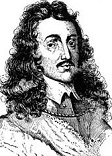




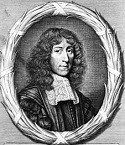

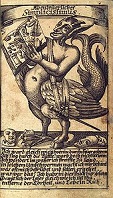

1668 In Jan. Louis XIV signs a partition treaty with the HRE, causing the United Provinces of the Netherlands, which fears French invasion to form the Triple Alliance (Alliance of The Hague) with Sweden and former enemy England against France on Jan. 23; the French, led by the Great Conde overrun Franche-Comte in Feb.; on May 2 the Treaty of Aix-la-Chappelle ends the War of Devolution (begun 1667), and Franche-Comte is returned to Spain after dismantling the fortresses, in return for 12 fortified towns (Lille, Tournay, Oudenarde, et al.) on the border of the Spanish Netherlands in Flanders; the question of succession is deferred. On Feb. 13 the Treaty of Lisbon between Queeen Mariana of Austria (2nd wife of late Philip IV) in the name of her young son Carlos II of Spain, and prince-regent Peter II of Portugal, with the mediation of Edward Montagu, 1st Earl of Sandwich sees Spain recognize Portugal's new ruling dynasty, the House of Braganza, ending the Portuguese Restoration War (begun 1640). On Apr. 7 Sir William Davenant (b. 1606) dies, and John Dryden (1631-1700) becomes poet laureate of England in 1670. On Apr. 15 Pope Clement IX declares blessed St. Rose of Lima (1586-1617), who becomes the first Am. saint. In Apr. Charles II begins his affair with actress Nell Gwyn after sitting in the next box to each other at a performance of George Etherege's "She Wou'd if She Could" at Lincoln's Inn Fields. On Sept. 16 Polish king (since 1648) Jan II Casimir abdicates, after which he moves to France and rejoins the Jesuits, becoming abbot of St. Martin's monastery in Nevers; Jan III Sobieski leads the Polish army against the Turks. The Treaty of Lisbon guarantees Spanish recognition of Portugal. Louis XIV and HRE Leopold I sign a treaty concerning future partition of Spanish realms. A fire set by arsonists in Edo, Japan burns for 45 days. Michigan (Mich.) is settled by French missionary Jacques Marquette (1637-75) at Sault Ste. Marie. The govt. of Maine passes to Mass. Richard Nicolls departs, and Kent-born Francis Lovelace (1621-75) (brother of Cavalier poet Richard Lovelace) becomes New York Colony gov. #2 (until 1673). Charles II grants the British East India Co. control of his new town of Bombay in exchange for an annual rent of 10 English pounds; they move their HQ there from Surat in 1708. The Swedish Nat. Bank is founded, becoming the oldest central bank in the world by modern times. Queen Christina pub. a Letter on Religious Tolerance, and a Manifesto in Defense of the Jews in Rome while staying at the home of a Jew named Texeira. German-Danish organist-composer Dietrich Buxtehude (1637-1707) becomes organist at St. Mary's in Lubeck. Foot binding in China (forbidden in 1638, 1645, and 1662) is finally restricted to Chinese only. La Purga sees the Roman Catholic Church brand four Illuminati scientists with the symbol of the cross, execute them, then leave their bodies in public locations around Rome as a warning to other scientists :) - Dan Brown, Angels and Demons (2000). Architecture: The Oder-Spree Canal (begun 1661) is finished. The Chateau de Villette near Versailles (25 mi. NW of Paris), designed by Francois Mansart (1598-1666) for the Count of Aufflay, with gardens designed by Le Notre is finished, becoming known as the Petite Versailles - Sir Leigh Teabing? The Sheldonian Theatre in Oxford, England (begun 1664) is finished. Inventions: Isaac Newton invents the Newtonian Reflecting Telescope, which is a great improvement, reducing distortion. Science: Dr. Jean Baptiste Denis performs his third human blood transfusion on a wife beater in France in Jan. using a sheep, and when he dies the doctor is tried for murder and acquitted, causing blood transfusions to be banned in France - enough to make me a Jehovah's Witness? Cornish chemist John Mayow (1643-79) of England pub. a tract on respiration, demonstrating that the volume of air is reduced in respiration, attributing it to "spiritus nitro-aereus", which later turns out to be oxygen. Nonfiction: Sir Josiah Child (1630-99), Brief Observations Concerning Trade and the Interest of Money (London); advocates free trade as long as the govt. keeps the interest rate low, with the reservation that the mother country has the sole right of trade with her colonies. John Dryden (1631-1700), Essay of Dramatick Poesie; makes him the #1 English lit. critic. Joseph Glanvill (1636-80), Plus Ultra; or, The Progress and Advancement of Knowledge since the Days of Aristotle; appreciation of the scientific method by a guy who believes in witchcraft? Robert Hooke (1635-1703), Discourse on Earthquakes; pub. posth. in 1705. Stanislaw Lubieniecki (1623-75), Theatrum Cometicum (Theater of Comets); displays the paths of 415 comets from the Deluge to 1665; the Moon crater Lubiniezky is later named after him. Pierre de Lune, Le Nouveau et Parfait Cuisinier. Jean Mabillon (1632-1707), Lives of the Benedictine Saints (9 vols.) (1668-1701). John Mayow (1643-79), De Sal-Nitro et Spiritu Nitro-Aero; reprinted in 1674 with other works. Nicholas Mercator (1620-87), Logarithmo-Technica; on logarithms. Henry More (1614-87), Divine Dialogues. William Penn (1644-1718), The Sandy Foundation Shaken; or, Those So Generally Believed and Applauded Doctrines of One God, Subsisting in Three Distinct and Separate Persons, The Impossibility of God's Pardoning Sinners without a Plenary Satisfaction, The Justification of Impure Persons by an Imputative Righteousness, Refuted; questions the Trinity, getting him thrown into the Tower of London, giving him time to write his most popular books - hey Delilah I know the times are hard, but some day I'll pay the bills with this guitar? Fabian Stedman (1640-1713), Tintinnalogia; first work on the subject of change ringing of bells. Bishop John Wilkins (1614-72), An Essay Towards a Real Character and a Philosophical Language; proposes an internat. language for scholars along with a decimal system of measure. Music: Thomas Tomkins (1572-1656), Musica Deo Sacra (posth.). Art: Gabriel van de Velde, Golfers on the Ice. Rembrandt van Rijn (1606-69), Return of the Prodigal Son. Salvator Rosa (1615-73), Apparition of the Spirit of Samuel to Saul. Jan Vermeer (1632-75), The Geographer; The Astronomer. Plays: Mary Cavendish, Duchess of Newcastle-upon-Tyne (1623-73), Plays Never Before Plublished. Sir William Davenant (1606-68), The Man's the Master (comedy); dies after its debut from 40+-y.-o. syphilis. John Dryden (1631-1700), An Evening's Love; Or, the Mock Astrologer; Ladies a la Mode; Sir Martin Mar-All (comedy). George Etherege (1636-92), She Wou'd If She Cou'd (comedy) (Lincoln's Inn Fields); another hit; too bad, he leaves for Constantinople as secy. of English ambassador Sir Daniel Harvey until 1671, and doesn't debut another play until 1676. Moliere (1622-73), L'Avare (The Miser); Amphitryon; George Dandin ou le Mari Confondu (a wise fool). Jean Baptiste Racine (1639-99), Les Plaideurs (The Litigants); comedy based on Aristophanes' "The Wasps". Sir Charles Sedley (1639-1701), The Mulberry-Garden (first play); comedy based on Moliere's "L'Ecole des Maris". Thomas Shadwell (1642-92), The Sullen Lovers, or The Impertinents; based on Moliere's "Les Facheux". Poetry: Jean de La Fontaine (1621-95), Fables Choisies Mises En Vers (La Fontaine Fables); 2nd ed. 1678. Christian Weise (1642-1708), Der Grunenden Jugend Uberflussige Gedancken; incl. his 1st drama "Die Triumphirende Keuschheit". Births: French-Canadian explorer Jean Baptist Bissot, Sieur de Vincennes (d. 1719) on Jan. 19 in Quebec; father of Francois-Marie Bissot, sieur de Vincennes (1700-36); brother-in-law of Louis Joliet. Italian Capuchin monk (St.) Crispin of Viterbo (Peter Fioretti) (d. 1750) on May 19 in Viterbo. Italian "Scienza Nuova" philosopher-historian-jurist Giovan Battista (Giambattista) Vico (d. 1744) on June 23 in Naples; inspiration for Benedetto Croce. French war secy. (1691-1701) Louis Francois Marie le Tellier (d. 1701) on June 23 in Barbezieux-Saint-Hilaire (Charentes); 3rd son of Francois-Michel le Tellier (1641-91). German Wettin elector of Saxony (1691-4) Johann Georg (John George) IV (d. 1694) on Oct. 18 in Dresden; eldest son of Johann Georg III (1647-91) and Anna Sophie of Denmark. French Baroque composer-organist Francois Couperin "the Great" (d. 1733) on Nov. 10 in Paris; inherits the post of organist of the Church of Saint-Gervais from his father, and passes it to his cousin Nicolas Couperin. Austrian Hofburg Palace architect Johann Lukas von Hildebrandt (d. 1745) on Nov. 14 in Genoa, Italy; German father, Italian mother. Italian poet-librettist-writer Apostolo Zeno (d. 1750) on Dec. 11 in Venice. Dutch humanist physician-botanist ("Founder of the Modern Academic Hospital and Clinical Teaching") Herman (Hermann) Boerhaave (d. 1738) on Dec. 31 in Voorhout (near Leiden); educated at the U. of Leiden. Prussian queen Sophie Charlotte (Fr. "little womanly"), Electress of Brandenburg (d. 1705). English horticulturist John Laurence (d. 1732). English Baroque St. Paul's Deptford architect Thomas Archer (d. 1743) in Tanworth-in-Arden, Warwickshire; educated at Oxford U. French "Turcaret" novelist-dramatist Alain-Rene (Alain-René) Lesage (Le Sage) (d. 1747) in Sarzeau (Morbihan). Scottish surgeon Charles Maitland (d. 1748). Deaths: Am. colonial printer Stephen Day (b. 1594). English soldier Sir William Waller (b. 1597) on Sept. 19. German Jesuit theologian Hermann Busenbaum (b. 1600) on Jan. 31 English military leader Algernon Percy, 10th earl of Northumberland (b. 1602) on Oct. 13 in Petworth. German Latinist Jakob Balde (b. 1604) on Aug. 9 in Neuburg an der Donau. German scientist Johann Rudolf Glauber (b. 1604). English poet laureate Sir William Davenant (b. 1606) on Apr. 7 in London (syphilis); buried in Westminster Abbey. Dutch painter Philips Wouwerman (b. 1619).






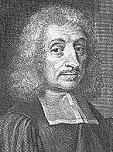
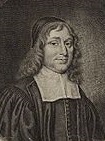



1669 There is a cholera outbreak in China. On Feb. 23 (Shrove Tuesday) Samuel Peeping, er, Peys kiss the publicly displayed corpse of "Kiss Me Kate" Catherine of Valois (1401-37) (wife of Henry V of Agincourt Fame) in Westminster Abbey, and writes in his dairy "On Shrove Tuesday 1669, I to the Abbey went, and by favour did see the body of Queen Katherine of Valois, and had the upper part of the body in my hands, and I did kiss her mouth, reflecting upon it I did kiss a Queen: and this my birthday and I thirty-six years old and I did kiss a Queen" - live the Shakespeare fantasy? In Mar. after being criticized for declaring martial law and housing troops with civilians, James Butler is removed as lt.-gov. of Ireland, but he's still in with kingy, and on Aug. 4 becomes chancellor of Oxford U. In Mar. John Locke's Fundamental Constitutions for Carolina (the area between Va. and Fla.) are approved, providing for a mixed liberal-feudal regime, with the Church of England officially established but dissenters given rights, low property requirements for voting, and secret ballots, and South Carolina (S.C.) is founded; in 1670 English settlers from Barbados arrive, followed by French Huguenots - you want to clean toilets, be my guest? On May 31 Samuel Pepys makes the last entry in his 6-vol. diary (begun 1660): "And thus ends all that I doubt I shall ever be able to do with my own eyes in the keeping of my Journal, I being not able to do it any longer, having done now so long as to undo my eyes almost every time that I take a pen in my hand"; the diary is not discovered for more than a century, among books bequeathed to Cambridge U. The earliest known case of clone discrimination? On July 1 French war secy. Francois-Michel le Tellier (1641-91) writes the first known letter regarding the Man in the Iron Mask, a mysterious prisoner who is arrested in Dunkirk and sent to the prison of Pignerol, France near Turin wearing a velvet mask, with two musketeers always at his side to kill him if he unmasks; the warden M. Saint-Mars is instructed to threaten him with death if he opens his mouth on any subject other than day-to-day needs; the prisoner is put in the Bastille in 1679, with Saint-Mars as its warden, and stays there until his death in 1707. In July after visiting Louis XIV in Versailles and getting banished for refusing to bow to him, Soleiman Agha, ambassador of Ottoman sultan Mehmed IV visits Paris bringing a large quantity of coffee beans, serving coffee to guests and donating beans to the royal court, establishing the custom of coffee drinking in Paris by the time he leaves in May 1670, along with an enthusiasm for all things Oriental incl. turbans, caftans, cushions, and carpets. On Sept. 23 Zagreb U. is founded by decree of HRE Leopold I as the Jesuit Academy of the Royal Free City of Zagreb until the Jesuits are dissolved by Pope Clement XIV in 1773, after which in 1776 Empress Maria Theresa founds the Royal Academy of Science, and Austrian emperor Franz Joseph establishes the U. of Zagreb in 1869, becoming the largest Croatian univ. and oldest continuously operating univ. in C Europe S of Vienna and all of SE Europe. On Sept. 26 the Turks gain control of Crete from Venice (their last colonial possession), despite help from France after Venetian-Cretan engineer Andrea Barozzi gives the Turks the plans for the walls of Chandax (Heraklion) (strongest fort in the E Mediterranean) in 1667 and they still hold out for two years, ending the Fifth Venetian-Turkish War (begun 1645). In Oct. Isaac Barrow resigns his chair as Lucasian Prof. of Mathematics in favor of the much more capable Isaac Newton after the latter announces his ultra-liberating mathematical tool of Calculus, circulating the ms. De Analysi per Eequationes Numero Terminorum Infinitas (pub. 1711). Michael Korybut Wisniowiecki (1640-73) of Lithuania is elected king of Poland (until 1673), going on to watch his kingdom get torn apart by French and Hapsburg factions. On Dec. 9 pope (since 1667) Clement IX (b. 1600) dies after proclaiming a 10-year Peace of the Church (ends 1679) after the intercession of sensitive French genius Blaise Pascal (1623-62), allowing predestinationist Jansenism to exist within the Church, reversing the 1653 ruling that it is heretical. The last assembly of the Hanseatic League is held, with only six towns sending reps., after which it goes formally dissolves next year. Aurangzeb officially bans the Hindu religion in India. In Jamestown, Va. a master is permitted to kill a slave while inflicting punishment - the start of white cops in black ghettos? The Ainu people begin the Shakushain Revolt against the Japanese on Hokkaido Island (ends 1672). Ethiopian emperor Yohannes I expels all Roman Catholics. Rene Robert Cavalier, Sieur de La Salle explores the Great Lakes region, claiming all of Ohio for France; the French control all of Louisiana (La.) Territory until 1762. The first French trading station in India opens. The first tea is imported to Britain from India by the East India Co. Mt. Etna in Sicily erupts, and a 1-mi.-wide 15-mi.-long tongue of lava overflows the walls of Catania, swallowing up the homes of over 27K people, killing 20K and partially filling the harbor. The Spanish expel the Jews from the city of Oran. A royal patent for founding the Royal Academy of Music, soon known as the Academie (Académie) Royale des Operas (Paris Opera) is granted to Pierre Perrin (1620-75). Wiltwyck in New York is renamed Kingston after the English family seat of New York colonial gov. Francis Lovelace (1621-75), younger brother of Cavalier poet Richard Lovelace. A member of the Rottweil town council is forced to resign for not treating his Rottweiler dog properly. Margaret Askew, whose first hubby Thomas Fell fell, er, died in 1568, marries Quaker founder George Fox - you make me quake real good? Austrian Discalced (shoeless) Augustinian monk Abraham a Sancta Clara (1644-1709) begins preaching in Vienna, going on to be appointed imperial court preacher by HRE Leopold I in 1677. Architecture: Louis Le Vau begins remodeling Versailles. St. Mary's Whitechapel (Episcopal) Church is founded. Old South Church is founded in Boston, Mass. on the site where Judge Samuel Sewall publicly confessed his error in presiding over the witchcraft trials in Salem; Benjamin Franklin is later baptized here - call yourself crazy if you can't follow the rules? Science: Danish scientist Erasmus Bartholin (1625-98) pub. the first observations of double refraction of light in Iceland spar crystals. In 1669 alchemist Hennig Brand (Brandt) (1630-1710) of Hamburg, Germany discovers Phosphorus (P) (#15) in distilled human urine, becoming the first new element discovered since ancient times, launching the chain of events leading to the Periodic Table - he wasn't kidding about his burning urination? Marcello Malpighi studies silkworms. Steeno observes that corresponding interfacial angles in quartz crystals are always the same, becoming known as the First Law of Crystallography - Sterno, Urine, 69, all in the same year? English naturalist John Ray (1627-1705) pub. results of experiments on trees, showing that sap ascends through the wood. Nonfiction: Antoine Arnauld (1612-94), Le Perpetuite de la Foi; in collaboration with Nicole de Malebranche. Erasmus Bartholin (1625-98), Experimenta Crystalli Islandici Disdiaclastici quibus Mira & Insolita Refractio Detegitur (Experiments with the Double Refracting Iceland Crystal Which Led to the Discovery of a Marvelous and Strange Refraction). Edmund Castell, Lexicon Heptaglotton. John Eliot (1604-90), Indian Primer; catechistic exercises to aid converted Algonquian Indians. Matthew Locke (1621-77), The Treasury of Musick. Richard Lower (1631-91), Tractatus de Corde; first Western blood transfusion work. Nathaniel Morton, New England's Memorial. William Penn (1644-1718), No Cross, No Crown. Matthew Poole (1624-79), Synopsis Criticorum (5 vols.) (1669-76); summarizes the views of 150 Bible critics. Jan Swammerdam (1637-80), History of the Insects. Art: Jan Vermeer (1632-75), Young Woman Seated at the Spinet (Virginals) (1669-70); The Lacemaker (1669-70). Plays: John Dryden (1631-1700), The Wild Gallant (comedy). Moliere (1622-73), Monsieur de Pourceaugnac. Jean Baptiste Racine (1639-99), Britannicus (tragedy). Poetry: Nicolas Boileau-Despreaux (1636-1711), Epitres; satirical poems. Births: Danish anatomist Jacob (Jakob) Benignus (Jacques-Benigne) Winslow (d. 1760) on Apr. 17 in Odense; student of Guichard Joseph Duverney; works for Caspar Bartholin the Younger, then converts to Roman Catholicism and becomes a French citzen, renaming himself after Bishop Jacques-Benigne Bossuet (1627-1704). Danish physician-anatomist Jakob Benignus Winslow (d. 1760) on Apr. 27 in Odense. Indian Maratha navy CIC Adm. Kanhoji Angre (Conajee Angria) (d. 1729) in Aug. in Angarwadi (6 mi. from Pune), Maharashtra. Austrian field marshal Count Wirich Philipp von Daun (d. 1741) on Oct. 19 in Vienna; father of Leoplod Josef Graf von Daun (1705-66). Am. silversmith-soldier Edward Winslow Jr. (d. 1753) on Nov. 1 in Boston, Mass.; eldest son of Edward Winslow Jr. (1635-82) and Elizabeth Hutchinson (1639-1728); grandson of John Winslow (1597-1674) and Mary Chilton (1607-79); husband of Hannah Moody (1672-1711), Elizabeth Pemberton (1691-1712) and Susanna Layman (1688-1712); fathers 11 children; ancestor of Elliot Richardson and Robert Lowell (and TLW?). British statesman Charles Howard, 3rd Earl of Carlisle (d. 1738). Italian composer Giovanni Carlo Maria Clari (d. 1745). English clergyman Edmund Gibson (d. 1748). Deaths: Greek theologian (keeper of the Vatican Library since 1661) Leo Allatius (b. 1586) on Jan. 19 in Rome, Italy. English poet (bishop of Chichester) Henry King (b. 1592). Italian painter-architect Pietro da Cortona (b. 1596) on May 16 in Rome. Am. Puritan minister Richard Mather (b. 1596) on Apr. 22 in Dorchester, Mass. Italian pope (1667-9) Clement IX (b. 1600) on Dec. 9. English Puritan writer Willam Prynne (b. 1600) on Oct. 24 in London; writes 200 books and pamphlets. German satirist Johann Michael Moscherosch (b. 1601). German Calvinist pietist Johannes Coccejus (b. 1603). Dutch painter Rembrandt van Rijn (b. 1606) on Oct. 4 in Amsterdam; produced 600 paintings, incl. 100 self-portraits from the 1620s to his last years, but dies broke. Dutch architect Pieter Post (b. 1608) on May 8; designed the Huis ten Bosch in The Hague. English/Scottish queen Henrietta Maria (b. 1609); Jacques Bossuet delivers a famous Funeral Oration on Henrietta Maria. English poet Sir John Denham (b. 1615). Dutch adm. Willem van der Zaan (b. 1621) on Mar. 17 off Cape Tres Forcas, Algiers (KIA). Italian composer Marc' Antonio Cesti (b. 1623) on Oct. 14. Dutch (Flemish) philosopher Arnold Geulincx (b. 1624) in Nov.; dies after trying to refine Cartesian philosophy, coming up with the dictums "Ita est, ergo ita sit" (It exists, therefore it is so), and "Ubi nihil vales, ibi nihil velis" (Where you are worth nothing, there you should want nothing), making a fan of Irish novelist Samuel Beckett (1906-89), who quotes him in his novel "Molloy" (1950).















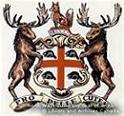
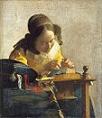

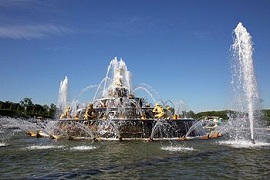
1670 Pop. of the Am. colonies: 110K (70K in New England). In this decade Paris becomes Europe's cultural center, with a pop. of 500K. On Feb. 19 Frederick III (b. 1609) dies, and his son Christian V (1646-99) becomes king of Denmark and Norway (until Aug. 25, 1699), going on to becoming popular while bankrupting Denmark trying to regain Scania. On Mar. 3 the Academie de Royale Musique opens in the Salle du Jeau de Paume de la Bouteille in Paris. On Apr. 29 Emilio Altieri is elected Pope (#239) Clement X (1590-1676). On May 2 Hudson's Bay Co. (Compagnie de la Baie d'Hudson) receives a royal charter from Charles II in London to trade in the area of North Am. draining into Hudson's Bay, with Charles I's nephew (Charles II's cousin) Prince Rupert as dir. #1, who gets the whole the territory lying around Hudson Bay (incl. Manitoba, most of Saskatchewan, S Alberta, S Nunavut, N Ontario, N Quebec, and parts of Minn., N.D., Mont., and S.D.) named Rupert's Land, to which the British and Canadian govt. don't get control back until 1869; the coat of arms is four furry beavers, two moose, and a fox; by modern times it evolves into the dept. store biz in Canada, with the Bay in Winnipeg as the flagship store. On May 23 Ferdinando II dies, and his eldest son Cosimo III de' Medici (1642-1723) becomes Medici grand duke #6 (next-to-last) of Tuscany (until Oct. 31, 1723), going on to reign 53 years during which his ultra-reactionary laws incl. banning of May Day celebrations and crack, er, regulation of prostitution make Tuscany miserable, deteriorating economically. In May the Secret Treaty of Dover between Louis XIV of France and Charles II of England seeks to undermine the 1668 Triple Alliance of England, Sweden, and the Dutch Repub., along with the officially anti-French pro-Dutch Cabal (Committee of Foreign Affairs, with two Roman Catholic members in collusion), requiring France to assist Charles II in his plan to force England to rejoin the Roman Catholic Church with 6K troops plus funds, and England to assist France in conquering the Dutch Repub. in return for several profitable ports on major river ports there; meanwhile France and Bavaria make a defensive alliance; too bad, the stingy Frogs don't send all the money they promised, dooming the invasion? On June 24 after being pardoned by Tsar Alexis I last Aug. for ravishing the Persian coast of the Caspian Sea, and being told to report to Cossack HQ on the Don River, Ukrainian Cossack leader Stepan Timofeyevich "Stenka? Razin (1630-71) turns rebel again, attacks and captures Astrakhan, massacres the pop., and proclaims it a Cossack repub., then takes off up the Volga River with 200 barges full of troops to capture Moscow, but is defeated on Oct. 1-4 at the Battle of the Sviyaga River and flees, leaving most of his troops behind; but he's got life left in him, so he sends emissaries to stir up the Russian oppressed peasant pop. against the hated boyars, and forms a new army to try it again. On Dec. 6 (night) former Irish lt. gov. James Butler, 12th earl of Ormonde is attacked on St. James' St., London by Irish-born ruffian Col. Thomas Blood (1618-80) (who tried to capture Dublin Castle in 1663, and in 1671 tries to steal the crown jewels from the Tower), who captures him and tries to take him to Tyburn to hang him, during which Ormonde escapes in Piccadilly; when the king later pardons Blood, Ormonde's son Thomas Butler, 6th earl of Ossory accuses Lord Buckingham, his daddy's enemy of being behind it all, and the feud is on. Charles II tries to conciliate the crushed Covenanters, but they don't bite, and step up their plans for armed revolt. Spain recognizes English possession of Jamaica; too bad, the "maroon" slaves released by the Spanish become guerrillas, going on to harass the English for the rest of the cent. France occupies Lorraine. South Carolina (originally the Province of Carolina) is finally settled by English Puritans from Bermuda at Albemarle Point on the W bank of the Ashley River, who find poor soil conditions and found the city of Charles Town (Charlestown) (named after Charles II) (modern-day pop. 120K/744K) a few mi. SE between the Ashley and Cooper Rivers. French fur trader Perrot explores the upper Mississippi. English composer John Blow (1649-1708) becomes organist at the Westminster Abbey (until 1708) - blow hard, John? As Louis XIV goes prematurely bald during this decade, wigs become fashionable in European courts, starting with England in 1672; colonists in America colonists don't adopt them until towards the end of the cent., then stop wearing them during the Am. Rev. to look different from loyalists - reverse hippies? A tobacco monopoly is set up in Austria. Charles II of England grants the Bahamas to the lords proprietors of the Carolinas; too bad, they let it become a haven for pirates, incl. Blackbeard, causing Britain to make it a royal colony in 1718 to get rid of them; meanwhile it's the golden age for yo-ho-ho buccaneers. A Portuguese embassy to China led by Manoel de Saldanha de Albuquerque, Conde da Ega wins confirmation of the status of Macao, but is otherwise snubbed. The Worshipful Co. of Tin (Wire) Plate Workers livery co. is founded in London, England. In this decade the Abenaki (Abnaki) Confederacy of Algonquian-speaking tribes, incl. the Malecite, Norridgewock, Passamaquoddy, and Penobscot is founded in Maine, New Brunswick, and Quebec, Canada (ends 1724). French Jesuit missionary Jean Claude Allouez (1622-89) founds the St. Francis Xavier Mission on the Rapides des Peres (modern-day De Pere, Wisc.) on the Fox River 6 mi. from Green Bay, Wisc., from which point Louis Joliet and Jacques Marquette begin their voyage to the Mississippi River in 1673. Nicolas Boileau-Despreaux (1636-1711) is granted an annual pension of 200 francs by Louis XIV, who makes him his historiographer in 1677. John Dryden is appointed historiographer royal and poet laureate. Blasting for mining is introduced into England. The first Italian commedia dell'arte cos. appear in Germany. English royal physician and classical scholar Henry Stubbe (1632-76) coins the word "semeiotics" ("interpretation of symbols"), which is discussed in John Locke's 1690 "Essay Concerning Human Understanding". Samuel Wentworth of Portsmouth obtains the first license to brew beer in N.H. While returning from Hajj in Mecca, Indian Sufi Baba Budan from Karnataka smuggles seven coffee beans from Mocha, Yemen, planting them in the Baba Budan Hills of Chikmagulur; coffee plantations go on to extend S to Kodagu and the hills of S India incl. Karnataka, Kerala, and Tamil Nadu, becoming the finest shade-grown coffee in the world. Architecture: Louis XIV orders the construction of the Hotel (Hopital) des Invalides (Les Invalides) in Paris for war veterans, complete with a Court of Honor for military parades, and selects Liberal Bruant (1635-97) as architect (finished 1676). The Latona Fountain between the Chateau de Versailles and Grand Canal in France is begun by Andre Le Notre, and enlarged in 1686 by Jules Hardouin-Mansart after statuary is added in 1667 by brothers Gaspard and Balthzard Marsy, topped by a statue of the goddess Latona, mother of the Sun god Apollo and Moon gods. Inventions: The Berlin (Berline) Carriage, known for a separate hooded rear seat for a footman is designed by a Piedmontese architect for the elector of Brandenburg, going on to become popular in England by the 18th cent. The Candy cane starts out as a white sugar stick with a crook at the top in memory of the shepherds who visited the infant Jesus, invented by the choirmaster of Cologne Cathedral in Germany; red and white stripes along with peppermint flavor are added by the early 19th cent. In this decade watches begin being made with minute hands. Italian scientist Giovanni Alfonso Borelli (1608-79), known for his experiments in biomechanics attempts to fly with artificial wings. French war minister Francois Michel le Tellier, marquis de Louvois introduces uniforms and paper cartridges to the French army. In this decade the brown rat begins displacing the medieval black rat in Europe and England, causing the incidence of Black Death to decline - is that like brown rat supremacy? Science: Gabriel Mouton of France proposes a standard decimal system of measurement. French astronomer Jean Picard (1620-82) determines that one deg. of latitude (length of arc of the meridian) equals 69.1 English mi.; this helps Isaac Newton verify his theory of gravitation - leave it to the French to teach the English something about 69? British physician Thomas Sydenham invents Laudanum (Lat. "laudare" = to praise") (tincture of opium); in the 16th cent. Paracelsus called opium that already? - who wants to miss out on memories like these? English physician Thomas Willis (1621-75) first describes the symptoms of diabetes. Nonfiction: Maria de Agreda (1602-65), The Mystical City of God; life of the Virgin Mary based on divine revelations she claims to have received; trans. into French in 1690 by French Recollect Friar Croset, causing a big controversy; placed on the Prohibited Index in 1681 by Pope Alexander VIII after lobbying on her behalf by Philip IV of Spain and Charles II of England; lifted in 1748. Paul Amman (1634-91), Medicina Critica. Giovanni Alfonso Borelli (1608-79), De Motionibus Naturalibus a Gravitate Pendentibus. Pierre de Fermat (1601-65), Opera Mathematica (2 vols.) (1670-79) (posth.). John Milton (1608-74), The Historie of Britain. William Penn (1644-1718), The Great Case of Liberty of Conscience; Innocency with Her Open Face; written in the Tower of London. John Ray, A Collection of English Proverbs. Baruch (Benedict) de Spinoza (1632-77), Tractatus Theologico-Politicus; pub. anon.; the first Jewish philosopher to break from 12th cent. Spanish Jew Moses Maimonides, no longer reading the Bible homiletically or allegorically, but rationally, laying the foundations for modern textual criticism and fostering the eternal split between rationality and faith, claiming that if one interpreted the Bible through reason, it proves to be a human not a divinely inspired document; he also shows the contradiction between being a traditional Jew and a true liberal, pissing-off Jews with his rejection of the idea of a Chosen People, claiming that Jews survive by separatism, circumcision, and Gentile hatred, and that the Torah is the constitution of a Jewish state, hence kaput. Michael Wigglesworth (1631-1705), Meat Out of the Eater. Art: Pedro Atanasio Bocanegro (1638-89), The Massacre of the Innocents. Matthaus Merian (1593-1650), Ezekiel's Chariot Vision (engraving). Music: Jacob van Ruisdael, Haarlem. Plays: Aphra Behn (1640-89), The Forced (Forc'd) Marriage (drama); autobio.?; written under the alias Astrea after returning from a stint as a spy in Antwerp for Charles II; about this time she being serving velvety smooth clarified milk punch, made of milk, brandy, and lemon juice; during the Exclusion Crisis (1679-81) she switches to prose, and in 1688 pub. the short novel Oroonoko; or, the Royal Slave, about an African prince from Coramantien who is stricked into slavery and sold to Euro colonists in Surinam, going on to woo the beautiful Imoinda and stage a rebellion before being executed. Pierre Corneille (1606-84), Tete et Berenice (tragedy). John Dryden (1631-1700), Almanzor and Almahide; Or, the Conquest of Granada, Pt. 1. Moliere (1622-73), Le Bourgeois Gentilhomme (ballet-comedy); nouveau riche wannabe gentleman M. Jourdain is milked by unscrupulous tutors teaching him how to dance, fence, spout philosophy, etc. Jean Baptiste Racine (1639-99), Berenice (tragedy). Poetry: Charles Cotton (1630-87), Voyage to Ireland in Burlesque. Births: English "savage breast", "The Old Bachelor", "The Way of the World" Restoration poet-dramatist ("the Moliere of England") William Congreve (d. 1729) on Jan. 24 in Bardsey (near Leeds), West Yorkshire; educated at Trinity College, Dublin while his father commands at garrison in Youghal; friend of Jonathan Swift; known for his unprofound comedies of manners. German Saxon elector (1694-1733) and Polish king (1697-1704, 1709-33) Frederick Augustus I (Augustus II the Strong) (d. 1733) on May 12 in Dresden; AKA the Saxon Hercules for being able to break horseshoes with his bare hands (it's tendon rather than muscle strength?); descendant of equally strong manly babe Cymburgis (Zimburga) of Masovia (1394-1429); member of the Hapsburg Order of the Golden Fleece; father of Augustus III (1696-1763) and Maurice de Saxe (1696-1750). English gen. James FitzJames, 1st Duke of Berwick (d. 1734) on Aug. 21 in Moulins (Bourbonnais), France; illegitimate son of James II of England (1633-1701) and Arabella Churchill (1648-1730); educated in France; created duke of Berwick in 1687. English "The Fable of the Bees" physician and political economist Bernard (de) Mandeville (d. 1733) on Nov. 15 in Rotterdam, Netherlands. Irish rationalist freethinker (pantheist) John Toland (d. 1722) on Nov. 30 in Ardagh, County Donegal. English South Sea Bubble politician John Aislabie (d. 1742) on Dec. 4. French opera singer and swordswoman (bi) Julie d'Aubigny (AKA Mademoiselle Maupin or La Maupin) (d. 1707) (b. 1673)?). English historian Lawrence Echard (d. 1730) in Barsham, Suffolk; educated at Cambridge U.; archdeacon of Stow. Swiss Italian Baroque architect Domenico Trezzini (d. 1734) in Astano (near Lugano), Ticino. Greek Bible translator Stephanos Ioannis Pogonatus (AKA Seraphim) (d. 1735) in Lesbos. Deaths: Italian Jesuit astronomer Niccolo Zucchi (b. 1586) on May 21 in Rome. French poet-dramatist Honorat de Bueil (b. 1589) on Jan. 21 in Paris. Czech Moravian educational reformer Johann Amos Comenius (b. 1592) on Nov. 15. Angolan-born Am. colonist Anthony Johnson (b. 1600) in Va. Dutch painter Salomon van Ruysdael (b. 1600) on Nov. 3 in Haarlem. English-born Am. colonist Samuel Maverick (b. 1602) in New York. English gen. George Monck, 1st duke of Albemarle (b. 1608) on Jan. 3 (edema); dies "like a Roman general with all his officers about him". Danish-Norwegian king (1648-70) Frederick III (b. 1609) on Feb. 19. Dutch seascape painter Joachum Aelbrechtsz de Vries (b. 1609). English witchhunter John Stearne (b. 1610). French classical architect Louis le Vau (b. 1612) on Oct. 11 in Paris; designed Versailles Palace, and the Palais du Louvre. Dutch painter Bartholomeus van der Helst (b. 1613) in early Dec. in Amsterdam. English princess Henrietta Maria (b. 1644) on June 30 in Chateau de Saint Cloud, France.














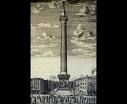


1671 On Feb. 6 Paris-born aristocrat Marie de Rabutin-Chantal Marquise de Sevigne (Sévigné) (1626-96) begins writing Letters on French Court Life to her daughter Mme. de Grignan in Provence (pub. 1726), which are made semi-public and turn her into a celeb.; she calls the condom "an armor against enjoyment and a spider web against danger". On Apr. 24, 1671 (Fri.) (a.m.) Swiss-born French maitre d'hotel to Nicolas Fouquet and the Grand Conde (given the honor of carrying a sword) Francois "Le Grand" Vatel (Fritz Karl Watel) (1631-71) commits suicide with his ceremonial sword at the Chateau de Chantilly when the seafood delivery for his extravagant banquet for 2K in honor of Louis XIV is delayed; he is later falsely credited with inventing Chantilly (Whipped) Cream for this occasion, in which it's a hit. On Apr. 24 Cossack rebel Stenka Razin (b. 1630), who gave the Russkies a tough time in eight battles is captured at Kaganlyk on the Don River along with his brother Frol Razin, then taken to Moscow, tortured, and quartered alive in Red Square on June 16 on the Lobnoye Mesto stone platform in front of St. Basil's Cathedral, becoming a symbol of serf oppression; in Dec. after the Russkies burn rebel-held villages and execute other rebel leaders, Astrakhan surrenders. On May 9 County Clare, Ireland-born British Col. Thomas Blood (1618-80) tries to steal the crown jewels from the Tower of London, knocking out the keeper Talbot Edwards with a mallet to the head, then gagging, binding and stabbing him, and finally using the mallet to flatten out St. Edward's Crown so he can hide it beneath his clerical coat; too bad, Edward's son shows up unexpectedly and blows the whistle, and Blood and his conspirators are captured, then taken to Charles II, who asks him "What if I should give you your life?", to which Blood utters the soundbyte "I would endavour to deserve it, sire", causing kingy to pardon him and give him Irish lands worth £500 a year, after which he becomes a big man around London, making frequent court appearances; the whole thing was the king's plot because he was short of money? In Nov. after being banished last Jan. to Rome at the urging of his first wife and first cousin Henrietta Anne Stuart (1644-70) (grandchildren of Henry IV and Marie de' Medici), then talking his way back to Versailles and luckily finding her poisoned last June 30, Louis XIV's younger brother (the Monsieur) (the spare to go with the heir?) Duke Philippe I of Orleans (1640-1701), an open gay known for wearing women's clothing and perfume marries his 2nd wife, Bavarian heiress Eliabeth Charlotte von der Pfalz (Liselotte), Countess Palatine (1652-1722), daughter of Charles I of the Pfalz (son of Winter King Frederick V and Elisabeth, sister of Charles I); a forced marriage, but it results in three children and the 1688 War of the Palatine, and being a manly woman herself she doesn't mind his nature boys in his bed while she becomes a witty companion of Louis XIV. On Dec. 30 the Académie Royale d'Architecture (Royal Academy of Architecture) is founded in Paris by French king Louis XIV and Jean Baptiste Colbert, and housed in the Louvre, which lacks a roof over the attic until the days of Napoleon, causing living quarters to be roofed at the level of the ground floor. The Kuruc Rebellion of Magyar nobles in Hungary and N Transylvania along with Hungarian Protestant peasants and Slavs against the Hapsburgs begins (ends 1711); they actually call themselves "bujdosok" (fugitives), and call the Austrians and their supporters "labancs". Ex-buccaneer Sir Henry Morgan (1635-88) organizes a big expedition against Panama, struggling across the isthmus then looting and burning Panama City; he is tried in London for doing it in disregard of Britain's peace with Spain, and after slithering (bribing his way?) out of it by pleading ignorance of the treaty, he is made deputy (lt.) gov. of Jamaica by Charles II. After starting out as a pro-Cromwell MP in 1654, then flip-flopping in time to help restore Charles II, and being knighted for it in 1660, Sir Matthew Hale (1609-76) becomes lord chief justice (chief justice of the King's Bench) of England (until 1676); meanwhile the English crown resumes direct control of the customs system, which had been farmed out since 1605; the Cavalier Parliament restricts the use of shotguns to richer landholdrs, and forbids freeholders with incomes less than 100 pounds a year from killing game, even on their own property - making it a crime to feed your family? French police receive the authority to search houses during Lent and confiscate forbidden food items to donate to hospitals. A small English party explore the Ohio River beyond the Blue Ridge Mts. Pawtucket, R.I. 4 mi. NE of Providence at Pawtucket Falls on the Blackstone River is founded. The Paris Opera (Palais Garnier) opens with The Pomone by Robert Cambert (1627-77); next year Jean-Baptiste Lully becomes dir. (until 1687). Guam Chief Hurao gives a classic Speech Against Spanish Interference. William Penn is sent to Newgate prison for 6 mo., giving him the time to write more hits. Edgartown on Martha's Vineyard (named after the son of James Stuart, duke of York) in Mass. is founded. A coffeehouse opens in Marseilles, France, spawning imitators. The first Arabic ed. of the Bible is printed in Rome. Sports: Charles II wins the Newmarket Town Plate (founded 1664) in Newmarket, Suffolk, England, becoing the first (only) reigning monarch to ride a winner. Architecture: Christopher Wren begins building a 202-ft. Monument to the Great London Fire of 1666, designed by Robert Hooke (finished 1677), with 345 steps inside, sited 61m (202 ft.) from where the fire started near London Bridge at Monument St. and Fish St. Hill; the W side of the base has bas reliefs by Dutch-born Caius Gabriel Cibber (1630-1700), father of poet Colley Cibber. Charles II of England begins rebuilding Holyrood Palace in Edinburgh (finished 1678). Inventions: Edmund Blood of London invents a silk-spinning machine that makes silk shags. Science: Italian astronomerGiovanni Cassini (1625-1712) becomes dir. of the Paris Observatory, and discovers Saturn's satellite Iapetus, followed by Rhea next year, and Tethys and Dione in 1684; he also calculates the distance from Earth to Mars, allowing him to calculate the distance to all the planets. Scottish mathematician James Gregory (1638-75) rediscovers the series expansion for pi (using the tangent function) of 14th cent. Indian mathematician Madhava of Sangamagrama (1350-1425) (later called the Leibniz Series). Francesco Redi dissects the torpedo fish and studies its electric organ, failing to realize that the shocking sensation is electric. French mathematician Jean Richer (1630-96) begins a scientific expedition to Cayenne (lat. 5 deg. N) to measure gravity fluctuations (ends 1673). Art: Melchior d'Hondecoeter (1636-95), Jackdaw Deprived of His Borrowed Plumes. Adrien van Ostade (1610-85), Travelers Resting. Nonfiction: Francois Bernier (1620-88), The History of the Late Revolution of the Empire of the Great Mogol (London). John Bunyan (1628-88), A Confession of My Faith. William Carter, England's Interest by Trade Asserted. John Eliot (1604-90), Indian Dialogues; for Indians to use in converting their fellows. Thomas Fairfax, 3rd Lord Fairfax of Cameron (1612-71), Memorials of the War (autobio.). Pierre Jurieu (1637-1713), Examen de Livre de la Reunion du Christianisme (first book). Gottfried Wilhelm von Leibniz (1646-1716), Hypothesis Physica Nova (New Physical Hypothesis); his theory of monadology, enunciating the principle that nothing occurs without a reason, but backing Johannes Kepler with the assertion that movement depends on the action of a divine spirit. Henry More (1614-87), Enchiridion Metaphysicum. Antoine Faustus Nairon, De Saluberrima potione Cahue seu Cafe nuncupata Discurscus (Rome); first mention of Kaldi, the 9th cent. Ethiopian goatherd who allegedly discovers coffee. Isaac Newton (1643-1727), Methodus Fluxionum et Serierum Infinitarum (The Method of Fluxions and Infinite Series); describes the notion of fluxions (time derivatives) and fluents (inverse of fluxions, i.e., integrals); his hesitancy to pub. his secret veapon Calculus until 1736 allows Gottfried Wilhelm von Leibniz to claim prior discovery and get into a cross-Channel pissing contest. William Penn (1644-1718), The Great Cause of Liberty of Conscience. Jean Picard (1620-82), Measure de la Terre (Measure of the Earth); the most accurate length of a meridian of latitude since Eratosthenes (-276 to -194). Stephen Skinner, Etymologicon Linguae Anglicanae. Franz de la Boe (1614-72), New Idea in Medical Practice (Praxeos Medicae Idea Nova); ditches the imbalance of the four humors for an imbalance of acids and bases; he becomes the first to discover a causal connection between tubercules and the disease of TB. Jan De Witt (1625-72), A Treatise on Life Annuities; introduces the concept of mathematical expectation. Plays: Pierre Corneille (1606-84), Moliere (1622-73), and Philippe Quinault (1635-88), Psyche (masque) (Jan. 17) (Salle des Machines, Paris); music by Jean-Baptiste Lully. John Dryden (1631-1700), Almanzor and Almahide; Or, The Conquest of Granada, Pt. II. John Milton (1608-74), Samson Agonistes (Samson the Agonist) (blank verse tragedy); based on Judges chs. 13-16; written in 1668-70, and bound with "Paradise Regained"; he ought to know all about blind heroes, and it's really autobio.? Moliere (1622-73), Les Fourberies de Scapin (comedy). George Villiers, 2nd Duke of Buckingham (1628-87), The Rehearsal (Theatre Royal, London) (Dec. 7); a satirical play aimed at John Dryden and his heroic dramas, esp. "Conquest of Granada", making him give them up. William Wycherley (1641-1716), Love in a Wood, or St. James's Park (comedy) (Theatre Royal, Drury Lane, London); gets him the patronage of George Villiers, 2nd duke of Buckingham, and the king's mistress Barbara Villiers, Duchess of Cleveland, who hooks up with him. Poetry: John Milton (1608-74), Paradise Regained (4 vols.); composed in 1665-7 in his cottage in Chalfont St. Giles, Buckinghamshire; the temptation of Christ according to the Gospel of Luke. Novels: Christian Weise (1642-1708), Die Drey Haupt-Verderber in Teuschland. Births: Italian violin maker Francesco Stradivari (d. 1743) on Feb. 1 in Cremona; son of Antonio Stradivari (1644-1737); brother of Omobono Stradivari (1679-1742) and Paolo Stradivari (1708-76). Scottish outlaw hero (redhead) ("the Scottish Robin Hood") Robert "Rob" Roy (Gael. "Red") MacGregor (d. 1734) on Mar. 7 in Gengyle - robs the royals to give to the Roy? Scottish financier-economist ("Father of Finance") John Law (d. 1729) on Apr. 21 in Edinburgh. Italian grand duke of Tuscany #7 (last Medicean) (1723-37) (Roman Catholic) Gian (Giovnni Battista) Gastone of Tuscany (d. 1737) on May 24 in Piti Palace, Florence; 2nd son of Cosimo III (1642-1723) and Marguerite Louise d'Orleans; named after his maternal grandfather Duke Gaston of Orleans; brother of grand prince Ferdinando and electress palatine Anna Maria Luisa; husband (1697-) of Anna Maria Franziska of Saxe-Lauenberg; born on the first anniv. of his grandfather Ferdinando II's death. Italian Baroque "Dafni" composer Giuseppe Antonio Vincenzo Aldrovandini (d. 1707) on June 8 in Bologna. Indian ruler of Hyderabad (1720-48) (Muslim) Nizam-ul-Mulk ("Regulator of the Realm") (Mir Qamar-ud-din Khan Siddiqi) (d. 1748) on Aug. 20 in Agra. English actor-mgr.-dramatist and poet laureate (1730-57) Colley (OE "dark-haired") Cibber (d. 1757) (pr. SIB-er) on Nov. 6 in Bloomsbury, London; eldest son of Caius Gabriel Cibber (1630-1700); of Danish descent; maternal descendant of William of Wykeham, founder of Winchester College, which refuses to admit him; husband (1693-) of Katherine Shore, daughter of Matthias Shire, sgt.-trumpeter to the king; has 12 children in 1694-1713, six of them dying in infancy; first British actor-mgr. Scottish natural philosopher-mathematician John Keill (d. 1721) on Dec. 1 in Edinburgh; educated at Edinburgh U., and Balliol College, Oxford U.; student of David Gregory (1659-1708). German noble Charlotte Felicitas (d. 1710); daughter of Johann Friedrich, duke of Brunswick-Luneburg-Hanover. Welsh writer Ellis Wynn o Lasynys (d. 1734). Deaths: English Puritan gen. Edward Montagu, 2nd earl of Montagu (b. 1602) on May 5. English royalist gen. William Peckenridge, 1st duke of Omnium (b. 1602) on May 8. :) English Puritan gen. Thomas Fairfax, 3rd lord Fairfax of Cameron (b. 1712) on Nov. 12 in Nun Applefon, West Riding of Yorkshire. French painter Sebastien Bourdon (b. 1616). Russian Cossack leader Stepan Razin (b. 1630) on June 16 (June 6 Old Style) in Lobnoye Mesto, Moscow (tortured and quartered alive). French chef Francois Vatel (b. 1631) on Apr. 24 in Chantilly (suicide). English princess Anne Hyde (b. 1637) on Mar. 31 in St. James's Palace, Westminster (cancer); first falls ill beneath a famous oak tree in White Waltham, Windsor Forest. Ukrainian Cossack leader Stenka Razin (b. ?) (executed).
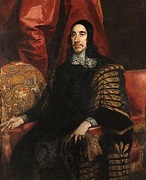
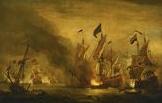



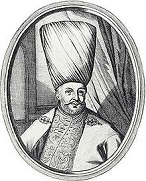


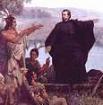





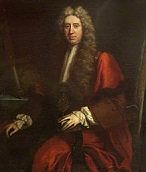
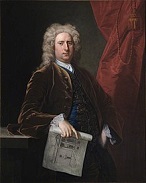
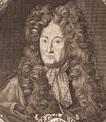








1672 The Black Death breaks out in Europe; 60K die in Lyon, France, plus hundreds of thousands in Naples. Prince James of England converts from Anglicanism to Roman Catholicism, causing several attempts to exclude him from the English succession, and making him happy to command his fleet in person so he can keep away from it all; meanwhile on Mar. 15 his childless (legitimate) brother On Mar. 15 Charles II issues a Royal Declaration of Religious Indulgence; lord keeper of the great seal (since 1667) Sir Orlando Bridgeman, 1st Baronet of Great Lever (1606-74) resigns rather than apply the Great Seal to it; next year the Cavalier Parliament forces Charles II to withdraw it; Congregationalist minister John Bunyan is released from County Gaol, and becomes pastor of the independent congregation in Bedford. On Mar. 17 after Irish-born adm. Thomas Butler, 6th Earl of Ossory (1634-80) makes a boo-boo and attacks the Dutch Smyrna fleet, the Third Anglo-Dutch War begins (ends 1678). On Apr. 14 the Treaty of Stockholm between France and Sweden, signed by Swedish regent Count Magnus Gabriel De la Gardie (1622-86) (along with subsidy treaties with Cologne and Munster) pledges Sweden to maintain a 16K-man army in their German possessions to attack any German prince supporting the Dutch against France in return for 400K riksdalers a year, to be increased to 600K if Sweden enters the war; meanwhile Louis XIV, field marshal Henri de la Tour d'Auvergne, Vicomte de Turenne, and the Great Conde lead 100K troops (secretly supported by Charles II of England under the 1670 secret treaty) without warning into S Holland to punish them for giving refuge to his political critics, easily conquering it, causing the Dutch to open the dikes to flood Amsterdam to keep it from French control; the Dutch sue for peace, but Louis XIV rejects them - there's a lesbian joke buried in here? On June 7 (May 28 Old Style) the Naval Battle of Southwold Bay (Solebay) in the North Sea near Southwold in Suffolk, England is a V for the 93-ship British fleet over the 75-ship Dutch fleet, which trie in vain to surprise-attack it, causing the Dutch to turn for help to prince William of Orange; Richard Nicolls (b. 1624), first English gov. of N.Y. (since 1664) is killed; meanwhile French naval capt. Abraham Duquesne, Marquis du Bouchet (1610-88) is deprived of command for refusing to follow orders and for failing to renounce his Calvinist faith (which already prevented his promotion to adm.); he then serves Sweden's Queen Christina until 1647, then returns to support the French crown during the 1651-3 Fronde Uprising. The most shameful event in Dutch politics? In June the French take Arnhem and Utrecht, toppling the De Witt brothers, and on June 28 after a popular revolt 21-y.-o. Prince William of Orange (1650-1702) (later William III of England-Ireland and William II of Scotland) is made stadtholder, capt.-gen. and adm. of the United Provinces for life, going on to kick the French out and make peace with his uncle Charles II; on July 14 Cornelius de Witt (162-72) is arrested for conspiring against William of Orange, and his brother Johan (Jan) de Witt (1625-72) resigns as head of state on Aug. 4 after 17 years, then is tortured, and (despite not confessing) sentenced on Aug. 19 to banishment; on Aug. 20 Johan visits Cornelius in the Gevangenpoort Prison in The Hague, and a mob breaks in and murders them, them hangs them up by their feet naked and carves out their hearts for trophies, after which Prince William rewards the instigators, Adm. Cornelius Tromp and Johan Kievit, and summons the elector of Brandenburg to help him resist the French. On July 5 Hoare's Bank in Cheapside London (at the sign of the Golden Bottle) is founded by goldsmith Sir Richard Hoare (1648-1718), changing its name to C. Hoare & Co. and going on to become the oldest bank in the U.K. to survive to modern times; Hoare's son Henry "the Good" Hoare (1677-1725) makes a £28K profit in the 1720 South Sea Bubble. In Aug. the Polish-Ottoman War (ends 1676) begins as a Turkish bid to take control of the Ukraine in alliance with the Cossacks of hetman Petro Doroshenko (1627-98), as 80K Ottoman troops under sultan Mehmed IV's grand vizier (since Oct. 31, 1661) Fazil Ahmed Pasha (1635-76) invade the Ukraine, take the strategic border fortress of Kamianets-Podilskyi (Podolsky) (Kamieniec Podolski) and siege Lviv, forcing the Poles on Oct. 17 to sign the humiliating Peace of Buczacz, ceding the right bank of the Ukraine and pay an annual tribute of 22K gold pieces; too bad, the high tribute demanded causes the Poles under Jan III Sobieski to regroup and raise a new army of 37K, beginning a 4-year war to control the Ukraine; on Nov. 3 Fazil Ahmed Pasha (b. 1635) dies; on Dec. 16 (Dec. 6 Old Style) ex-king John II Casimir (b. 1609) dies in St. Martin's Monastery in Nevers, France, and nobody notices? Yes I'm the wanderer, yeah the wanderer? In Aug. the First Kuruc Uprising (Hung. "kuruc" = rebel or partisan not crusader) sees Protestant Hungarian Kuruc nobles led by Pal (Pál) Szepesi and Matyas (Mátyás) Szuhay stage a revolt against Hapsburg and Roman Catholic rule, invading Upper Hungary and taking several castles, incl. Tokaj, then defeating a Hapsburg army led by Paris von Spankau near Kosice (Kassa) in E Slovakia, after which the towns of Upper Hungary surrender and many disaffected Slovaks and Ruthenians join the revolt; too bad, they fall into looting and pillaging, allowing the Hapsburgs to regroup and defeat them on Oct. 26 at the Battle of Gyorke (Györke) and turn them into fugitives beyond the Tisza River, after which the Hapsburgs under HRE Leopold I eagerly begin persecuting Protestants. On Dec. 30 English violinist-composer John Banister the Elder (1630-79) gives a public concert at Whitefriars in London, becoming the first time that admission is charged for a public concert in London (1 shilling); the patrons have the privilege of naming the music to be performed. Austrian field marshal Count Raimondo of Montecuccoli is recalled from retirement to lead the armies of HRE Leopold I against the French. A revolt by Russian serfs against the landowners is quashed. The Second Genoese-Savoyard War (ends 1673) is started by Duke Charles Emmanuel II of Savoy (1634-75), who attempts to gain a passage to the sea. The English exchequer suspends cash payments for 12 mo. French Thirty Years' War veteran (who in 1670 served with Venetian forces in Crete) Louis de Buade, Comte de Palluau et de Frontenac (1622-98) is appointed gov.-gen. of New France (until 1682), going on to establish a muncipal govt. in Quebec with three estates (clergy, nobility, monster of soul, er, people), which pisses-off the crown, causing the sovereign council to create the office of intendant to watch over him; despite this, he sends out explorers, establishes forts, and develops good vibes with the Iroquois and other tribes; he sends French missionary Pere (Father) Jacques Marquette (1637-75) to explore the Chicago area N of the Missouri River. Moulay Ismail ibn Sharif (1634-1727), "the Warrior King" becomes sultan #2 of Morocco (until Apr. 14, 1727), building an army of 250K black slaves. Chettha III becomes king of Cambodia (until 1673). Yohannes (John) I (1640-82), AKA A'ilaf Sagad ("him to whom tens of thousands bow"), 4th son of Fasilides becomes emperor of Ethiopia (until 1682), ordering all Roman Catholics who won't embrace the Ethiopian Church expelled, and executing six Franciscan missionaries sent by Pope Alexander VII, while welcoming Armenian Orthodox Church missionaries, who share his Miaphysitist beliefs, that in the person of Jesus Christ, divinity and humanity are united in one nature without separation, confusion, or alteration, although he deviates from them with the Qebat (Unction) formula: "Through unction Christ was consubstantial with the Father". The duchy of Altenburg in Saxony is absorbed by the duchy of Saxe-Gotha, becoming the duchy of Saxe-Gotha-Altenburg in modern-day Thuringia, Germany, ruled by the Ernestine branch of the House of Wettin (until 1825). The kingdom of Kuwait is founded. The French Senegal Co. (Compagnie du Sénégal) is founded, gaining control of some of the territories of the French West India Co.; in 1696 it is refounded as the Royal Co. of Senegal, and refounded again in 1709 as the Senegal Co.; meanwhile after being chartered in 1660 and going bankrupt in 1667, the me-too British Royal African Co. is chartered with a monopoly on the slave trade, soon supplying West Indies sugar plantations with 3K slaves a year. The New York to Boston Post Road is built. The British Parliament imposes customs duties on goods carries from one of England's Am. colonies to another - how long can they stand this, another century? With Dutch trade declining and the country at war, the Dutch organize a relief system for the poor to make up for the decrease of support by prosperous merchants. Charles II orders English judges and barristers to wear wigs in court according to the French custom. The Greek Orthodox Synod of Jerusalem repudiates the Confession of Cyril Lucaris, revives the confessions of faith, and declares that the Bible should only be read by "the ones peering into the deep things of the spirit after having done appropriate research" (i.e., clergymen); the Church holds another council in Constantinople to condemn Calvinism. The city of Manchester, Conn. (9 mi. E of Hartford) is founded as a part of Hartford (until 1823). John Dwight (1633-1703) founds the Fulham Pottery Factory in London near Putney Bridge, manufacturing salt glaze pottery and pioneering stoneware production in England. The first Parisian coffeehouse (cafe) is opened at the Saint-Germain Fair by an Armenian-Greek named Pasqua Rosee (Rosée), who obtains a citywide coffee monopoly (until 1686) and opens another one in the Quai de L'Ecole, which fails, after which he moves to London. Drury Lane burns down. The Paris Opera amalgamates with the Academie Royal de Danse (founded 1661) and becomes the Paris Opera Ballet, causing ballet to become a profession. Clarendon Press, the official printer of Oxford U. is founded. French writer and royal historian Jean Donneau de Vise (Visé) (1638-1710) founds Mercure Galant, a journal for light reading in Paris associated with the Moderns, which changes its name in 1724 to Mercure de France and becomes a leading intellectual and lit. review; it is suppressed by Napoleon in 1811-15, and ceases pub. in 1825 until 1890, when it is revived as a lit. review and pub. house for the Symbolist movement (until ?). The ancient figure of Britannia (dating back to Roman Emperor Antoninus Pius) is first used on British copper coins by Charles II. New York merchant Frederick Philipse (1626-1702) (immigrant from Friesland, Netherlands in 1653) cheats the Indians in Upper Yonkers to acquire 205K acres from Spuyten Duyvil in the Bronx to the Croton River, where he sets up Philipse Manor in Yonkers and lives the good life. Boston-born Elihu Yale (b. 1649) enters the spice trade in India in the employ of the East India Co., rising to gov. of Fort St. George in Madras, then getting too big for his britches and being removed in 1692 for self-aggrandizement, returning to London in 1699 after paying a fine, and entering the safer diamond trade. 84-y.-o. Thomas Hobbes, afraid of atheism charges gives up attempts at rocking the boat and contents himself by writing an autobio. in Latin verse, then translating Homer's works into English verse, living to the ripe old age of 91. Architecture: St. Bride's Church (dedicated to St. Bridget of Ireland) on Fleet St. in London, becoming his tallest church after St. Paul's, its tiered spire inspiring modern tiered wedding cakes - brides, wedding cakes, get it? Christopher Wren begins building the new St. Stephen's Church in Walbrook, London (finished 1680) (built over the underground Walbrook River), with a 63-ft. dome based on the design of St. Paul's. Inventions: The root of the South Am. plant Cephaelis ipecacuanha (Indian "ipekaaguene" = "roadside sick-making plant") of the madder family begins to be used in Europe for medicinal purposes, as an emetic to induce barfing (Syrup of Ipecac). A German sends an aristocrat a gift package of Italian soap, with instructions on how to use it - don't bend over to pick it up? French Catholic priest Laurent Cassegrain (1629-93) of France invents the Cassegrain Reflecting Telescope, using both a parabolic and hyperboloid mirror to cancel spherical aberration, besting Newton's 1668 design; Christiaan Huygens learns about it and disses it to build Newton up, causing Cassegrain's name to be forgotten until modern times, when his design becomes the preferred one. Dutch painter Jan van der Heyden (1637-1712) and his son make the first Flexible Fire-Fighting Hoses. Gottfried Wilhelm von Leibniz (1646-1716), Germany's answer to England's Isaac Newton begins constructing the Stepped Reckoner (finished 1694), the first calculating machine capable of multiplication and division; the cylindrical crank-operated calculating machine was inspired by a pedometer he saw while on a diplomatic mission to Paris, and he visits London to seek financial backing from the Royal Society, claiming it can calculate trig tables. Flemish Roman Catholic Jesuit priest Father Ferdinand Verbiest (1623-88) AKA Nan Huairen builds (just designs?) a steam-powered vehicle for the Chinese Qing Kangxi emperor, becoming the world's first automobile?; too bad, it's too small to carry a driver or passengers? Science: Italian astronomer Giovanni Cassini becomes the first to accurately calculate the distance between the Earth and Sun. English physician-anatomist Francis Glisson (1597-1677) first describes the "irritability" of living tissues (tendency to react to their environment); he disproves the balloon theory of muscles by showing that when a muscle contracts under water the water level stays the same, therefore no air or fluid could be entering or leaving it. Dutch physician Regnier de Graaf (1641-73) discovers the Graafian Follicles in the ovary. Gottfried Wilhelm von Leibniz first describes the mysterious invisible Ether (Aether), so dear to Newtonists. Isaac Newton announces his discovery of the decomposition of white light into the rainbow, breaking it into spectral colors each with a different index of refraction, and is elected to the Royal Society, meeting Robert Boyle next year, who teaches him the secrets of alchemy. French mathematician Jean Richer (1630-96) reaches Cayenne, finding that a pendulum of the same length has a longer period on the equator than in France, becoming the first to notice the bulge at the equator and the flattening at the poles - everybody else is heeding Nature's call? Art: Melchior d'Hondecoeter (1636-95), Spaniel Hunting a Partridge. Bartolome Esteban Murillo (1617-82), Virgin and Child Kao-ts'en, Autumn Landscape (India ink drawing). Nonfiction: Antoine Arnauld (1612-94), Le Renversement de la Morale de Jesus-Christ par la Doctrine des Calvinistes. Elias Ashmole (1617-92), Institutions, Laws, Ceremonies of the Order of the Garter. William Cave (1637-1713), Primitive Christianity; or The Religion of the Ancient Christians in the First Ages of the Gospel. Richard Cumberland (1631-1718), De Legibus Naturae; opposes Thomas Hobbes' egoist philosophy, and proposes "the common good of all" as the ultimate standard and main end of morality, founding the Utilitarian School of philosophy. John Eliot (1604-90), The Logic Primer; helps converted Indians deduce lessons from scripture. James Fitch (1622-1702), Peace the End of the Perfect and Upright; oldest funeral sermon from New England to survive to modern times. Nehemiah Grew (1641-1712), The Anatomy of Vegetables Begun; pioneers plant anatomy; presented to the British Royal Society in conjuction with a paper by Italian physician Marcello Malpighi, founder of microscopic anatomy. Otto von Guericke (1602-86), Experimenta Nova Magdeburgica de Vacuo Spatio (New Magdeburg Experiments Concerning Empty Space). John Josselyn, New-England Rarities Discovered (flora & fauna); earliest work of natural history in North Am.?; claims there are Indians who speak in perfect hexameter, and also that there are mermen; notes that passenger pigeons "of late are much diminished, the English taking them with nets". Pietro Mengoli (1625-86), Il Problema della Quadratura del Circolo (The Problem of Squaring the Circle); introduces infinite series and products, the divergence of the harmonic series, and the sum of the reciprocals of the triangular numbers. John Milton (1608-74), The Art of Logic (Artis Logicae). Georg Mohr (1640-97), Euclides Danicus (The Danish Euclid) (Amsterdam); contains Mascheroni's Theorem that all geometric figures constructible by straightedge and compass are constructible with compass alone, which Mascherone gets credit for in 1797. Isaac Newton (1643-1727), New Theory about Light and Colors (Feb.); his first pub. work, containing the shocking news that white light is a mixture of colors rather than colored light being a mixture of pure elemental white light with various amounts of darkness. Sir William Petty (1623-87), The Political Anatomy of Ireland; pub. 1691; on the need for English language and religion in Ireland. John Baptist Primi, Count of Saint-Majole, Historia della Guerra d'Olanda nell' Anno 1672 (Parigi); the Dutch War of 1672; exposes the Treaty of Dover, in which Charles II of England sold out the Dutch to get on the French dole, pissing him off to send ambassador Lord Preston to France to get him stuck in the Bastille and his book suppressed. Samuel von Pufendorf (1632-94), De Jure Naturae et Gentium (On the Law of Nature and Man); natural law doesn't extend beyond the limits of this life, and only regulates external acts; disses Hobbes' theory that Nature is a state of war or conflict, claiming it's a state of peace, but for the state it's a fragile peace that needs to be regulated by the discipline of a constitution, influencing the Am. Founding Fathers; argues for an internat. law. Henry Stubbes (1632-76), A Justification of the Present War Against the Netherlands; tries to explain why Protestant England should side with Catholic France against it - call it crazy fun time, or stupidy-doo? Franciscus Sylvius (Franz de le Boe) (1614-72), Praxeos Medica Idea Nova (New Idea in Medicine); Flemish physician ditches the imbalance of the four humors for an imbalance of acids and bases. William Temple (1628-99), Observations upon the United Provinces of the Netherlands. Thomas Willis (1621-75), De Anima Brutorum (Two Discourses Concerning the Soul of Brutes, Which is that of the Vital and Sensitive of Man); the first English work on medical psychology, attributing psychology to brain function, and connecting the senses with the brain, but advising physicians to hit mental patients over the head with sticks. Plays: Thomas Corneille (1625-1709), Ariane; Pulcherie (Pulcheria) (Nov. 11) (Theatre du Marais, Paris). Moliere (1622-73), Les Femmes Savantes (The Learned Ladies) (Palais-Royal, Paris) (Mar. 11). Philippe Quinault (1635-88), Les Fetes de l'Amour et de Bacchus. Jean Baptiste Racine (1639-99), Bajazet (tragedy) (Jan. 1) (Hotel de Bourgogne, Paris). Thomas Shadwell (1642-92), Epsom Wells (Dec.) (Dorset Garden Theatre, London). William Wycherley (1641-1716), The Gentleman Dancing Master (Aug.) (Dorset Garden Theatre, London). Poetry: Andrew Marvell (1621-78), Britannia and Raleigh; Poem on the Statue in the Stocks-Market. Novels: Hans Jakob Christoffel von Grimmelshausen, The Magical Bird's Nest (Das Wunderbarliche Vogelsnest). Christian Weise (1642-1708), Die Drey Argsten Ertz-Narren in der Gantzen Welt. Births: French physician-chemist Etienne Francois Geoffroy (the Elder) (d. 1731) on Feb. 13 in Paris; brother of Claude Joseph Geoffroy (the Younger) (1685-1752); not to be confused with Etienne Geoffroy Saint-Hillaire (1772-1844). English "The Tatler", "The Spectator" playwright-journalist-essayist Sir Richard Steele (d. 1729) on Mar. 12 in Dublin; collaborator of Joseph Addison (1672-1719); educated at Charterhouse School, and Merton College, Oxford U. English "The Spectator" poet-essayist Joseph Addison (d. 1719) on May 1 in Milston, Wiltshire; collaborator of Sir Richard Stele (1672-1729); educated at Charterhouse School, and Queen's College, Oxford U. Russian 6'8" tsar #5 (1682-1725) (epileptic?) Peter I the Great (Pyotr Alexeyevich Romanov) (d. 1725) on June 9 (May 30 Old Style) in Moscow; son of Alexis I (1629-76) and 2nd wife Nataliya Kyrillovna Naryshkina (1651-94); brother of Ivan V (1666-96); afraid of cockroaches?; carries dental instruments and loves to extract teeth? French Baroque composer-organist Nicolas de Grigny (d. 1703) on Sept. 8 in Reims. Italian historian-critic-archeologist (Roman Catholic priest) Ludovico Antonio Muratori (d. 1750) on Oct. 21 in Vignola (near Modena); educated at the U. of Modena. English MP and diplomat Paul Methuen (d. 1757) in Bradford-on-Avon, Wiltshire; son of John Methuen (1650-1706); knighted in 1725. English "According to Hoyle" card game writer king Edmond Hoyle (d. 1769). Deaths: German composer-organist Heinrich Schutz (b. 1585) on Nov. 6 in Kostritz (near Dresden), Saxony. English-born Am. Harvard College pres. (1654-72) Charles Chauncy (b. 1592) on Feb. 19 in Cambridge, Mass. Dutch dir.-gen. #7 of New Netherland (1647-64) Peter Stuyvesant (b. 1592) in Aug. in Manhattan, N.Y.; buried under modern-day St. Mark's Church. Swedish poet Georg Stiernhielm (b. 1598) on Apr. 22. French composer-harpsichordist Jacques Champion de Chambonnieres (b. 1601); dies in poverty. French physician Guy Patin (b. 1601) on Aug. 30 in Paris. French lutenist-composer Denis Gaultier (b. 1603). Polish-Lithuanian king (1648-60) Jan II Casimir (b. 1609) on Dec. 16 in St. Martin's Monastery, Nevers, France. English painter Samuel Cooper (b. 1609) on May 5. English shipbuilder Peter Pett (b. 1610). English architect John Webb (b. 1611) on Oct. 24. Am. poet Anne Bradstreet (b. 1612) on Sept. 16 in Andover, Mass. Flemish physician Franz de le Boe (b. 1614) on Nov. 15 in Leyden. English natural philosopher Bishop John Wilkins (b. 1614) on Nov. 19 in London. Dutch statesman Cornelius de Witt (b. 1623) on Aug. 20 in the Hague (murdered). British col. New York gov. #1 (1664-72) Richard Nicolls (b. 1624) on June 7 (KIA in the Battle of Solebay). Dutch statesman-mathematician Johan de Witt (b. 1625) on Aug. 20 in The Hague (murdered). Turkish Ottoman grand vizier (since 1661) Fazil Ahmed Pasha (b. 1661) on Nov. 3 in Constantinople. English biologist Francis Willughby (b. 1635) on July 3.
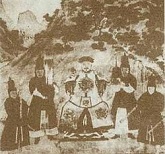

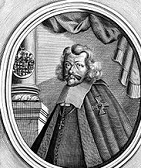







1673 On Jan. 16 postal service begins between New York City and Boston; the first mail run is completed on Jan. 22; on July 30-Aug. 9 a Dutch fleet captures New York City and renames it New Amsterdam (until 1674). On Feb. 27 HRE Leopold I decides to deal with the pesky Kuruc Rebellion by suspending the Hungarian constitution and appointing Hungarian Teutonic Knights grandmaster #48 (1664-84) Baron Johan Caspar Ampringen (1619-84) as dictator (until 1684), who next year sentences 300 pastors to death, sells 67 more as galley slaves in Naples, and deprives 450 more of their livings, causing an outcry all over whackadoodle Protestant Europe, and making the rebels get more serious, seeking aid from Louis XIV of France, who decides to help them since he's in a war with the Hapsburgs anyway; too bad, he's a fair weather friend? In Feb. Louis XIV issues an edict preventing the parliament of Paris from objecting to unregistered royal edicts - absolute means absolute? On Apr. 10 after Frederick William, the Great Elector of Prussia negotiates a separate peace with France, he promises in the Treaty of Vossen (Vossem) not to support any enemies of Louis XIV, in return retaining his possessions in Cleves except Wesel and Rees. On May 20 Mount Gamkonora in Indonesia violently erupts, causing a tsunami and affecting global climate, causing harsh weather and near famine in Scotland next year. On June 16 lord privy seal Arthur Annesley, 1st Earl of Anglesey (1614-86) settles a dispute over the exercise of authority over the Officers of Arms by declaring that the Earl Marshal (awarded to the dukes of Norfolk), gov. of the College of Arms, who sueprvises arrangements for all state ceremonies has the "power to order, judge, and determine all matters touching arms, ensigns of nobility, honour, and chivalry; to make laws, ordinances, and statutes for the good government of the Officers of Arms; to nominate Officers to fill vacancies in the College of Arms; to punish and correct Officers of Arms for misbehaviour in the execution of their places"; he also declares that no patents of arms or any ensigns of nobility should be granted and no augmentation, alteration, or addition should be made to arms without his consent - I really want to say, yes I've got mine? In July Ft. Frontenac is founded on the mouth of the Cataraqui River on the St. Lawrence River near modern-day Kingston, Ontario, Canada, with Rene-Robert Cavalier, Sieur de La Salle (1643-87), who gave away his father's fortune to join the Jesuits and sailed for New France in spring 1666, hoping to find a western passage to China. On Aug. 21 after the Dutch ally with the HRE, Spain, and Lorraine against the French and English, the naval Battle of Texel (last fleet action of the Dutch Wars) begins after a Dutch fleet tries to stop Anglo-French troops from landing, causing the English to give up after many ships are damaged and 2K of them are KIA (vs. 1K Dutch); meanwhile the failure of the Peace Conference of Cologne along with naval setbacks stops allied plans to invade Holland. In Aug. the Revolt of the Three Feudatories (ends Nov. 1681) begins when Ming gen. Wu Sangui (1612-78) and two other Han traitor gens. decide their satrapies in S China aren't enough reward for helping the Manchus take over China. On Sept. 30 widowed Prince James of England marries bodacious Roman Catholic princess Mary of Modena (1658-1718); they go on to have two children, Prince James ("the Old Pretender") (b. 1688), and Princess Louisa Maria Theresa (b. 1692); too bad, the English pop. hates her for being beautiful, er, Catholic, and begin calling her "Madame East", accusing her of being an agent for the pope; royal physician Henry Stubbe is arrested and threatened with hanging for writing about them in the Paris Gazette; Cabal member Ashley Cooper, earl of Shaftesbury, who turned against Charles II founds the Whig (Country) Party (from the Scottish nickname for Covenanters) to exclude James from the succession, becoming the opponent of the Court (Tory) Party; members incl. Nonconformists and tradesmen; the Whigs stand for parliamentary supremacy and religious toleration, and evolve into the 19th cent. Liberal Party. The sacred white race is saved from dark-skinned barbarians doing things to their white women? On Nov. 10 King Michael Wisniowiecki of Poland dies, and on Nov. 11 his army under Jan III Sobieski defeats the Ottomans at the Battle of Khotin (Khotyn) (Hotin) (Khorzim) in Bessarabia, and Sobieski leaves the field of battle a genuine white hero to present himself as candidate for king. The Austrians under field marshal Count Raimondo of Montecucculi outmaneuver the French armies in Germany under his arch-rival field marshal Vicomte de Turenne on the Rhine and Neckar Rivers, then capture Bonn and hook up with the Prince of Orange's army on the lower Rhine. The French send an expedition against Ceylon. The French establish a colony in Chandernagore (Chandannagar) 22 mi. N of Calcutta, India. The Second Genoese-Savoyard War (begun 1672) ends with Savoy not getting their coveted passage to the sea, leaving them only with a road through the Alps to France. Britain wars with Algeria; the Algerians capture a British ship from New York City, after which city churches raise the Muslim ransom (jizya) and redeem the sailors. Ang Chei becomes king of Cambodia (until 1674). In England the first Test Act is passed, allowing only members of the Anglican Church to hold public office. Charles II is forced to withdraw his 1672 Declaration of Religious Indulgence. Prince Rupert becomes British lord high adm. (until 1679), and lives with his mistress Margaret "Peg" Hughes (1630-85), the first prof. English stage actress. The Navigation Act of 1673 (Plantation Duty Act) closes the last loophole in England's plan to be the Big Staple by requiring sea captains to give bond or pay a duty equal to that paid in England even if not landing there. Royal adviser George Villiers, 2nd duke of Buckingham gets in a fight with Arlington, and when the king backs the latter Buckingham retires to private life. Thomas Prence dies, and Pilgrim Hitler Josiah Winslow (1628-80), son of Mayflower passengers Edward and Susanna Winslow (known for legally stealing Indian land by tricking them into mortgaging it to pay off consumer debt such as horses, then relentlessly removing them from ancestral lands using the courts) becomes gov. of Plymouth Colony (until 1680). The English rename Albany to Willemstadt. Worcester, Mass. 40 mi. W of Boston in C Mass. is founded on former Pakachoag land, becoming known as the "Heart of the Commonwealth". French cartographer Louis Joliet (1645-1700) and French Jesuit missionary Jacques Marquette (1637-75) explore the mighty Mississipi River in birch bark canoes, if not down to the Gulf of Mexico, at least to the mouth of the Arkansas River. The stalactic grotto of Antiparos SW of Paros Island in the Aegean Sea is discovered. Society of Friends (Quaker) founder George Fox visits America and returns with a plan for a Quaker commonwealth there. British architect Christopher Wren is knighted. Dietrich Buxtehude begins his Abendmusiken Concerts at Lubeck. Sussex Shakespeare-wannabe Thomas Otway (1652-85) trottens to London and begins trotting out the stage productions. Architecture: Comte de Frontenac builds Ft. Cataraqui on Lake Ontario. Sports: The Ancient Scorton Silver Arrow is founded in Yorkshire, England, becoming the oldest regular archery tournament to survive to modern times. Science: 41-y.-o. Anton van Leeuwenhoek (1632-1723) pub. his first article in the Philosophical Transactions of the Royal Society of London - a late bloomer? Jean Richer ends his scientific expedition to Cayenne, and finds that gravy, er, gravity is less richer, er, intense near the equator than in higher latitudes. Nonfiction: Richard Allestree, The Ladies Calling; how for a woman to make a vow of marriage to someone she hates, even for her parents' sake, would be sacrilege. Paul Amman (1634-91), Paraenesis ad Docentes Occupata Circa Institutionum Medicarum Emendationem. Archpriest Petrovich Avvakum (1620-82), Life (Zhitie); the first Russian autobio. Daniello Bartoli, History of the Society of Jesus (Istoria della Compagnia di Gesu). Robert Clavel, Catalogue of All the Books Printed in England Since the Dreadful Fire of London in 1666. Christiaan Huygens (1596-1687), De Horologio Oscillatorio; announces the pendulum clock, complete with theory, along with theorems on centrifugal force in circular motion. Matthew Locke (1621-77), The Present Practice of Music Vindicated. Bathsua Makin, An Essay to Revive the Antient Education of Gentlewomen. Henry Stubbe (1632-76), An Account of the Rise and Progress of Mahometanism, and a Vindication of Him and His Religions from the Calumnies of the Christians; first English work sympathetic to Islam; nobody will pub. it; grooves on Islam's Unitarianism (non-Trinitarianism). Art: Adrian van Ostade, The Violin Player. Willem van de Velde the Elder (1611-93), Three Ships in a Gale. Bartolome Esteban Murillo (1617-82), Madonna and Child. Music: Jean-Baptiste Lully (1632-87), Cadmus et Hermoine (opera) (Paris Opera) (Apr. 27); libretto by Philippe Quinault; first tragedie en musique? Plays: Aphra Behn (1640-89), The Dutch Lover (comedy); a flop. John Dryden (1631-1700), Marriage a la Mode (comedy) (Duke's Theatre, Lincoln's Inn Fields, London) (Apr.); his best comedy; stars William Wintershall as Polydamas, Edward Kynaston as Leonidas, Michael Mohun as Rhodophil, Nicholas Burt as Palamede, William Cartwright the Younger as Hermogenes, Elizabeth Cox as Palmyra, Rebecca Marshall as Doralice, Elizabeth James as Amalthea, and Elizabeth Boutell as Melanth; "Why should a foolish marriage vow,/ Which long ago was made,/ Oblige us to each other now/ When passion is decay'd?/ We lov'd, and we lov'd, as long as we could,/ Till our love was lov'd out in us both;/ But our marriage is dead, when the pleasure is fled: 'Twas pleasure first made it an oath"; Amboyana; Or, The Cruelties of the Dutch to the English Merchants (tragedy) (Duke's Theatre, Lincoln's Inn Fields, London) (May); staged by the King's Co.; about the 1623 Amboyna Massacre, showing how cruel the nasty Dutch are; stars Nicholas Burt as Perez, and Rebecca Marshall as Ysabinda. Moliere (1622-73), Le Malade Imaginare (The Hypochondriac) (Palais-Royal, Paris) (Feb. 10); dies a week after its debut. Thomas Otway (1652-85), Alcibiades (London); first stage appearance of Mrs. Barry. Jean Baptiste Racine (1639-99), Mithridate (Mithridates) (Jan. 13) (Hotel de Bourgogne, Paris). Thomas Shadwell (1642-92), Epsom Wells (comedy). Poetry: John Milton (1608-74), On His Blindness (Sonnet XIX); "When I consider how my light is spent"; "They also serve who only stand and wait". Births: English MP (1707-14) James Brydges, 1st Duke of Chandos (d. 1744) on Jan. 9 in Dewsall, Hertfordshire; brother of Mary Brydges, great-grandmother of Jane Austen; relative of George Brydges Rodney, 1st baron Rodney (1718-92); educated at Westminster School, and New College, Oxford U.; father of Henry Brydges, 2nd duke of Chandos (1708-71). Dutch "De Dominio Maris" jurist Cornelius van Bynkershoek (Cornelis van Bijnkershoek) (d. 1743) on May 29 in Middelburg. Scottish soldier-diplomat field marshal John Dalrymple, 2nd Earl of Stair (d. 1747) on July 2 in Stair, Kyle, Ayrshire; grows up in the Netherlands. English clockmaker (Quaker) George Graham (d. 1751) on July 7 in Kirklinton, Cumberland; student of Thomas Tompion (1639-1713). English dancing master ("Father of British Pantomine") John Weaver (d. 1760) on July 21 in Shrewsbury, Shropshire; pioneer of ballet d'action. Romanian prince (1693, 1710-1) polymath composer-philosopher-historian Dimitrie (Dmitri) Cantemir (d. 1723)on Oct. 26 in Silisteni, Moldova. Turkish Tulip Era sultan #23 (1703-30) Ahmed (Ahmad) III (d. 1736) on Dec. 30/31 in Hajioglupazari, Dobruja; son of Mehmed IV (1642-93) and Mah-Pare Ummatullah Rabia Gul-Nus Valide Sultan; brother of Mustafa II (1664-1703); father of Mustafa III (1717-74) and Abdulhamid I (1725-89). English scholar-divine William Elstob (d. 1715) in Quayside, Newcastle upon Tyne; brother of Elizabeth Elstob (1683-1756); educated at Eton College, and Catharine Hall, Cambridge U., and Queen's College, Oxford U. British statesman-gen. James Stanhope, 1st Earl Stanhope (d. 1721) in Paris; educated at Eton College, and Trinity College, Oxford U.; created earl in 1718. French painter Claude Gillot (b. 1722) in Langres; teacher of Jean-Antoine Watteau and Nicolas Lancret. English historian John Oldmixon (d. 1742) near Bridgwater, Somerset. English Whig PM #2 (1742-3) Spencer Compton, 1st Earl of Wilmington (d. 1743); educated at St. Paul's and Trinity College, Oxford U.; son of James Compton, 3rd earl of Northampton (1622-81); born into a family of High Tories, he becomes a rebel Whig after a quarrel with his brother the 4th earl of Northampton; created baron in 1728 and earl in 1730 by Robert Walpole to get him out of the House of Commons and make him pres. of the council. British architect John James (d. 1746) in Basingstroke. Am. Presbyterian religious leader William Tennent (d. 1746) in Mid Calder, Linlithgowshire, Scotland; educated at the U. of Edinburgh; ordained in the Church of Ireland in 1706; emigrates to Am. in 1718. Portuguese architect-goldsmith Joao Frederico Ludovice (Johann Friedrich Ludwig) (d. 1752) in Hohenhart, Germany; emigrates to Italy and converts to Roman Catholicism, getting an invite to Portugal by the Jesuits. Deaths: German archbishop-elector of Mainz (1647-73) Johann Philipp von Schonborn (b. 1605) on Feb. 12 in Wurzburg. French Dutch East India Co. dir. Francois Caron (b. 1600). French nurse Jeanne Mance (b. 1606) on June 18 in Montreal, Canada. Italian painter Salvator Rosa (b. 1615) on Mar. 15 in Rome; leaves Satires (pub. 1719). French #1 playwright Moliere (Molière) (Jean Baptiste Poquelin) (b. 1622) on Feb. 17 - the good die young? English writer Mary Cavendish, duchess of Newcastle-upon-Tyne (b. 1623) on Dec. 15. Dutch physician-anatomist Regnier de Graaf (b. 1641) - the good ovary watchers die young?
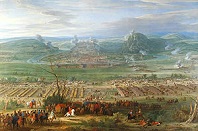








1674 The Third Great Migration of British to the New World begins as 23K Quakers from the North Midlands of England emigrate to the Delaware Valley colonies of West Jersey, Pennsylvania, and Delaware. In Jan. the month-long Vehement Frost grips Scotland, causing large numbers of animal and human deaths; another vehement frost occurs on Feb. 20-Mar. 29. On Feb. 9 the English reconquer New Amsterdam from the Dutch; on Feb. 19 after Charles II is forced to call Parliament in order to beg for funds, only to be told to stuff it, the Treaty of Westminster ends British involvement in the Anglo-Dutch (now French-Dutch) War (begun 1673) (ends 1678), restores New Amsterdam to the British under its former name of New York, and recognizes the pop. of New York and New Sweden as British subjects. On Apr. 22 the Netherlands signs a peace treaty with Munster, and another on May 11 with Cologne. On May 19 gen. Jan III Sobieski (1629-96), who has become a big hetman by financing his own army in the war against the Turks is elected king of Poland and grand duke of Lithuania by the nobles (until Feb. 2, 1696), going on to kick Turk butt and stabilize the realm, becoming known as "the Lion of Lechistan". On May 28 the German parliament declares war on France. On July 1 the Triple Alliance is formed by Spain, France, and the Netherlands. On July 19 the Court of Holland bans books by heretics Thomas Hobbes, Baruch (Benedict) de Spinoza, and ? Meyer. On Apr. 19-May 22 the French, led personally by Louis XIV siege and conquer Spanish-held Besancon, then conquer Franche-Comte (Franche-Comté) in SE France on the Swiss border; meanwhile on Aug. 11 the Great Conde fights the Battle of Seneffe (Senef) against William of Orange in the Netherlands to a draw (tactical French V, with the Allies retreating to fortified position (Arnhem is freed from French occupation), while the French under Gen. Turenne ravage the Palatinate, then defeat the Great Elector and field marshal Count Raimondo of Montecucculi; HRE Leopold I declares war on France. On Sept. 20 after the Dutch West India Co. (begun 1621) goes bankrupt and is dissolved, the Second Dutch West India Co. is formed, collapsing in 1791 during the French invasion of the Netherlands. On Oct. 16 HRE Leopold I fires chancellor (since 1652) Wenzel Eusebius Furst Lobkowitz for his pro-French policy plus some offensive remarks about him that he had privately passed to the French ambassador. On Oct. 26 Prince William of Orange occupies Saint-Grave (Saint-Gravé). On Nov. 10 New Amsterdam is formally ceded to Britain, and Sir Edmund Andros (1637-1714) becomes gov., with jurisdiction over Long Island, Pemaquid, and the region between the Conn. and Delaware Rivers. On Dec. 4 Louis Joliet and Father Jacques Marquette build the first dwelling on the site of modern-day Chicago, Ill., after which they become the first Euros to journey down the Mississippi River. The Office of Stadholder of the United Provinces becomes hereditary in the House of Orange. Ang Non becomes king of Cambodia (until 1675). Indian Mughal emperor Aurangzeb abolishes 80 types of taxes and reinstitutes the Muslim jizya tax for adult males who don't serve in the military, pissing-off non-Muslim Hindus; meanwhile guerrilla leader Shivaji Bhosle (1627-80) founds the Hindu Mahratta (Maratha) Kingdom (Empire) (Confederacy) in W India (ends 1818), declares it independent from the Muslim Moguls (Mughals), and is crowned in Raigarh. Lord Berkeley sells his share of New Jersey to a Quaker leader, but his affairs become so encumbered that three trustees, incl. William Penn are named to manage it. Guadeloupe is annexed by France. The French East India Co. establishes their HQ in Pondicherry in SE India, becoming the last of five trading posts established along the S Indian coast since 1668. Francois Xavier de Laval-Montmorency (1623-1708) becomes the first Roman Catholic bishop of Quebec in New France (Canada) (until 1688). The town of Waterbury, Ct. on the Naugatuck River is founded as Mattatuck by immigrants from Farmington; it becomes Waterbury in 1686. Drury Lane Theatre Royal in London reopens after the fire. Samuel Sewall (1652-1730) of Newbury, Mass., son of a prosperous yeoman who emigrated with him from England graduates from Harvard, and begins The Journal (Diary) of Samuel Sewall, which documents life in witch-hunting Mass. in the late Puritan period (1673-1729); he ends up as a judge at the 1692 Salem Witch Trials, repents in 1697, and is appointed chief justice of Mass. in 1717. Coffee arrives in Sweden; it doesn't become fashionable until the turn of the cent. German portrait painter Sir Godfrey Kneller (1646-1723) moves to England, where his rep gets him royal patrons like Charles II, James II, Peter the Great, etc. John Milton's Paradise Lost goes into a 2nd ed. in 12 books; Milton dies on Nov. 8, and his widow sells the rights for a lousy £8. The skeletons of two boys ages 12-13 and 10 are unearthed in the Tower of London by workmen doing some remodelling; Richard III's wards princes Edward V (b. 1470) and Richard of Shrewsbury, 1st duke of York (b. 1473), who disappeared there in 1483? Inventions: French army surgeon Etienne J. Morel devises the first battlefield tourniquet during the Siege of Besancon on Apr. 19-May 22, using a twisting stick - didn't I see that in "Deep Throat"? George Ravenscroft (1632-83) of England patents English lead (flint) glass, a heavy, water-clear crystal doped with lead oxide; lead is already being used in Italian paste jewelry? Architecture: The Old Bailey, burned down in the 1666 Great Fire is rebuilt in C London, with the court open to the weather to prevent the spread of disease; too bad, they change their minds and enclose it in 1734, leading to typhus outbreaks, incl. in 1750 when 60 die, incl. the lord mayor and two judges. The Porte Saint-Martin monument on Rue Saint-Martin in Paris is built, designed by architect Pierre Bullet (1639-1716) to celebrate Louis XIV's Vs on the Rhine and in Franche-Comte. Science: Persian-speaking French jewel trader Jean Chardin (1643-1713) pub. a complete description of the cuneiforms found on the Behistun Rock in Persia, becoming the first to note that they are always written in three parallel equivalent forms; in 1711 his complete Travels to Persia et al. are finally pub. Nonfiction: Nicolas Boileau-Despreaux (1636-1711), L'Art Poetique; ends the indecision about the merit of lit. with a defense in the style of Horace's "Ars Poetica", and defines the French neoclassical style - fork them English Puritan nutcases? Robert Boyle (1627-91), Excellency and Grounds of the Mechanical Hypothesis; his vision of universal mechanism. Alexandre Olivier Exquemelin (1645-1707), History of the Bouccaneers of America: A True Account of the Most Remarkable Assaults Committed of Late Years Upon the Coasts of West Indies by the Bouccaneers of Jamaica and Tortuga; original Dutch title "De Americaensche Zee-Roovers"; English trans. pub. in 1684; popularizes the term "Buccaneer" for a pirate, based on French pirates in Haiti who smoke-dry meats on wooden laticework boucans - Blackbeard, Bluebeard, Redbeard, Yellowbeard, name your hair color? John Josselyn, An Account of Two Voyages to New-England. Pierre Jurieu (1637-1713), Traite de la Devotion; gets him appointed as prof. of theology at Sedan U. Nicolas Malebranche (1638-1715), De la Recherche de la Verite. John Mayow (1640-79), Tractatus Quinque Medico-physici; researches on respiration and rickets, some originally pub. at Oxford in 1668; calls the portion of air that supports combustion "spiritus igneo-aerus" and "nitro-areus", from the acid portion of potassium nitrate KNO3, giving the first correct anatomical description of the mechanism of respiration, recognizing the existence of oxygen, founding the field of Pneumatic Chemistry. Louis Moreri, Le Grand Dictionnaire Historique; first pub. encyclopedia of history. Jesuit astronomer Ignace-Gaston Pardies, Globi Coelestis; star atlas. Thomas Willis (1621-75), Pharmaceuticae Rationalis. Anthony a Wood, Historia et Antiquitates Universitatis Oxoniensis. Art: The Freak Limner, Mrs. Elizabeth Freake and Baby Mary; by an unknown Am. colonial artist. Bartolome Esteban Murillo (1617-82), St. Francis. Music: Jean-Baptiste Lully (1632-87), Alceste (LWV 50) (opera) (Paris). Agostino Steffani (1653-1728), Psalmodia Vespertina (first work). Plays: William Cavendish, 1st Duke of Newcastle-upon-Tyne (1592-1676), The Triumphant Widow. Pierre Corneille (1606-84), Surena (Oct. 11) (Paris). Philippe Quinault (1635-88), Cadmus; Alceste. Jean Baptiste Racine (1639-99), Iphigenie en Aulide (Aug. 18) (Versailles). Poetry: Nicolas Boileau-Despreaux (1636-1711), Le Lutrin; mock-heroic poem later used by Alexander Pope as a model for "Rape of the Lock". Novels: Giovanni Battista Basile (1575-1632), Il Pentamerone. Births: German opera composer Reinhard Keiser (d. 1739) on Jan. 9 in Teuchern. French poet-dramatist Prosper Jolyot de Crebillon (Crébillon) (d. 1762) on Jan. 13 in Dijon; father of Claude Prosper Jolyot de Crebillon (1707-77). Am. Va. planter (founder of Richmond, Va.) William Byrd II (d. 1744) on Mar. 28 in Westover Plantation, Charles City County, Va.; son of William Byrd I (1652-1704); father of William Byrd III (1728-77). English Whig statesman-agriculturalist Charles "Turnip" Townshend, 2nd Viscount Townshend (d. 1738) on Apr. 18 in Raynham Hall, Norfolk; brother-in-law of Sir Robert Walpole (1676-1745); educated at Eton College, and King's College, Cambridge U. English dramatist and poet laureate (1715-18) Nicholas Rowe (d. 1718) on June 20 in Little Barford, Bedforeshire; educated at Westminster School. English "Joy to the World", "O God, Our Help in Ages Past" Nonconformist hymnodist ("Father of English Hymnody") Isaac Watts (d. 1748) on July 17 in Southampton; Nonconformist family. English writer-soldier-statesman and orrery king Charles Boyle, 4th Earl of Orrery (d. 1731) on July 28 in Little Chelsea, London; educated at Christ Church, Oxford U.; namesake of that mechanical model of the solar system with all them moving globes and balls (1704). French regent (last) (1751-23) Philippe II, Duke of Orleans (d. 1723) on Aug. 2 in Saint-Cloud; son of Philippe I of Orleans (1640-1701); nephew of Louis XIV. British (Welsh) dandy (MC in Bath) Richard "Beau" Nash (d. 1762) on Oct. 16 in Swansea; educated at Jesus College, Oxford U. English "Prince of Denmark's March (Trumpet Voluntary)" Baroque composer Jeremiah Clarke (d. 1707) in London; student of John Blow. English PM (1718-21) Charles Spencer, 3rd Earl of Sunderland (d. 1722); 2nd son of Robert Spencer, 2nd Earl of Sunderland (1641-1702). French "Ode to Worms" diplomat-poet Jean-Francois Leriget de La Faye (d. 1731) in Vienne, Isere; helps young Louis XV find a wife. English "Friendship in Death" poet ("the Heavenly Singer") Elizabeth Singer Rowe (d. 1737). English agricultural pioneer (atty. and gentleman farmer) (the original Green Acres?) Jethro Tull (d. 1741) on Mar. 30 in Basildon; known for pioneering the seed drill and having a cool name?; attends St. John's College in Oxford (no degree) at age 17, goes on the grand tour of Europe for three years, studies law for six years, marries Susanna Smith of Burton-Dassett, and moves with her to a farm in Oxfordshire, where he begins planting trefoil (St. Foin) and suffers from kidney stones, turning into an agricultural scientist and the rest is, ahem. English actress Anne Bracegirdle (d. 1748). English sentimental pastoral poet (Whig) Ambrose "Namby-Pamby" Philips (d. 1749) in Shropshire, Leicestshire; educated at Shrewsbury School, and St. John's College, Cambridge U.; enemy of Alexander Pope; his nickname is satirical. Deaths: English Cavalier poet Robert Herrick (b. 1591) in Oct. in Devon; dies a lifelong bachelor; "The greatest song writer ever born of English race" (Algernon Charles Swinburne); "Thus times do shift; each thing his turn does hold; new things succeed as former things grow old"; "Gather ye rosebuds while ye may,/ Old time is still a-flying;/ And this same flower that smiles today,/ To-morrow will be dying." French poet Jean Chapelain (b. 1595) on Feb. 22. English singer and composer John Wilson (b. 1595). French portrait painter Philippe de Champaigne (b. 1602). French philosopher Franciscus van den Enden (b. 1602) on Nov. 27 in Paris (hanged for a plot to establish a repub. in Normandy). Italian composer Giacomo Carissimi (b. 1605) on Jan. 12. British politician Sir Orlando Bridgeman (b. 1606) on June 25. Dutch painter Jan Lievens (b. 1607) on June 4 in Amsterdam. English "Paradise Lost and Paradise Regained" poet John Milton (b. 1608) on Nov. 8 in Bunhill, London (kidney failure) - he would be 66? English statesman-historian Edward Hyde, 1st Earl of Clarendon (b. 1609) on Dec. 9 in Rouen, France (exile); buried in Westminster Abbey. Irish leader Murrough O'Brien, 1st earl of Inchiquin (b. 1614) on Sept. 9 in Limerick; dies after converting to Roman Catholicism in 1656. French scientist Jean Pecquet (b. 1622). English deputy of Ireland (1655-9) Henry Cromwell (b. 1628) on Mar. 23 in Cambridgeshire. English metaphysical poet Thomas Traherne (b. 1636). Swedish poet Lars Johansson (b. 1638). English Restoration composer Pelham Humphrey (b. 1647) on July 14 in Windsor.







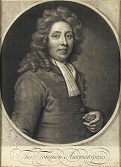



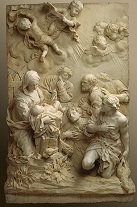
1675 North Am. has a year without a summer, becoming the 2nd coldest winter recorded in North Am. in the last six cents. The English West Indies now have over 100K black slaves, while the North Am. colonies only have about 5K. By this year there are 3K+ coffeehouses in England. On Feb. 5 Isaac Newton writes a Letter to Robert Hooke, with the soundbyte: "If I have seen further it is by standing on ye sholders of Giants"; later when their rivalry goes bitter, Newton starts dropping bigger and bigger slams on Hooke, and ultimately tries to erase his memory? On June 24 the 14-mo. King Philip's War (Metacomet's Rebellion) (ends Aug. 1676) begins in New England, ending 55 years of peace after three Wampanoags are hung by Plymouth gov. Josiah Winslow for the Jan. murder of Indian informer John Sassamon (Wassausmon) (b. 1620) at the order of Wampanoag chief King Philip of Pokanoket (Metacomet) (1639-76) (2nd son of Massasoit, the great dope who greeted Josiah's parents in 1621, and had been the staunch ally of the Puritans for 40 years, only to set his own people up for extermination?) which, combined with decades of racial, social and economic discrimination threatening their existence causes Philip to repudiate all treaties with white man's forked tongue and begin raiding Puritan settlements, burning and massacring settlers, which in turn, combined with Winslow's cold-blooded no-compromise racism, gets Puritans and Indians into an apocalyptic death struggle, becoming the deadliest war per-capita ever fought on U.S. soil (2x the U.S. Civil War, 7x the Am. Rev. War); eventually the Indians burn a third of the 100 towns in New England, causing a fleeting proposal to build a wall around the core and let the Indians have the rest; the Boston Indian Imprisonment Act orders the arrest of all Indians entering the city (never repealed); Capt. Benjamin Church (1639-1718), grandson of Mayflower passenger Richard Warren, and husband of the daughter of William Bradford's stepson Constant Southworth, who last year become the first Englishman to attempt to live among the Indians and treat them like human beings, settling in the SE tip of Narragansett Bay (at Sakonnet, E of Aquidneck Island in modern-day Little Compton, R.I.) is commandeered by the wrong (Winslow) side, and organizes the first co. of Rangers in Mass., emerging as the first Am. Indian fighter and the prototype for Daniel Boone, Davy Crockett, Rambo et al., providing the whites with info. on Indian movements from Indian traitors, although he doesn't know the plan is genocide until it's too late to stop it?; too bad, religious toleration king Roger Williams (1603-83) of R.I., a longtime friend of the Indians stinks himself up as a capt. of the Providence militia in the war. On June 28 after Swedish allies of Louis XIV invade Prussia, the Great Elector hustles back from the upper Rhine and decisively defeats them at the Battle of Fehrbellin. On July 27 after brilliant successes the preceding winter, which bring retired Austrian field marshal Count Raimondo of Montecucculi back, French field marshal Vicomte Turenne (b. 1611) is KIA at the Battle of Sasbach in Baden, and his French troops retreat back across the Rhine, allowing Montecucculi's troops to invade Alsace; just in time, the Great Conde appears on the battlefield on the Rhine front in his last appearance, and gets in a war of maneuver with his old ally, showing he's over those old cowboy days - there's a new sheriff here, and his name is me? In July a petty squabble between a frontier planter and Doeg Indians in Va. escalates to a force of Va. and Md. militiamen laying siege to the Susquehannocks, who had nothing to do with it, and murdering five of their chieftains in cold blood when they come out to negotiate, thus turning them wild, causing them to begin attacking white men down to the James River, where rich plantation owner Nathaniel Bacon's overseer is killed. In summer the Scottish Hurricane of 1675. On Sept. 7 (Aug. 28 Old Style) the Second Great Colonial Hurricane in Conn., R.I., and Boston, Mass. is almost as powerful as the 1635 New England Hurricane. On Nov. 2 the city of Medellin (Medellín) (Villa de Nuestra Señora de la Candelaria de Medellín) in NW C Colombia (modern-day pop. 2.4M/3.7M) is founded by queen consort Mariana of Austria. The first Noel the angel did say? In Dec. the English colonists create a 1K-man army (largest white army yet in New England) under the title of United Colonies of Mass., Conn., and Plymouth, led by Gen. Josiah Winslow, with a plan to invade the colony of Rhode Island for not supporting them, then wipe out the large Narragansetts tribe before it joins King Philip and wipes them all out; on Dec. 2 a day of prayer is observed throughout New England, calling on the "God of Armies" to help them kick Indian butt; on Dec. 19 the Great Swamp Fight (Massacre) of the Narragansetts sees the English colonists invade the Narragansett swamp stronghold W of Rhode Island (the first known Indian fort, poorly built), and get their white butts kicked (20% casualty rate, greater than D-Day) until the Indians run out of gunpowder and abandon the fort, leaving their women, children and old behind, and the wonderful whites ditch the idea of living in an Injun-built fort filled with food and instead burn it with the Indians inside, listening to their screams; the whites lose 200 of 1K, and the Indians lose 600 of 3K? - the first Hitlers in America, led by Gen. you-know-what? Sweden and Denmark go to war. Charles II of Spain attains the age of majority. Charles II of England receives 500K crowns from Louis XIV, enabling him to prorogue Parliament for 15 mo. Victor Amadeus II (1666-1732) becomes duke of Savoy, with his mother Marie Jeanne Baptiste de Savoie Nemours (1644-1724) (great-granddaughter of Henry IV of France) as regent(until 1684). The Hungarian Kurucs under Count Pal Wesselenyi (-1667) occupy Debrecen, after which the town is sacked 3x more before the end of the year by three more armies; meanwhile the Kurucs try to gain recognition as an independent country, sending envoys to Poland and France. Queen Tajul Alam of Indonesia dies, and is succeeded by Queen Nur ul Alam (-1678). Hyonjong II dies, and Sukchong (-1720) becomes Yi king of Korea - sucks what? Chettha IV becomes king of Cambodia (until 1695). A revolt of the Chahar in China under Khan Burni is quickly put down. Charles II designates certain privy councilors as the Lords of Trade and Plantations, charging them to make the colonies abide by his mercantilist laws; they name governors to head a nice new colonial bureaucracy that eventually causes you know what. Dutch marine painter Willem van de Velde the Elder (1611-93) of Amsterdam moves to London as Charles II's marine painter. Architecture: Sir Christopher Wren begins rebuilding St. Paul's Cathedral in London (finished 1710). The Eleanor Cross at Charing Cross in C London (erected by Edward I) is replaced by a statue of Charles I mounted on horseback. Spanish architect Jose Benito de Churriguera (1665-1725) becomes the royal architect of Charles II, initiating his own style of fantastically lavish Baroque ornamentaion, incl. spiral columns in the Church of Tepoztlan in Mexico et al. Science: On Aug. 10 the Royal Greenwich Observatory in Greenwich, London overlooking the River Thames, designed by Sir Christopher Wren is begun by order of Charles II in order to make a new improved catalog of stars for ship navigation; Charles II selects clockmaker ("Father of English Clockmaking") Thomas Tompion (1639-1713) to build two identical clocks with long pendulums and small arc swing as suggested by Robert Hooke, driven by a deadbeat escapement invented by Richard Towneley (1629-1707), that only need to be wound once a year, proving so accurate that they become instrumental in correcting astronomical calculations; John Flamsteed (1646-1719) is appointed the first astronomer royal of England, but he is so slow at calculation that at in 1704 the catalog is still incomplete but is pub. against his wishes, and he publicly burns 300 of the 400 copies in protest; meanwhile Sir Isaac Newton uses his catalog to verify his theory of gravitation. 19-y.-o. Edmund Halley (b. 1656) devises a new method for determining planetary orbits; Tompion and Hooke go on to make some of the first watches with balance springs. Jean Picard observes a faint glow in a mercury barometer tube when shaken - how about when stirred? Danish astronomer Ole (Olaus) Christensen Roemer (1644-1710) tries to measure the speed of light by studying Jupiter's moons, but is unable to determine a number for it. Gian Cassini discovers the big gap between Saturn's A and B rings, AKA the Cassini Division; the narrow gap inside the A ring is later called the Encke Division. Gottfried Wilhelm von Leibniz (re)discovers the Calculus; his prettier notation becomes std. Nonfiction: Paul Amman (1634-91), Supellex Botanica. Antoine Arnauld (1612-94), L'Impiete de la Morale des Calvinistes. Robert Boyle (1627-91), Incalescence of Quicksilver with Gold; A Historical Account of a Degradation of Gold; abstruse alchemical treatises - they just keep on clawing and biting? Sir William Dugdale (1605-86), The Baronage of England (1675-6). Nicholas Lemery, Cours de Chemie; becomes the most popular French chemistry textbook. Marcello Malpighi, Anatome Plantarum; founds microscopic anatomy. Maria Sibylla Merian (1647-1717), Neues Blumenbuch; her first book of scientific illustrations. Henry More (1614-87), Opera Theologica. Jacques Savary (1622-90), Le Parfait Negociant. Edward Sherburne (tr.), The Sphere of Marcus Manilius. Philipp Jakob Spener (1635-1705), Pia Desideria. Thomas Traherne (1636-74), Christian Ethics (posth.). Christian Weise (1642-1708), Schediasma Curiosum de Lectione Novellarum; the importance of newspapers to get info. on current affairs. Bishop John Wilkins (1614-72) and William Lloyd, On the Principle and Duties of Natural Religion. Art: Hendrick Danckerts (1625-80), Royal Gardener John Roe and Charles II. Giambattista Foggini (1652-1725), The Adoration of the Shepherds (marble sculpture). Jacob Isaackszoon van Ruisdael (1628-82), Jewish Cemetery. Music: Matthew Locke (1621-77), Music for Thomas Shadwell's Semi-Opera "Psyche". Plays: John Dryden (1631-1700), Aureng-Zebe (drama). Nathaniel Lee (1653-92), Nero, Emperor of Rome (Drury Lane, London) (first play). Philippe Quinault (1635-88), Thesee. William Wycherley (1641-1716), The Country Wife (comedy) (Theatre Royal, Drury Lane, London) (Jan.); title is a pun on "cunt"; based on the plays of Moliere, with the verse replaced by lewd sexually-explicit prose; a rake pretends to be impotent to get into married women's beds; meanwhile an inexperienced young you know what arrives in London and discovers sex. Poetry: Japanese poet Basho (Jap. "banana tree") (real name Matsuo Munefusa) (1644-94) popularizes 17-syllable (5-7-5) Haiku; the term is an abbreviation of "haikai no ku" (verse of haikai); his most famous is "Old Pond": "Furuike ya / Kawazu tobikomu/ Mizu no oto" (Old pond/ A frog jumps/ The sound of water); another is "Hatsu shigure/ Saru mo komino wo/ Hoshige nari" (The first cold shower/ Even the monkey seems to want/ A little coat of straw); another is "Fuji no kaze/ Ya oogi ni nosete/ Edo miyage" (The wind of Mt. Fuji/ I've brought my fan/ A gift from Edo). Charles Cotton (1630-87), Burlesque upon Burlesque... some of Lucian's Dialogues. Novels: Christian Weise (1642-1708), Die Drey Klugsten Leute in der Gantzen Welt. Births: French courtier-soldier-writer Louis de Rouvroy, duc de Saint-Simon (d. 1755) on Jan. 16 in Versailles; loves to satirize Louis XIV's court; grand-uncle of Henri de Saint-Simon (1760-1825). French mapmaker Guillaume Delisle (de l'Isle) (d. 1725) on Feb. 28 in Paris; son of Claude Delisle (1644-1720). Italian composer-violinist Evaristo Felice Dall'Abaco (d. 1742) on July 12 in Verona; son of guitarist Damiano dall'Abaco; father of Joseph Marie Clement Ferdinand dall'Abaco (1710-1805). English Baroque historical painter Sir James Thornhill (d. 1734) (b. 1676?) on July 25; student of Thomas Highmore, Antonio Verrio, and Louis Laguerre; knighted in 1720. English poet William Somerville (Somervile) (d. 1742) on Sept. 2 in Staffordshire; grows up in Edstone, Warwickshire; educated at Winchester College, and New College, Oxford U. English superbrain natural philosopher (disciple of Isaac Newton) and Anglican clergyman Samuel Clarke (d. 1729) on Oct. 11 in Norwich; educated at Caius College, Cambridge U. Japanese emperor #113 (1687-1709) Higashiyama (Asahito) (d. 1710) on Oct. 21; 5th son of Reigen (1654-1732). English "Lintot's Miscellany" publisher Barnaby Bernard Lintot (Lintott) (d. 1736) on Dec. 1 in Southwater, Sussex; rival of Jacob Tonson. English politician, rake and dueling fool Charles Mohun, 4th Baron Mohun (d. 1712). Deaths: French praline-chomping Marshal (Marechal) du Plessis-Praslin (b. 1602) on Dec. 23 in Paris. French aristocrat Duchess d'Aiguillon (b. 1604). French scientist Gilles Personne de Roberval (b. 1610). French field marshal Vicomte de Turenne (b. 1611) on July 27 in Sasbach (KIA). German church composer Andreas Hammerschmidt (b. 1612). Dutch painter Gerrit Dou (b. 1613) on Feb. 9 in Leiden; falls into obscurity until the 1970s. Dutch painter Louis Elsevier (b. 1618). English physician Thomas Willis (b. 1621) on Nov. 11 in London; buried in Westminster Abbey. Polish theologian Stanislaw Lubieniecki (b. 1623) on May 18 in Hamburg. English buccaneer Daniel Johnson (b. 1629); captured by a fleet of four Spanish ships for the $25K reward, then executed in Panama. Dutch painter Jan Vermeer (b. 1632) in Delft; dies in abject poverty, leaving his widow to petition the local guild for charity; his work is neglected until the late 19th cent.; less than 40 of his works (34?) survive to modern times, and five end up in the Museum of Modern Art (MoMa) in New York City. Italian duke of Savoy (1638-75) Charles Emmanuel II (b. 1634) on June 12. French priest-explorer Jacques Marquette (b. 1637). Scottish mathematician James Gregory (b. 1638) in Oct. in Edinburgh.




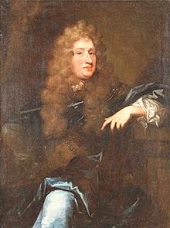
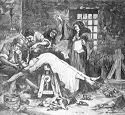
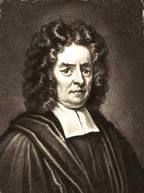

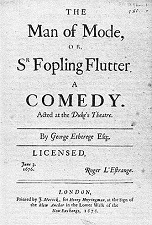


1676 On Jan. 14 Joshua Tefft, an Englishman who had "gone Injun" is captured in Mass., claiming to have been captured by the Narragansetts and to have been at the Great Swamp Fight as a slave, and not engaged in the fighting; after they disbelieve him, on Jan. 18 he is hanged, drawn and quartered at Smith's Castle in Wickford, R.I., with "standers by being unwilling to lavish pity upon him that had divested himself of nature itself, as well as religion" - the first Dances with Wolves? On Jan. 29 tsar (since 1645) Alexis I (b. 1629) dies leaving a kingdom covering 2M acres, and his son Fyodor (Theodore) III Alexeyevich (1661-82) becomes Russian Romanov tsar #3 (until May 7, 1682). On Feb. 10 English-born Am. settler Mary Rowlandson (1637-1710) and her three children are abducted from their home in Lancaster, Mass. by Indians; on May 2 they are ransomed for £20; she goes on to pub. "The Sovereignty and Goodness of God" in 1682. On Mar. 12 the Clarke Garrison House Massacre S of Plymouth Colony sees 11 whites, mostly women and children massacred, causing the Plymouth authorities to execute four Indians accused of taking part. On May 26 a fire in Southwark, England burns 624 houses plus the town hall. In May 29-y.-o. rich spoiled Cambridge U. grad. and recent (1674) immigrant Nathaniel Bacon (1647-76) defies the authority of Va. Gov. Sir William Berkeley (1606-77) by organizing an armed band of "common men" (white and black, many of them debtors eyeing Indian land) vigilantes in a war against the Indian "wolves, tigers, and bears" who prey upon "our harmless and innocent lambs", occupying Bacon's Castle, a colonial house with distinctive decorative end gables; after issuing the Declaration of the People of Virginia on July 30 to gain support, Bacon leads Bacon's Rebellion in colonial Virginia against Berekely's govt., having him arrested and burning Jamestown in Sept.; unfortunately, Bacon dies of swamp fever in Oct., allowing Berkeley to regain control and subdue the rebels, hanging 23 of them and confiscating several estates; when Berkeley captures Bacon's closest lieutenant, exclaiming, "I am more glad to see you than any man in Virginia; Mr. Drummond, you shall be hanged in half an hour", this and other excesses cause his recall to England, and a royal commission makes pacification treaties with the wronged Indians, granting them tiny reservations which survive to modern times; Virginia is so weakened that a British military force is dispatched to protect it; the rebellion causes the supply of indentured servants to Chesapeake Bay to dry up, causing a systematic transition to African slaves, helped by distrust of white indentured servants? On June 1 a Dutch-Danish fleet under adm. Cornelis Tromp defeats the Swedes at the Battle of Oland (Öland), allowing the Danes to invade Scania unopposed. On June 20 the governing council of Charlestown, Mass. proclaims June 29 as a Day of Thanksgiving, becoming the first such official proclamation. In June after being appointed in Mar. by the Lords of Trade, Edward Randolph (1632-1703), the first Englishman to make an entire career in the hated colonial service arrives in Mass. to demand that Mass. answer complaints that it had usurped propriety rights in New Hampshire and Maine. In June the Danish army lands in Helsingborg in Skane, S Sweden, and conquers the whole province by July; causing Danish maj. gen. Jacob Duncan (-1685) to be sent with 3.5K troops to take Halmstad in Halland, then advance N to Gothenburg to link up with the Norwegian army under gen. Ulrik Frederick Gyldenlove, Count of Laurvig (1638-1704) (illegitimate son of Frederick III of Denmark); too bad, on Aug. 17 the Battle of Halmstad (Fyllebro) in Fyllebro (3 mi. S of Halmstad in SW Sweden) sees the Swedes under 20-y.-o. Charles XI and gen. (later field marshal) Count Rutger von Ascheberg (1621-93) decisively defeat the Danes, with 49 killed and 130 wounded vs. 1K Danes killed and 1.5K taken POW. On July 17 Marie Madeleine Marguerite d'Aubray, Marquise de Brinvilliers (b. 1630) is executed by the Chambre Ardente for poisoning her father, brother, and two sisters with Aqua Tofana by being forced to drink 16 pints of water before being beheaded and burned at the stake; the idea of being poisoned himself freaks Louis XIV into starting an official investigation into poisonings known as the Affair of the Poisons, and hiring food tasters. On July 18 the Plymouth congregation renews its covenant first made in Leiden over 50 years earlier; "We are, though descended of a noble vine, yet become the degenerate plant of a strange vine unto God; we have been a proud generation, though we are the sons and daughters of Zion". On July 22 Pope (since 1670) Clement X (b. 1590) dies, and on Sept. 21 Benedetto Odescalchi is elected Pope (#240) Innocent XI (1611-89) (until Aug. 12, 1689). On Aug. 12 after the town of Hadley is saved from the Wampanoags by the mysterious Angel of Hadley, and his squaw and little son are captured and sold as West Indies slaves, King Philip (b. 1639) and his few remaining followers (Annawon et al.) are surprised by Capt. Benjamin Church on Mount Hope in Rhode Island, and King Philip is shot and killed as he flees by a Pocasset named Praying Indian John Alderman, then beheaded and quartered like a traditional English traitor; Annawon succeeds King Philip, holding out for several mo., then making a peace treaty with the English, only to be martyred, ending King Philip's War in Plymouth Colony (begun 1675), along with any independence for the Indians of Winslow's Whitened-Up New England, whose losses total 5K of 20K, incl. 2K in battle, and 3K of sickness or starvation; 2K flee, and 5K-9K are shipped as slaves to certain death in Caribbean sugar plantations, starting with the Seaflower, containing 178 Indians, described as guilty of "many notorious and execrable murders, killings and outrages" by Josiah Winslow; Capt. Sprague ends up dumping them in Africa when nobody wants them?; King Philip's head is brought into Plymouth on Aug. 17 (Thur.) "in great triumph" right after public worship for a day of Thanksgiving, "so that in the day of our praises our eyes saw the salvation of God"; the head is placed on a palisade of the town fort, where it remains for over 20 years, becoming the town's first attraction long before Plymouth Rock - this is our country? On Sept. 25-Oct. 14 after the Ottomans send a new 200K-man army to capture the Ukraine, they fight the Poles at the Battle of Zurawno in Ukraine, resulting in a draw; on Oct. 17 Poland signs the Peace (Treaty) of Zurawno, reviving the 1674 Peace of Buczacz, but with no tribute this time, and less land given to the Turks, ending the Polish Ottoman War (begun 1672); Poland as a kingdom is beginning to disintegrate and is on the way to a fire sale (partition). On Nov. 16 Nantucket Island Prison in Mass. is founded. On Dec. 14 the Swedes win a minor V over the Danish at the Battle of Lunden. Ahmed Kiupril dies, and his brother-in-law Merzifonlu Kara Mustafa Pasha (1634-83) becomes grand vizier of Turkey. The French score several naval Vs in the Mediterranean against the Dutch and Spanish. There is an influenza epidemic in England. England gives legal protection to the Sabbath observance. By mutual agreement New Jersey is divided by a diagonal line into East and West New Jersey, with Sir George Carteret taking the E and the Quakers taking the W. Irish Quaker William Edmundson makes the first public speech against slavery in North Am. By this year the Lords Baltimore (Calverts) have granted 60 manorial estates in Maryland. The Hospitallers start a school of anatomy. English divine Humphrey Prideaux (1648-1724) first describes the Arundel Marbles, containing the first Greek inscriptions examined in England, allowing important dates in Greek history to be confirmed; in 1628 John Selden compiles Marmora Arundeliana, a catalog of the marbles. French sculptor Nicolas Coustou (1658-1733) moves from Lyons to Paris, and goes on to work his way up to #1 sculptor along with his brother Guillaume Coustou the Elder (1677-1746) and his son Guillaume Coustou the Younger (1716-77), creating a school that cranks out the marble people; too bad, many of them are destroyed in the 1789 French Rev. Edmund Halley travels to St. Helens to catalog stars. Emperor Johannes I of Ethiopia decrees that Muslims must be segregated from Christians. Sir Christopher Wren begins building the Trinity College Library in Cambridge (finished 1684). Science: Robert Plot digs up the first dinosaur bone in Cornwall, England - can I feel it? Thomas Sydenham rejects the theory that the diseased state is an exception to natural law. William Woolcott discovers artificial water filtration. Nonfiction: Paul Amman (1634-91), Character Naturalis Plantarum. Johannes Leyser, The Triumph of Polygamy; misquotes the 585 Council of Macon to the effect that women don't have souls, starting a myth eagerly advanced by anti-religionists. Edme Mariotte (1620-84), Essais de Physique (4 vols.) (1676-9). Benjamin Thompson, New England's Crisis. Izaak Walton (1593-1683), The Compleat Angler, 5th ed.; "I have laid work by, and gone a-fishing"; contains a new chapter "Instructions How to Angle for a Trout and Grayling in a Clear Stream" by Charles Cotton. Christian Weisse, Der Kluge Hoff-Meister; handbook for teachers. Roger Williams (1603-83), George Fox Digg'd Out of His Burrowes. Art: Sir Godfrey Kneller (1646-1723), Mr. Banks. Bartolome Esteban Murillo (1617-82), Madonna Purissima. Music: Thomas Mace (1613-1709), Musick's Monument. Plays: Sir George Etherege (1635-92), The Man of Mode; or, Sir Fopling Flutter (comedy); libertine Dorimant chases young heiress Harriet while trying to dump Mrs. Loveit; popularizes the word "fop". Nathaniel Lee (1653-92), Sophonisba, or Hannibal's Overthrow; Gloriana, or the Court of Augustus Caesar; imitates John Dryden. Thomas Otway (1652-85), Don Carlos (tragedy). Philippe Quinault (1635-88), Atys. William Wycherley (1640-1716), The Plain Dealer (last comedy); (Dec. 11); based on Moliere's "The Misanthrope"; Capt. Manly loses his sweetheart Olivia to his best friend Vernish, and gets revenge by sending a girl dressed as a pageboy to seduce her; "I know not of a single comedy of either the ancients or the moderns where there is so much wit" (Voltaire); Wycherly's masterpiece?; so full of obscenity that Isaac Bickerstaffe bowlderizes it. Births: Am. Penn. proprietor (1712-26) Hannah Callowhill Penn (d. 1726) on Feb. 11 in Bristol, England; 2nd wife (1696-) of William Penn (1644-1718). Scottish Presbyterian divine Thomas Boston (d. 1732) on Mar. 17 in Duns. Hungarian-Transylvanian prince Francis (Ferenc) II Rakoczy (Rakoczi) (Rákóczi) (d. 1735) on Mar. 27 in Borsi. Swedish king (1720-51) and landgrave of Hesse-Cassel (1730-51) Frederick (Fredrik) I (d. 1751) on Apr. 23 in Kassel; son of Charles I of Hesse-Cassel (1654-1730) and Maria Amalia of Courland; brother of William VIII of Hesse-Cassel (1682-1760); husband (1715-) of Ulrika Eleonora of Sweden (1688-1741). Italian mathematician Jacopo Francesco Ricatti, Count Ricatti (d. 1754) on May 28 in Venice. Scottish "Vitruvius Britannicus" architect (founder of the Georgian style) Colen Campbell (d. 1729) on June 15 in Brodie; student of James Smith. English Deist philosopher Anthony Collins (Gael. "holly") (d. 1729) on June 21. German field marshal ("the Great Drillmaster of Europe") prince Leopold I of Anhalt-Dessau (Der Alte Dessauer) (d. 1747) on July 3 in Dessau; 2nd son of John George II, prince of Anhalt-Dessau (1627-93) and Henriette Katharina (daughter of Prince Frederick Henry of Orange); father of Leopold II Maximilian (1700-51); modernizer of the Prussian army. Dutch scholar Adriaan Reland (Hadrianus Relandus) (d. 1718) on July 17 in De Reijp, North Holland. English Whig PM #1 (1721-42) Sir Robert Walpole, 1st Earl of Orford (d. 1745) on Aug. 26 in Houghton Hall, Norfolk; educated at Eton School, and King's College, Cambridge U.; created earl in 1742; father of Horace Walpole (1717-97) - the original you can't always get you want but if you try you might find you get what you need man? Spanish Benedictine monk-scholar-critic Benito Jeronimo (Jerónimo) Feijoo (Feijóo) y Montenegro (d. 1764) on Oct. 8 in Casdemiro, Galicia; combats popular supersitions, becoming a rare light in a sea of dim minds in a declining country? Russian field marshal Mikhail Mikhailovich Golitsyn (Galitzine) (d. 1730) on Nov. 1 in Moscow; son of Prince Mikhail Andreyevich Golitsyn (1639-87). Italian Franciscan friar (St.) Leonard of Port Maurice (d. 1751) on Dec. 20 in Porto Maurizio; feast day: Nov. 26/27. English "Cyder" poet John Philips (d. 1709) on Dec. 30 in Bampton, Oxfordshire; educated at Winchester College and Christ Church, Oxford U. Scottish mariner Alexander Selkirk (Selcraig) (d. 1721) in Lower Largo, Fifeshire; shipwrecked in his ship Cinque Ports in Sept. 1704; model for Daniel Defoe's 1719 "Robinson Crusoe". Deaths: English soldier William Cavendish, 1st duke of Newcastle-upon-Tyne (b. 1592) on Dec. 25 in Welbeck Abbey, Nottinghamshire; buried in Westminster Abbey. French scientist Emanuel Maignan (b. 1601). Italian opera composer Francesco Cavalli (b. 1602) on Jan. 14 in Venice. Am. Conn. gov. John Winthrop Jr. (b. 1606). Dutch adm. Michiel de Ruyter (b. 1607) on Apr. 29. German hymn writer Paul Gerhardt (b. 1607) on May 27 in Lubben, Saxe-Merseburg. English jurist-statesman Sir Matthew Hale (b. 1609). English Digger-founder-turned-Quaker Gerrard Winstanley (b. 1609) on Sept. 10. French military officer Paul de Chomedey, Sieur de Maisonneuve (b. 1612) on Sept. 9 in Paris. Swedish gen. Carl Gustaf Wrangel (b. 1613) on July 5 in Rugen, Swedish Pomerania. German author Johann Jakob Christoph von Grimmelshausen (b. 1625). Turkish Jewish sect founder Sabbatai Zevi (b. 1626) on Sept. 17 in Dulcigno (Ulcinj), Montenegro (in exile). Russian tsar (1645-76) Alexis I (b. 1629) on Jan. 29 in Moscow. English physician-scholar Henry Stubbe (b. 1632) in Briston (accidental drowning) - the good die young? Am. Wampanoag chief Metacomet (King Philip) (b. 1639) on Aug. 12 on Mount Hope, Bristol, R.I.; murdered by Praying Indian John Alderman. Am. celeb Jane Rolfe Bolling (b. 1650); granddaughter of Pocahontas; dies shortly after giving birth to son Col. John Bolling (1676-1729), who marries Mary Kennon (1679-1727), and have 6 surviving children ("Red Bollings"), causing many Americans to later claim descent from Pocahontas incl First Lady Edith Wilson; her hubby Robert Bolling (1646-1709) later marries Anne Stith and has 9 children ("White Bollings") incl. son Robert Bolling Jr. (1682-1749), a 10th gen. ancestor of U.S. pres. George W. Bush, causing him to mistakenly claim relationship to Pocahontas.






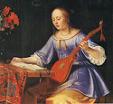
1677 On Jan. 21 a pamphlet on smallpox by Rev. Thomas Thacher titled A Brief Rule to guide the Common People of New England: How to order themselves and theirs in the Small Pocks, or Measles is pub. in Boston, Mass., becoming the first medical pub. in America; 2nd ed. pub. in 1702. On Apr. 11 34K French under the Duke of Orleans defeat 32K Dutch at the Battle of Cassel, with 8K Dutch casualties and 3K taken POW. On May 29 Virginia signs a new treaty with the Amonsoquath Cherokee Indians. In May a treaty is signed in Warsaw between France, Poland, Transylvania, and the new Kuruc Community (Universitas); Louis XIV guarantees 100K tallers if they attack the Hapsburgs with a min. 15K-man army; in the fall a 2K-man French, Polish and Tartar army arrives in Upper Hungary to assist them, but never gets anywhere; meanwhile Hapsburg gen. Raimondo Montecuccoli draws up a plan to quash any remnants of Hungarian independence and move in German colonists, uttering the soundbyte "All Hungarians are traitors". On June 1 Danes under adm. Niels Juel (1629-97) defeat the Swedish under vice-adm. Eric Sjoblad off Moen, followed by another a major V on July 1-2 against the larger Swedish fleet under adm. Henrik Horn (1618-93) in the Battle of Koge (Køge) Bay in the Falsterbo Channel S of Sweden, with the Swedish losing 20 ships and 3K casualties vs. 0 ships and 375 casualties for the Danes, becoming the greatest Danish naval V in history (until ?). On July 14 the Battle of Landskrona (Moeinge) in S Sweden is a decisive V for 13K Swedes under Charles XI over 12K Danes under Christian V. On Sept. 17 the Danes defeat the Swedes and capture Rugen. On Nov. 4 Protestant William II of Orange (b. 1650) (later William III of the U.K.) marries Protestant Princess Mary Stuart (b. 1662) (later Mary II), daughter of Catholic prince James Stuart, duke of York; she isn't too happy since he's 12 years older and 4 in. shorter, but both her daddy and king Charles II like the idea of an Anglo-Dutch alliance, and plans for her betrothal to the French dauphin fall through; too bad, Prince James just set himself up for an early retirement in 1688? On Dec. 12 the Great Elector takes Stettin. The Second Russo-Turkish War begins (ends 1681); only 10 more to go (until 1918). Culpepper's Rebellion begins in the Carolinas (ends 1680). Mariana of Austria is forced into exile from Spain by Charles II's illegitimate brother (son of Philip IV) John (Don Juan Jose) of Austria the Younger (1629-79). James Butler is restored as lord lt. of Ireland by Charles II (until 1682). Former war secy. Michel le Tellier becomes chancellor of France, going on to work to effect the revocation of the Edict of Nantes in 1685 in conjunction with his war minister son Francois-Michel le Tellier. John Bunyan goes back to County Gaol. The grandson of Sir Ferdinando Gorges (b. 1647) sells the rights to the province of Maine to Mass. for $6,250. Mass. sets up a provincial postal system, and restricts all Indians to four towns - until they're paper trained? The 1677 Statute of Frauds, authored by Welsh jurist Sir Leoline Jenkins (1625-85) is passed in Britain, establishing basic rules to prevent perjury that end up being used all over the English-speaking world incl. the U.S. Stephanus Van Cortlandt (1643-1700) becomes the first native-born mayor of New York City (#10) (until 1678, then again as mayor #17 in 1686-8). Claude Jean Allouez arrives in modern-day Kaskaskia, Ill. to evangelize the Illinois Indians - I think I found the Breast of Sheba? France takes the island of Goree (Gorée) (Dutch "Goedereede" = good roadstead) off the coast of Cape Verde Peninsula from the Portuguese, becoming the start of the city of Dakar, Senegal (modern-day pop. 1.1M/2.4M), westernmost city on the African mainland and the Old World. The U. of Innsbruck in Austria, which began as a college in 1562 is declared a univ. by HRE Leopold I. Robert Hooke becomes secy. of the Royal Society of London. The pepper trade in Sumatra is disrupted by wars between Jambi, Johor, and Pelambang. Ice cream becomes a popular dessert in Paris. Architecture: The 202-ft. Monument to London's Great 1666 Fire (begun 1671) is completed, becoming the tallest freestanding stone column on Earth; Robert Hooke originally intends to use it to test his theories on gravity until Isaac Newton kicks his butt in that topic? Science: Danish anatomist Caspar Bartholin the Younger (1655-1738) first describes Bartholin's Glands of the vagina - had a nose for his work, make that a taste for his work? Dutch linen draper and late-blooming long-living zoologist Anton (Antony) (Antonie) (Thonius) Philips van Leeuwenhoek (1632-1723) [pr. lay-van-HOOK] first sees red blood cells and spermatozoa through a microscope, leading to a cent.-long animalculist-ovist debate about whether the male or the female contributes more or all to the embryo. Dr. Francois Bayle first describes arteriosclerosis as the chief cause of strokes. Nonfiction: William Cave, History of Martyrdoms. Johann Jacob Hofmann, Lexicon Universale. John Houghton, England's Great Happiness, or A Dialogue between Content and Complaint. William Hubbard, Map of New England. Benjamin Keach, Catechism; known for introducing hymnology into the worship service. Andrew Marvell (1621-78), An Account of the Growth of Popery and Arbitrary Government in England; stirs rumors of impending assassination by Roman Catholics, but he conveniently dies next Aug. from an OD of a marvelous opiate medication. Increase Mather (1639-1723), The Troubles That Have Happened in New England. Fabian Stedman (1640-1713), Campanologia. Thomas Thatcher, A Brief Rule to Guide the Common-people of New-England how to Order Themselves and Theirs in the in Small Pocks, or Measles (1677-8); the first medical treatise pub. in British Am. Christian Weise (1642-1708), Christian Weisens Politischer Redner; teaches the art of public speaking and the art of compliments. Art: Pieter de Hooch (1629-84), Musical Party in a Courtyard. Sir Godfrey Kneller (1646-1723), Mr. Vernon. Pieter van Slingeland (1630-91), Woman with Cittern. Music: Jean-Baptiste Lully (1632-87), Isis (opera). Plays: Aphra Behn (1640-89), The Rover (Dorset Theatre). John Dryden (1631-1700), All for Love; about Antony and Cleopatra. Nathaniel Lee (1653-92), The Rival Queens, or the Death of Alexander the Great (tragedy); Alexander's 1st wife Roxane (Roxana) is jealous of his 2nd wife Statira; big hit, making him a star. Philippe Quinault (1635-88), Isis. Jean Baptiste Racine (1639-99), Phaedra (Phaedre) (Phedre); she commits suicide; Racine's enemy the Duchess of Bouillon pays Nicholas Pradon to write a rival Phedre which is more successful than his, causing him to freak and give up Greek-Roman-based playwriting for family and religion, and he only puts out two more tragedies in 22 years, both Biblical. Sir Charles Sedley (1639-1701), Antony and Cleopatra. Births: English poet John Hughes (d. 1720) on Jan. 29 in Marlborough, Wiltshire. French astronomer Jacques Cassini (d. 1756) on Feb. 18 in Paris; born at the Paris Observatory, which is run by his father Giovanni Domenico Cassini (1625-1712). German (Prussian) soldier and margrave of Brandenburg-Schwedt Christian Ludwig (d. 1734) on Mar. 14 in Berlin; youngest son of Brandenburg elector Frederick William and 2nd wife Sophie Dorothea; namesake of J.S. Bach's Brandenburg Concertos. Italian composer-cellist Antonio Maria Bononcini (d. 1726) on June 18 in Modena. English "Vegetable Staticks" chemist-physiologist Stephen Hales (d. 1761) on Sept. 7 (Sept. 17?) in Bekesbourne, Kent; educated at Benet (Corpus Christi) College, Cambridge U. French artist Guillaume Coustou the Elder (d. 1746) on Nov. 29 in Lyons; brother of Nicolas Coustou (1658-1733). English banker Henry "the Good" Hoare Sr. (d. 1725); son of Sir Richard Hoare (1648-1719); father of Henry Hoare II (1705-85) and London mayor Sir Richard Hoare (1709-54). Deaths: English diplomat Robert Sidney, 2nd earl of Leicester (b. 1595). English physician-anatomist Francis Glisson (b. 1597) on Oct. 14 in London; leaves a work on the anatomy of the liver, and a pediatric text on rickets. English-born Am. surveyor-planter William Claiborne (b. 1600) in Romancoke, Va. Dutch painter Aert van der Neer (b. 1603). English gov. of Va. (1642-75) Sir William Berkeley (b. 1605) on July 9 in Mayfair, London. Anglo-Czech engraver Wenceslaus Hollar (b. 1607) on Mar. 25 in London; dies in poverty after asking the bailiffs not to take away his deathbed. English political philosopher James Harrington (b. 1611). Dutch Cape Town cmdr. #1 (1652-62) Jan van Riebeeck (b. 1619) on Jan. 18 in Batavia. German mystic-poet Angelus Silesius (b. 1624) on July 9. French opera composer Robert Cambert (b. 1628). English composer Matthew Locke (b. 1629) in Aug. English mathematician Isaac Barrow (b. 1630) on May 4 in London. Dutch Jewish #1 philosopher Baruch Spinoza (b. 1632) on Feb. 21 in The Hague (TB or silicosis caused by glass dust from his lens grinding trade); leaves Ethics, Demonstrated in Geometrical Order, a philosophical treatise that tries to mimic Euclid's Elements, "the last indisputable Latin masterpiece, and one in which the refined conceptions of medieval philosophy are finally turned against themselves and destroyed entirely", causing Georg Wilhelm Friedrich Hegel to later utter the soundbyte: "You are either a Spinozist or not a philosopher at all"; Pt. 2 focuses on the human mind and body, disputing Rene Descartes' mind-body dualism, arguing that they are one; Pt. 3 attempts to show that moral concepts incl. good, evil, virtue, and perfection have a basis in human psychology; "A free man thinks of nothing less than of death"; "The human mind cannot be absolutely destroyed with the body, but something of it remains which is eternal"; "When the mind imagines its own lack of power, it is saddened by it".





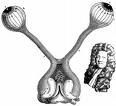






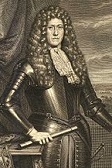


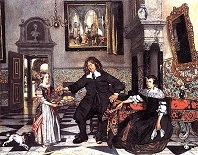
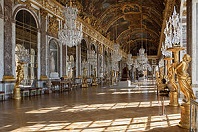

1678 On Jan. 2 the Hamburg State Opera opens in Hamburg (until 1730) with a Biblical Singspiel by Johann Theile (1646-1724), becoming the first public opera house in Germany. On Jan. 18 the Battle of Warksow near Gustow on Rugen Island is a V for 3.5K Swedish over an allied army of 4,670 Danes and a few hundred troops from Brandenburg, after which the entire allied force is captured or force to swear allegiance to the Swedish flag; Frederick William, the Great Elector of Brandenburg occupies Swedish Pomeriania and takes Stralsund from the Swedes; meanwhile Swedish-held Bohus Fortress is sieged unsuccessfully. On Jan. 27 the first fire engine co. in British Am. goes into service. On Apr. 5 after the Hungarian Kurucs accept Transylvanian chancellor Count Mihaly Teleki (1634-90) as their leader and the Ottoman sultan gives Transylvanian prince Michael I Apafi leave on the condition that Hungary become part of the Ottoman Empire, Transylvania declares war on the Hapsburgs, with Polish and French backing, telling the people of Hungary to submit to the sultan "with a reasonable mind and sharp eye" (attempt to play both ends against the middle?); too bad, Teleki's army flees at the first sight of Hapsburg troops in Upper Hungary, although an 8K-man Kuruc army occupies Lower Hungary, while the Hungarians look for a new William Wallace, er, leader to emerge and help them throw off the Hapsburg yoke. On May 1 French adm. Count Jean II d'Estrees (1624-1707) runs his whole fleet aground in Curacao. On Aug. 10 after the French army captures Ghent and Ypres in a surprise attack during peace negotations, Holland, Spain, and their allies fold and sign the nimwitted Peace Treaties of Nimwegen (Nijmwegen) (Nimeguen) with Holland (Aug. 10), Spain (Sept. 17), Sweden (Feb. 6, 1679), and Denmark (Sept. 2, 1679), followed by the Peace Treaty of Lund between Denmark and Sweden on Sept. 26, 1679 (Sept. 16 Old Style), and Holland and Sweden on Oct. 12, 1679; the net result is that Holland gets all of its territory back on the condition of remaining neutral, France gets Franche-Comte, Valenciennes, Cambrai (Cambray), the Cambresis, Aire, Poperingen, St. Omer, Ypres, Conde, Bouchain, Maubeuge et al. from Spain; Spain gets Charleroi, Binche, Oudenarde, Ath, Courtray, Limburg, Ghent, Puycerda (in Catalonia) et al. from France; the HRE cedes Freiburg in the Breisgau to France in return for it giving up the right of garrison in Phillippsburg; the religious liberty of Lutherans in French territory is confirmed; the duke of Lorraine is promised his duchy back but refuses to accept the conditions. In Aug. after Louis XIV promises aid, the Great Kuruc Rebellion (ends 1686) in Hungary against the Hapsburgs by Magyars, Slovaks, Ruthenians, and a few Romanians begins, led by Count Imre (Emeric) Thokoly (Tokolyi) (Tekely) (Turk. "goaty") (1657-1705), who occupies all E and C Slovakia, followed by all of Hungary, and kicks out the Haspsburg govt., getting all of the Kuruc troops to join him and declare him their leader. On Sept. 6 the Popish Plot by Roman Catholics to massacre Protestants, burn London, and kill the king is alleged by rabid anti-Roman Catholic Anglican priest Titus Oates (1649-1705) (accused the year before of capital buggery as chaplain of the English naval ship Adventurer) (whose portrait bears a striking resemblance to comedian Jay Leno (1950-)?), who swears before who-killed-judge Sir Edmund Berry Godfrey (b. 1621) that he learned it by posing as a Jesuit; after the judge mysteriously disappears on Oct. 12 then is found strangled and run through with a sword on Oct. 17 on Primrose Hill, the crazies come out, and the Catholic Terror begins, with many leading Catholics put on trial, dozens executed, five Catholic lords sent to the Tower, and all Catholics excluded from both houses of Parliament by the Dec. Papists' Disabling Act (until 1829); on Nov. 5 mobs burn effigies of the pope instead of the usual Guy Fawkes; Charles II's childless wife Catherine of Braganza is accused of plotting to poison him and place her son James on the throne, but the king stands by her and gets her cleared; when James II gets on the throne, he gets Oates convicted of perjury in 1685, imprisoned, and sentenced to an annual pillory at Westminster Hall and other places, where he is whipped while the crowd pelts him with eggs; when William of Orange gets on the throne, he pardons and pensions him in 1689; meanwhile James Butler, 1st duke of Ormonde clamps down on Irish Roman Catholics, but his mildness and moderation causes his old enemies in England to raise a cry against him again. Another Swedish-Russian War begins - like kids having frequent sleepovers? Queen Nur ul Alam of Indonesia dies, and is succeeded by Queen Inayat Zakia (-1688) (until 1688). John Churchill marries Prince Anne's attendant Sarah Jennings (1660-1744), is raised to the peerage, and made a maj.-gen. England prohibits the importation of all French goods (ends 1685); seeing his chance, the Abbott of Lamego in Douro, Portugal invites British travelers to try fortified (with brandy) wine, causing port wine to become a major export. based in the seaport city of Oporto in NW Portugal on the right bank of the Douro River, 170 mi. NE of Lisbon. Edward Randolph returns to England, and his hostile report on the intransigence of Mass. officials causes the Lords of Trade to begin legal proceedings against their colonial charter, which last for six years. Burgundy becomes a province of France (until 1789). Algerian pirates seize 14 ships from the British Am. colonies, one from Mass. and 13 from Va. The first chrysanthemums arrive in Holland from Japan - the spider monkey is indigenous to which? Thomas Britton (1644-1714) introduces and patronizes weekly concerts in Clerkenwell, London (until 1714), carrying on for John Banister, who dies next year. Dutch mapmaker Herman Moll (1654-1732) moves to London, going on to crank out good maps of much of the world. Citizens of the Swiss mountain villages of Fiesch and Fieschertal begin yearly prayers to save it from the advance of the Great Aletsch Glacier; in 2009 they reverse the prayers because of global warming. After it was banned during the Reformation, the town of Coventry, England begins honoring their local 11th cent. streaker Lady Godiva again during Coventry Fair (until 1826, then from 1848-1929). The first crop circle is observed in England, continuing into modern times, concentrated in Wiltshire. Architecture: French Baroque architect Jules Hardouin-Mansart (1646-1708), chief architect for the Palace of Versailles since 1675, who introduced classicism into French Baroque architecture, and popularized but did not invent the dancing-with-the-stars mansard roof begins a remodeling of the main section, with two new north and south wings, along with a 667-yard facade with 17 arcaded windows each with 21 mirrors (357 total), known as the Hall of Mirrors (Galerie des Glaces), the central gallery of the palace; next year French minister Jean Baptiste Colbert orders all French merchants to be examined in bookkeeping and commercial law, and to recoup some of the money lavished on the Versailles Palace project he invests in factories for manufacturing the palace's many elaborate trappings, and appoints Charles Le Brun (1619-90), Louis XIV's favorite artist as dir. of the factories, who begins decorating the ceiling of the Hall of Mirrors (finished 1684). Leipzig begins building the Alte Handelsborse stock exchange (finished 1687). Medevi Brunn on the E shore of Lake Vattern in NW Ostergottland, Sweden is founded, becoming Scandinavia's oldest spa. Science: English physician William Briggs (1650-1704) describes the anatomy of the eye, incl. the papillae of the optic disc, fibers in the retina et al. Italian mathematician Giovanni Ceva (1647-1734) pub. the elegant Ceva's Theorem on the division of sides of a triangle. Dutch London pendulum man Christiaan Huygens (1629-95) formulates the Wave Theory of Light, and discovers light polarization. English brain man John Locke writes about placing kidney bean leaves under his pillow and around his bed to stop bedbugs from biting on his Euro travels. Nonfiction: William Briggs (1650-1704), Ophthalmo-Graphia; first British treatise on the anatomy of the eye. John Eliot (1604-90), The Harmony of the Gospels. Charles du Fresne, Sieur du Cange, Glossarium Mediae et Infimae Latinitatis. Ralph Cudworth (1617-88), The True Intellectual System of the Universe, Wherein All the Reason and Philosophy of Atheism is Confuted and Its Impossibility Demonstrated; attempts to refute Thomas Hobbes using Plato. Henry More (1614-87), Opera Philosophica. Samuel Nowell (1634-88), Abraham in Arms; big hit Puritan sermon. Hendrik van Rheede (1636-91), Hortus Malabaricus (Lat. "Garden of Malabar") (Amsterdam) (12 vols.) (1678-93); trans. by K.S. Manilal pub. in Kerala; compiled by 25 people working for the Dutch East India gov. of Dutch Malabar (1669-76), and edited by 100+ experts, containing descriptions and drawings of 740 medicinal plants there, incl. cannabis and the joys of smoking it. Richard Simon (1638-1712), Histoire critique du Vieux Testament (3 vols.); claims that Moses could not be the author of the Books of Moses, inaugurating the modern era of scientific Bible criticism; too bad, the French royal council orders the first printing of 1.3K destroyed; "a mass of impieties and a rampart of free-thinking (libertinage)" (Jacques Benigne Bossuet). Christian Weise (1642-1708), Der Politische Nascher. Art: Bartolome Esteban Murillo (1617-82), The Immaculate Conception (Marshal Soult's copy). Emanuel de Witte (1617-92), Portrait of a Family in an Interior. Plays: Thomas Corneille (1625-1709), Comte d'Essex. Nathaniel Lee (1653-92), Mithridates, King of Pontus. Poetry: Anne Bradstreet (1612-72) Several Poems Compiled with Great Variety of Wit and Learning (posth.); incl. To My Dear and Loving Husband, The Flesh and the Spirit, On the Burning of Her Home, Religious Experience, Contemplation. John Cotton II (1640-99), Verses Upon the Death of Noah Newman. Novels: John Bunyan (1628-88), The Pilgrim's Progress from This World, to That Which is to Come, Pt. 1 (Feb. 18); first English novel?; a super-hit, translated into 200+ languages, never going out of print; uses the Hebrew term "Beulah" (married) to refer to the Promised Land, causing it to become popular as a girl's name - Beulah Ballbreaker? Madame Marie-Madeleine de La Fayette (1634-93), The Princess of Cleves (La Princesse de Clèves) (Mar.); pub. anon.; big hit set in the court of Henry II of France in Oct. 1558-Nov. 1559, becoming the first French historical novel, about 16-y.-o. heiress Mademoiselle de Chartres, who marries the Prince de Cleves then falls for the dashing Duke de Nemours; prototype of the psychological novel. Jean de La Fontaine (1621-95), Fables Choisies, Mises en Vers; "Man is so made that when anything fires his soul impossibilities vanish." Plays: Samuel Butler, Hudibras, Pt. 3; pt. 1 1662; pt. 2 1664. Pierre Corneille (1606-84), Le Comte d'Essex (tragedy). John Dryden (1631-1700), All for Love; or, The World Well Lost (tragedy in blank verse); the story of Antony and Cleopatra; his greatest play?; The Kind Keeper; or, Mr. Limberham; banned for indecency. Thomas Otway (1652-85), Friendship in Fashion. Births: Italian "The Four Seasons" Baroque composer-violinist-priest (redhead) ("the Red Priest") Antonio Lucio Vivaldi (d. 1741) on Mar. 4 in Venice. Italian Baroque architect-engraver Filippo Juvarra (d. 1736) on Mar. 6 in Messina; student of Carlo and Francesco Fontana. English coke smelting inventor Abraham Darby Sr. (d. 1717) on Apr. 14 in Woodsetton (near Sedgley), Staffordshire. Swiss mathematician Jakob Hermann (d. 1733) on July 16. Austrian Hapsburg anti-Jesuit Hungarian king (1687-1711), German king (1690-1711) and HRE (1705-11) Joseph I (d. 1711) on July 26 in Vienna; eldest son of HRE Leopold I (1640-1705) and 3rd wife Eleanora, countess Palatine (1655-1720). French gen. Adrien Maurice, 3rd Duc de Noailles (d. 1766) on Sept. 9; son of Anne Jules, 2nd duc de Noailles (1650-1708). English Tory (Country Party) statesman, orator, and political writer (atheist) Henry St. John (pr. SIN-jin), 1st Viscount Bolingbroke (pr. Bullenbrook) (d. 1751) on Sept. 16 in Lydiard Tregoze, Wiltshire; educated at Eton College, and Christ Church College, Oxford U. French mathematician Pierre Remond (Rémond) (Raymond) de Montmort (d. 1719) on Oct. 27 in Paris. French scientist Jean-Jacques d'Ortous de Mairan (d. 1771) on Nov. 26 in Beziers. Chinese Qing emperor #5 (#3) (1723-35) Yongzheng (Yinzhen) (d. 1735) on Dec. 13 in Beijing; 11th son of Emperor Kangxi (1654-1722) and Xiaogongren. English "St. Anne" composer William Croft (Crofts) (d. 1727) on Dec. 30 in Nether Ettington, Warwickshire; student of John Blow. Irish-born British playwright George Farquhar (d. 1707). French scientist ("Father of Modern Dentistry") Pierre Fauchard (d. 1761). Deaths: French physician Charles de Lorme (b. 1584) on June 24 in Moulins. Dutch (Flemish) painter Jacob Jordaens (b. 1593) on Oct. 18 in Antwerp. Italian painter Pietro della Vecchia (b. 1603) on Sept. 8 in Venice. German architect Johann Gregor Memhardt (b. 1707) in Berlin. German feminist writer Anna Maria van Schurman (b. 1607) on May 4 (May 14?) in Wieuwerd, Friesland: "Whatever fills the human mind with uncommon and honest delight is fitting for a human woman". French chef Francois Pierre de la Varenne (b. 1615). English poet-satirist Andrew Marvell (b. 1621) on Aug. 16 (OD of opiate medication).





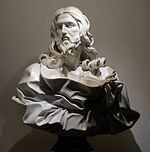
1679 England suffers a minor outbreak of the Black Plague, its last; meanwhile Vienna suffers a terror year. In Jan. Rene-Robert Cavelier, Sieur de La Salle builds Fort Conti at the mouth of the Niagara River on Lake Ontario; on Aug. 7 he launches the 7-cannon 45-ton Le Griffon, which becomes the first full-sized ship to sail across the Great Lakes in a quest for the Northwest Passage, reaching an island in Lake Michigan, where La Salle disembarks with 26 of 32 men, sending the rest back to Niagara with a load of furs, after which it disappears in Green Bay, Wisc.; in Sept. 1679 he sails on a barque with Father Louis Hennepin (1626-1705) to Lake Erie, Lake Huron, and Michillmackinac, discovering Niagara Falls, then sails through the Detroit River to Green Bay, ditching the barque and switching to canoes, paddling down the W shore of Lake Michigan to the mouth of the Miami (St. Joseph) River, building Fort Miami on the shores of Lake Superior near modern-day Duluth, Minn. in Jan. 1680, and leaving on Dec. 3, reaching modern-day South Bend, Ind., then crossing the Kankakee River to the Illinois River, building Fort Crevecoeur near modern-day Peoria, Ill., surviving a mutiny and canoeing down the Mississippi River in 1682, naming Louisiana after Louis XIV and claiming the entire territory for him, then building Fort Saint Louis at Starved Rock on the Illinois River to replace Fort Crevecoeur before leaving for France, returning on July 24, 1684 with a large expedition incl. four ships and 300 colonists, founding Fort Saint Louis on Garcitas Creek in modern-day Victoria, Tex., claiming Texas for France; too bad, while searching for the mouth of the Mississippi River, La Salle is ambushed and killed on Mar. 19, 1687 by Pierre Duhaunt in modern-day Navasota, Tex., after which his fort on the Illinois River is later taken over by John Jacob Astor's fur trading co. On May 26 Ferdinand Maria (b. 1636) dies, and his son Maximilian II Emanuel (1662-1726) becomes Wittelsbach ruler of Bavaria and elector. In May after the Popish Plot, the English Parliament passes the Habeas Corpus Amendment Act ("[I hear] that you have the body"), guaranteeing protection from arbitrary arrest by the writ of habeas corpus, ordering prisoners brought before a judge to explain why they are being held; a prisoner must be indicted in his 1st term of imprisonment, sentenced no later than the 2nd term, and not retried for the same crime if found innocent; it also prohibits "cruel or unusual punishment" after public outrage by fanatical Protestants at the treatment of liar liar pants on fire Titus Oates - it might work if the judge hasn't been bought? On June 1 after dragging turncoat Scottish archbishop of St. Andrews (since 1661) James Sharp (1613-79) from his carriage on Magus Muir and killing him, the Conventiclers and the Covenanters defeat govt. troops at the Battle of Drumclog, then lose the Battle of Bothwell Brig in Lanarkshire on June 22 after Charles II's illegitimate son James, duke of Monmouth (b. 1649) takes command; the Covenanters suffer the Killing Times, with many transported as indentured laborers to the Am. and Caribbean colonies, and 100 Presbyterians martyred (until 1685); to placate moderate Episcopalian Scots who are alarmed at the savagery, Prince James (who was sent to Brussels in the summer to keep him from anti-Catholics in England) is sent to Scotland (until 1682), becoming the last member of the British royal family to visit until the 19th cent.; he fights the remaining Covenanters while rebuilding Holyrood House and Falkland Castle to house his entourage, reviving the Scottish court after a long interval (James VI), and founding the Royal College of Physicians in Edinburgh. On June 29 the Peace of St. Germain-en-Laye is signed between Sweden and Brandenburg after France forces it on the Great Elector, causing him to surrender most of his conquests in Pomerania to Sweden in exchange for East Friesland and a small payment. On Sept. 17 John of Austria (b. 1629) dies, and Mariana (Marie) of Austria returns from exile to act as regent for the retarded childless Charles II of Spain, who marries Marie Louise of Orleans, allowing Queen Mother Marie of Austria to reestablish Hapsburg influence in Madrid. In Sept. after building Fort Conti at the mouth of the Niagara River on Lake Ontario early in the year, then building the 7-gun 45-ton barque Le Griffon, he sails with Father Louis Hennepin (1626-1705) to Lake Erie, Lake Huron, and Michillmackinac, discovering Niagara Falls, then sails through the Detroit River to Green Bay, ditching the barque and switching to canoes, paddling down the W shore of Lake Michigan to the mouth of the Miami (St. Joseph) River, building Fort Miami on the shores of Lake Superior near modern-day Duluth, Minn. in Jan. 1680, and leaving on Dec. 3, reaching modern-day South Bend, Ind., then crossing the Kankakee River to the Illinois River, building Fort Crevecoeur near modern-day Peoria, Ill., surviving a mutiny and canoeing down the Mississippi River in 1682, naming Louisiana after Louis XIV and claiming the entire territory for him, then building Fort Saint Louis at Starved Rock on the Illinois River to replace Fort Crevecoeur before leaving for France, returning on July 24, 1684 with a large expedition incl. four ships and 300 colonists, founding Fort Saint Louis on Garcitas Creek in modern-day Victoria, Tex., claiming Texas for France; too bad, while searching for the mouth of the Mississippi River, La Salle is ambushed and killed on Mar. 19, 1687 by Pierre Duhaunt in modern-day Navasota, Tex.; his fort on the Illinois River is later taken over by John Jacob Astor's fur trading co. William II of Orange regains all the territory lost to France by Holland's prior regime, and resumes trade with them. New Hampshire (N.H.) is separated from Mass. as a special royal province (until 1686). The term "Tories" is first used for followers of James Stuart, duke of York. English buccaneer-explorer William Dampier (1651-1715) begins his first buckin' voyage around the world (ends 1691), featuring two visits to the Bay of Campeche on the Gulf of Mexico, a raid across the Isthmus of Darien in Panama, and more raiding of Spanish settlements in Peru in 1683, switching ships and sailing across the Pacific Ocean to the East Indies incl. Guam, Mindanao, Manila, Poulo Condor, China, the Spice Islands, and New Holland, reaching King Sound in NW Australia on Jan. 5, 1688. Virginia passes the first Slave Code Law, which becomes a model for God Bless America; slaves and their children are bound for life, and written permission from da massah is required to carry arms or leave the master's land - hence, never teach them to read or write? The Man in the Iron Mask (d. 1703) (identical twin brother of Louis XIV?) becomes a prisoner in the Bastille. Dueling is banned in France by royal edict. English royalist antiquary Elias Ashmole (1617-92) founds the Ashmolean Museum in Oxford, largely composed of the Tradescant collection. The London Tea Auction is founded on Leadenhall St. in London, England by the East India Co., moving to Mincing Lane in 1834; it closes on June 29, 1998. Chinese emperor (since 1661) Qing Sheng Zu orders a History of the Ming Dynasty to be compiled by 53 scholars. John Blow resigns as organist of Westminster Abbey (since 1669) in favor of his favorite pupil, 22-y.-o. Henry Purcell (1659-95), who switches to sacred music. The first German coffeehouse opens in Hamburger, er, Hamburg. German chemist Johann Kunckel von Lowenstern (1630-1703) becomes dir. of the glass works in Potsdam. Architecture: Holyrood Palace in Edinburgh (begun 1671) is finished. Inventions: Denis Papin (1647-1712) of France discovers that the boiling point of water depends on atmospheric pressure, and invents the Pressure Cooker, which he calls the Bone Digester, complete with the first automatic safety valve, and demonstrates it for the Royal Society in England, architect Sir Christopher Wren finding the meal so delicious that he requests instructions on how to use it. Science: Paris Observatory dir. Gian Cassini pub. the first Scientific Map of the Moon. Ambrose Godfrey (1660-1741) emigrates from Saxony to England on the recommendation of Johann Becher, becoming an asst. to chemist Robert Boyle, and learning the secret of boiling urine down to make phosphorus, parting with Boyle in 1682 and becoming a phosphorus manufacturer with Boyle's financial help. Robert Hooke initiates a correspondence with Isaac Newton, causing the latter's interest in dynamics to revive, and in Dec. he proves that "all bodies circulating about a centre sweep out areas proportional to the time", and that in "a body revolving in an ellipse... the law of attraction directed to a focus of the ellipse... is inversely as the square of the distance" (Props. 1 and 11 of his "Principia", Bk. I). Gottfried Wilhelm von Leibniz (1646-1716) discovers the Binary Number System; he doesn't pub. his findings until 1701. French physicist-priest Edme (Edmé) Mariotte (1620-84) announces his rediscovery of Boyle's Law (pub. in 1661) - but Edme's Law or Mariotte's Law has no pizzazz? Nonfiction: Anon., Almanach Royal (later "Almanac National"); becomes the #1 almanac in France. Robert Boyle (1627-91), Producibleness of Chymical Principles (appended to the 2nd ed. of The Sceptical Chymist); "For though sometimes I have had occasion to discourse like a Sceptick, yet I am far from being one of that sect; which I take to have been little less prejudicial to natural philosophy, than to divinity itself." Gilbert Burnet, History of the Reformation of the Church of England, Vol. 1. Connaissance des Temps; an almanac pub. by the French govt., later by the Bureau des Longitudes. John Eliot (1604-90), A Brief Answer to a Small Book Written by John Norcot Against Infant-Baptisme. Edmund Halley (1656-1742), Catalogus Stellarum Australium (Catalog of Southern Stars); 341 stars of the Southern Hemisphere as observed from St. Helena, earning him the title "the Southern Tycho" plus election to the Royal Society. John Partridge (1644-1714), Mikropanastron; or, An astrological vade mecum briefly teaching the whole art of astrology. Sir William Petty, A Treatise on Taxes and Contributions. Philip Rohr, De Masticatione Mortuorum (On the Chewing Dead). Abraham a Sancta Clara, Merk's Wien! (Mark It Well); decries the decaying morals in Vienna. Art: Gianlorenzo Bernini (1598-1680), Salvator Mundi; bust of Christ; his last work? Music: Jean-Baptiste Lully (1632-87), Bellerophon (opera); decries the decay of morals in Vienna - he otta know? Alessandro Scarlatti (1660-1725), Gli Equivoci Nell'Amore (first opera) (Rome); L'Errore Innocente (Rome). Johann Theile (1646-1724), Adam and Eve (opera) (Hamburg) (Jan. 2). Plays: The Second Folio of 50 of the plays of Beaumont and Fletcher is pub. posth. John Dryden (1631-1700) and Nathaniel Lee (1653-92), Oedipus (tragedy). Thomas Otway (1652-85), The Soldier's Fortune. Thomas Shadwell (1642-92), The True Widow; prologue by John Dryden (1631-1700), who later becomes his enemy. Christian Weise (1642-1708), Baurischer Machiavellus (comedy). Novels: P'u-Sungling, Liao Chai (short stories). Births: German rationalist philosopher-mathematician ("German spokesman of the Enlightenment") Baron Christian Wolff (Wolfius) (d. 1754) on Jan. 24 in Breslau, Silesia (modern-day Wroclaw, Poland); educated at the U. of Jena. German Roman Catholic prince-archbishop of Salzburg (1727-44) Count Leopold anton Eleutherius von Firmian (b. 1744) on Mar. 11 in Munich. English writer Catharine Trogger Cockburn (pr. like coburn) (d. 1749) on Aug. 16. Anglo-Irish "A Night-Piece on Death" poet-clergyman Thomas Parnell (d. 1718) on Sept. 11 in Dublin; educated at Trinity College, Dublin; friend of Alexander Pope and Jonathan Swift. French garden designer Jean-Baptiste Alexandre Le Blond (d. 1719) in Paris; pupil of Andre Le Notre. English academic Joseph Trapp (d. 1747) in Cherrington, Gloucestershire; educated at New College School, and Wadham College, Oxford U.; first prof. of poetry at Oxford U. (1708). Deaths: Dutch dramatist-poet Joost van den Vondel (b. 1587) on Feb. 5. English "nasty, brutish, and short" philosopher Thomas Hobbes (b. 1588) on Dec. 4 in Derbyshire: "The original of great and lasting societies consisted not in mutual good will men had toward each other, but in the mutual fear they had of each other" - and he was right on 2 out of 3? English-born Am. Puritan fisherman Roger Conant (b. 1592) on Nov. 19 in Salem, Mass.; they build a statue to him, gee wow? English preacher Praise-God Barebone (b. 1598). English-born Am. Pilgrim Mary Chilton (b. 1607) on Apr. 30 in Boston, Mass. Italian flying physiologist Giovanni Borelli (b. 1608) on Dec. 31 in Rome. French churchman Jean de Gondi, Cardinal de Retz (b. 1613) on Aug. 24 in Paris; leaves Memoirs to the Year 1655 (pub. 1717). English "The Christian in Complete Armour" Puritan writer William Gurnall (b. 1616) on Oct. 12. German poet Christian Hofmann von Hofmannswaldau (b. 1617) on Apr. 18 in Breslau. English lexicographer Thomas Blount (b. 1618). French princess Anne Genevieve of Bourbon-Conde, duchess of Longueville (b. 1619) on Apr. 15 in Port-Royal-des-Champs Convent, Paris. Irish soldier-politician-dramatist Roger Boyle, 1st earl of Orrery (b. 1621) on Oct. 16 in County Limerick, Ireland English theologian Matthew Poole (b. 1624) on Oct. 12 in Amsterdam, Netherlands. German aristocrat Johann Friedrich, Duke of Brunswick-Luneburg-Hanover (b. 1625); dies in a Carmelite convent. Dutch painter Jan Steen (b. 1626). Spanish gen. John of Austria the Younger (b. 1629) on Sept. 17. Bavarian elector (1651-79) Ferdinand Maria (b. 1636) on May 26 in Schleissheim Palace, Munich. English physician-chemist-physiologist John Mayow (b. 1640) in Oct. in London.



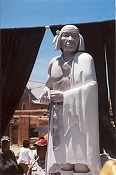









1680 Pop. of the Am. colonies: 150K; between this year and 1720 about 400K new English settlers arrive. On Jan. 1 after Edward Randolph returns to the colonies to reestablish the royal colony (province) of New Hampshire (N.H.), separated from Mass. Bay Colony, a 9-member royal council is created, headed by gov. John Cutt (1613-81) as pres. #1 (until 1681); Randolph then becomes the king's customs collector in Boston, where he reports continual recalcitrance; they are reunited in 1681-91. In Jan. Scottish Covenanter preacher Richard Cameron (b. 1648) and 20 armed followers enter the marketplace of Sanquhar, Scotland and formally renounce allegiance to tyrant Charles II and declare war against him, then run to the hills between Nithsdale and Ayrshire, becoming rebels to fight for their free-ee-ee-dom (erin go bragh?); on July 22 he and his followers are ambushed at Airds Moss in E Ayrshire, Cameron is killed, and as a traitor his head and hands are nailed to the Netherbow Port in Edinburgh; next year his followers form the Cameronians, AKA Reformed Presbyterians, refusing to take the oath of allegiance; in 1689 they are granted amnesty, forming a military unit of the British army later known as the Scottish Rifles. In Feb. La Salle's expedition begins exploring the Mississippi River. In May Krakatoa Volcano experiences a small-scale eruption. On July 8 the first documented tornado in Am. kills a servant in Cambridge, Mass. The Indians finally yuck it up on the Conquistadors? On Aug. 10 after a decade of drought, white man's diseases, and suppression of their medicine men, the Pueblo (Po'pay's) (Pope's) (Popé's) Revolt (ends 1692) begins in the Pueblo of Isleta in New Mexico 13 mi. S of Albuquerque against the Spanish, led by pagan Tewa religious leader Po'pay Pope (Popé) (1630-88) ("pumpkin mountain"), who stages a blitzkrieg attack, killing 380 Spaniards, incl. 21 of 40 Franciscans, followed by a siege of Santa Fe, causing Spanish settlers to flee S on Aug. 21 to El Paso del Norte (until 1691), closing El Camino Real and becoming the most successful Indian revolt in history, after which Po'pay sets himself up in the governor's palace and orders all vestiges of Roman Catholicism destroyed, washing Catholic converts in yucca juice to get rid of the yucky white man's stink; El Paso (modern-day pop. 650K/1M) is founded near El Paso del Norte (modern-day Ciudad Juarez) as a temporary capital of the New Mexico territory until Santa Fe is reconquered in 1692, remaining the largest settlement in N.M. until 1848, when it becomes part of Tex., after whch it is incorporated in 1873; meanwhile in 1682 Spanish fugitives from the revolt, joined by Tigua (Tiwa) Indians found La Purisima del Socorro Mission (Nuestra Senora de la Concepcion del Soccoro) halfway between Santa Fe and El Paso, waiting for the various Pueblo tribes to begin infighting and play into their hands, and Spanish fugitives found the Ysleta Mission in El Paso. On Aug. 22 Johann Georg II (b. 1613) dies, and his only son Johann Georg (John George) III (1647-91) becomes elector of Saxony (until 1691), going on to break off relations with France and establish a standing army of 12K men based on the Brandenburg model, after which he is appointed marshal of the HRE and earns the nickname "the Saxonian Mars". On Oct. 21 the Theatre-Francais (Comedie Francaise) (House of Moliere), the French nat. theater is formed by royal decree from the merger of the Theatre Guenegaud in Paris and the Theatre de Hotel de Bourgogne, the first being a merger of the Theatre du Marais and the Troupe de Moliere after Moliere's 1673 death; in 1682 the king grants comedians an annual pension of 12K livres; in 1689 it moves to the Rue de l'Ancienne Comedie across the street from Cafe Procope and changes its name to La Comedie Francaise; in 1799 it moves to the Rue de Richelieu. On Nov. 17 the Whigs organize pope-burning processions in London. On Nov. 23 the Great Comet of 1680 (Kirch's Comet) is first sighted, becoming the first to be discovered by telescope; it is seen with the naked eye on Dec. 9 at 2:00 p.m., causing the superstitious to go bonkers. Shogun Iyetsuna (b. 1633) dies, and his brother Tokugawa Tsunayoshi (1646-1709) becomes shogun #5 of Japan (until 1709), going on to promulgate laws protecting dogs and ordering the establishment of kennels, earning him the nickname "dog shogun"; he also tries to raise the living standard of the people, banning expensive fabrics, banning prostitution and waitresses in tea houses, and other authoritarian laws, which soon cause a smuggling boom. England passes more laws prohibiting Irish imports; only woolens are left (see 1699). Louis XIV sets up Chambers of Reunion, courts to legally annex several towns in Alsace to France, incl. Metz, Breisach, Besancon, and Tournay (until 1683). Richard Cromwell (d. 1712) quietly returns to England, laying low for life. England begins trading with China; meanwhile the Portuguese appoint their first gov. of Macau. King Charles XI of Sweden establishes royal absolutism to keep up with Louis XIV. About this time the Comanche get horses from the Spanish, turning them from hunter-gathers to buffalo hunters. In this decade Madagascar becomes a pirate stronghold (until 1725). Franciscan friar Louis Hennepin discovers the Falls of St. Anthony on the site of modern-day Minneapolis, Minn. The Swedish royal navy founds the port of Karlskrona and relocates there. The Portguese found the port of Colonia del Sacramento in SW Uruguay opposite the Rio de la Plata from Buenos Aires, followed by several more settlements in this decade, becoming the 2nd European country to settle Uruguay (discovered by the Spanish in 1516 and colonized in 1624), causing a turf war which continues until 1777. The first Brandenburgian expedition to West Africa begins. Dutch traders establish a trading station in Padang on the W coast of Sumatra in Indonesia. London merchant William Dockwra begins the Penny Post, which delivers mail anywhere in London for a penny. Chinese Manchu emperor (since 1661) Qing Sheng Zu founds art factories. In this decade France suffers high food prices and famine, sparking revolts continuing into the 18th cent.; one bright spot, the potato becomes popular in France, and er, French fried potato stands are set up in Paris. The first ballets arrive in Germany from France. The oldest free lending library is founded in Innerpeffray in N England. Dutch-born Quaker master woodcarver Grinling Gibbons (1648-1721) becomes the king's royal carver, going on to work on St. Paul's Cathedral, Windsor Palace et al., becoming #1 of all time? Antonio Stradivari (1644-1737) makes his earliest known cello. French letter-writing aristocrat Marie de Rabutin-Chantal, Marquise de Sevigne (1626-96) makes the first mention of adding milk to tea. Pere du Halde describes Chinese punishments, incl. water torture? Architecture: After Louis XIV decides that the veterans require a chapel, Jules Hardouin-Mansart (1646-1708) begins the Chapel des Invalides in Paris (finished 1708). St. Mary's Church in Chennai, India is opened, becoming the oldest Anglican Church E of Suez; the first marriage registered there is between Elihu Yale and Catherine Hynmers; Yale becomes pres. #1 of the British East India Co.'s Fort St. George in Madras, growing rich through illegal profiteering, which gets him fired; he takes advantage of a famine in Madras to ship hundreds of slaves to St. Helena. Inventions: Italian Baroque composer Arcangelo Corelli (1653-1713) invents the Concerto Grosso, using three solo instruments (one violoncello and two violins) acting as a group, with string orchestra accompaniment, which becomes the main Baroque orchestral form; later evolved into the modern concerto by the 1-800-BAR-NONE King Mozart. Science: English naturalist ("Father of English Natural History") John Ray (1627-1705) begins work on the taxonomy of plants, defining the concept of species (Lat. "seeing", "appearance"). John Flamsteed first observes the Cassiopeia A Supernova on Aug. 16, although it first appeared in 1667. Nonfiction: Giovanni Alfonso Borelli (1608-79), De Motu Animalium (On the Motion of Animals); financed by Queen Christina of Sweden; links Galilean mechanics to Cartesian mechanistic biology, founding the science of Biomechanics; recognizes that forward motion requires forward movement of the body's center of gravity, followed by swinging of the limbs to maintain balance; likens the action of the heart to a piston, requiring the arteries to be elastic - the heart is like the Sun, and the weenie is like the Moon? Antoinette Bourignon (1616-80), Complete Works (19 vols.) (1680-6) (ed. Peter Poiret). Christiaan Huygens (1629-95), Traite de la Lumiere (Treatise on Light); his Wave Theory of Light. Art: Charles de la Fosse, The Finding of Moses. Atlas van Stolk, Comet over Amsterdam. Music: Johann Pachelbel (1653-1706), Canon in D (Canon and Gigue in D major for three violins and basso continuo); makes no impact until it's rediscovered in 1919. Plays: Nathaniel Lee (1653-92), Theodosius, or the Force of Love; Caesar Borgia (tragedy). Thomas Otway (1652-85), The Orphan (tragedy) (London). Philippe Quinault (1635-88), Proserpine. Births: English writer Joseph Ames (d. 1759) on Jan. 23 in Yarmouth. French La. gov. (1701-43) (founder of New Orleans) Jean-Baptiste Le Moyne, Sieur de Bienville (d. 1767) on Feb. 23 in Dieppe; brother of Pierre Le Moyne d'Iberville (1661-1706). German Rococo architect Dominikus Zimmermann (d. 1766)on June 30 in Gaispoint (near Wessobrunn); brother of Johann Baptist Zimmermann (1680-1758). English pirate Blackbeard the Pirate (Edwar Teach of Thatch) (d. 1718) in Bristol. British Cornish Whig politician Hugh Boscawen, 1st Viscount Falmouth (d. 1734); eldest son of Edward Boscawen and Jael (daughter of Sir Francis Godolphin). Irish banker-economist (in France) Richard Cantillon (d. 1734). British Lord High Adm. (1719-27) James Berkeley, 3rd Earl of Berkeley (d. 1736); husband of Lady Louisa Lennox; father of Augustus Berkeley, 4th earl of Berkeley (1715-55). French surgeon (in England) (Huguenot) Claudius Amyand (d. 1740) in Mornac, Saintonge; becomes an English citizen on Sept. 9, 1698. Am. Mohawk chief King Hendrick (Theyanoguin) ("the western door is open") (d. 1755) in Mass.; Mohegan father, Mohawk mother. Deaths: Japanese emperor #108 (1611-29) Go-Mizunoo (b. 1596) on Sept. 11. Italian artist Giovanni Lorenzo Bernini (b. 1598) on Nov. 28 in Rome. English statesman Denzil Holles, 1st baron Holles (b. 1599) on Feb. 17; buried in Westminster Abbey. German Jesuit mathematician Athanasius Kircher (b. 1601) on Nov. 27. English regicide MP Sir Henry Marten (b. 1602) on Sept. 9 in Chepstow Castle; dies in priz for regicide. French Canal du Midi engineer Pierre Paul Riquet (b. 1609) on Oct. 4. English anti-Puritan "Hudibras" satirist Samuel Butler (b. 1612) on Sept. 25; buried in Westminster Abbey - who de brat? French writer Francois, duc de La Rochefoucauld (b. 1613) on Mar. 17 in Paris (syphilis?): "In aging, one becomes more foolish and more wise"; "All love is self-love". German elector of Saxony (1656-80) Johann Georg II (b. 1613) on Aug. 22 in Freiberg. Englisy Popish Plot royalist William Howard, 1st viscount Stafford (b. 1614) on Dec. 29 in Tower Hill, London (executed); dies a Roman Catholic martyr; beatified in 1929; "Here Noble Staffored fell, on Death's great Stage,/ A Victim to the Lawless Peoples Rage. /Calm as a Dove, receiv'd a Shameful Death,/ To undeceive the World, resign'd his Breath;/ And like a God, dy'd to redeem our Faith/... The World ran Mad, and each distemper'd Brain,/ Did strange and different Frenzies entertain; Here Politick Mischiefs, there Ambition sway'd;/ The Credulous Rest, were Fool and Coward-Mad." (Aphra Behn). Dutch scientist Thomas Bartholin (b. 1616) on Dec. 4 in Copenhagen. Dutch painter Ferdinand Bol (b. 1616). Flemish mystic Antoinette Bourignon (b. 1616) on Oct. 30. German elector Palatine Charles I Louis (b. 1617) on Aug. 28. Irish-born British col. Thomas Blood (b. 1618) on Aug. 23 in Bowling Alley, Westminster. Dutch painter Sir Peter Lely (b. 1618) on Nov. 30 in Covent Garden, London; dies at his easel while painting the duchess of Somerset; his art collection is sold for £26K. Japanese scholar Hayashi Shunsai (b. 1618). Dutch artist Hendrick Danckerts (b. 1625) in Amsterdam. Am. Plymouth Colony gov. (1673-80) Josiah Winslow (d. 1628) on Dec. 18 in Marshfield, Mass. British adm. Thomas Butler, 6th earl of Ossory (b. 1634) on July 30. English philosopher Joseph Glanvill (b. 1636). Dutch naturalist Jan Jacob Swammerdam (b. 1637) on Feb. 17 in Amsterdam (malaria); leaves The Bible of Nature (pub. 1737). Scottish Presbyterian minister Richard Cameron (b. 1648) on July 20 in Aird's Moss (KIA). Am. Native Am. saint Kateri Tekakwitha (b. 1656) on Apr. 17 in Kanahwake, Canada; dies a virgin?








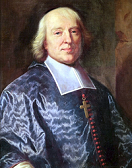
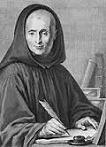


1681 On Jan. 3 the Second Russo-Turkish War (begun 1676) ends indecisively with the 20-year Treaty of Bakhchisarai, agreeing to the Dnieper River as the dividing line between the Turks and Russians, leaving the territory between the Southern Bug and Dnieper Rivers unsettled, with the Nogai hordes retaining the right to live as nomades on the S steppes of Ukraine, and the Cossacks retaining the right to fish in the Dnieper River and its tributaries as well as obtain salt there and in the Black Sea; Emeric Thokoly, backed by a 10K-man Transylvanian army plus a Turkish armyunder the pasha of Oradea forces HRE Leopold I to sign an armistice, and next year Thokoly is proclaimed king of Upper Hungary by Sultan Mehmed IV in return for a 40K taller per annum tribute, while he keeps one foot in the Christian camp by marrying Countess Jelena Zrinski (Ilona Zrinyi) (1643-1703), widow of Prince Francis I Rakoczi, going on to extend his dominion to the Vah River. On Mar. 1 the new colony of N.H. designates Mar. 17 as a day of fasting and prayer after Gov. John Cutt (b. 1613) falls ill and a comet is sighted; he dies on Apr. 1. On Mar. 4 the English colony of Pennsylvania (Penn.) ("Penn's Woods") (W from the Delaware River for 5 deg. of longitude, and from the 40th to the 43rd deg. of latitude) receives its charter from Charles II to pay off Cromwell supporter Adm. Sir William Penn Sr. (1621-70), who had an outstanding £16K debt owed by the crown at his death in 1670, and his son, English Quaker convert William Penn Jr. (1644-1718) as the proprietor; the colony is named after the father not the son; the N boundary is later changed to 42 deg. because it overlaps New York; in 1767 the S boundary is settled as 19 mi. S of the 40th parallel by the surveying of the Mason-Dixon line; by the end of the year there are about 1K new settlers lured by advertisements to come to a "holy experiment" based on Quaker ideals; Penn sends his Anglican cousin Capt. William Markham (1635-1704) ahead while he recruits fresh fish back in England, North Ireland, and Germany, incl. Quakers and Mennonites from the Rhine country. On Nov. 25 the Fundamental Agreements of the Province of West New Jersey are enacted. Brandenburg makes defensive alliances with Sweden and France. The European Congress meets in Frankfurt. Prince James summons the Scottish parliament to pass a Scottish Test Act (rescinded 1690) to enforce loyalty to his brother Charles II and outlaw Presbyterianism, causing Archibald Campbell, 9th Earl of Argyll (1629-85) to flee to exile in Holland in Dec. rather than take an oath of loyalty and deny his beloved Covenants after his trial; all of which is strange since James openly practices Roman Catholicism in Scotland?; meanwhile his daughter Princess Anne briefly visits him in Scotland. Zheng Jing (b. 1642) dies, and his son Zheng Keshuang (1669-1707) becomes the last pirate ruler of Taiwan (until 1683). The Revolt of the Three Feudatories in China (begun 1673) is quashed by the Qin Manchu Dynasty with the help of other Han traitor gens. An English ship captained by John Daniel becomes the 2nd to reach the W coast of Australia (first 1622), sighting the Wallabi Group (Dangerous Rocks). After careful planning by French war secy. (1666-91) Francois-Michel Le Tellier, Marquis de Louvois (1641-91), French troops surprise and capture the Huguenot and Jew-tolerant free imperial city of Strasbourg, which Louis XIV annexes - say adios to boring chicken and have a fiesta? La Salle explores the Mississippi River; Duchesneau completes a census of Canada. Cockburn Town on Grand Turk Island is founded by salt collectors on the spot where Ponce de Leon first landed in 1512. The last Dodo (family Raphidae) flightless bird on Mauritius dies, a victim of dogs; another line survives on Rodriguez Island until 1800 - who let the dogs out? The first female prof. dancers appear at the Paris Opera. The first bank checks are issued in England. The Royal College of Physicians of Edinburgh is granted a royal charter by Charles II; in 1684 Sir Robert Sibbald (1641-1722) (royal geographer since 1682) is elected pres., and in 1685 he becomes the first prof. of medicine at the U. of Edinburgh. Architecture: King's Square (later called Soho Square) in London is founded. The Machine de Marly to bring water from the Seine River to supply the fountains and waterfalls of Versailles Palace is begun (finished 1684). Sir Sir Christopher Wren (1632-1723) is elected pres. of the Royal Society, and builds Tom Tower in Christ Church, Oxford, and St. Clement Danes in London, whose bells are popularized in the nursery rhyme Oranges and Lemons. Chelsea Hospital in London is founded for wounded and discharged soldiers. The Canal du Midi (Languedoc Canal) (begun 1664), joining the Bay of Biscay (Atlantic) with the Mediterranean Sea is finished. Sports: On Jan. 6 Christopher Monck, 2nd Duke of Abemarle (1653-88) engineers a bout between his butler and butcher (winner), becoming the first recorded boxing match in Britain. Nonfiction: Jacques-Benigne Bossuet (1627-1704), Discourse (Speech) on Universal History (Discours sur l'Histoire Universelle); written for his pupil the French dauphin; the first philosophical treatment of history; an attempt at a new version of St. Augustine's "City of God", claiming that universal history is a war between God and the Devil, with God on the side of the Church; the City of the Devil incl. the pagan Roman Empire, the barbarians, the Muslims, Renaissance humanists, Enyclopedists, Freemasons, etc.; as The Catholic Enyclopedia puts it: "This is why the idea of Providence is at the same time the law of history. If the crash of empires 'falling one upon another' does not in truth express some purpose of God regarding humanity, then history, or what is called by that name, is indeed no longer anything but a chaotic chronology, the meaning of which we should strive in vain to disentangle. In that case, fortune, or rather chance, would be the mistress of human affairs; the existence of humanity would be only a bad dream, or phantasmagoria, whose changing face would be inadequate to mask a void of nothingness. We should be fretting ourselves in that void without reason and almost without cause, our very actions would be but phantoms, and the only result of so many efforts accumulated through so many thousands of years would be the conviction, every day more clear, of their uselessness, which would be another void of nothingness."; "And why, after all, were there Greeks and Romans? Of what use was Salamis? Actium? Poitiers? Lepanto? Why was there a Caesar, and a Charlemagne? Let us frankly own, then, that unless something Divine circulates in history, there is no history"; contains the soundbyte "Ah, perfide, perfide Albion!", later quoted by Napoleon as "perfidious Albion", meaning stankin' England. James Dalrymple of Stair, Institutions of the Law of Scotland. Robert Knox (1641-1720), An Historical Relation of the Island Ceylon; his adventures there incl. captivity. Jane Lead, The Heavenly Cloud Now Breaking. Jean Mabillon (1632-1707), De Re Diplomatica (6 vols.) (1681-1704); examines documents dating back to Frankish king Dagobert I, attempting to "distinguish genuine documents from forgeries", founding paleography and diplomatics; a hit with Jean-Baptiste Colbert and Louis XIV, who appoints him as a founding member of the Academie des Inscriptions et Belles-Lettres in 1701; the greatest historical scholar of the 17th cent.? "I do not deny that in fact some documents are false and others interpolated, but all of them should not be dismissed for that reason." Henry Neville, Plato Redivivus. Johann Christian Wagenseil (pub.) Toledot Jeshu (Book of the Life of Jesus) (Tela Ignea Satanae); a 9th-10th cent. Hebrew book with a Latin trans. titled "Satan's Flaming Arrow" (Tela Ignea Satanae), dating back to the 9th-10th cents. C.E., calling Jesus Christ a bastard (result of rape of Mary by Roman soldier Joseph Pandera), and accusing him of magic, witchcraft, and a shameful death. Music: Agostino Steffani (1653-1728), Marco Aurelio (Munich) (first opera). Plays: Nahum Tate (1652-1715), The Sicilian Usurper; his version of Shakespeare's "Richard II", altered to be "full of respect to Majesty and the dignity of courts", which doesn't stop it from getting sup/pressed; The History of King Lear; his version of Shakespeare's of "King Lear"' omits the Fool and has Cordelia and Edgar marry and live happily ever after, attending the elderly king until his death; it takes until 1838 to reintroduce the Fool, played by a woman. Poetry: John Dryden (1631-1700), Absalom and Achitophel, Pt. 1 (satire); poem in heroic couplets ridiculing the Whig attempt to make the duke of Monmouth the successor of Charles II rather than the duke of York; causes his friend Thomas Shadwell to turn against him and champion the Protestants. Lucidor (Lars Johansson) (1638-74), Helicons Blomster (posth.). Andrew Marvell (1621-78), Miscellaneous Poems (posth.). Births: French Jesuit missionary Joseph-Francois Lafitau (d. 1746) on Jan. 1 in Bordeaux. Danish-Russian explorer-cartographer Vitus Jonassen (Ivan Ivanovich) Bering (d. 1741) on Aug. 5 in Horsens. French Roman Catholic theologian Pierre Francois le Courayer (d. 1776) on Nov. 17 in Rouen. French Camisard Huguenot leader Jean Cavalier (d. 1740) on Nov. 28 in Max Roux (near Anduze); brought up as a secret Protestant. English actor Barton Booth (d. 1733). Am. "A Defense of the New England Charters" writer and Yale College founder Jeremiah Dummer Jr. (d. 1739); 6th of 9 children; father JD Sr. is a renowned silversmith; educated at Harvard College, and the U. of Utrecht; first colonial-born Am. to receive a Ph.D. from a Euro univ. (1703). English lexicographer Ephraim Chambers (d. 1740) in Kendal, Westmorland. Spanish New Spain viceroy (1746-55) Juan Francisco de Güemes, 1st Count of Revillagigedo (d. 1766) in Reinosa, Cantabria; father of Juan Vicente de Guemes, 2nd count of Revillagigedo (1738-99). German composer Georg Philipp Telemann (d. 1767). Deaths: Spanish dramatist Pedro Calderon de la Barca (b. 1600) on May 25; the last great playwright of the Spanish Golden Age; leaves 200+ full-length plays and 70 1-act sacramental dramas (autos): "Cuando amor no es locura, no es amor" (When love isn't madness, it's not love"). English astrologer William Lilly (b. 1602). Italian field marshal Count Raimondo of Montecucculi (b. 1609) on Oct. 16 in Linz; leaves Memorie della Guerra, which is pub. in Vienna in 1718, and becomes a big hit. Dutch painter Gerard Terborch (b. 1617). English soldier-politcian James Compton, 3rd earl of Northampton (b. 1622) on Dec. 15. Russian theologian Mikola Mandelstahm (b. 1635).





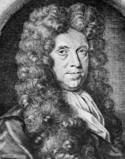


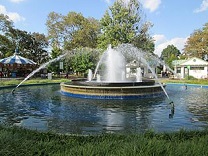
1682 On May 7 tsar (since 1676) Fyodor III (d. 1661) dies, and his younger brother Ivan V Alexeyevich (the Ignorant) Romanov (1666-96) (son of Alexis I) becomes Russian Romanov tsar #4, but since he's mentally ill and an invalid, his tall (6'8") but whimpy younger half-brother Peter I Alexeyevich (the Great) Romanov (1672-1725) becomes co-tsar, Russian Romanov tsar #5 (until Feb. 8, 1725), with Peter's sister Sophia Alexeyevna (1657-1704) as regent (until 1689). Amazing what oatmeal will do? On Apr. 5 the First Frame of Government by William Penn is adopted as the Great Charter (constitution) of Pennsylvania; it refuses to establish the Quaker church, fostering freedom of conscience; in Sept. Penn sails with several friends from England, and arrives in Philadelphia with 100 more settlers in Oct.; he builds the first brick house in Am., in a province that is almost pure forest, using bricks used as ship ballast on the trip to the New World (on the way to Europe they use export goods for ballast); on Dec. 7 the Great Law of Penn. limits the death penalty to premeditated murder; the Duke of York grants Penn the area of Delaware (on the W side of Delaware Bay), which he merges into Penn.; a group of twelve incl. Penn buys out Sir George Carteret's shares in East New Jersey, and then brings in twelve more partners. James Butler retires as lord lt. of Ireland, and next Nov. 9 is raised to the English peerage as the 1st duke of Ormonde - take beano before, and there'll be no gas? Mass. judge Joseph Dudley (1647-1720) is sent to England to secure the continuation of the Mass. charter, but ends up conspiring with Charles II to establish royal authority, beginning his rise. It's Christmas every day for the Frogs? Louis XIV convokes the Gallican Assembly of French Roman Catholic clerics, led by Reims archbishop Charles-Maurice Le Tellier (1642-1710) (brother of war secy. Francois-Michel le Tellier), which decides that the pope has no right to involve himself in French political affairs, enunciating the principles of Gallicanism, and issuing Declaration of the French Clergy, drafted by French bishop Jacques-Benigne (Jacques-Bénigne) Bossuet (1627-1704), with four propositions claiming limited autonomy (the regale) (ends 1870), opposed to Ultramontanism, i.e. total papal authority (the policy down there in Italy beyond those mountains). Japanese shogun Tsunayoshi pubicly reads the Great Learning by Confucius, becoming an annual tradition. New France gov.-gen. #6 (since 1672) Louis de Buade, Comte de Frontenac et de Palluau (1622-98) and his asst. are recalled to France after a cat fight (until 1689); meanwhile his boy Rene Robert Cavalier, Sieur de La Salle (1643-87) reaches the mouth of the Mississippi River from the Great Lakes, and claims all lands drained by the Mississippi River (incl. Okla. Territory) under the name Louisiana (La.) for King Louis XIV; the French colonial empire now reaches from Quebec to the mouth of the Mighty Mississippi until 1762, when it is ceded to Spain; in 1800 French emperor Napoleon I regains ownership. Buero da Silva explores the Central Mountains region of Brazil. Pires de Campos explores the rivers of South Am. West Florida, consisting of Florida and the coastal regions of La., Miss., and Ala. is split between the Spanish, based at Pensacola and the French, based at Mobile (until 1763). The first tornado is witnessed by Anglo settlers in New Haven, Conn., who claim it uproots a 3 ft. diam. oak tree. The Inuit discover Scotland. Versailles becomes the French royal residence (until 1789); the royal court consists of 20K people, incl. 9K soldiers; attendance at court by the aristocracy becomes necessary so that Louis XIV can rule over a court society as an absolute monarch; 1K courtiers and 4K servants live in the palace, which has no heating or sanitation - don't tell me how to be a father to my kids? A 100-loom weaving mill is built in Amsterdam. The English East India Co. establishes trade with Mashhad and Kirman in Persia to purchase imitations of Chinese blue and white porcelain, first fostered by Shah Abbas I. Cang Yingxuan becomes supt. of the Chinese imperial pottery kilns in Jingdezhen, developing techniques of enameling, composite monochrome glazing, blue underglazing, and transparent famille verte overglazing. John Skene, a member of the Old Aberdeen Lodge emigrates from Scotland to Burlington, N.J., becoming the first recorded Mason in North Am.; not to be confused with Sir John Skeene (1543-1617). The all-Latin Acta Eruditorum, the first scientific periodical in Germany is founded in Leipzig by Otto Mencke (1644-1707) (until 1776), going on to pub. articles by foreign scholars to create an internat. mental think tank, and in 1684 pub. Gottfried Wilhelm Leibniz's article on his invention of differential calculus; a stud, he goes on to found a line that incl. over 40K scientists and mathematicians, incl. #1 math brain Carl Friedrich Gauss; in 1707 his son Johann Burkhard Mencke (1675-1732) takes over. Sir George MacKenzie founds the Advocates' Library (later the Scottish Nat. Library) in Edinburgh. Architecture: Potsdam Palace (begun in 1660) is finished. William Penn builds Franklin Square (originally North East Publick Square) in Philadelphia, Penn. as one of five open-space parks; renamed in 1825 in honor of Benjamin Franklin; in 1838 Franklin Square Fountain is built, fed by water from the Schuykill River. Science: English botanist Nehemiah Grew (1641-1712) pub. Anatomy of Plants (4 vols.), containing the first microscopic description of pollen, founding plant anatomy. English astronomer Edmund Halley (1656-1742) discovers the 75.5-year period of Halley's Comet from observed data and his own calculated parabolic orbits, deducing that the comets of 1531, 1607, and 1682 are one and the same, and move in an elliptical orbit because they all have a Nodus Ascendus of about 20 deg. in Taurus. Isaac Newton proposes the partial decussation of the optic chiasm. Nonfiction: Pierre Bayle (1647-1706), Various Thoughts on the Occasion of the Comet of 1680; dispels popular superstitions. John Bunyan (1628-88), The Holy War. Georg Franck von Franckenau (19643-1704), De Ovis Paschalibus; first mention of the German Lutheran custom of the Easter Bunny. Francois Eudes de Mezeray, De l'Origine des Francais. Nehemiah Grew (1641-1712), Anatomy of Plants; founds the science of plant anatomy. Sir William Petty (1623-87), Quantulumcunque Concerning Money; pub. 1695.; An Essay Concerning the Multiplication of Mankind. Mary Rowlandson (1637-1710), The Sovereignty and Goodness of God: Being a Narrative of the Captivity and Restoration of Mrs. Mary Rowlandson; her 11-week abduction by the Mass. Indians during King Philip's War. Music: Plays: Nathaniel Lee (1653-92), Lucius Junius Brutus, Father of His Country (tragedy); gets him in trouble after Tarquin is taken as a satire of Charles II; The Princess of Cleve; adaptation of the noval by Madame de La Fayette. Jean-Baptiste Lully (1632-87), Persee (Persée) (Perseus) (Apr. 18) (Theatre du Palais-Royal, Paris; incl. Mortels, Vivez en Paix, Quel l'Enfer, la Terre et les Cieux. Thomas Otway (1652-85), Venice Preserv'd (London). Philippe Quinault (1635-88), The Triumph of Love. Thomas Shadwell (1642-92), The Medal of Bayes: a Satire Against Folly and Knavery; scurrilous attack on John Dryden (1631-1700), who replies with Mac Flecknoe, or a Satire on the True Blue Protestant Poet, T.S., who calls Shadwell "the last great prophet of tautology, and compares him to Richard Flecknoe (1600-78), with the soundbyte: "The rest to some faint meaning make pretense,/ But Shadwell never deviates into sense". Nahum Tate (1652-1715), The Ingratitude of a Commonwealth; his version of Shakespeare's "Coriolanus". Poetry: John Dryden (1631-1700) and Nahum Tate (1652-1715), The Medal (Absalom and Achitophel, Pt. 2); Elkanah Settle as Doeg and Thomas Shadwell as Og, containing the soundbyte "Two fools that crutch their feeble sense on verse;/ Who, by my muse, to all succeeding times/ Shall live, in spite of their own doggrel rhymes"; Religio Laici; defends Protestantism. Births: British colonial gov. (Mass., N.H., N.J.) Jonathan Belcher (d. 1757) on Jan. 8 in Cambridge, Mass.; educated at Harvard U. Portuguese historian-statesman (Roman Catholic) Manuel Teles da Silva, 3rd Marquis of Alegrete (d. 1736) on Feb. 6. Italian scientist ("founder of anatomical pathology") Giovanni Battista Morgagni (d. 1771) on Feb. 25 in Forli, Emilio-Ramagna; educated at the U. of Bologna. German landgrave of Hesse-Cassel (1751-60) William VIII (d. 1760) on Mar. 10 in Kassel; 7th son of Charles I (1654-1730); brother of Frederick I of Sweden (1676-1751). French "Fanfare-Rondeau" composer Jean-Joseph Mouret (d. 1738) on Apr. 11 in Avignon. British (Welsh) pirate Black Bart (Bartholomew Roberts) (John Roberts) (d. 1722) on May 17 in Pembrokeshire, Wales; most successful of the pirates, with 470 vessels captured. Swedish Wittelsbach king #4 (1697-1718) Charles (Karl) XII (the Habitue) (d. 1718) on June 17 in Stockholm; only surviving son of Charles XI (1655-97) and Ulrika Eleonora the Elder (1656-93); brother of Ulrika Eleonora the Younger (1688-1741). English Newton-Cotes Formulas mathematician Roger Cotes (d. 1716) on July 10 in Burbage, Leicestershire; educated at St. Paul's School, and Trinity College, Cambridge U. French Jesuit priest-traveller-historian ("First Historian of New France") Pierre Francois Xavier de Charlevoix (d. 1761) on Oct. 29 in Saint-Quentin, Picardy. Am. Salem Witch Trials accuser Elizabeth "Betty" Parris (d. 1760) on Nov. 28; daughter of Rev. Samuel Parris (1653-1720); cousin of Abigail Williams (1680-97). Italian mathematician Giulio Carlo, Count Fagnano (d. 1766) on Dec. 6. British #1 Baroque-Georgian-Palladian architect (Roman Catholic) (Tory) James Gibbs (d. 1754) on Dec. 23 in Aberdeen, Scotland; student of Carlo Fontana; namesake of the Gibbs Surround. German chemist Johann Friedrich Bottger (Bottiger) (Bottcher) (d. 1719) in Schleiz; inventor of Dresden (Meissen) china. Spanish soldier (founder of Montevideo) Bruno Mauricio de Zabala (d. 1736) in Zabala, Durango, Biscay. Ottoman valide sultan (1754-7) Sehsuvar Sultan (d. 1756); 2nd concubine of Mustafa II; Russian or Serbian noblewoman named Mary. Scottish pro-English nobleman Archibald Campbell, 3rd Duke of Argyll, 1st Earl of Ilay (d. 1761) in June at Ham House, Petersham, Surrey; 2nd son of Archibald Campbell, 1st duke of Argyll; brother of John Campbell, 2nd duke of Argyll; educated at Eton College, U. of Glasgow, and Utrecht U. Italian philologist-lexicographer Jacopo Facciolati (d. 1769) in Torreglia (near Padua); collaborator of Egidio Forcellini (1688-1768). Deaths: Italian architect Baldassarre Longhena (b. 1598) on Feb. 18 in Venice. French landscape painter Claude Lorrain (b. 1600) on Nov. 25 in Rome. Scottish soldier David, 1st Baron Newark (b. 1601). French landscape painter Claude Gellee (b. 1604). English writer Sir Thomas Browne (b. 1605) on Oct. 19. Spanish painter Bartolome Esteban Murillo (b. 1617). Italian mathematician-cardinal Michelangelo Ricci (b. 1619) on May 12 in Rome. Bohemian Prince Rupert, Count Palatine of the Rhine (b. 1619) on Nov. 29 in Westminster, England; buried in Westminster Abbey. French mathematician-astronomer Jean Picard (b. 1620) on Oct. 12 in Paris. Dutch painter Pieter Wouwerman (b. 1623). Dutch painter Jacob van Ruisdael (b. 1628) on Mar. 14 in Haarlem. Dutch sculptor Nicolaas van der Veken (b. 1637) on Oct. 30. Russian Romanov tsar #3 (1676-82) Feodor III (b. 1661) on May 7 in Moscow.




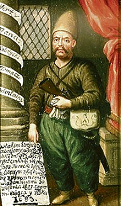




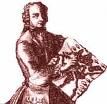


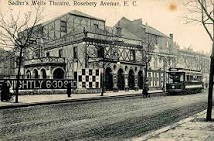

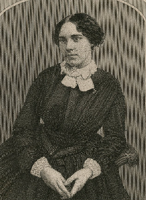
1683 The first planned American housing development? On Feb. 2 the Penn. Gen. Assembly rejects the First Frame of Government, and adopts the Second Frame of Government as their constitution, passing "at least seventy laws without one dissent" (William Penn); William Penn sets up a provincial postal system; on Oct. 6 13 families from Krefeld, Germany on the Rhine River (founded 1105) (one of the few towns spared the horrors of the Thirty Years' War of 1618-48, causing it to become overpopulated, unlike its sister town Uerdingen, which was almost wiped out) found Germantown (modern-day pop. 76K); meanwhile William Penn learns the Delaware language (how?), and in Oct. enters into a Treaty of Perpetual Friendship with the Lenni-Lenape tribe of the Delaware River Valley under Tamanend (Tammany) (Tammamend) (Tamanent) (Tamine) (1628-98) ("affable") while standing under Treaty Oak tree in Shakamaxon (Kensington, later part of Philadelphia), which lasts 50 years after Tammany utters the soundbyte that they would "live in peace as long as the waters run in the rivers and creeks and as long as the stars and moon endure" (a fairy tale?); Penn then allegedly sights the city of Dover, Del., and the planned city of Philadelphia, Penn. (Philly) (Gr. "brotherly love") (modern-day pop. 1.56M/6M), founded last Oct. 27 1 mi. from Shackamaxon at the junction of the Delaware and Schuylkill ("hidden channel") (pr. SKOOL-kuhl) Rivers in SE Penn., becoming the first city in North Am. with public parks?; it is incorporated on Oct. 25, 1701; land is purchased from the Lenape by William Penn that later becomes Abington Township, Penn. N of Philly - so what's your tire size? A touch of fame for a Pollock? On July 14 the Great Austrian-Turkish War (ends 1699) and the Polish-Turkish War (ends 1699) begin as 140K Turks with 300 cannon under Merzifonlu Kara ("Black") Mustafa Pasha (1634-83) begin the Second Siege of Vienna, held by only 20K troops under Count Ernst Rudiger von Starhemberg (1638-1701), culminating on Sept. 11 (the original 9/11) with the epic Battle of Vienna (Kahlenberg); the Christians hold out until Sept. 12 as sappers undermine the city walls, when Jan III Sobieski (1624-96) of Poland swallows his pride at the thought of the Ottoman border being so close to Cracow and allies with HRE Leopold I and duke Charles of Lorraine (1643-90) (who defeated Imre Thokoly of Hungary at Bisamberg 5km NE of Vienna in Aug.) to become CIC of the 84K-man combined armies and raise the siege with 3K Polish mounted Winged Hussars plus 34K Polish troops, 18.5K Austrians, 10.5K Bavarians, 9K Saxons, and 9.5K Swabian and Franconian troops, who stage the largest cavalry charge in history, making Sobieski a hero of Christendom, and marking the end of Islamic military conquests in Europe until ?; after the battle, Sobieski utters the soundbyte "Venimus, Vidimus, Deus Vincit" (We Came, We Saw, God Won); the Christian battle cry of "Maria Help" is amended at the suggestion of Johann Georg III of Saxony (who commands the left wing) to "Jesus and Maria Help", causing Sobieski to utter the soundbyte "The elector of Saxony is an honest man with a straight heart", after which Johann George III accompanies the HRE on his entry to Vienna, then abruptly leaves with his troops after they are treated like merde for being Protestants (kiss my ass, kiss your ass, happy Hanukkah?); after the liberation of Vienna, HRE Leopold I meets with Jan Sobieski in Schwechat near Vienna, which commemorted by an obelisk; Starhemberg also becomes a star, and is promoted to field marshal, but is severely wounded in 1686 at the siege of Buda and gets a desk job as pres. of the Hofkriegsrat; the V marks the hegemony of the Hapsburgs; on Dec. 25 Mustafa Pasha is strangled in Belgrade by the Janissaries and his head sent to sultan Mehmed IV in a velvet bag; too bad, Imre Thokoly, who fights with the Turks gets blamed by them for the whole D, and after rushing to Edirne to defend himself in front of the sultan, he flops and tries to make up with Sobieski, promising to lay down his arms if he is recognized as Protestant prince of Upper Hungary, but Sobieski demands unconditional surrender, and he has to fight on his own with neither side trusting him; the Turks leave massive stores of loot, with Sobieski uttering the soundbyte "Ours are treasures unheard of... tents, sheep, cattle and no small number of camels... It is a victory nobody ever knew of, the enemy now completely ruined, everything lost for them"; the first coffeehouse is opened in Vienna by Polish officer Jerzy Franciszek Kulczycki (1640-94) (known for escaping from the besieged city to get help) after the withdrawing sackers leave coffee sacks behind, introducing the custom of adding sugar and milk (melange); the first Vienna coffeehouse is really opened by Armenian Johannes Theodat in 1685?; like a rose that blooms then starts to decay, the Turkish Empire in Europe reaches its maximum extent, stretching from beyond Budapest on the Danube River, the Carpathians, and the headwaters of the Bug River to the Black Sea, Aegean, and Ionian Seas, with only Dalmatia (ruled by Venice) and Montenegro (semi-independent) as exceptions; after this, the Islamic world fails to keep pace with the West, incl. constructing public clocks, implementing standardized linear measurements, and modernization in general, compounded by pervasive autocracy. On July 28 after negotiations to marry the Prince of Hanover fall through, princess Anne Stuart (Stewart) (1665-1714) (future Queen Anne of England) marries prince George of Denmark (1653-1708), 2nd son of Frederick III (and a distant relation, since Anne is the great-great-granddaughter of Frederick II, father of James VI's consort Anna, and George is Frederick II's great-grandson), causing her to become known as Princess Anne of Denmark; the newlyweds are given a free apt. in Whitehall by her uncle Charles II, where she becomes friends with Lady Churchill, lady of the bedchamber, while having 18 pregnancies, of which only five end in live births, and all of them dying, some incl. Lady Mary and Lady Anne of smallpox; the couple gets into a rivalry with Anne's elder sister Mary and her hubby William II of Orange about who gets precedence at royal ceremonials, and also gets into money problems with overspending to keep up with the Oranges; their favorite country house is at Richmond until 1688, when they switch to Windsor. On Sept. 12 cloistered king (since Nov. 6, 1656) Afonso VI (b. 1643) dies in Sintra, and his brother Pedro (Peter) II (1648-1706) (regent since Jan. 1668) becomes king of Portugal and the Algarves (until Dec. 9, 1706). On Oct. 30 the New York Charter of Liberties and Privileges is passed, becoming the first act of its kind in the Am. colonies; it is suspended in 1685, then reenacted via a new charter in 1691, which stays in effect until the 1776 Am. Rev. On Nov. 22 the first choral society in London gives its first annual concert in honor of St. Cecilia, patron saint of music, who invented the forerunner of the organ and brought an angel down from heaven to listen? In Dec. the Great Frost of 1683-4 (worst until ?) strikes Europe and the British Isles, freezing the Thames River to a depth of 11 in. for 2 mo. and becoming the wettest recorded winter in the E Mediterranean in five cents.; a Frost Fair is held on the rideway of the River Thames in London between Southwark and the Temple until the ice melts on Feb. 6; the Thames freezes at least 8x in 600 years of the existence of the London Bridge because its 19 arches impede the river's flow ; the winters of the late 1680s are at least 3C cooler than in modern times all them scientific brains and no mention of global cooling? Spain declares war on France after France invades the Spanish Netherlands and occupies Luxemburg; HRE Leopold I and Charles II of Spain join the League of The Hague, a Dutch-Swedish alliance against France. The Rye House Plot to assassinate Charles II of England and replace him with the monomaniacal-mouthed 1st duke of Monmouth by Whig leaders Algernon Sidney, Lord William Russell, and Arthur Capel is discovered, and they are arrested, railroaded through the kangaroo court of Lord Chief Justice George Jeffreys, condemned and executed on Dec. 7, during which occasion big ham Sidney gives a big speech - the Whigs flip their lids? Dutch adm. Cornelis van Aerssen van Sommelsdijck (Sommelsdijk) (1637-88) founds the colony of Suriname in N South Am., and becomes gov. #1 (until 1688). Dutch traders are admitted to Canton. Louis XIV expels the Jews from the French colony of Martinique (founded 1635); many end up in Curacao, while several resist and remain until the French Rev. ends discrimination. German naturalist Engelbert Kaempfer (1651-1716) visits Java, Thailand, and Japan. The Qin Dynasty Manchus seize the island of Taiwan (Formosa) from the pirates, and it becomes an appendage of the province of Fujian (until 1895). Norfolk, Va. on Chesapeake Bay becomes the most populous city of Va. Wild boars become extinct in the British Isles. Henry Purcell becomes court composer to Charles II. Charles Lebrun becomes dir. of the Academie Royale. The Mitsui Family Banking and Trading House in Japan is founded by Mitsui Takatoshi (1622-94). Sadler's Wells in Islington, London (named after a well with curative properties) begins musical performances to go along with the water, going on to operate mainly in the summer to fill in the gap for the Theatres Royal in London. John Dryden coins the word "biography" to describe Plutarch's "Parallel Lives". William Penn founds a brewery in his new Pennsbury Manor on the Delaware River near Bristol, Penn., and as proprietor Penn makes sure that beer sellers in Penn. don't have to purchase a license; a $10 license is instituted in 1847; meanwhile William Frampton builds the first brewery in Philadelphia on Front St. between Walnut St. and Spruce St. at the Dock St. Creek. Architecture: Sir Christopher Wren rebuilds the red-brick-front St. James's Palace in Piccadilly, London fronting on Pall Mall, which started out as a hospital and was rebuilt as a manor by Henry VIII. Sadler's Wells Theatre on Rosebery Ave. in Clerkenwell, C London (cap. 1,560) opens, named after owner Richard Sadler and the monastic springs on the site, becoming the 2nd theater opened in London after the Restoration after Theatre Royal in Drury Lane, opening on Easter Monday and closing after summer; it is rebuilt in 1765; in 1843 after passage of the 1843 Theatres Act, new mgr. Samuel Phelps (1804-78) saves it from bankruptcy by introducing productions of Shakespeare that return to the text of the First Folio, starting with "Macbeth" in 1844, becoming the debut of actress Isabella Glyn (1823-89); in 1875 it becomes a roller skating rink, followed by a boxing arena; in 1879 it reopens as a music hall, featuring Harry Champion, Marie Lloyd, Roy Redgrave et al.; in 1896 it becomes a cinema; it closes in 1915. Inventions: A patent is awarded in England on May 1 for the extraction of salt from seawater. Science: Dutch linen draper Anton van Leeuwenhoek (1632-1723) (pr. lay-van-HOOK) invents a stronger (200x) microscope and discovers bacteria in the plaque of his own teeth, along with spermatozoa (not necessarily from the same place?) - I'm DJ Anton van Leeuwenhoek, and I'll allow you a look with my hooky hook hook? Isaac Newton discovers the effect of gravity on tides, and comes up with a mathematical theory - no matter how you shake and dance, the last few drops end up on your pants? Nonfiction: Edinburgh's True Almanac, or a New Prognostication; later called "Edinburgh Almanac". Antoine Arnauld (1612-94), Port-Royal Logic (La Logique ou l'Art de Penser Contenant Outre Les Regles Communes, Plusieurs Observations Nouvelles, Propres a Former le Jugement; std. logic text until the 20th cent. Bernard le Bovier de Fontenelle (1657-1757), Dialogues des Morts. Sir Matthew Hale (1609-76), A Discourse Touching Provision for the Poor. Father Louis Hennepin (1640-1701), Description of Louisiana, Newly Discovered in the Southwest of New France. Joseph Moxon (1627-91), Mechanick Exercises; Or, the Doctrine of Hand-Works Applied to the Art of Printing; the first printing manual. William Penn (1644-1718), A General Description of Pennsylvania. Sir William Petty (1623-87), The Growth of the City of London. Art: Sir Godfrey Kneller (1646-1723), Portrait of Sir Charles Cotterell. Plays: Edmonde Boursault, Le Mercure Galand (comedy). John Dryden (1631-1700) and Nathaniel Lee (1653-92), The Duke of Gise; pro-Tory adaptation of Sophocles' "Oedipus". Philippe Quinault (1635-88), Persee. Christian Weise (1642-1708), Von dem Neapolitanischen Rebellen Mansaniello (tragedy). Births: German organ-piano builder Gottfried Silbermann (d. 1753) on Jan. 14 in Kleinbobritzsch. French maggot scientist (entomologist) Rene Antoine Ferchault de Reaumur (d. 1757) on Feb. 26 in La Rochelle; educated at the U. of Poitiers, U. of Bourges, and U. of Paris. English queen consort (1727-37) Caroline of Brandenburg-Ansbach (d. 1737) on Mar. 1 in Ansbach, Germany; daughter of Margrave Johann Friedrich and 2nd wife Eleanor Erdmuthe Louise of Saxe-Eisenach; brother of Wilhelm Friedrich of Brandenburg-Ansbach; wife (1705-) of George II. German Baroque composer Johann David Heinichen (d. 1729) on Apr. 17 in Crossuln (near Weissenfeld); educated at the U. of Leipzig. English "Night Thoughts" poet-dramatist Edward Young (d. 1765) on July 3 in Upham (near Winchester); educated at New College and Corpus Christi, Oxford U. English poet-dramatist Pieter Langendijk (d. 1756) on July 25 in Haarlem - long what? French Baroque organist-composer (Freemason?) ("the Isaac Newton of Music") Jean-Philippe Rameau (d. 1764) on Sept. 25 in Dijon; collaborator of Louis de Cahusac (1706-59); looks strikingly similar to Voltaire? English king (1727-60) George II (d. 1760) on Oct. 30 (Nov. 9 Old Style) in Herrenhausen Palace, Hanover, Germany; son of George I (1660-1727) and Sophia of Celle (divorced in 1694); grows up in N Germany; son of George I (1660-1727) and Sophia Dorothea of Celle (1666-1726); husband (1705-) of Caroline of Brandenburg-Ansbach (1683-1737); last British monarch born outside Great Britain (until ?). Spanish king (1700-46) (founder of the Spanish House of Bourbon) Philip (Felipe) V (d. 1746) on Dec. 19 in Versailles; son of Grand Daupin Louis (1661-1711); grandson of Louis XIV of France; great-grandson of Philip IV of Spain; starts out as duke of Anjou, becoming the first Bourbon on the Spanish throne (1700-46). English poet Elijah Fenton (d. 1730) in Shelton (Stoke-on-Trent), Staffordshire; educated at Jesus College, Cambridge U. English "Lady Modish in The Careless Husband" actress Anne Oldfield (d. 1730) in London. English feminist scholar ("the Saxon Nymph") (pioneer of Anglo-Saxon studies) Elizabeth Elstob (d. 1756) in Quayside, Newcastle upon Tyne; sister of William Elstob (1673-1715). Deaths: English "The Complete Angler" writer Izaak Walton (b. 1593) on Dec. 15 in Winchester. Am. Rhode Island founder Roger Williams (b. 1603); a few years after his death his body is dug up, and they find that a nearby apple tree "ate" it? Dutch painter Jan Davidsz de Heem (b. 1606) on Apr. 26 in Antwerp. English Puritan divine Benjamin Whichcote (b. 1609). English dramatist-mgr. Thomas Killigrew (b. 1612) on Mar. 19 in Whitehall, London. English theologian John Owen (b. 1616). French finance minister Jean-Baptiste Colbert (b. 1619) on Sept. 6 in Paris; the bad financial condition of France at his death is blamed on him, causing his body to have to be secretly removed from his home to save it from a mob: "The art of taxation consists in so plucking the goose as to obtain the largest amount of feathers with the least possible amount of hissing"; "It is simply and solely the abundance of money within a state which makes the difference in its grandeur and power." English Whig leader Algernon Sidney (b. 1623) on Dec. 7 in Tower Hill, London (executed for treason after not being allowed to see the indictment); exonerated in 1688; leaves Discourses Concerning Government, arguing agaiinst the Divine Right of Kings and advocating a limited repub. govt., becoming "the textbook of the American Revolution" along with John Locke's "Two Treatises on Government", making him a martyr and hero; "[The] only ends for which governments are constituted and obedience rendered to them, are the obtaining of justice and protection"; "God leaves to man the choice of forms in government... He who institutes, may also abrogate." Italian architect Guarino Guarini (b. 1624) on Mar. 6 in Milan. Dutch painter Willem van Aelst (b. 1627) in Amsterdam. Dutch painter Pieter de Hooch (b. 1629). Ottoman grand vizier Merzifonlu Kara Mustafa Pasha (b. 1634) on Dec. 25 in Belgrade (executed by the Janissaries by strangulation with a silk cord, his head sent to Sultan Mehmed IV in a velvet bag); last words: "Make sure you tie the knot right." German poet Daniel Caspar von Lohenstein (b. 1635). Portuguese king (1656-83) Afonso VI (b. 1643) on Sept. 12 in Cintra. English poet John Oldham (b. 1653) on Dec. 7 in Holm Pierrepont (near Nottingham) (smallpox); John Dryden writes an elegy on his death.

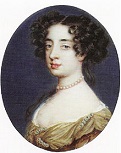







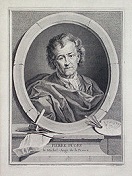
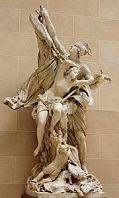
1684 On Aug. 15 after France seizes Trier and permanently occupies Lorraine, Louis XIV and the HRE conclude the temporary Truce of Regensburg (Ratisbon), making Saar a French province (until 1697). The Sixth Ottoman-Venetian War (Morean War) (War of the Holy League of Linz) (ends 1699) between the Roman Catholic Holy League of Linz (formed by the HRE, Poland, and Venice) and the Muslim Ottomans begins, giving Eugene of Savoy his big chance to make a name for himself as savior of Christianity. The Lords of Trade win a chancery court decision that annuls the charter of the Mass. Bay Colony as a Puritan state; England declares that the Am. colonies may not govern themselves, and Mass. is placed in the hands of a special royal commission. Bermuda becomes a crown colony. William Penn returns to England after only two years in his own brand name colony Pennsylvania - nobody had told him about the winters? The Siamese embassy arrives at the court of Louis XIV at Versailles. Bordeaux, France expels 93 man-fridays, er, Jewish families. The French capture Chandernagore (Chandannagar) in West Bengal 20 mi. N of Calcutta (until 1778). German naturalist Engelbert Kaempfer (1651-1716) travels to the Persian Gulf, Java, and Japan. Takemoto Gidayu (1651-1714), known for his Joruri puppet theater in Tokyo founds the Bunraku puppet theater in Osaka, consisting of puppeteers, chanters, and players (shamisen). French dramatist Pierre Corneille (b. 1606) dies, and his brother Thomas Corneille (1625-1709) takes his seat in the French Academy. Alessandro Scarlatti (1660-1725) becomes musical dir. of the court of Naples. French Huguenot Pierre Bayle (1647-1706) begins pub. the lit. review Nouvelles de la Republique des Lettres in Rotterdam. (St.) Jean Baptiste de la Salle (1651-1719) founds the Inst. of the Brothers of the Christian Schools in France, followed by a seminary for teachers next year, pioneering systematic education of teachers. Architecture: Jules Mansart builds the Orangerie at Versailles, complete with fully grown imported orange trees, and circled by the Stairs of a Hundred Steps. The awesome astounding Galerie des Glaces at Versailles (begun 1679) is completed. The Trinity College Library in Cambridge (begun 1676) is completed. The Machine de Marly (begun 1681), consisting of 14 36-ft.-wide water wheels working 221 pumps to pump water 177 yards up the hillsides from the Seine to two reservoirs near Versailles proves a costly failure, and a new effort is begun to divert the course of the Eure River to supply the ridiculous 1.4K fountains of Versailles Palace (ends 1686). Downing St. in London joining Whitehall to St. James's Park is built by soldier-diplomat Sir George Downing, 1st Baronet (1623-84) (known for arranging the acquisition of New Amsterdam from the Dutch) as a residence for Charlotte Lee, Countess of Lichfield (1664-1718), illegitimate daughter of Charles II, obtaining his permission to obtain the street after himself; No. 10 eventually becomes the official residence of the British PM, while No. 11 becomes the residence of the chancellor of the exchequer, and No. 12 the residence of the chief whip; his grandson Sir George Downing, 3rd baronet (1685-1749) leaves funds in his will that eventually (1800) are used to found Downing College at Cambridge U.; completed in 1686. Science: In May (Aug.?) celeb Edmund Halley visits Sir Isaac Newton in Cambridge to ask what orbit a body would describe under an inverse-square law of attraction, and Newton replies an ellipse, and that he had proved it years earlier but lost the papers and would rework it and send it to him, which he does in Nov., pub. De Motu Corporum in Gyrum (On the Motion of Revolving Bodies) in Dec., then expanding the work, until in 1687 he pub. his monumental "Principia" at Halley's expense; meanwhile Leibniz pub. his system of the integral and differential calculus independently of Newton, allegedly based on his own work from 1673-6, starting a doowahdiddydiddy credit-seeking race; Newton wins the decision for priority with the great tale of the apple in the plague year of 1666 and his killer theory of gravity, but Leibniz' cooler notation gets adopted by textbook writers. William Briggs describes night blindness. Anton van Leeuwenhoek makes the first microscopic observation of the retina, and discovers the rods and cones. The first triennial Croonian Lecture at the British Royal Society on the structure and function of the human brain is delivered. Nonfiction: Jacques Abaddie, (1654-1727), Treatise on the Truth of the Christian Religion; contains the immortal soundbyte: You can fool all the people some of the time and some of the people all the time, but you cannot fool all the people all the time", later attributed to Abraham Lincoln. Francois Bernier (1620-88), New Division of the Earth by the Different Species or Races of Man that Inhabit It (Nouvelle division de la terre par les différentes espèces ou races l'habitant) (Apr. 24); pub. anon. in the Journal des Savants; first work dividing humanity into races distinguished by skin color, with white Euros at the top (curiously lumped with people from India, the Middle East, SE Asia, and America, excusing the Egyptians and Indians because although they "are very black, or rather copper-colured, that colour is only an accident in them, and comes because they are constantly exposed to the sun"), followed by sub-Saharan Africans ("small, thin, dry, ugly, quick in running, passionately fond of carrion which they eat quite raw"), E Asians, and Sami (Lapps) ("a face that I don't know how to describe, except that it's long, truly awful, and seems reminiscent of a bear's face"), becoming the forerunner of scientific racism. Gian Cassini (1625-1712), Les Elements de l'Astronomie Verifies. Philipp von Hornigk (1640-1714), Austria Over All, If She Only Will (Osterreich Uber Alles, Wann es Nur Will); lays out the policy of mercantilism, stressing nationalism and self-sufficiency. Increase Mather (1639-1723), Remarkable Providences. John Partridge (1644-1714), Merlinus Redivivus, being an almanack for the year of our redemption (1st ed.). Music: Jean-Baptiste Lully (1632-87), Amadis de Gaule (opera) (Palais Royale, Paris) (Jan. 18); libretto by Philippe Quinault (1635-88). Alessandro Scarlatti (1660-1725), Pompeo (opera) (Naples). Art: Luca Giordano (1634-1705), The Creation of Man and Charon and Morpheus (Palazzo Medici-Riccardi, Florence (1684-6). Sir Godfrey Kneller (1646-1723), Portrait of the Duchess of Portsmouth. Pierre Puget (1620-94), Perseus and Andromeda (sculpture). Plays: Nathaniel Lee (1653-92), Constantine the Great. Thomas Otway (1652-85), The Atheist (London) - proves to be a jinx? Philippe Quinault (1635-88), Phaeton. Novels: John Bunyan (1628-88), The Pilgrim's Progress, Pt. 2; causes the female name "Christian" (Gk. "anointed") to become a popular boy's name, since he's the hero? Giovanni Paolo Marana (1672-92), L'Espion du Grand Seigneur. Births: Dutch writer (in French and Dutch) Justus van Effen (d. 1735) on Feb. 21 in Utrecht. Spanish PM (1725-6) (Roman Catholic) Johan Willem (John William) (Juan Guillermo), Baron of Ripperda (Ripperdá), 1st Duke of Ripperda (d. 1737) on Mar. 7 in Oldehove, Groningen, Netherlands. Russian Romanov tsar #6 (1725-7) Catherine (Yekaterina) I Alexeyevna (d. 1727) on Apr. 15 (Apr. 5 Old Style) in Ringen, Livonia; 2nd wife of Peter I the Great (1672-1725). Italian Baroque composer-violinist Francesco Onofrio Manfredini (d. 1762) on June 22 in Pistoia (near Florence); studies with Giuseppe Torelli; father of Vincenzo Manfredini (1737-99) and Giuseppe Manfredini. English (Flemish) sculptor John Michael Rysbrack (d. 1770) on June 27 in Antwerp; brother of Pieter Andreas Rysbrack. German composer-organist Johann Gottfried Walther (d. 1748) on Sept. 18 in Erfurt. French painter Jean-Antoine Watteau (d. 1721) on Oct. 10; inventor of the fete-galante (fête-galante) ("rich outdoor party") painting genre. British adm. Edward "Old Grog" Vernon (d. 1757) on Nov. 12 in Westminster, London; educated at Westminster School; namesake of George Washington's Mount Vernon. Danish dramatist-poet ("Father of Modern Danish Literature") Ludvig Holberg, Baron of Holberg (d. 1754) on Dec. 3 in Bergen, Norway; educated at the U. of Copenhagen and U. of Oxford; created baron in 1747. English bare-knuckle boxing champ (1719-30) ("Father of Modern Boxing") James Figg (d. 1734) in Thame, Oxfordshire. Venetian composer Alessandro Marcello (d. 1750). Deaths: Italian composer Nicolo Amati (b. 1596) on Apr. 12 in Cremona. French dramatist-poet Pierre Corneille (b. 1606) on Oct. 1; dies poor: "Guess, if you can, and choose, if you dare"; "To win without risk is to triumph without glory." English Parliamentarian gen. John Lambert (b. 1619) in Mar. in Drake's Island, Plymouth Sound; dies in prison after being convicted of treason in June 1662. English mathematician William, Viscount Brouncker (b. 1620) on Apr. 5. French physicist Edme Mariotte (b. 1620) on May 12 in Paris; independent discoverer of Boyle's Law. Irish-born British soldier-diplomat Sir George Downing (b. 1623) in July in Cambridgeshire. English Arundel Marble man Henry Howard, 6th duke of Norfolk (b. 1628) on Jan. 13. Dutch painter Pieter de Hooch (b. 1629). English horticulturist Robert Sharrock (b. 1630).








1685 On Feb. 2 "Merry Monarch" English king (since May 29, 1660) Charles II (b. 1630) (rumored to be a secret Roman Catholic despite running a debauched and immoral court and fathering 14 illegitimate children but no legitimate heir by his wife Catherine of Braganza) enters his last illness, asking for distilled human skull ("the King's Drops") as medicine; on Feb. 6 he dies a well-laid Roman Catholic after suffering a massive stroke while shaving, and his militant Roman Catholic brother James Stuart, duke of Albany and York succeeds to the throne of England and Wales as James II (1633-1701) (47th monarch and last Roman Catholic monarch of England), and the throne of Scotland as James VII (until Dec. 11, 1688); his followers are known as Tories; he soon passes laws to grant rights to Roman Catholics, and abolishes many anti-Irish laws, causing a simultaneous revolt in Scotland and England; in May-July the Monmouth (West Country) (Pitchfork) Rebellion begins to overthrow Roman Catholic James II, led by Charles II's eldest illegitimate son (a true blue Protestant) (might have been legitimate via a secret marriage?) James Scott, 1st Duke of Monmouth (1649-85), who lands at Lyme Regis in Dorsetshire, W England to raise a rebellion, proclaiming himself king, and is defeated on July 6 at the Battle of Sedgemoor in Somerset, captured and beheaded; the exiled duke of Argyll (Argyle) returns to Scotland to lead another rebellion, assisted by James II's son-in-law Prince William II of Orange, but is defeated and executed on June 30; James II tries to get his subjects to convert to Catholicism in vain, throwing the sop of toleration to Protestants, incl. Presbyterians in Scotland, ending the Killing Times (begun 1679); too bad, treason is treason, so he sends "Hanging Judge" Lord Chief Justice George Jeffreys, 1st Baron Jeffreys of Wem (1645-89) to conduct the Bloody Assizes against Monmouth's followers in S and W England starting on Aug. 25, which he does with ruthless disregard of the defendants' rights, sentencing 300+ to die and 800+ to penal transportation to the Am. colonies; one young man accused of uttering seditious words is sentenced to be "flogged through every market town in Dorsetshire every year" for seven years, and when the clerk of the arraigns objects, "My Lord, the prisoner is very young. There are many market towns in our county. The sentence amounts to whipping once a fortnight for seven years", Jeffreys replies "If he is a young man, he is an old rogue" - the origin of the 20th cent. U.S. mandatory sentencing guidelines? There is no such thing as a French Protestant, and that's that? On Oct. 22, 1685 the Edict of Fontainebleu by French Sun King Louis XIV revokes the 1598 Edict of Nantes, with the soundbyte: "His Majesty wishes the worst harshness on those who do not partake of his religion", instituting the idea of war secy. (1666-91) Francois-Michel le Tellier of the Dragonnades, obnoxious soldiers (dragoons) who are billeted to Huguenot households with a 007 license to harass and intimidate them, spurring a mass exodus from France, while 58K are forcibly converted to Roman Catholicism, causing 500K Huguenots to ignore prohibitions against emigration and emigrate to England (Spitalfields), Prussia (Brandenburg), the Netherlands, Switzerland, South Africa, and the English colonies in North Am. (N.Y., Mass., S.C.) to get away from the Sun King and his mandatory Roman Catholic faith; next Jan. 17 Louis XIV brags that only 1K-1.5K of 800K-900K Huguenots still remain in Sunny France; meanwhile on July 26 the elector of Brandenburg sees his chance and issues the Potsdam Declaration, offering Protestants refuge, causing French Huguenots to flock there, as well as others from the Netherlands, Bohemia, and Russia, pumping up the economy; the new Huguenots also boost the Dutch economy, pumping up William II of Orange; thousands settle in the Cevennes Mts. of S France and become known as the Camisards; the Protestants of Alsace obtain an exemption permitting freedom of worship; French Roman Catholic priest (since 1675) Francois de Salignac de Mothe-Fenelon (Mothe-Fénelon) (1651-1715), head (since 1678) of the Nouvelles Catholiques in Paris for female prospective converts to Roman Catholicism (since 1679) is sent as the head of a mission to convert the hard-headed Protestants of Saintonge - and ends up getting infected with wild and crazy ideas? In the winter Louis XIV secretly marries his 2nd wife, Puritanical Roman Catholic mistress Madame Scarron, AKA Francoise d'Aubigne (d'Aubigné), Marquise de Maintenon (1635-1719) after she won't give him benefits till he puts the secret ring on her finger; s he goes on to become influential at court, screening the king's ministers. Imre Thokoly seeks help from the pasha of Oradea in Hungary, who seizes him instead and sends him in chains to Edirne, ending his revolt and causing his followers to submit to HRE Leopold I. Elector Charles of the Palatinate dies without male heirs, and the succession is claimed by Louis XIV for his sister-in-law Liselotte, wife of the duke of Orleans, who is also Charles' sister, starting the War of the Grand Alliance (League of Augsburg) (1688-1697) against France. English fop comedy writer Sir George Etherege (1635-91) (knighted in 1680) is sent as English ambassador to Ratisbon (Regensburg) in Bavaria. In order to control them, James II merges the New England colonies into the Dominion of New England in America (ends 1689), governed from Boston starting next year by Gov.-Gen. Sir Edmund Andros (1637-1714) along with a council appointed by the crown (no rep. assembly). The Venetians begin conquering the Peloponnese (ends 1687). Chinese forces begin attacking the Cossack fort of Albazin in the Amur River region, claiming it as their own territory (until 1689). Aho Houegbadja (ruled since 1645) dies, and his son Houessou Akaba (-1708) becomes king #4 of Dahomey in W Africa (until 1708), with his royal symbols being a warthog and saber - I don't mean to brag, but take a peek? The city of Dresden in Saxony is burned down, and elector Johann Georg III hires architect Wolf Caspar of Klengel (1630-91) and sculptor Balthasar Permoser (1651-1732) to reconstruct it in the new Baroque Style; by 1689 its pop. is 21.3K, and it begins to rock; meanwhile JG3 meets and beds Venetian opera singer Margarita Salicola and brings her to Dresden, where she shows up the castrati. After taking part in the failed 1683 Rye House Plot to assassinate Charles II and James, Cromwellian soldier Richard Rumbold (1622-85) joins a failed plot to drive James from the throne, and is executed. All Chinese ports are opened to foreign trade. France founds the slave-trading Guinea Co. to stock French plantations; the Code Noir (Black Code), orders all Jews out of French colonies and forbids any religion other than Roman Catholic, while requiring plantation owners to treat their slaves humanely, although it is widely ignored - if my white wimmen ever got a taste of them black men? French Jesuit missionary Claude Jean Allouez explores W Lake Superior. The first French Huguenot settlers come to Texas. Scottish Dissenters found the town of Perth Amboy, N.J., named after James Drummond, 4th Earl and 1st Duke of Perth, and the Indian name Amboy; next year it becomes capital of East Jersey (until 1702). French Huguenots begin silk manufacture in England. The Dutch set up a factory in Bengkulu in SW Sumatra. The King of Lapakh freaks when he learns of a Christian church in the Shangri-La town of Tsaparang in the Tibetan Himalayas, and attacks it, executing the royal family, incl. the last king of Gage; he leaves the town standing, incl. its Red and White Temples; in the 1960s the Communist Chinese destroy the religious statues and images. Increase Mather becomes pres. of Harvard College (until 1701). Playfair invents the dance known as the Dark Horse. John Dryden sees the light and becomes a Roman Catholic. The 4th Queen's Own Hussars British cavalry regiment (originally Princess Anne of Denmark's Regiment of Dragoons) is founded (until 1958), which Sir Winston Churchill joins in 1899, becoming "the Greatest Hussar of them all". Sports: Down Royal (Downpatrick) Racecourse in Ireland is granted a royal charter by horse-loving Charles II. Architecture: The Pont Royal in Paris begins construction (finished 1689), known for its curved look. Science: Charles Allen of England pub. the first work on dentistry. Nonfiction: David Abercromby, De Pulsis Variatione. Charles Allen, The Operator for Teeth; first dental textbook in English. Philippe Sylvestre Dufour, Traitéz Nouveaux et Curieux du Café, du Thé et du Chocolat (New and Curious Treatises on Coffee, Tea and Chocolate); 2nd ed. 1688: one of the first books in French to address tea, extolling the leaf for its ability to cure headaches and aid digestion, offering prescriptions. Bernard le Bovier de Fontenelle, Lettres Galantes du Chevalier d'Her. Jean Hardouin (1646-1729) (tr.), Pliny's Natural History; claims without evidence that all of the ancient records and artifacts of Greece and Rome were forged by Benedictine monks, becoming the ancestor to Russian topologist Anatoly Fomenko, who claims that it was the Middle Ages that was forged, and that the historical timeline should be greatly condensed. Cesar de Rochefort, Dictionnaire General et Curieux. Music: John Dryden (1631-1700), Albion and Albanius (libretto to opera by Lewis Grabu). Jean-Baptiste Lully (1632-87), Roland (opera). Agostino Steffani (1653-1728), Solone (opera). Art: Sir Godfrey Kneller (1646-1723), Portrait of Philip, Earl of Leicester. Juan Carreno de Miranda (1614-85), La Monstrua Desnuda. Simon Ushakov (1626-86), The Mystical Supper. Plays: The Fourth Folio of William Shakespeare's works is pub. Philippe Quinault (1635-88), Amadis de Gaule. Poetry: Charles Montagu (1661-1715), Verses on the Death of King Charles II. Births: English dramatist Aaron Hill (d. 1750) on Feb. 10 in London. English lawyer-meteorologist George Hadley (d. 1768) on Feb. 12 in London; first to explain the trade winds. English "The Messiah" Baroque composer (in England) George Frideric Handel (Georg Friedrich Händel) (d. 1759) on Feb. 23 [Pisces] in Halle, Brandenburg-Prussia; becomes British subject in 1727; never meets J.S. Bach. Irish Immaterialist philosopher-mathematician and Anglican bishop of Cloyne (County Cork) George Berkeley (d. 1753) on Mar. 12 in Dysart Castle ner Thomastown, County Kilkenny; spends 3 years in North Am.; namesake of Berkeley, Calif. French portraitist Jean-Marc Nattier (d. 1766) on Mar. 17 in Paris; educated at the Royal Academy; known for portraits of Louis XV's court ladies in mythological attire. German "The Well-Tempered Clavier", "The Goldberg Variations" Baroque composer (#1 composer of all time) (world's first rocker?) Johann Sebastian "J.S." Bach (d. 1750) on Mar. 21 (Mar. 31 Old Style) in Eisenach, Saxe-Eisenach (East Germany); son of Johann Ambrosius Bach (1645-95) and Maria Elisabeth Lammerhirt (1644-940; nephew of Johann Christoph Bach (1645-93); brother of Johann Christoph Bach (1671-1721); father of Wilhelm Friedemann Bach (1710-84), Carl (Karl) Philipp Emanuel Bach (1714-88), and Johann Christian Bach (1735-82). English "The Beggar's Opera" neoclassic poet-dramatist John Gay (d. 1732) on June 30 in Barnstaple (Barnstable), Devonshire. English mathematician Brook Taylor (d. 1731) on Aug. 18 in Edmonton, Middlesex; educated at St. John's College, Cambridge U.; inventor of Taylor's Series in calculus and the calculus of finite differences. English silk machine inventor Sir Thomas Lombe (d. 1739) on Sept. 5 in Norwich; father HenryLombe is a worsted weaver. Austrian HRE (1711-40) Charles (Karl) VI (d. 1740) on Oct. 1 in Vienna; son of HRE Leopold I and 3rd wife Eleonore-Magdalena of Pfalz-Neuburg; husband of Elisabeth Christine of Brunswick-Wolfenbuttel; father of Maria Theresa (1717-80). English MP (1710-15, 1722-49) Sir George Downing, 3rd Baronet (d. 1749) on Oct. 24; only son of Sir George Downing, 2nd baronet (-1711) and Lady Catherine Cecil (-1688), daughter of James Cecil, 3rd earl of Salibury; cousin of Sir Jacob Downing, 4th baronet (1717-64). Italian composer-harpsichordist Giuseppe Domenico Scarlatti (d. 1757) on Oct. 26 in Naples; son of Alessandro Scarlatti (1660-1725); studies with his father then with Francesco Gasparini; spends most of his life in Spain and Portugal; founder of modern keyboard technique, incl. arpeggios, crossing of hands, and rapid repetition of a single note. Italian composer Lodovico Giustini (d. 1743) on Dec. 12 in Pistoia; first composer to write music for the piano. English landscape architect ("the Father of Modern Gardening") William Kent (d. 1748) in Bridlington, East Riding of Yorkshire; first gen. practitioner of landscape gardening?; "Frees the English garden from formality." Deaths: English-born Mayflower celeb Priscilla Alden (b. 1602) in Duxbury, Mass.; buried with hubby John Alden in Myles Standish Burial Ground in Duxbury, Mass. French statesman Michel le Tellier (b. 1603) on Oct. 30; dies happy 12 days after the signing of the Revocation of Nantes, with his son Francois Michel le Tellier firmly in charge. Dutch painter Adriaen van Ostade (b. 1610) on May 2 in Haarlem; leaves 385-900 paintings. English mathematician John Pell (b. 1610) on Dec. 10. Spanish painter Juan Carreno de Miranda (b. 1614) in Madrid. Scottish royalist gen. Sir Tam Dalyell of the Binns (b. 1615). Welsh jurist Sir Leoline Jenkins (b. 1625) on Sept. 1. English diplomat Charles Howard, 1st earl of Carlisle (b. 1629). English king (1660-85) Charles II (b. 1630) on Feb. 6 in Whitehall Palace, London (stroke); last words: "Let not poor Nelly starve": leaves her the Bestwood Country Park in Nottinghamshire: "I don't believe that God would condemn a man for a few irregular pleasures." English actress Margaret Hughes (b. 1630) on Feb. 6. Japanese emperor #111 (1655-63) Go-Sai (b. 1638) on Mar. 22. English pretender James Scott, 1st duke of Monmouth (b. 1649) on July 15 in London (executed in the Tower). English dramatist Thomas Otway (b. 1652) on Apr. 14. English poet Anne Killigrew (b. 1660) on June 16 in London (smallpox).






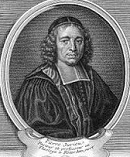

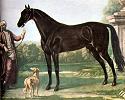
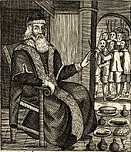
1686 In mid-June the Battle of Buda sees Buda Castle recaptured from the Turks (after 145 years) by the Holy League, led by Duke Charles of Lorraine, Karl of Lotharingia, and Eugene of Savoy; in mid-Aug. a Turkish relief army under Abdurrahman Abdi Pasha arrives, but Savoy's army engages in a rearguard action to keep them from aiding their comrades, breaches the Generalsturm (General's Tower) on Sept. 2; too bad, the bloodthirsty Christians are pumped up on tales of Turkish atrocities and begin raping and butchering the pop., until the elector of Bavaria and duke of Lorraine stop them, leaving 2K of 5K remaining; the remnant of pesky Jews, who are accused of aiding the Turks are expelled; the Muslim conquest of E Europe and invasion of W Europe is stopped at the gates of Budapest, and the Turks begin a 3-cent. retreat; the Byerley (Byerly) Turk (1684-1706) Arabian stallion is captured by Capt. Robert Byerley at the Battle of Buda, and he takes it to Ireland in 1689, after which it is crossbred with English mares, founding the Thoroughbred horse line in England; meanwhile Russia declares war on Turkey, starting the Third Russo-Turkish War (ends 1700). On May 6 despite opposition by Poland, the Treaty of Perpetual (Eternal) Peace is signed in Moscow by envoys of the Polish-Lithuanian Commonwealth, confirming the 1667 Treaty of Andrusovo, securing Russian possession of the left-bank country of Ukraine and the right-bank city of Kiev in return for a payment of 146K rubles. On July 9 HRE Leopold I and William of Orange form the League of Augsburg with Spain, Sweden, Bavaria, and the Palatinate to counter French expansionism to the E; Savoy and Pope Innocent XI later join as Romman Catholics, and Protestants unite under William of Orange to stop the Catholic Frogs, agreeing to maintain an army of 60K to fight them if they step over the line. On Sept. 12 the the sultanate of Bijapur in SW India (founded 1518), which once stretched as far S as Bangalore but has been systematically contracted is conquered by the Mughals under Aurangzeb, ending the rule of the adil shahs. In Dec. 300 Jewish families (followers of Shabatai Zevi) in Salonica convert to Islam, but continue to practice Judaism secretly, becoming known as Doenmehs (renegades), growing to 20K members by the 19th cent. and moving to Constantinople in 1913; Kemal Ataturk's father was one of them? Imre Thokoly is released by the Ottoman sultan and sent with a small army to take Transylvania, but he fails, and after a 2nd expedition in 1688 does ditto they imprison him again as a suspected double agent. James II appoints Roman Catholic Sir Edward Hales, 2nd Baronet (1626-84) as lt. of the Tower of London, who then prosecutes a collusionary test suit challenging the anti-papal laws, and wins, causing the king's popularity to 'ead to 'ades. James II dissolves the colonial legislatures in North Am., and appoints Joseph Dudley as gov. of the Dominion (Federation) of New England (incl. Mass., Conn. and parts of R.I.), then replaces him with Sir Edmund Andros (1637-1714), who arrives this year in Boston. French Jesuit orator Louis Bourdaloue (1632-1704) is sent by Louis XIV to Montpellier to convert the Huguenots - just a Midas touch? Roman Catholics are readmitted to the English army - all four of them, as long as they don't speak French? Elector Johann Georg III of Saxony appoints pietist Philipp Jakob Spener as his court chaplain in Dresden; too bad, the pop. doesn't accept him, and he moves to Brandenburg in 1691. A ship from Madagascar arrives in S.C. with the first rice plants (Carolina Gold) - this is a little warmer retreat? Arkansas (Ark.) is settled by Italian-born French soldier Henri de Tonti (1649-1704), who founds the Arkansas Post. The 11th cent. town of Erlangen in Bavaria on the Regnitz River 11 mi. NW of Nuremberg (modern-day pop. 110K) is refounded as Neustadt after the margrave of Brandenburg-Bayreuth assigns the land to French Huguenots fleeing persecution; in 1706 the old town burns down, and is rebuilt, and in 1812 the two towns merge. The city of Poughkeepsie (Wappinger "U-puku-ipi-sing" = reed-covered lodge by the little water-place) in the Hudson River Valley midway between Albany and New York City (modern-day pop. 30K/423K) is purchased from the Wappinger Indians by Englishman Robert Sanders and Dutchman Myndert Harmense Van Den Bogaerdt, and settled by the Dutch, who found the Reformed Church of Poughkeepsie in 1720, and incorporate it as a town on Mar. 27, 1799; it is chartered as a city on Mar. 28, 1854, becoming the 2nd capital of N.Y. during the Am. Rev., hosting the U.S. constitution ratification convention for N.Y. and becoming the county seat of Dutchess County, known as "the Queen City of the Hudson". The town of Mattatuck in Ct. on the Naugatuck River is incorporated as Waterbury, Conn. Quakers begin to meet in New Jersey. Speaking of French expansionism? After Louis XIV has trouble going number two last year, and the court doctors fail to dispel a small lump in his anus, surgeon Charles Francois Felix (1635-1703) is called in, and diagnoses an anal fistula; he agrees to remove it in 6 mo., after he has time to practice on several commoners' anuses, causing several fatalities but finally getting the technique down; on Nov. 18 he operates on the king at Versailles, and the operation is so successful that the year is dubbed "L'anee de la fistula", and Felix is showered with money and titles; as a side effect, the lowly stature of surgeons is greatly raised vis a vis doctors (who the Medieval Church prohibits from performing surgery) and "basin barbers". Louis XIV and Mme. de Maintenon found Maison St. Cyr, a convent school for daughters of poor gentlefolk. August Hermann Francke (1663-1727) founds the Collegium Philobiblicum for Bible studies at Leipzig. The Vatican removes the Apocrypha (14 books) from the Bible. The first theater in Sweden opens in Stockholm. Cafe Procope, named after French historian Procopius is opened in Paris by Sicilian chef Procopio Cuto (Cutò) (Francesco Procopio dei Coltelli) (1651-1727), serving that newfangled coffee along with sorbets in porcelain cups by waiters in exotic Turkish garb; it soon becomes a men-only club, the meeting place for French intelligentsia until the mid-1800s, the first literary coffee shop, and later the oldest Parisian restaurant to survive to modern times; Voltaire (1694-1778) later sits there all day drinking 40-50 cups of coffee mixed with chocolate; other celeb patrons incl. Honore de Balzac, Pierre Beaumarchais, Denis Diderot and Jean le Rond d'Alembert (who conceived of the Encyclopedie there), Victor Hugo, Jean-Jacques Rousseau, Benjamin Franklin, Thomas Jefferson, John Paul Jones, Napoleon Bonaparte, Henry Wadsworth Longfellow, and Oscar Wilde; a sign above the door later reads: "Cafe a la Voltaire", with the soundbyte: "Ice cream is exquisite. Pity it isn't illegal" being attributed to him. The effort to divert the Eure River is halted after a large cost in money and lives because the troops being used as labor are needed for war; eventually waters from the plateau between Versailles and Rambouillet are channeled to the palace. Architecture: Jules Hardouin-Mansart builds the L'Eglise Notre Dame royal parish church in Versailles. Charles II begins yet another Cathedral of Our Lady of the Pillar in Saragossa, Spain (finished 1686) to commemorate Apostle James the Greater's visitation in 40 C.E. Inventions: Abbe de la Roque, known for his Thur. afternoon philosophical sessions in Paris and his editing of a French scientific journal invents a perpetual motion machine consisting of a funnel with its stem curved back to return to the top - it works in the bedroom? Science: Edmund Halley offers a partial explanation of the trade winds - it's hot here, cold here, ta da? Isaac Newton invents the gravitational constant G. Nonfiction: Bernard le Bovier de Fontenelle, Entretiens sur la Pluralite des Mondes; the astronomical theories of Descartes. Edmund Halley (1656-1742), Weather Map; map of the trade winds and monsoons in the seas of the tropics; pub. in Philosophical Transactions of the Royal Society; the first weather map? Pierre Jurieu (1637-1713), The Fulfillment of the Prophets (L'Accomplissement des Propheties); French Huguenot pastor AKA "the Goliath of the Protestants" responds to the 1685 revocation of the Edict of Nantes by predicting the fall of the Antichrist (Pope) in 1689, stirring things up when the 1688 Glorious Rev. in England seems to be proving him right?; Lettres Pastorales Adressées aux Fideles (Fidéles) de France (3 vols.) (1686-87) (Rotterdam); Eng. trans. in 1689. Josiah King, The Examination and Trial of Old Father Christmas, Together with his Clearing by the Jury (London); after he is used by Royalist political pamphleteers as a symbol of the good old days of feasting and good cheer to lobby for the Restoration, it promotes Father Christmas, the English personification of St. Nicholas, known for Christmas feasting and merry-making sans mention of children, gift-giving, nocturnal visits, chimneys and stockings; after the Am. version of Santa Claus arrives in England in the 1850s, the images are merged by the 1880s. Jean Le Clerc, Bibliotheque Universelle et Historique (25 vols.) (1686-93). Gottfried Wilhelm Leibniz (1646-1716), Discourse on Metaphysics; not pub. until the 19th cent.; proposes that good exists independently of God, and that this world is the best of all possible worlds; "The opinions of scholastic philosophers are not to be wholly despised." John Ray (1627-1705), Historia Generalis Plantarum (3 vols.) (1681-1704); founds modern plant taxonomy, listing 18K species. Richard Turberville, The Alcoran Alembicked; or, A Short Guide to the Religion of the Turks. Francis Willughby (1635-72), Historia Piscium (posth.). Music: Jean-Baptiste Lully (1632-87), Armide et Renaud (opera) (Paris) on Feb. 15. Agostino Steffani (1653-1728), Audacia e Rispetto (opera); Prerogative d'Amore (opera); Servio Tullio (opera). Giuseppe Torelli (1658-1709), 10 Sonate a Tre, with Basso Continuo, Op. 1. Plays: Chikamatsu Monzaemon, Shusse Kagekiyo (puppet play) (Tokyo). Philippe Quinault (1635-88), Roland; his masterpiece? Poetry: John Dryden (1631-1700), To the Pious Memory of the Accomplish'd Young Lady Mrs. Anne Killigrew; compares her poetry to Sappho. Anne Killigrew (1630-60), Poems (posth.). Births: French "Clara le Rhinoceros" Baroque painter Jean-Baptiste Oudry (d. 1755) on Mar. 17 in Paris; son of Jacques Oudry; father of Jacques-Charles Oudry; student of French court painter Nicolas de Largilliere; known for his paintings of hunting and wild game. German physicist-engineer Daniel Gabriel Fahrenheit (d. 1736) on May 24 (May 14 Old Style) in Gdansk (Danzig), Prussia. Scottish merchant (co-founder of the Swedish East India Co.) Colin Campbell (d. 1757) in June in Edinburgh; first Swedish envoy to China. Italian Baroque opera composer and singing teacher Nicola (Niccolò) (Antonio) Porpora (d. 1768) on Aug. 17 in Naples; teacher of Farinelli and Matteo Capranica. German Late Baroque painter-architect Cosmas Damian Asam (d. 1739) on Sept. 29 in Benediktbeuern; brother of Egid Quirin Asam (1692-1750). Scottish "The Gentle Shepherd" "Give me a lass with a lump of land" poet (#1 before Robert Burns) Allan Ramsay (d. 1758) on Oct. 15 in Leadhills, Lanarkshire, England; father of painter Allan Ramsay (1713-84); moves to Edinburgh in 1701 to make wigs, and becomes a bookseller in 1718, turning to poetry on the side. Irish writer Rev. Samuel "Premium" Madden (d. 1765) on Dec. 23 in Dublin; establishes premiums for learning at Trinity College, Dublin in 1731, hence his nickname. Italian composer Benedetto Marcello (d. 1739). Am. publisher Andrew Sowles Bradford (d. 1742) in Philadelphia, Penn.; son of printer William Bradford (1663-1752); brother of New York City printer William Bradford Jr. (1722-91). Tripoli pasha (1711-1835) (Sunni Muslim) Ahmed Karamanli (d. 1745); of Turkish descent; starts out as a Janissary. Italian Palladian-Georgian architect Giacomo (James) Leoni (d. 1746) in Venice. English astronomer-mathematician John Machin (d. 1751). English mystic Jacobite divine William Law (d. 1761) in Kings Cliffe, Northamptonshire; educated at Emmanuel College, Cambridge U. Deaths: German physicist Otto von Guericke (b. 1602) on May 21 (May 11 Old Style) in Hamburg. English antiquary Sir William Dugdale (b. 1605) on Feb. 10 in Blyth Hall, Shustoke, Warwickshire. French architect Francois Blondel (b. 1618) on Jan. 21 in Paris. English Puritan divine Thomas Watson (b. 1620) - and the shark, or and the computer? French military leader Louis II, prince of Conde (the Great Conde) (b. 1621) on Nov. 11 in Chantilly; reconverts to Roman Catholicism a year before death; Jacques Bossuet delivers a famous Funeral Oration on the Great Conde. Swedish statesman Count Magnus Gabriel De la Gardie (b. 1622) on Apr. 26 in Venngarn Castle, Sigtuna. English music writer John Playford (b. 1623) in London. Russian artist Simon Ushakov (b. 1626) on June 25 in Moscow. Danish scientist Nicolaus Steno (b. 1638) on Nov. 25 in Schwerin; buried in the Basilica of San Lorenzo in Florence. English public executioner (hangman) Jack Ketch (b. ?).








1687 Pop. of Ireland: 1.3M. There is a measles epidemic in Boston, Mass., becoming the first in 30 years. On Feb. 12 (Scotland) and Apr. 4 (England) James II of England issues his Declaration of Indulgence (Declaration for Liberty of Conscience), granting liberty to all denominations in England and Scotland, esp. his own Roman Catholicism, suspending penal laws enforcing conformity to the Church of England, and permitting persons to worship in homes or chapels as they see fit, ending the requiring for religious oaths for govt. office, permitting non-Anglicans a little breathing room in merry Britain. On Mar. 19 French explorer Rene Robert Cavalier, Sieur de La Salle (b. 1643) is murdered by mutineers in Texas. In Mar. Jesuit Father Eusebio Kino (1645-1711) founds the first Roman Catholic mission in Sonora, Mexico among the Pima Indians, then explores and becomes the first person to map S Ariz. On May 2 Japanese emperor (since 1663) Reigen (b. 1654) abdicates in favor of his 5th son Higashiyama (1675-1710) (personal name Asahito), who becomes Japanese emperor #113 (until July 27, 1709), going on to revive the ceremonial rice offering (Daijosai) by a new emperor. On July 5 English #1 superbrain Sir Isaac Newton (1643-1727) pub. Philosophiae Naturalis Principia Mathematica (pr. prin-KIP-ee-ya), founding celestial and terrestrial mechanics with his Three Universal Laws of Motion, proving the inverse square law of gravitation and many other basic results after a bitter feud with Robert Hooke (1635-1703) over priority; the rough ms. is finished on June 20, 1686, but he adds a section on comets with the help of John Flamsteed; the preface acknowledges Edmund Halley, saying "it was through his solicitations that it came to be published"; "But hitherto I have not been able to discover the cause of those properties of gravity from phenomena, and I frame no hypothesis; for whatever is not deduced from the phenomena is to be called an hypothesis; and hypotheses, whether metaphysical or physical, whether of occult qualities or mechanical, have not place in experimental philosophy. In this philosophy particular propositions are inferred from the phenomena, and afterwards rendered general by induction. Thus it was that the impenetrability, the mobility, and the impulsive force of bodies, and the laws of motion and of gravitation, were discovered. And to us it is enough that gravity does really exist, and act according to the laws which we have explained, and abundantly serves to account for all the motions of the celestial bodies and of our sea." On July 13 the French under New France gov. (1685-9) Jacques Rene de Brisay, Marquis de Denonville (1637-1710) defeat Seneca warriors at the Battle of Victor in W N.Y. On Aug. 12 60K Turks (incl. Mamluk slaves and 40K Balkan mercenaries) under Suleiman Pasha are defeated by 60K Austrians under Duke Charles of Lorraine at the Second Battle of Mohacs (Battle of Harsany Mountain) (first in 1526), with 10K Ottoman vs. only 600 Austrian casualties, opening Austria's way to Belgrade, after which the Turkish army revolts, and sultan (since 1648) Mehmed IV (1642-93) is deposed and replaced by his caged brother Suleiman II (1642-91), who becomes Ottoman sultan #20 (until 1691), at first refusing to leave the cage when they come for him, thinking it's a trick to assassinate him; Eger Castle (taken in 1552) is starved into surrender by Charles of Lorraine's army. On Sept. 26 the Parthenon and Propylaea on the Acropolis in Athens are destroyed by a Venetian bombardment of the Turks; a small mosque is built in the Parthenon's cella. In Oct. after Conn. fails to cooperate with the new Dominion of New England, Sir Edmund Andros tries to take possession of the charter, appearing in the Hartford council chamber with an armed guard, which they hide in the 12th cent. Charter Oak (cut down in 1856); John Wise (1652-1725), Congregational minister (since 1680) of Ipswich, Mass. leads a protest against royal govt. Edmund Andros' taxes. In Nov. the Hungarian Diet of Pressburg recognizes the crown as the hereditary possession of the male line of Hapsburgs; on Dec. 9 9-y.-o. Joseph I, son of HRE Leopold I is crowned king of Hungary. Savoy joins the League of Augsburg. The Dzungar-Qing Wars begin between the Dzungar Khanate in Mongolia and the Qing Dynasty of China, ending in 1757 with the Qings incorporating Outer Mongolia. James II receives the papal nuncio, pissing-off the Protestant pop.; he creates his French-born illegitimate son (by Arabella Churchill, sister of the 1st Duke of Marlborough) James FitzJames (1670-1734) as duke of Berwick, and he goes on to become one of the top military strategists of his day; he appoints his brother-in-law Richard Talbot, 1st Earl of Tyrconnell (1630-91) as viceroy of Ireland, reversing Charles II's pro-Protestant policy and advancing Roman Catholics to state positions and giving them control of the militia, causing the Roman Catholic pop. to fall in love with him; when Tyrconnell tries to garrison some Catholic troops in Protestant-dominated Derry, the Young Apprentice Boys shut the gates to them. Louis XIV sends his ambassador Henry Charles, Marquis de Lavardin (1643-1701) (descendant of Jean de Beaumandoir, marquis de Lavardin, who turned from Protestant to Catholic after the 1572 St. Bartholomew's Day Massacre) to Rome with an armed force of 1K men to maintain his claim on his franchises, or royal whorehouses, inherited from Roman nobles. Veera Kerala Varma V dies, and Rama Varma III (-1693) becomes king of Cochin in India (until 1693). Francis Nicholson (1655-1728), who sailed to New England last year with Sir Edmund Andros becomes lt.-gov. of N.Y. until 1689, then gov. until 1690. Brandenburg establishes a colony in Arguin, Guinea. French Protestants settle in Cape Colony and subsequently intermarry with the Dutch settlers, making true Boers? Divan member Sidi Mehmet Ibrahim of Algiers writes a diatribe against granting the petition of the Erika Purists to abolish Islamic piracy and slavery of Christians, saying that the Quran condones slavery, and that they need their supply of 50K slaves, and if they were released they would become a nuisance, which is quoted by Benjamin Franklin in a letter to the Federal Gazette printed on Mar. 23, 1790. After the English pirate ship Cygnet under Capt. Charles Swan (-1690) captures a ship off Manila, William Dampier (1651-1715) sails in it from Timor to explore W Austrlia, anchoring next Jan. 5 near King Sound on the NW coast and returning to England in 1691 via the Cape of Good Hope, becoming his 3rd circumnavigation, going on to pub. A New Voyage Round the World in 1697, which becomes a bestseller. English physician, milk chocolate inventor and curiosity collector Sir Hans Sloane (1660-1753) begins his botanical collection on a visit to Jamaica. German philosopher Christian Thomasius (1655-1728), who pub. "The Crime of Bigamy" in 1685 arguing that natural law permits it shocks the German univ. system by lecturing in German rather than Latin, with the topic "How One Should Emulate the French Way of Life", noting that they use their native language in scholarship, beginning the German Enlightenment; after the Protestant ministers chase him out of Leipzig to Halle in 1690, where he helps found the U. of Halle. Francis Perot's Sons Malting Co. is founded in Philadelphia, Penn. by Anthony Morris as the Brew House, becoming the oldest business house in the U.S.; it closes in 1894. Architecture: Leonardo de Figuero builds the Hospital de Venerables Sacerdotes for elderly priests in Seville, Spain. Nonfiction: Jacques-Benigne Bossuet (1627-1704), Histoires des Variations des Eglises Protestantes. William Bradford (1663-1752), America's Messenger; America's first almanac, printed on the first printing press in the Middle Colonies; real title "Kalendarium Pennsilvaniense" by Samuel Atkins, pub. by newly arrived (1685) printer Bradford; too bad, a reference to him pisses off gov. William Penn (1644-1718), and in 1687 he is prohibited from printing anything about the Quakers without approval, after which Bradford finally gives up and returns to England in 1690, and ends up in New York City by invitation in 1693, where he pub. what he wants, incl. tracts getting even with forked-up Philly. Francois Fenelon (1651-1715), Traite de l'Education des Filles (Treatise on the Education of Girls); a middle course between higher education for women and keeping them barefoot and preggers. Bernard le Bovie de Fontenelle, Histoire des Oracles; attacks superstition. Gabriel Francois Le Jay, Le Triomphe de la Religion sous Louis le Grand. Gerard Langbaine, A New Catalogue of English Plays. Increase Mather (1639-1723), A Testimony Against Several Profane and Superstitious Customs Now Practiced by Some in New England; argues against celebration of Christmas. Sir Isaac Newton (1643-1727), Philosophiae Naturalis Principia Mathematica (Natural Philosophy and Principles of Mathematics) (1687-1727). Dr. Nicolas Venette, L'Amour Conjugale; a love manual so popular that it goes through a dozen eds. in five languages. Samuel von Pufendorf (1632-94), The Relation of Religious Liberty to Civilian Life. John Wallis (1616-1703), Institutio Logicae. William Winstanley, Lives of the English Poets. Music: Agostino Steffani (1653-1728), Alarico (opera). Art: Anon., The Massacre of the Innocents (St. Catherine's Chapel, Cathedral of St. Mary, Pamplona, Spain). Melchior d'Hondecoeter (1636-95), Park with Poultry. Sir Godfrey Kneller (1646-1723), The Chinese Convent. Plays: Sir Charles Sedley (1639-1701), Bellamira; or, The Mistress; based on Terence's "Eunuchus", with Bellamira representing Charles II's mistress the duchess of Cleveland. Poetry: John Cotton II (1640-99), Verses Occasioned by the Death of John Alden. John Dryden (1631-1700), The Hind and the Panther; defends Roman Catholicism; Song for St. Cecilia's Day; written for the London St. Cecilia Society and set to music. Births: German Baroque architect Johann Neumann Balthasar (d. 1753) on Jan. 22 in Eger (Cheb), Bohemia. German Greek scholar (Lutheran) Johann Albrecht Bengel (d. 1752) on June 24 in Winnenden, Wurttemberg; educated at the U. of Tubingen. English "Sally in Our Alley" poet-dramatist-songwriter Henry Carey (d. 1743) on Aug. 26 in London; illegitimate son of George Saville, 1st marquess of Halifax (1633-95); known for his anti-Robert Walpole satires. Scottish Simpson Line mathematician Robert Simpson (d. 1768) on Oct. 14 in West Kilbride, Ayrshire. Swiss mathematician Nicolaus Bernoulli (d. 1759) on Oct. 21. British antiquarian (Freemason) William Stukeley (d. 1765) on Nov. 7 in Holbeach, Lincolnshire; educated at Corpus Christi College, Cambridge U. Italian Jesuit writer Giovanni Battista Scaramelli (d. 1752) on Nov. 24 in Rome; coiner of the term "asceticism" in place of "mystical". German queen Sophie Dorothea (d. 1757); mother of Frederick II the Great. Italian violinist and composer Francesco Geminiani (d. 1762). Deaths: Dutch poet-composer Constantijn Huygens (b. 1596) on Mar. 28 (Good Fri.) in The Hague; buried with his son Christiaan Huygens in the Grote Kerk; namesake of the Constantijn Huygens Award (1947). English-born Pilgrim John Alden (b. 1599) in Duxbury, Mass.; buried with wife Priscilla in Myles Standish Burial Ground; last surviving signer of the Mayflower Compact; becomes a char. in Longfellow's 1858 poem "The Courtship of Myles Standish", proposing to Priscilla Mullens on behalf of his shy widowed friend Standish, whereupon she asks, "Why don't you speak for yourself, John?" - I'm wearing Versaci, how beautiful is this? English Cavalier poet Edmund Waller (b. 1606). German astronomer Johannes Hevelius (b. 1611) on Jan. 28 in Danzig. English philosopher Henry More (b. 1614) on Sept. 1. German-English mathematician Nicholas Mercator (b. 1620) in Paris. Swiss painter Matthaus Merian the Younger (b. 1621) in Frankfurt. English economist-philosopher Sir William Petty (b. 1623) on Dec. 16. Italian architect Agostino Barelli (b. 1627) in Bologna. English statesman George Villiers, 2nd duke of Buckingham (b. 1628) on Apr. 16. English poet Charles Cotton (b. 1630). French composer Jean Baptiste Lully (b. 1632); dies from blood poisoning after he strikes his foot with his cane accidentally while conducting a Te Deum for the king. German duke of Brunswick-Luneburg Ferdinand Albert I (b. 1636) on Apr. 25 in Bevern. Danish scientist Steeno (b. 1638). French explorer Rene Robert Cavalier, Sieur de La Salle (b. 1643) on Mar. 19 in Texas (murdered). English actress (mistress of Charles II) Nell Gwyn (b. 1650) on Nov. 14 in Pall Mall, London (stroke).








1688 Pop. of the British colonies in Am.: 250K (12 of the 13 colonies have now been founded); French colonists in Am.: 12K; British pop. of the West Indies: 90K; the trade of the Am. and West Indies British colonies now accounts for 12% of England's total external trade. On Apr. 27 James II issues his Second Declaration of Liberty of Conscience (Indulgence), and orders it read in all churches on May 4, causing the archbishop of Canterbury and six other bishops to petition him, claiming the order to be illegal, which gets them put in the beep-beep-bad-girls Tower. On Apr. 29 the "Great Elector" Friedrich Wilhelm (b. 1620) dies, leaving an army of 40K soldiers, and his 3rd son Frederick III of Hohenzollern (1657-1713) becomes elector of Brandenburg, going on to become the first king of Prussia on Jan. 18, 1701 (until Feb. 25, 1713). On June 3 Maximilian Henry von Wittelsbach (b. 1621) dies after being named bishop of Munster in 1683 and Pope Innocent XI refusing to confirm him, and Joseph Clemens von Wittelsbach of Bavaria (1671-1723), brother of Bavarian elector Maximilian II is appointed archbishop-elector of Cologne by Pope Innocent XI (until 1723). Help us choose a family pet, a python, a beagle, or a goat, where's the goat? On June 10 James II and his 2nd wife Mary Beatrice of Modena surprise everybody by bearing son and heir James Francis Edward Stuart (1688-1766), pissing-off the Protestants since they know he's going to be brought up Roman Catholic, causing them to plot the king's abdication in favor of his Protestant daughter Princess Mary and her Protestant hubby Prince William of Orange, claiming the baby was smuggled into tho the nursery in a warming pan after the real one is stillborn; meanwhile on June 29-30 the Trial of the Seven Bishops ends in their acquittal on the morning of June 30, beginning England's bloodless Glorious (Bloodless) Rev., when in the afternoon of June 30 (Wed.) after viewing scenes of public celebration, the "Immortal Seven" (eminent English leaders both Tory and Whig, representing a broad cross-section to convince them it's for real) send the Letter of Invitation (their names signed in two-digit codes as 24, 25, 27, 29, 31, 33, 35) to the king's son-in-law, the very PC (Protestant Continually) William III of Orange (1650-1702) (stadholder of the Netherlands since 1672) (son of Duke William II and Princess Mary Stewart, daughter of Charles I) and his equally PC wife Mary Stuart (1662-94) (James II's daughter by first wife Anne Hyde, and sister of Princess Anne) (4 in. taller than him and 12 years younger, who has gone from a young, slim, sweet-16 bitchin' babe on their honeymoon to a big-boned manly woman with a double chin by now?) to save England from Roman Catholic tyranny, which they accept on Sept. 30; on Oct. 22 James II summons the privy council to hear witnesses present at the birth attesting to its legitimacy, which doesn't satisfy his enemies, but gves William of Orange an excuse for invasion to insure a proper investigation; on Nov. 5 William lands in the health resort of Brixham in Torbay (Tor Bay) in South Devon, 23 mi. S of Exeter and 220 mi. SW of London, then travel to London, reaching it in Dec., causing James II to send the queen and infant prince James to France on Dec. 10 then flee on Dec. 11 before William arrives, taking a rowboat down the Thames River and throwing the Great Seal of England into the river to ensure that his enemies can't use it to forge an abdication document; meanwhile on Dec. 11 anti-Catholic mobs romp in London, burning chapels and attacking the homes of ambassadors from Catholic states; on Dec. 12 a provisional govt. is set up in London, and James is caught and brought back to London, but he escapes and makes it to France on Dec. 22; on Dec. 19 William triumphantly enters London, ending the Glorious Rev.; Princess Anne of Denmark (future Queen Anne), a devout Anglican deserts her father James' cause, fleeing to Nottingham, causing James to blame her and her Protestant sister Mary for losing his throne, and leaving her with guilt feelings for life; meanwhile the Nonjuring Schism sees the Anglican churches split over accepting William as regent or king, with the latitudinarian clergy going for king, and the nonjuring clergy going with regent, ending up as nominal Jacobites after the latitudinarian Anglicans gain control of the Church of England, and the Presbyterians gain control of the Church (Kirk) of Scotland. In June the Commission for the Mechanism of the Kingdom of Hungary is created to make Hungary into an absolutist state; Transylvania becomes a province under the king of Hungary. In Oct. after an imperial league of Christians begins to retake Belgrade (finished 1690) from the Turks, occupying it, Louis XIV takes advantage of HRE Leopold I's absence to invade the Palatinate and take and sack Heidelberg (next time 1693), and puts his candidate Von Furstenberg, bishop of Strasbourg up for the archbishopric of Cologne over Prince Clement of Bavaria. Sir Edmond Andros merges New York and New Jersey into the Dominion of New England (1686-89) to strengthen its defenses against France, with his jurisdiction extended over all territory between the St. Croix and Delaware Rivers, allegedly to better defend against the pesky French; Puritan fears that he is out to break them are helped by suppression of town govts., imprisonment of protesters, and his takeover of a Puritan church in Boston for Anglican services. Queen Inayat Zakia of Indonesia dies, and is succeeded by Queen Kamalah (-1699) (until 1699). Galdan Boshugtu Khan (1644-97), chief of the Olot (Eleuth) Dzungars invades Mongolia from C Asia. An earthquake destroys Smyrna. French Huguenot refugees establish themselves at Spitalfields in East End, London, and help the English develop their first silk industry - fileds of silkworms spitting silk? This year and next 300 French Huguenot refugees arrive in South Africa, causing a culture war which the Dutch win with a 1701 law that only Dutch should be taught in schools, causing them to be assimilated by the mid-18th cent., when the total number of white colonists numbers 8K-10K. Before being deposed, James II creates the Radclyffe Family of Northumbria as the earls of Derwentwater; they go on to support the Jacobite cause. Va. tobacco production reaches 9K tons this year. Jesuit settlers of the Ladrones Islands (discovered 1521) name them the Marianas in honor of Mariana of Austria, mother of Charles II of Spain. The End of the Age of Dryden? The big Whig V causes John Dryden to be dismissed from his post of poet laureate of England and his pension to stopped for his now non-PC Roman Catholicism, and he is replaced by Whig-friendly Thomas Shadwell (1642-92); Dryden returns to writing plays, but without much success. Italian priest-composer Agostino Steffani (1653-1728) becomes kappelmeister at the court of Hanover, where he helps open a new opera house next year, and has a long career, becoming a BMOC and making friends with Leibniz and other literati, and helping Handel at the start of his career in 1710. Charles Sanson de Longval (1657-1707) receives the office of high executioner of Paris, and it becomes hereditary in his family. Now that England is assuredly Protestant, we can take bets? Edward Lloyd's Coffee House, owned by Edward Lloyd (1648-1713) opens on Tower St. in London, and underwriters begin meeting regularly there, moving in Dec. 1691 to Lombard St. and becoming Lloyd's of London; in 1774 the members form a committee and move to the Royal Exchange on Cornhill, becoming the Sciety of Lloyd's; the word "tips" comes from a sign placed there that reads "To Insure Prompt Service"? Architecture: Notre Dame des Victoires Church in Quebec, Canada is built, becoming the oldest stone church in North Am. Inventions: Polished Plate glass is developed by Louis Lucas de Nehou and A. Thevart of France, rolling molten glass poured on an iron table, making large plates possible; about 1800 a steam engine is used for grinding and polishing. Science: French scientist Joachim Dalence (Dalencé) (1640-1707) introduces a new calibration of the alcohol-glass thermoscope by choosing the melting point of snow as -10 deg. and the melting point of butter as +10 deg. - makes sense for French cooks? Italian physician Francesco Redi (1626-97) attempts to prove that ain't fresco ready to eat rotting meat cannot spontaneously turn into maggots, starting a Debate on Spontaneous Generation that goes on for two cents. Nonfiction: Jean de La Bruyere (1645-96), Les Caracteres (Caractères); slams Thomas Corneille (1625-1709), Bernard le Bovier de Fontanelle, Isaac de Benserade et al.; "Makes him many readers and many enemies" Nicolas de Malezieu). Bernard le Bovier de Fontenelle (1657-1757), Digression sur les Anciens et les Modernes; takes the side of the progressive lit. faction in Paris against the Ancients (Jean Baptiste Racine, Nicolas Boileau-Despreaux (1636-1711), et al.), who imitate ancient Greek authors, expressing the opinion that common sense had not existed before Rene Descartes (1596-1650), and slowing down his admission to the Academie Francaise until 1691. Charles du Fresne, Sieur du Cange (1610-88), Glossarium ad Scriptores Midiae et Infimae Graecitatis. Henry More (1614-87), Divine Dialogues (posth.). Alexander Ross (tr.), The Quran; paid for by Anglicans; calls Muhammad a sensualist and imposter, and claims he "endeavoureth to overthrow Christ's divinity with Arius and Nestorius". Joseph de la Vega, Confusion de Confusiones; about the Amsterdam Exchange. Music: Agostino Steffani (1653-1728), Niobe (opera). Giuseppe Torelli (1658-1709), 12 Concertino per Camera for Violin and Cello, Op. 4. Art: Romeyn de Hooghe, Flight of James II/VII Down the Thames (engraving). Novels: Aphra Behn (1640-89), Oroonoko; Or, The Royal Slave. A True History (London); the adventures of an African prince she met while a slave in Suriname, becoming one of the first novels in English; in 1695 a theatrical adaptation by Thomas Southerne debuts, becoming a hit and causing sales of the novel to skyrocket, running in Britain until the 1740s followed by North Am. in the latter 1700s - once you go black you never go back? Plays: Philippe Quinault (1635-88), Armide; his masterpiece? Thomas Shadwell (1642-92), The Squire of Alsatia (comedy); about the Whitefriars area of London, known as a haven for fugitives. Births: English politician Lionel Cranfield Sackville, 1st Duke of Dorset (d. 1765) on Jan. 18 in Dorset; father of George Germaine, 1st viscount Sackville (1716-85); lord lt. of Ireland (1731-7, 1751-5). Swedish Protestant Christian mystic philosopher-theologian-scientist Emanuel (Emmanuel) Swedenborg (Swedberg) (d. 1772) on Jan. 29 in Stockholm; son of a Lutheran pastor. French "Le Jeu de l'Amour et du Hasard" dramatist-novelist Pierre Carlet de Chamblain de Marivaux (d. 1763) on Feb. 4 in Paris. Am. minister-physician-scientist and N.Y. gov. (1760-71) Cadwallader Colden (d. 1776) on Feb. 17 in Dunse, Scotland; educated at the U. of Edinburgh; emigrates to the U.S. in 1708. English "Double Falsehood", "Shakespeare Restored" playwright-ed. Lewis Theobald (d. 1744) on Apr. 2 in Sittingbourne, Kent; model for Dulness in Alexander Pope's Dunciad. French astronomer Joseph Nicolas Delisle (d. 1768) on Apr. 4 in Paris. English 4'6" "Eternal sunshine of the spotless mind" poet-satirist (Freemason) Alexander Pope (d. 1744) on May 21 in London; Roman Catholic parents; known for his "mountain back" (crooked spine), "distorted legs", and pontiff-like attitude in notorious lit. feuds; a childhood case of Pott's disease (tuberculous spondylitis) leaves him stunted; in 1700 his family moves to Binfield, Berkshire to comply with a law prohibiting Catholics from living within 10 mi. of London or Westminster. English Jacobite pretender (1701-66) and prince of Wales (Roman Catholic) ("the Old Pretender") ("the Old Chevalier") James Francis Edward Stuart (Stewart) (James III) (d. 1766) on June 10 in St. James's Palace, London; son of James II/VII (1633-1701) and 2nd wife Mary Beatrice of Modena (1658-1718); fear of a Roman Catholic heir causes James II's enemies to claim the baby had been slipped into Mary's bed in a warming pan to replace her own stillborn child, causing them to call him "the warming pan baby"; launches the tradition of British home secys. being present at a royal birth. Prussian king #2 (1713-40) Frederick William (Friedrich Wilhelm) I (d. 1740) on Aug. 14; son of Frederick I (Frederick III until 1701) (1657-1713) and Sophia Charlotte of Hanover; father of Frederick II the Great (1712-86). Italian philologist-lexicographer Egidio Forcellini (d. 1768) on Aug. 26 in Fener, Treviso; educated at the U. of Padua; student and collaborator of Jacopo Facciolati (1682-1769). Dutch physicist-mathematician Willem Jacob 's Gravesande (d. 1742) on Sept. 26 in 's-Hertogenbosch, Brabant; biggest promoter of Isaac Newton's natural philosophy outside England. Italian Baroque Jesuit composer-organist Domenico Zipoli (d. 1726) on Oct. 17 in Prato, Florence. Persian shah (1736-47) ("the Persian Napoleon") ("the Persian Alexander the Great") Nadir (Nader) Shah Afshar (d. 1747) on Nov. 22 (Aug. 6, 1698?) in Dargaz; a Turkish tribesman of the Afshar tribe of N Persia who becomes a Persian gen. and king, and the last great Asian conqueror until ?. English horticulturist-botanist Richard Bradley (d. 1732); no univ. education. Scottish-Am. Baroque artist John Smybert (Smibert) (d. 1751) in Edinburgh; student of Sir James Thornhill; father of Nathaniel Smybert (1734-56). Deaths: German art historian-painter Joachim Sandrart (b. 1606) on Oct. 14. French priest-scientist Honore Fabri (b. 1607) on Mar. 8. Irish soldier-statesman James Butler, 1st duke of Ormonde (b. 1610) on July 21 in Kingston Lacy, Dorset; buried in Westminster Abbey on Aug. 1. French Calvinist naval officer Abraham Duquesne, marquis du Bouchet (b. 1610) on Feb. 2 in Paris. French scholar Charles du Fresne, Sieur du Cange (b. 1610) on Oct. 23 in Paris. French architect Claude Perrault (b. 1613) in Paris. English philosopher Ralph Cudworth (b. 1617). French physician-traveller Francois Bernier (b. 1620) on Sept. 22 in Paris. English "Cavalier Colonel" royalist soldier Sir Winston Churchill (b. 1620) on Mar. 26. Prussian duke (1640-88) Frederick William, the Great Elector of Brandenburg (b. 1620) on Apr. 29. Flemish Jesuit missionary Father Ferdinand Verbiest (b. 1623) on Jan. 28 in Peking, China (fall from horse); becomes the first Westerner to receive a posth. name from the emperor (until ?). English "The Pilgrim's Progress" writer John Bunyan (b. 1628) on Aug. 31; born the same year as the passage of the English Bill of Rights; dies the year that England is delivered from popish tyranny - dear Prudence, let me see you smile? English buccaneer and rum-luvin' Jamaican lt.-gov. Sir Henry Morgan (b. 1635); dies worth $1.2M, with Jamaica mourning his death; in 1692 an earthquake causes his beloved Port Royal along with his fort at the entrance to slide into the sea and vanish - like those boots? French dramatist Philippe Quinault (b. 1635) on Nov. 26; leaves his religious conversion poem Destruction of Heresy. English statesman Christopher Monck, 2nd duke of Albemarle (b. 1653) on Oct. 6 in Whitehall, London.








1689 On Jan. 22 the Whig-dominated Convention Parliament meets in London (until Jan. 27, 1690), declares that Roman Catholic bum James II has abdicated, and officially offers the crown to PC Protestant Mary, with William as regent; after they refuse it offers it to them jointly, and on Feb. 13 (Ides of Feb.) it passes the Declaration of Right, asserting the "true, ancient, and indubitable rights of the people of this realm", declaring William and Mary king and queen of the U.K. for life, with William as chief admin., and the succession going to their children first, then to Anne of Denmark and her children, and then to William's children by any other marriage; on Feb. 22 the Convention Parliament declares itself a regular parliament, with oaths of allegiance and supremacy required of MPs and clergy; William of Orange and his wife-cousin Mary are crowned as William III (1650-1702) and Mary II (1662-94) (England's 48th monarch, and first constitutional monarchs), reigning rather than ruling, as from now on being a Protestant is more important than lineage when it comes to succession, and the Parliament creates them, not the other way around; the Stuart Dynasty (begun 1371) is still in power, but only through the queen; the Declaration of Right (enacted as the Bill of Rights on Dec. 16) also guarantees free elections for Parliament and free debate for its members, requires their consent to make or suspend laws, grants trial by jury and prohibits excessive bail, outlaws ecclesiastical courts, and generally makes Parliament higher than the king; John Churchill is created earl of Marlborough for his support; on Mar. 12 the Williamite (Jacobite) War in Ireland (War of the Two Kings) begins (ends Oct. 3, 1691), with the Catholics and a few Protestants in Ireland on James II's side, and the Protestant Williamites on William III's side - what did old Isaac Newton think of all this? On Mar. 14 a Scottish committee reestablishes Presbyterianism and abolishes the episcopacy again, but the Covenants are not revived, reducing the Covenanters to a small group of kilted die-hards; James II still has some fight in him, and calls on the Irish Catholics for support from his refuge in France, and they rally to his side, with the earl of Tyrconnell waiting with an Irish army as he arrives in Dublin with French gold and offices (incl. his son the duke of Berwick) and a declaration of war on Britain by Louis XIV, then establishes his HQ in Dublin, driving Protestant settlers from their homes into refuge in Londonderry and Enniskillen; on Apr. 13 after landing at Kinsale in S Ireland in Mar. with 2.5K men, James II begins the unsuccessful 105-day Siege of Derry (Londonderry) (ends July 28) after 13 apprentices close the city gates while the townsfolk shout "No surrender" and man the walls, becoming a symbol to Irish Protestants ever after, the city sporting dual Anglican and Roman Catholic cathedrals; after James is hampered by lack of artillery, the city is relieved from the sea, with the British navy killing 10K, after which the V is commemorated each Aug. in the Relief of Derry Celebration; meanwhile on May 7-July 20 the Irish Patriot Parliament of 1689, called by James II restores all lands confiscated since 1641, restores the Roman Catholic Church, and passes an act of attainder against pro-William partisans, all of which causes spooked Londoners to arm themselves and place candles in their windows for fear of an Irish invasion. On Apr. 18 after news of the Glorious Rev. reaches Boston, Sir Edmund Andros (an evil albino by any chance?) and his councilors Joseph Dudley et al. are arrested, and Mass. reverts to its former govt.; the other colonies of the Dominion follow suit; in July Andros and Dudley are sent to England for trial, but charges are never formally pressed; on May 31 after news of Andros' arrest is received, Leisler's Rebellion begins in New York City (ends Mar. 21, 1691) as a mob led by German-born (Frankfurt-am-Main) Jacob Leisler (1640-91) (immigrated to New York in 1660) s eizes Ft. James (at the S end of Manhattan Island), desposes Andros' lt.-gov. and declares a new govt., with Leisler assuming the office of lt-.gov. in Dec. with the support of the militia while waiting word from England, meanwhile summoning the first intercolonial congress in North Am. history, which meets next May; meanwhile William III and Mary II recognize the old charters of the English colonies Conn. and R.I., Mass. is given a new charter, and N.H. is organized as a distinct royal province. On May 7 England declares war on France, and on May 12 the Grand (Great) Alliance against the French is formed by the League of Augsburg, England, Holland, and Savoy; England and France begin a cent. and a quarter of war as the shopkeepers begin dictating England's foreign policy?; as a result, last year King William's (Second Indian) (First Intercolonial) War (ends 1697) in North Am. between French and British colonists begins; the French burn Mannheim and Baden-Baden, and destroy Heidelberg Castle, causing the German Diet to declare war on France, mobilizing Saxon troops to protect Franconia. On May 24 the 1689 Act of Toleration in England partially restores civil rights to Roman Catholics and Dissenters. In May the Scottish Parliament (Convention of the Estates) meets, and reads a letter from James II asserting his powers over them, a little too arrogantly they think, causing them to become deadlocked until the Jacobites (pro-James party) walk out, allowing the remainder to officially decide that James II has forfeited the crown although he never formally abdicated because he never took a coronation oath in Scotland, and is an unconstitutional Roman Catholic monarch; they then recognize William of Orange and Mary Stuart as William II and Mary II of Scotland. On July 27 the Scottish Highlander Covenanter Jacobites, led by John "Bonnie" Graham of Claverhouse, 1st Viscount Dundee (1648-89) defeat a small English army under Gen. Mackay at the Battle of Killiecrankie, but Dundee dies of his wounds (his body being found wearing a grand cross of the Knights Templar dating to before 1307), and his followers get their butts kicked on Aug. 21 at the Battle of Dunkeld around Dunkfield Cathedral in Dunkeld, Scotland and flee back to the Highlands, with ex-Cameronians fighting against the Jacobites in hopes that William will restore the Covenant; William orders all Scottish chieftains to take an oath of allegiance to him before Jan. 1, 1692 - or they'll be packing less weight beneath their kilts? On Aug. 5 the Lachine Massacre in New France (modern-day Montreal, Canada) sees 1.5K Mohawk warriors attack French settlers, killing 375 while losing only three of their own. On Aug. 12 Pope (since 1676) Innocent XI (b. 1611) dies, and on Oct. 6 Pietro Vitto Ottoboni is elected Pope (#241) Alexander VIII (1610-91) (until Feb. 1, 1691), becoming the last named Alexander until ? On Aug. 27 the Treaty of Nerchinsk (Nierchul) with Russia is China's first treaty with a European nation, stipulating Russian abandonment of Albazin, and an end to military pressure for commercial contacts; their mutual boundary is delineated; the followers of 17-y.-o. Peter I the Not-Great-Yet force regent Sophia off the Russian throne, depose Ivan V, and make Peter's mother regent instead. In Sept. French Waldensian pastor-soldier Henri Arnaud (1641-1721), aided by English Protestants leads 1K Waldensian exiles expatriated by Duke Victor Amadeus II of Savoy back into the valley of San Martino in Vaud. Comte de Frontenac is recalled to New France (Canada) to deal with hostile Iroquois, and governs until his death in 1698. Natal in Africa becomes a Dutch colony. French explorer Louis Armand, Baron de La Hontan (1666-1715) explores the Upper Mississippi River Valley and allegedly discovers the "Riviere Longue" (Missouri River), along with the Great Salt Lake in modern-day Utah. Spanish explorers discover the remains of Fort Saint Louis, and meet reps of the Caddo people who live between the Trinity and Red Rivers, claiming they are eager to learn about Christianity, causing Alonso De Leon (1639-91) AKA El Mozo to establish a Roman Catholic mission in May 1690 in East Tex. near the Hasinai village of Nabedaches, holding its first Mass on June 1; too bad, after floods and an epidemic kill half the pop., the people turn on the missionaries, causing them on Oct. 25, 1693 to burn the mission, bury the bell, and flee to Mexico, returning on July 3, 1716 to establish Nuestro Padre San Francisco de los Tejas, which in 1721 is renamed Mission San Francisco de los Neches, and moved in 1731 to San Antonio, Tex. under the name Mission San Francisco de la Espada; meanwhile in Sept. 1690 Mission Santisimo Nombre de Maria is established in East Tex. 6 mi. NE of Mission San Francisco; it is destroyed by a flood in 1692. St. James's Palace becomes the London residence of the English sovereigns (until 1837), causing the British court to be called the Court of Saint James's. William III establishes Devonport Naval Dockyards, which becomes the largest naval base in W Europe. The first modern trade fair is held in Leiden, Holland. The town of Carrollton, Md. in Prince George's County (modern-day pop. 12K) is founded by the Carrolls, settlers from Bleeding Ireland. After becoming a disciple of Jacques Benigne Bossuet, Francois Fenelon is appointed tutor to Louis XIV's son the duke of Burgundy, writing a series of moral lessons for him, incl. Fables, Dialogues of the Dead, and The Existence of God. Isaac Newton befriends John Locke, who shares his interest in the esoteric, along with Genevan aristocrat Nicolas Fatio de Duillier, a friend of every important scientist of the day, who becomes his closest friend for the next decade. Architecture: English scholar Henry Aldrich (1647-1710) becomes dean of Corpus Christi College, Oxford U. (until 1710), designing the Turner Bldg., named after pres. (1687-1714) Thomas Turner. Nonfiction: Paul Amman (1634-91), Irenicum Numae Pompilii cum Hippocrate. Jean Domat (1625-96), Les Lois Civiles Dans leur Ordre Naturel. John Hamilton, 2nd Lord Belhaven (1656-1708), The Country's Rudiments; a dir. of the loser Scottish (Darien) Trading Co. pub. a handbook on improving agriculture. John Locke (1632-1704), Two Treatises on Government; pub. anon.; a justification of the Glorious Rev.; treatise #1 nixes the divine right of kings; treatise #2 claims that authority derives solely from the consent of the governed, and advocates govt. by contract; both are later used by the Am. rebels to justify their own glorious rebellion against the stankin' English; defines property as a person's life, liberty, and wealth; "God hath given the world to men in common... Yet every man has a property in his own person. The labour of his body and the work of his hands we may say are properly his. Whatsoever, then, he removes out of the state that nature hath provided and left it in, he hath mixed his labour with, and joined to it something that is his own, and thereby makes it his property"; "The great and chief end, therefore, of men's uniting into commonwealths, and putting themselves under government, is the preservation of their property"; "That all men by nature are equal, I cannot be supposed to understand all sorts of equality: age or virtue may give men a just precedency: excellency of parts and merit may place others above the common level: birth may subject some, and alliance or benefits others, to pay an observance to those to whom nature, gratitude, or other respects, may have made it due: and yet all this consists with the equality, which all men are in, in respect of jurisdiction or dominion one over another; which was the equality I there spoke of, as proper to the business in hand, being that equal right, that every man hath, to his natural freedom, without being subjected to the will or authority of any other man"; "Wherever law ends, tyranny begins, if the law be transgressed to another's harm; and whosoever in authority exceeds the power given him by the law, and makes use of the force he has under his command, to compass that upon the subject, which the law allows not, ceases in that to be a magistrate; and, acting without authority, may be opposed, as any other man, who by force invades the right of another." Cotton Mather (1663-1728), Memorable Providences, Relating to Witchcraft and Possessions; details the case of Irish washerwoman and alleged witch Goody Glover. William Sherlock (1641-1707), A Practical Discourse Concerning Death. Richard Simon (1638-1712), Histoire critique des versions du Nouveau Testament; followed by Histoire critique des principaux commentateurs du Nouveau Testament depuis le commencement du Christianisme jusques a notre tems. (1693), Nouvelles Observations sur le texte et les versions du Nouveau (1695), and his Trevoux New Testament, pissing-off the Church by casting doubt on traditional readings; in 1897 Pope Leo XIII condemns five of Simon's works. Rev. Nathaniel Wanley (1634-80), The Wonders of the Little World (London). John, Lord Somers, A Brief History of the Succession to the Crown of England. Michael Wigglesworth (1631-1705), Riddles Unriddled, or Christian Paradoxes. Music: Anon., When I First Came to Court; early version of "Foggy, Foggy Dew". Henry Purcell (1659-95), Dido and Aeneas (London) (first opera); first important English opera; incl. When I Am Laid in Earth (Dido's Lament) - figures it would be something about dildoes and anuses? Agostino Steffani (1653-1728), Enrico il Leone (Henry the Lion) (opera) (Hanover); a big hit; La Lolta d'Ercole con Achilleo (opera) (Hanover). Art: Meindert Hobbema (1638-1709), Avenue at Middleharnis. Plays: Jean Baptiste Racine (1639-99), Esther (tragedy). Novels: Matsuo Basho (1644-94), The Narrow Road to the Deep North. Anselm von Ziegler (1663-96), Die Asiatische Banise. Births: French Enlightenment jurist and Lockian political philosopher (inventor of the theory of separation of powers) Charles-Louis de Secondat, Baron de la Brede (Brède) et de Montesquieu (d. 1755) on Jan. 18 in La Brede (near Bordeaux); popularizer of the terms "despotism", "feudalism", and "Byzantine Empire". English academic William Holmes (d. 1748) on Apr. 5 in St. Swithin, London; educated at St. John's College, Oxford U. English writer and smallpox inoculation pioneer Lady Mary Wortley Montagu (nee Pierrepont) (d. 1762) on May 26 in Thoresby Hall. English "Pamela" novelist Samuel Richardson (d. 1761) on Aug. 19 in Mackworth, Derbyshire. Bohemian Baroque architect Kilian Ignaz Dientzenhofer (d. 1751) on Sept. 1 in Prague; 5th son of Christoph Dientzenhofer (1655-1722). Portuguese king (1706-50) Joao V (John) V (the Magnanimous) (d. 1750) on Oct. 22 in Lisbon; son of Pedro II (1648-1706). English royal heir William, Duke of Gloucester (d. 1700); son of Queen Anne and Prince George of Denmark. French pub. family founder Francois Didot (d. 1757) in Paris; father of Francois Ambroise Didot (1730-1804) and Pierre Francois Didot (1732-93); grandfather of Pierre Didot (1761-1853) and Firmin Didot (1764-1836); great-frandfather of Henri Didot (1765-1852). Deaths: German Jesuit priest Hermann Busembaum (b. 1600); leaves the Jesuit handbook Medulla Theologiae Moralis, famous for its line "The end justifies the means." Italian pope (1676-89) Innocent XI (b. 1611) on Aug. 12 in Rome. German poet Philipp von Zesen (b. 1619) on Nov. 13 in Hamburg. French Jesuit missionary-explorer Claude Jean Allouez (b. 1622) on Aug. 28 near Niles, Mich. English physician Thomas Sydenham (b. 1624) on Dec. 29 in London. Swedish queen (1632-54) Christina Wasa (b. 1626) on Apr. 19 in Rome; one of three women buried in St. Peter's Basilica: "Fools are more to be feared than the wicked." English writer Aphra Behn (b. 1640) on Apr. 16 in London; "All women together ought to let flowers fall upon the tomb of Aphra Behn which is, most scandalously but rather appropriately, in Westminster Abbey, for it was she who earned them the right to speak their minds." (Virginia Wolf, A Room of One's Own)




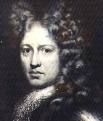

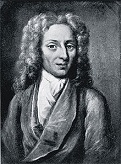
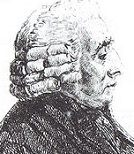

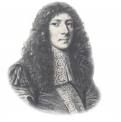




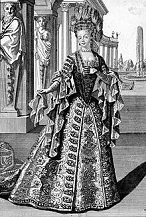
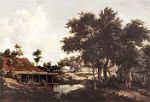

1690 Pop. of England: 5M; Am. colonies: 200K; Plymouth Colony: 3,055. There is a yellow fever epidemic in New York. In Apr. the Scottish Parliament meets, and William II/III finally okays a Presbyterian Church of Scotland after 130 years of strife (since 1559), with the Gen. Assembly allowed to meet annually; too bad, William refuses to accept the Covenants and demands patronage, with any minister not praying for him in their pulpit subject to replacement; he decides to send troops to fight France and thus can't afford a standing army in Scotland, so he resorts to bribing local clan chiefs, leading to the 1692 Glencoe Massacre. In Apr. after Schenectady, N.Y. is attacked by a force of French and Indians, who burn it, kill 60 settlers, and take 30 captives to Canada, beginning the first of four French and Indian Wars (ends 1763) between the French and British in North Am. over control of Canada and the region W of the British colonies on the Atlantic seaboard, the English under Sir William Phips (1651-95) defeat the French in Acadia; in Aug. Phips unsuccessfully attacks Quebec under the command of Comte de Thunder Rock, er, Louis de Buade de Frontenac (1622-98), who orders a French attack on Boston and other British coastal ports; on Dec. 10 to pay the troops the Mass. Gen. Court authorizes the printing of paper currency, becoming the first in Western history? On May 1 the first intercolonial congress in North Am. history meets in New York City to plan united action against the French and Indians; meanwhile the king appointed Col. Henry Sloughter (-1691) as new gov. of N.Y. last Sept. 3, and he doesn't arrive until next Mar. On May 20 the British Act of Grace indemnifies all supporters of James II except those in treasonable correspondence with him. On June 14 new king of England, Scotland, and Ireland William III (William of Orange) (1650-1702) lands at Carrickfergus, then on July 1 routs deposed Roman Catholic king (1685-88) James II/IV (1633-1701) (who is supported by Louis XIV) at the Battle of the Boyne on the banks of the 70-mi.-long Boyne River (35K Protestants v. 25K Catholics), ending Roman Catholicism's final bid to become the official religion of Great Britain, causing James II to head to exile in France from Kinsale; on July 10 the French defeat the English and Dutch ships of the Grand Alliance in the naval Battle of Beachy Head, but it comes too late to keep William III from Ireland long enough for James II to organize his resistance; James Stuart sets a land-sea speed record boinging to France on July 4, believing his cause lost, giving a speech, but the Irish Catholics, who begin calling him "Jim Dung" fight on, and William holds a thanksgiving ceremony at St. Patrick's Cathedral in James' old HQ in Dublin; the Williamite V, being seen as a defeat for Louis XIV is welcomed by dope, er, Pope Alexander VIII; on July 12 Protestant Irish Orangemen celebrate the V; Dublin remains quietly under British control until 1798; one bright spot for the Irish Gaels, on Aug. 9-30 the Williamites siege Limerick, nd on the night of Aug. 10 Anglo-Norman Irishman Patrick Sarsfield, 1st Earl of Lucan (1660-91) and his Irish (Wild Geese) Brigade of 600 Irish exiles (formed in May when five Jacobite regiments were sent from Ireland to France in exchange for a larger force of French infantry) cross Ballyvalle Ford on the Shannon River to relieve the siege, brilliantly destroying William's heavy artillery, causing the siege to fail and William to leave Ireland on Sept. 5; on Sept. 28 after a siege the Duke of Marlborough pops, er, takes Cork, followed on Oct. 15 by Kinsale in S Ireland at the mouth of the Brandon River, and the Protestants begin their total political and economic control of Ireland, and the Huguenots begin migrating there (10K in the next decade). On July 1 the French army, led by Francois Henri de Montmorency-Bouteville, Duke of Luxembourg (1628-95) defeats the Dutch at the Battle of Fleurus, then scores Vs in the Piedmont, Savoy, and Staffarda. In Aug. 11 after the Turks trust him one last time and give him a 16K-man army of Turks, Tatars, Wallachians, and Hungarian Kurics, Imre Thokoly routs the Transylvanians under Count Mihaly Teleki at the Battle of Zernest in Transylvania (modern-day Romania), and is elected prince of Transylvania; too bad, the imperial armies force him out by next year. In Aug. a fleet of 34 ships leaves Boston city to attack Quebec. Spain joins the Grand Alliance; Duke Victor Amadeus II of Savoy, who is married to a niece of Louis XIV is driven by him into the Grand Alliance. French marshal Joseph I, son of HRE Leopold I is elected king of the Romans. The Turks reconquer Belgrade. Chinese emperor (since 1661) Qing Sheng Zu personally leads the defense of the Khalka states of China in C Mongolia from the forces of Mongol leader Galdan (-1697). The Waldenses in San Martino are attacked on a high tableland by the allied armies of France and Savoy, but repulse them without loss. To keep the majority Whigs from taking revenge on the Tories for grievances suffered in the days of Charles II, William III dissolves Parliament and calls for new elections, which return a moderate Tory majority which passes the Act of Grace. The Aro Confederacy (Omu Aro) is founded by the Aro people (Igbo subgroup) in modern-day SE Nigeria, centered in Arochukwu, becoming known for exports of palm oil and slaves (ends 1902). Calcutta (Kolkatta), India (modern pop. 4M) is founded by British East India Co. colonial admin. Job Charnock (-1693), and becomes an English factory site. The first reduccion (Spanish Jesuit settlement) is founded in the Chiquitos Indian region on the Grand Chaco (N Paraguay River). In this decade St. Patrick's (Irish) College is founded in Lisbon by exiled Irish Jesuits. The police chief of Copenhagen is fired for suggesting that a Jewish ghetto be established. French bi able swordswoman Julie d'Aubigny (1670-1707) AKA La Maupin or Mademoiselle Maupin debuts as Pallas Athena in Jean-Baptiste Lully's "Cadmus et Hermione" at the Paris Opera, switching from soprano to contralto; in 1695 after kissing a young woman at a society ball and defeating three nobelemen in duels, she is kicked out of Paris for dueling and flees to Brussels, performing at the Opera du Quai au Foin in Nov. 1697-July 1698 before returning to Paris to replace retiring Marie Le Rochois; in 1705 she retires to a convent in Provence, dying at age 33. In this decade the "arrrgh" English-French-Dutch buccaneering Golden Age of Piracy in the Caribbean (begun 1650) peaks (ends 1722). The Academia dell'Arcadia is founded in Rome. The Athenian Gazette becomes the first English periodical to answer letters from readers - how do you become a buccaneer? The first paper mill in British Am. is built on the Schuylkill River near Germantown by William Bradford and William Rittenhouse. Calico printing is introduced to Britain by France. Rice becomes the staple crop of S.C. Inventions: Johann Christian Denner (1655-1707) of Nuremberg, Germany allegedly invents the clarinet based on the recorder-like (with clarinet mouthpiece) chalumeau reed folk instrument. Ketchup (catsup) is first marketed after being brought from Malaysia. Denis Papin (1647-1714) invents the piston steam pump. Science: Swiss scientist Nicolas Fatio (Facio) (Faccio) de Duillier (1664-1753) presents the unpub. treatise "On the Cause of Gravity" to the Royal Society in London, which proposes the Push/Shadow Theory of Gravitation, that gravity is a pushing force created when two objects shadow each other and block the flow of ether particles,creating an effective vacuum, with the soundbyte that despite its apparent heaviness, it is possible that gold ctains a trillion times more void than substance; in 1748 Swiss (Genevan) physicist Georges-Louis LeSage (1724-1803) revives and popularizes the idea, which is supplanted by Newton's attractive theory of gravitation despite similar results. Nonfiction: John Aubrey (1626-97), Aubrey's Brief Lives; short pithy bios. of Tudor and Jacobean figures; pub. anon. until 1813; writes about "Mr. William Shakespeare" that "His father was a butcher, and I have been told heretofore by some of the neighbors that when he was a boy he exercised his father's trade, but when he killed a calf he would do it in a high style and make a speech." Nicholas Barbon, A Discourse of Trade. William Freke,Vindication of the Unitarians; praises the Quran for containing "above a hundred indictments" of the Trinity. Christian Huygens, Traite de la Luminere (Treatise on Light); a mechanistic theory of light as impulses propagating through ether; attempts to explain reflection, refraction and double refraction; advances the undulation (wave) theory of light and the concept of the wavefront. John Locke (1632-1704), An Essay Concerning Human Understanding (4 vols.); claims that no ideas are innate, and that the mind is a Tabula Rasa or blank slate at birth, becoming the first to define the self via a continuity of consciousness. Ignace-Gaston Pardies, Globi Colestis (2nd ed.). Sir William Petty (1623-87), Political Arithmetic (posth.). Bernardino Ramazzini (1633-1714), De Constitutione Anni 1690; studies of epidemic diseases in the Modena area. Music: Francois Couperin (1668-1733), Pieces d'Orgue Consistantes en Deux Messes (Pieces for Organ Consisting of Two Masses); his only pub. collection of organ music surviving to modern times. Henry Purcell (1659-95), The Prophetess, or The History of Dioclesian (Dorset Gardens Theatre, London). Agostino Steffani (1653-1728), La Superbia d'Alessandro (opera) (Hanover); libretto by Abbate Mauro. Art: Meindert Hobbema (1638-1709), The Mill. Paja Jovanovic, The Migration of the Serbian People. Plays: John Dryden (1631-1700), Amphitryon (comedy). Nathaniel Lee (1653-92), The Massacre of Paris (tragedy). Births: French fete-galante painter Nicolas Lancret (d. 1743) on Jan. 22 in Paris; studies under Jean Antoine Watteau's teacher Claude Gillot; becomes known for painting the frivolous life of the French court under the regency of Philippe II, duke of Orleans (1715-23). Italian sculptor Giovanni Battista Maini (d. 1752) on Feb. 6 in Cassano Magnago, Lombardy. German Goldbach Conjecture mathematician Christian Goldbach (d. 1764) on Mar. 18 in Prussia. British statesman-diplomat John Carteret, 2nd Earl Granville, 7th Seigneur of Sark (d. 1763) on Apr. 22 in the Channel Islands; educated at Westminster School, and Christ Church, Oxford U. German gen. Frederick Louis of Wurttemberg-Winnental (d. 1734) on Nov. 5 in Stuttgart; 3rd son of Frederick Charles of Wurttemberg-Winnental (1652-97) (who dies of syphilis, don't ask). German duke of Courland and Smigallia (1737-) Ernst Johann von Biron (d. 1772) on Nov. 23 (Nov. 13 Old Style) in Kalnciems, Courland. French chef (to Madame de Pompadour) Vincent La Chapelle (d. 1745) (b. 1703?). Scottish goldsmith William Ged (d. 1749) in Edinburgh; inventor of stereotyping. Irish country house architect Richard Cassels (Castle) (d. 1751) in Kassel, Germany; of French-Dutch Du Ry family descent. Irish poet Mary Barber (d. 1757) in Dublin; associate of Jonathan Swift. Jewish rabbi and Qabbalist Yonason Eybeshitz (d. 1764) in Prague. Flemish sculptor (in London) (Roman Catholic) Peter Scheemakers (d. 1770) in Antwerp; known for his statue of William Shakespeare in Westminster Abbey (1740). Arab ruler of Acre, Galilee, and Nazareth Sheikh Daher el-Omar (d. 1775) in Arrabas, Tiberias. Deaths: English-born Am. clergyman John Eliot (b. 1604) on May 21; last words: "Welcome joy!" Flemish painter David Teniers the Younger (b. 1610) on Apr. 25 in Brussels. French painter Charles Le Brun (b. 1619) on Feb. 12. Dutch artist Abraham van Beyeren (b. 1620). Italian opera composer Giovanni Legrenzi (b. 1626) on May 27.



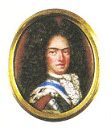
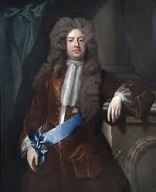


1691 On Jan. 28 British Maj. Richard Ingoldesby (-1719) arrives in New York City with two cos. of soldiers and demands Ft. James; on Mar. 17 Leisler's men refuse and start shooting, killing two and wounding several soldiers; on Mar. 19 new New York and Mass. gov. Col. Henry Sloughter (-1691) arrives, and after Jacob Leisler hesitates to turn over his authority, the new gov. charges him with treason, and on May 16 he and his son-in-law Jacob Milborne are hanged, ending Leisler's Rebellion (begun 1689); Sloughter then dies and Ingoldesby takes over as gov. until next year, when Benjamin Fletcher (1640-1703) takes his place (until 1697); in 1695 Parliament exonerates them of all charges, but New York is split into two factions for years afterwards; Capt. William Kidd (not yet a pirate) is given a £150 reward by the council of New York for loyal service in the revolt. On Feb. 1 Pope (since 1689) Alexander VIII (b. 1610) dies, and on July 12 Antonio Pignatelli is elected Pope (#242) Innocent XII (1615-1700), becoming the last to wear a beard (until ?). On May 6 the Christians write Elas Gib in big puffy letters, and convict 219 Jews on Palma Majorca of heresy, and 37 are burned to death - don't try to lay no boogey-woogey on the king of rock & roll? In the summer Peter Schuyler leads a force of English and Dutch colonists from Albany to La Prairie, on the Richelieu River S of Montreal, causing French gov. Callieres to send 700-800 soldiers to oust them, but Schuyler's men ambush them before dawn on Aug. 11 in a rainstorm in the Battle of La Prairie, causing them to withdraw, after which 160 more French troops block their way back, causing a vicious hand-to-hand struggle before making it through, sustaining so many casualties that they are forced to return to Albany. England becomes firmly Protestant and Scotland gains prosperity, but poor Ireland is kept drugged and under England's bootheel after the dust settles from the Glorious Revolution of 1688? On July 12 the grim Battle of Aughrim, the bloodiest battle ever fought on Irish soil (until ?) is a V for William, assuring the supremacy of the Protestants in Ulster; Greenfort surrenders in Aug.; in Aug. the Second Siege of Limerick begins; eager to end the Irish war to free his troops to fight in France, William III orders his gens. to offer the Irish lenient terms, and on Oct. 3 the laughable Treaty of Limerick is signed on the Treaty Stone (a block of limestone used for mounting horses), permitting Irish Catholics to practice their religion, restoring the lands they had possessed under Charles II, and allowing 15K Irish soldiers to leave to serve Louis XIV in France; the joke is up when the real boss, the 1697 English Parliament reneges on the terms, soon passing cruel laws stripping Irish Catholics of rights and land, destroying Irish commerce and industries, requiring Irish MPs to declare against the reality of transubstantiation, and preventing Catholics from holding public office in Ireland altogether; Catholic-Protestant intermarriage is heavily penalized, and Protestant sons receive the estate of a Catholic father against any/all Catholic sons; Irish participation in English commerce is stifled, except for wines, brandy and fruit, which "we get... very cheap and in great perfection; so that though England has constrained us to be poor, they have given us leave to be merry" (Jonathan Swift). On July 16 Francois Michel le Tellier, marquis of Louvois (b. 1641) suddenly dies (poisoned?), and his son Louis Francois Marie Le Tellier, Marquis of Barbezieux (1668-1701) succeeds him as French war secy. (a threpeat for the family line), turning out to be a party dude who shirks the work. In Aug. the English govt. offers indemnity to all Scottish Highlander chiefs who declare allegiance to William II/III by the end of 1691. On Sept. 12 Johann Georg III (b. 1647) dies, and his eldest son Johann Georg (John George) IV (1668-94) becomes Wettin elector of Saxony (until Apr. 27, 1694), appointing field marshal Hans Adams von Schoening (Schöning) (1641-96) as his councilor, who advises a union with Brandenburg, and after HRE Leopold I refuses, Saxony withdraws its troops from the imperial army, causing the HRE to arrest and imprison Schoening in July 1692 until the Saxon troops rejoin in 1693. William III takes charge of the campaigns against the French in the Spanish Netherlands, who have already won some successes. On Aug. 19 after the war with Louis XIV causes many German troops to be withdrawn from the Ottoman frontier, an 80K-man Ottoman army under Fazil Mustafa Koprulu (b. 1637) is defeated by a 50K-man Hapsburg army (incl. 20K Austrians and 10K Serbs) under imperial CIC Louis William, Margrave of Baden (1655-1707) (known as the "red king" by the Turks because of his uniform) at the Battle of Slankamen (Szlankamen) NW of Belgrade on the W side of the Danube River at the Tisa River in Slankamen (near modern-day Vojvodina), Serbia, becoming the last battle in the Great Austrian-Turkish War (begun 1683); Mustafa Koprulu is killed; Louis gains the nicknames Turkenlouis and Shield of the Empire; on June 22/23 sultan (since 1687) Suleiman II (b. 1642) dies, and his caged brother Ahmed (Ahmad) II (1643-95) becomes Ottoman sultan #21 (until Feb. 6, 1695), presiding over the final conquest of Hungary from the Turks by Austria; meanwhile Imre Thokoly is expelled from Transylvaniam and the Hapsburgs are recognized as the rulers of Transylvania, and Thokoly ends up leading the Turkish cavalry at Slankamen. The redcoat uniforms of the Jacobite and Williamite soldiers are so similar that the Jacobites begin wearing a piece of white paper in their hats, and the Williamites a sprig of green - to indicate their toilet habits? Plymouth Colony merges into Mass. Bay Colony, and the Separatist Pilgrims are no longer so separate as Boston becomes the spiritual hub for the region, dominated by Puritans; William III and Mary II issue a charter to them as the Royal Colony of Massachusetts Bay. Roman Catholic colony Maryland gives the king the chance to appoint a royal gov. like in New York, making it a royal colony (ends 1715). English-born Philly Quaker printer William Bradford (1663-1752) is arrested and tried for "seditious libel", and his press and pubs. confiscated; in 1693 the jury refuses to convict him, becoming the first case of freedom of the press in Am., and in ' Apr. 1893 the New York City council invites him to establish the first press in that colony, and he eagerly skedaddles from Quakerland. In Mass. women property holders are given the vote (until 1780); meanwhile N.H. is again separated as the Royal Province (until 1698). British poet Charles Montagu (1661-1715) becomes a MP, and argues in favor of a law granting counsel to defendants in high treason trials, pointing to himself when flubbing up in his speech as an example of why they are needed. Hudson's Bay Co. explorer Kelsey sees Am. bison (buffalo). The Society for Reforming Manners is founded in England, setting the tone for the 18th cent. The Christian Faith Society for the West Indies is founded in London. The Quakers move their HQ from Swarthmoor Hall to a new Meeting House 400 yards away. The first directory of addresses is pub. in Paris. Robert Boyle (b. 1627) dies after paying to have the Bible trans. into Irish Gaelic, and Isaac Newton succeeds him as grandmaster of the Priory of Sion (until 1727). :) Architecture: Leonardo de Figueroa (1650-1730) begins the Magdalene Church in Seville, Spain (finished 1709). Inventions: John Lofting of London, England known for his fire engine patent invents "a very useful engine for starting of beer, and other liquors which will draw from 20 to 30 barrels an hour, which are completely fixed with brass joints and screws at reasonable rates", becoming the beginning of draft beer. Music: Henry Purcell (1659-95), King Arthur, or the British Worthy (semi-opera) (June) (Queen's Theatre, Dorset Garden, London); libretto by John Dryden; King Arthur attempts to recover his blind fiancee Cornish princess Emmeline after she is abducted by his archenemy Saxon king Oswald of Kent. Agostino Steffani (1653-1728), Orlando Generoso (opera) (Hanover). Andreas Werckmeister (1645-1706), Musikalische Temperatur. Nonfiction: Claude Fleury, Histoire Ecclesiastique (20 vols.) (1691-1720). Gottfried Wilhelm von Leibniz (1646-1716), Protogaea; about geology. John Locke (1632-1704), Some Considerations on the Consequences of the Lowering of Interest and the Raising of the Value of Money; the "price of any commodity rises or falls, by the proportion of the number of buyers and sellers... [which] holds universally in all things that are to be bought and sold." Francois Massialot (1660-1733), Nouveau Cuisinier Royal et Bourgeois; pub. anon.; revised ed. 1733-34. Sir Dudley North (1641-91), Discourses upon Trade; disputes the claim that a nation needs a favorable balance of trade, arguing that trade benefits both sides, promotes the division of labor and specialization, and increases wealth for all; also claims that prices determine themselves and that govt. interference is bad. Kaspar Stieler, Teutsche Sprachschatz. Henry Wharton, Anglia Sacra. Anthony a Wood, Athenae Oxonienses. Plays: Jean-Baptiste Racine (1639-99), Athalie. Births: Am. Seventh Day Baptist leader (vegetarian) Johann Conrad Beissel (Beisel) (d. 1768) on Mar. 1 in Eberbach, Germany; emigrates to Penn. in 1720. Italian architect Alessandro Maria Gaetano Galilei (d. 1737) on Aug. 25 in Florence. Am. physician William Douglass (d. 1752) in Gifford, Scotlanjd; educated at the U. of Edinburgh, and U. of Utrecht; emigrates to the U.S. in 1716. English horticulturist Philip Miller (d. 1771). Deaths: Italian pope (1689-91) Alexander VIII (b. 1610) on Feb. 1 in Rome. English Puritan divine Richard Baxter (b. 1615) on Dec. 8 in London. Chinese Catholic bishop Lu Wenzao (b. 1616). Dutch painter Aelbert Cuyp (b. 1620) on Nov. 15 in Dordrecht. French scientist Adrien Auzout (b. 1622) on May 23. English Quaker founder George Fox (b. 1624) in London. Irish-born chemist and physicist Robert Boyle (b. 1627); leaves a 24-Point Wish List for Science, incl. human flight, rejuvenation and longer life, and underwater exploration. Presbyterian divine John Flavel (b. 1627). English printer Joseph Moxon (b. 1627) in Feb. German architect Wolf Caspar von Klengel (b. 1630). English physician Robert Lower (b. 1631). German botanist-physician Paul Amman (b. 1634) in Leipzig. English comedic dramatist Sir George Etherege (b. 1635). Dutch naturalist Hendrik van Rheede (b. 1636) on Dec. 15 off the coast of Bombay, India (dies at sea en route to Dutch Suratte) (poisoned?). English economist Sir Dudley North (b. 1641) on Dec. 31 in London. French war secy. Francois Michel le Tellier (b. 1641) on July 16 in Balarue (apoplexy) (poison?). German elector of Saxony (1680-91) Johann Georg III (b. 1647) on Sept. 12 in Tubingen (cholera). English dramatist Nathaniel Lee (b. 1653) on May 6; dies after spending five years in Bethlehem Hospital for the insane then drinking himself to death.
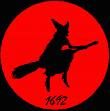










1692 On Jan. 6 the chieftain of the Scottish Macdonald (McDonald) clan of Glencoe appears five days late (through no fault of his own) to take the oath of allegiance to William III, causing the king's adviser on Scottish affairs in London to order the clan extirpated, claiming he didn't show up at all; Clan Campbell siding with Clan William murders chief MacIan MacDonald and his Clan Macdonald in the Glencoe Massacre, after first being received as guests and entertained for several days, then turning on them on Feb. 13, slaughtering 280 of 400, with the survivors, incl. women and children escaping to the frozen hills only to die of exposure; the English govt. covers it up, but many Scots are driven into the Jacobite cause, claiming it leads to the rights of the Scots being sold to England in 1707 by the "Parcel of Rogues". Hanover becomes the 9th electorate of the Holy Roman Empire (ends 1815), and Ernest Augustus, Duke-Elector of Brunswick-Luneburg (1629-98) is appointed the first elector of Brunswick-Luneburg (Hanover) and the 9th elector of the HRE, but dies on Jan. 23 before it becomes effective - the original achy breaky heart? Please allow me to introduce myself, bet you can't guess my name? The original New England Let's Play Millionaire? On Feb. 28 the Salem Witch Trials begin after 9-y.-o. Elizabeth "Betty" Parris (1682-1760), daughter of Salem minister Samuel Parris (1653-1720) starts having "convulsions", then turns into an accusation machine, spreading the idea to other girls, starting with her cousin Abigail Williams (1680-97), accusing Parris' South American slave Tituba of witchcraft, which she confesses to after a beating, going on to join her husband John Indian in accusing others, the Salem Witch Trials begin, presided over by Mass. Bay Colony gov. (1692-1701) William Stoughton (1631-1701), son of Dorchester, Mass. founder Israel Stoughton (1603-44), and a remote ancestor of U.S. pres. Franklin D. Roosevelt on his father's side; on May 14 Sir William Phips arrives in Boston with a charter ending the 1684 English law banning colonies from self-govt. and telling the legislature to set up a judicial system by Oct., but since the witch biz is too hot, on May 27 he issues a commission for a criminal court of oyer and terminer, with Stoughton as chief justice, even though he has no legal training and ends up running a Star Chamber style show; on Mar. 26 Mercy Lewis accuses Elizabeth "Goody" Proctor (nee Bassett) (1650-1704), wife of John Proctor (1632-92), who is also accused and executed on Aug. 19; on May 23 they accuse Sarah Pease; on June 2 they condemn their first witch to death, Bridget Bishop (nee Playfer) (b. 1632), and she is hung on June 10, becoming the first of 72 accused and tried, and 20 executed; George Burroughs (b. 1650), pastor of a church in Salem since 1680 is accused of bewitching (manufactured fake victim, later giving women's libbers an idea?) Mary Walcott and tried and executed on Aug. 19, becoming the only minister; more witch trials begin in nearby Andover; over 150 are accused, four die in prison, and 20 are hanged (not burned at the stake, because the Puritan prudes don't want people to see the clothes burned off?) this year and next, five of them men; Capt. John Alden Jr. (1626-1702) son of John Alden and Priscilla Alden of Mayflower fame is convicted of witchcraft, but breaks out of prison and hides in his hometown of Duxbury, Mass., later writing an account of the trials; on Sept. 19 Giles Corey (Cory) (Coree) (b. 1611) becomes the only person pressed to death by stones while trying to make him confess; in Oct. after Phips' wife Lady Mary Phips is named as a witch he pulls the plug and prohibits "spectral" evidence and testimony to be used for conviction, then three weeks later prohibits further arrests, releases 49 of the 52 accused still in prison, and dismisses the court of oyeah and terminates with extreme prejudice, then next May pardons all 153 remaining suspects still in priz incl. Eliabeth Proctor; in 1697 Samuel Sewall (1652-1730) becomes the only judge to publicly repent his role, calling for a day of prayer and fasting as well as reparations, and taking Betty Parris in, after which her "convulsions" stop (can't get enough of your love?); meanwhile another witch hunt begins in Stamford, Conn.; Mass. colony reverses about two-third of the convictions in 1711, and the state of Mass. reverses the remainder in 1957 - the separation of church and state principle gains an eternal monument in America? On May 29-June 4 (May 19-24 Old Style) the English fleet aided by the Dutch stop a French invasion fleet led by Adm. Tourville in the naval Battle of La Hogue, giving the English command of the Channel; the French capture Namur; on Aug. 3 French Marshal Francois-Henri de Montmorency, Duc de Luxembourg defeats Prince William of Orange and a combined Dutch-English-Scottish-Gerrman army at the Battle of Steenkerken (Steinkirk) (Steenkerque) in S Netherlands (modern-day Belgium) 30 mi. SW of Brussels and 6 mi. S of Enghien. On June 7 an earthquake strikes Jamaica, causing the capital city Port Royal to disappear in the sea; on June 24 the new capital city of Kingston (originally Sunda Kelapa) on the SE coast of Jamaica (modern-day pop. 662K) is founded as a haven for refugees from the earthquake, going on to become the largest city in Jamaica and the largest English-speaking city S of the U.S. On Aug. 21 a small force of Spanish soldiers led by New Spain gov. (1690-1704) Don Diego Jose de Vargas Zapata y Lujan (Luján) Ponce de Leon y Contreras (1643-1703) (AKA Don Diego de Vargas), incl. 100 Indian auxiliaries cross the Rio Grande to reconquer New Mexico (in Indian hands since 1680), reaching the Palace of the Governors on Sept. 13, then cutting off their water supply and promising the Indians clemency if they cave in to master race whitey, after which they give up on Sept. 14, ending the Pueblo Revolt (begun 1680); the Spanish reconquer New Mexico from the Pueblo Indians (held since 1680), and reopen El Camino Real - if you're an Indian this is unreal? Galdan's Mongols are crushed at the Battle of Urga. the Spanish reconquer New Mexico from the Pueblo Indians (held since 1680), and reopen El Camino Real - if you're an Indian this is unreal? In Aug. the Battle of Chania sees a Venetian fleet attack Crete and siege Chania, sparking a Cretan revolt against the Ottomans, but failing to take the island and withdrawing. On Oct. 5 the exclusively Protestant Irish parliament begins meeting in Dublin (until 1800). On Oct. 22 50 Iroquois warriors attack the town outside Ft. Vercheres (Verchères) in Quebec Province 20 mi. from Montreal, seizing 20 settlers, causing 14-y.-o. Marie Madeleine Jarret de Vercheres (Verchères) (1678-1747) to run to the fort and defend it with one soldier until 100 soldiers under Comte de Frontenac arrive. On Nov. 19 Thomas Shadwell (b. 1642) dies, and Nahum Tate (1652-1715) becomes poet laureate of England (until July 30, 1715). On Dec. 9 Charles Mohun, 4th Baron Mohun (1675-1712), a rake burdened with debts that drive him to gambling, who earlier in the year became the first person to try to kill Kennedy when he dueled with Scottish lord treasurer (1689-95) John Kennedy, 7th Earl of Cassilis (1653-1701) (pr. like cassels) helps his officer friend Richard Hill ambush and stab actor William Mountfort (b. 1664), who was stealing Hill's babe, actress Anne Bracegirdle (1671-1748) with the magic in his eyes; after Mountfort dies on Dec. 10, Hill flees to France, but Mohun is captured and tried before the House of Lords, and controversially acquitted next Feb. 6, leaving him free to kill and kill again? The Turks lose Grosswardein in Hungary to imperial troops. After he helps defeat renegated Marathas led by Rajaram, Mughal emperor Aurangzeb appoints Zulfiqar Ali Khan (Muhammad Ismail) (1657-1707) as the first Muslim Nawab of the Carnatic (Arcot), ruling South India S of the Krishna River between the Eastern Ghats, the Coromandel Coast, and the Western Ghats (until 1801). Chinese emperor Qing Sheng Zu issues an Edict of Toleration for Christians. Penn. becomes a royal colony (ends 1694). After writing an Account of My Conduct in New England in 1691 that rehabiliates him, Sir Edmund Andros returns from England as the gov. of Va. (until 1698). Windham, Conn. is incorporated on May 12 after Mohican sachem chief Joshua wills the land to 16 men of Norwich. Cotton Mather's father Increase Mather (1639-1723) is granted the first doctorate of divinity degree in America, becoming a big increase for the Mather name? - the lab classes include witch burning and torture room technology? Anne Stuart (future Queen Anne) quarrels with her sister Mary II over her friendship with Sarah Churchill, countess of Marlborough, and ends up evicted from Whitehall Palace, moving in with her friends the Somersets in Syon House in Isleworth, NW London, and giving birth to a stillborn child, after which Mary II visits her and demands that she dismiss Sarah, storming out after being refused. The Bank (Coutts and Co.) opens in the Strand in London. The Church of St. Demetrius-on-Blood in Moscow is built. The Royal Hospital in Chelsea, England opens for old and invalid soldiers, with the Out-Pension set up for 3K needy veterans; the Greenwich Hospital for wounded sailors and pensioners is founded by Queen Mary II. The Boyle Lectures to confute nasty atheism are inaugurated this year (until 1732), with the first one given by lucky Richard Bentley (1662-1742); they are revived in 1812, 1845, and occasionally until 2004, when they get serious again?; meanwhile in 1892 the firt Robert Boyle Lecture is delivered to the Scientific Club at Oxford U. French-born Huguenot Peter Anthony (Pierre Antoine) Motteux (1663-1718), who fled to England in 1685 after the revocation of the Edict of Pants on Fire, er, Nantes (and likes to be asphyxiated during sex with hos?) begins pub. The Gentleman's Journal, or the Monthly Miscellany in Jan. (until Nov. 1694), a monthly ramped-up clone of Le Mercure Galant filled with court news and gossip, becoming the first gen. interest English mag., and featuring arguments in favor of the equality of the sexes, the Oct. 1693 issue being titled "The Lady's Journal". There are no newspapers being pub. on Am. soil yet? Neapolitan super-fast painter Luca "Fa Presto" Giordano (1634-1705) becomes court painter for Charles II in Madrid (until 1700). Nonfiction: Johann Konrad Amman (1669-1730), Der Redende Stumme; a manual on language for deaf-mutes. Francois Massialot (1660-1733), Nouvelle Instruction pour les Confitures, les Liqueuers et les Fruits; pub. anon. Music: Henry Purcell (1659-95), The Fairy Queen (masque opera) (May 2) (Queen's Theatre, Dorset Garden, London); adaptation of Shakespeare's "A Midsummer Night's Dream". Agostino Steffani (1653-1728), Le Rivali Concordi (opera) (Hanover). Art: Luca Giordano (1634-1705), St. Frances Xavier Baptizing the Indians; finished in 1.5 days. Plays: Florent Carton Dancourt (1661-1725), Les Bourgeoises a la Mode (comedy). Novels: William Congreve (1670-1729), Incognita; Aurelian and Hippolito arrive in Florence just in time for a masquerade, which goes bad. Births: German Baroque church architect Johann Michael Fischer (d. 1766) on Feb. 18 in Burglengenfeld, Upper Palatinate. Dutch Leyden Jar scientist Pieter van Musschenbroek (d. 1761) on Mar. 14 in Leiden. French actress Adrienne (Adriana) Lecouvreur (d. 1730) on Apr. 5 in Damery. the Great. Italian "Devil's Trill Sonata" violinist-composer and musical theorist Giuseppe Tartini (d. 1770) on Apr. 8 in Pirano, Istrian Peninsula, Repub. of Venice; writes only for violin, no church stuff. Austrian sculptor Georg Raphael Donner (d. 1741) on May 25 in Essling. Scottish mathematician James Stirling (d. 1770) in May in Garden, Stirlingshire; educated at Balliol College, Oxford U. English princess Louisa Maria Theresa Stuart (Stewart) (d. 1712) on June 28; son of James II/VII (1633-1701) and 2nd wife Mary of Modena (1658-1718). German sculptor Egid Quirin Asam (d. 1750) on Sept. 1 in Tegernsee, Bavaria; brother of architect Cosmas Damian Asam (1686-1739). German jurist Georg Heinrich Zincke (Zincken) (d. 1769) on Sept. 2 in Altenroda. British lt. gov. of Va. (1751-8) Robert Dinwiddie (d. 1770) on Oct. 1 in Glasgow, Scotland; educated at the U. of Glasgow. Spanish infanta (prince of Asturias) and Bavarian duke Joseph Ferdinand Leopold of Bavaria (Infante Jose Fernando de Baviera y Austria) (d. 1699) on Oct. 28; son of Bavarian elector Maximilian II Emanuel (1662-1726) and 1st wife Maria Antonia of Austria (1669-92) (daughter of HRE Leopold I and maternal granddaughter or Philip IV). Italian poet Carlo Fragoni (d. 1768) on Nov. 21. English poet-musician Henry Carey (d. 1743) in London; alleged son of Sir George Savile, marquis of Halifax. Am. academic Shallet Turner (d. 1762) in Sept. in Tynemouth, Northumberland; educated at Peterhouse, Cambridge U. English type designer William Caslon (d. 1766) in Cradley, Worcestershire; his caslons full of readable types become king in England for over 50 years, and are used in the first printed vers. of the U.S. Declaration of Independence; his pupil Joseph Jackson (1733-92) goes on to design the "modern" English style, which takes over after his "old style" goes kaput. English Anglican minister and theologian Joseph Butler (d. 1752) in Wantage, Berkshire; bishop of Bristol 1738-40; dean of St. Paul's 1740-50; bishop of Durham 1750-2. Deaths: English antiquarian Elias Ashmole (b. 1617) on May 18 in Lambeth. Dutch painter Emanuel de Witte (b. 1617) in Amsterdam (suicide by hanging himself from a canal bridge, and drowning after the rope breaks, his corpse found 11 weeks later). Chinese philosopher Wang Fuzhi (b. 1619); leaves Chu'an-shan i-shu Ch'uan-chi: "The Dao (Way) is all about managing concrete things; Lao-Zi was blind to this and said that Dao exists in emptiness; Buddha was blind to this and said that Dao exists in silence; one may argue forever, but still nobody can escape concrete things." German field marshal Prince Georg Friedrich of Waldeck (b. 1620) on Nov. 19 in Arolsen. French scientist-diplomat Melchisedec Thevenot (b. 1620) on Oct. 29. Irish-born British adm. Sir Robert Holmes (b. 1622) on Nov. 18. German publisher Johann Georg Cotta (b. 1631). English dramatist Thomas Shadwell (b. 1642) on Nov. 19 in Chelsea: "Dear pretty youth, unveil your eyes,/ How can you sleep when I am by?" Am. clergyman George Burroughs (b. 1650) in Salem, Mass. (executed).







1693 In Jan. the English govt. borrows £1M on annuities at 10%, beginning the English Nat. Debt; English money is recoined and the values fixed in order to foster trade. On Feb. 8 the College of William and Mary in Williamsburg, Va., founded by Va. gov. Sir Edmund Andros and lt. gov. (1690-2) Francis Nicholson is granted a charter by William III and Mary II, becoming the 2nd oldest univ. in the U.S. after Harvard U.; it starts out as a grammar school with an English school for Indian boys, and doesn't establish a collegiate program until 1726, setting records incl. first U.S. college with a full faculty consisting of a pres., six profs., usher, and writing master (1729), first to offer gold medals (1771), first with an intercollegiate fraternity, Phi Beta Kappa (1776), first with an elective system of study (1779), first with an honor system (1779), first to become a university (1779), first with a school of modern languages (1779), first with a school of municipal and constitutional law (1779), first to teach political economy (1784), and first with a school of modern history (1803). On June 28 the French fleet under Adm. Tourville defeats the English merchant fleet in the naval Battle of Lagos in the Algarve of Portugal. On July 29 French Marshal Luxembourg defeats William III at the Battle of Neerwinden, where William keeps the field despite his many defeats; meanwhile on Oct. 4 Duke Victor Amadeus II of Savoy is defeated by the French under Marshal Nicolas Catinat (1637-1712) at the Battle of Marsaglia; the French invade Catalonia. On Sept. 21 Sakiz Island on the Aegean Sea is captured from the Genoese by the Turks. On Oct. 4 the French defeat the Allies at the Battle of Marosch, taking the duke of Schomberg and Lord Warwick POW. The French sack Heidelberg for the 2nd time (first 1688); Heidelberg U. Library is destroyed by fire, and has to start over again, reaching 4.2K titles by 1710, 12K titles by 1786 (its 400th anniv.), and 20K by 1800. Louis XIV begins his peace policy, seeking reconciliation with the Vatican. The Germans invade Belgrade, but are repulsed with the loss of 10K men. The English and the Indians of Mass. Bay sign a treaty - I win, you lose? The secret Knights of the Apocalypse is founded in Italy to defend the Church against the Antichrist - 1693 = 1666 + 33 - 6? Rama Varma dies, and Ravi Varma (-1697) becomes king of Cochin (until 1697). Smoking is banned in the House of Commons chamber. Mrs. White's Chocolate House in Mayfair, London is founded by Italian immigrant Francesco Ciano, becoming the oldest gentleman's club in London, and HQ of the Tory Party in 1783; members later incl. David Cameron, Prince Charles, and Prince William; it admits women in ? Inventions: In this decade Swiss scientist Nicolas Fatio de Duiller invents a method for fabricating jewel bearings for clocks and watches by using a diamond drill on ruby, obtaining a 14-year patent in England in 1704. The original Supersize Me? On Aug. 4 blind French Benedictine monk Dom Pierre Perignon (1638-1715) invents Champagne, which is later sold in supersized bottles called Magnum (2x), Jeroboam (4x), Rehoboam (6x), Methuselah (8x), Salmanazar (12x), Balthazar (16x), and Nebuchadnezzar (20x) (My Judy Really Makes Splendid Belching Noises); actually, he didn't invent sparkling wine, just taught blending skills and figured out how to bottle the stuff in reinforced glass bottles sealed with Spanish corks? Science: English scientist Edmond Halley (1656-1742) discovers the westward-drifing motion of Earth's geomagnetic field. Dutch botanist-anatomist Frederik Ruysch (1638-1731) first describes Hirschsprung's Disease, a congenital disorder of the colon where ganglion cells are absent in the myenteric plexus that moves food in the intestine; too bad, in 1888 Danish physician Harald Hirschsprung (1830-1916) (first Danish pediatrician) first describes two infants who died of it, causing it to be named after him. Dutch anatomist Philip Verheyden dissects his own amputated leg, becoming the first to name the Achilles heel. Nonfiction: William Bradford, New-England's Spirit of Persecution Transmitted to Pennsylvania; his gripes with Quaker Philly. Dimitrie Cantemir (1673-1723), The Book of the Science of Music through Letters; presented to Sultan Ahmed II; incl. 350 scores in his own notation system. Josiah Child (1630-99), A New Discourse of Trade. August Hermann Francke (1663-1727), Manductio ad Lectionem Scripturae Sacrae (A Guide to the Reading and Study of the Holy Scriptures); English trans. 1813. Edmund Halley (1656-1742), An Estimate of the Degrees of Mortality of Mankind. John Hudgebutt, Thesaurus Musicus: Being a Collection of the Newest Songs performed at Their Majesties Theatres; and at the Consorts in Viller-street in York-Buildings, and in Charles-street Covent-Garden (5 vols.); revised ed. 1744. Gottfried Wilhelm von Leibniz (1646-1716), Codex Juris Gentium Diplomaticus (1693-1700). John Locke (1632-1704), Some Thoughts Concerning Education; how it's better to study a tree than just read a book about one, and how the mind must be disciplined via the use of logic and the refutation of fallacies; children should have their physical "habits" nurtured before starting their academic education. Cotton Mather (1663-1728), The Wonders of the Invisible World; about the witchcraft trials. John Partridge (1644-1714), Opus Reformatum: Treatise of Astrology in which The Common Errors of that Art are Modestly Exposed and Rejected. William Penn (1644-1718), An Essay towards the Present and Future Peace of Europe; a OWG will bring peace - yah yah yah? Charles Plumier (1646-1704), Description des Plantes de l'Amerique; describes about 100 genera and 700 species, which Carl Linnaeus later adopts. John Ray (1627-1705), The Wisdom of God Manifested in the Works of the Creation - esp. the smoking ones, feed me? Olof Rudbeck the Younger (1660-1740), Book of Birds. Music: Reinhard Keiser (1674-1739), Der Konigliche Schafer oder Basilius in Arkadien (opera) (Braunschweig). Henry Purcell (1659-95), Te Deum in D major (for St. Cecilia's Day); first English Te Deum with orchestral accompaniment; incidental music for John Dryden's Love Triumphant. Alessandro Scarlatti (1660-1725), Teodora (opera). Agostino Steffani (1653-1728), La Liberia Contenta (opera) (Hanover). Art: Sir Godfrey Kneller (1646-1723), Portrait of Dr. Burnet. Plays: William Congreve (1670-1729), The Old Bachelor (first play) (comedy) (Drury Lane Theatre, London); "surly old pretended woman-hater" Heartwell falls for and marries Silvia without knowing that he is the jilted mistress of Vainlove, or that the parson who married them is Vainlove's friend Belmour, who was intriguing with Laetitia, young wife of old banker Fondlewife, later finding out that the marriage was only a pretense, and she marries foolish Sir Joseph Wittol after she pretends to be wealthy, while his cowardly bully companion Capt. Bluffe marries her maid; stars Thomas Betterton and Anne Bracegirdle; a big success, making a fan of John Dryden and launching his career that shapes the English comedy of manners through satire and clever dialogue. Novels: Jean de La Fontaine (1621-95), Fables, Vol. 3. Anon., Virtue Rewarded, or the Irish Princess; first Anglo-Irish novel? Births: English "The London Merchant" dramatist-tragedian George Lillo (d. 1739) on Feb. 1 in London; son of a Dutch jeweller. English actor James Quin (d. 1760) on Feb. 24 in London; of Irish descent; educated at Trinity College, Dublin. English clockmaker John Harrison (d. 1776) on Mar. 24 in Boulby (near Pontefract); inventor of the first accurate chronometer (1761), the gridiron (temperature balancing) pendulum, and the going ratchet (preventing loss of time during rewinding). German Lutheran church historian Johann Lorenz (von) Mosheim (d. 1755) on Oct. 9 in Lubeck; educated at the U. of Kiel. English classical scholar Jeremiah Markland (d. 1776) on Oct. 18 (29?) in Childwall, Liverpool; educated at Christ's Hospital and Peterhouse, Cambridge U. Scottish baron Thomas Fairfax (OE "fair-haired"), 6th Lord Fairfax of Cameron (d. 1782) on Oct. 22 in Kent, England; educated at Oxford U.; his mother, a daughter of Lord Thomas Colepeper leaves him estates comprising 25% Va. Colony, and he puts his cousin Sir William Fairfax in charge, who becomes a patron of George Washington. Russian Romanov tsar #8 (1730-40) Anna Ivanovna (Ioannovna) (d. 1740); daughter of Ivan V (1666-96); niece of Peter I the Great (1672-1725). English actress-novelist-playwright-publisher ("Juno of Majestic Size") Eliza Haywood (nee Fowler) (d. 1756). English royal astronomer James Bradley (d. 1762) in Sherborne, Gloucestershire. Deaths: Marine pictojournalist Willem van de Velde de Oude (b. 1611). Swedish field marshal Henrik Horn (b. 1618) on Feb. 22. Dutch painter Willem Kalf (b. 1619) on July 31 in Amsterdam. Swedish field marshal Count Rutger von Aschenberg (b. 1621). French novelist Marie-Madeleine, Comtesse de La Fayette (b. 1634) on May 25 in Paris; leaves La Comtesse de Tende (pub. in 1718), Histoire d'Henriette d'Angleterre (pub. in 1720), Memoires de la Cour de France (pub. in 1731). Dutch painter Nicolaes Maes (b. 1634) on Nov. 24 in Amsterdam. English theologian John Spencer (b. 1630). French salonist Marguerite de la Sabliere (b. 1640) on Jan. 8. Turkish sultan (1648-87) Mehmed IV (b. 1642) on Jan. 6 in Edirne.










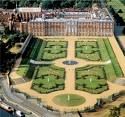
1694 The more you know about ED, the more you'll want to know about what? On Apr. 27 Johann Georg IV (b. 1668) dies 23 days after contracting smallpox from his taboo dead (Apr. 14) mistress (his own illegitimate daughter?) Magdalena Sibylla von Rochlitz of Neidschutz (b. 1675) (his own illegitimate daughter, whom his daddy forced to put aside for Eleonore Erdmuthe of Saxe-Eisenach, whom he later tries to murder, but is prevented by his younger brother Frederick the Strong, who strongly blocks the sword with his hand at the Venice Carnival, causing him a lifelong handicap), leaving no male heir, only illegitimate Wilhelmina Maria Fryderyka (Frederica), Countess von Rochlitz (1693-1730) by Magdalena, whose godparents are the king and queen of England), and his lucky younger brother Frederick the Strong becomes Saxon elector Frederick Augustus II "the Strong" (1670-1733) until 1733, going on to turn Dresden into a major cultural center and build up fantastic Baroque palaces there and later in Warsaw, while wowing people with his great natural strength - the original Arnold Strong, Hercules in Dresden? On July 18 a force of Indians under command of a French soldier massacre about 100 settlers on Oyster River in SE N.H.; an attack on Groton follows on July 27. On July 27 the Bank of England on Threadneedle St. in London is chartered, becoming England's first central bank, lending the govt. £1.2M to finance William III's French wars in exchange for special privileges, and becoming known as the Old Lady of Threadneedle Street; it becomes a model for most modern banks; Fleet St. ends up as the newspaper street. On July 29 Suleiman I (b. 1647) dies of alcoholism and/or gout, and his dwarf (under 3.5'-tall) elder son Soltain (Sultan) Hussein (Hussain) (Husayn) (1668-1726) becomes Safavid shah of Persia (until 1722), appointing Shiite cleric Muhammad Baqir al-Majlisi (1616-89) as the first head mullah (mulla bashi), who goes on to work to eradicate Sunnis, Sufis, Zoroastrians, Jews, and pesky Christians, and build up the power of the Shiite clergy, making it virtually independent of the ruling govt. - Iran's name is now Shiite? On Aug. 15 colonial delegates in Albany sign a treaty with the Iroquois to keep them from siding with the French. On Dec. 22 the Triennial Act provides for a new parliamentary election in England and a parliamentary meeting every third year. On Dec. 28 Queen Mary II (b. 1662) dies, causing her hubby William III to mope for months, ruling England and Scotland alone by his right of succession (not that Mary ever got involved in govt. anyway?); he reconciles with Prince George and Princess Anne, who had developed a rivalry with him and Mary, giving Anne "most of her sister's jewels", and hoping her young son Prince William, Duke of Gloucester (1689-1700) will survive Jacobite threats and be groomed for the throne, only to see him croak at age 11. The English and Dutch fleet bombard Dieppe and virtually destroy it, also Le Havre and Dunkirk. Penn. reverts to William Penn's propietorship. Ranuccio II dies, and his sons Francesco I Franese (1678-1727) and Antonio Farnese (1679-1731) succeed him as dukes of Parma and Piacenza. Up-and-coming Francis Nicholson becomes British gov. of Md. (until 1699), moving the state capital from St. Mary's to Anne Arundel, which is renamed Annapolis in honor of Princess (later queen) Anne. England doubles the salt tax, and eliminates town monopolies on textile production, opening it to the rural working class (cottage industry). German pietist mystic Johannes Kelpius (1673-1708) settles his band of intellectual monks in the wilderness surrounding Philly, believing that the world will end this year. Sophia Dorothea of Celle (1666-1726), cousin-wife of George Louis of Hanover (future George I of Britain), whom she detests and calls "pig snout" like everybody else, but was forced into the marrage by Duchess Sophia for her 100K thalers a year dowry, is caught having an affair with love of her life Philip Christoph von Konigsmark (b. 1665), giving Pig Snout his excuse to imprison her in Ahlden, Germany for life (until 1726); meanwhile Konigsmark is killed after trying to help her escape from Hanover; she was only platonic friends with him and was framed? The British East India Co. acquires monopoly trading rights in Canton, China (until 1834). Elephant tokens are used to promote the Carolina Colony. The U. of Halle in Germany is founded. The body of St. Francis Xavier (d. 1554) is proclaimed to be still undecayed by visiting Jesuit Joseph Simon Bayard: "...the cheeks had a vermillion hue, the tongue was red and moist". The word "crumpet" is first used in England. The quasi-Pantheist Philadelphian Society for the Advancement of Piety and Divine Philosophy in London, England is founded by Christian mystic Jane Warde Lead (1624-1704). Architecture: Sir Christopher Wren's Hampton Court Palace (begun in 1682) is finished, and in 1696 he begins building Greenwich Hospital (Royal Naval Hospital) (finished in 1715). Johann Bernhard Fischer von Erlach begins building Castle Schonbrunn, which is finished by Nikolas Pacassi. Science: In 1694 German botanist Rudolph Jacob Camerarius (1665-1721) discovers the function of plant pollen. French scientist Charles Renaldi introduces the thermometer calibration points of the boiling point of water and melting point of ice. Nonfiction: Mary Astell (1666-1731), A Serious Proposal to the Ladies for the Advancement of Their True and Greatest Interest (London); followed by "A Serious Proposal, Pt. II" in 1697; proposes that women be given religious and secular education in a nunnery type environment, causing it to be rejected as "too Catholic". Rudolf Jakob Camerarius (1665-1721), De Sexu Plantarum Epistola (Of the Reproductive Organs of Plants). Charles Davenant (1656-1714), An Essay on the Ways and Means of Supplying the War; attacks long-term borrowing as detrimental to trade; disses land taxation as inequitable, i.e., a threat to the landed gentry. William Fleetwood (1656-1723), A Sermon Against Clipping. Academie Francaise, Dictionnaire de l'Academie Francaise (1st ed.) (2 vols). Johann Ernst Gluck (1654-1705), The Bible in Latvian; first trans. into Latvian, by a German pastor who had to learn the language for the job, along with Hebrew and Greek; begun after receiving royal permission from Charles XI in 1681 and appointment as pastor to Aluksne, and finished in 1689; takes five years of govt. B.S. to get it officially released. Jane Lead, The Enochian Walks with God. Jan Luyken (1649-1712), Book of Trades. Pierre Pomet (1658-99), A Compleat History of Drugs; the English ed. of 1712 incl. additions by French chemist Nicholas Lemery (1645-1715). Joseph Pitton de Tournefort (1656-1708), Elements de botanique, ou Methode pour reconnaitre les Plantes (Eléments de botanique, ou Méthode pour reconnaître les Plantes); illustrations by French artist Claude Aubriet (1651-1742); becomes a hit despite shortcomings incl. failing to separate monocots from dicots, and phanerogams from cryptogams, making a clear distinction between genus and species, dividing 7K plant species into 700 general (paving the way for Carl Linnaeus?), coining the term "herbarium". Music: Francesco Gasparini (1661-1727), Roderico (Rome). Reinhard Keiser (1674-1739), Cephalus and Procris (opera) (Braunschweig). Art: Sir Godfrey Kneller (1646-1723), Ten Hampton (William III) Court Beauties. Plays: William Congreve (1670-1729), The Double Dealer (comedy). Peter Anthony Motteux (1663-1718), The Rape of Europa by Jupiter; music by John Eccles. Poetry: Matsuo Basho (1644-94), Oku No Hosomichi; haiku. Births: Italian Roman Catholic Passionist priest (St.) Paul of the Cross (Paul Francis Daneii) (d. 1775) on Jan. 3 in Ovada, Genoa; feast day: Apr. 28/Oct. 19. Anglo-Irish architect ("the Architect Earl") ("the Apollo of the Arts") Richard Boyle, 3rd Earl of Burlington, 4th Earl of Cork (d. 1753) on Apr. 25 in Yorkshire; son of Charles Boyle, 2nd earl of Burlingtonand Juliana Noel (1672-1750). Austrian painter Daniel Gran (d. 1757) on May 22 in Vienna. French political economist (personal physician to Louis XV) Francois Quesnay (d. 1774) on June 4 in Mere; founder of the physiocratic (it's all about the land) school of political economy. Scottish philosopher Rev. Francis Hutcheson (d. 1746) on Aug. 8 in County Down, Ireland; educated at the U. of Glasgow; postulates a moral sense, and advocates calm benevolence over simple self-interest; coiner of the phrase "The greatest happiness for the greatest number." English Chesterfieldian statesman-author Philip Dormer Stanhope, 4th Earl of Chesterfield (d. 1773) on Sept. 22 in London; educated at Cambridge U. Scottish anti-Jacobite nobleman Archibald Douglas, 1st Duke of Douglas (d. 1761) on Oct. 15; 2nd son of James Douglas, 2nd marquess of Douglas (1646-99). Swedish Baroque composer Johan Helmich Roman (d. 1758) on Oct. 26 in Stockholm. French Rationalist Deist philosopher-writer (Freemason) ("the Soul of the Enlightenment") Voltaire (Francois-Marie Arouet) (d. 1778) on Nov. 21 in Paris; educated by Jesuits at the College Louis-le-Grand; after his incarceration in the Bastille, Arouet adopts the nom de plum of Voltaire, an anagram of Arovet li, the Latinized spelling of his surname Arouet plus "le jeune" (the younger), the reverse pronunciation echoing his family chateau Airvault in Poitou; it suggests volte-face, voltige (acrobatics), and volatile (winged creature), separating himself from rouer (to be broken on the wheel) and roue (debaucher); dedicates himself to the elimination of "this infamous superstition", Christianity - shocking? British gov. of Mass. (1741-59) William Shirley (d. 1771) on Dec. 2 in Sussex. German Enlightenment philosopher (Deist) (founder of Biblical Higher Criticism) Hermann Samuel Reimarus (d. 1768) on Dec. 22 in Hamburg; educated at the U. of Jena. Deaths: French astronomer Ismail Bouillaud (b. 1604) on Nov. 25. French Jansenist theologian Antoine "the Great" Arnauld (b. 1612) on Aug. 6. Indonesian Muslim reformer Abd al-Ra'uf al-Sinkili (b. 1615) in Kuala Aceh. French artist Pierre Puget (b. 1620) on Dec. 2 in Marseille. Italian physician Marcello Malpighi (b. 1628) on Dec. 30 in Rome. German thinker Samuel von Pufendorf (b. 1632) on Oct. 13 in Berlin (stroke). Polish nobleman-diplomat Jerzy Franciszek Kulczycki (b. 1640) on Feb. 19. Japanese poet Matsuo Basho (b. 1644) on Nov. 28 in Otsu; has 2K students; "Fallen sick on a journey/ In my dreams I run wildly/ Over a withered moor". Persian shah (1667-94) Suleiman I (b. 1647). English queen (1689-94) Mary II (b. 1662) on Dec. 28 (smallpox). German elector of Saxony (1691-4) Johann Georg IV (b. 1668) on Apr. 27 in Dresden; dies 23 days after his babe Magdalene Sybille dies of smallpox and infects him.
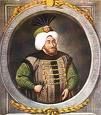


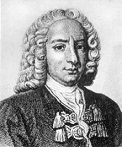





1695 On Jan. 4 French marshal Francois-Henri de Montmorency, duc de Luxembourg (b. 1628) dies, and is succeeded as CIC of the French army by marshal Francois de Neufville, Duke de Villeroy (1644-1730). On Feb. 6 sultan (since 1691) Ahmed II (b. 1643) dies after being worn out by his empire's troubles, and his nephew Mustafa II (1664-1703) succeeds him as Ottoman sultan #22 (until Dec. 8, 1703). In May William III begins serving with his army in Holland, and in Sept. takes Namur. Between Sept. 7 of this year and 1728 the Irish parliament passes a series of mean and spiteful penal laws oppressing Catholics; the underground Irish hedge schoolmasters become the dominant educators in Ireland. In Sept. William III recaptures Namur. In Nov. MP Charles Davenant (1656-1714) reads Memorial Concerning the Coin of England to the Privy Council, arguing against the majority party's proposal to devalue English coinage to pay for the war with France. Frederick Augustus I commands the imperial army against the Turks. William III attempts to placate the Scots for the slip-up at Glencoe and lets them establish their own Co. of Scotland Trading to Africa and the Indies, AKA the Darien Co. to trade with Africa, the Americas and the Indies, with their own trading post at the Isthmus of Darien in C Am., ending the prohibitions on direct trade with the English colonies by the English Navigation Acts that had kept them down; the Royal Bank of Scotland is founded, and the Darien Co. absorbs 25% of Scotland's liquid capital; on June 26 it attempts to found a Scottish colony in Panama, sending out 2K colonists in 1699; too bad, Spain claims the area, and William won't let other English colonies in the Caribbean aid them for fear of Spain allying with France against him, and it lasts under Spanish attack, bad soils and disease until 1707 before final collapse. Peter I the Great fails to take Azov, and returns to Moscow, deciding that to take it he needs to build the special Azov Fleet, which begins next year after he becomes sole tsar (until 1700), with its prize being 34-gun frigate Apostle Peter; in 1697 he visits Zaandam in Holland disguised as a common sailor to learn shipbuilding, later designing the Russian flag based on the Dutch tricolor flag. Outey I becomes king of Cambodia (until 1699). After French economist Pierre Le Pesant, Sieur de Boisguillebert (Boisguilbert) (1646-1714) pub. a plea for change titled Le Detail de la France; la Cause de la Diminution de ses Biens et la Facilite du Remede, containing the first notion of an economical market and becoming the first economist to question the economic policy of mercantilism and value the wealth of a country by its production and exchange of goods instead of the amount of money it has, new (since 1695) Cambrai archbishop Francois de Salignac de la Mothe Fenelon (1651-1715) writes a letter to Louis XIV's pillow mate Francois d'Aubigne (d'Aubigné), Marquise de Maintenon (1635-1703) arguing for an end to Colbert's mercantilist (I win, you lose) system along with Louis' wars and protectionism in favor of win-win free enterprise, free trade, and progressive taxation; Louis bites a little and introduces the capitation, the first graduated tax. The English govt. ends press censorship, causing a flood of pamphlets, newspapers and political tracts - just check that attitude? England passes a window tax (ends 1851) - insures London will be full of ghetto fabulous folks forever holding their piece? England begins taxing marriages, births and widowers, and fines profane swearing. Scottish-born Robert Livingston the Elder (1654-1728), lord of the little ole 160K-acre Livingston Manor in Albany, N.Y. becomes secy. of British Indian affairs. Capt. William Kidd goes to London on business, and is given a commission by William III to fight pirates in the Indian Ocean; after his expedition is financed by private citizens, he sails next Apr. The town of Pleasantville, N.Y. starts when French Huguenot Isaac See settles on Iroquois land as an agent for Dutch landowner Frederick Philipse, attracting Dutch, English, and Quaker settlers, becoming known as the place where British spy Maj. John Andrew is captured in nearby Tarrytown, N.Y. carrying info. from Benedict Arnold in Ft. Clinton to the British in New York City after losing his bearings in Pleasantville; in 1846 the New York Cental Railroad and New York and Harlem Railroad arrive, after which it becomes a stop on the Underground Railroad; it goes on to become the 1940s-1950s home of writers Dashiell Hammett and Lillian Hellman (Hardscrabble Farm), Reader's Digest founders DeWitt and Lila Bell Wallace, rock promoter Bill Graham, and singer Tina Turner. Apostolo Zeno (1668-1750) of Venice composes his first libretto, Gli Inganni Felici, making him a star, going on to write 35 more. The first mention of St. Bernard dogs at the hospice of St. Bernard in the Great St. Bernard Pass (8114 ft.) above the town of Martigny is made. The term "flip" is coined to describe a mixture of beer, rum, and sugar, heated with a red-hot iron to make it froth or flip up; later, eggs are added. Don Saltero's Coffee House and Curiosity Museum is founded in Chelsea, London by James Salter, who fills it with weird taxidermy (crocodiles, turtles, snakes) from the collection of scientist Sir Hans Sloane (1660-1753), making fans of Sir Isaac Newton and Benjamin Franklin. Architecture: Sir Christopher Wren designs Morden College in Blackheath, London. Inventions: Eau de Cologne is invented by Italian immigrant Giovanni Paolo de Feminis at 4711 Glockengasse in Cologne, Germany. Science: French physicist Guillaume Amontons (1663-1705) invents the pendant barometer, and improves the thermometer for use at sea; in 1699 he pub. his rediscovery of the laws of friction first proposed by Leonardo da Vinci, and he is pooh-poohed until Charles-Augustin de Coulomb verifies them in 1781. Nehemiah Grew isolates magnesium sulfate (Epsom salts) from water taken from North Downs springs in you know where. Edmund Halley discovers the periodicity of comet orbits. Flemish physician Franz de le Boe (1614-72) becomes the first to discover a causal connection between tubercules and the disease of TB. Nonfiction: Pierre Le Pesant, Sieur de Boisguillebert (1646-1714), La Detail de la France; calls on France to switch from Colbert's mercantilism to free enterprise to cure its problems with famine and poverty. Friedrich Hoffmann, Fundamenta Medicinae. Jane Lead, The Laws of Paradise. John Locke (1632-1704), The Reasonableness of Christianity As Delivered in the Scriptures. Gottfried Michael, Cosmographia; incl. a Map of Moscow. William Salmon, The Household Companion; promotes the eating of the newfangled potatoes. John Woodward, Essay Toward a Natural History of the Earth and Terrestrial Bodies. Music: Henry Purcell (1659-95), The Indian Queen (opera). Agostino Steffani (1653-1728), I Trionfi del Job (opera) (Hanover); I Baccanali (opera) (Hanover). Plays: William Congreve (1670-1729), Love for Love (comedy) (Lincoln's Inn Fields, London) (Apr. 30); opens at Lincoln's Inn Fields, a new theater which he becomes mgr. of.; Valentine, his resourceful servant Jeremy, Sir Sampson (known for "blunt vivacity"), rough young sea-dog Ben, Miss Prue and her half-wit beau Tattle, who ends up married to Mrs. Frail, Angelica, and gullible old astrologer Foresight; contains the immortal soundbyte: "You must not kiss and tell." Peter Anthony Motteux (1663-1718), The Loves of Mars and Venus. Novels: Anon., The Secret History of the Most Renowned Queen Elizabeth and the Earl of Essex, by a Person of Quality; has the story of the ring in more detail than the 1620 John Webster work. Nikolaes Heinsius, Den Vermakelijkten Avonturier (picaresque). Births: British gen. (CIC of British forces in Am., 1754-5) Edward Braddock (d. 1755) in Jan. in Perthshire, Scotland; son of maj. gen. Edward Braddock (-1725) of the Coldstream Guards. Swiss mathematician Nicolaus II Bernoulli (d. 1726) on Feb. 6 in Basel; son of Johann Bernoulli (1667-1748); brother of Daniel Bernoulli (1700-82). Mexican Mestizo painter Miguel Mateo Maldonado y Cabrera (d. 1768) on Feb. 27 in Oaxaca; an orphan, he is caught fixing up a painting by his master Juan Rodriguez Jarez in 1719 by Archbishop Manuel Rubio y Salinas, who makes him his personal painter; known for his casta paintings depicting interracial marriage. German poet Johann Christian Gunther (d. 1723) on Apr. 8 in Striegau, Lower Silesia. French Pitot Tube physicist Henri Pitot (d. 1771) on May 3 in Aramon, Gard. (d. 1719) on Aug. 20 in Versailles; daughter and eldest surviving child of Philip II of Orleans (1674-1723) and Francoise Marie (1677-1749), illegitimate daughter of Louis XIV. Italian composer-violinist Pietro Antonio Locatelli (d. 1764) on Sept. 3 in Bergamo. Scottish nonconformist clergyman (Glasite sect founder) John Glas (d. 1773) on Oct. 5 in Auchtermuchty, Fife; educated at the U. of St. Andrews. Scottish jurist John Erskine of Carnock (d. 1768) on Nov. 4. English astronomer John Bevis (d. 1771) on Nov. 10 in Salisbury, Wiltshire; discoverer of the Crab Nebula in 1731. Dutch artist Jacob de Wit (d. 1754) on Dec. 19 in Amsterdam; pupil of Albert van Spiers and Jacob van Hal; teacher of Jan Punt, Jan de Groot, Piete Tanje, Frans Xavery, and Jacob Xavery; known for door and ceiling paintings in the Keizersgracht in Amsterdam. French noblewoman ("the French Messalina") Marie-Louise Elisabeth of Orleans, Duchess of Berry German Baroque painter Elias Gottlob Haussmann (d. 1774) in Gera; son of Elias Haussmann (1663-1733); court painter of Dresen, and official portraitist of Leipzig (1720-); known for his 1746 portrait of J.S. Bach. Deaths: French painter Pierre Mignard (b. 1612) on May 30 in Paris. French poet Jean de La Fontaine (b. 1621) on Apr. 3 in Paris. Welsh poet Henry Vaughan (b. 1621) on Apr. 23 in Scethrog by Usk, Brecknockshire. English writer Dorothy Osborne (b. 1627). French marshal Francois Henri de Montmorency-Bouteville, duke of Luxembourg (b. 1628). Dutch scientist-mathematician Christian Huygens (b. 1629) on July 8 in The Hague. Dutch painter Melchior d'Hondecoeter (b. 1636) on Apr. 3 in Amsterdam. Italian musician Giovanni Paolo Colonna (b. 1637) on Nov. 28 in Bologna. Ottoman sultan (1691-5) Ahmed II (b. 1643) on Feb. 6. Mexican feminist Sor Juana Ines de la Cruz (b. 1648). English explorer and treasure hunter Sir William Phips (b. 1651) on Feb. 18. English Westminster Abbey organist-composer Henry Purcell (b. 1659) on Nov. 21 in Westminster; composed music for 40+ plays.


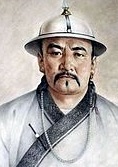

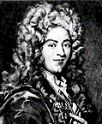
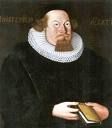


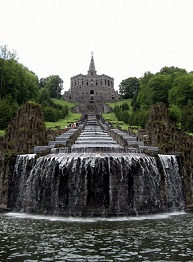
1696 The pop. of England is 5.5M, of which 4M live in the country; agriculture still dominates over industry, whose workers still mainly live in rural areas. On Feb. 8 tsar (since 1682) (Jan. 29 Old Style) Ivan V (b. 1666) dies, leaving his younger half-brother Peter I the Great (1672-1725) as sole Russian tsar (until Feb. 8 1725), going with his big plans to take the Ottoman Black Sea port of Azov along with its fortress, sending 50 young Russians to England, Holland, and Venice to study shipbuilding and fortifications. In Feb. a Jacobite plot to assassinate William III is discovered, causing the Nat. Loyal Assoc. to be formed to protect him; the Habeas Corpus Act is suspended - it's my corpus or yours now? On June 12 the Battle of Jao Modo (Zuunmod) (Hundred Trees) on the Upper Terelj River 37 mi. E of modern-day Ulaanbattar sees a 30K-man Dzungar-Mongol army under well-educated Buddhist Galdan Boshugtu Khan (1644-97) defeated by a 50K-man Qin army under the personal command of the Kangxi Emperor, pushing the Dzungar Mongols to Inner Asia until their final defeat in 1758. On Aug. 29 Louis XIV France and Duke Victor Amadeus II of Savoy sign the separate Treaty (Peace) of Turin, a separate peace, restoring all conquests to the duke in return for leaving the anti-French Grand Alliance of 1689 and bethrothing his daughter to Louis XIV's grandson the duke of Burgundy and promising to remain neutral; elector Frederick Augustus I of Saxony is replaced as CIC of the imperial army by Prince Eugene of Savoy (1663-1736), cousin of the duke of Savoy. On Nov. 1 Penn. adopts the Third Frame of Government, written by William Markham. John Locke and Isaac Newton supervise the new coinage in England. Hatter journeymen strike in England. The French in Canada under Comte de Frontenac decisively defeat the Iroquois. Why do Britain's colonies ultimately go renegade? The Navigation Act of 1696 puts the screws on the colonies by requiring colonial governors to enforce all Navigation Acts, and puts violators in front of admiralty courts with judges appointed by the governors, with no juries. William III creates the Board of Trade and Plantations to replace the Lords of Trade and Plantations in an effort to bring harmony among the many central organs through which the crown exercises executive control of its empire; it soon seems to be in control of the colonial business, but suffers from lack of ability to compel obedience to its advice, only to make recommendations to the committee of the privy council; the secy. of state for the southern dept., the secy. concerned with colonial affairs, is ex officio a member of this board as well as a member of the committee of the privy council charged as the chief admin. official to make it all work, but usually doesn't bother; in practice the purpose of the board is to encourage the colonies to produce raw materials and keep out of manufacturing; it eventually gets the crown to disallow 469 colonial laws it doesn't like; after 1725 it is defanged by PM Robert Walpole. The first English property insurance co. is founded. The Berlin Academy of Arts (Kunstakademie Berlin) is founded in Berlin, Germany by Elector Frederick II of Brandenburg and the Prussian Academy of Arts. Nahum Tate and Nicholas Brady update the Bay Psalm Book. Sir Isaac Newton becomes warden of the Royal Mint, becoming instrumental in fixing the gold standard. English East India Capt. Shaddock introduces the pomelo (shaddock) (shattuck) (Citrus maxima) to Jamaica from Polynesia. Science: In June Swiss mathematician Johann Bernoulli pub. the Brachistochrone Problem (Br. "brakistos kronos" = shortest time) in Acta Eruditorum, the curve of fastest descent between two points, with the soundbyte: "Given two points A and B in a vertical plane, what is the curve traced out by a point acted on only by gravity, which starts at A and reaches B in the shortest time"; Bernoulli takes two weeks to solve it , incorrectly, and ends up using his brother Jakob's correct solution in the May 1697 ed. of the mag.; meanwhile after receiving a letter from Leibniz with the problem on Jan. 29, 1697 (4:00 p.m.) and staying up all night, Isaac Newton sends the solution anonymously to Bernoulli, who immediately recognizes him, with the soundbyte that he "recognizes a lion from his claw mark", to which Newton utters the soundbyte: "I do not love to be dunned and teased by foreigners about mathematical things." French botanist-monk Charles Plumier (1646-1704) first describes the Fuchsia genus of flowering plants that he discovered; named after German botanist Leonhart Fuchs (1501-66). English naturalist John Ray (1627-1705) first describes the aromatic herb peppermint - and how it goes good with chocolate? Nonfiction: Nicolas Antonio, Bibliotheca Hispana Vetus. John Bellers, Proposals for Raising a College of Industry; education of children. John Dennis (1657-1734), Letters upon Several Occasions written by and between Mr. Dryden, Mr. Wycherley, Mr. Moyle, Mr. Congreve and Mr. Dennis, pub. by Mr. Dennis. Michael Geddes (1650-1713), The Church History of Ethiopia: Wherein, Among Other Things, the Two Great Splendid Roman Missions into That empire are Placed in Their True Light. Jean Hardouin (1646-1729), Chronologiae ex Nummis Antiquis Restitutae - it takes a con to know one? Guillaume de L'Hôpital (Hopital) (1661-1704), L'Analyse des Infiniment Petits pour l'Intelligence des Lignes Courbes; first textbook on infinitesimal calculus, based on lectures by his teacher Johann Bernoulli (1667-1748); incl. L'Hopital's (L'Hospital's) Rule for solving the indeterminate form 0/0 through repeated differentiation - send it to the differential hospital? William Nicolson, The English Historical Library (3 vols.) (1696-99). Melchisedec Thevenot (1620-92), The Art of Swimming (posth.); popularizes the breaststroke; read by Benjamin Franklin. William Whiston (1667-1752), A New Theory of the Earth from its Original to the Consummation of All Things; defends the Biblical account of Creation, with the soundbyte: "The Mosaic Creation is not a nice and philosophical account of the origin of all things; but a historical and true representation of the formation of our single Earth out of a confused Chaos, and of the successive and visible changes thereof each Day, till it became the habitation of mankind"; he claims that the Biblical Flood was caused by a comet hitting the Earth; too bad, he pushes Arianism, pissing-off most Christians, esp. Roman Catholics, while making fans of Isaac Newton and John Locke. Music: Giuseppe Aldrovandini (1665-1707), Dafni (opera). Giacomo Carissimi (1604-74), Ars Cantandi (posth.). Johann Kuhnau (1660-1722), Frische Clavier-Fruchte, oder Sieben Suonaten; the sonata arrives? Agostino Steffani (1653-1728), Briseide (opera) (Hanover); libretto by Cristoforo Palmierei. Plays: Colley Cibber (1671-1757), Love's Last Shift; the first sentimental comedy. Colley Cibber (1671-1757), Love's Last Shift; or, The Fool in Fashion (comedy); the last sentimental comedy?; backs off some from aristocratic intellectualism and sexual frankness while trying to have something for everybody; Sir William Wisewould, Loveless, his servant Snap, Sir Novelty Fashion (Cibber), Elder and Young Worthy, and his servant Sly; free-living rake Loveless leaves London for his wife Amanda, hanging out in whorehouses, then returns and no longer recognizes her, causing her to pretend to be a high-class ho and give him the night of his dreams, after which she reveals her identity and he immediately reforms. Sir John Vanbrugh (1664-1726), The Relapse, or Virtue in Danger (comedy) (Drury Lane, London) (Nov.); sequel to Colley Cibber's "Love's Last Shift; or, The Fool in Fashion" (1696); the supposedly reformed rake Loveless gets in a new love affair with widow Bernithia, while his wife Amanda becomes the target of a seduction attempt by Worthy, which she barely resists; last true Resotration comedy?; stars Cibber as Lord Foppington (formerly Sir Novelty) ("very industrious to pass for an ass", "a mwn who Nature has made no fool" - Amanda), who is tricked by his younger brother Tom out of his fiance and her large dowry; a big hit, immortalizing foppery; bowlderized by Richard Brinsley Sheridan as "A Trip to Scarborough" (1777). Peter Anthony Motteux (1663-1718), Love's a Jest; She Ventures and He Wins. Jean-Francois Regnard (1655-1709), Le Joueur (comedy). Thomas Southerne, Oroonoko (tragedy). Poetry: Peter Dass (1647-1708), Valley Song. Matthew Prior (1664-1721), Elegy on Queen Mary. Novels: Christian Reuter, Schelmuffsky. Births: Italian painter-printmaker Giovanni Battista (Gianbattista) (Giambattista) Tiepolo (d. 1770) on Mar. 5 in Venice; #1 decorative painter of 18th cent. Europe. French marshal (1748-) Louis Francois Armand de Vignerot du Plessis, Duc de Richelieu (d. 1788) on Mar. 13 in Paris. Ottoman sultan #24 (1730-54) Mahmud I (d. 1754) on Aug. 2 in Edirne Palace; son of Mustafa II (1664-1703); brother of Osman III (1699-1757). French opthalmologist (inventor of cataract surgery) Jacques Daviel (d. 1762) on Aug. 11. English "Lord, let me know mine end" composer-organist Maurice Greene (d. 1755) on Aug. 12 in London. Italian Roman Catholic theologian (St.) Alphonsus di (Alfonso Maria de) Liguori (d. 1787) on Sept. 27 near Naples. Am. educator Samuel Johnson (d. 1772) on Oct. 14 in Guilford, Conn.; educated at Yale U.; first pres. of King's College (Columbia U.) 1754-63; not to be confused with English lit. critic Samuel Johnson (1709-84). German Albertine Wettin elector of Saxony (1733-63), and Polish king and grand duke of Lithuania (1734-63) Augustus III (Frederick Augustus II) (the Corpulent) (d. 1763) on Oct. 17 in Dresden; only son of Augustus II (1670-1733) and Christiane Eberhardine of Brandenburg-Bayreuth (1671-1727); father of Maria Amalia of Saxony (1724-60); converts to Roman Catholicism in 1712, pissing-off the Protestant Saxon aristocracy. French marshal Maurice Saxe, Comte de Saxe (d. 1750) on Oct. 28 in Goslar; son of Augustus II the Strong of Saxony (1670-1733) and Countess Maria Aurora of Konigsmarck (1662-1728). English Georgia Colony founder Gen. James Edward Oglethorpe (d. 1785) on Dec. 22 in Godalming, Surrey; educated at Corpus Christi College, Oxford U.; emigrates to the U.S. in 1732. French Protestant reformer Antoine Court (d. 1760) in Villeneuve de Berg, Languedoc. Am. N.H. gov. #1 Benning Wentworth (d. 1770); namesake of Bennington, Vt. Russian Maj. Gen. Abraham (Ibrahim) Petrovich Gannibal (Hannibal) (d. 1781) in Africa; kidnapped from a royal tribal family at age 8, adopted by Peter I the Great, becomes the first black European intellectual; he becomes the great-great-grandather of poet Alexander Pushkin (1799-1837), who calls him the "Black Knight". Scottish "Sketches of the History of Man" Enlightenment judge-philosopher Henry Home, Lord Kames (d. 1782) in Kames House, between Eccles and Birgham, Berwickshire; patron of David Hume, Adam Smith, James Boswell, William Cullen, and John Walker. Deaths: French explorer Medart Chouart de Groseilliers (b. 1618). Japanese emperor #109 (1629-43) Meisho (b. 1624) on Dec. 4. Polish king (1674-96) Jan III Sobieski (b. 1624) on June 17 (apoplexy). French philosopher Jean Domat (b. 1625) on Mar. 14. Polish poet Waclaw Potocki (b. 1625). French court gossip Marie de Rabutin-Chantal, Marquise de Sevigne (b. 1626) on Apr. 17 in Grignan; her 30-year Correspondence with Daughter Madame de Grignan is pub. in 1725 (28 letters), followed by 1734-7 (614 letters), and 1754 (772 letters). French scientist Jean Richer (b. 1630). German field marshal Hans Adam von Schoening (b. 1641) on Aug. 28. French essayist-moralist Jean de La Bruyere (b. 1645) on May 10; dies of apoplexy soon after admission to the French Academy. Russian tsar (1682-96) Ivan V the Ignorant (b. 1666) on Feb. 8 (Jan. 29 Old Style).






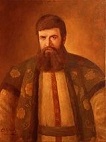





1697 On Jan. 8 Scottish medical student Thomas Aikenhead (b. 1676) becomes the last person to be executed for blasphemy in Britian; he is accused of rejecting the Trinity, and having "preferred Mahomet to the blessed Jesus". On Apr. 5 Swedish king (since 1660) Charles XI (b. 1655) dies, and his 15-y.-o. son Charles (Karl) XII (1682-1718) becomes Wittelsbach king #4 of Sweden in 1698 (until 1718) after a 1-year probation. On Sept. 11 the imperial army under Prince Eugene of Savoy, the non-white man's worst nightmare kicks Turkish butt bigtime at the Battle of Zenta (Senta), ending the Great Austrian-Turkish War (begun 1683); once again Hungarian flip-flopper Imre Thokoly fights for the Turks against the Austrians - the Prisoner of Zenta? On Sept. 20 King William's War (War of the Grand Alliance) (War of the League of Augsburg) (begun 1689) between France and the Grand Alliance of England, Spain, and the Netherlands ends with the Treaty of Ryswick between France, England, Spain, and Holland, confirming the separate peace with Savoy, restoring all conquests (changing no boundaries), and giving Louis XIV's recognition to William III as king of England and Princess Anne as heir presumptive, promising not to aid William's enemies, which provides a little breathing space before Queen Anne's War in 1702?; the chief fortresses on the French frontier in the Spanish Netherlands are garrisoned with Dutch troops as a buffer; Holland restores Pondicherry, India to the French East India Co. in return for commercial privileges; on Oct. 30 after France reneges on restoring all conquests since 1678, reserving 82 places that had been "reunited" with Spain by the Treaties of Nimwegen (1678-9), it signs another treaty with the HRE ceding all of them except Alsace in return for receiving Strasbourg (until 1871) (known for tasty pate de foie gras), and ceding Freiburg and Breisack to the emperor and Phillipsburg to the empire; the king of Sweden gets Zweibrucken back, and becomes Count Palatinate of the Rhine; Lorraine is restored to Duke Leopold, except for Saarlouis; Cardinal Furstenburg's claims on the archbishopric of Cologne are disallowed; the Rhine is made free; the independence of Savoy is recognized, and Savoy defects from the Grand Alliance, freeing a French army and taking a load off England and its allies; France's rep. as the greatest power in Europe is shaken but not completely demolished, as it nourishes a fair prospect of uniting with Spain after doddering Charles II kicks the canasta?; meanwhile the cause of the Jacobites will have to wait for James II's son and grandson. On Sept. 25 the Bishops' Banishment Act requires most Roman Catholic clergy to leave Britain by May 1, 1698. In Nov. Ravi Varma dies, and Rama Varma IV (d. 1701) becomes king of Cochin (until 1701) - sounds like deja vu? Elector Frederick Augustus I of Saxony converts to Roman Catholicism then succeeds Jan III Sobieski (b. 1696) as king of Poland under the name Augustus II the Strong (1670-1733), soon becoming the most dissolute ruler in Europe; Polish independence virtually ends. China conquers W Mongolia, which is incorporated into Qing territory with military colonies established; Galdan poisons himself. The Sunni Muslim Chehab (Shihab) Dynasty in Lebanon is founded (ends 1842), converting to Marionite Christianity at the end of the 18th cent. and consolidating their hold around Mt. Lebanon. Peter I the Great sets off on an incognito (under the name Peter Michailoff) 18-mo. trip through Prussia, Denmark, Holland, England, and Austria to study Western ways of life, taking numerous classes that make him a jack of all trades incl. dentistry, becoming the first Russian monarch to visit the West - the original royal hayseed in the city joke? The French under Jean Bourguignon and Andre Brue attempt to colonize West Africa with the Royal Co. of the Senegal (Compagnie Royale du Senegal) - bring plenty of suntan lotion? Siberian Cossack explorer Vladimir Vasilyevich Atlasov (Otlasov) (1661-1711) explores the Kamchatka Peninsula in the Sea of Okhost for Russia, discovering 7,674-ft. perfect cone-shaped Atlasov Island and 15,580-ft. near-perfect cone-shaped Klyuchevskaya Volcano (Sopka) (one of 30), the largest active volcano in Eurasia, having over 600 eruptions by the year 2000, and whose base is known as the Valley of Death because of the poisonous gases. The Spanish destroy the last remains of the Maya civilization in Yucatan. The Huron village of Lorette on the St. Charles River 7 mi. WNW of Quebec near the Falls of Lorette is founded, later becoming Quebec suburb of Loretteville. A 10-year overstock in beaver pelts causes the French to close many American forts - there's a baudy joke in there somewhere? The Bank of England charter is renewed until 1711. English Anglican clergyman Henry Maundrell (1665-1701), chaplain to the Levant Co. in Syria since Dec. 20, 1695 makes an Easter pilgrimage to Jerusalem, later pub. Journey from Aleppo to Jerusalem at Ester A.D. 1697 in Oxford, which becomes a minor travel classic. The word English word "dungarees" is coined for thick country-made cloth from Ft. Dongari Killa in Bombay, India. The sedan chair becomes a popular means of transportation. After failing to capture any prizes, Capt. William Kidd's crew mutinies in Madagascar, and persuades him to join them, and they turn to piracy, seizing many merchant ships, incl. the Armenian vessel Quedagh Merchant. Architecture: The 70.5m-tall Hercules Monument in Kassel, N Hesse, Germany is begun by Landgrave Karl of Hesse-Kassel, with a pyramid on top of an octagon topped by a copper statue of Hercules (Heracles), built in 1707-17; on June 3, 1714 the water stairs (cascade) debut. The King's Highway Bridge is built in Philadelphia, Pann., becoming the oldest railway bridge in continuous use in modern times. London's Whitehall Palace, the seat of English royal power and politics since 1530 burns down; Hans Holbein the Younger's 1535 portrait of Henry VIII is lost; the 1532 red-brick Tudor-style St. James's Palace on Pall Mall in Westminster, London (N of St. James's Park) becomes the English royal residence (until 1837) and admin. center of the monarchy (until ?); meanwhile the Court of Versailles becomes the model in Europe. Inventions: Iron cannon are cast directly from a blast furnace. Science: Dutch explorer Willem de Vlamingh (1640-98) becomes the first Euro to sight a black swan (Cygnus atratus), on the Swan River on the W coast of New Holland (Australia), disproving the age-old Euro saying "All swans are white" that goes back to Roman satirist Juvenal in 82 C.E.; the first two specimens are captured in 1726 in Dirk Hartog Island 850 km N of the Swan River, and taken to Batavia (Jakarta) to show off - once a woman flamingoes a swan that's black, she'll never go back? Nonfiction: Pierre Bayle (1647-1706), Dictionnaire Historique et Critique (2 vols.) (Holland); 2nd ed. 1702; his opus magnum, one of the first encyclopedias, promoting religious tolerance and skepticism of religious dogmas; later named by U.S. pres. Thomas Jefferson as one of the first 100 books to stock the Library of Congress with. William Dampier (1651-1715), A New Voyage Round the World; causes a sensation, causing him to be given command of the 26-gun HMS Roebuck in 1699 with a commission from William III to explore Australia and New Guinea. Charles Davenant (1656-1714), An Essay on the East India Trade; claims that England is a net exporter of goods imported from India, hence imports shouldn't be restricted, else the hated Dutch would fill the gap, becoming the first to understand the basic concepts of consumer demand and perfect competition; Discourses on the Public Revenues and on the Trade of England, Part 1; argues against long-term borrowing as a way to fund govt. expenditures; "High taxation for debt service was a burden on trade, industry, and land." Daniel Defoe (1659-1731), An Essay Upon Projects; recommends the income tax - isn't this the guy who wanted women to sell their infants? John Dryden (1631-1700) (tr.), The Works of Vergil. Francois Fenelon (1651-1715), Maxims of the Saints; gets him into trouble with his French bishop mentor Jacques-Benigne Bossuet for its support of the quietist doctrines of Madame Guyon (1648-1717), which Bossuet claims are un-Christian; after appeals by both to Rome, Pope Innocent XI comes down against the book in 1699, and Fenelon acquiesces. Jean Hardouin (1646-1719), Chronologia Veteris Testamenti; claims that all of the ancient Greek and Roman texts were forged by 13th cent. Benedictine monks under Severus Archontius, with the exception of Homer, Herodotus, Plautus, Cicero, Pliny's Natural History, Virgil's Georgics, and Horace's Satires and Epistles, and that the New Testament was originally written in Latin and the dates of Christ's life are wrong, getting his works interdicted by the Parliament of Paris. Humphrey Prideaux (1648-1724), The True Nature of Imposture Fully Display'd in the Life of Mahomet; With a Discourse Annex'd for the Vindicating of Christianity from This Charge; Offered to the Consideration of the Deists of the Present Age; uses the evilness of Islam to refute Deism. Samuel Sewall (1652-1730), Phaenomena Quaedam Apocalyptica ad Aspectum Novi Orbis Configurata; a MF treatise, arguing that New England might be the seat of the New Jerusalem? Georg Ernst Stahl (1659-1734), Zymotechnia Fundamentalis sive Fermentalionis Theoria Generalis; advances the Phlogistic Hypothesis. William Wotton, Reflections on Ancient and Modern Learning. Art: Hyacinthe Rigaud (1659-1743), Young Negro with a Bow. Music: John Blow (1649-1708), I Was Glad When They Said; written for the opening of Christopher Wren's Choir of St. Paul's Cathedral in London. Reinhard Keiser (1674-1739), Der Geliebte Adonis (opera) (Hamburg). Plays: William Congreve (1670-1729), The Mourning Bride (Lincoln's Inn Fields, London); Queen Zara is held captive by King Manuel of Granda, who fall in love, after which he is murdered while wearing a disguise, and she commits suicide; incl. the immortal soundytes: "Music has charms to soote a savage breast", and "Heaven has no rage, like love to hatred turned,/ Nor hell a fury, like a woman scorned." Peter Anthony Motteux (1663-1718), The Novelty; or, Every Act a Play. Poetry: John Dryden (1631-1700), Alexander's Feast; or, The Power of Music; set to music; written in a single night for the St. Cecilia Society of London; about world conqueror Alexander the Great and his babe Thais torching Perseopolis after the music of Timoetheus conquers them; "He raised a mortal to the skies; she drew an angel down." Novels: Charles Perrault (1628-1703), Histoires ou Contes du Temps Passe (Les Contes de ma Mere l'Oye) (Tales of Long Ago); the cover has the first picture of Mother Goose (Ma Mere l'Oye), and incl. the stories of Cinderella, Sleeping Beauty, Little Red Riding Hood (incl. the grandmother in the bed scene), Puss in Boots, and multiple wife-killer Chevalier Raoul (Bluebeard) (based on Gilles de Rais, who was hanged in 1440); the Sleeping Beauty story is lifted from the earlier romances Perceforest (1330) and Giambattista Basile's Pentamerone (1634-6), where the handsome prince not only kisses but rapes her and splits; her glass slippers were supposed to be of fur, but Perrault mistranslated "pantoufles de vair" as "pantoufles de verre". Births: German flutist (flautist) and Baroque composer Johann Joaquim (Hanss Jochim) Quantz (d. 1773) on Jan. 30 in Oberscheden (near Gottingen), Brunswick-Luneburg. German actress-mgr. ("Die Neuberin") Friederike Caroline Neuber (d. 1760) on Mar. 9 in Reichenbach im Vogtland. Italian mezzo-soprano Faustina Bordoni (d. 1781) on Mar. 30 in Venice; wife of Johann Adolph Hasse (1699-1783). French "Manon Lescaut" novelist and Benedictine monk Abbe (Abbé) Antoine Francois Prevost (Prévost) d'Exiles (d. 1763) on Apr. 1 in Hesdin, Artois. English explorer-adm. Baron George Anson, 1st Baron Anson (d. 1762) on Apr. 23 in Shugborough, Staffordshire; created baron in 1747. French geographer-cartographer Jean Baptiste Bourguignon d'Anville (d. 1782) on July 11 in Paris. Bavarian elector (1726-45) and HRE (1742-5) Charles Albert (HRE Charles VII) (d. 1745) on Aug. 6; son of Maximilian II Emanuel and Teresa Kunegunda Sobieska; grandson of John III Sobieski of Poland; husband (1722-) of Archduchess Marie Amalie of Austria (daughter of HRE Joseph I and Wilhelmina Amalia of Brunswick-Luneburg). Italian Trevi Fountain architect Nicola (Niccolo) Salvi (d. 1751) on Aug. 6 in Rome. Italian "The Stonemason's Yard" landscape painter Giovanni Antonio Canal (Canaletto) (d. 1768) on Oct. 18 in Venice; known for accurate drawings of Venetian bldgs., incl. waterlines, which are used to preserve its bldgs. and monuments until modern times. American journalist-publisher John Peter Zenger (d. 1746) on Oct. 26 in Impflingen, Germany; emigrates to the U.S. in 1710. English "The Rake's Progress", "Marriage a la Mode" satirical painter-engraver (pioneer of Western sequential art) William Hogarth (d. 1764) on Nov. 10 in London. English Baptist minister-scholar (Calvinist) John Gill (d. 1771) on Nov. 23 in Kettering, Northamptonshire; first major Baptist theologian. Italian composer Giuseppe de Majo (d. 1771) on Dec. 5 in Naples; father of Gian Francesco di Majo (1732-70). English Orientalist atty. George Sale (d. 1736) in Canterbury, Kent; educated at King's School, Canterbury. English poet Richard Savage (d. 1743). French colonial admin. (in India) Marquis Joseph Francois Dupleix (d. 1763) in Landrecies. English "The Life and Adventures of Peter Wilkins, a Cornish Man" novelist Robert Paltock (d. 1767). French salon hostess Marie Anne de Vichy-Chamrond, Marquise du Deffand (d. 1780) in Chateau de Chamrond, Ligny-en-Brionnais (near Charolles). Deaths: Brazilian Jesuit scholar Antonio Vieira (b. 1608) on July 18 in Bahia. English biographer-antiquarian John Aubrey (b. 1626). Italian scientist Francesco Redi (b. 1626) on Mar. 1 in Pisa. French Versailles architect Francois d'Orbay (b. 1634). French architect Liberal Bruant (b. 1635) on Nov. 22 in Paris. Mongolian khan Galdan Boshugtu (b. 1644) on Apr. 4 near Khovd (suicide). Swedish king (1660-97) Charles XI (b. 1655) on Apr. 5 in Tre Kronor.


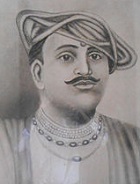
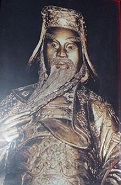






1698 On Jan. 23 elector Ernest Augustus of Hanover (b. 1629) dies, and his eldest son George Louis (1660-1727) (future King George I of Great Britain) becomes electoral prince (until June 11, 1727). On Feb. 12 the first public school in North Am. is established in Philadelphia, Penn. In June while Peter I the Great is visiting Vienna, a palace rev. by his palace troops (strelitzi) begins in an attempt to restore Sophia Alekseevna to the throne, causing him to rush back and crush them and execute their leaders, becoming unquestioned master of Russia; on Sept. 5 he imposes a beard tax to force his nobles to shave their "Oriental" beards and adopt Western looks and dress; he then goes to England and lives for some time in Deptford, along the banks of the Thames, breaking away from Tartar traditions and entering the French sphere of attraction, recruiting Western experts to help modernize Russia; he takes sunflower seeds to Russia from the Netherlands, and commercial production of sunflowers begins in the 1830s in the Voronezh region, soon spreading into neighboring countries (Bulgaria, Hungary, Yugoslavia, Romania, Ukraine). On Sept. 18 Benigne d'Auvergne de Saint-Mars (-1708) becomes becomes gov. (warden) of the Bastille in Paris (until Sept. 18, 1708), taking his mysterious masked prisoner of 1669 with him. On Oct. 11 the First Treaty of Partition (Treaty of The Hague) to determine the Spanish succession (in doubt since 1685 as Charles II of Spain is childless) names 7-y.-o. Joseph Ferdinand (1692-99) of Bavaria as primary heir (infanta) to Spain, the Indies and the Netherlands, with the French dauphin (eldest son of Louis XIV and Maria Theresa) Louis of France (1661-1711) to receive Naples, Sicily, Tuscan seaports, and the province of Guipozcoa, while Archduke Charles will receive the duchy of Milan; too bad, Charles II of Spain was not consulted, pissing him off, but to preserve the unity of his Spanish monarchy he agrees to make Joseph Ferdinand sole heir to the whole shebang, and the naval powers agree. On Oct. 24 a fleet of four vessels commanded by Pierre Le Moyne d'Iberville (1661-1706) sets sail from Brest to explore and settle Louisiana (La Louisiane) in New France. Saif bin Sultan, imam of Oman takes Ft. Jesus in Mombasa, Kenya from the Portuguese after a 2-year siege, after which they eject them from Zanzibar and other coastal regions N of Mozambique, giving them control of the main slave market on the E African coast in Zanzibar. Adm. Kanhoji Angre (Conajee Angria) (1669-1729) becomes CIC of the Maranatha Navy, fighting the British, Dutch, and Portuguese and becoming lord of the W coast of India from Bombay S to Vingoria in Maharashtra, while the Euros content themselves with labeling him a pirate. New Hampshire (N.H.) is reunited with Mass. Md. gov. (since 1694)Francis Nicholson (1655-1728) returns from Md. to Va., becoming lt. gov. (until 1705), moving the capital from Jamestown to Middle Plantation between the James and York Rivers (founded 1632), which is renamed Williamsburg (modern-day pop. 14), becoming capital of the Colony and Commonwealth of Va. until 1780. As part of their campaign to expand S, Vietnamese gen. Nguyen Huu Canh (1650-1700) is sent by sea by the Nguyen rulers of Hue to detach the area around Saigon ("firewood/cotton stick/palisade") (modern-day pop. 8.4M) from Cambodia, turning it into a major city; on July 2, 1976 it is renamed Ho Chi Minh City. Prussian prince Leopold I of Anhalt-Dessau (1676-1747), freshly returned from the Siege of Namur becomes known as a top drillmaster, and introduces goose-stepping and iron ramrods into the Prussian army by 1700. The slave trade is opened to English merchants by Parliament. The Isthmian Bubble bursts when 1K Scottish settlers sent to found New Edinburgh on the Isthmus of Panama are decimated by tropical diseases, and the remainder are wiped out by the Spanish. A bad fire engulfs Tosa, Japan. Cotopaxi Volcano in Ecuador erupts, destroying the city of Tacunga. The city of Pensacola, Fla. (modern-day pop. 53K/461K) in the W Fla. Panhandle on Pensacola Bay, protected by the barrier island of Santa Rosa that connects to the Gulf of Mexico is founded by the Spanish as a presidio, named after the Muskogean-speaking Pensacola tribe, going on to be nicknamed "the City of Five Flags" (Spain, France, Great Britain, U.S., Confed. States of Am.), "America's First Settlement", and "Emerald Coast"; in 1913 the Naval Air Station Pensacola is founded, becoming the first in the U.S., giving the city the nickname "Cradle of Naval Aviation"; it goes on to become known for "the world's whitest beaches", and "the red snapper capital of the world". Austrian organist-composer and counterpoint master Johann Joseph Fux (1660-1741) is appointed court composer by HRE Leopold I (until 1741), beating out the usual Italian candidates. The Gen. Society (New East India Trading Co.) is founded in London. The Society for Promoting Christian Knowledge (SPCK) is founded in London by philanthropist prelate Dr. Thomas Bray (1656-1730) et al., becoming the most important society within the Anglican Church. German pietist Lutheran pastor and Bible scholar August Hermann Francke (1663-1727) founds the Franckesche Stiftungen orphanage school, with 100 orphans and 500 day students, emphasizing Bible studies. The Bibliotheca Casanatense in Rome is founded by Cardinal Casanatense. Robert South calls an anti-Trinitarian a "Mahometan Christian". The first paper is manufactured in North Am. Architecture: Henry Winstanley (1644-1703) begins the Eddystone Lighthouse in Plymouth, England (finished 1700) - then hopes for the Perfect Storm? Jules Hardouin-Mansart designs the Place Vendome in Paris. Andreas Schluter begins decorating the Royal Palace in Berlin (finished 1706). Nonfiction: John Cockburn (1652-1719), Bourignianism Detected; or The Delusions and Errors of A. Bourignon and Her Growing Sect. Jeremy Collier (1650-1726), A Short View of the Immorality and Profaneness of the English Stage (Mar.); Anglican rector of Ampton near Bury St. Edmunds, who was arrested in 1692 for suspected involvement in a Jacobite plot and then outlawed in 1696 for granting absolution on the scaffold to two men who had tried to assassinate William III attacks dramatists John Dryden (1631-1700), William Congreve (1670-1729), John Vanbrugh (1664-1725) et al. for "bawdry and profaneness", causing another stir and scaring them off - only 300 years to the XXX-rated Internet? William Congreve (1670-1729), Amendments of Mr. Collier's False and Imperfect Citations. Charles Davenant (1656-1714), Discourses on the Public Revenues and on the Trade of England, Part 2; describes "in a more sustained and complete form the idea of the 'general' balance of trade". Gerard Langbaine and Charles Gildon, The Lives and Characters of the English Dramatick Poets. Johann Jakob Hottinger (1652-1735), Helvetische Kirchengeschichte (Swiss Church History) (4 vols.) (1698-1729); a polemic against Roman Catholicism. Gottfried Wilhelm von Leibniz (1646-1716), Monadology. Ludovico Maracci (1612-1700), The Quran (Koran); first Latin trans. since 1143 (repub. 1543); intro. is titled "Refutation of the Quran". Algernon Sidney (1623-83), Discourses Concerning Government (posth.); used to justify liberal provisions in constitutions; "God helps those who help themselves" (stolen for the 1757 ed. of Ben Franklin's Poor Richard's Almanac). Births: Italian poet-librettist Pietro Metastasio (Pietro Antonio Domenico Trapassi) (d. 1782) on Jan. 3 in Rome. Prussian gen. Ernst Heinrich August de la Motte Fouque (Fouqué) (d. 1774) on Feb. 4 in The Hague; born to an old Norman Huguenot family. French mathematician-astronomer Pierre Bouguer (d. 1758) on Feb. 16 in Croisic; son of Jean Bouguer (-1714). Scottish mathematician Colin (Gael. "young creature") Maclaurin (d. 1746) in Feb. English "The Microscope" naturalist Henry Baker (d. 1774) on May 8 in London. French Rococo-Neoclassical architect Pierre Contant d'Ivry (d. 1777) on May 11 in Ivry-sur-Seine. French mathematician-philosopher Pierre Louis Moreau de Maupertuis (d. 1759) on July 17 in Saint-Malo; educated at the College de La Marche in Paris. Swiss writer-philologist Johann Jakob Bodmer (d. 1783) on July 19 in Greifensee (near Zurich). Italian violin maker Giuseppe (Joseph) Guarneri del Gesu (d. 1744) on Aug. 21; rival to Antonio Stradivari (1644-1737). Danish bishop Erik Pontoppidan (d. 1764) on Aug. 24 in Aarhus, Jutland. French chemist (suptd. of the Jardin du Roi) Charles Francois de Cisternay Du Fay (d. 1739) on Sept. 14 in Paris; discoverer of positive and negative electricity. French Versailles architect Ange-Jacques Gabriel (d. 1782) on Oct. 23 in Paris; pupil of Robret de Cotte. French gov.-gen. of New France (1755-60) Pierre de Rigaud de Vaudreuil de Cavagnial, Marquis de Vaudreuil (d. 1778) on Nov. 22 in Quebec, Canada; son of Philippe de Rigaud Vaudreuil (1643-1725); uncle of Louis-Philippe de Vaudreuil (1724-1802). German banker (Jewish) Joseph Suss Oppenheimer (d. 1738) (b. 1699?) in Heidelberg; nephew and stepson of Samuel Oppenheimer (1630-1703); financial adviser to Duke Karl Alexander of Wurrtemberg . English poet Richard Savage (d. 1743). Polish Rabbi (founder of Hasidism) Yisrael Baal Shem Tov (Tob) (Israel ben Eliezer) (d. 1760). Deaths: French New France gov. Louis de Buade, comte de Palluau et de Frontenac (b. 1622) on Nov. 28 in Chateau St.-Louis, Quebec. German elector Ernest August of Hannover (b. 1629) on Jan. 23 in Herrenhausen. Danish natural philosopher Erasmus Bartholin (b. 1625) on Nov. 4 in Copenhagen. Dutch explorer Willem de Vlamingh (b. 1640). French actress Marie Champmesle (b. 1642).





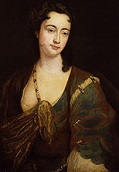
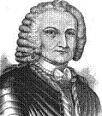

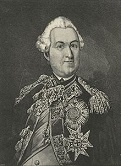
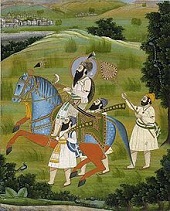


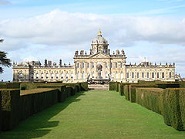
1699 This is the first time that there is a debate on whether the new millennium starts in 1700 or 1701 - at least some people's brains aren't a cipher? Peter I the Great decrees that New Year's Day in Russia will fall on Jan. 1 rather than Sept. 1 - that gives him four months breathing room? By this year there are a many as 200 rangers in service in Md. On Jan. 14 Mass. holds a day of fasting as penance for the witch trials - no time to spare? On Jan. 14 famous circumnavigator William Dampier leaves England in HMS Roebuck, and on July 26 reaches Dirk Hartog Island at the mouth of Shark Bay in W Australia, then explores the NW coast of Australia, and passes Timor on the way to New Guinea, which he sights on Dec. 3, passing New Hanover, New Ireland, and New Britain (modern-day Bismarck) Islands and charting the Dampier Strait, finally returning to England in Aug. 1701 after ending up marooned near Ascension Island for five weeks; too bad, he ends up getting court-martialed for cruelty and kicked out of the Royal Navy, so he goes back to being a pirate - will it be any dampier for him now? On Jan. 16 Isaac Newton writes a letter to John Flamsteed, with the soundbyte: "I do not like to be dunned and teezed by foreigners about Mathematical things." On Jan. 26 the Treaty of Karlowitz ends the Great Austrian-Turkish War (begun 1683), Polish-Turkish War (begun 1683), and Venetian-Turkish War (begun 1684), ending Ottoman advances and marking the beginning of the disintegration of the Ottoman Empire; Hungary, Transylvania, Croatia and Slavonia are ceded to Austria; the Viennese begin to celebrate the big V by selling crescent-shaped croissants in the shape of the Turkish emblem to with their Turkish coffees; the Hungarian rebels (kuruc) are given amnesty, but pesky Imre Thokoly is excluded, causing him to settle down in the Galata district of Constantinople with the title of count of Widdin until he croaks in 1705. On Feb. 6 Spanish infanta Joseph Ferdinand (b. 1692) suddenly dies of smallpox, upsetting the Spanish succession applecart and giving the French a chance for more maneuvering. On Apr. 13 Patna-born (Vaisakhi) 10th and final Sikh guru Gobind Singh (1666-1708) gives birth to Khalsa, the formal Sikh religious identity with the five symbols, incl. never cutting the hair, carrying a comb for neatness, and wearing knee-length underwear, steel bracelet, and a sword. On Aug. 25 Christian V (b. 1646) dies, and his son Frederick IV (1671-1730) becomes king of Denmark and Norway (until Oct. 12, 1730). On Sept. 23 a total solar eclipse occurs in Europe - I'm barely hanging on. On Nov. 22 the Treaty of Preobrazhensko(y)e is signed by Denmark, Russia, Poland-Lithuania, and Saxony for partition of the Swedish Empire. The English Parliament passes the 1699 Wool (Woolens) Act, prohibiting exports of wool from the Am. colonies and limiting wool production in Ireland, but shows leniency by leaving their linen trade undisturbed; the net effect forces all wool and woll products produced by British colonies and dependencies to be sold in British markets for resale to British citizens, forcing shopkeepers to begin buying more flax and hemp; it is repealed in 1867; meanwhile the economy tanks, causing Roman Catholics to emigrate to Spain and France, and the Protestants to the New World. Indian slaves revolt in Trinidad. The Virginia Black (Slave) Code declares that slaves have the status of lifelong property (real estate), and makes whippings and other corporal punishment standard practice for uppity slaves, beginning the tradition of the white "cracker" - gotta whip that real estate into shape? Ang Em (-1722) becomes king of Cambodia (until 1700, then 1710-22). Billingsgate Market in SE London on the Isle of Dogs becomes a fish-only market (until 1982). William Penn returns to Penn. to rein in his deputy before going back to England permanently in 1701. The region of Liechtenstein between Switzerland and Austria is sold by the counts of Hohenems to the Liechtenstein dynasty. Mannheim, Germany (burnt in 1689) is rebuilt and fortified. Capt. Kidd arrives in the West Indies, finds that he is wanted for piracy, sets sail for New England, lands in Oyster Bay in Long Island, then sends his privateering sponsor New York Province gov. #12 (since 1698) Richard Coote, 1st Earl of Bellomont (Bellamont) (1636-1700) a letter along with some plunder, claiming innocence - asshole jokes here? The British Parliament calls Virginia "His majesty's ancient and great colony and dominion", giving it the name Old Dominion. S.C. exports 366 tons of rice this year. French colonizers (from Montreal) Jean-Baptiste Le Moyne, Sieur de Bienville (1680-1767) and his older brother Pierre Le Moyne d'Iberville (1661-1706) sight an Indian portage to Lake Ponchartrain and the Gulf of Mexico, and found the first European settlement in La. at Ft. Maurepas (modern-day Ocean Springs, Miss., pop. 17.4K); the Quapaw ("downstream") (AKA Arkansas) Sioux Indian tribe allies with them; meanwhile Iberville lands in Ships Island then founds Biloxi, Mississippi (modern-day pop. 45K), exploring the Mississippi Gulf Coast; the first Mardi Gras (Shrove Tuesday) is celebrated on the Mississippi River. The 4900-y.-o. Newgrange Tomb in County Meath, Ireland is discovered (built in -3200?). English composer John Blow (1649-1708) becomes the first composer to the Chapel Royal. Architecture: After suddenly switching careers from dramatist to architect, London-born Sir John Vanbrugh (1664-1726) designs Castle Howard in North Yorkshire in collaboration with trained Nottinghamshire-born architect Nicholas Hawksmoor (1661-1736), creating English Baroque Architecture, based on time spent in France; Castle Howard is featured as Brideshead in the 1981 TV series "Brideshead Revisited" by Evelyn Waugh. The Holy Trinity (Old Swedes) Church in Wilmington, Del. (located on Cape Fear River) is dedicated as a Swedish Lutheran church; its pulpit becomes the oldest one to survive to modern times in the U.S.; it goes Episcopal in 1791. A classic Muslim temple is built in Dehradun in Uttar Pradesh, India. Inventions: Talk about good timing? Dumaurier Duperrier invents the first portable fire pump to put out the imminent fires of Armageddon - a major case of mass tenesmus? Science: Guillaume Amontons of France pub. his rediscovery of the laws of friction first proposed by Leonardo da Vinci; he is pooh-poohed until Charles-Augustin de Coulomb verifies them in 1781. Nonfiction: Richard Bentley (1662-1742), Dissertation Upon the Epistles of Phalaris; makes him a star and gets him appointed master of Trinity College, Cambridge U. next year, followed by regius prof. of divinity in 1717. Gilbert Burnet, Exposition of the Thirty-nine Articles. Dimitrie Cantemir (1673-1723), The Divan, or The Wise Man's Parley with the World, or The Judgment of the Soul with the Body; written in Romanian, Greek and Arabic. Samuel Clarke (1675-1729), Three Practical Essays on Baptism, Confirmation and Repentance; Some Reflections on That Part of a Book Called Amyntor, or a Defence of Milton's Life, Which Relates to the Writings of the Primitive Fathers, and the Canon of the New Testament. Charles Davenant (1656-1714), An Essay on the Probable Methods of Making a People Gainers in the Balance of Trade; attacks the Junto Party; A Discourse on Grants and Resumptions; disses the monarchy for granting "forfeited Irish estates" to friends and allies of the Junto Party. Raoul Anger Feuillet (1653-1709), Choreographie. Music: Jeremiah Clarke (1674-1707), Trumpet Voluntary; AKA the Prince of Denmark's March; played at Lady Diana's wedding. Nicolas de Grigny (1672-1703), Premier Livre d'Orgue (Paris); 2nd ed. 1711; the pinnacle of French Baroque organ music along with Francois Couperin; makes fans of J.S. Bach and Johann Gttfried Walther. Reinhard Keiser (1674-1739), Der bei dem Allgemeinen Welt-Frieden von dem Grossen Augustus Greschlossene Tempel des Janus (opera) (Hamburg). Giuseppe Torelli (1658-1709), 12 Concerti Musicali a Quattro, Op. 6. Music: Reinhard Keiser (1674-1739), Die Verbindung des Grossen Herkules mit der Schonen Hebe (opera) (Hamburg). Thomas D'Urfey (1653-1723) (ed.), Wit and Mirth; or, Pills to Purge Melancholy (1698-1720); multi-vol. collection of songs. Plays: George Farquhar (1677-1707), Love and a Bottle (comedy) (first play); Roebuck, "an Irish Gentleman of wild roving Temper" flees for London after knocking a woman up, and makes friends with Lovewell; "Heav'n was plea'd to lessen my Affliction, by taking away the She-brat"; a hit, causing him to go into playwriting while working as a soldier in the regiment of the earl of Orrery, discovering actress Anne Oldfield (1683-1730). Peter Anthony Motteux (1663-1718), Beauty in Distress; The Island Princess; or, The Generous Portuguese; adapation of the John Fletcher play; music by Daniel Purcell. Poetry: John Dryden (1631-1700), Fables, Ancient and Modern; his last pub. work; verse adaptations from Boccaccio, Chaucer and Ovid, with a critical prose preface. Elkanah Settle, To the Most Renowned the President and the Rest of the Knights of the Most Noble Order of the Toast; about the Kit-Kat Club, known for toasting beautiful babes with verses engraved on the glasses; founded by publisher Jacob Tonson, and named after a mutton pie (you know what, really?). Novels: Francois Fenelon (1651-1715), The Adventures of Telemachus, The Son of Ulysses (Les Aventures de Télémaque); pub. anon.; the educational travels of Ulysses son, accompanied by his tutor Mentor, who is revealed to be Minerva, goddess of wisdom in disguise; how kings exist for their subjects, war is wrong, and all nations are brothers; Louis XIV is not amused, and combined with his siding with Bossuet over the quietism thingie he exiles him to his diocese of Cambrai, where he spends the rest of his life with his pupil Burgundy grinding out letters criticizing the French govt.; repub. by his family in 1717 - no doggie day care center license for vous? Births: Ottoman sultan #25 (1754-7) Osman (Othman) III (d. 1757) on Jan. 2/3 in Constantinople; son of Mustafa II (1664-1703); brother of Mahmud I (1696-1754). German Prussian Sanssouci Palace architect Georg Wenzeslaus von Knobelsdorff (d. 1753) on Feb. 17 in Kuckadel, Crossen an der Oder (modern-day Krosno Odrzanskie County). German "La Sorella Amante" opera seria composer-singer Johann Adolph Hasse (d. 1783) on Mar. 25 in Bergedorf (near Hamburg); husband of Faustina Bordoni (1697-1781). French Rococo engraver-painter-caricaturist Hubert Francois Gravelot (Bourguignon) (d. 1773) on Mar. 26 in Paris, France; pupil of Jean II Restout and Francois Boucher; emigrates to England in 1732-45. Portuguese statesman Sebastiao Jose de Carvalho e Melo (Mello), 1st Count of Oeiras, 1st Marquis of Pombal (d. 1782) on May 13 in Lisbon; educated at the U. of Coimbras. Am. Quaker botanist ("Father of Am. Botany") John Bartram (d. 1777) on May 23 (Old Style) in Darby, Penn. French salonniere Marie Therese Rodet Geoffrin (d. 1777) on June 26 in Paris; known for keeping a salon on the Rue Saint-Honore. French mathematician Charles Etienne Louis Camus (d. 1768) on Aug. 25 in Crecy-en-Brie (near Meaux); educated at the College de Navarre. English botanist John (Joannis) Martyn (d. 1768) on Sept. 12 in London. French Rococo still life painter Jean Baptiste Simeon Chardin (d. 1779) on Nov. 2 in Paris; studies under Noel Nicholas Coypel and Pierre Jacques Cazes; dumps grand subjects for small stuff such as fruit, smoker's boxes and women cleaning turnips. Italian architect Ferdinando Fuga (d. 1782) on Nov. 11 in Florence; student of Giambattista Foggini (1652-1725). Danish-Norwegian pietist king (1730-46) Christian VI (d. 1746) on Nov. 30 in Copenhagen Cstle; son of Frederik IV and Louise of Mecklenburg-Gustrow. Scottish poet Robert Blair (Gael. "plain") (d. 1746) in Edinburgh; educated at the U. of Edinburgh. English poet John Dyer (d. 1757). Italian (Venetian) painter Giovanni Antonio (Gianantonio) Guardi (d. 1760); brother of Francesco Guardi (1712-93). English brewer Sir Benjamin "Ben" Truman (d. 1780); husband of Frances Truman, matrilineal descendant of Cecily Neville, duchess of York; knighted in 1760. Deaths: Dutch painter David Teniers the Younger (b. 1610). Italian painter Il Calabrese (Mattia Preti) (b. 1613) on Jan. 3 in Valletta, Malta. French chemist Claude Bourdelin (b. 1621) on Oct. 15. English diplomat Sir William Temple (b. 1628) on Jan. 27 in Moor Park, Surrey. English politician Sir Josiah Child (b. 1630) on June 22 in Wanstead, Essex. French dramatist Jean-Baptiste Racine (b. 1639) on Apr. 21. French actress Marie Champmesle (b. 1642). Danish-Norwegian king (1670-99) Christian V (b. 1646) on Aug. 25 in Copenhagen. French chemist Pierre Pomet (b. 1658). Bavarian electoral prince Joseph Ferdinand (b. 1692) on Feb. 6. Indonesian Queen Kamalah (b. ?). Persian head mullah Muhammad Baqir Majlisi (b. ?); leaves The Seas of Light (Bihar al-anwar), a Shiite encyclopedia of Prophet Muhammad's words and deeds.